
The Project Gutenberg EBook of Jane's All the World's Aircraft, by Various
This eBook is for the use of anyone anywhere at no cost and with
almost no restrictions whatsoever. You may copy it, give it away or
re-use it under the terms of the Project Gutenberg License included
with this eBook or online at www.gutenberg.net
Title: Jane's All the World's Aircraft
1913
Author: Various
Editor: Fred Jane
Release Date: January 2, 2011 [EBook #34815]
Language: English
Character set encoding: ISO-8859-1
*** START OF THIS PROJECT GUTENBERG EBOOK JANE'S ALL THE WORLD'S AIRCRAFT ***
Produced by Suzanne Shell, Jason Isbell and the Online
Distributed Proofreading Team at http://www.pgdp.net
Transcriber's Notes
The advertisements which were originally at the front of the book have been moved to the back.
A Reprint of the 1913 Edition of All The World's Air-craft
Edited by
ARCO PUBLISHING COMPANY, INC.
New York
First published by Sampson Low Marston in 1913
This edition published 1969 by ARCO PUBLISHING COMPANY, INC.
219 Park Avenue South, New York, N. Y. 10003
Library of Congress Catalog Number 69-14964
ARCO Book Number 668-01880-1
Printed in Great Britain
FOUNDED AND EDITED BY FRED T. JANE, Founder and Editor of "FIGHTING SHIPS" (Naval Annual), Etc.
PART A.—AEROPLANES AND DIRIGIBLES OF THE WORLD.
PART B.—HISTORICAL AEROPLANES OF THE LAST SIX YEARS.
PART C.—THE WORLD'S AERIAL ENGINES.
PART D.—AERIAL "WHO'S WHO" AND DIRECTORY.
FIFTH YEAR OF ISSUE.
(Founded 1909.)
LONDON:
SAMPSON LOW, MARSTON & CO., Ltd.
1913.
Printed by Netherwood, Dalton & Co., Phoenix Works, Rashcliffe, Huddersfield.
| PAGE | |
| Preface | 7 |
| Glossary of Technical Terms | 9 |
| PART A. | |
|---|---|
| Argentine (J. Schiere) | 15 |
| Austrian (Special Austrian Editor) | 16 |
| Aeroplanes | 17 |
| Dirigibles | 22 |
| Belgian (J. Bracke) | 26 |
| Aeroplanes | 27 |
| Dirigibles | 29 |
| Brazilian | 31 |
| British | 32 |
| Aeroplanes | 37 |
| Dirigibles | 60 |
| British Colonies, Etc. | 63 |
| Bulgarian | 66 |
| Central American Republics | 67 |
| Chilian | 68 |
| Chinese | 69 |
| Danish | 70 |
| Dutch (J. Schiere) | 71 |
| French (Special French Editor) | |
| Aeroplanes | 73 |
| Dirigibles | 109 |
| German (Special German Editor) | 126 |
| Aeroplanes | 131 |
| Dirigibles | 151 |
| Greek | 168 |
| Italian (Special Italian Editor) | 169 |
| Aeroplanes | 172 |
| Dirigibles | 176 |
| Japanese (Partly Official) | 180 |
| Aeroplanes | 181 |
| [Pg 6] Dirigibles | 182 |
| Mexican | 183 |
| Norwegian | 184 |
| Peruvian | 185 |
| Portuguese (J. Schiere) | 186 |
| Roumanian | 187 |
| Russian | 188 |
| Aeroplanes | 190 |
| Dirigibles | 191 |
| Servian | 193 |
| Spanish | 194 |
| Swedish (Lieut. Dahlbeck) | 196 |
| Swiss (Special Swiss Editor) | 198 |
| Turkish | 200 |
| Uruguay | 200 |
| United States (W.L. Jones) | 201 |
| Aeroplanes | 202 |
| Dirigibles | 220 |
| PART B. | |
| Historical Aeroplanes of the Last Six Years | 1B et seq. |
| PART C. | |
| Principal Aeroplane Engines | 1C |
| Austrian (W. Isendahl) | 2C |
| Belgian | 2C |
| British | 3C |
| French | 4C |
| German (W. Isendahl) | 8C |
| Italian | 11C |
| Swiss | 12C |
| U.S.A. | 13C |
| PART D. | |
| Aerial "Who's Who" | 1D |
| Classified Aerial Directory | 12D |
| Alphabetical Index—Aeroplanes | end of |
| Alphabetical Index— Dirigibles | book |

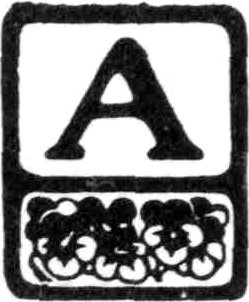
s conjectured last year, considerable further changes have been produced in this edition.
When, some five years ago, work on this annual was first commenced, the military aviator was an idle dream. Fighting men in dirigibles were a bare possibility; but nothing more than that. Every amateur building an aeroplane (or even merely intending to build one) in his back garden was a possible "conqueror of the air." The aeroplane was going to oust the motor car as a sporting vehicle—everyone was quite certain about that! Beyond that, nothing!
To-day everything is completely changed and except as a war machine the aeroplane is of little interest or use to anyone. A few civilian aviators are still flying, but in practically every case they are doing so in connection with the business aspect of the question. There is no "sport of aviation" such as the prophets foretold a few years ago.
An increasing number of people obtain their pilot certificates and lists of these are still given, although the title of "aviator" is in the bulk of cases somewhat of a courtesy one, since so few keep on flying once they have secured their brevets.
It is as a war machine that the aeroplane has come into its own. The Italian aeroplanes over and over again proved their utility in Tripoli. Although in the Balkan War aircraft were less in evidence than many expected, this may be attributed to the peculiar circumstances of the campaign and also to the scarcity of available machines.
Every country is now engaged in forming its aerial fleets. How far the naval and military branches will coalesce, or how far they will differentiate remains to be seen. The probabilities, at present, all point in the latter direction, and that just as an army is made up of cavalry, infantry, artillery, etc., and a navy of battleships, cruisers, torpedo craft and submarines, so the sky fleets seem destined to consist of groups of different types of machines, each type designed for some special purpose.
The increased war utility of aircraft has necessitated an extension of the pages devoted to organisation of military aviation, etc. The details given are by no means as full as I could wish; but all organisations are being so continually changed owing to increased experience that satisfactory data are not very easy to come by.
During the past twelve months or so we have learned at least one or two important things. The mere fact of the possession of aeroplanes by a nation is a military factor of comparatively little importance. A nation possessing next to no aeroplanes can easily acquire a few hundreds in case of emergency if she has the people to build them. The real problem is two-fold. First, of course, is the possession of trained and efficient aviators to fly the machines. Naval and military officers who have merely secured their brevets at a flying school are of no immediate value; civilians of the same kind are of still less utility.
Second to this is the productive capacity of any country; which may roughly be gauged from the number and importance of its firms engaged in construction.
These points cannot too strongly be enforced. The air strength of any nation in case of war resides in its efficient flying men and in its own productive capacity. The next war will see aircraft quite as much "contraband" as warships, and the nation which relies upon aerial imports will be foredoomed at once. One month is probably the utmost effective life of an aeroplane on hard active service and it may well be a good deal less. And firms capable of building efficient machines cannot be improvised.
A remarkable feature of the last twelve months has been the recrudescence of the dirigible, which is now in far greater esteem than it was a year ago, or for that matter, ever before. In the past there is no doubt that progress was hampered by arguments between the advocates of "heavier than air" and "lighter than air," and a curious notion that the one could only exist at the expense of the other.
Such ideas are now dead, and it is recognised that for war purposes both have their uses and that both are interdependent. It is not quite yet realised how intense this interdependence is likely to be.
Briefly the present situation may be summed up as follows: the dirigible has enormous potentialities for attack on fortified bases and the like, but its powers of defence, guns or no guns, are very slight. A single aeroplane should be able to disable or destroy without very great[Pg 8] difficulty the finest dirigible yet built (supposing it able to find the airship in the vastness of the air). The damage that a single aeroplane can do to land defences or ships is, however, entirely trivial—at any rate at present.
Hence the aerial war unit already formed in Germany, and likely to be in existence everywhere else ere another year or so has passed. This unit is a dirigible of great offensive powers, associated with a number of aeroplanes presumably intended to defend it and ward off and defeat attack by hostile aeroplanes.
This is merely the crude beginning, it seems reasonably safe to prophecy that in the early future the aerial war-unit will be made up somewhat as follows:—
(a) An offensive dirigible, carrying the maximum of bombs, etc.
(b) One or two dirigibles carrying oil and petrol for the aeroplanes—possibly capable of dealing with all minor repairs and of carrying a certain number of aeroplanes on board.
(c) A number of war aeroplanes specially designed for fighting other aeroplanes and attacking hostile dirigibles as chances may occur.
(d) A few very swift one man aeroplanes which will be the eyes of the unit.
This seems an early certainty. After all it merely reproduces for the air what centuries of experience have shewn to be essential for fleets and armies.
The matter is a fascinating subject for speculation; but in connection with a work that exists merely to deal with things as they are at present, is perhaps, better not now pursued further. One point, however, may perhaps be mentioned, and that is that victory or defeat in aerial warfare seems likely to depend upon which side can first destroy the other's bases. A base-less dirigible will not live long. This is likely to lead to very great attention being paid at an early date to anti-aircraft guns and other devices for the defence of aerial bases.
Reverting to the arrangement of the present edition, a few words may be said about some of the changes. As stated last year the clumsy old system of grouping monoplanes, biplanes, etc., separately has been abolished. So many firms specialise in both that any such grouping could only lead to confusion.
A tabular system has been generally adopted for most new matter. This will be found far more convenient for reference, and of course, saves a great deal of space.
The effective age of aeroplanes is somewhat of a vexed question, for while one year probably represents the really effective war utility endurance, even in peace time, school life is more or less indefinite and so is ordinary private life. Consequently—although "dead machines" are excluded it has not been possible to draw an exactly uniform age limit line beyond that. Speaking generally modern machines represent as a rule detail improvements rather than the complete changes of the past. For example, the gap between 1911 and 1913, is far less than the gap between 1909 and 1911. This fact is beginning to make itself felt in war machines.
In Part B an attempt has been made to collect illustrations of aeroplanes of the past which for one reason or another possess an historical interest. This section is remarkable for two totally different things (1) the early anticipations of some modern practice, and (2) the past prevalence of certain other ideas which are now totally extinct.
Part C deals with aero-engines. It is mainly remarkable—in comparison with past issues—for the large number of engines which have ceased to exist. It is probably still too ample; as a year hence quite half the makers still recorded are likely to disappear. The mere ability to construct motor car engines is no longer of value. The aeroplane engine designer needs to be a specialist. The absolutely ideal aero-engine no doubt yet remains to be produced; but meanwhile the tendency of users to concentrate upon fewer makes is increasingly evident, despite the fact that the best engine for one particular type of machine is not necessarily the best for some other type.
In conclusion I tender my most grateful thanks to all those who have so kindly collaborated with or for me in the various sections. The book is still some way from being near my ideal, but I have every hope that this edition will be generally considered a very considerable improvement upon previous issues.
FRED T. JANE.
Bedhampton,
Hants.,
England.
| ENGLISH. | DUTCH. | FRENCH. | GERMAN. | ITALIAN. | NOTES. |
|---|---|---|---|---|---|
| Abaft | Achterste deel | Arrière | Hinter | A poppa | |
| Accessories | Onderdeelen | Accessoires | Zubehör | Accessori | |
| Accumulator | Accumulator | Accumulateur | Akkumulator | Accumulatore | |
| AEROPLANE | Dekvlieger | Aéroplane | Drachenflieger | Aereoplano | |
| Aeronaut | Luchtvaarder | Aéronaute | Luftschiffer | Aereonauta | |
| Aviateur | |||||
| Aerostat | Luchtbal | Aérostat | Freiballon | Aereostato | |
| Aft | Achterdeel | Arrière | Hinten | Addietro | |
| After (rear) | Achter | Arrière | Hinterer | Poppa | |
| Air-cooled | Luchtgekoeld | Refroidit par Pair | Luftgekuhlt | Raffredda ad aria | |
| Angleiron | Hoekÿzer | Cornière | Eck Schiene | Ferro ad angolo | |
| Anti-friction metal | Wit metaal | Métal anti friction on regule | Lagermetall | Metallo beanco (anti frizione) | |
| Aviation | Vliegtechniek | Aviation | Flugtechnik | Aviazione | |
| Babbit Metal | Babbits metaal | Métal Babbitt on regule | Lagermetall | Metallo Babbitt | |
| Balance | Evenwicht | Equilibre | Gleichgewicht | Equilibrio | |
| Ball bearings | Kogellagers | Coussinets à billes | Kugel Lager | Cuscinetti a sfere | |
| Ballonet | Luchtzak | Ballonet | Ballonet | Palloncino compensatore | |
| Battery | Batterÿ | Batterie | Batterie | Pila a secco | |
| Bearing metal | Kussenmetaal | Métal pour les coussinets on regule | Lager metall | Metallo par cuscinette | |
| Behind | Achter | Derrière | Hinter | Di dietro | |
| Bevel geared | Kegelraderwerk | Engrenage Conique | Konischer Antrieb | Ingranaggio conico | |
| Biplane | Tweedekker | Biplan | Zwei decker | Biplano | |
| Blades (of propeller) | Bladen (der schroef) | Pales | Flügel | Pale delt'elica | |
| Body | Romp | Fuselage | Körper | Telaio o chassis | |
| Bolt | Bout | Bonlon | Bolzen | Bollone | |
| Box-kite | Kabel-vlieger | Cerf-volant | Drachen | Aquilone a celle | |
| Bracket | Klamp | Tasseau | Stütze | Sostegno | |
| Brake | Rem | Frein | Bremse | Freno | |
| Breadth | Breedte | Largeur | Breite | Larghezza | |
| Canvas | Doek | Toile | Leinwand | Tela | |
| Car | Gondel | Nacelle | Gondel | Navicella | |
| Carburetter | Vergasser | Carburateur | Vergaser | Carburatore | |
| Casting | Gietstuk | Moulage | Guss Stück | Getto | |
| Centre of Gravity | Zwaartepunt | Centre de Gravité | Schwerpunkt | Centro di gravità | |
| Chain driven | Door ketting gedreven | Transmission par chaine | Ketten antrieb | Trasmissione a catena | |
| Chassis | Gestel | Chassis | Motor Rahmen | Chassis | |
| Circumference | Omtrek | Circonférance | Umfang | Cuconferenza | |
| Clutch | Haak | Embrayage | Kupplung | Innesto | |
| Connection | Schakeling | Couplage | Kupplung | Connessione | |
| Control | Stuurinrichting | Direction | Lenk Ubersetsung | Meccanismo di direzione | |
| Coupled | Gekoppeld | Jumelé | Paarweise | Accoppiato | |
| Crank shaft | Krukas | Arbre à manivelle | Kurbelwelle | Albero delle manovelle | |
| Cylinder | Cÿlinder | Cylindre | Zylinder | Cilindro | |
| Die cast Bearings | Ondermetaallager | Coussinets moutés encogiulles | Schalenguss Lager | Cuscinette fusi in conchiglia | |
| DIRIGIBLE | Motorballon | Dirigeable: Aéronat | Motorluftschiff | Dirigibile | |
| Diameter | Middellÿn | Diamètre | Durchmesser | Diametro | |
| Direct driven | Direct gekoppeld | Prise directe | Direkter Antrieb | Presa diretta | |
| [Pg 10]Electric welding | Electrische Lassching | Soudure électrique | Elektrisches Schweissen | Soldatura elettrica | |
| Elevator (horizontal rudder) | Hoogtestuur | Gouvernail de profondeur | Hohensteuer | Timone orizzontale | |
| Engine | Motor | Moteur | Motor | Motore | |
| Fan | Ventilator | Ventilateur | Ventilator | Ventilatore | |
| Fittings | Fittings | Garniture | Garnitur | Armamento | |
| Flight | Vlucht | Vol | Flug | Volo | |
| Flown | Gevlogen | Volé | Geflogen | Volato | |
| Fore | Voor | Avant | Vorderer | Ouvanti | |
| Forward (in front) | Van Voren | En avant | Vor | Davanti | |
| Frame | Romp | Fuselage | Rahm | Telais | |
| Framework | Geraamte | Fuselage | Gerüste | Intelaiatura | |
| Gas bag | Gaszak | Enveloppe | Luftballon (Hülle) | Involucro | |
| Geared to | Vertand | Multiplié à | Uebersetst auf | Moltiplicato a | |
| Gear driven | Met tandrad-overbrenging | durch Zahnrädern getrieben | Trasmissione a ingranaggi | ||
| Girder | Balk | Poutre | Balken | Longarin | |
| Glider | Glÿdvlieger | Planeur | Gleitflieger | Apparecehio a planare | |
| Gondola | Gondel | Nacelle | Gondel | Navicella | |
| Helices | Schroeven | Helices | Schranben | Eliché | |
| Helicopter | Schroefvlieger | Helicoptère | Schraubenflieger | Elicoplano Elicottero | |
| Horizontal plane (in a) | Horizontaalvlak (in een) | Plan horizontal | Horizontal fläche | Piano orizzontale | |
| Horse power | Paardekracht | Puissance en chevaux | Pferdekraft | Forza cavalli | |
| Hydrogen | Waterstof | Hydrogène | Wasserstoff | Idrogens | |
| Ignition | Ontsteking | Allumage | Zündung | Accensione | |
| Inch | Duim | 25.39 m/m. | 25.39 m/m. | Pollice = 25.39 m/m. | |
| Inclination | Helling | Inclination | Schrägstellung | Inclinazione | |
| Keel | Kiel | Carène | Kiel | Chiglia | |
| K.P.M. (kilometres per hour) | K.P.U. (kilom. per uur) | Kilometres par heure | Kilometre pro Stunde | Chilometre all'ora | |
| Kite | Vlieger | Cerf volant | Drachen | Aquilone | |
| Length | Lengte | Longueur | Länge | Lunghezza | |
| Lining metal | Lagermetaal | Métal pour garnir less coussinets ou régule | Lagermetall | Metallo per bronzine dei cuscinetti | |
| Lower (planes) | Onder (vlakken) | Inferieur (plans) | Untere Flächen | Piani inferiori | |
| [Pg 11]Magneto | Magneet | Magneto | Magnet | Magneto | |
| Maximum | Maximum | Maximum | Maximum | Massimo | |
| Middle (plane) | Midden (vlak) | (Plan)au milieu | Mittel Deck | Piano medio | |
| Mile | Mÿl | Mile | Meile | Miglio | |
| Military | Militair | Militaire | Militärische | Militare | |
| Miscellaneous | Verschillend (allerlei) | General | Verschiedenes | Diversi | |
| Monoplane | Eendekker | Monoplan | Ein decker | Monoplano | |
| Motor | Motor | Moteur | Motor | Motore | |
| M.P.H. (miles per hour) | M.P.U. (mÿl per uur) | Vitesse | M.P.S. | Miglia all'ora | |
| Multiplane | Veeldekker | Multiplan | Vieldecker | Multiplano | |
| Nacelle | Schuitje | Nacelle | Gondel | Navicella | |
| Non-rigid | Slap | Souple | Unstarr | Non-rigido—flessibile | |
| Petrol (gasoline) | Benzine | Essence | Benzin | Benzina | |
| Pilot (driver) | Bestuurder | Flyer: Aviateur | Führer | Aviatore | |
| Pivot | Tap | Pivot | Gewinde Zapfen | Perno | |
| Planes | Vlakken | Plans | Flächen | Piani | |
| Plug | Kaars, stop | Bougie | Zünd Kerze | Candela | |
| Pound (lb.) | Eng pond = 0,453 K.G. | 0.453 kg. | 0.453 kg. | Libbra = 0.453 kg. | |
| Pressure | Druk | Pression | Druck | Pressione | |
| Propeller | Schroef | Helice | Schraube | Eliche | |
| Quadruplane | Vierdekker | Quadruplan | Vier decker | Qudruplani | |
| Quintuplane | Vÿfdekker | Quintuplan | Fünf decker | Quintuplani | |
| Radiator | Koeler | Radiateur | Kühler | Radiatore | |
| Rear (in) | Achterkant (aan de) | En arrière | Hinten | Indictro | |
| Reduction gearing | Reductie-overbrenging | Engrenage de demultiplication | Ubersetzung | Ingranaggi di ridugione | |
| R.P.M. (revolutions per minute) | Omw. per minuut | Tours | Umlauf | Giri al minuto | |
| Rigid | Stÿf | Rigide | Starr | Rigido | |
| Rises | Stÿgt | S'eléve | Hebt sich | Si eleva | |
| Rubber | Gummi | Caoutchouc | Gummi | Gomma | |
| Rudder | Roer, Stuur | Gouvernail | Steuer | Timone | |
| Section | Doorsnede | Section | Durchschnitt | Regione | |
| [Pg 12]Semi-rigid | Halfstÿf | Demi-rigide | Halb Starr | Semi-rigido | |
| Span | Spanwÿdte | Envergure | Spanweite | Apertura | |
| Speed | Snelheid | Vitesse | Geschwindigkeit | Velocita | |
| Stability | Evenwicht | Stabilité | Gleichgewicht | Stabilità | |
| Stabilising fins | Evenwichtsvlakken | Ailerons | Gleichgwichtsflächen | Piani stabilizzaton | |
| Steel | Staal | Acier | Stahl | Acciaio | |
| Steering Gear | Stuurtoestel | Direction | Steuerung | Meccanismo di direzione | |
| Steering Wheel | Stuurwiel | Volant | Steuerrad | Volante di direzione | |
| Supporting surface | Draagvlak | Surface | Tragfläche | Superficio di sostegno | |
| Surfaces | Oppervlakken | Surfaces | Flächen | Superfici | |
| Suspension | Ophanging | Suspension | Aufhängung | Sospensioni | |
| Switch | Omschakelaar | Interrupteur | Schalter | Interruttore | |
| Tail | Staart | Queu | Schwanz | Coda | |
| Total weight | Totaal gewicht | Poids totale | Gesamtlast | Peso totale | |
| Transmission Shaft | Overbrengingsas | Arbre de transmission | Transmissions Welle | Albero di trasmissione | |
| Trial | Proef | Essai | Probe | Prova | |
| Triplane | Driedekker | Triplan | Drei decker | Triplano | |
| Universal Joint | Kogelgewricht | Joint universel | Kardan | Guinta universale | |
| Unladen | Onbelast, leeg | à vide | Leerlaufend | ||
| Upper (planes) | Boven (vlakken) | Superior | Ob ere | Piani Superior | |
| Useful lift | Nuttier last | Poids utile | Outlast | Forza utile di elevation | |
| Valve | Kelp | Soup ape | Lentil | Valvular | |
| Vertical plane (in the) | Vertical vlak (in het) | Plan vertical | (in der) Vertikalfläche | Neal piano verticale | |
| Vertical rudder | Zÿstuur | Gouvernail verticale | Seitensteuer | Timone verticale | |
| Volume | Inhoud | Volume | Inhalt | Volume | |
| Water-cooled | Watergekoeld | Refroidissement par eau | Wasserkühlung | Raffreddata ad acqua | |
| Weight | Gewicht | Poids | Gewicht | Peso | |
| Wheels | Wielen | Roues | Raeder | Ruote | |
| Wings | Vleugels | Ailes | Flügel | Ali | |
| Wood | Hout | Bois | Holz | Legno | |
| Yard (measure) | Yard (maat) = 0,914 M | 0.914 mètres | 0.914 meter | Jarda=0.914 m. |
Note.—Every nation is given in the following fixed order:—
(Revised by J. SCHIERE, Aeronautical Engineer and Librarian, Dutch R. Ae. C.)
Ae.C., Argentino, 561, S. Martin, Buenos Ayres.
Boletin del Ae.C., Argentino (Monthly).
Aerodromo Villa Lugano. (P. Castabert, Director.)
Aerodromo del Palomar. (Military).
At the end of 1912 there were 6 military aeroplanes (3 Bleriot, 1 Castaibert, 1 Nieuport, and 1 H Farman)—all 1912 models.
Marcel Paillette is director of the military flying ground at the Palomar Aerodrome.
More machines will be added and by the end of the present year it is probable that a very considerable air force will exist.
| Type | 1911. Bleriot-Hanriot type. |
1912. Bleriot type. | |
|---|---|---|---|
| Length | 26½ feet (8.15 m.) | 28 feet (8.47 m.) | |
| Span | 29 feet (8.80 m.) | 30 feet (9.35 m.) | |
| Area | 206 sq. ft. (19-20 m².) | 194 sq. ft. (18 m².) | |
| Weight | (total) | 705 lbs. (320 kgs.) | 617 lbs. (280 kgs.) |
| Motor | (h.p.) | 25 Anzani | 50 Gnome |
| Speed | (p.h.) | 46½ m. (75 km.) | 50 m. (80 km.) |
Note. Both fly well. Description in Boletin de Ae.C. Argentino.[Pg 16]
(By our Austrian Editor.)
Cesky Club Automobilistn. Aviatische Sektion. (Prague.)
Deutscher Luftfahrt-Verein in Boehmen (Teplitz-Schoenau).
Flugtechnischer Verein für Mähren (Brunn.).
Flugtechnischer Verein in Schlesien (Troppau).
Flugtechnischer Verein in Steiermark (Graz, Schmiedgasse 31).
K.k. Oesterreichischer Flugtechnischer Verein (Wienstrasse 31, Vienna).
Kärtner Automobil Club (Klagenfürt.)
Klub Awiata (Obertynska Str. 8, Lemburg, Galicia).
Magyar Automobil Club (Budapest).
Magyar Athletikai Club (Abt. fur Aviatik) Budapest.
Oberösterreichischer Verein f.L. in Linz (Landstr. 119, Linz).
Oesterreichischer Aero Club (St. Annahoff, Vienna) (formerly Wiener Aero Club).
Oesterreichischer Flugsport Club (Breitegasse 7, Vienna VII).
K.k. Oesterreichischer Flugtechnischer Verein (Weinstrasse 31, Vienna).
Oesterreichischer Luftflotten-Verein (Vienna).
Oesterreichischer Wintersportklub (Vienna). Glider club.
Verein für L. in Tirol (Innsbruck).
Allgemeine Automobil Zeitung. (Fleischmarkt 5, Vienna) weekly.
Allgemeine Sport Zeitung. (St. Annhoff, Vienna) weekly.
H.P. Fachzeitung für Automobilismus und Flugtechnik. (Vienna) weekly.
Oesterreichische Flugzeitschrift. (Aspernplatz, Wien I) fortnightly.
Wiener Luftschiffer-Zeitung. (St. Annahof, Vienna) fortnightly.
Military.
Fischamend (Principal Army).
Goerz.
Zaule b. Triest.
Naval.
Pola.
Private.
Aspern bei Wien, Vienna.
Rakos bei Budapest.
Wiener Neustadt.
In June, 1912, a central aeronautical committee was created, under the presidency of Prince Fürstenberg, to deal with the creation of a national aerial fleet. One of the objects is the perfection of the Austrian machines and factories.
About the same date, Pola was selected as a naval aviation school, and two Paulhan-Curtiss hydro-avions purchased.
In August the record making Lohner was purchased for the Army.
During September Captain Odolek tested before the military authorities a parachute of his invention; and a number were ordered.
In October very strict regulations were issued as to aircraft flying over prohibited areas, a rule that any offenders would be shot at was subsequently modified.
In November a Donnet-Lerêque was purchased for the Navy and another ordered at the Whitehead Works, Fiume.
At the end of 1911 the Army possessed 4 monoplanes and one biplane (a Lohner), now available for school work.
During 1912 there were acquired:—
20 monoplanes.—1 Bleriot, 2 Nieuport, 15 Etrich-Taube, 1 Etrich limousine, 1 Deperdussin.
6 biplanes.—4 Lohner-Daimler, 1 Mars, 1 Klobucar, (of the above the 2 Nieuports, 1 Etrich limousine and the 4 Lohners were the only ones built in Austria).
4 hydro-avions were acquired during 1912; 2 Donnet-Levêque and 2 Paulhan-Curtiss.
The military centre is at Goerz, the naval one at Pola.
Flying officers receive each a grant of 1,600 crowns; also 15 crowns a month for upkeep. Special certificate brings 2,000 crowns extra grant.
* = Superior brevet.
+ = Killed.
At the end of March, 1913, the total number of private aeroplanes in the country was about twenty.
Etrich Flieger Werke, Wiener Neustadt. Igo Etrich was a very early experimenter in conjunction with Wels. In 1909 he produced on his own account the first Etrich monoplane, a characteristic machine, which except for detail improvement, varying dimensions, etc., has not been appreciably altered since. (See Historical Section.)

| Model and date. | VII 1911. | VIII 1911-12. 2-seater | 1912-13. Limousine 2-seater. | |
|---|---|---|---|---|
| Length | feet (m.) | 37 (11.30) | 30¾ (9.30) | 26¼ (8) |
| Span | feet (m.) | 48 (14.60) | 42 (12.80) | 31¼ (9.50) |
| Area | sq. feet (m².) | 380 (35) | 323 (30) | 280 (26) |
| Weight | total lbs. (kgs.) | ... | ... | ... |
| useful lbs. (kgs.) | ... | ... | ... | |
| Motor | h.p. | 120 Daimler | 100 | 60 Daimler |
| Speed | m.p.h. (km.) | ... | ... | ... |
| Number built during 1912 | 5 | 2 | 2 | |
Remarks.—A number of VII & VIII have been sold for military purposes to the Austrian, Russian, German, and other governments.
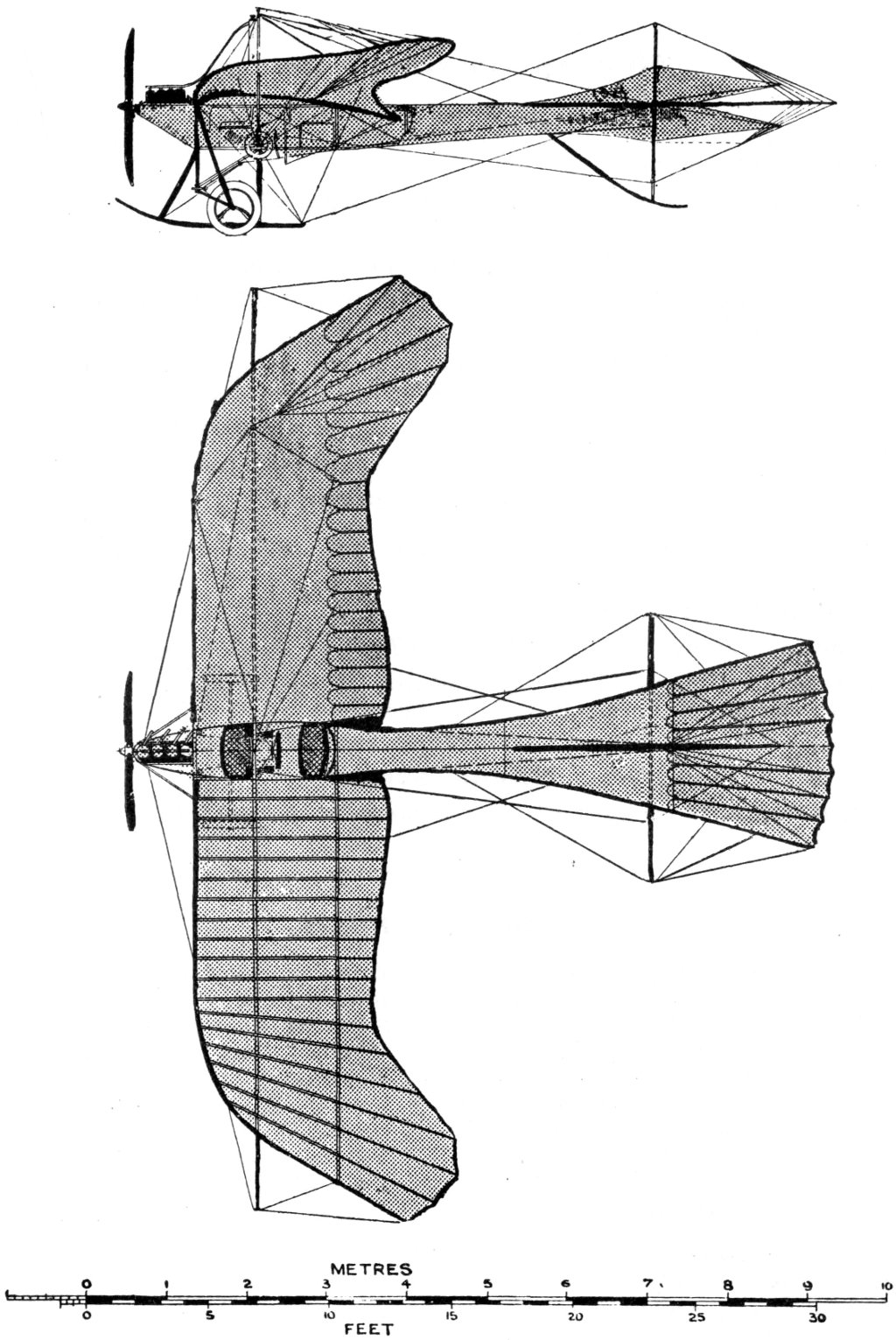
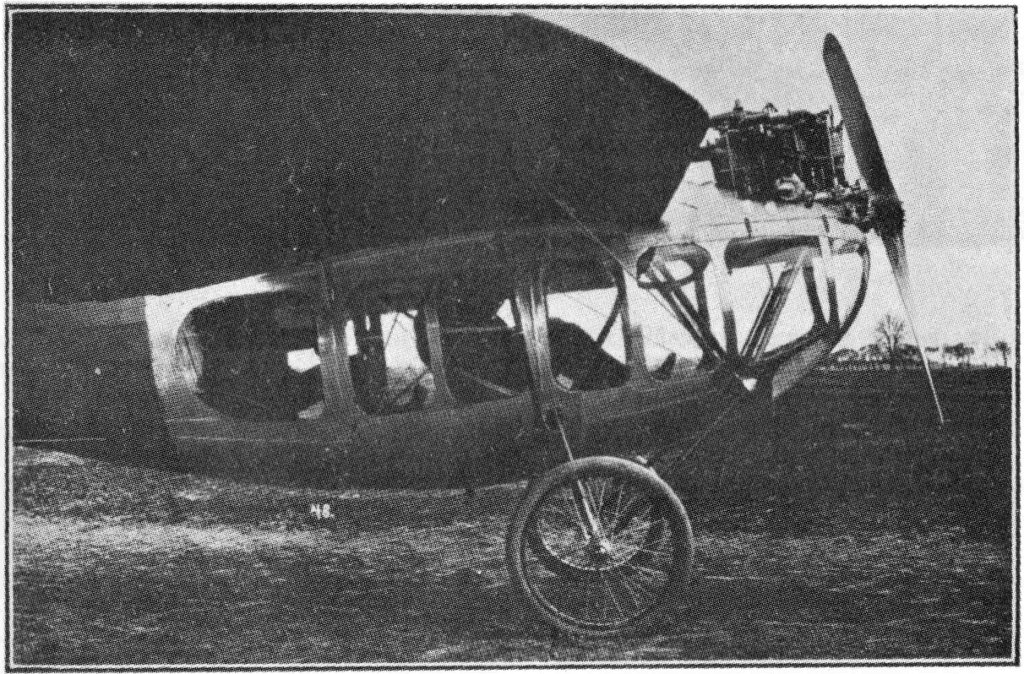
This firm is now amalgamated with Etrich.
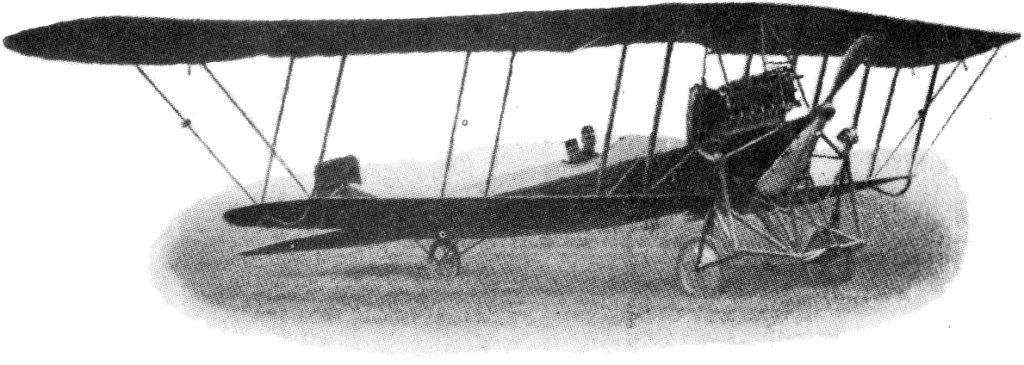
| 1911. | 1912-13. Lohner Daimler Pfeilflieger. | ||
|---|---|---|---|
| Length | feet (m.) | ... | 32 (9.70) |
| Span | feet (m.) | ... | 44¼ (13.50) |
| Area | sq. feet (m².) | ... | 450 (42) |
| Weight | total lbs. (kgs.) | ... | 926 (420) |
| useful lbs.(kgs.) | ... | ... | |
| Motor | h.p. | 60 Aust. Daimler | 125 Aust. Daimler |
| Speed | m.p.h. (km.) | 50 (80) | 62 (100) |
| Number built during 1912 | ? | 4 | |
Remarks.—Staggered and V shape. Late in 1911 one was purchased for the Austrian Army. In 1912 made a world's altitude. Passenger record, 4,530 metres (14,862 feet.)
Mihalis Mercep, Aeroplanwerkstatte, Agram, Hungary. Russjan was connected with this firm, which built 2 biplanes to his designs in 1909. Russjan was killed in the second of these. In 1911, a Mercep was built.
| 1911. | 1912-13. | ||
|---|---|---|---|
| Length | feet (m.) | 29½ (9) | 23 (7) |
| Span | feet (m.) | 34-1/3 (10.50) | 32½ (10) |
| Area | sq. feet (m²) | ... | 204 (19) |
| Weight | machine, etc. lbs. (kgs.) | ... | 617 (280) |
| useful lbs. (kgs.) | ... | 661 (300) | |
| Motor | h.p. | ... | 50 Gnome |
| Number built | 1 | 1 | |
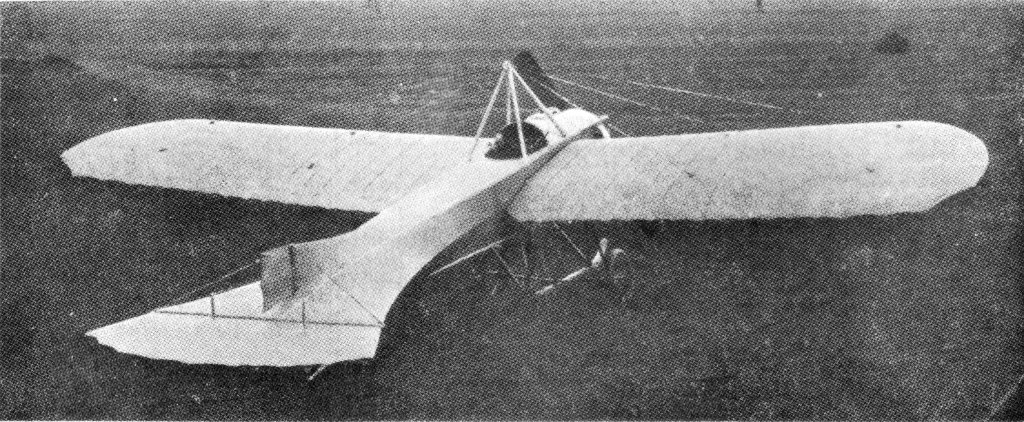
Karl Warchalowski, Autoplan Werke, Odoakergasse 35, Vienna XVI.
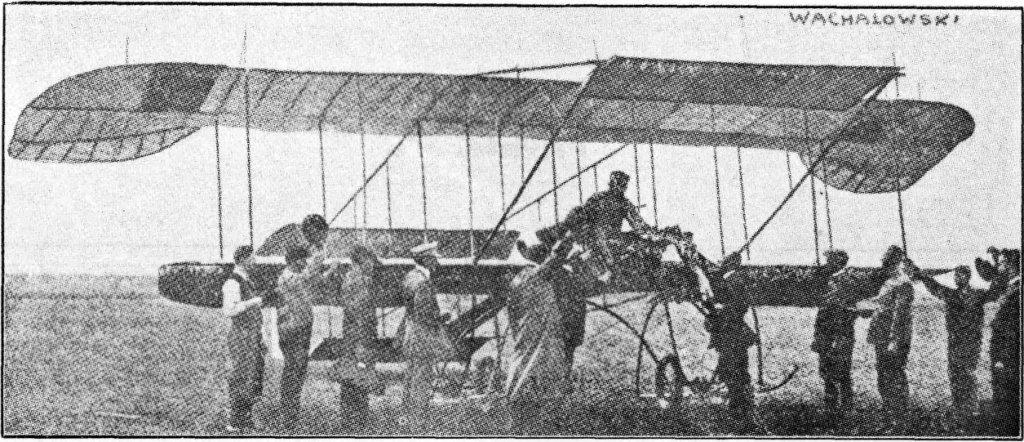
A machine generally on M. Farman lines, but with different shaped ailerons and corners of the leading edge rounded.
Whitehead & Co., Fiume, Austria. The Whitehead Torpedo Co. has laid down plant for the production of hydro-aeroplanes.
Flugzengwerke Johann Ziegler, Vienna.
| 1912-13. | ||
|---|---|---|
| Length | feet (m.) | 59 (18) |
| Span | feet (m.) | 42¾ (13) |
| Area | sq. feet (m².) | 586 (55) |
| Weight | total | 1656 (750) |
| useful | ... | |
| Motor | h.p. | 100 Mercedes |
| Speed | m.p.h. (k.m.) | 50 (80) |
| Number built during 1912 | 2 | |
| Date of order. | Name. | Make. | Type. | Capacity in m³. | H.P. | Speed. m.p.h. (k.p.h.) | Remarks. |
|---|---|---|---|---|---|---|---|
| 1909 | M 1 | Parseval P.L. 4 | n.r. | 2300 | 70 | 27 (45) | |
| 1909 | M 2 | Lebaudy-Juillot 6 | s.r. | 4800 | 100 | 23 (37) | Wrecked 1911 but repaired |
| 1910 | M 3 | Körting (K.W. 1) | n.r. | 3600 | 150 | 30½ (49) | |
| 1912 | M 4 | Zeppelin | 22,000 | 450 | 47 (75) | Building. |
| Date of commencement. | Name. | Make. | Type. | Capacity in m³. | H.P. | Speed m.p.h. (k.p.h.) | Remarks. |
|---|---|---|---|---|---|---|---|
| 1910 | MANNSBARTH-STAGL | Mann-Sl. | n.r. | 8200 | 300 | 40 (65) | |
| 1912 | BOEMCHER II | Boemcher II | 2750 | 25 (40) |
Two Renners and a Boemcher I have ceased to exist.
Private Dirigible Pilots.
Length, ? feet (? m.) diameter, ? feet (? m.) volume, 77,000 c. feet (2,750 m³.)
Gas bags.—
Motor.—
Speed.—25 m.p.h. (40 k.p.h.)
Propeller.—
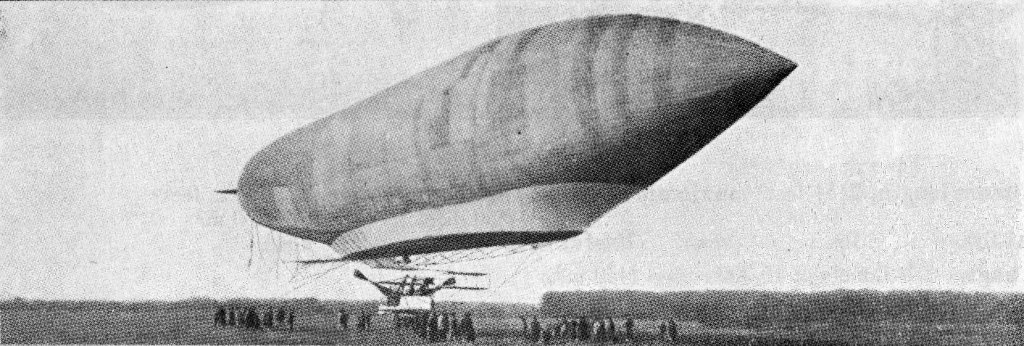
Length, 229¾ feet (10 m.) diameter, 36 feet (11 m.) volume, 170,000 c. feet (4,800 m³.)
Gas bags.—Austro-American Rubber Co.
Motor.—100 h.p. Mercedes.
Speed.—27 m.p.h. (45 km.)
Propellers.—Two 2-bladed.
Remarks.—Built by the Austrian Daimler works to Lebaudy-J. designs. Sister to the Russian Lebed.[Pg 24]

Maximum length, 213¼ feet (65 m.) maximum diameter, 34½ feet (10.50 m.) volume, 127,150 c. feet (3,600 m³.)
Total lift.— lbs. ( kgs.) Useful lift, lbs. ( kgs.)
Gas bags.—2 ballonets of 15,900 c. feet (450 m³.)
Motors.—2 Körting, of 75 h.p. each (= 150 h.p.)
Speed.—30½ m.p.h. (49 km.) Made on trials March, 1911.
Propellers.—Two 4-bladed. Diameter, 9¾ feet (3 m.)
Steering.—Parseval style. This ship is generally an adaptation of the Parseval type. Accommodates 8 people. Completed 1911. Military airship.
Remarks.—

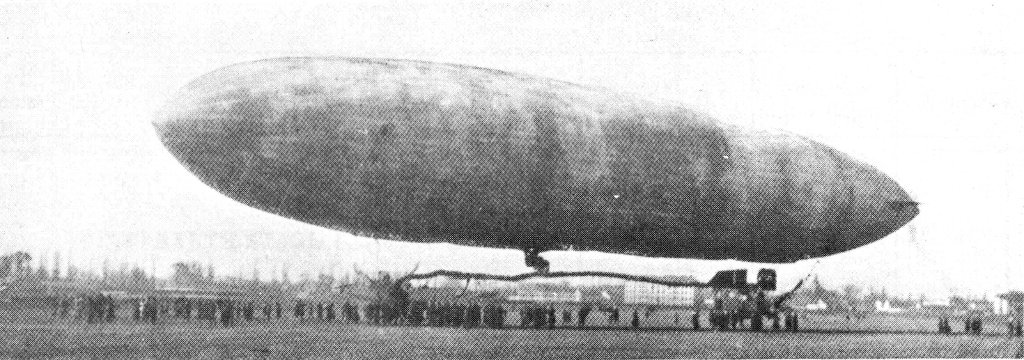
Maximum length, ? feet (? m.) maximum diameter, ? feet (? m.) volume, 289,600 c. feet (8,200 m³.)
Total lift.— lbs. ( kgs.) Useful lift, lbs. ( kgs.)
Gas bags.—Divided into 4 compartments. Ballonet in each.
Motors.—2 of 150 h.p. each (= 300 h.p.)
Speed.—40 m.p.h. (65 k.p.h.)
Propellers.—3. Diameter, 13 feet (4 m.) Also 1 helice.
Steering.—Helice used as elevator. Rudder aft. Forward and after ballonets also used as elevators, Parseval style. Completed 1911.
Remarks.—Built for Government, but not taken over.
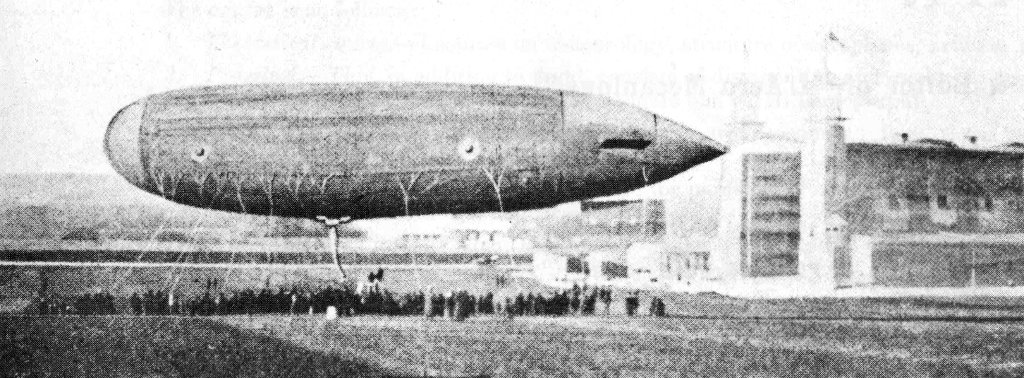
Maximum length, 164 feet (50 m.) approx. diameter, 28¼ feet (8.60 m.) volume, ? c. feet (2,300 m³.)
Total lift.—5,730 lbs. (2,600 kgs.)
Gas bags.—Rubbered fabric by Austrian American Rubber Co.
Motor.—70-100 h.p. Mercedes Daimler. 1,200 r.p.m. at 70 h.p.
Speed.—27 m.p.h. (45 km.) made on trials.
Propellers.—Parseval type, semi-rigid, chain driven, 3-bladed. Diameter, 11½ feet (3.50 m.)
Steering.—Parseval system.
Remarks.—Built by the Austrian Motorluftschiff Gesellschaft to the Parseval type C design (see Germany). Taken over by the Austro-Hungarian Army, December, 1909. Has flown 6½ hours. Has risen to 1,150 metres and subsequently flown 1½ hours. Carries 4 persons, about 400 lbs. (180 kgs.) ballast, and fuel for 12 hours. Station: Fischamend.
(Revised by M. BRACKE, Aeronautical Engineer & Editor of "L'Aero Mécanique.")
Aero Club Belgique.
Aero Club of Hainault.
La Ligue Nationale Belgique.
Delta Club (Kites).
Ae. C. de Flanders.
Ae. C. du Littoral.
Ae. C. de Liege-Spa.
La Conquête de l'Air. (214 Rue Royale, Brussels) bimonthly, 5 francs p.a.
L'Aero Mécanique (Brussels edition). Chemin de St. Denis, Casteau, Mons., Belgium, 2.50 f.
L'Aviation Industrielle et Commerciale (monthly), Chemin de St. Denis, Casteau, Mons., 1.50 f.
Berchem.
Brasschaet (Military).
Camp de Casteau. (Aviation Industrielle & Commerciale).
Etterbeek, near Brussels.
Kiewit.
St. Job (private property Baron de Caters.).
At the end of 1912 the military air force consisted of three 50 h.p. Gnome H. Farman 1911 military, used for instructional purposes, and twenty-four 70 h.p. Gnome H. Farmans (model 1912 military), for war work:
The military school is at Brasschaet, near Antwerp. Major Campion in command.
The course is as follows:
1. Theoretical course.—Lectures on meteorology, structure of aeroplanes, aviation motors, etc.
2. Practical.—This, in addition to flight, consists of dismounting and replacing parts of aeroplanes and aerial motors, all general repairs, erecting hangars and aerial photography.
The school possesses nine hangars, of which three are Bessonneau type, three wooden, and three metal.
For 1913 the sum of £20,000 is to be expended for purchase of aeroplanes and the establishment of aerial squadrons at Antwerp, Liege, and Brasschaet.
These are organised into six squadrons of four units each. The full complement of each squadron is eight aviators, fifteen to 20 mechanics, etc., and six citizen soldiers.
The question of hydro-avions for the Congo is under consideration.
(The number against any name is, unless otherwise stated, the Ae. C. Belgique pilot certificate number.)
The following Belgian aviators have been killed:—
(Bron), in Herseun. Built in 1912. A monoplane that flew very well at camp of Casteau Aerodrome during May—October. Motor.—25. h.p. type Morane. New designs in wing construction, landing chassis, etc.
(formerly Bracke, Missyon & Co.), Casteau, Mons. In 1910, constructed the first aeroplane built by a Belgium firm—a monoplane with planes at 120. This machine has not been duplicated: but the firm have since built machines to private specifications. The only firm which has in Belgium the speciality of aeronautical patents.
23 rue Joardens, Brussels. Biplane. H. Farman. type. Built in 1911, modified in 1912.
Adhémar de la Hault, 214 rue Royale, Brussels. In 1906, built a flapper of novel design. This was followed in 1910, by a machine on monoplane lines with one fixed plane and two flapping wings. This failed to fly, and in August, 1911, was altered into a biplane. It did not succeed, however. M. Hault is still pursuing the ornithopter question.
Length.—49¼ feet (15 m.) Surface.—344½ sq. feet (32 m².) Weight.—771 lbs. (350 kgs.), flying order. Warping wings. Monoplane tail. Motor.—50 h.p. Gnome, mounted just under and forward of the upper wing. Tractor.—1 Chauviere. Elevator placed 1 in front and 1 in rear, H. Farman style. Rudders, 2 in rear. Completed May, 1911. For further details see Conquete de l'Air, July 1st, 1911. Property of M. Van der Stegen.
Motor.—70 h.p. E.N.V. Generally of headless Voisin type on a Farman body. Completed 1911. Has flown fairly well.[Pg 29]
1. LA BELGIQUE II (late I) 4,000 m³.
2. LA BELGIQUE III
Note.—La Belgique I was built in 1909 and re-built 1910.
VILLE DE BRUXELLES 6,000 m³.
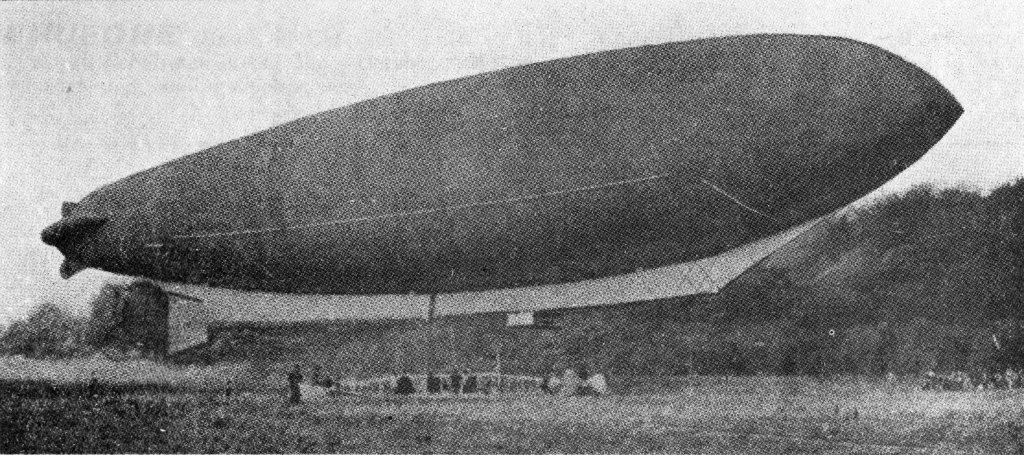
Length, 226 feet (64.8 m.) maximum diameter, 35 feet (10.75 m.) capacity, 141,300 cubic feet (4,000 m³.) total lift, 9,921 lbs. (4,500 kgs.)
Gas bag.—Rubber proofed Continental fabric. Ballonet, filled by a separate motor giving 7.5 inches of water pressure. Warm air can be pumped in if required. Ballonet, 28,250 c. feet (800 m³.)
Motors.—2, each of 60 h.p., Vivinus, 4-cylinder, 112×130.
Propellers.—1 in front of the car. 285 revolutions per minute. Wood construction.
Speed.—25 miles per hour. 40 km. per hour.
Planes.—Horizontal: a gas tube bent horizontally round the tail. Vertical: vertical fins on the tail, and a long vertical keel under the gas bag.
Car.—A girder, square in section, tapered at both ends. Built of tubular steel. Length, 82 feet (25 m.)
Miscellaneous.—Built by L. Godard, France, 1909. Crew, 3 men. Accommodation for 1 passenger. Fuel for 10 hours. Greatest height attainable, 3,280 feet (1,000 m.)
Table of weights.—
| Gas bag, complete with ballonet, valves, planes, | lbs. | kgs. |
| suspension, etc | 1,951 | 885 |
| Propellers (2) | 275½ | 125 |
| Blower | 33 | 15 |
| 3 h.p. motor for blower | 33 | 15 |
| Motors (2) complete with gearing and shafting | 1,410 | 640 |
| Car | 992 | 450 |
| Fuel for 10 hours | 738½ | 335 |
| Ballast | 826¾ | 375 |
| 1 passenger (or ballast) | 154 | 70 |
| Crew (3) | 463 | 210 |
| Guide ropes, etc | 220 | 100 |
| Miscellaneous | 88 | 40 |
| About 7,165 | 3,250 |
Remarks.—Reconstructed in the winter of 1909. There are two noteworthy innovations in connection with the ballonet. (1) The ballonet can be warmed by the motor. (2) In case of real emergency air can be pumped direct into the gas bag. Experiments of the utmost importance to all airships are in progress with a view to ridding the gas of this air cheaply and quickly.
Presented 1910 to the Belgian Government by H.M. the King of the Belgians. 4,500 m³. Practically same as II, but has 3 propellers. Motors.—Two 100 h.p. Germain.
(Formerly known as LA FLANDRE.)
(Astra type.)
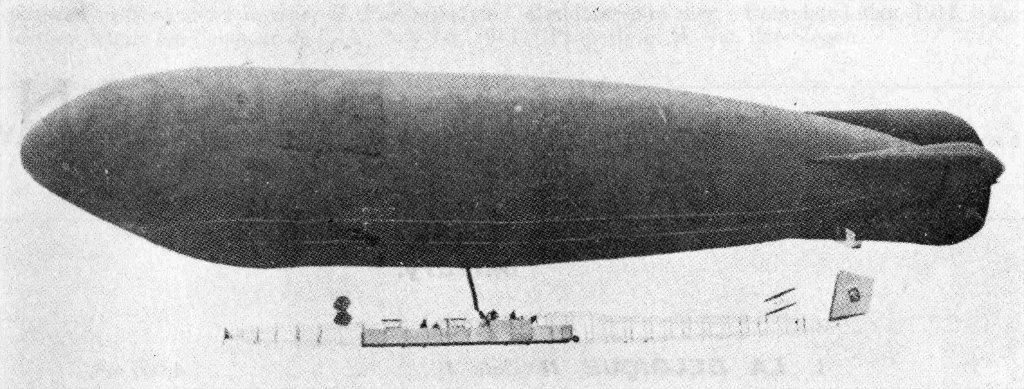
Maximum length, 256 feet (78 m.) maximum diameter, 41 feet (12.4 m.) volume, 212,000 c. feet (6,000 m³.)
Total lift.—15,763 lbs. (7,150 kgs.) Useful lift, ? lbs. ( ? kgs.)
Gas bags.—Continental rubbered fabric, yellow. Ballonet, 16,146 c. feet (1,500 m³.)
Motors.—2 Pipe motors of 100 h.p. each, placed in line with each other in the fore and aft line, and with clutches and the necessary gearing in between them.
Speed.—35 m.p.h.
Propellers.—3, namely: one at the fore end, driven by the two motors when coupled together, and two placed above and on either side of the centre of the car, for use when only one motor is running. Chauvière propellers.
Steering.—Vertical steering by means of a large double aeroplane fixed above the car, about a third from the front. Horizontal steering by means of a double vertical rudder above the rear end of the car. Stability is secured by the usual Astra pear shaped stabilising gas bags, with fins of rubbered cloth spread between the inner edges of these shapes.
Remarks.—The distinctive feature of this ship is the arrangement of the propellers. Both motors can be coupled either on to the front propeller or on to the two rear propellers, or on to all three together, but they are actually intended only to drive the front one. On stopping either motor the other is connected to the two rear propellers, which are designed for a slower speed of translation than the front one, with the result that the running motor does not find itself overloaded as it would if the same propeller had to serve both for one and for two motors.
Garos, Queiroz, Robert, Henri, Santos-Dumont, Versepuiz.
There are possibly one to two aeroplanes in Brazil, but the well-known aviators live in France. Little or nothing seems doing in Brazil as yet.
Royal Aero Club.
Aerial League.
Aeronautical Society. (Premier Society, founded 1866.)
Brooklands Aero Club.
There were once a great many local aero clubs, but the majority of these have ceased to exist and with one or two possible exceptions all the rest are moribund.
Aeronautical Journal. Quarterly. 53, Victoria St., London, S.W.
Aeronautics. 3d. monthly. 27, Chancery Lane, London, W.C.
The Aero. 6d. monthly. 20, Tudor St., London, E.C.
Flight. 3d. every Saturday. 44, St. Martins Lane, London, W.C. (Official organ of the R. Ae. C.)
The Aeroplane. 1d. weekly, 166, Piccadilly, London.
All the World's Aircraft. 21/-. Annual. 100, Southwark Street, London, S.E. and 5, Queen Victoria Street, London, E.C.
In addition, the Car Illustrated and the Motor devote considerable space to aerial matters.
Aldershot.—Army school.
Brighton, Shoreham Aerodrome. Aero school.
Brooklands.—Bristol school.
Camber Sands, Rye, Sussex.—At low tide moderately hard sand and soft places. Area two miles by one mile.
Dagenham (Aeronautical Society).
Dartford Marsh.—Vickers school.
Dunstall Park, Wolverhampton.
Eastbourne. Aerodrome School.
Eastchurch, Sheppey.—(R. Ae. C.) 350 acres. Sheds. Members only. R. Naval school.
Filey.—Blackburn school.
Hendon.—Grahame-White, Blackburn, Bleriot, Deperdussin, Temple and Ewen schools.
Lanark.—Deperdussin school.
Liverpool (Melly school).
Llandudno & North Wales.—Aerodrome.
Mapplin Sands, Essex.—(Foulness). Very hard sand at low tide. Area ten miles by four miles. Property of War Office. Flying forbidden in winter.
Salisbury Plain.—Bristol school. Vast space available. Plenty of fairly smooth ground. Army school.
Shoreham.—(See Brighton).
Upavon. Central flying school (R. Flying Corps.)
In 1912 the Royal Flying Corps was instituted. It consists of two wings, navy and army, with a central flying school at Upavon, Salisbury Plain.
The staff is as follows:—
Commandant: Paine, Capt. G.M., M.V.O., R.N.
Secretary: Lidderdale, Asst. Paymaster J.H., R.N.
Medical Officer: Lithgow, Capt. E.G.R., R.A.M.C.
Quarter-Master: Kirby, Hon. Lieut. (Qr.-Mr.), V.C.
Instructor in Theory and Construction: Cook, Lieut.-Col. H. R., R.A.
Instructor in Meteorology: Dobson, G., Esq.
Instructors in Flying:
Fulton, Capt. J. D. B., R.A.
Gerrard, Capt. E. L., R.M.
Shepherd, Lieut. P. A., R.N.
Trenchard, Mt. Maj. H. M., D.S.O., R. Sc. Fus.
Salmond, Capt. J. M., R. Lanc. R.
Inspector of Engines: Randall, Eng.-Lieut. C. R. J., R.N.
This is situated at Farnborough. Mervyn O'Gorman is superintendent. There are large sheds. Some B E biplanes have been built here, but the principal object of the factory is understood to be repairs and maintenance.
There is a special Air Department at the Admiralty with Captain M. F. Sueter, as Director, Commander O. Schwann and Lieut. C. L'Estrange-Malone, as Assistants, Eng. Lieut. G. W. S. Aldwell, as Eng. Inspector.
Officers are graded Flying Officers, then Flight Commanders, thence to Squadron Commanders.
The flying school is at Eastchurch, Sheppey. Commander Sampson, S.C., in command. There are at present four air stations: (1) Isle of Grain, (2) Calshot, (3) Harwich, (4) Yarmouth.
At the end of March, 1913, the total number of aeroplanes including those on order, school machines, etc., was about 32; of which about 16 were effective for war purposes or available at short notice.
These machines were as follows:—
7 monoplanes ( = 1 Bleriot, 2 Deperdussin, 1 Etrich, 1 Nieuport, 2 Short).
15 biplanes ( = 1 Avro, 2 Bristol, 1 Breguet, 1 Caudron, 2 H. Farman, 1 M. Farman, 5 Short, 2 Sopwith).
10 hydro-avions ( = 1 Astra, 1 Avro, 2 Borel, 1 Donnet-Leveque, 1 H. Farman, 1 M. Farman, 3 Short).
The personnel is as follows (number after names is the R. Ae. C. brevet number):—
Gerrard, Capt. F. L., R. M. (76)
Gordon, Capt., R. M. (161)
Gregory, Lieut. (75)
L'Estrange-Malone, Lieut. C. (195)
Longmore, Lieut.
Sampson, Com. C. R. (71)
Shepherd, Lieut. P. A. (215)
Courtney, Lieut. I. T. (R. M.)
Grey, Lieut. Spencer (117)
Risk, Capt. C. E., R. M. (303)
Seddon, Lieut. J. W. (296)
Those marked * are under instruction, not yet graded.
The following R.N. officers and men are aviators employed in various duties at the Admiralty, at the Central Flying School or at Eastchurch:—
The following have privately secured pilot certificates in the years mentioned but are not employed in the R.F.C. for aeroplane work. Some of them, however (D), are employed in the airship section:—
Bower, Lieut. J.A. (161)
Clark-Hall, Lieut. (127)
Leveson-Gower, Com.
Williamson, Lieut. (150)
Williamson, Lieut. H.A. (160)
Blatherwick, Lieut. G. (450)
Brown, Com. A M.T. (345)
Edwards, Lieut. C.H.H.
D Freeman Williams, Lt. F.A.P.(202)
Head, Lieut, G.G.W. (191)
Hooper, Sub. Lt. C.W.W. (382)
Johnson, Capt. C.D.
D Masterman, Com. E.A.D. (Ae.C.F.)
Prickett, Lieut. C.B. (381)
Trewin, Asst. Paymaster (294)
D Usborne, Lieut. N.F. (449)
Wheeler, Mid. N.F. (370)
Naval. 1913.
D Boothby, Lieut. F.L.M. (Ae.C.F.)
Brady, B.J.W. (394)
Brown, Lieut. A.C.G. (398)
Dobie, Lieut. W.F.R. (448)
Fitzmaurice, Lieut. R. (447)
Freeman, S.T. (393)
Littleton, Sub. Lieut. H.A. (405)
Picton-Warlow, Lieut. W. (451)
Ross, Lieut. R.P. (422)
The Army wing has its headquarters at S. Farnborough, its constitution being as follows:—
1st squadron (airships or kites) see Dirigible Section.
2nd squadron (aeroplanes) base at Montrose.
3rd squadron (aeroplanes) base at Salisbury Plain.
4th squadron (aeroplanes) base at S. Farnborough.
(Four more aeroplane squadrons pro.)
An aeroplane squadron nominally consists of 18 aeroplanes (9 in service, 9 remounts). At the end of March, 1913, the total number of aeroplanes, including those on order, school machines, etc., was about 110, of which about 50 (including some monoplanes not in use) were effective for war purposes or available at short notice.
The total of 110 was thus made up:—
22 monoplanes (= 2 Bleriot, 4 Bristol, 5 Deperdussin, 4 Howard-Flanders, 1 Martinsyde, 6 Nieuport).
86 biplanes (= 4 Avro, 22 B.E. type,[A] various makers), 2 Breguet, 2 Caudrons, 30 Farman (various types),
6 Short—and about 20 Avro or Farman or Short not delivered.
Brooke-Popham, Capt. H.R.M. (108)
Burke, Capt, C.J. (46) (Ae.C.F. 260)
Carden, Lt. A. D. (239)
Cook, Lt.-Col. H. R. (42)
Fulton, Major J. D. B. (27)
Raleigh, Capt. G. H. (196)
Trenchard, Major H. M. (270)
Allen, Capt. C. R. W. (159)
Beor, Lt. B. R. W. (R.A.) (185)
Becke, Capt. J. H. W. (236)
Connor, Lt. D. G. (54)
Fox, Lt. A. G. (176)
Higgins, Major J. F. A. (R.A.) (264)
Longcroft, Lt. C. A. H. (192)
Reynolds, Lt. H. R. P. (R.E.)
Salmond, Capt. J. M.
Webb-Bowen, Capt. T. I. (242)
The following have qualified privately, R. Ae. C. brevets, but are not at present employed in the Aeroplane Section:—
Gibb, Lt. (10)
Snowden Smith, Lt. (29)
Watkins, Lt. H. E. (25)
Wood, Capt. H. F. (37)
Blacker, Lt. (12)
Cross, Lt. (151)
Dickson, Capt. (Ae. C. F. 260)
Harford, Lt. (152)
Harrison, Capt. (158)
Hoare, Capt. (126)
Hooper, Lt. (149)
Hutchinson, Capt. Steele (143)
Manisty, Lt. G. (135)
Pitcher, Capt. (125)
Sebag-Montefiore, Lt. (93)
Smeaton, Lt.-Col. (115)
Strover, Lt. E. J. (145)
The above figures are mainly taken from The Aeroplane, 1st May, 1913.
* = under instruction; not yet graded.
[A] Twelve of these B.E. were held up pending some special steel wire strainers which had been specified.
(The number against any name is, unless otherwise stated, the R. Ae. C. pilot certificate number).
The following British aviators have been killed:
[B] Killed in Russia.
Royal Aircraft Factory, Farnborough, near Aldershot. For a long time this establishment had been engaged in dirigible construction and repairs. In 1911 it was decided to expand it in connection with the Royal Flying Corps. Its precise functions are somewhat uncertain. Its nominal main purpose is the repair, etc., of Service Aircraft. During 1912, however, it turned out several machines to a design of its own, known as the "B.E." This design was at one time regarded as confidential; but subsequently duplicates were built by private contractors, and the design illustrated below, published by the Advisory Committee for Aeronautics.
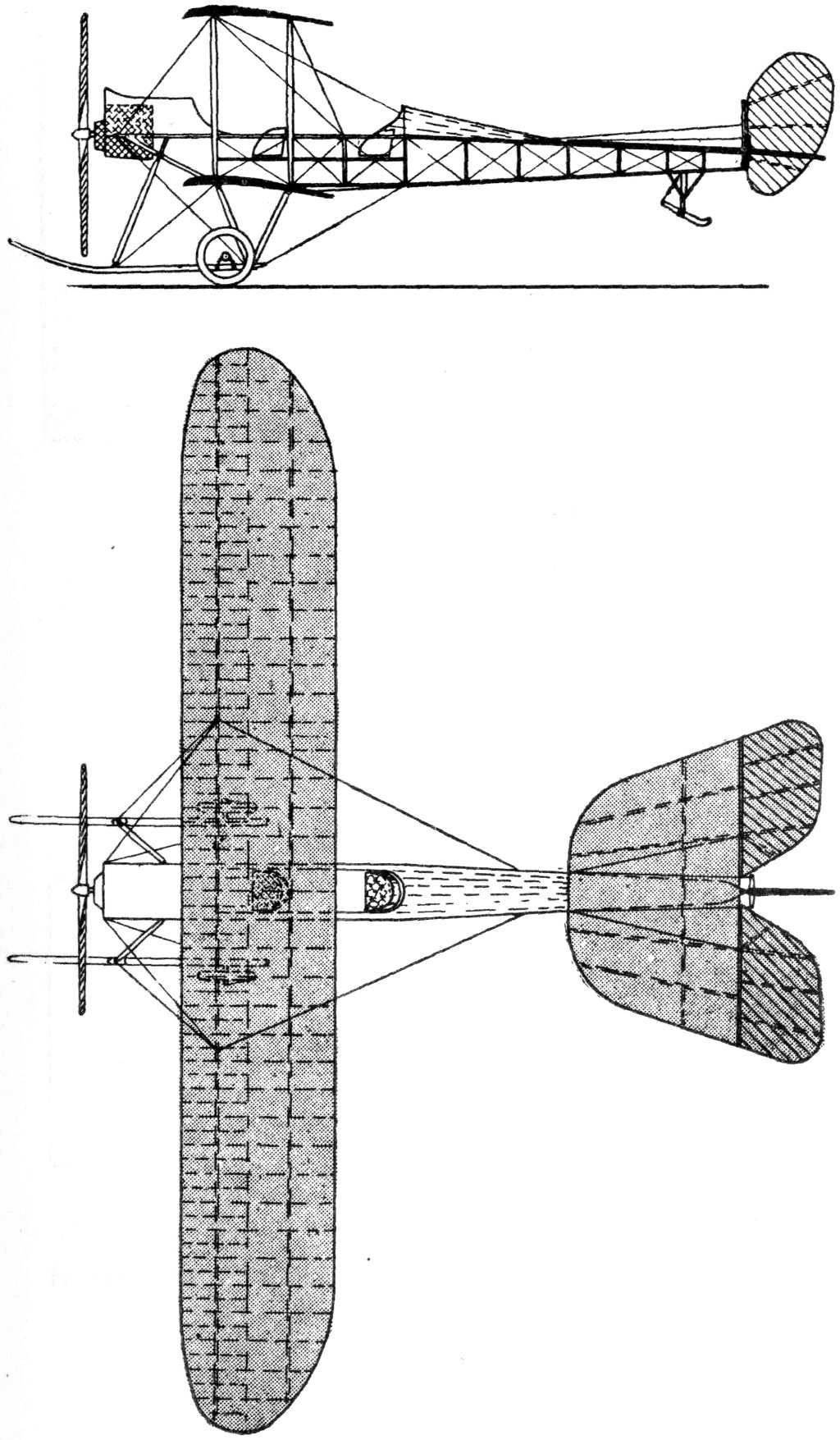
Length, 29½ feet (9 m.)
Span.—36¾ feet (11.20 m.)
Area.—374 sq. feet (34¾ m².)
Weight.—
Motor.—75 h.p. Renault and others.
Speed.—
St. James' Street, Norwich Union Buildings, Piccadilly, London, S.W. Established 1912 for the sale of all parts and accessories; also for the sale of second hand aeroplanes and motors of all makes. Does not construct at present.
47, Victoria Street, London, S.W. Works: Hendon, London, N.W. This company established in 1912, holds all the British rights for the H. & M. Farman types. It constructs in England all Farman types at its own works. (See Farman, French).
A. V. Roe & Co., Clifton Street, Miles Platting, Manchester; also Shoreham, Sussex. A. V. Roe designed his first machine, a biplane, in 1906. It was the first British machine to leave the ground. He then experimented with triplanes in Lea Marshes, where he managed to fly with only 9 h.p. in 1908-9. In August, 1910, built Roe III, and in September, Roe IV, also triplanes (see 1911 edition for full details). In 1911 he abandoned triplanes for the Avro biplane. School: Shoreham.

| Model. | D 1911-12. 2-seater biplane. | E 1912. 2-seater biplane. | F 1912. Totally enclosed mono. | G 1912-13. Totally enclosed biplane. | E 1912-13. Hydro-biplane. | |
|---|---|---|---|---|---|---|
| Length | feet (m.) | 31 (9.45) | 29 (8.84) | 23 (7) | 29 (8.84) | 33 (10) |
| Span | feet (m.) | 31 (9.45) | 36 (11) | 28 (8.50) | 36 (11) | 47½ (14.50) |
| Area | sq. ft. (m².) | 279 (26) | 335 (32) | 158 (14½) | 335 (32) | 478 (34½) |
| Weight | empty lbs. (kgs.) | 800 (363) | 900 (482) | 550 (249) | 1191 (540) | 1740 (789) |
| fully loaded, lbs. (kgs.) | ... | 1300 (589) | 800 (363) | 1700 (771) | 2700 (1224) | |
| Motor | h.p. | 35, any make | 50 Gnome | 40 Viale | 60 Green | 100 Gnome |
| Speed | m.p.h. (km.) | 48 (78) | 61 (97) | 65 (105) | 61.8 (100) | 55 (90) |
| Number built during 1912 | several | 6 | 1 | 1 | 1 | |
Remarks.—Of the above, 4 of the 50 Gnome E type were purchased by the British Royal Flying Corps, and one by the Portuguese Government; the other went to Windermere on January, 1913, for hydro experiments. Climbing speed of this type is 440 feet per min. (134 m.) Dual control fitted. D type are no longer being built. Climbing speed of F type, 300 feet per min. (91.5 m.) Gliding angle, 1 in 6. G has a gliding angle 1 in 6.5. On October 24th, 1912, made British record to date, 7'31½" (=450 miles). The hydro. was delivered to the British R.F.C. naval wing early in 1913.
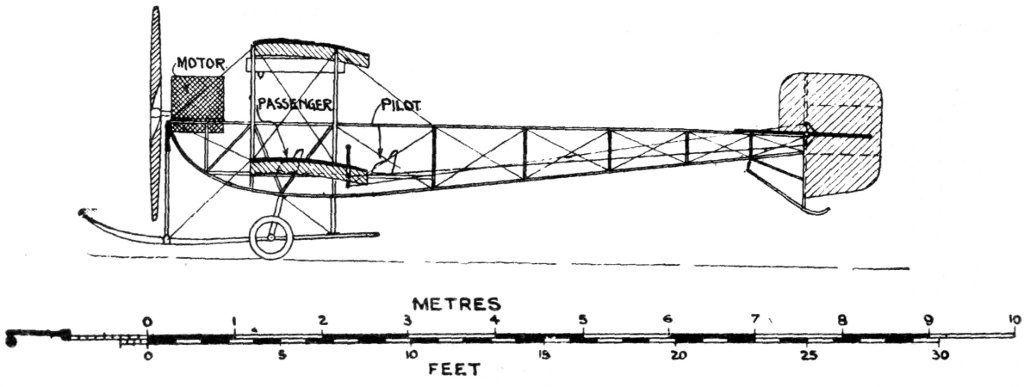
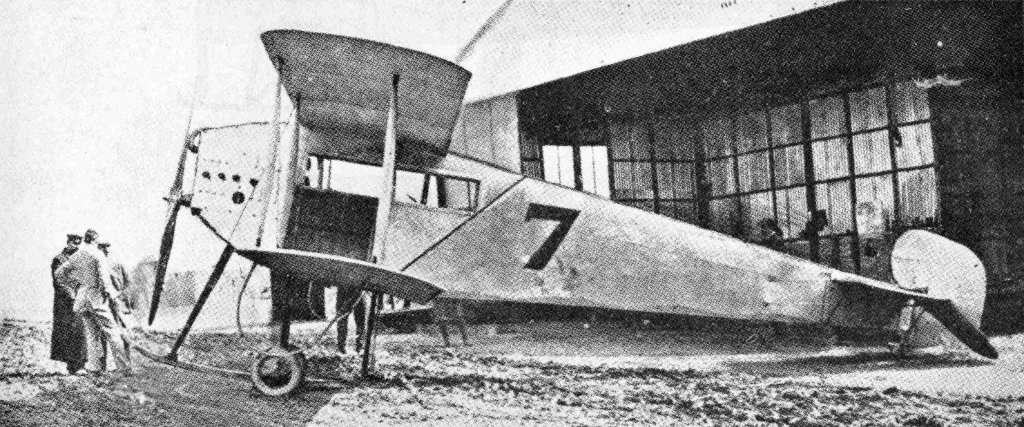
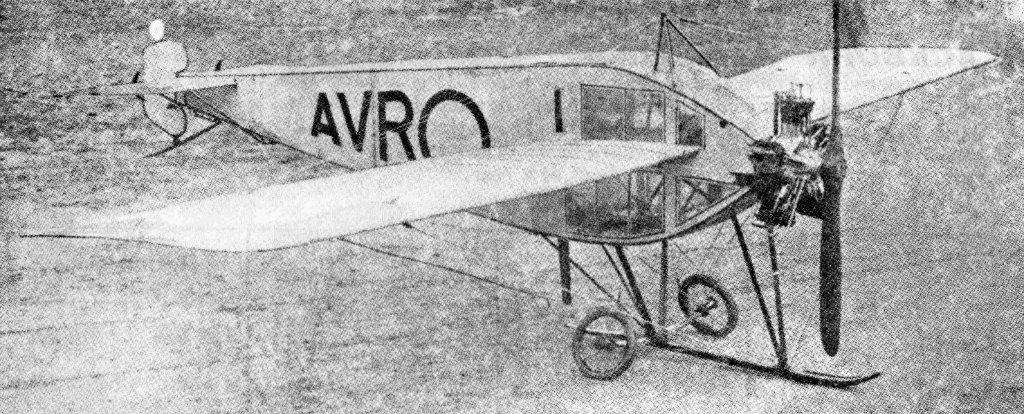
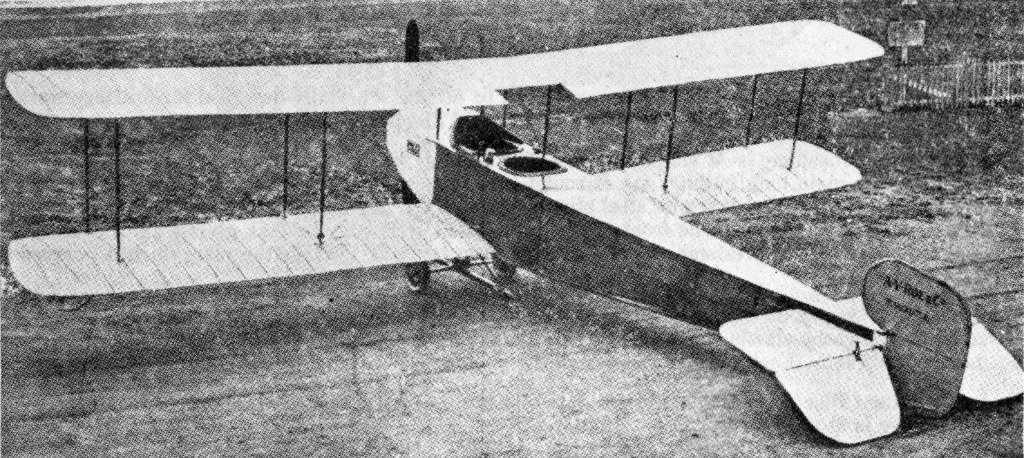
Blackburn Aeroplane Co., Balm Road, Leeds. Blackburn produced his first machine early in 1910 (see 1911 edition for details). In the latter part of that year he designed the machine which ultimately developed into the Blackburn military. In 1911 other types were produced, all being fitted with the patent Blackburn triple control. School at Filey Hucks has been the principal Blackburn flyer. The type has also been very successfully flown by naval officers. Capacity of works: about 24 a year.
| 1912-13. Military. 2-seater. | 1912-13. Military. 1-seater. | 1913. Hydro-biplane. 2-seater. | ||
|---|---|---|---|---|
| Length | 32 feet (9.75 m.) | 25 feet (7.60 m.) | 33 feet (10 km.) | |
| Span | 40 feet (12.20 m.) | 32 feet (9.75 m.) | 44 & 36 ft. (13.40 & 11 km.) | |
| Area | 276 sq. ft. (26 m².) | 195 sq. ft. (18 m².) | 410 sq. ft. (38 m².) | |
| Weight | (total) | ... | 750 lbs. (340 kgs.) | 1250 lbs. (507 kgs.) |
| Motor | h.p. | ... | 50 Gnome. | 80 Gnome or 100 Anzani |
| Speed | 55-65 m. (90-105 km.) | 60 m. (97 km.) | 65 m. (105 km.) | |
Notes.—Petrol for 5 hours (higher endurances can be fitted). Specially designed for military work—all steel construction. All parts unwelded to admit of rapid displacement. Clear observation provided for.
Fuselage.—The fuselage is V shaped and constructed of weldless steel tubing in the form of a lattice girder. The main longitudinals are of round section; cross members, oval section. Connections are not welded but made with strong steel clips so that should any member become damaged a new one can be readily arranged. The front portion is covered with sheet metal giving additional strength and reducing the head resistance. Stream line form tapering towards the rear which is covered with fabric.
Chassis.—Two long skids connected up to fuselage by metal struts. Each skid borne by a pair of wheels, axle held down by elastic shock absorbers. On the axle of the wheels are fitted steel springs which take side thrust. Each pair of wheels held by radius rods forming a bogie.
Control.—Patent Blackburn triple, independent or simultaneous on hand wheel, but special foot control for rudder is fitted if desired.
In 1912, five machines were built, of which two were of the mil. model. Others, non-military models (see last edition.)

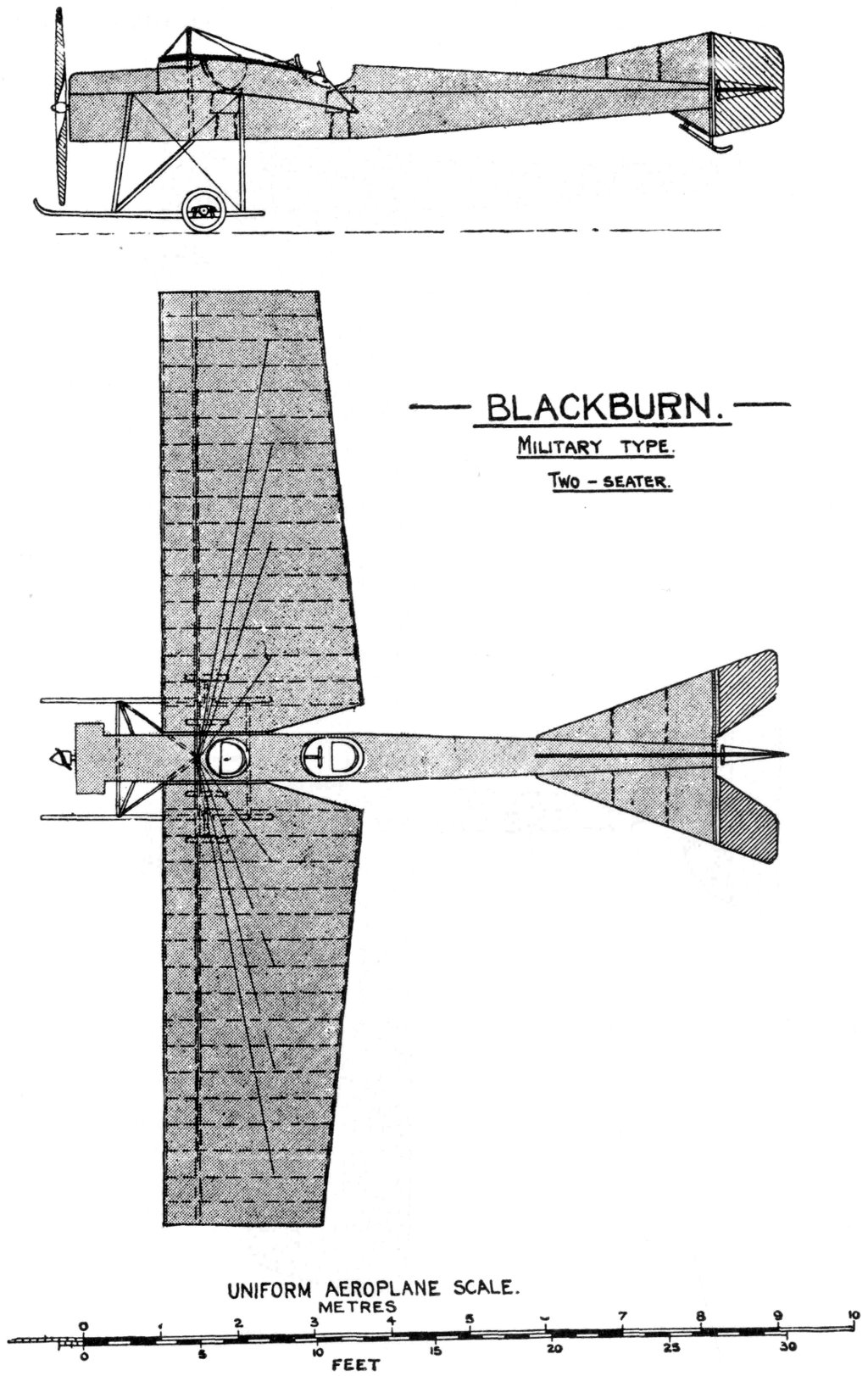
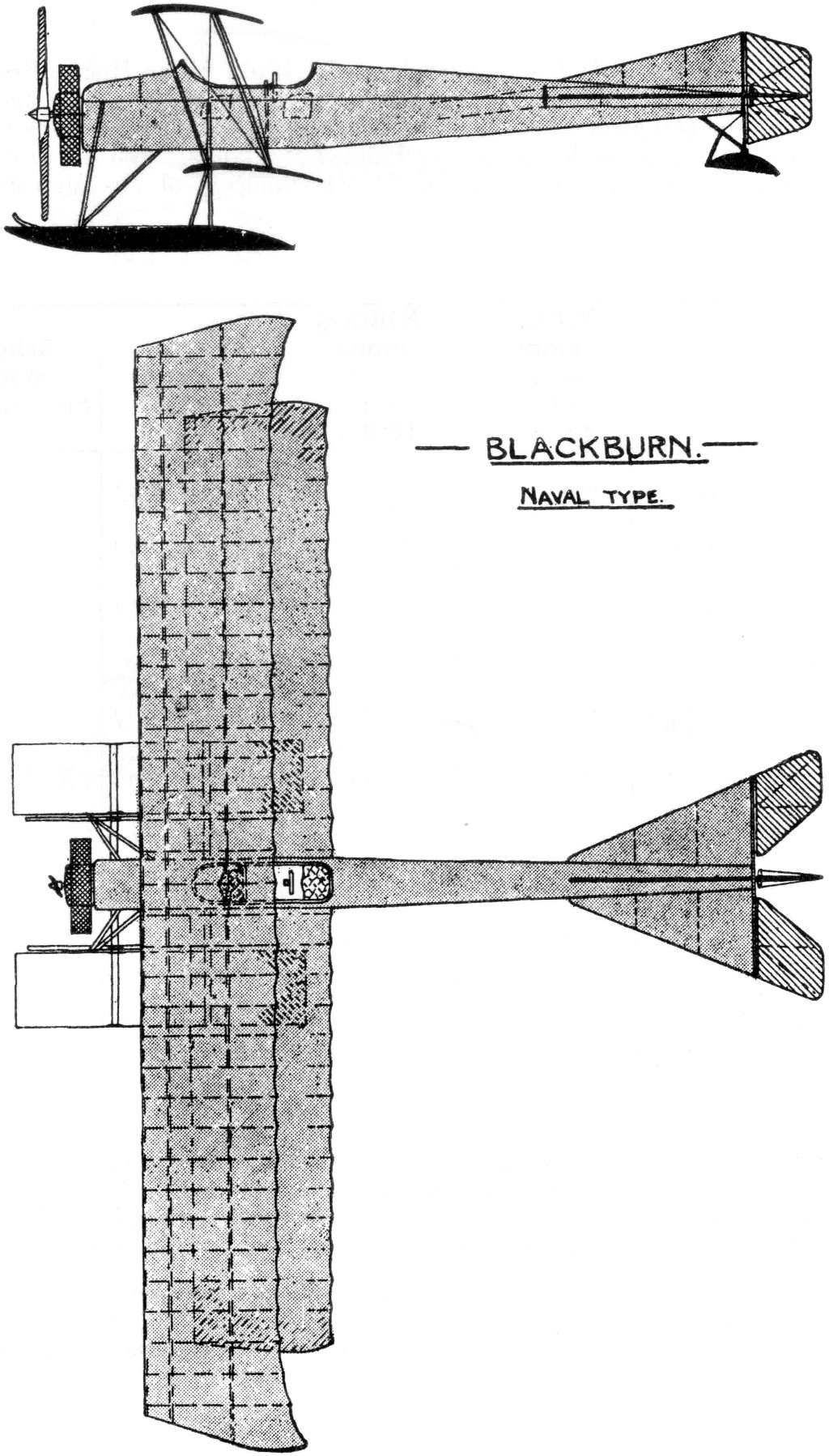
The British & Colonial Aeroplane Co., Ltd., Filton House, Bristol. Founded 1910. Capital (1913), ? Have very extensive works (area. ? sq. feet) on the outskirts of Bristol, employing over 300 men, where they manufacture to their own designs practically every type of flying machine. Flying grounds: Salisbury Plain, Brooklands. 105 Royal Aero Club certificates won on Bristol machines during 1912 (of which 86 were officers of His Majesty's Forces).
| Military mono. 2-seater 80hp 1912-13. | Military mono. 2-seater. 50h.p. 1912-12. | Tractor biplane 1913. | School mono. Side by side. | ||
|---|---|---|---|---|---|
| Length | feet (m.) | 28¼ (8.60) | 23-2/3 (7.20) | 27¾ (8.47) | |
| Span | feet (m.) | 42-1/3 (12.90) | 39-1/3 (12) | 34-1/3 (10.44) | |
| Area | sq. feet (m².) | 221 (20.6) | 226 (22) | 370 (34.4) | |
| Total | machine, lbs. (kgs.) | 1719 (771) | 1323 (600) | 1764 (800) | |
| weight | useful lbs. (kgs.) | 710 (322) | 551 (250) | 1200 (544) | |
| Motor | h.p. | 80 Gnome | 50 Gnome | 70 Renault | 50 Gnome |
| Speed | max. m.p.h. (km.) | 73 (118) | 62 (100) | 70 (112) | |
| min. m.p.h. (km.) | ... | ... | ... | ||
| Endurance | hrs. | 4 | 3-4 | ... | |
| Number built during 1912 | ... | ... | ... | ||
Notes.—Monoplane: Box section fuselage convex on bottom side to minimise resistance. Mounted on 2 wheels and 2 skids with smaller wheels attached at the forward end. Bristol tractor. Biplane: Box section fuselage, convex on top and bottom sides. Mounted as monoplane. Bristol tractor. This machine is the latest production of the Bristol Co., and has proved an exceptionally successful flyer. Designed by M. Coanda.
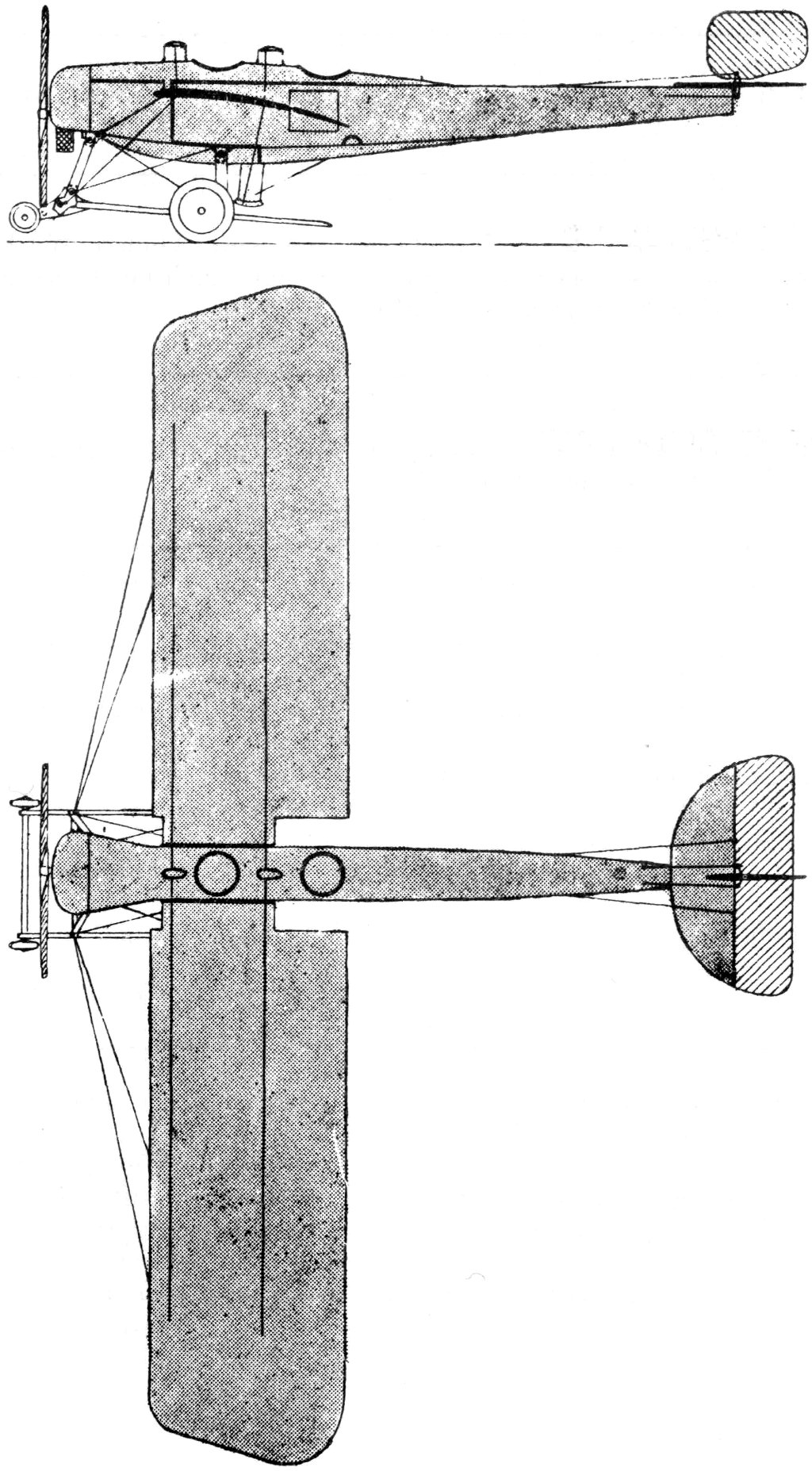 80 h.p. monoplane.
80 h.p. monoplane.
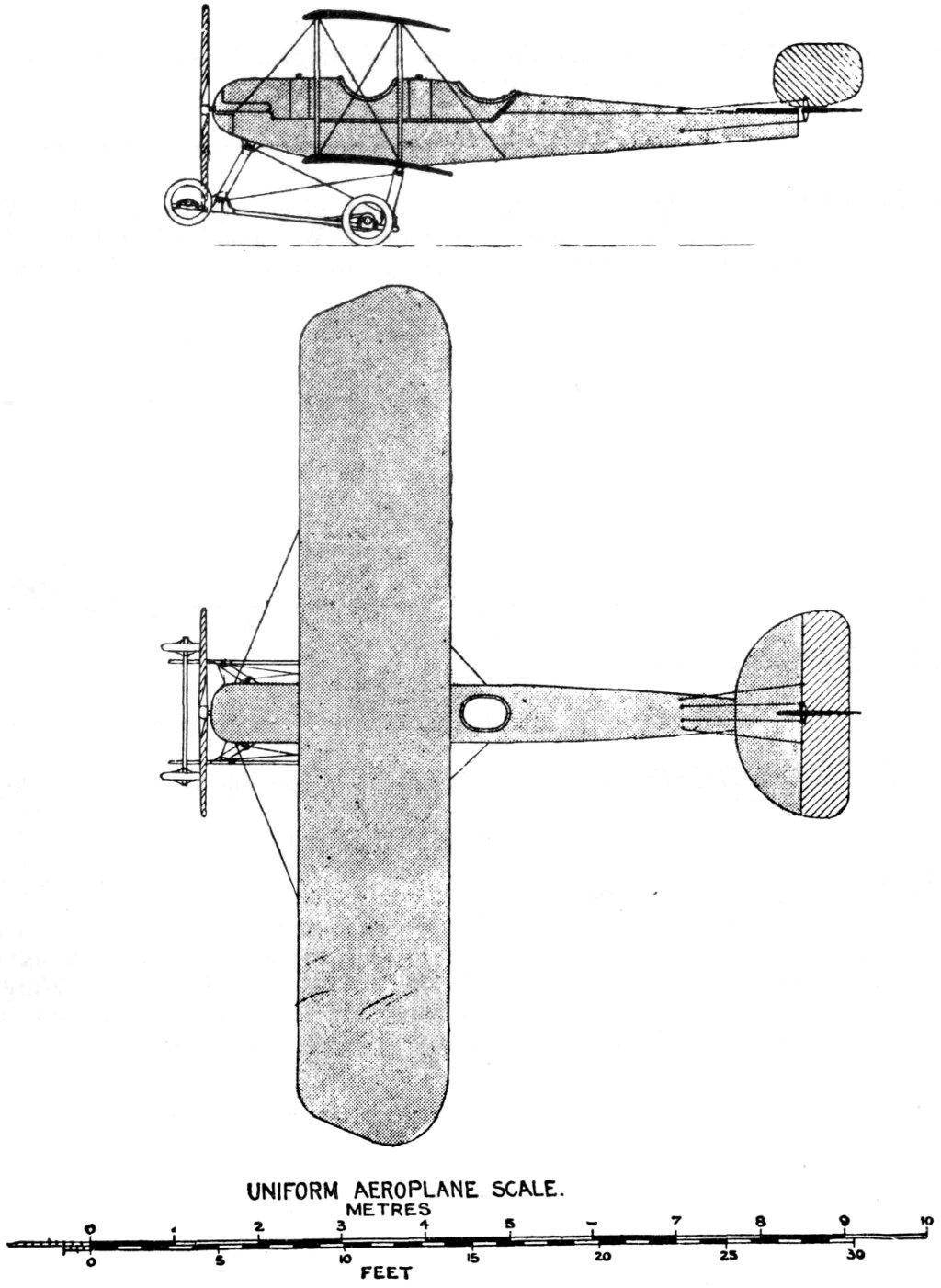 70 h.p. biplane. Uniform Aeroplane Scale
70 h.p. biplane. Uniform Aeroplane Scale
Belfast Chambers, 156, Regent Street, London, W. School: Hendon. British office of the Bleriot firm (see France).
1, Albemarle Street, Piccadilly, London, W. Works and offices: 5, Hythe Road, Cumberland Park, Willesden, London, N.W. Established 1912. Constructs in England Breguet models, some of which are beginning to vary in detail from the originals (see France).
(See Ewen.)
British Deperdussin Aeroplane Co., Ltd., 39, Victoria Street, Westminster, London, S.W. School: Hendon.
Chairman: Admiral The Hon. Sir E. R. Freemantle, G.C.B., C.M.G.
Managing Directors: Lieut. J. C. Porte, R.N., D. Laurence Santoni.
Secretary: N. D. Thompson.
This firm handles the French models of Deperdussins, but has in addition a special hydro-aeroplane of its own, of which one was built in 1912. Details of this special machine are:—Length, 27 feet 10 inches (8.50 m.) Span, 42 feet (12.80 m.) Area, 290 sq. feet (27 m².) Weight, total, 1,800 lbs. (816 kg.); useful, 1,250 lbs. (566 kg.) Motor, 100 h.p. Anzani. Speed, 67 m.p.h. (110 k.m.) Other models sold by the firm are of French type exactly (see France).
Handled by Aeros, Ltd., 39, St. James' Street, Piccadilly, London, S.W. Company forming March, 1913 (see France). Works and school at Shoreham.
(See Aircraft Co.)
Hewlett & Blondeau, Omnia Works, Vardens Road, Clapham Junction, London, S.W. Construct all types of Hanriot machines (see France), also build to private specifications, and deal in accessories generally.
Company forming 1913. Representative: M. Bonnier, 2, Goulders Green Crescent, London, N.W.
Cody flying school, Farnborough. Cody commenced experiments with kites in very early days on behalf of the British Admiralty. Subsequently built the first British Army dirigible, and an experimental Army aeroplane. In 1909, his direct connection with the Army ceased. A Cody I was built in 1908. A Cody II was completed June 1910. The special features of both were: very strong construction, great size (II had area of 857 sq. feet), ailerons. Later types, except that warping is substituted for ailerons, do not differ very materially except in minor details. All wood construction.
| 1911. 4-seater biplane. | 1913. 4-seater biplane. | Model. May, 1912. Monoplane. | ||
|---|---|---|---|---|
| Length | feet (m.) | 38 (11.60) | 38 (11.60) | 38 (11.60) |
| Span | feet (m.) | 43 (13) | 43 (13) | 43½ (13.25) |
| Area | sq. feet (m².) | 484 (44¾) | 483 (44¾) | 260 (19) |
| Weight | total lbs. (kgs.) | 1900 (862) | 1900 (862) | 2400 (1088) |
| useful lbs. (kgs.) | 1000 (453) | 1000 (453) | 700 | |
| Motor | 60 Green, later a 100 Green | 120 Aust. Daimler | 120 Aust. Daimler | |
| Speed | max m.p.h. (km.) | 70 (115) | 75 (120) | 83 (135) |
| min m.p.h. (km.) | 47 (75) | 47 (75) | 58 (95) | |
| Number built to end of last year | 1 | 1 | 1 | |
Remarks.—The 1911 is the famous Cody, which, as a 60 h.p., won both Michelin 1911 prizes, and completed the Daily Mail circuit. As a 100 h.p. it won the 1912 Michelin cross-country. By the end of 1912 it is said to have flown a total of 7000 miles. The 1913 is practically a duplicate with a more powerful engine. Special features of the biplanes, maximum camber to lower plane. Both planes equal span. Very strong landing gear. Propeller chain driven: 1¾ to 1 gearing. In February, 1913, four biplanes were ordered for the British Army.
Cody lists a mono. for 1913 a trifle longer than the above; also five variations on the biplane of from 35 to 160 h.p., which can be built if required.
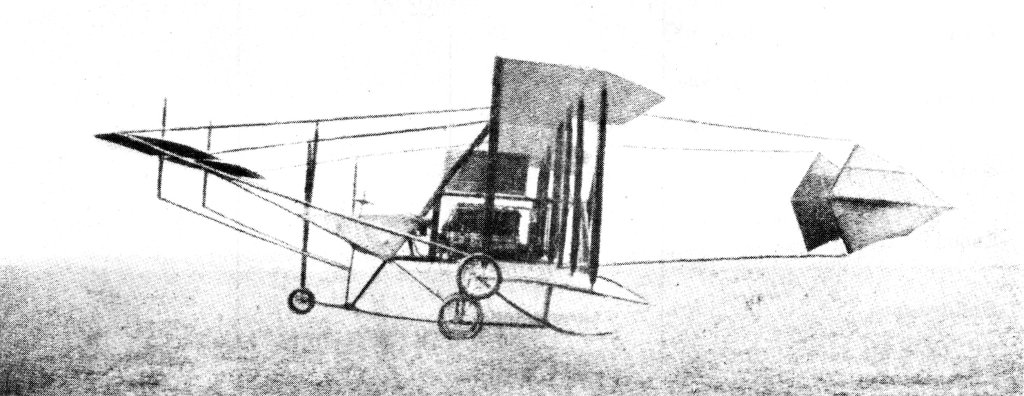 Biplane.
Biplane.
The Coventry Ordnance Works, Ltd., Coventry. London office: 28, Broadway, Westminster, S.W. Established 1912. Capacity: 50 machines a year without difficulty.
| 1912. Model 10. | ||
|---|---|---|
| Length | feet (m.) | 29 (8.80) |
| Span | feet (m.) | 56 (17) |
| Area | sq. feet (m².) | 630 (58) |
| Weight | total lbs. (kgs.) | 1900 (861) |
| useful lbs. (kgs.) | 800 (362) | |
| Motor | h.p. | 100 Gnome |
| Speed | max. m.p.h. (km.) | 60 (97) |
| min. m.p.h. (km.) | ... | |
| Endurance | hrs. | ... |
| Number Built during 1912 | 2 | |
Remarks.—Experimental machines.
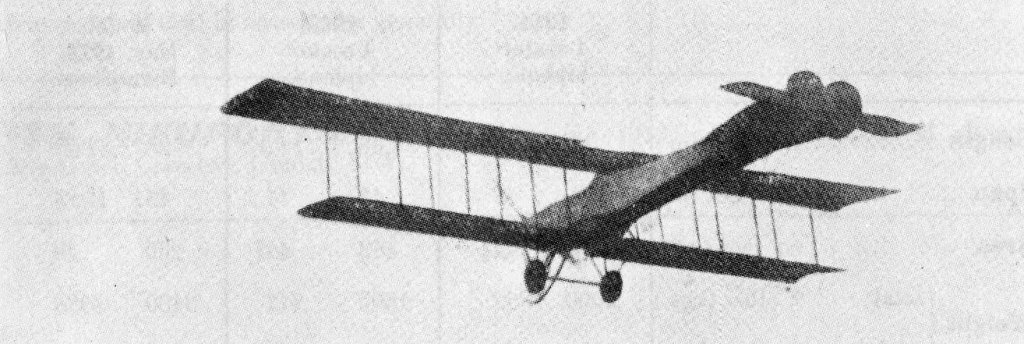
The Blair Atholl Aeroplane Syndicate, Ltd., 1, Queen Victoria Street, London, E.C. School: Eastchurch. In 1906 Lieut. Dunne was employed by the British Army authorities for secret aeroplane experiments. He had at that time patented a monoplane of < type. In 1907 Dunne I was tried on the Duke of Atholl's estate in Scotland, but failed to fly, being smashed on the starting apparatus. Dunne III, a glider, 1908, was experimented with successfully by Lieut. Gibbs. In the same year Dunne IV, a larger power driven edition made hops of 50 yards or so. Early in 1910 the War Office abandoned the experiments. Dunne II, a triplane of 1906 design, was, by consent of the War Office, assigned to Prof. Huntingdon, who made one or two short flights with it at Eastchurch in 1910. At the same time the above syndicate was formed, and Dunne V, built by Short Bros., was completed in June, 1910. In 1912-13 the Huntingdon, modified, was flying well.

| Model and Date. | 50 Gnome. 1912-13 single-seat mono. D 7. | 1912-13 2-seater mono. D 7 bis. | 1912-13 biplane. D 8. | 1912-13 biplane. D 9. | |
|---|---|---|---|---|---|
| Length | feet (m.) | not given | ... | ... | ... |
| Span | feet (m.) | 35 (10.66) | 35 (10.66) | 46 (14) | 45 (13.70) |
| Area | sq. feet (m².) | 200 (18.5) | 200 (18.5) | 552 (51) | 448 (42) |
| Weight | total lbs. (kgs.) | 1050 (476) | 1200 (544) | 1700 (771) | 1693 (768) |
| useful lbs. (kgs.) | 359 (161) | 528 (239) | 414 (187) | 509 (231) | |
| Motor | h.p. | 50 Gnome | 70 Gnome | 60 Green | 80 Gnome |
| Speed | m.p.h. (km.) | 60 (95) | 60 (95) | 45 (70) | 50 (80) |
| Number built during 1912 | 1 | 1 | 1 | 5 b'lding ('13) | |
Notes.—Biplane D 3 is identical with the original pattern Dunne V, except that it has only one propeller instead of two. It has been flown completely uncontrolled in a 20 m.p.h. wind, carrying a R. Ae. C. observer as passenger.
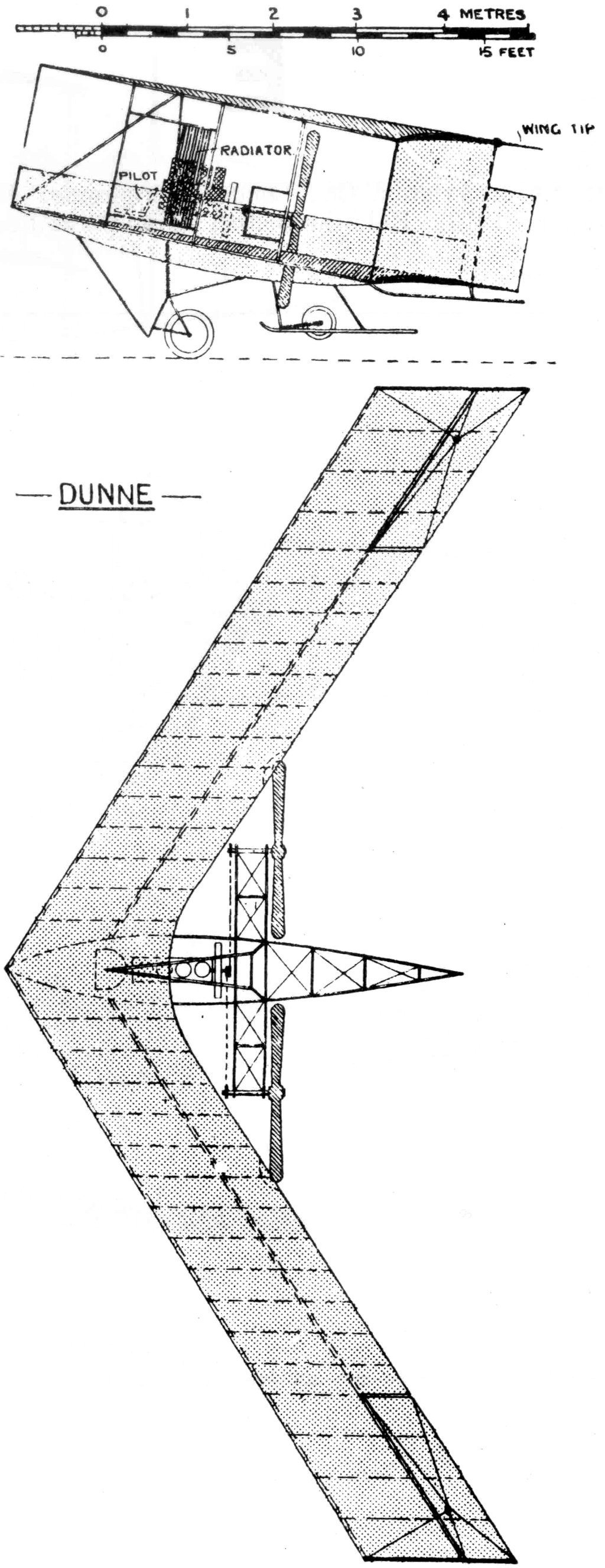
The W. H. Ewen Aviation Co., London Aerodrome: Hendon. Also works at Lanark, Scotland (opened February, 1913). Hold the British rights for and construct at their works Caudron aeroplanes (see France).
J. B. Ferguson, Ltd., Belfast.

This machine first appeared in 1910. Owing to an accident to Mr. Ferguson it was laid up for a long time. About the end of 1912 it re-appeared. Principal details:—
Span.—40 feet (12.20 m.) Area.—230 sq. feet (21 m².) H.P. 40.
The Grahame-White Aviation Co., Ltd., 166 Piccadilly, London, W. Works and Flying Ground: Hendon. Founded by C. Grahame-White, the well-known aviator, who in 1909 commenced operations with a school at Pau. Later this was removed to England, and a general agency for the sale of aeroplanes, etc., established. This developed, and early in 1911 the firm was handling a special British agency for the U.S. Burgess type known as "The Baby." The Hendon Aerodrome was acquired, and a factory established, which has grown continually ever since. In April, 1912, a monoplane to special design was completed. By the close of the same year biplanes of advanced design were constructed. Capacity of the works, March, 1913, was equal to 150 machines a year if necessary.
| 1913. Military biplane. Type VI. 2-seater. | 1913. "Popular" biplane. Type VII. 1-seater. | 1913. "Popular" biplane. Type VII. 2-seater. | 1913. Tractor hydro-biplane. Type VIII. 2-seater. | 1913. Monoplane. Type IX. single-seat. | ||
|---|---|---|---|---|---|---|
| Length | feet (m.) | 33¼ (10.10) | 20-5/6 (6.40) | 26-5/6 (8.22) | 25 (7.60) | 21 (6.40) |
| Span | feet (m.) | 42 (12.80) | 29-1/6 (8.85) | 38 (11.60) | 42½ (13) | 32 (9.75) |
| Area | sq. feet (m².) | 435 (40½) | 230 (21) | 475 (44) | 380 (35) | 208 (19) |
| Weight | total lbs. (kgs.) | 2200 (997) | ... | ... | 850 (385) | ... |
| useful lbs. (kgs.) | 750 (340) | 450 (204) | ... | |||
| Motor | 120 Aust. Daimler | 50 Gnome | 50 Gnome | 80 Gnome | 50 Gnome | |
| Speed | max. m.p.h (k.p.h.) | 70 (110) | 60 (95) | 50 (80) | 65 (105) | 65 (105) |
| min. m.p.h (k.p.h.) | 55 (90) | 50 (80) | 40 (65) | 50 (80) | ... | |
| Endurance | hrs. | 6 | 4 | 4 | 4 | 4 |
| Number built during 1912 | 1 | ... | ... | 1 | ... | |
| Also built with a 90 Aust. Daimler. Designed to carry a gun on the bow. Very good view. Very strong landing carriage. | Also built with a 35 | Also built with a 60 | Also built with a 35 Anzani. Two main floats with 12½ ft. track. Floats are 15 ft. long, 2 ft. wide, 1 ft. 3 in. deep. | |||
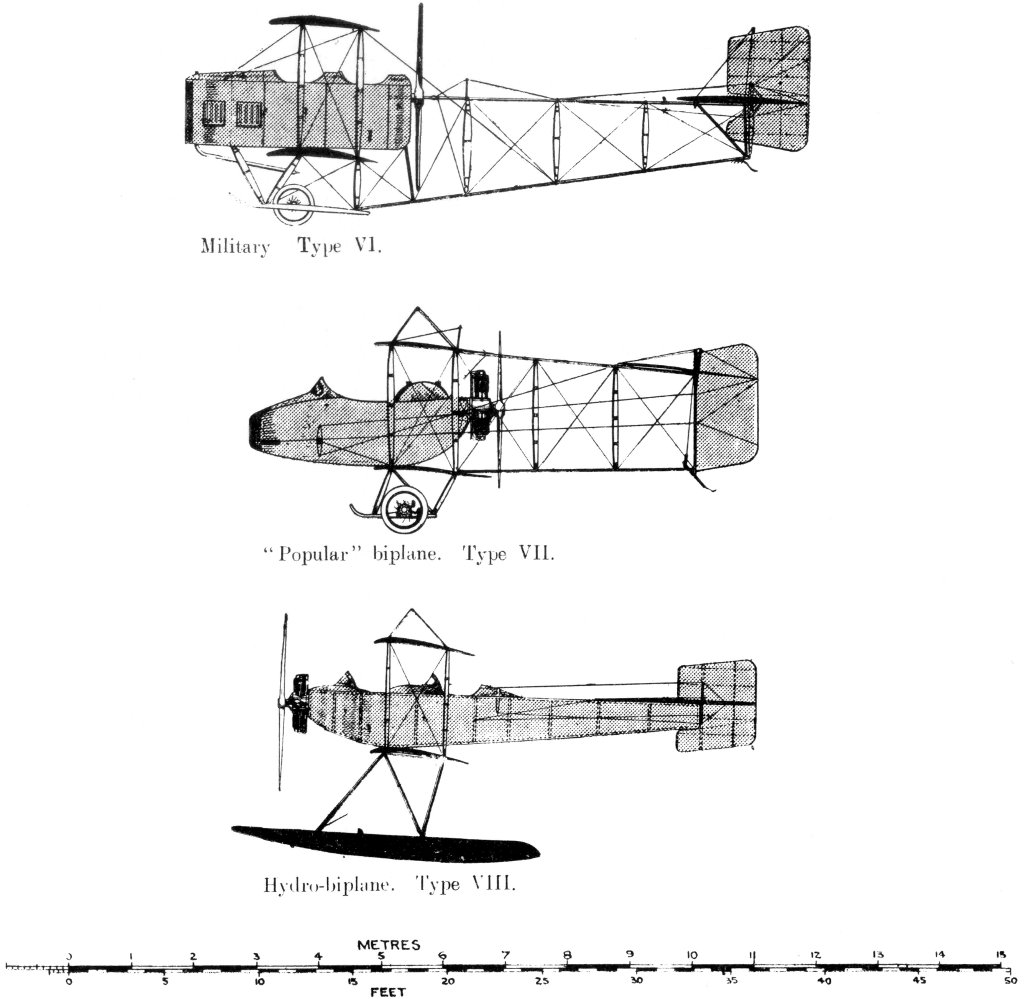
L. Howard-Flanders, Ltd., 31, Townsend Terrace, Richmond, Surrey. School: Brooklands. Established February, 1912, by Howard-Flanders, whose connection with aviation dates from the pioneer days. Richmond Works opened April, 1912. Capacity of the works at end of 1912 was sufficient to turn out from 25 to 35 machines a year.
| F 4 1912. 2-seater military monoplane. | B 2 1912. 2-seater biplane. | S 2 1913. single-seat monoplane. | F 5 1913. 2-seater monoplane. | B 3 1913. 2-seater monoplane. | ||
|---|---|---|---|---|---|---|
| Length | feet (m.) | 31½ (9.50) | 31½ (9.50) | 28 (8.50) | 31 (9.45) | 31 (9.45) |
| Span | feet (m.) | 40 (12) | 40 (12) | 35 (10.70) | 39 (11.90) | 40 (12) |
| Area | sq. feet (m²) | 240 (22) | 390 (36) | 190 (17¾) | 250 (23) | 390 (36) |
| Weight | total lbs. (kgs.) | 1850 (839) | 1500 (680) | 1180 (535) | 1600 (726) | 1650 (748) |
| useful lbs. (kgs.) | 500 (227) | 450 (204) | 350 (159) | 600 (272) | 600 (272) | |
| Motor | h.p. | 70 Renault | 40 A.B.C. | 80 Gnome | 80 Gnome | 80 Gnome |
| Speed | max m.p.h. (km.) | 67 (108) | 56 (90) | 82 (132) | 70 (115) | 68 (110) |
| min m.p.h. (km.) | 41 (66) | 38 (61) | 45 (73) | 42 (68) | 40 (65) | |
| Number built during 1912 | 4 | 1 | ||||
Remarks.—F 4 climbing speed 1000 feet (305 m.) in 3½ minutes, 1500 in 5½ mins., 2000 in 8 mins. B 2 climbing speed 200 feet (61 m.) per minute. The four F 4 type were bought by the British Army during 1912.

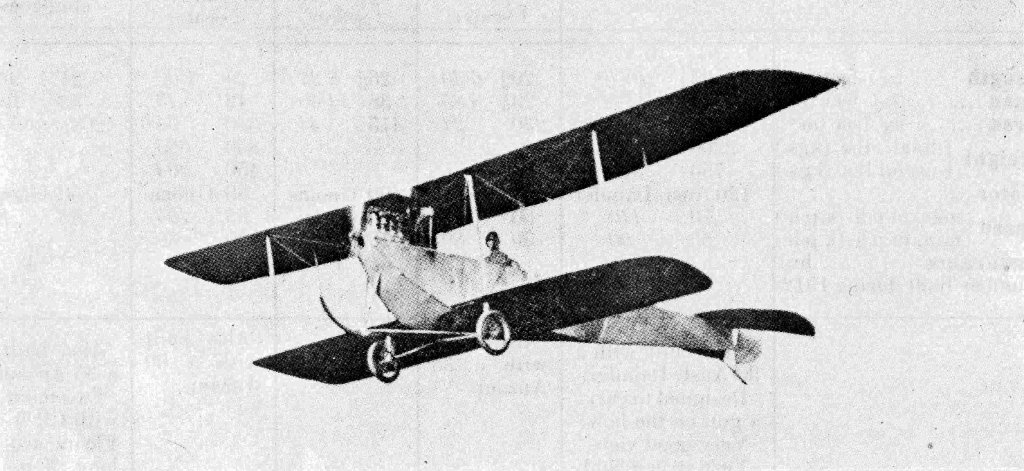
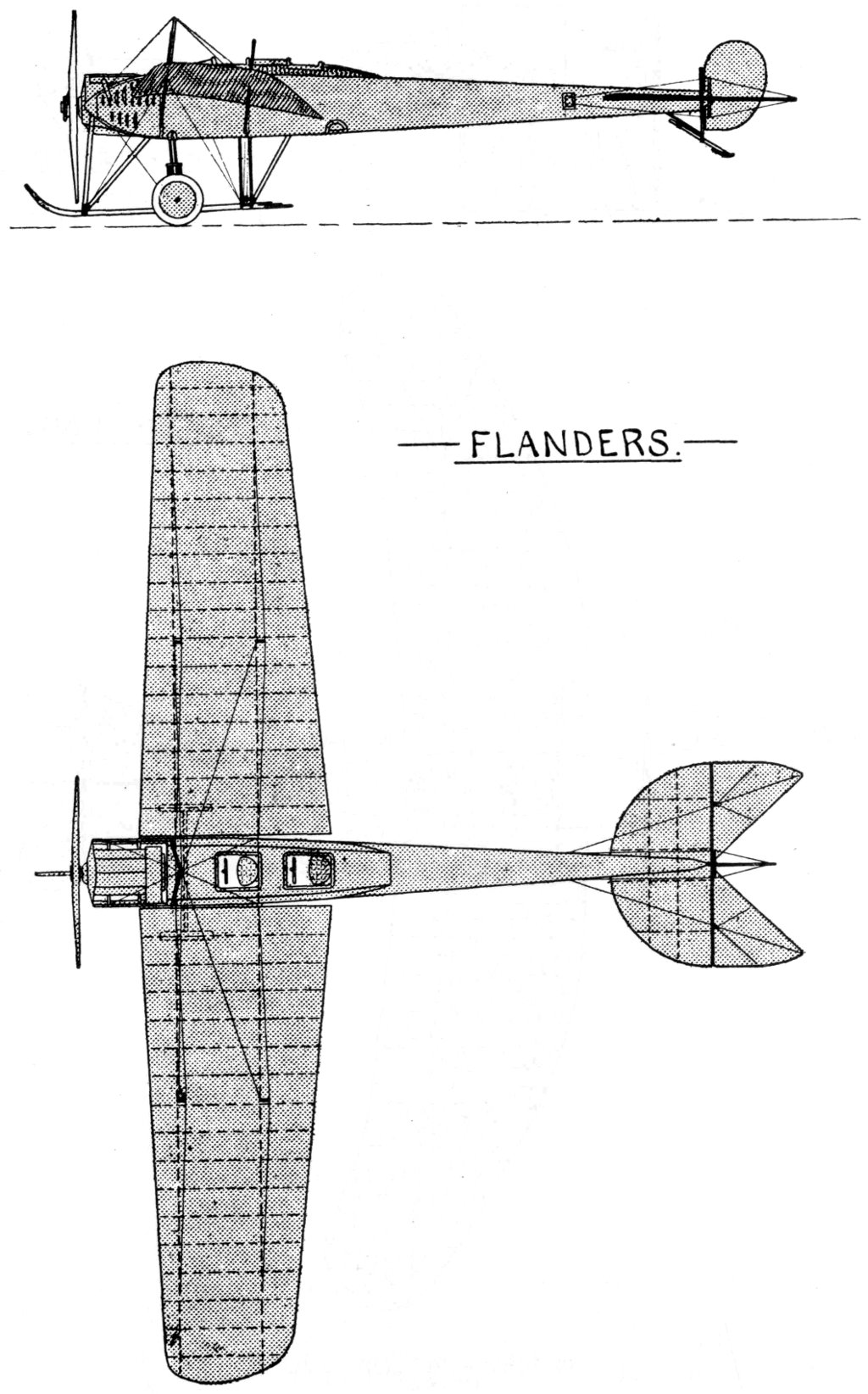
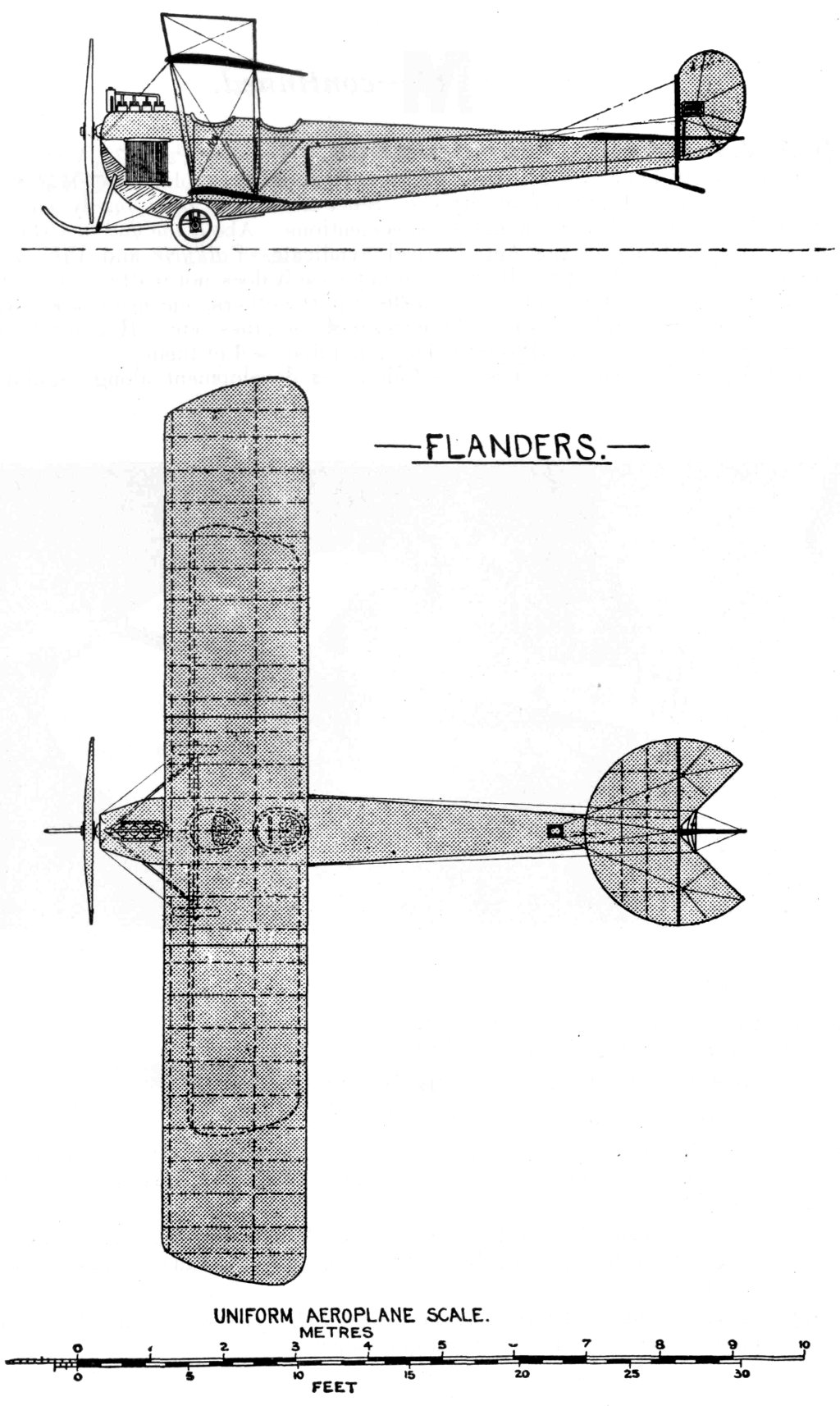
Handley Page, 72, Victoria Street, S.W. Works: 110, Cricklewood Lane, N.W. Flying ground: Hendon. Established at the end of 1908. In June, 1909, it was turned into a Limited Liability Co. Since then it has been busily employed in producing its own machines, also others to inventor's specifications. About the end of 1911 the firm bought up and sold all the machines of the Aeronautical Syndicate—Valkyrie and Viking types. It is doubtful whether any of these V type still exist—in any case it does not matter. Four were presented to the R. Flying Corps. Of these one was smashed up, the others, one army and two navy, were used to teach mechanics to take down and re-assemble engines, etc. Handley-Page also bought up the Radley-Moorhouse machines (Bleriot copies), and disposed of them.
The 1912-13 Handley-Page type is as follows—a development along regular lines of the original H.P. machine:—
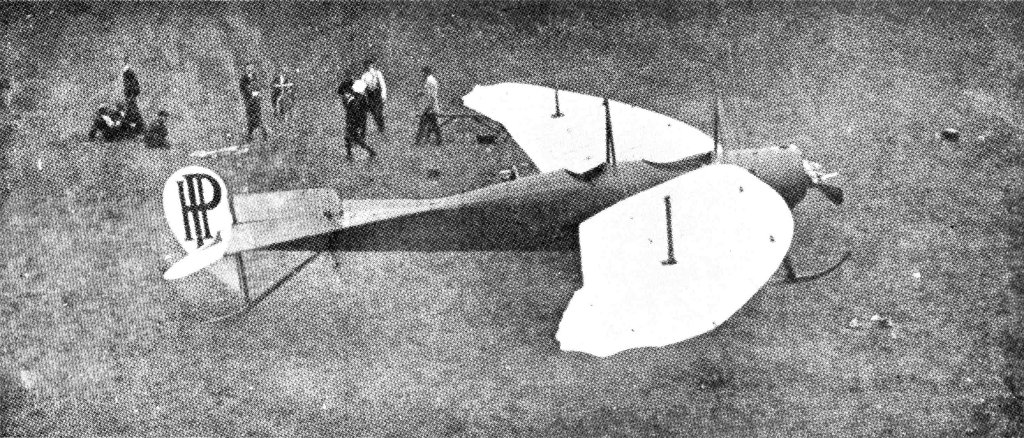
Length, 27½ feet (8.40 m.) span, 42½ feet (12.95 m.) area, 240 sq. feet. (22¼ m².)
Weight.—Total, 1300 lbs. (590 kgs.) Empty, 800 lbs. (363 kgs.)
Motor.—50 h.p. Gnome. Speed. 55 m.p.h. (90 km.)
Remarks.—The fixed tail area is 32 sq. feet. Body is entirely enclosed, stream line form. The passenger sits behind the pilot. Mounted on wheels and one long skid forward. Full description and details, Flight, 26th October, 1912.
Principal pilots have been the late E. Petre (who made in it the only flight through London), the late Lieut. Parke, R.N., S. Pickles, and L. R. Whitehouse. The machine has been flown with two passengers, in addition to the pilot.
Military work.—During 1912 five biplanes of the B.E. type were ordered by the British War Office. Several monoplanes were ordered by foreign governments.
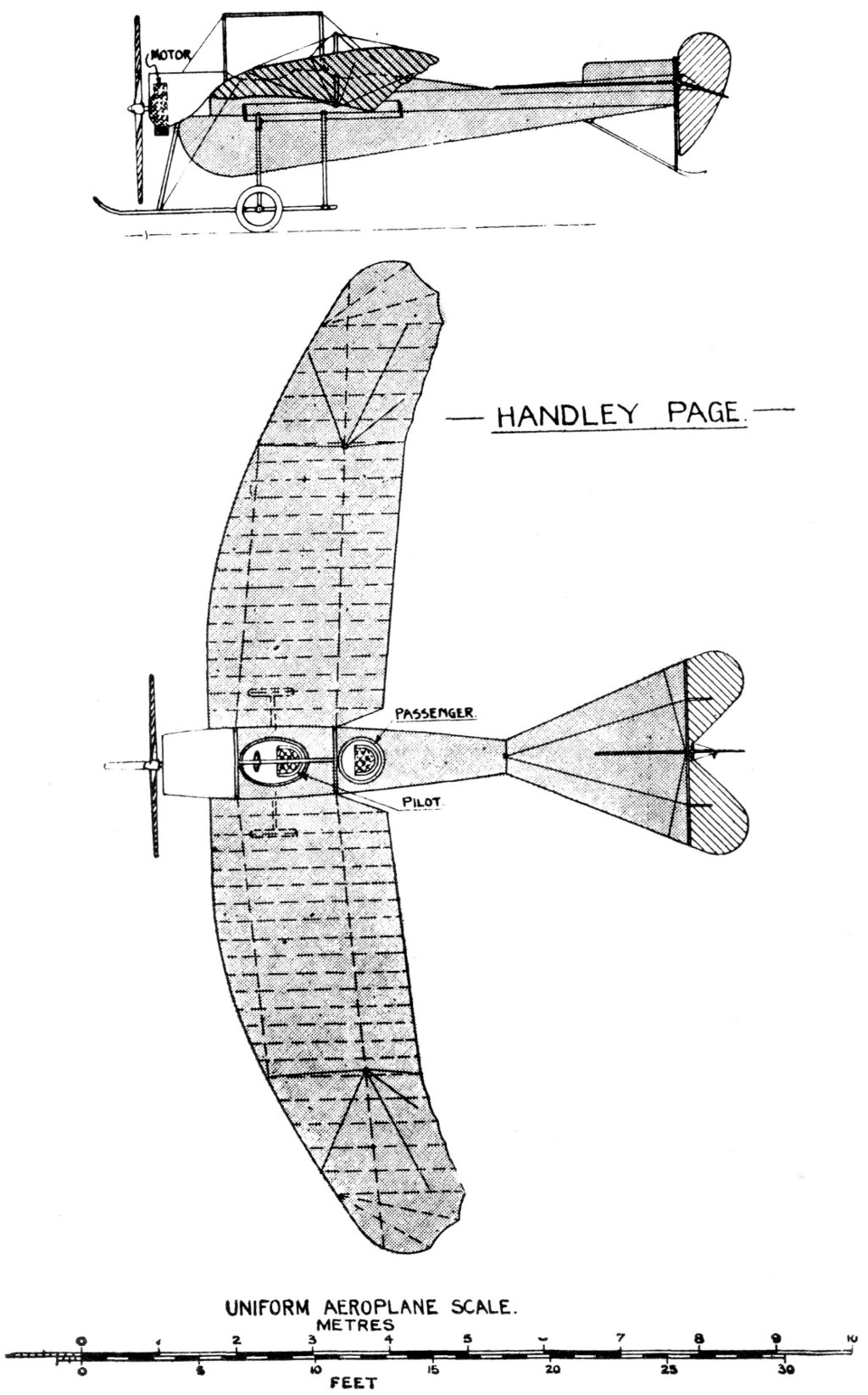
Windermere. Established 1911, by E. W. Wakefield, with a view to hydro-aeroplane experiments. The first machine was a Curtiss type built by A. V. Roe, which flew in November, 1911. In 1912, a special biplane generally of Farman type but with more camber to the planes, was built.

Length.—36½ feet (11 m.) Span.—42 feet (12.80 m.) Area.—270 sq. feet (25 m.²) Motor.—Gnome.
Speed.—45.33 m.p.h. (72.54 k.p.h.)
The single float is 6 feet wide, flexibly connected. Balancers mounted on a spring board. Water rudders for steering at slow speed. Fuller details see Flight, December 7th, 1912. Early in 1913, an Avro was purchased for further experiments.
Messrs. Martin & Handasyde, Brooklands, Weybridge, Surrey. Output capacity: about 20 per annum.
| Model and date. | 1912. Mono. 2-seater. | 1913. Mono. 2-seater. | |
|---|---|---|---|
| Length | feet. (m.) | 35½ (10.75) | 35 (10.65) |
| Span | feet. (m.) | 42½ (12.95) | 42¾ (13) |
| Area | sq. feet (m².) | 290 (27) | 285 (26½) |
| Weight | total lbs. (kgs.) | ... | 1212 (550) |
| useful lbs. (kgs.) | ... | 551 (250) | |
| Motor | h.p. | 65 Antoinette | 80 Laviator |
| Speed | max m.p.h. (km.) | 63 (102) | 78 (125) |
| min m.p.h. (km.) | ... | ... | |
| Number built during 1912 | ... | ... | |
Notes.—Wood construction. Landing: wheels and one skid. Controls: warping wings and rear elevator. Triangular body. The two models are very nearly identical.
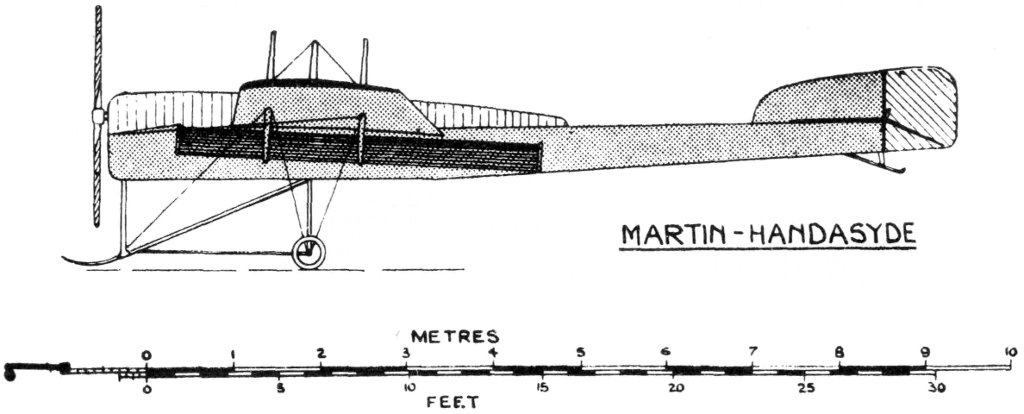 Uniform Aeroplane Scale
Uniform Aeroplane Scale
Piggott Bros. & Co., Ltd., 220, 222 & 224, Bishopsgate, London, E.C. This well-known firm of shed makers built a novel biplane in May, 1910 (details Flight, May 21st, 1910), and in 1911 a monoplane with enclosed body (Flight, April 1st, 1911). In 1912, both were disposed of, and the firm is not proceeding with its experiments. It has, however, a staff of skilled mechanics and a great deal of floor space for the construction of aeroplanes to specifications.
Planes, Ltd., 6, Lord Street, Liverpool. Works: Duke Street & Cleveland Street, Birkenhead. Not building at present. In October, 1910, the firm produced a biplane, designed by W. P. Thompson, fitted with a special pendulum stabilising device. This was followed a year or so later by a monoplane.
This is not an aeroplane firm, but a special hydro built by two well-known aviators for the Daily Mail competition. Length, 22 feet. Span, 50 feet. 2 floats, 15 feet long by 1 foot 5 inches wide. Pilot in starboard float. Weight, with petrol for 12 hours, 1,380 lbs. Motor, 150 h.p., made up of 3—50 h.p. Gnomes, but two Greens to be fitted for competition. One 4-bladed propeller in rear. Speed, 60 m.p.h., with 100 h.p.
This firm appears to have ceased to exist.[Pg 55]
Works and flying grounds: Eastchurch, Isle of Sheppey, Kent. London office: Queen's Circus, Battersea Park. Took up construction at a very early date. Wright agents in 1909. Have built numerous biplanes and monoplanes to specifications. Produced their own first machine (see 1911 edition) in 1910.
| S 41. 1913. Hydro Biplane. | S 45. 1913. Military Tractor Biplane. | S 38. 1913. Military Nacelle Biplane. | S 34. Standard School. | 1911-12. 1-seater, mono. | 1911-12. Tandem tractor biplane. | ||||||||
|---|---|---|---|---|---|---|---|---|---|---|---|---|---|
| 80 h.p. 2-seater. | 100 h.p. 2-seater. | 160 h.p. 4-seater. | 70 h.p. 2-seater. | 80 h.p. 2-seater. | 160 h.p. 4-seater. | 50 h.p. 2-seater. | 80 h.p. 3-seater. | 50 h.p. 2-seater. | 70 h.p. 2-seater. | ||||
| Length | feet (m.) | 35 (10.67) | 39 (11.90) | 45 (13.70) | 35-1/2 (10.80) | 35-1/2 (10.80) | 40 (13.70) | 35-1/2 (10.80) | 35-1/2 (10.80) | 42 (12.85) | 42 (12.85) | 25 (7.60) | 35-1/2 (10.80) |
| Span | feet (m.) | 40 (13.70) | 50 (15.25) | 50 (15.25) | 42 (12.90) | 45 (13.70) | 50 (15.25) | 52 (15.85) | 52 (15.85) | 46-1/2 (14.20) | 46-1/2 (14.20) | 29-1/2 (9) | 42 (12.90) |
| Area | sq. feet (m².) | 390 (36) | ... | ... | ... | ... | ... | ... | ... | ... | ... | 186 (17) | ... |
| Weight | Machine lbs. (kg.) | 1200 (545) | 1700 (764) | 2000 (909) | 1080 (490) | 1100 (500) | 1890 (860) | 950 (432) | 1050 (480) | 1100 (500) | 1150 (523) | ... | 850 (385) |
| Useful lbs. (kg.) | 771 (350) | ... | ... | ... | ... | ... | ... | ... | ... | ... | ... | ... | |
| Motor | h.p. | 80 Gnome | 100 Gnome | 160 Gnome | 70 Gnome | 80 Gnome | 160 Gnome | 50 Gnome | 80 Gnome | 50 Gnome | 70 Gnome | 50 Gnome. | 70 Gnome. |
| Speed | max (m.p.h.) | 65 (105) | 60 (97) | 74 (120) | 60 (97) | 70 (113) | 74 (120) | 42 (68) | 58 (94) | 39 (63) | 48 (78) | ... | 58 (94) |
| min (m.p.h.) | 50 (80) | 50 (80) | 56 (90) | 50 (80) | 50 (80) | 56 (90) | 35 (57) | 39 (63) | 34 (55) | 38 (61) | ... | ... | |
| Endurance | hrs. | 4 | 5 | 6 | 5 | 5 | 6 | 4 | 5 | 4 | 5 | 5 | 5 |
| Number built during 1912 | ... | ... | ... | ... | ... | ... | ... | ... | ... | ... | ... | ... | |
| Remarks.--Floats are two long pontoons. Subsidiary floats at tips of lower plane. Small tail float with water rudder. W.-t. compartments to floats. Tandem seated, pilot in front. The observer's seat can accommodate two if necessary. | Tandem seats, pilot in front. Fittings for maps, etc. | Specially designed for reconnaissance. Tandem seats, pilot in front. An extra passenger can be accommodated. | Solely designed for school work. Seats side by side. | No longer built, but still in existence. | |||||||||

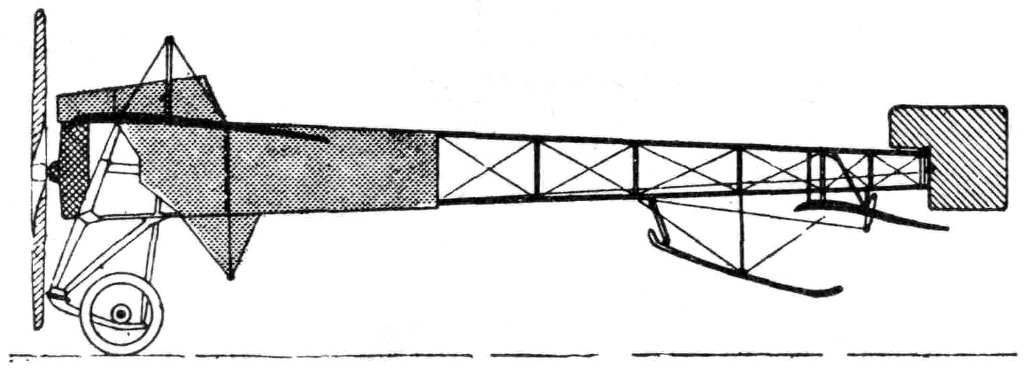
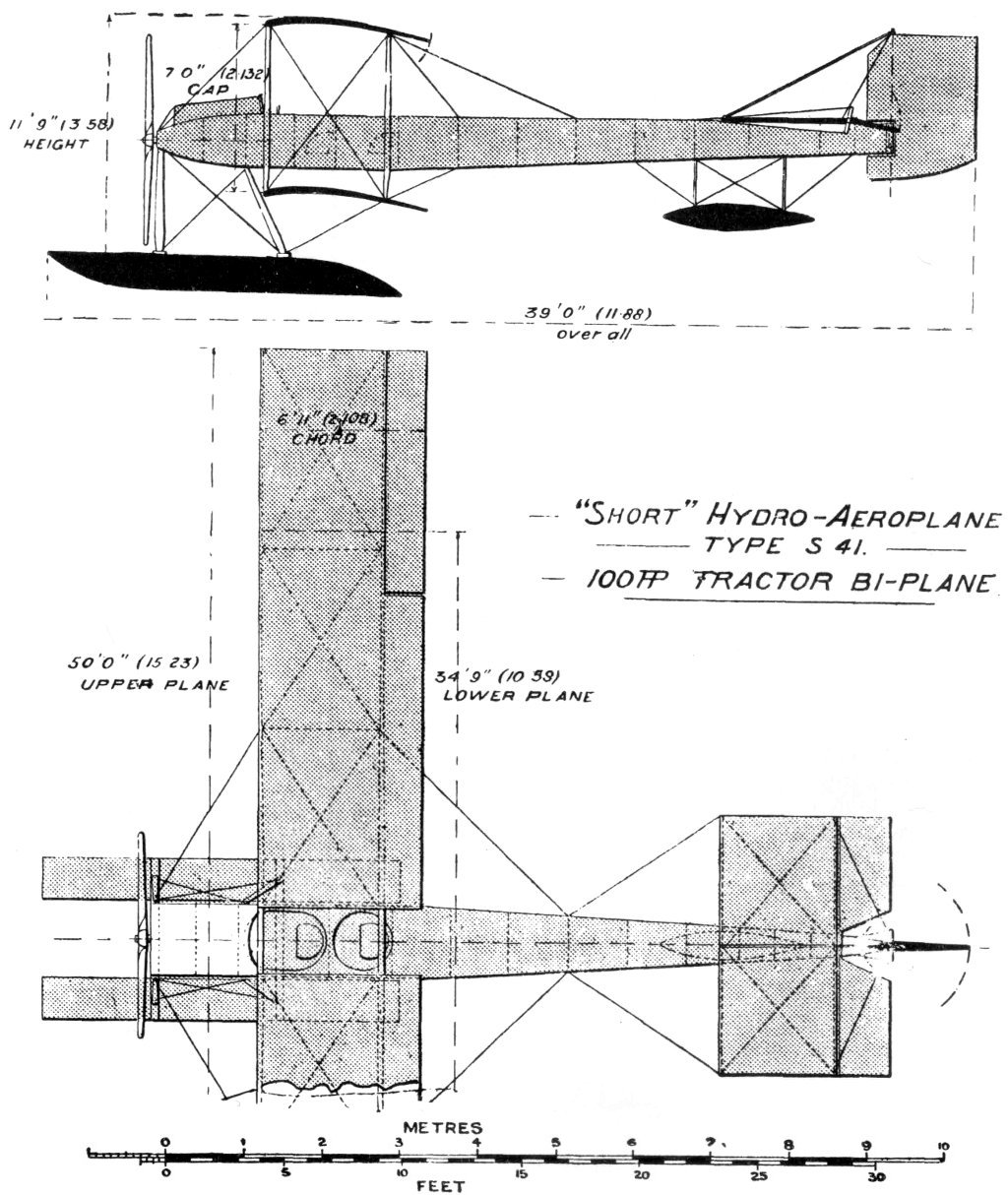



Sopwith Aviation Co. Works: Canbury Park Road, Kingston-on-Thames. School: at Brooklands. Established by T. O. M. Sopwith, the well known aviator at Brooklands, Autumn of 1911, where during 1912, a 70 h.p. tractor biplane and a 40 h.p. biplane was turned out.
Floor area of the Kingston works in March, 1913, was 30,000 sq. feet with electric power plant. Works manager: F. Sigrist. General manager: R. O. Cary. Output capacity: at full pressure about 50 machines a year.
| Model and Date. | 1913. Bat boat hydro biplane. |
1913. Tractor biplane 3-seater. |
1913. School biplane. |
1913. Armoured warplane. | |
|---|---|---|---|---|---|
| Length | feet (m.) | 30-1/3 (9.20) | 29 (8.85) | 29 (8.85) | 29' 7-1/2" (9) |
| Span | feet (m.) | 41 (12.50) | 40 (12.20) | 40 (12.20) | 50 (15.25) |
| Area | sq. feet (m².) | 422 (39) | 365 (34) | 400 (37) | 552 (51) |
| Weight | total lbs. (kgs.) | 1700 (771) | 1750 (794) | 1200 (544) | 2000 (907) |
| useful lbs. (kgs.) | 500 (227) | 750 (340) | 400 (181) | 800 (362) | |
| Motor | h.p. | 90 Austro-Daimler | 80 Gnome | 50 Gnome | 90 Austro-Daimler |
| Speed | max. m.p.h. (km.) | 65 (105) | 74 (125) | 48 (78) | 65 (105) |
| min. m.p.h. (km.) | 42 (68) | 40 (65) | 35 (60) | 38 (61) | |
| Endurance | hrs. | ... | ... | ... | ... |
Notes.—Wood construction. Carriage wheels and skids. Control: balanced ailerons.
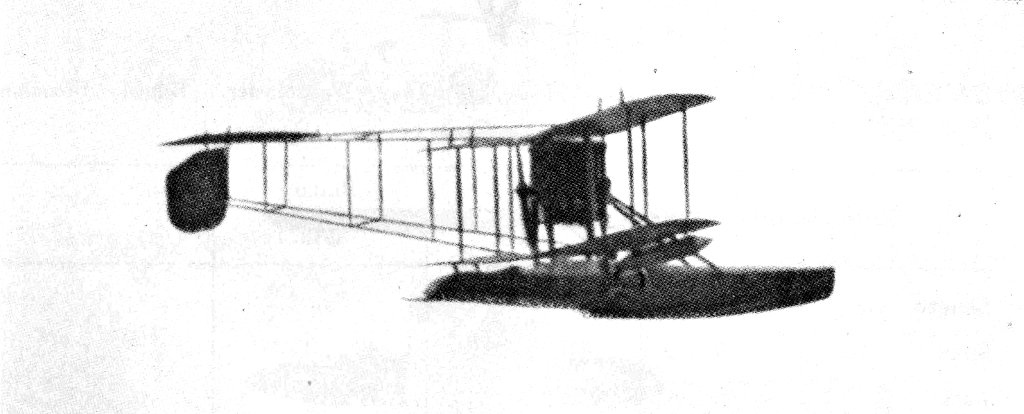
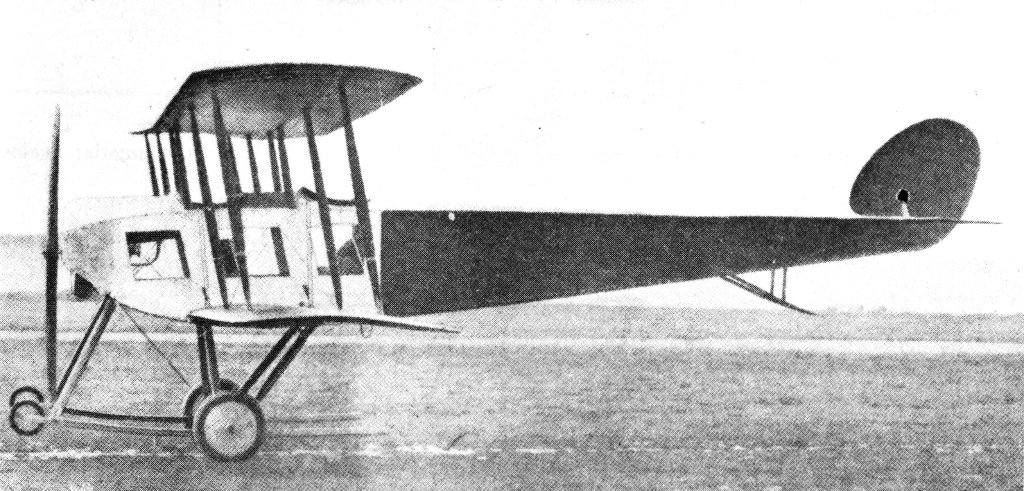
Vickers, Ltd., Vickers House, Broadway, Westminster. School: Brooklands. Seven pupils qualified during 1912.
| Model and date. | Monoplane. 1912-13. 2-seater. | Military biplane. 1913. | |
|---|---|---|---|
| Length | feet (m.) | 25 (7.60) | ... |
| Span | feet (m.) | 34-1/2 (10.50) | 40 (12.20) |
| Area | sq. feet (m².) | 220 (20) | 385 (35) |
| Weight | {total, lbs. (kgs.) | 730 (331) | ... |
| {useful, lbs. (kgs.) | ... | ... | |
| Motor | h.p. | 80 Gnome | 80 Wolseley |
| Speed | m.p.h. (km.) | 70 (115) | ... |
| Endurance | hrs. | 3 | ... |
| Number built during 1912 | ... | ... | |
Notes.—Steel construction. Landing shock absorbing: 2 wheels and 1 skid. Rectangular enclosed body. Controls: warping and rear elevator.
Monoplane climbs 300 feet a minute fully loaded.
Biplane is armed with a Vickers R.C. automatic gun in the bow.
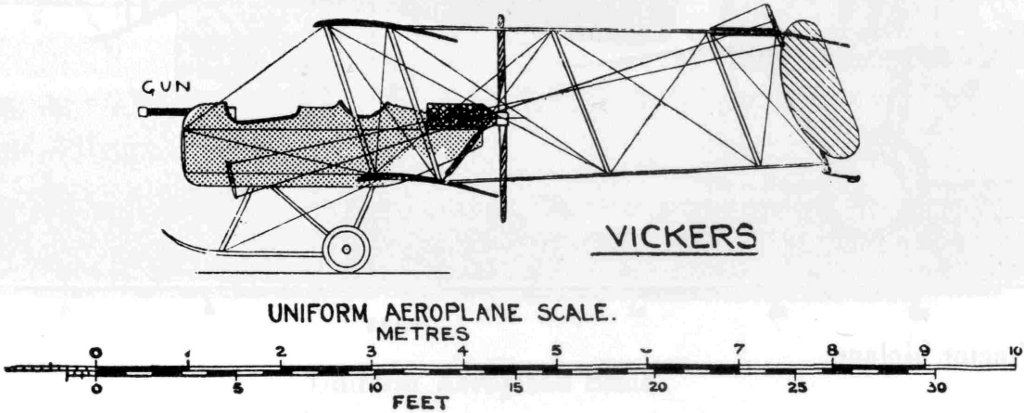
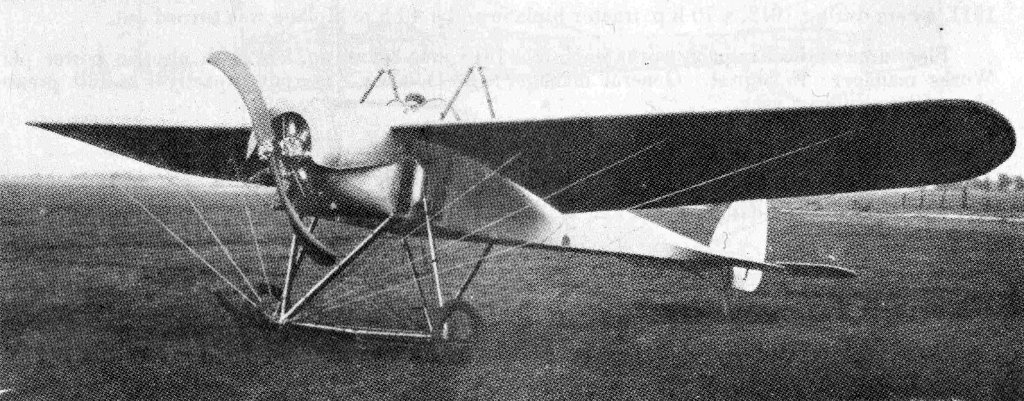
J. Samuel White & Co., Ltd., shipbuilders and engineers, East Cowes, Isle of Wight. London office: 28, Victoria Street, S.W. This well-known firm of torpedo craft builders, etc., formally opened an aviation department on 1st January, 1913, with Howard T. Wright as general manager and designer.
| 1913. Navy 'plane. | ||
|---|---|---|
| Length | feet (m.) | 30 (9.15) |
| Span | feet (m.) | 44 (13.40) |
| Area | sq. feet (m².) | 500 (46-1/2) |
| Weight | total lbs. (kgs.) | 2000 (907) |
| useful lbs. (kgs.) | 650 (295) | |
| Motor | h.p. | 160 Gnome |
| Speed | max. m.p.h. (km.) | 70 (115) |
| min. m.p.h. (km.) | 35 (57) | |
| Number built | ... | |
Remarks.—Hydro-biplane, with Howard T. Wright patent aeroplanes to give wide range of speed. Two patent hydro floats, 21 feet (m.) long, three steps on each.

| Navy. | Army. | |||||
|---|---|---|---|---|---|---|
| Name and date. | II Willows 3. 1911. | III Astra Torres 2. 1913. | IV Parseval 18. 1913. | II BETA. 1909 (1910.) | III, & IV & V GAMMA, DELTA, EPSILON. 1910, 1912, 1913. |
|
| Volume | c. feet (m³.) | 31,800 (900) | 222,500 (6,500) | 311,000 (8,800) | 21,000 (594) | 70,600 (2,000) |
| Length | feet (m.) | 120 (36.50) | ... | 276 (84) | 104 (31.70) | 152 (46) |
| Diameter | feet (m.) | 40 (12.20) | ... | 49¼ (15) | 25 (7.60) | 30 (9.10) |
| Gasbags | fabric | Spencer | Continental | Metzler | Gold beater skin | Continental |
| compartments | nil | 3 | nil | nil | nil | |
| ballonets | 1 | 1 | 2 | 1 | 2 | |
| Lift | total tons | about ½ | about 7 | about 10 | about ¾ | 2 ⅕ |
| useful, tons | ... | ... | ... | ... | ... | |
| Motors | h.p. | 30 (=30) | 2—120 Chenu (=240) | 2—180 Maybach (=360) | 1—30 Green (=30) | 2—50 Green (=100) |
| Propellers | number | 2 (swivel) | 2 | 2 (s.r.) steel | 1 | 2 (swivel) |
| blades | 2 | 2 | 4 | 2 | 2 | |
| diameter feet (m.) | ... | ... | ... | ... | ... | |
| Speed | max. m.p.h. (km.) | ... | 38 (63) | 42 (68) | 18 (29) | 28 (45) |
| Endurance | full speed | ... | ... | ... | ... | 4 hours |
| Max. complement | 2 | 15-18 | 10-12 | 3 | 5 | |
| Station | Farnborough | ... | ... | Farnborough | Farnborough | |
Notes.—All the above are non-rigid. The military ones were all built at the Royal Aircraft Factory.
The following hold dirigible pilot certificates, but are not at present employed:—
There are one Willows (1912) (sister to the naval one) and a couple of Spencers about the size of Beta.
Willows, E. T. (24-32, Villa Rd. Handsworth, Birmingham).
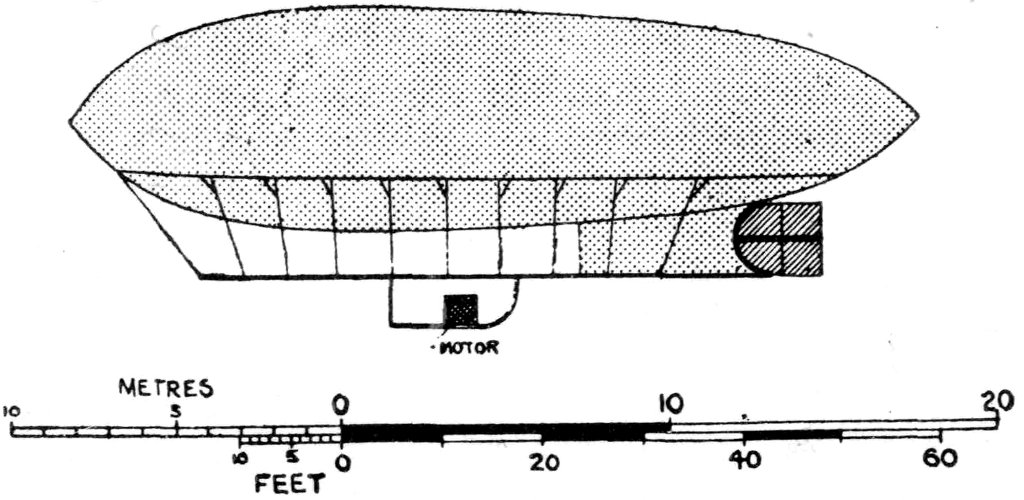
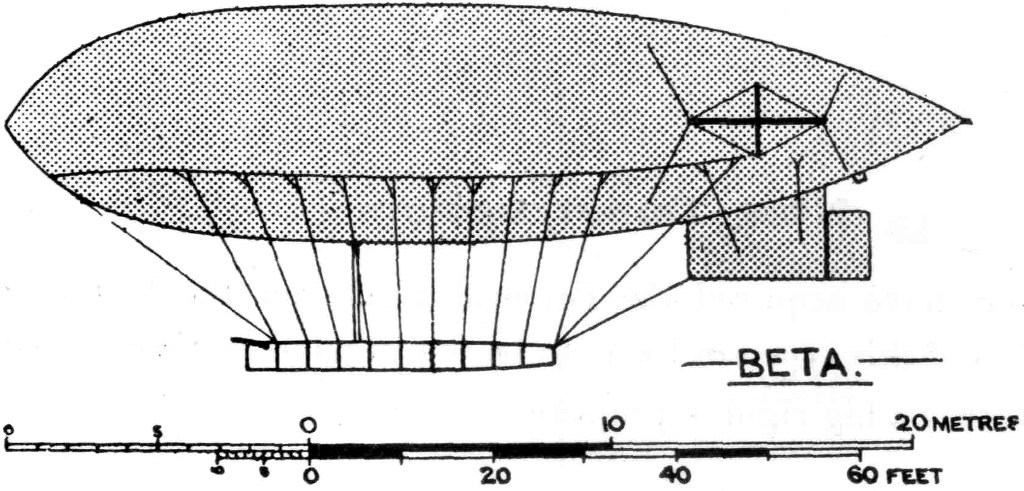
Messrs. Vickers have acquired the Parseval rights for the British Empire, and several airships of this type are likely to be put in hand by them shortly.
Also reported that a big rigid is projected.
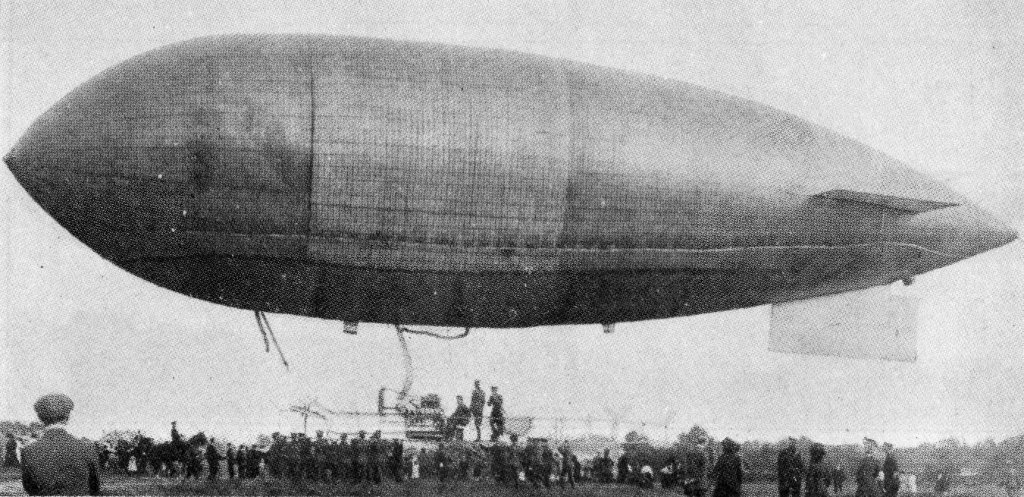

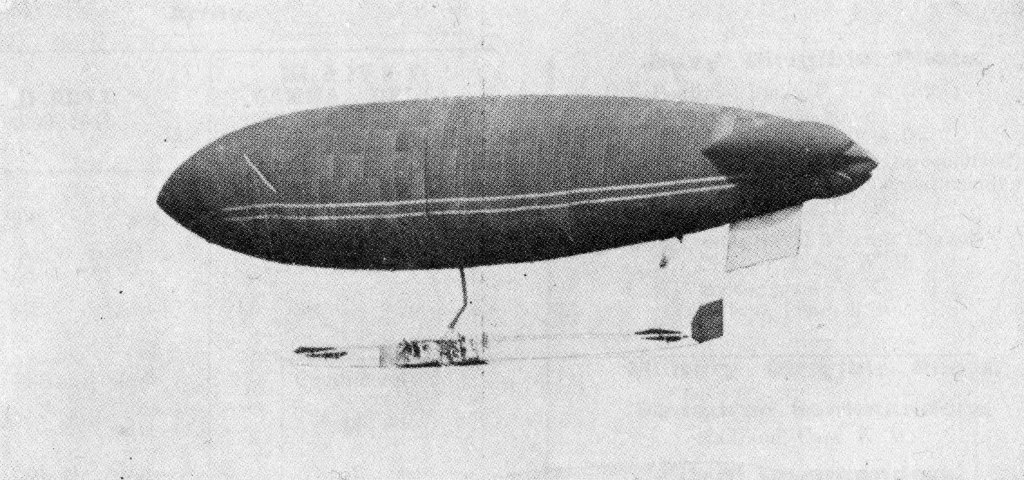
In January, 1913, the Australian Flying Corps was instituted, as a part of the citizen forces. During 1913, about £5,600 is to be spent.
The force is to consist ultimately of 4 officers, 7 warrant officers and sergeants, 32 mechanics.
The school is at Duntroon. Course includes—mechanics of the aeroplane, aerial motors, meteorology, aerial navigation by compass, aerial photography, signalling, etc. Mr. Harrison is in command with Lieut. H. Petre as assistant.
+=killed.
J. R. Duigan has built an aeroplane of his own design.
Nothing doing worth mention. One Bleriot, 80 h.p., presented 1913 by the Standard, London.[Pg 64]
Aeronautical Society of Canada, c/o. M. P. Logan, 99 Gloucester Street, Toronto
McGill Aviation Club, McGill University, Montreal
Oshawa, Ontario Ae. C.
Note.—Owing to the fact that the late Aerial Experiment Association was half Canadian and half U.S.A., it is difficult to draw a very clear dividing line between Canadian and U.S. aviators or machines. Thus, one given here is partly U.S.A., while at least one U.S. machine may be claimed as "partially Canadian."
Flights were made by Dr. Graham-Bell in a tetrahedal type, similar to one described in the 1911 edition.
Maximum length, 26¼ feet (8 m.) maximum breadth, 31-1/3 feet (9.50 m.) supporting surface, ? sq. feet (? m².)
Total weight.—
Body.—Central skid in combination with 4 wheels. Triangular body, base of triangle on top. Fuselage entirely enclosed.
Planes.—Maximum span, 31-1/3 feet (9.50 m.) Chord, 3½ feet (1 m.) Gap, 5 feet (1.50 m.) Ailerons at trailing edge of wing tips, 6 feet x 2 feet (1.80×0.60 m.)
Motor.—
Speed.—
Tractor.—Diameter, 7¾ feet (2.40 m.) Pitch, 6 feet (1.82 m.)
Steering.—Double elevator placed in rear of tail. Control, push and pull wheel.
Rudder in rear. Control, wheel.
Ailerons. Control, turning steering-wheel left or right.
Remarks.—See Aeronautics, U.S.A., August, 1911.
There has been also the Baddeck and other early machines (see 1911 edition), but none of them seem to be in existence at the present time.[Pg 65]
—A certain number of officers belonging to the Indian Army have qualified as pilots when home on leave, but there is no organised force. One is, however, proposed.
—In the past two or three home-made machines appeared, and one or two were imported, but most or all are now extinct.
—Non-existent.
—J. Weston is a qualified pilot, but at the outside there are not more than two effective machines in the country.[Pg 66]
In the Balkan War, 1912-13, Bulgaria hastily organised an aviation corps. This, though necessarily lacking in military organisation, proved very useful on several occasions.
At the end of March, 1913, the aeroplanes effective included 6 Bristol monos.; one 70 h.p. Bleriot XXI; 2 Bleriot XI bis (captured from the Turks); also some half-dozen or more miscellaneous machines temporarily hired.
Military Aviators.—The principal are Lieuts. Milkoff, Taraxchieff and Petroff.
A number of other officers in various stages of training.[Pg 67]
General Note.—Nicaragua and S. Domingo have both purchased one or two aeroplanes for their military forces: but nothing appears to have been done with them.[Pg 68]
Aviator.—Edwards, Emilio. Sanchez Besa is a Chilian, but resides in Paris (see France).
Military Aviation.—In 1912, a commencement was made and one 80 h.p. Deperdussin purchased. Other machines are now on order.[Pg 69]
Lee, Y. L. (British Ae.C. 148)
Tsai Tao Prince
In March, 1913, orders were placed for six 80 h.p. Caudrons, also for six 50 h.p., and a decision arrived at gradually to acquire a force of 700 aeroplanes, but very little has actually been done to date.[Pg 70]
Danske Aeronautiske Selskab, 34 Amaliegade, Copenhagen.
None; but Motor (3 Bredgade, Mezz, Copenhagen) deals with aerial matters.
Klampenburg, Copenhagen.
Skandinarisk Aërodrom.
In 1911 there was an Antoinette. Nothing done since.
Ullitkz, Kapt.
(Revised by I. SCHIERE, Aeronautical Engineer and Librarian of the Dutch Ae. C.)
Haagsche Proefvliegtuig Club (3e V.d. Boschstreet 20, The Hague).
Nederlandsche Vereeniging voor Luchtvaart (Nassau Zuilensteintraat, 10, The Hague). (Ae. C.)
Rotterdamsche Model Aero Club (Rochussenstreet 229b, Rotterdam).
Colonial:
Nederlandsche Indische Vereeniging voor Luchtvaart.
De Luchtvaart (Ged Onde-Gracht, 141, Haarlem). Fortnightly.
Avia, Wynbrugstraat 13, Rotterdam. Fortnightly.
Breda-Gilske-Rijen.—6 hangars.
Soesterberg.—20 hangars.
Up to the end of 1911 there were none, though some officers had their own private ones (H. Farman's mostly).
At end of 1912.
2 monos. Deperdussin (for Java).
1 biplane. De Brouchére (for Java).
(The number against any name is, unless otherwise stated the Ae. C. Nederlandsche pilot certificate number.)
To end of 1911.
The following Dutch aviator has been killed:
H. Farman type. Details, De Luchtvaart, No. 8, 1911.
Anthony Fokker, of Haarlem. In early 1912 flew at Breda.
(O.P.I.I.) Generally Bleriot type. Built 1911.
Early in 1912 was flying at Johannisthal, Germany.
(O.P.I.I.) Blend of Bleriot and Antoinette. Motor, 75 h.p. Miesse. Completed December, 1909.
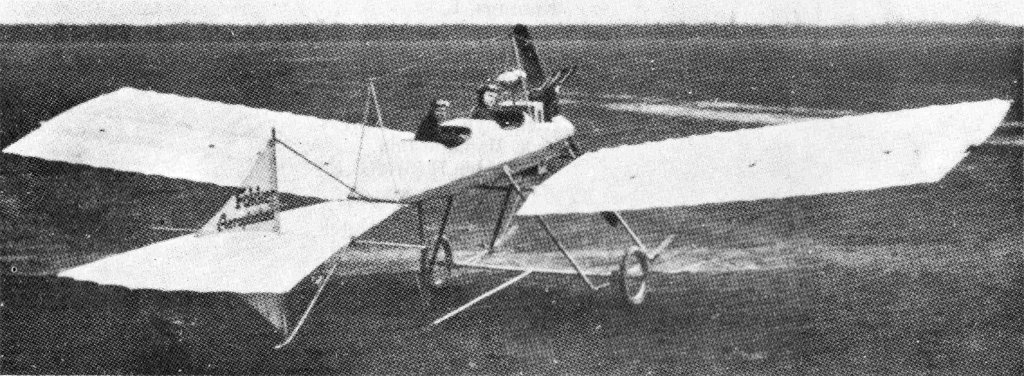
(See Germany for details.) Firm now established in Germany.
Length, 111½ feet (34 m.) diameter, 22½ feet (60.80 m.) capacity, 31,785 c. feet (900 m³.)
Motor.—18 h.p.
Remarks.—Small edition of Zodiac III. (See France.) [Pg 73]
(Special French Editor.)
Aero Club de France.
Academie Aeronautique de France.
Aeronautique Club de France.
Société des Aëronautes du Siège.
Aero Club du Sud Ouest.
Aero Club du Rhone.
Aero Club du Nord.
La Ligue Aerienne du Sud.
Société Francaise de Navigation Aérienne.
Société d'encouragement à l'Aviation.
(Full list of clubs next page.)
L'Aerophile.
L'Aero.
L'Aeronaute.
Aerostat (Bulletin Aeronautique).
Aerostat (Academie d'Aerostation).
Revue de l'Aerostation.
Le Ballon.
L'Aerostation.
L'Aeronautique.
Bulletin Aeronautique.
Encyclopediede l'Aviation.
La Ligue Nationale Aerienne.
Revue de l'Aviation.
L'Aeromécanique.
Antibes.—Hanriot school.
Beauce.
Betheny.—Sommer school. Deperdussin School.
Buc.—M. Farman school.
Buoy.
Chalons.—Sommer school.
Chalais-Mendon. (Military)
Chatres.—Savary school.
Cran, Marseilles.
Crotoy.—Caudron school.
Croix d'Hins, Bordeaux (Aer. Lig. du Sud.) Area 6 km. Track. Free sheds.
Corbeaulieu pres. Compregne.—Doutre school.
Etampes.—Bleriot school. Farman school.
Grand Camp, Lyons.
Issy les Moulineaux.—Astra school
Juan-le-Pias.—Paulhan aquaplane school.
Juvissy, near Paris.—Aerodrome. Caudron school. Goupy school.
La Brayelle, Douai.—Breguet school.
Da motte Brueil dans L'Oise.
Le Bourget, Paris.—100 sheds.
Le Mans.
Moisson.
Mourmelon.—Voisin school.
Napante.
Nice.—Small and rough surface.
Pau.—Bleriot school.
Reims.—Aerodrome.
St. Cyr.
Villacoublay, Paris.—Breguet, Nieuport and Astra schools.
In February, 1912, the then total of 208 effective aeroplanes were divided into "squadrillas" consisting of eight aeroplanes; attached to these eleven or twelve motor cars, one traction car and one fast car, also a repairing car and repairing van.
It was then estimated that at the end of 1912, 344 aeroplanes would be available for service.
The estimated personnel was provisionally fixed at 234 officer pilots, 210 scouts, 42 mechanics, 110 officers, 1,600 corporals or sappers and 550 privates.
Approximately £880,000 was spent in aviation during 1912, and £1,000,000 was estimated for future years.
The French military aviation centres are all upon somewhat the same footing as fortresses, and the greater part of the work comes under the head of "confidential." The principal school is at St. Cyr, which was specially selected because the ground is rough and mostly covered with small shrubs: it being held important to train officers from the first to rise and land on ground similar to that most likely to be found in war time. Each station is supplied with large portable wooden-framed hangars covered with canvas. These can be rapidly taken to pieces and re-erected. Each station is supplied with its own special motor transport.
All military machines are provided with a compass and map case in front of the pilot and sketching apparatus in front of the observer.
Although a few non-commissioned officers have been taught flying, the organization only contemplates the employment of commissioned officers as pilots. The age limit is 38.
On April 16th, 1913, the flying corps was modified. The principal features of the corps as now existing are as follows:—
There are three main groups, each commanded by a colonel. Each group consists of dirigibles and aeroplane "escadrilles," and is fully equipped with establishments, etc. The three centres are:—
All squadron units are made up of machines of the same make and power. Pilots are detailed as required to any particular unit, and liable to transfer from one to another, though in practice such transfers are rare.
During 1912 nearly 500 machines were delivered to the Army, but a great many old machines have been scrapped. At the end of March, 1913, the force stood at 421 effective for war machines, plus an uncertain number of school machines and obsoletes.
About one-third or more of the effective aeroplanes were Farmans. The rest consisted of all leading French types, proportionated more or less to the productive capacity of these firms. Also certain other makes experimental.
The Navy section of French military aviation is still in the "being formed" process. No data are yet available as to the ultimate force to be provided. At present the number of effective war machines is small. It is made up of hydro-avions of the following types:—Astra, Borel, Breguet, Caudron, Deperdussin, Donnet-Leveque, Farman, Paulhan-Curtiss, Sanchez-Besa, the total at end of March, 1913, being well under 20. There are also two special Bleriot type fitted with floats, which carry 330 lbs of explosive, are fitted with wireless, have a speed of 140 km.p.h. (85 m.p.h.), and a radius of about 600 miles (1,000 km.)[Pg 75]
(In each case the number against each name is, unless otherwise stated, the Ae. C. French certificate pilot number.)
The total number of machines built in France during 1912 has been estimated at about 1,500. This includes military as well as private machines, also machines exported, and appears to be unduly generous even so. The actual total of machines commenced and completed in 1912 is nearer 1,000.
The number of private aeroplanes—excluding demonstration and school machines is small.
(brevets to end of 1911).
(In each case the number against each name is, unless otherwise stated, the Ae. C. French certificate pilot number.)
The following French aviators have been killed:—
1909.
Ferber, Capt.
Lefebvre, E.
1910.
Blanchard (215)
Delagrange, Leon (3)
Le Blon (38)
Poillot (182)
1911.
Byasson, Lt.
Camine, Capt.
Caumont, Lieut. (156)
Carron, Capt.
Chotard, Lieut.
De Grailly, Lieut.
Desparmet, J. (451)
Dupuis, Lieut.
Gaubert (59)
Laffont, A. (111)
Lautheaume, Lt.
Level
Liere, Louis
Loder, Lt.
Madiot, Capt. (106)
Mommlin
Nieuport, E. (105)
Noel
Princeteau, Lt. (331)
Ruchonnet
Tarron, Capt.
Vallon, Rene
Wachter, C. L. (53)
1912.
Barillon (307)
Bedell, R.
Bernard, Suzanne
Boerner, Lieut.
Boncour, Lieut.
Bressand, Lieut.
Chanteriers, Lieut.
Dubois, Capt.
Ducourneau, Lieut.
Etienne, Lieut.
Faure, Capt.
Lacour
Madiot, Capt. (106)
Maguet, Capt. le
Nieuport, C.
Olivers, G.
Peignan, Lieut. A.
Poutrin, Lieut.
Sevelle, Lieut. H. P.
Thiery de Ville d'Avray, Lieut.
Thomas, Lieut.
Wagner, A.
1913.
Bresson, Lieut.
L'Aerienne, 25 Quai des Grands Agustins, Paris. Builds to specifications and supplies all parts.
Company has ceased to exist.
"Astra" Soc. de Constructions Aéronautiques, (Anciens Etabs. Surcouf) Soc. An'yme 13 Rue Couchat, Billancourt (Seine). Works: 121-123 Rue de Bellevue, Billancourt. Flying grounds: Issy-les-Molineux Villacoublay (S-&-O). This old established balloon and dirigible firm first took up aviation as French agents for the Wrights in 1909. For a time they built Wrights with certain modifications, but by 1912, little save the Wright system of warping remained. Capacity: about 100 machines a year.
| Biplane, type C. 1912-13. Wood. | Military biplane type C.M. 1912-13.Wood | Biplane, Type C. 1913. Wood & steel. | Mil. biplane, type C.M. 1913. Wood & steel. | Hydro-biplane, type C.M. 1913. Wood & steel. | ||
|---|---|---|---|---|---|---|
| Length | feet (m.) | 34 (10.40) | 36 (10.97) | 34 (10.40) | 36 (10.97) | 32¾ (10) |
| Span | feet (m.) | 41 (12.50) | 40½ (12.32) | 41 (12.50) | 40½ (12.32) | 39½ (12) |
| Area. | sq. feet (m²) | 519 (48.2) | 519 (48.2) | 519 (48.2) | 519 (48.2) | 519 (48.2) |
| Weight | machine lbs. (kgs.) | 1764 (800) | 2365 (1073) | ... | 1411 (640) | 1763 (800) |
| useful lbs. (kgs.) | 661 (300) | 882 (400) | ... | ... | ... | |
| Motor | h.p. | 50 Renault | 75 Renault or 75 Chenu | 50 Renault | 75 Renault | 100 Renault |
| Speed | max. m.p.h. (km.) | 56 (90) | 56 (90) | 56 (90) | 56 (90) | 56 (90) |
| min. m.p.h. (km.) | ... | ... | ... | ... | ... | |
| Endurance | hrs. | ... | ... | ... | ... | ... |
| Number built during 1912 | ... | ... | ... | ... | ... | |
Remarks.—The 1912-13 and 1913 types differ only in the adoption of metal in the 1913 models, which are consequently considerably lighter.
General features.—Warping wings. Fixed tail planes with two elevators in rear. Single rudder. Single tractor geared down 1 to 2. Type C carries 85 litres petrol; type C.M., 137 litres.
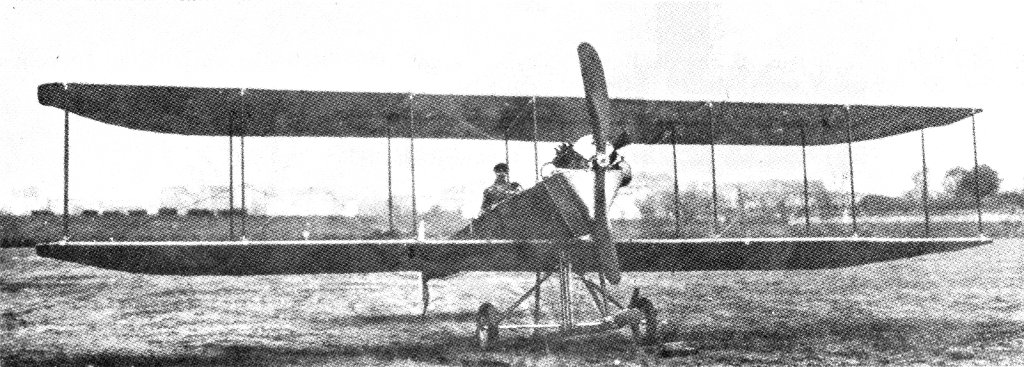
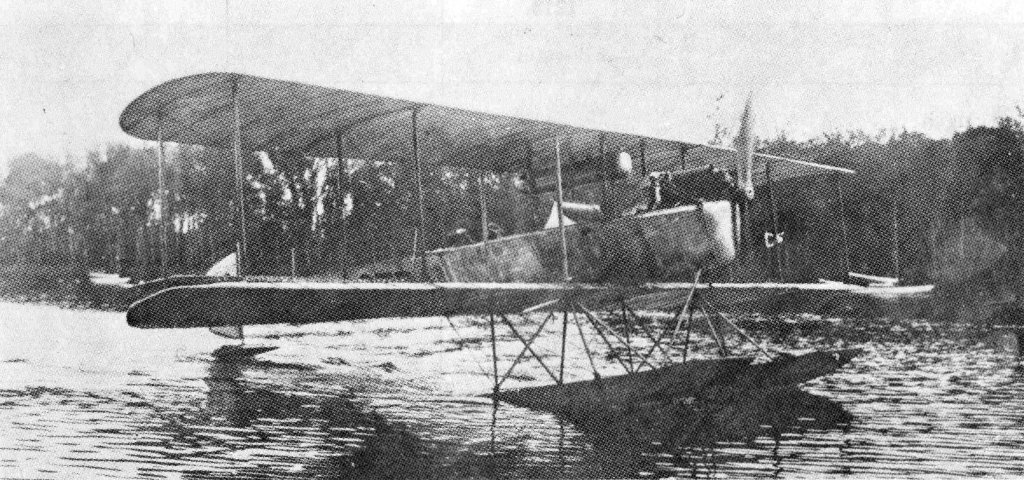
L. Bertin, 23 rue de Rocroy, Paris. About 1908 Bertin began building helicopters. The machine below was exhibited in the 1913 Paris Salon.
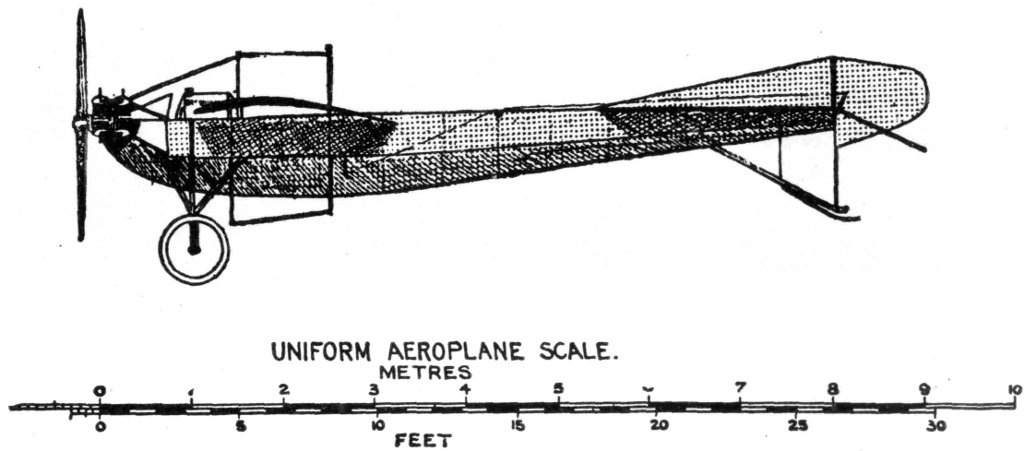
| 1913. Monoplane. 2-seater. | ||
|---|---|---|
| Length | feet (m.) | 29 (8.80) |
| Span | feet (m.) | 34 (10.40) |
| Area | sq. feet (m².) | 226 (21) |
| Weight | machine, lbs. (kgs.) | 770 (350) |
| useful lbs. (kgs.) | ... | |
| Motor | h.p. | 100 Bertin |
| Speed | max m.p.h. (km.) | 71 (115) |
| Number built during 1912 | 1 | |
Remarks.—Wood and steel construction. On wheels only. Controls: warping and rear elevator.
Marcel Besson, 24 rue Marbeuf, Paris. Capacity: small. Besson first appeared in 1911 with a tail-first mono. In the Paris Salon, 1913, he exhibited an improved machine along similar lines.
| 1913 Canard 2-seater. | ||
|---|---|---|
| Length | feet (m.) | 22 (6.70) |
| Span | feet (m.) | 44 (13.40) |
| Area | sq. feet (m².) | 323 (30) |
| Weight | machine, lbs. (kgs.) | 730 (331.2) |
| useful (kgs.) | ... | |
| Motor | h.p. | 70 Gnome |
| Speed | m.p.h.(km.) | 59 (95) |
| Number built during 1912 | 1 | |
Remarks.—All steel construction. On wheels and 2 skids. Control: ailerons and front elevator.[Pg 81]
L. Bleriot, "Bleriot-Aeronautique," 39, Route de la Révolte, Paris-Levallois. Flying grounds: Buc Etampes and Pau.
L. Bleriot began to experiment in 1906, along Langley lines. By 1909 he was one of the leading French firms; and the first cross Channel flight was made by him.
Details of standard types:—
| XI bis. 2-seater mono. (1911 onward) | XXI. Military side by side 2-seater mono. 1912. | XXVII. Single seat mono. 1912. | XXVIII. Single seater 1913. | XXVIII. 2-seater. 1913. | Monocoque 2-seater 1913. | ||
|---|---|---|---|---|---|---|---|
| Length | feet (m) | 27-1/3 (8.40) | 27¼ (8.24) | 28 (8.50) | 25 (7.60) | 27 (8.20) | ... |
| Span | feet (m) | 36 (11) | 36 (11) | 29½ (9) | 29 (8.80) | 32 (9.75) | 40 (12.25) |
| Area | sq. ft. (m².) | 349 (33) | 268 (25) | 129 (12) | 162 (15) | 215 (20) | 270 (25) |
| Weight | unladen, lbs. (kgs) | ... | 727 (330) | 529 (240) | 530 (240) | 660 (300) | 830 (375) |
| useful lbs. (kgs.) | ... | ... | ... | 286 (129) | 550(250) | ... | |
| Motor | h.p. | 50 Gnome | 70 Gnome | 70 Gnome | 50 Gnome | 70 Gnome | 80 Gnome |
| Speed | max. m.p.h. (km.) | 56 (90) | 56 (90) | 78 (125) | 62 (100) | 71 (115) | 75 (120) |
| min. m.p.h. (km.) | ... | ... | ... | ... | ... | ... | |
| Endurance | hrs. | ... | ... | ... | ... | ... | ... |
| Number built during 1912 | ... | ... | ... | ... | ... | ... | |
Note.—The monos., as usual, are of wood construction; wheels only for landing. Rectangular section bodies. Warping wings, elevator in rear. Chauviere propeller. The monocoque has wood, steel and cork construction. Coque body. Skids to landing chassis. Levasseur propeller. Otherwise as the other monos.
Principal Bleriot flyers are or have been:—Aubrun, Balsan, Bleriot, Busson, Chavez, Cordonnier, Delagrange, Drexel, Efimoff, Gibbs, Hubert, Hamel, Moissant, Paulhan, Prevetau, Prevot, Prier, Radley, Thorup, Tyck, Wienzciers, and many others.
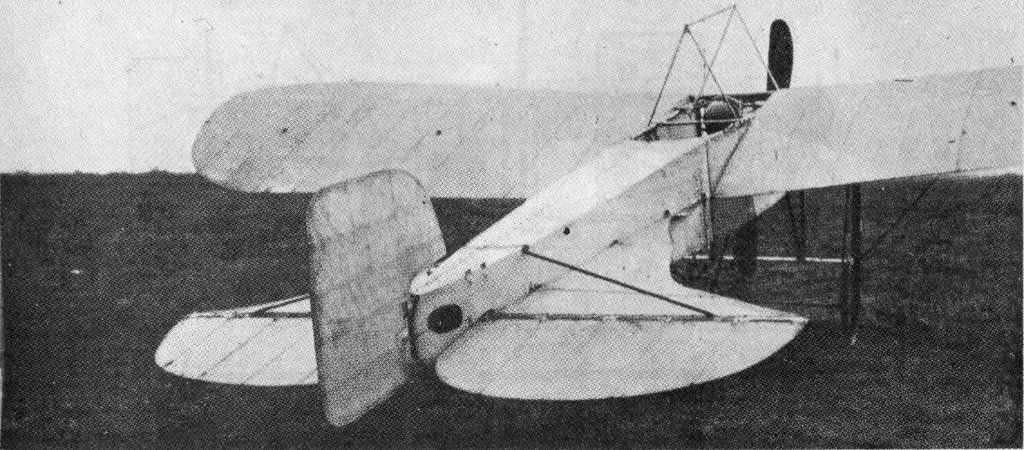
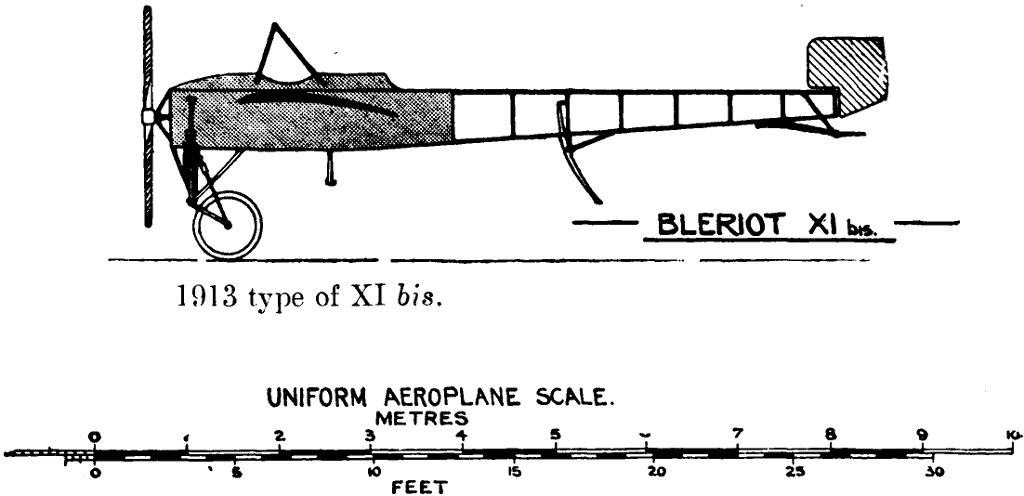
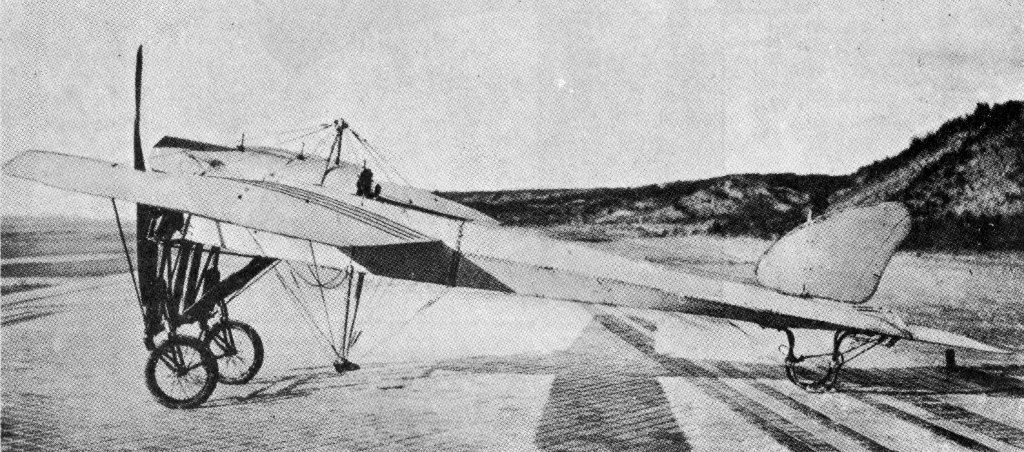
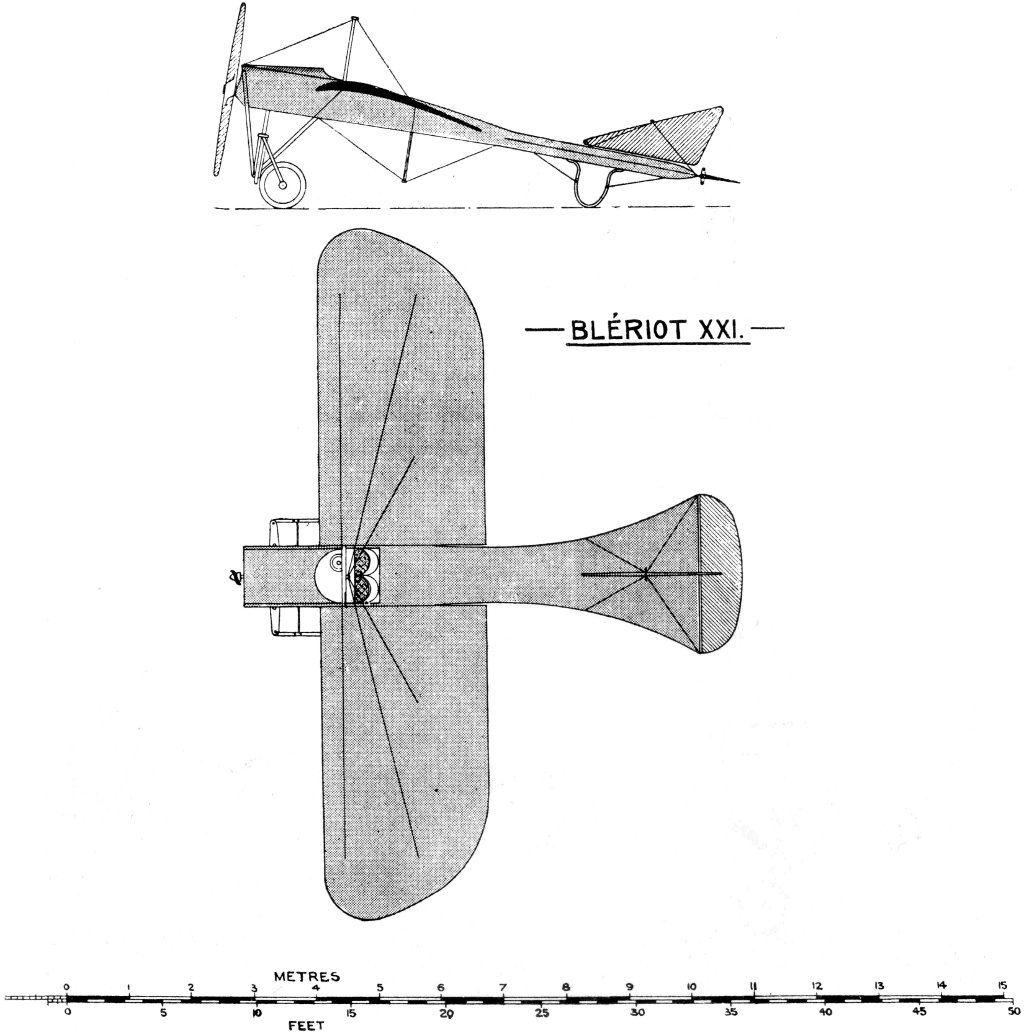
Special types of Bleriots.—In addition to the standard machines, Bleriot from time to time produces special machines, of which the best known is the Limousine, built for M. Deutsch de la Meurthe, built 1911 and still existing. One or two Canards have also been built, including an armoured military.
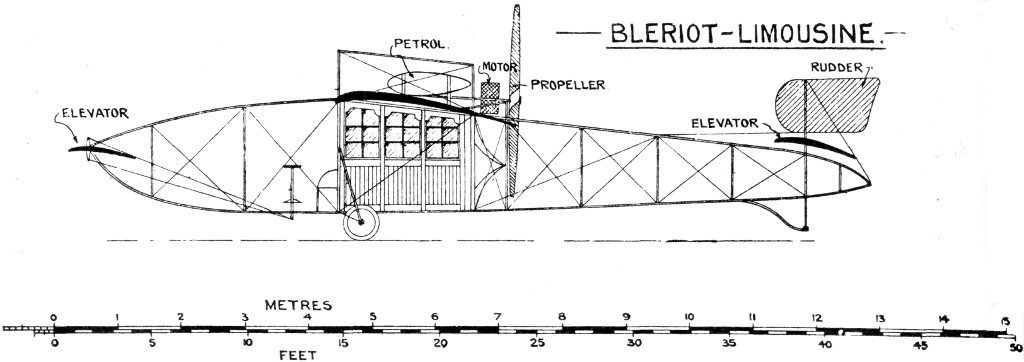
Early in 1913 a special experimental military machine was produced with considerable secrecy.
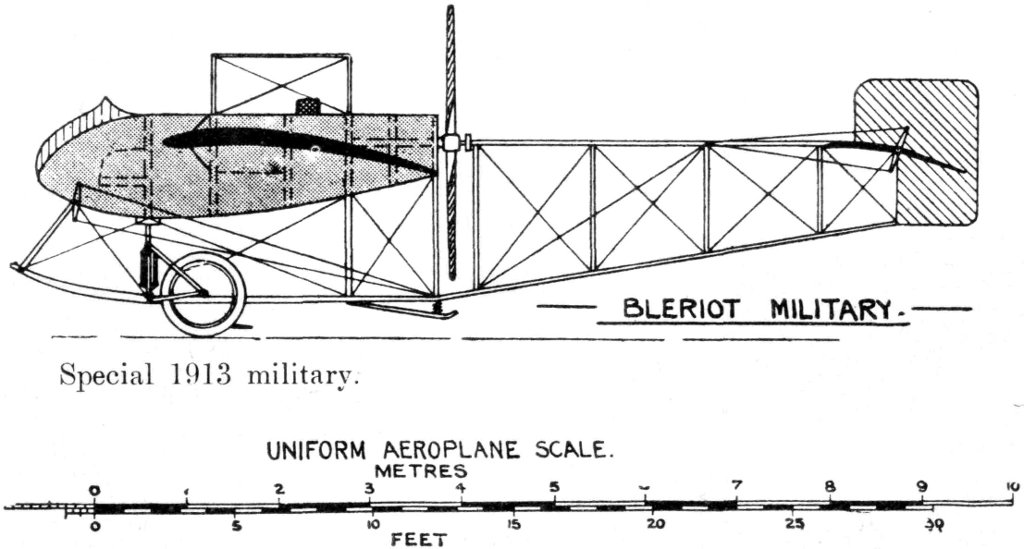
G. Borel & Cie, 25 rue Brunel, Paris. Established 1910. Capacity: about 25 machines a year.
| Model. | 1913. Monoplane. | 1913. Monocoque Racer. | 1913. Hydro-mono. 2-seater. | |
|---|---|---|---|---|
| Length | 22 feet (6.70 m.) | 19 feet (5.80 m.) | 27 feet (8.30 m.) | |
| Span | 30 feet (9.15 m.) | 26 feet (8.00 m.) | 37 feet (11.25 m.) | |
| Area | 152 sq. ft. (14 m².) | 116 sq. ft. (11 m².) | 237 sq. ft. (22 m².) | |
| Weight | total | 530 lbs. (240 kgs.) | 608 lbs. (276 kgs.) | 880 lbs. (399 kgs.) |
| useful | 287 lbs. (130 kgs.) | ... | ... | |
| Motor | 50 Gnome | 80 Gnome | 80 Gnome | |
| Speed | (p.h.) | 71 m. (115 km.) | 94 m. (150 km.) | 62 m. (100 km.) |
Note.—The monocoque is of wood and steel construction, the others wood only. The monocoque has coque body, the others ordinary rectangular section. Floats of the hydro as illustrated. For the rest the ordinary mono. is practically on the same lines as the 1912. The racer is somewhat on Deperdussin lines, but the body is built up inside. No fixed tail. The hydro. is an enlarged edition of the mono. Floats display nothing very original, except that a float under tail is interconnected with the rudder, and that the two front floats are fitted for being rowed. Fitted with a self-starter.
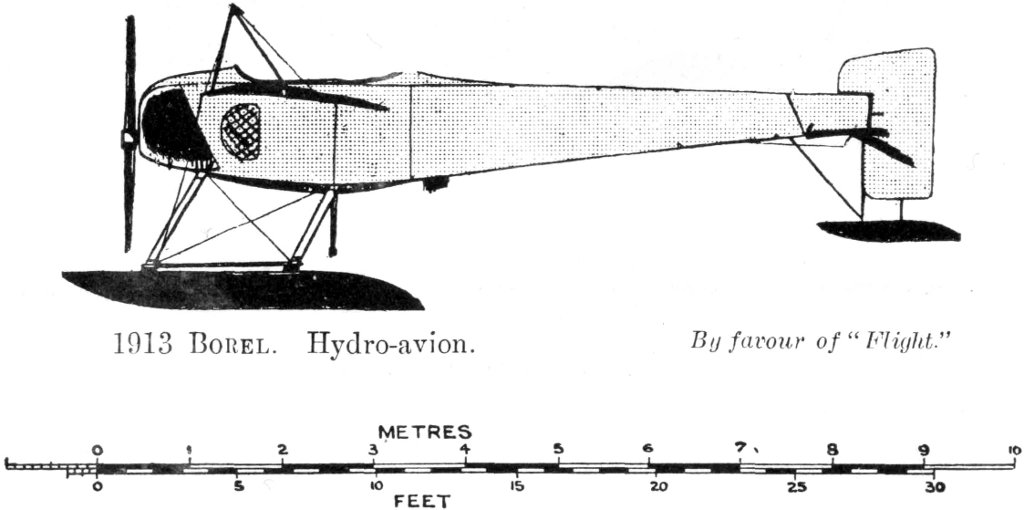
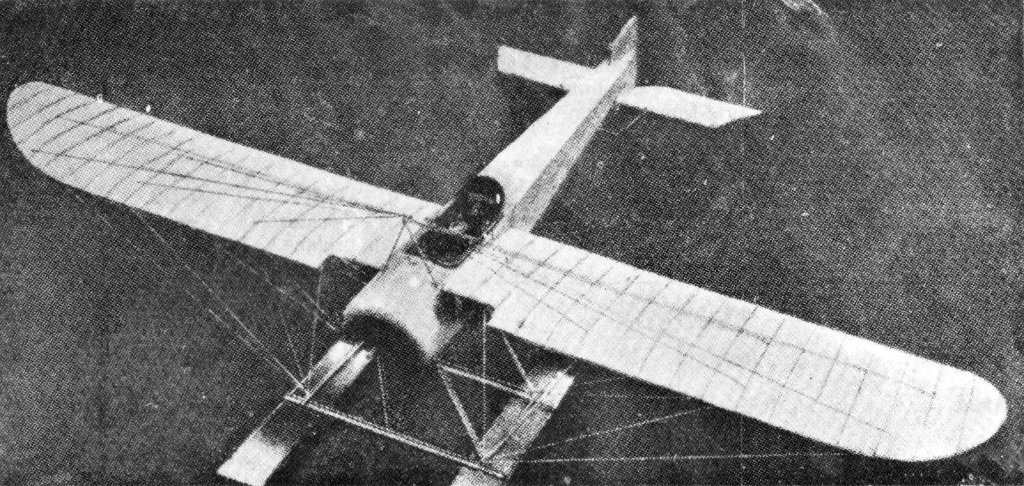
There is also a Denhaut design, 1913, about the same as a Donnet-Leveque.

Soc. Anonyme des ateliers d'aviation, Louis Breguet, 16 Boulevard Vauban, Donai (Nord). Capacity: about 200 machines a year. Paris office: 25, Boulevard Jules Sandeau. Schools at La Brayelle, pris Douai, Vélisy-Villacoublay, pris Paris.
| 1913 models. | G2 bis. 2 or 3-seater biplane. | G3. 3-seater biplane. | C-U1. 2-seater biplane. | C-U2. 2-seater biplane. | Aérhydroplane tandem mono. 2-seater, side by side. | |
|---|---|---|---|---|---|---|
| Length | feet (m) | 33 (10) | 29 (8.75) | 29 (8.75) | 29 (8.75) | 29 (8.75) |
| Span | feet (m) | 49 (15) | 45 (13.65) | 45 (13.65) | 45 (13.65) | 42 (12.80) |
| Area | sq. feet (m²) | 376 (35) | 377 (36) | 387 (36) | 387 (36) | 387 (36) |
| Weight | empty, lbs. (kgs.) | 1323 (600) | 1212 (550) | 1430 (649) | 1160 (522) | 1760 (798) |
| useful lbs. (kgs.) | 662 (300) | 882 (400) | 662 (300) | 882 (400) | 662 (300) | |
| Motor | h.p. | 80 Gnome | 100 Gnome | 80 Canton Unmé. | 110 Canton Unmé. | 110 Canton Unmé. |
| Speed | max. m.p.h. (km.) | 62 (100) | 69 (110) | 62 (100) | 71 (115) | 87 (140) |
| min. m.p.h. (km.) | ... | ... | ... | ... | 62 (100) | |
| Endurance | hrs. | 3-1/2 | 4 | 7 | 7 | 7 |
| Number built during 1912 | A total of 41 sold | during 1912 for | military purposes. | ... | ||
In each case.—
Construction.—All steel.
Landing chassis.—C consists of three wheels each protected by skids. The two main wheels, placed on either side of the centre of gravity, are fitted with patent "Oleopneumatic" shock absorbers. The steering wheel and the front skid have a spring suspension.
Military machines.—The 1912 sales of these were:—32 to France; 5 British; 3 Italian; 1 Swedish.
Steering.—The patented control system consists of a wheel mounted on a pivoted lever. The backward and forward movement of the entire system operates the elevator: the sideway movement warps the rear edge of the upper wings, and the rotation of the wheel steers the machine. The latter operation also governs the front wheel of the landing chassis, so that when on the ground the machine can be steered like a motor car.
Portability.—The main planes can be folded alongside of the fuselage. The machine can then be towed on any ordinary road, or be housed in places such as farm buildings, stables, &c.
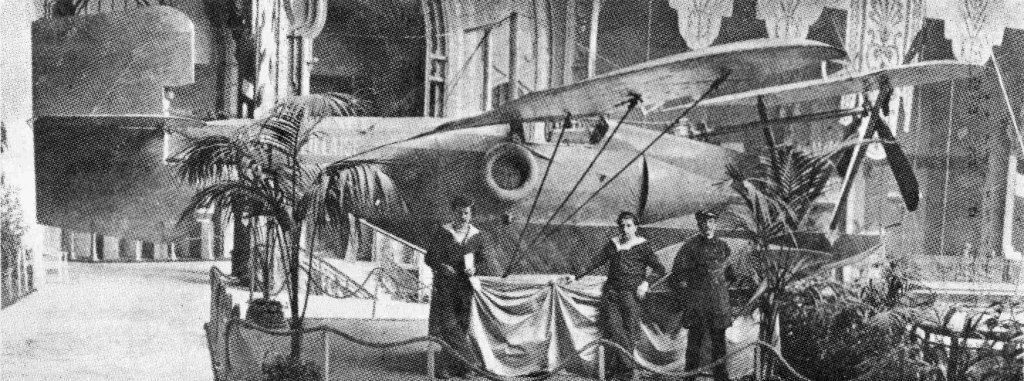
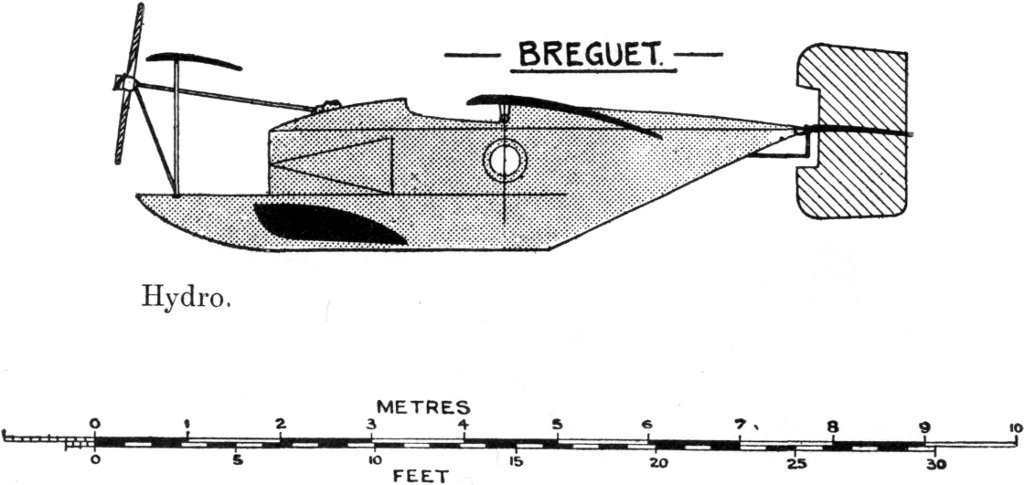
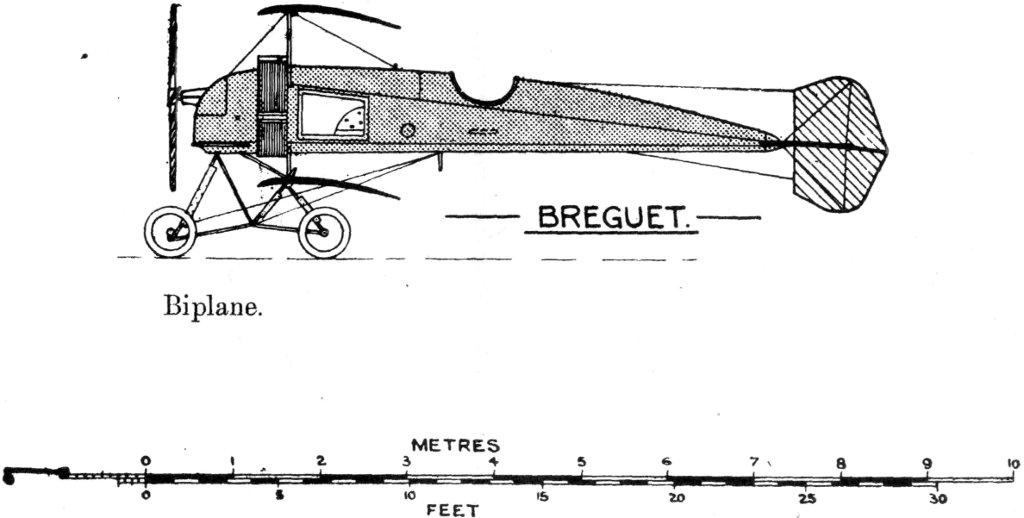
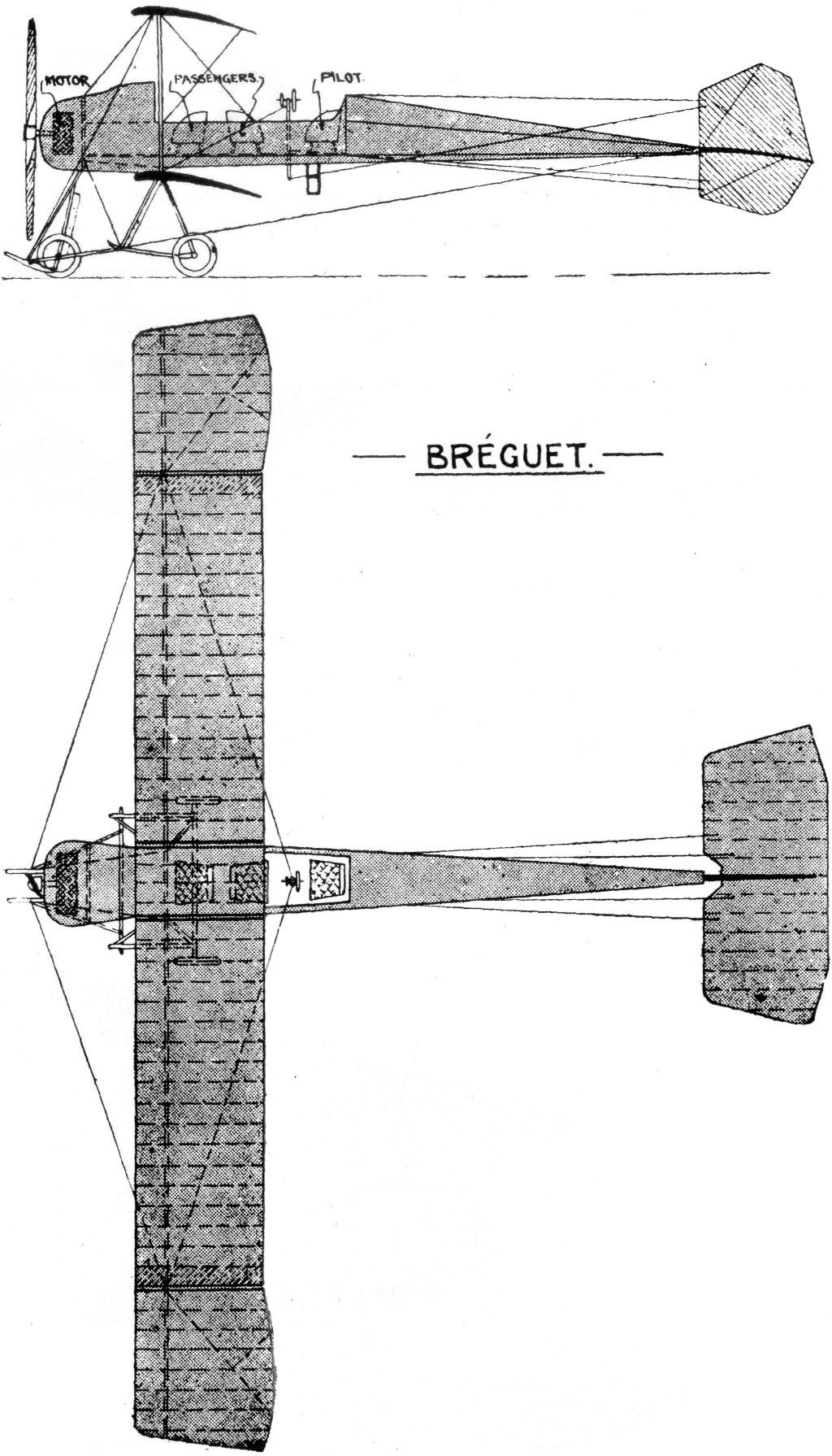
Caudron Fréres, Rue (Somme). Schools: Crotoy and Juvissy. Capacity: about 100-250 a year.
| Model and Date. | M2 1912-13 mono. | N. 1912-13 mono. | G.D. 1912-13 mono. | 1913 mono. | B. 1912-13 biplane. | E. 1912-13 biplane. | Monaco type, 1912 hydro-biplane. | 1913 hydro-biplane. | |
|---|---|---|---|---|---|---|---|---|---|
| Length | feet (m.) | 20 (6.10) | 19-3/4 (6) | 22 (6.75) | 19-1/4 (5.80) | 26-1/4 (8) | 23-1/2 (7.15) | 22 (6.75) | 32-3/4 (10) |
| Span | feet (m.) | 31 (9.40) | 26-1/3 (8) | 34 (10.30) | 27-1/3 (8.50) | 32-3/4 (10) | 35-1/2 (10.80) | 33 (10.10) | 46 (14) |
| Area | sq. feet (m².) | 151 (14) | 108 (10) | 268 (25) | 118 (11) | 431 (40) | 301 (28) | 268 (25) | 376 (35) |
| Weight | machine, lbs. (kgs.) | 518 (235) | 496 (225) | 386 (175) | 490 (225) | 683 (310) | 640 (295) | 772 (350) | 882 (400) |
| Motor | h.p. | 50 Anzani or Gnome | 50 Anzani | Anzani or Gnome | 50 Gnome. | Anzani or Gnome | Gnome | Gnome | 70 Gnome |
| Speed | m.p.h. (km.) | 71 (115) | 84 (135) | 75 (120) | 84 | 56 (90) | 56 (90) | 50 (80) | 50 (80) |
| Number built during 1912 | ... | ... | ... | ... | ... | ... | ... | ... | |
| Notes.--Lateral control, warping. Wood construction. On wheels. Enclosed body. | Lateral control, warping. Wood construction. On wheels as well as floats. (Special Caudron patent.) | ||||||||
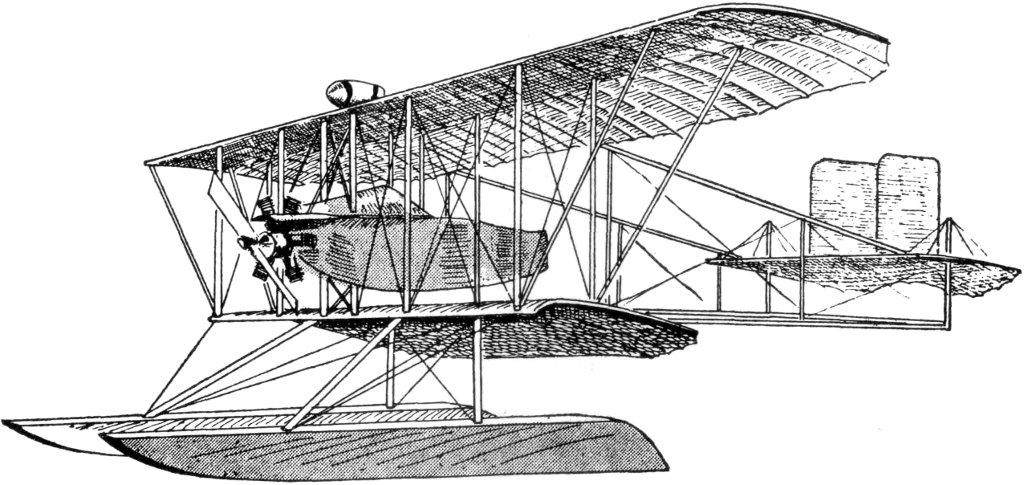
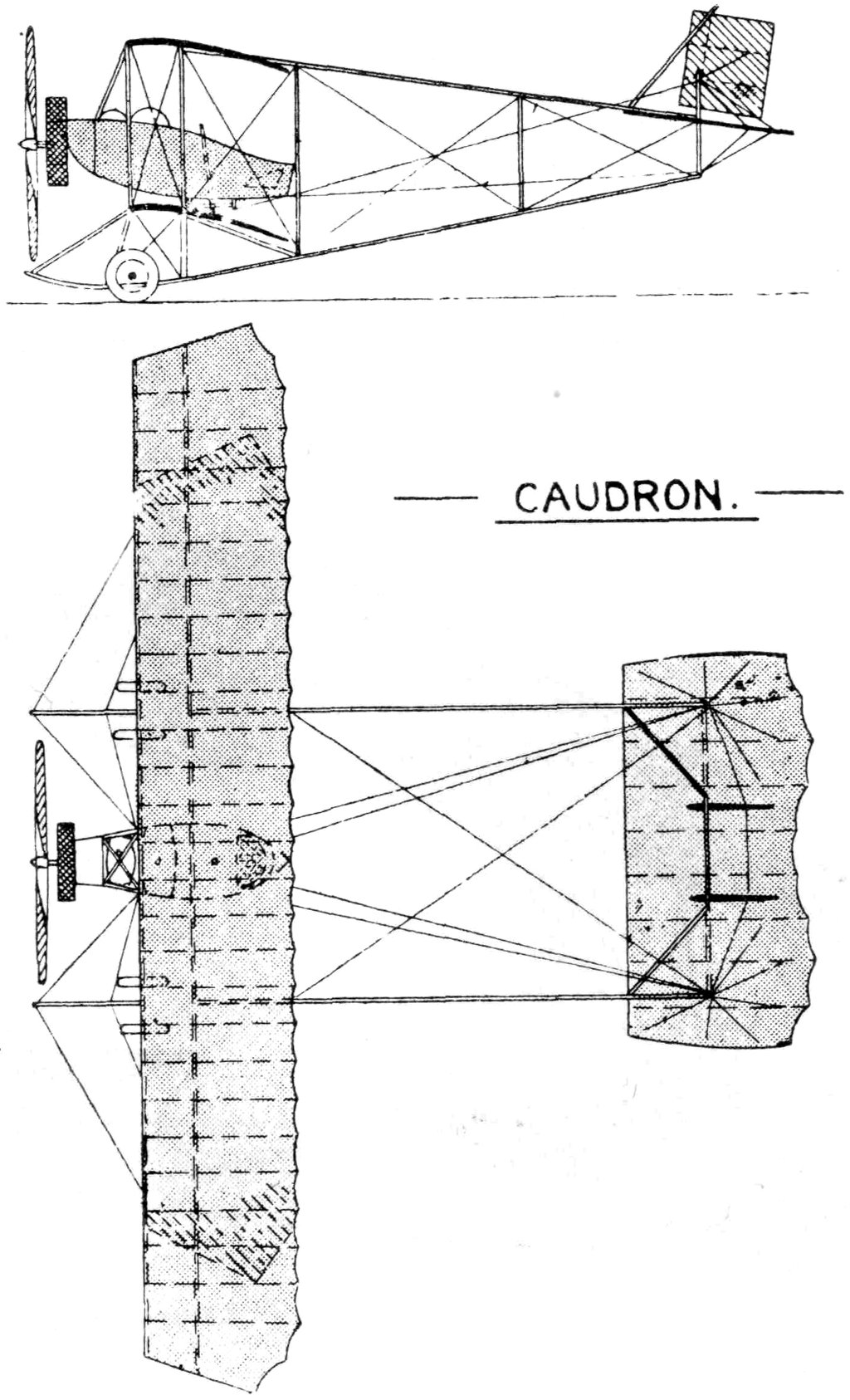
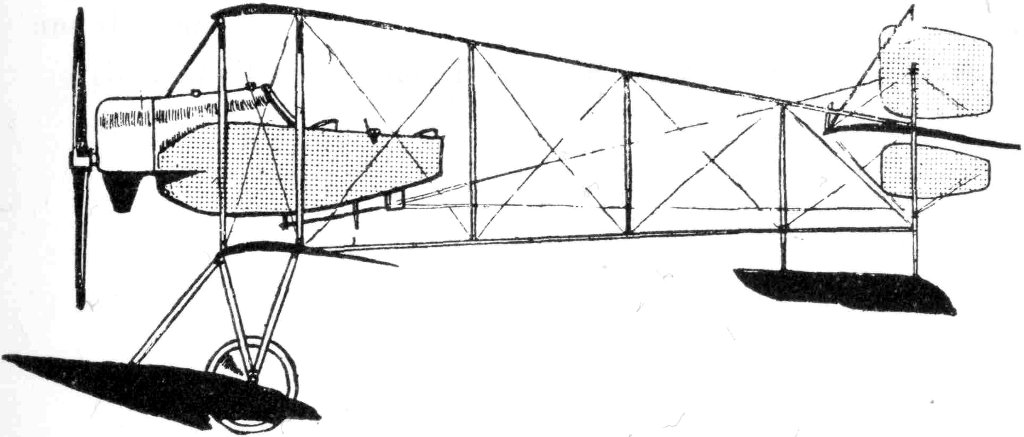
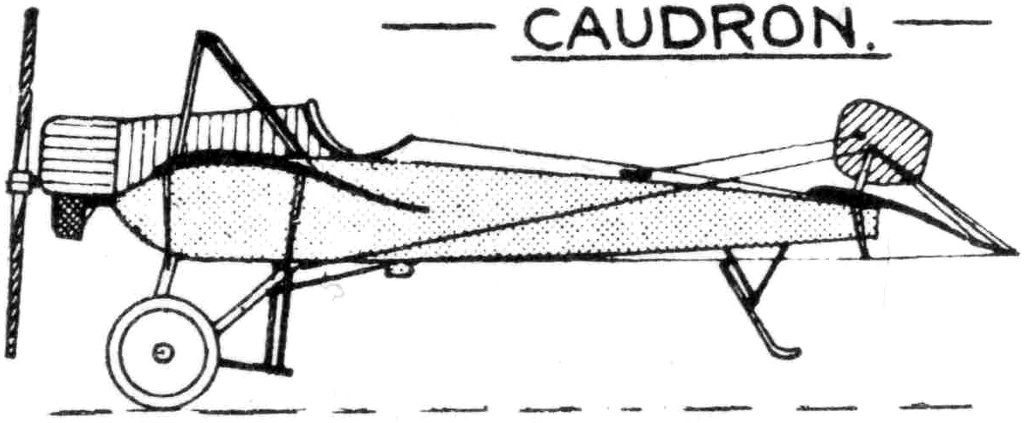
Usines Clement-Bayard, 33 quai Michelet, Levallois-Perret (Seine).
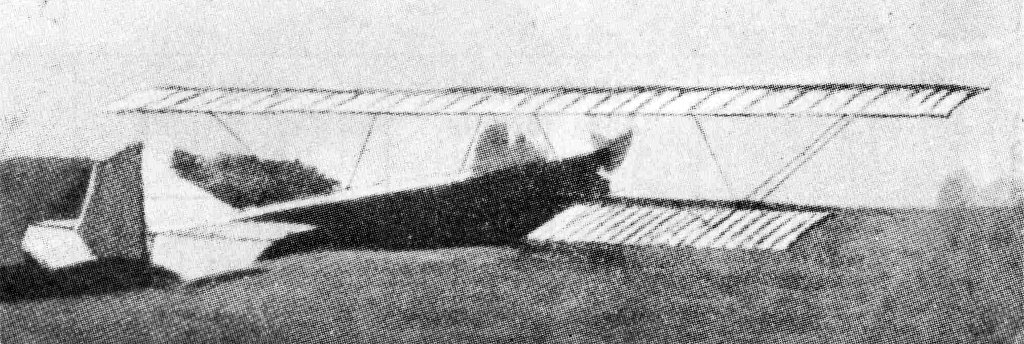
| 1913. Military 3-seater biplane. | 1913. Military single seater monoplane. | ||
|---|---|---|---|
| Length | feet (m) | 37 (11.20) | 24-2/3 (7.50) |
| Span | upper feet (m) | 52 (16) | 30 (9.20) |
| lower feet (m) | 36 (11) | ... | |
| Area | sq. feet (m².) | 533 (50) | 172 (16) |
| Weight | total lbs. (kgs.) | 2425 (1100) | 1146 (520) |
| useful lbs. (kgs.) | 1014 (460) | 441 (200) | |
| Motor | h.p. | 100 Gnome | 70 Gnome |
| Speed | max. m.p.h. (km.) | 53 (85) | 75 (120) |
| min. m.p.h. (km.) | ... | ... | |
| Endurance | hrs. | ... | ... |
Notes.—Control: lateral, warping.[Pg 88]
Soc. Anonyme des Anciens Chantiers Tellier, Longuenesse, pres St. Omer. Re-established 1912. Capacity: small.
| Model and date. | 1913 model. "Aero torpille" hydro-biplane. | 1913 "Aero torpille" biplane. | |
|---|---|---|---|
| Length | feet (m.) | 23 (7) | 24-3/4 (7.50) |
| Span | feet (m.) | 36 (11) | 36 (11) |
| 20 (6) | 20 (6) | ||
| Area | sq. feet (m².) | 280 (26) | 280 (26) |
| Weight | empty, lbs. (kgs.) | 772 (350) | 551 (250) |
| Motor | h.p. | 50 Gnome | 50 Gnome |
| Speed | m.p.h. (km.) | 56 (90) | 84 (135) |
| Endurance | hrs. | ... | ... |
| Number built during 1912 | ... | ... | |
Notes.—Single long boat body, canoe-shape.
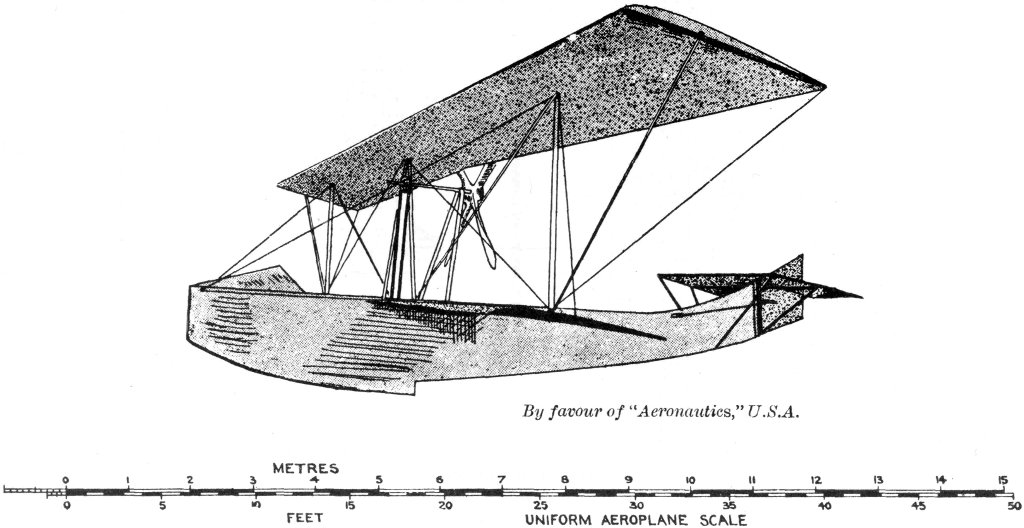
DEPERDUSSIN. Armand Deperdussin, 19 rue des Entrepreneurs, Paris. School: Courey-Betheny (Marne). Established 1910. Capacity: about 150-200 machines a year.
| E 1912-13. school mono. | P 1912-13. single seater mono. | T 1912-13. 2-seater mono. | H 1912-13. 3-seater mono. | Monocoque 1913. 2-seater. | Mono. 1913. 2-seater. | ||
|---|---|---|---|---|---|---|---|
| Length | feet (m) | 24 (7.30) | 24 (7.30) | 24 (7.30) | 29 (8.80) | 19 (5.75) | ... |
| Span | feet (m) | 29 (8.85) | 28 (8.50) | 35 (10.65) | 41 (12.50) | 29-1/2 (8.95) | 36 (11) |
| Area | sq. feet (m².) | ... | 162 (15) | ... | 310 (28) | 97 (9) | ... |
| Weight | total lbs. (kgs.) | 661 (300) | 782 (355) | 1212 (550) | 2050 (930) | 882 (400) | ... |
| useful lbs. (kgs.) | ... | ... | ... | ... | ... | ... | |
| Motor | h.p. | 30 Anzani | 50 Gnome | 70 Gnome | 100 Gnome | 50 Gnome | 80 Gnome |
| Speed | max. m.p.h. (km.) | 50 (80) | 69 (110) | 65 (105) | 69 (110) | 113 (180) | 105 (170) |
| min. m.p.h. (km.) | ... | ... | ... | ... | 81 (130) | ... | |
| Endurance | hrs. | ... | ... | ... | ... | ... | ... |
| Number built during 1912 | 2 | 5 | 27 | 3 | 2 | 1 | |
Notes.—Wood construction. Lateral control by warping. Mounted on wheels without skids. Fabric: "Aviator" Ramie.
Principal Deperdussin records: 1912 Gordon Bennett (Vedrines) and a number of world records for speed and distance.
Principal pilots include: Busson, Prévost, Vedrines, Vidart.
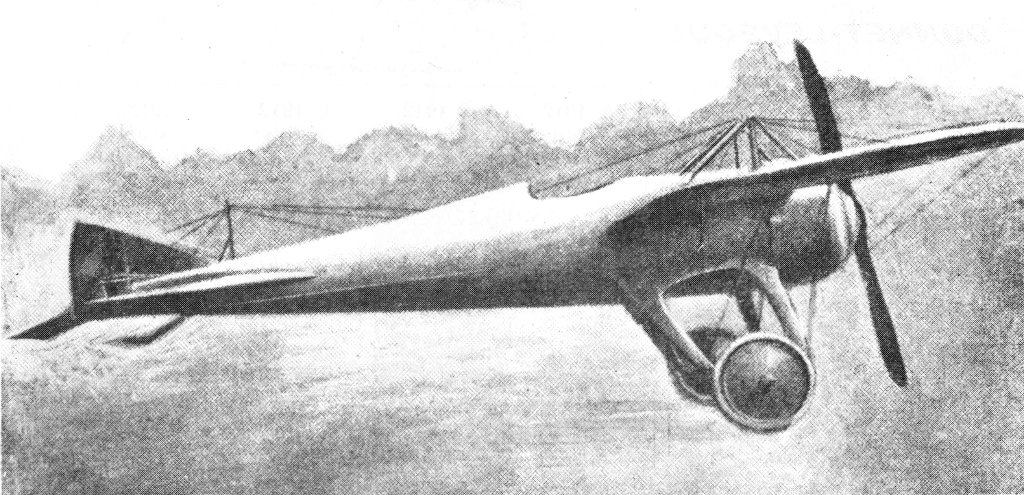
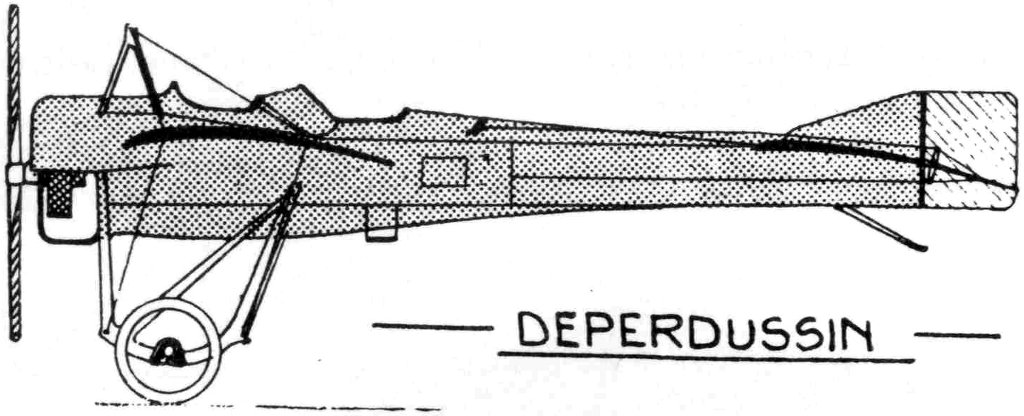
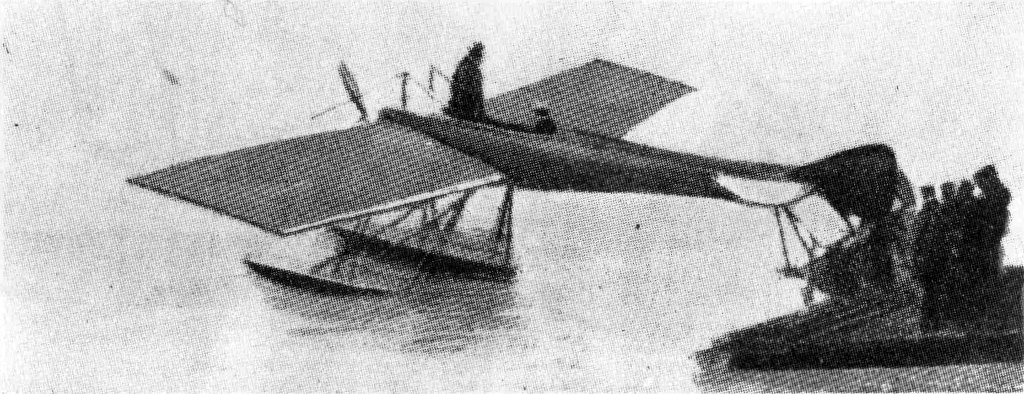
| A 1912. 2-seater hydro-biplane | B 1912. 2-seater hydro-biplane | C 1912. 3-seater hydro-biplane | 1913. 2-seater hydro-biplane | ||
|---|---|---|---|---|---|
| Length | feet (m) | 26 (7.80) | 27 (8.30) | 27 (8.30) | 34-1/2 (10.50) |
| Span | feet (m) | 29-1/2 (9) | 32-3/4 (10) | 34-1/2 (10.50) | 29-1/2 (9) |
| Area | sq. feet (m².) | 194 (18) | 215 (20) | 237 (22) | 194 (18) |
| Weight | lbs. (kgs.) | 683 (310) | 772 (350) | 888 (380) | 888 (380) |
| Motor | h.p. | 50 Gnome | 70 Gnome | 80 Gnome | 50 Gnome |
| Speed | m.p.h. (km.) | 69 (110) | 75 (120) | ... | 50 (80) |
| Endurance | hrs. | ... | ... | ... | ... |
| Number built during 1912 | ... | ... | ... | ... | |
Notes.—Lateral control by warping ailerons. Motor in gap just below upper plane: propeller in rear, direct driven. Fabric: "Aviator" Ramie.
Floats.—One large central boat 27 feet (8.20 m.) long—two small ones at each extremity of lower plane.
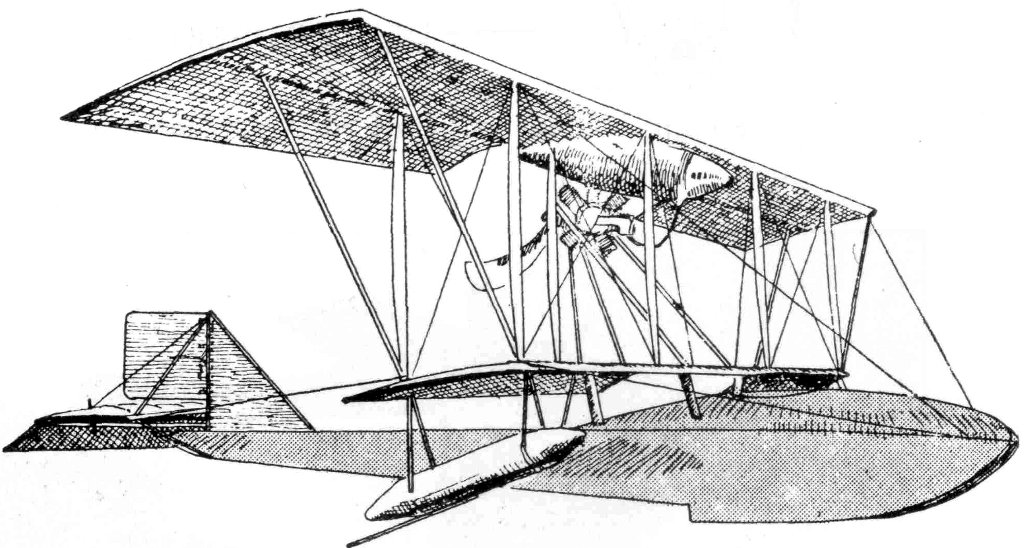
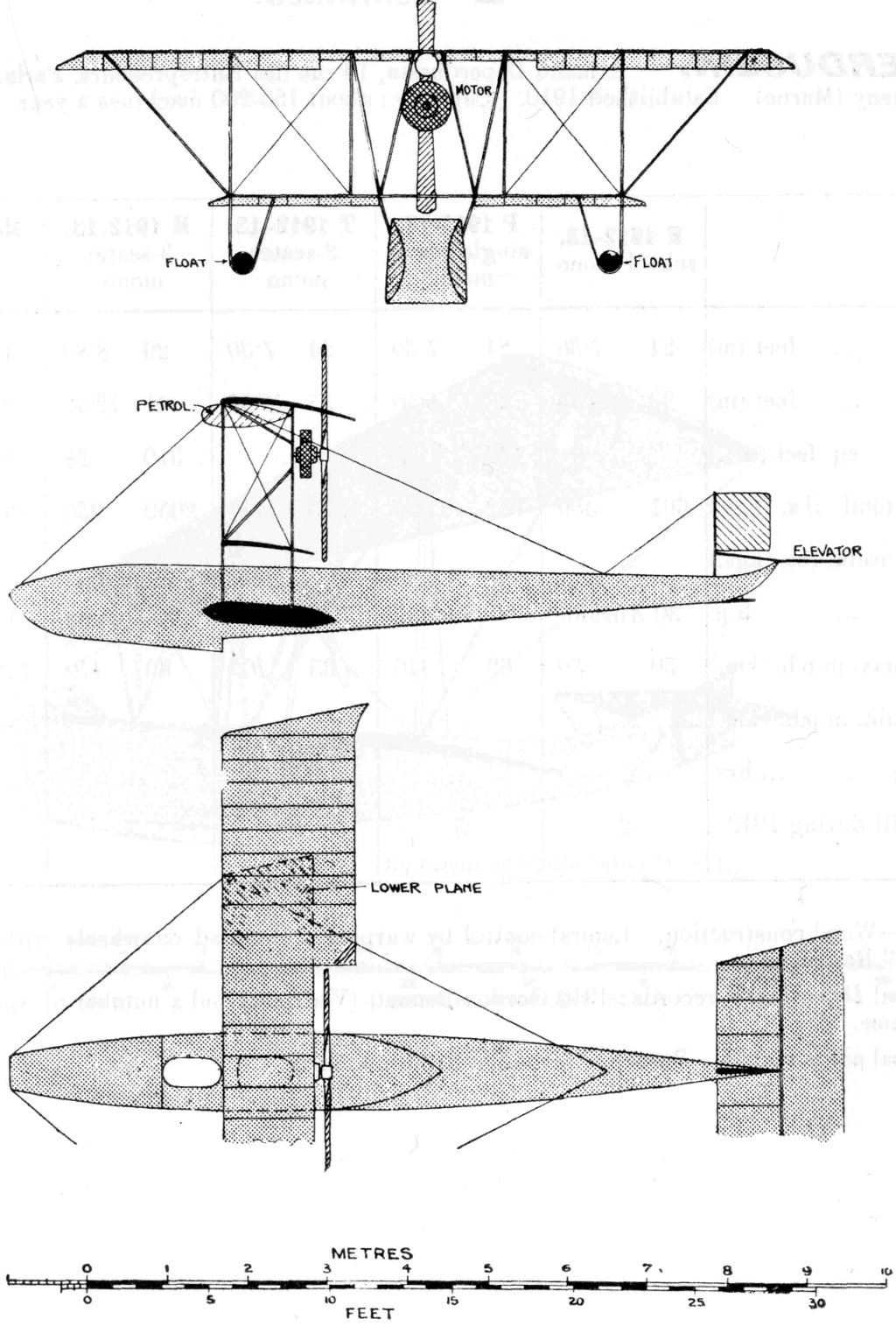
Soc. Anonyme Doutre, 58, rue Talbot, Paris.
| Type. | Biplane 3-seater, 1912-13. | Biplane 2-seater, 1912-13. | |
|---|---|---|---|
| Length | feet (m.) | 40 (12.25) | ... |
| Span | feet (m.) | 53 (16.10) | ... |
| 43 (13) | ... | ||
| Area | sq. feet (m².) | 533 (50) | ... |
| Weight | machine lbs. (kgs.) | 1323 (600) | 1323 (600) |
| useful lbs. (kgs.) | 992 (450) | 992 (450) | |
| Motor | h.p. | 70 Renault | 50 Renault |
| Speed | max. m.p.h (km.) | 56 (90) | 56 (90) |
| Number built during 1912 | 1 | ? | |
Notes.—Fabric: "Aviator" Ramie. Both types fitted with the Doutre patent stabiliser, which automatically and instantaneously counteracts troubles due to sudden gusts or partial motor failures. Weight of the 1913 model stabiliser is only 44 lbs. (20 kgs.)
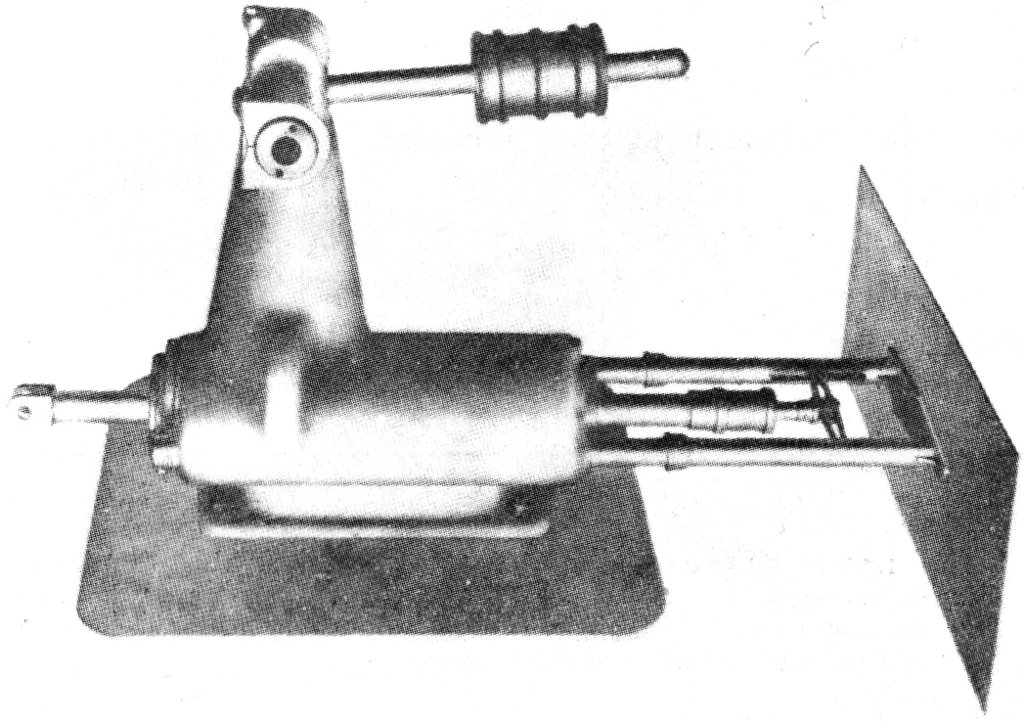
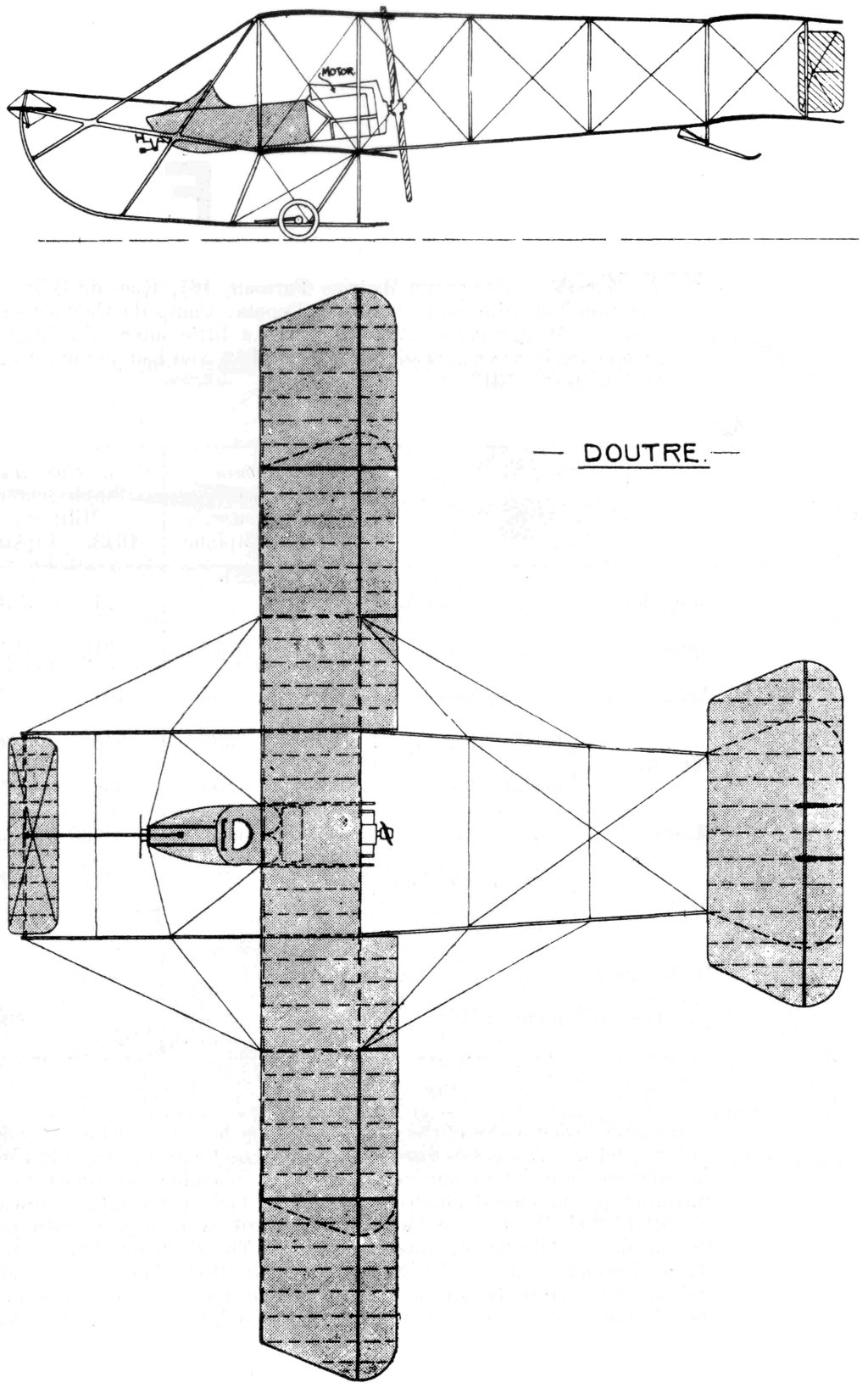
Henry and Maurice Farman, 167, Rue de Silly, Billancourt (Seine) Aerodromes: Buc, pres Versailles and Etampes. Depots: Camp de Chalons—Reims. Established by H. Farman in 1908. M. Farman established works a little later. In 1912 the two brothers combined. The present works were opened in January, 1912, and had an output capacity of at least 300 machines a year in March, 1913.
| H. Farman. Military. 2 or 3-seater. 1912-13. Biplane. | H. Farman. Single-seater. Military. 1913. Biplane. | H. Farman. 2-seater monoplane. | H. Farman. 2-seater special hydro-biplane. 1913. | M. Farman. Military biplane. | M. Farman. Big military biplane. | M. Farman. Staggered biplane. | ||
|---|---|---|---|---|---|---|---|---|
| Length | feet (m.) | 26-1/4 (8) | 24 (7.35) | 24-1/2 (7.50) | 26 (7.90) | 39-1/3 (12) | 46 (14) | 39 (11.90) |
| Span | feet (m.) | 42-3/4 (13.25) | 31-1/8 (9.50) | 32-3/4 (10) | 45 (13.70) | 50-3/4 (15.50) | 65-3/4 (20) | 36 (11) |
| Area | sq. feet (m².) | 376 (35) | 161 (15) | 204 (19) | 344 (32) | 646 (60) | 861 (80) | 323 (30) |
| Weight | total lbs. (kgs.) | 793 (360) | 640 (295) | 628 (285) | 950 (431) | 1102 (500) | 1433 (650) | 882 (400) |
| useful lbs. (kgs.) | 661 (300) | 386 (175) | ... | ... | 617 (280) | 882 (400) | 551 (250) | |
| Motor | h.p. | 70-80 Gnome | 70-80 Gnome | Designed for Gnomes from 40 up to 160 h.p. | 50 Gnome | 70 Renault | 70 Renault | 70 Renault |
| Speed | max. m.p.h. (km) | 65 (105) | 71 (15) | ... | 52 (100) | 56 (90) | 44 (70) | 69 (110) |
| min. m.p.h. (km) | ... | ... | ... | ... | ... | ... | ... | |
| Endurance | hrs. | 3 | ... | ... | ... | ... | ... | ... |
| Number built during 1912 | ... | ... | ... | ... | ... | ... | ... | |
Remarks.—The whole of the above can easily be converted into hydro-avions—two long narrow floats without steps. H. Farmans are of wood and steel construction; M. Farman, wood. In all 1913 biplanes the ailerons are inter-connected. All 1913 machines designed to carry one or in some cases two mitrailleuse, and special attention is paid to facility for taking down for transport and re-assembling. The 1911-12 H. Farmans had elevators forward, were a good deal longer, and had more surface than 1913 models. Ailerons not inter-connected. The M. Farmans generally as now, except that all planes, etc., had rounded edges. On September 11th, 1912, Foury, in an M. Farman military, made world's endurance record to date, 13 hrs. 22 min., covering 631 miles (1,017 km.) All models of this type, also the "big military," are fitted with the Doutre stabiliser. Fabric: "Aviator" Ramie.
Latest Hydro.—In March, 1913, a new hydro was produced experimentally. There is a boat body, without steps, carrying the motor which is chain connected with the propeller. Machine is fitted with wheels and skids as well.[Pg 93]
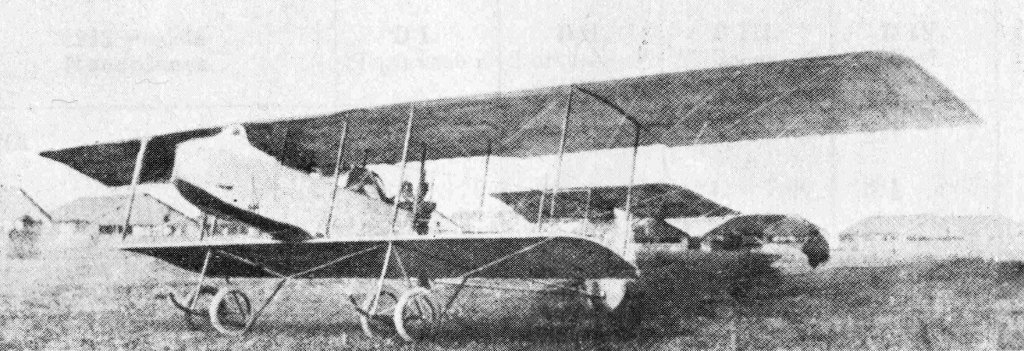
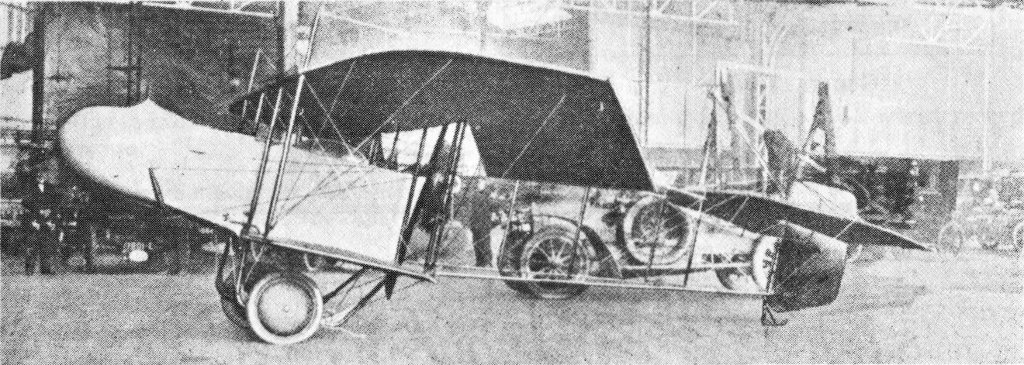
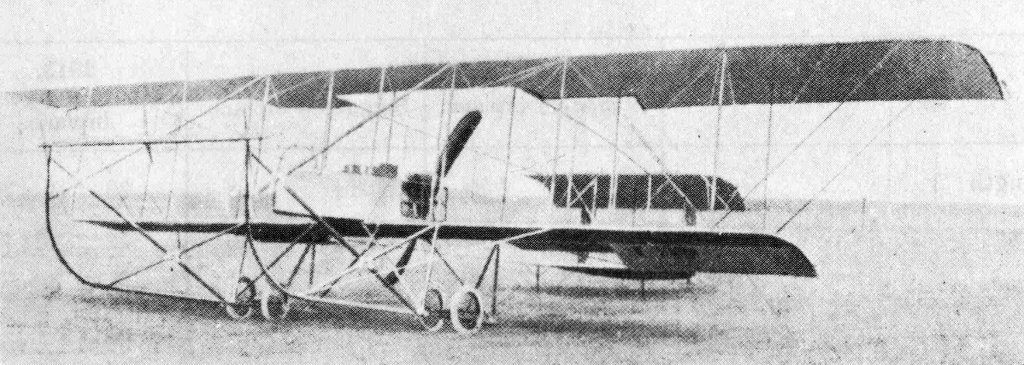

A. Goupy, 50, Avenue Marceau, Paris. School: Juvissy (Port Aviation). Capacity: about 30 machines a year.
| Model and date. | 1913 A. Staggered biplane. | 1913 B. Staggered biplane. | 1913. Hydro-staggered biplane. | |
|---|---|---|---|---|
| Length | feet (m.) | 25 (7.50) | 26-1/4 (8) | 33 (10) |
| Span | feet (m.) | 26-1/4 (8) | 42-3/4 (13) | 42 (12.70) |
| Area | sq. feet (m²) | ... | ... | 480 (45) |
| Weight | machine lbs. (kgs.) | ... | ... | 992 (450) |
| useful lbs. (kgs.) | ... | ... | 661 (300) | |
| Motor | h.p. | 50 Gnome | 80 or 100 Gnome | 80 Gnome |
| Speed | max. m.p.h. (km.) | 62 (100) | 75 (120) | 75 (120) |
| min. m.p.h. (km.) | ... | ... | ... | |
| Endurance | hrs. | ... | ... | ... |
| Number built during 1912 | ... | 12 | 1 | |
Fabric: "Aviator" Ramie.
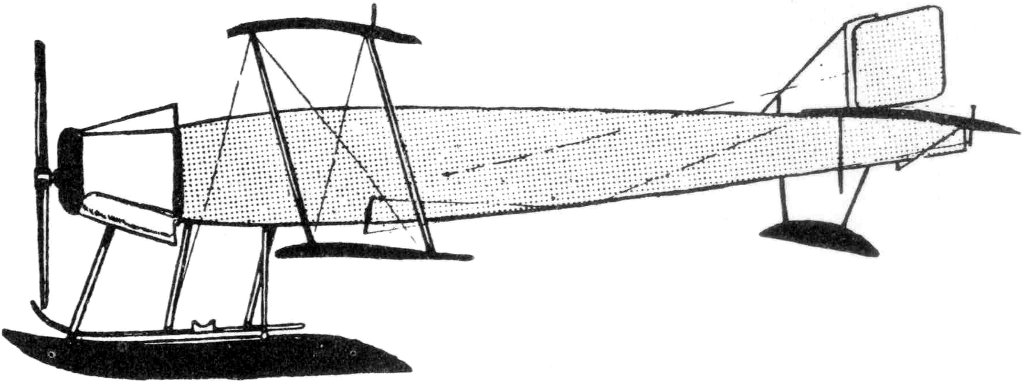
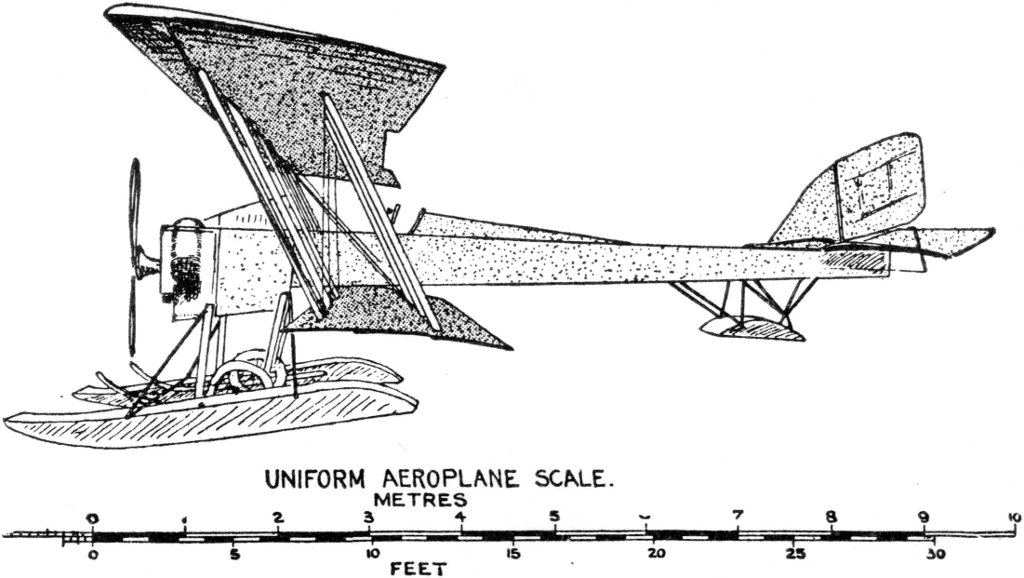
Aeroplanes Hanriot & Cie., 145 rue de Neufchatel, Reims. Paris office: 69 boulevard Berthier, Paris. School: Antibes, Reims.
| 1913 models. Monoplanes. | D I. Single seater. | D II. 2 or 3-seater. | D III. Racer. | D IV. Steel. | D VII. | |
|---|---|---|---|---|---|---|
| Length | feet (m.) | 23 (7) | 26-1/3 (8) | 21-3/4 (6.65) | 23 (7) | 23 (7) |
| Span | feet (m.) | 28-1/3 (8.70) | 42-3/4 (13) | 24 (7.30) | 28-1/3 (8.65) | 36 (10.95) |
| Area | sq. feet (m²) | 161 (15) | 226 (21) | 91 (8.50) | 161 (15) | 194 (18) |
| Weight | machine lbs. (kgs.) | 661 (300) | 937 (425) | 661 (300) | 661 (300) | 771 (350) |
| useful lbs. (kgs.) | ... | 616 (280) | ... | 396 (180) | 364 (165) | |
| Motor | h.p. | 50 Anzani | 100 Gnome | 100 Gnome | 50 R. Peugeot | 80 Gnome |
| Speed | max. m.p.h. (km.) | 69 (110) | 78 (125) | 106 (170) | 71 (115) | 71 (115) |
| min. m.p.h. (km.) | ... | ... | ... | ... | ... | |
| Endurance | hrs. | ... | ... | ... | ... | ... |
| Number built during 1912 | ... | ... | ... | ... | ... | |
Notes.—There are also two school types 35 and 45 h.p. Records include 1912 world record for speed with passengers.
None of the above machines represent any very particular divergence from recognised Hanriot practice. D IV is all steel construction, the others wood and steel.
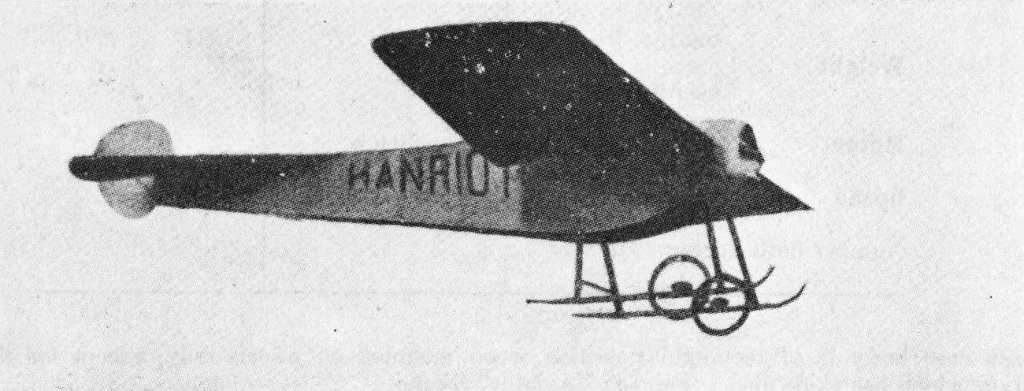
Soc. de constructions aéronautiques, Morane-Saulnier. 206 Boulevard Pereire. Capital: 1,500,000 francs. School: Villacoublay. Output capacity: about 50 machines a year.
| Military, 1913. | 2 places. Tandem. | ||
|---|---|---|---|
| Length | feet (m.) | 21 (6.38) | 21 (6.38) |
| Span | feet (m.) | 30-1/5 (9.20) | 33-1/2 (10.20) |
| Surface | sq. feet (m².) | 151 (14) | 172 (16) |
| Weight | total lbs. (kgs.) | 595 (270) | 617 (280) |
| useful lbs. (kgs.) | ... | ... | |
| Motor | h.p. | 50 h.p. | 80 h.p. |
| Speed | m.p.h. (km.) | 75 (120) | 75 (120) |
| Number built during 1912 | ... | ... | |
In each case body is of rectangular section, wood, mounted on wheels only, except for the military type which has skids also. Fabric: "Aviator" Ramie.
In all there is a rear elevator and a Chauvière tractor.
Note.—Flown in the European Circuit, 1911, by Vedrines, Gajet, Lesire, Morisson, Verept, Frey, Garnier and Dalgier.
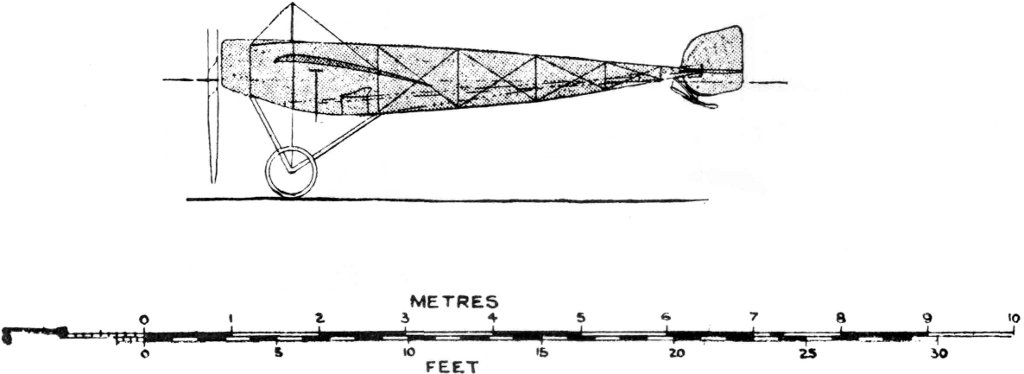

Moreau fréres, Combs-la-Ville.
| Model and date. | 1913. 2-seater. | |
|---|---|---|
| Length | feet (m.) | 31 (9.50) |
| Span | feet (m.) | 39-1/3 (12) |
| Area | sq. feet (m².) | 258 (24) |
| Weight | machine lbs. (kgs.) | 992 (450) |
| useful lbs. (kgs.) | ... | |
| Motor | h.p. | 70 Gnome |
| Speed | max. m.p.h. (km.) | 62 (100) |
| Number built during 1912 | 2 | |
Notes.—Fitted with a special stabilising device.
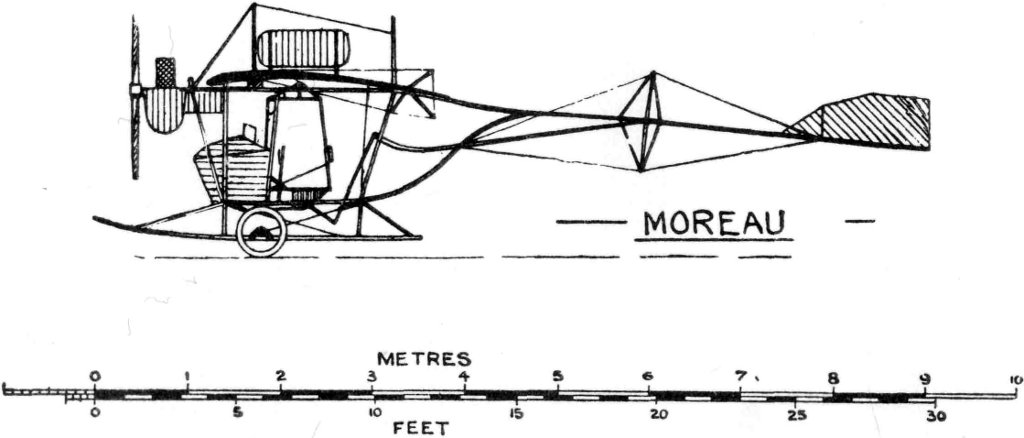
Etablissements Nieuport, 9 rue de Seine, Suresnes (Seine). Established 1910 by the late Edouard Nieuport. Approximate capacity of works: about 100 machines a year. Chief designer during 1911 was Pagny, who has now joined the Hanriot firm.
| Model and date. Monoplanes. | II N, 1912. | II G, 1912. | IV G, 1912-13. 2-seater. | IV M, 1912-13. 3-seater. | 1913. 2-seater. | 1913. 1-seater. | 1913. 1-seater. | 1913. Hydro 3-seater. | |
|---|---|---|---|---|---|---|---|---|---|
| Length | feet (m.) | 23-2/3 (7.20) | 23-2/3 (7.20) | 25-2/3 (7.80) | 25-2/3 (7.80) | 26-1/4 (8) | 21-3/4 (6.60) | 23 (7) | 29 (8.80) |
| Span | feet (m.) | 28-1/3 (8.65) | 28-1/3 (8.65) | 36 (10.90) | 39-1/3 (12.10) | 36 (11) | 28-1/3 (8.70) | 27-2/3 (8.40) | 40 (12.20) |
| Area | sq. feet (m².) | ... | ... | ... | ... | 231 (21-1/2) | 140 (13) | 156 (14-1/2) | 242 (22-1/2) |
| Weight | machine lbs. (kgs.) | 529 (240) | 683 (310) | 771 (350) | 1058 (480) | 771 (350) | 573 (260) | 573 (260) | 1230 (558) |
| useful lbs. (kgs.) | ... | ... | ... | ... | ... | ... | ... | ... | |
| Motor | h.p. | 30 Nieuport | Gnome | Gnome | Gnome | Gnome | 50 Gnome | 30 Nieuport | 100 Gnome |
| Speed | max. m.p.h. (km.) | 75 (120) | 87 (140) | 72 (117) | 72 (117) | 69 (110) | 78 (125) | 69 (110) | 72 (117) |
| min. m.p.h. (km.) | ... | 75 (120) | 69 (110) | ... | ... | ... | ... | ... | |
| Number built during 1912 | ... | ... | ... | ... | ... | ... | ... | ... | |
Notes.—Early types had a Hanriot style landing carriage; the 1913 models revert to a Bleriot type. Warping wings. Fuselage entirely enclosed, rectilineal with rounded nose.
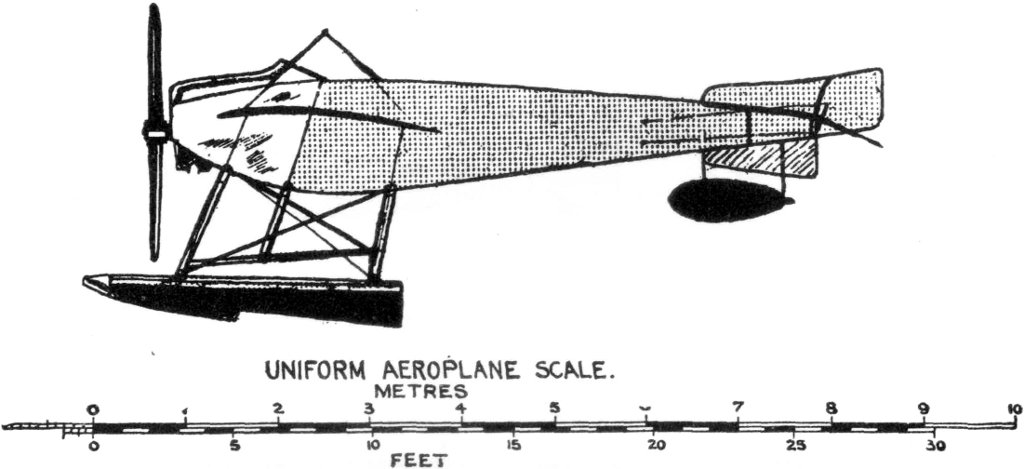
Soc. anonyme d'aviation Paulhan, (S.A.P.) 71 boulevard Berthier, Paris. Flying ground: Bois d'Arcy par St. Ayr (S. et O.) Hydro school: Juan-les-Pins, par Antibes (Alpes Maritimes).
Founded by the well-known aviator, L. Paulhan. He first produced biplanes, then triplanes and finally a monoplane type, the Tatin-Paulhan (1911). These are now all abandoned, and the firm devotes itself to building hydro-aeroplanes under Curtiss (U.S.A.) license. Principal type built are:—
| Model and date. Biplanes. | Flying boat. Single-seater. | Flying boat. 2-seater. | |
|---|---|---|---|
| Length | feet (m.) | ... | 27 (8.30) |
| Span | feet (m.) | 35-1/2 (10.80) | 37 (11.30) |
| Area | sq. feet (m².) | ... | 290 (26-3/4) |
| Weight | machine lbs. (kgs.) | ... | 948 (430) |
| useful lbs. (kgs.) | ... | ... | |
| Motor | h.p. | 75 Curtiss | 85 Curtiss |
| Speed | m.p.h. (km.) | ... | ... |
| Number built during 1912 | 2 | 8 | |
Établissements Autoplan, 4 rue Beranger, Boulogne sur Seine (Seine).
This firm has produced various types in the past, but at present, appears confined to constructing to specifications (See Pischoff-Werner last edition).
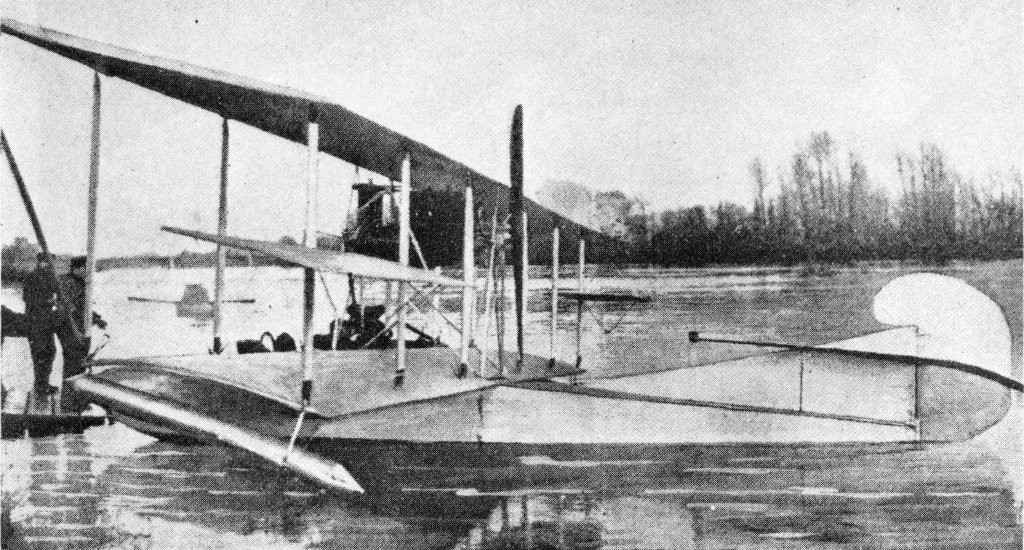
Robert Esnault-Pelterie, Billancourt. School: Bue. One of the earliest established French firms. The first to go in for steel construction. Reported to have amalgamated with Breguet in 1912, but this fell through.
| Model. Steel monoplanes. | 1912. 1-seater. | 1912. 2-seater. | 1912. Military. 3-seater. | 1913. 2-seater. | 1913. Hydro-mono. 2-seater. | ||
|---|---|---|---|---|---|---|---|
| Length | feet (m.) | 25-1/3 (7.70) | 25-1/3 (7.70) | 25-1/3 (7.70) | 23 (7) | 25 (7.50) | |
| Span | feet (m.) | 35 (10.70) | 38-1/3 (11.70) | 38-1/3 (11.70) | 36 (11) | 38-1/4 (11.60) | |
| Area | sq. feet (m².) | 215 (20) | 237 (22) | 323 (30) | 237 (22) | 323 (20) | |
| Weight | machine lbs. (kgs.) | 882 (400) | 661 (300) | 882 (400) | 595 (270) | ... | |
| useful lbs. (kgs.) | ... | ... | ... | ... | ... | ||
| Motor | make and h.p. | 60 Rep. | 66 Rep. | 90 Rep. | 95 Rep. | 80 Rep. | |
| Speed | max. mph. (km.) | 69 (110) | 69 (110) | 69 (110) | 78 (125) | 78 (125) | |
| min. mph. (km.) | ... | ... | ... | 62 (100) | 62 (100) | ||
| Number built during 1912 | ... | ... | ... | ... | ... | ||
Remarks:—Steel construction. Pentagonal and triangular body. Mounted on wheels and skids. The hydro is on one very large central float.
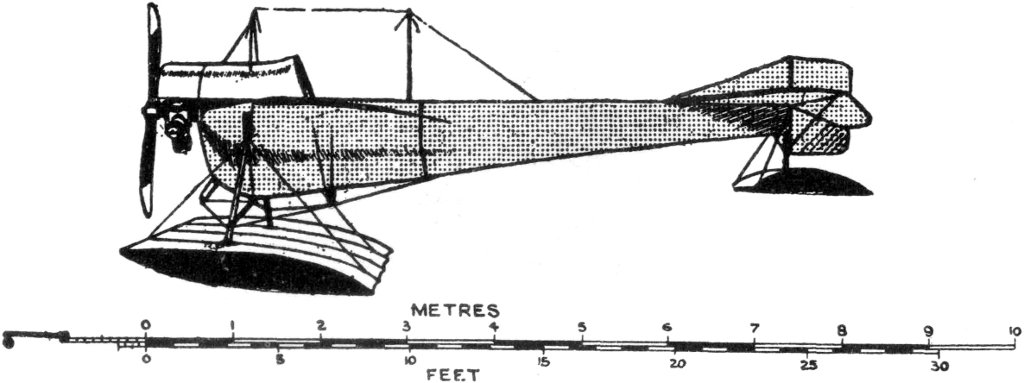
2 avenue de Villiers, Paris.
| Model and date. | 1912. Hydro-biplane. | 1912. Hydro-biplane. | 1913. Hydro-biplane. (amphibious) | |
|---|---|---|---|---|
| Length | feet (m.) | 34 (10.40) | ... | 32-3/4 (10) |
| Span | feet (m.) | 54 (16.40) | 55-3/4 (17) | 54-3/4 (16.60) |
| Area | sq. feet (m².) | 646 (60) | ... | 646 (60) |
| Weight | àvide lbs. (kgs.) | 1984 (900) | ... | 1102 (500) |
| useful lbs. (kgs.) | ... | ... | ... | |
| Motor | h.p. | 100 Renault | 70 Renault | 70 Renault |
| Speed | max. m.p.h. (km.) | 56 (90) | ... | 50 (80) |
| Endurance | hrs. | 5 | 5 | 6 |
| Number built during 1912 | 3 | 1 | 1 | |
Notes.—Wood and steel construction.
Controls.—Ailerons and rear elevators. Floats: The first has two and the second three floats. The 1913 model has a single boat body mounted on wheels.
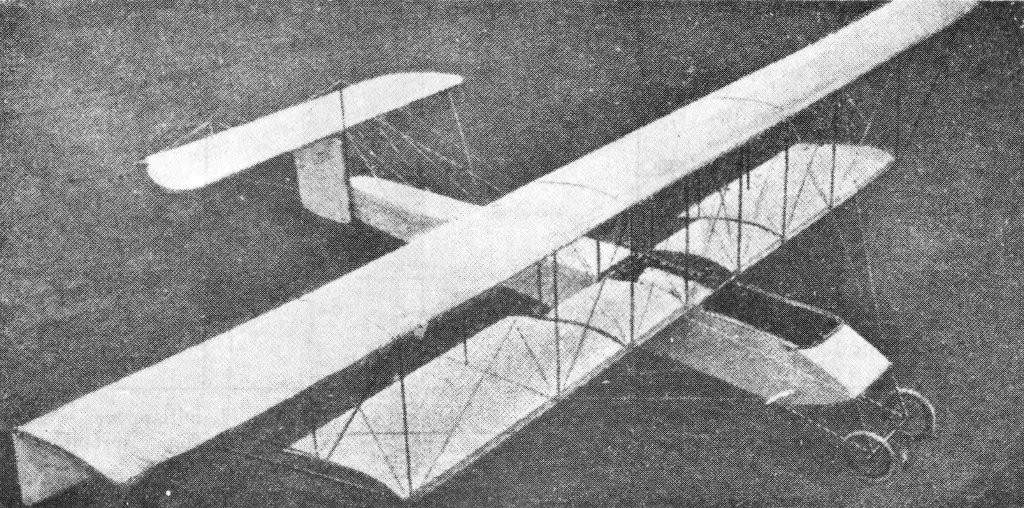
Soc. anonyme des aeroplanes. Robert Savary, 31 rue Dunois, Paris. School: Chartres. Output capacity: 100 to 150 machines a year.
| Model and date. | 1912. Biplane. | 1912. Military (3-seater.) | 1913. Biplane. | |
|---|---|---|---|---|
| Length | feet (m.) | 36 (11) | 33-1/2 (10.15) | 38-1/2 (11.70) |
| Span | feet (m.) | 46 (14) | 49 (14.90) | 49-1/4 (15) |
| 33 (10) | 37 (11.20) | 33 (10) | ||
| Area | sq. feet (m².) | 510 (48) | 533 (50) | 550 (52) |
| Weight | machine lbs. (kgs.) | 1132 (600) | ... | 1132 (600) |
| useful lbs. (kgs.) | ... | ... | ... | |
| Motor | h.p. | various | 70 Labor | 75 Renault(Gnome or Labor) |
| Speed | max m.p.h. (km.) | 56 (90) | ... | 59 (96) |
| min m.p.h. (km.) | 50 (80) | ... | ... | |
| Number built during 1912 | ... | 47 | ... | |
Notes.—Wood and steel construction. Control: ailerons and rear elevator. Landing gear: wheels and skids. Special features: There are 4 rudders in the gap, and 2 tractors, chain driven. Aeroplatte fabric.
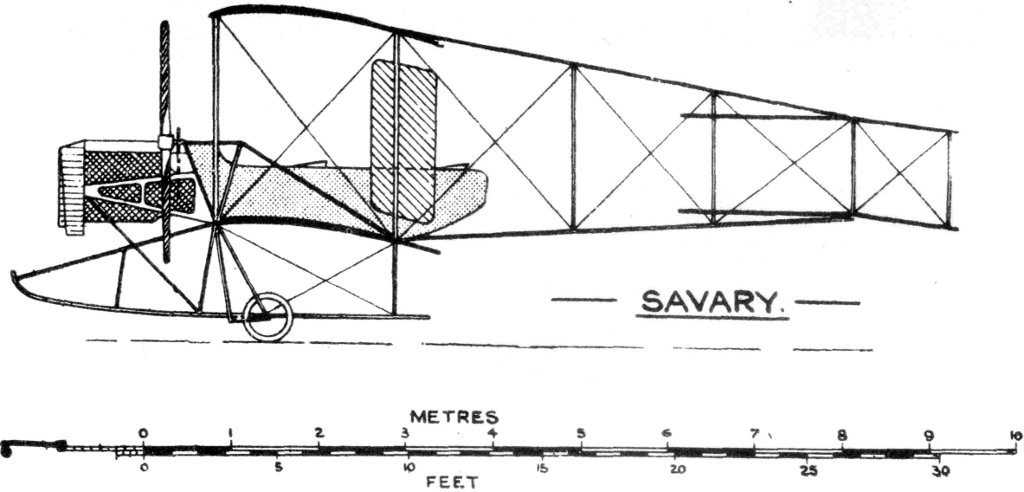
Sloan & Cie, 17 rue de Louvre, Paris. Works: 9 rue Victor Hugo, Charenton. Flying ground: Port Aviation. Output capacity: small.
| Model and date. | 1912. | 1913. | |
|---|---|---|---|
| Length | feet (m.) | 31-1/3 (9.50) | 29 (8.70) |
| Span | feet (m.) | 42-3/4 (13) | 42-1/2 (12.90) |
| Area | sq. feet (m²) | 527 (49) | 473 (44) |
| Weight | machine lbs. (kgs.) | 1100 (500) | 662 (300) |
| useful lbs. (kgs.) | ... | ... | |
| Motor | h.p. | 100 Gnome | 120 Laviator |
| Speed | max. m.p.h. (km.) | 59 (95) | 65 (105) |
| Number built during 1912 | ... | ... | |
Notes.—Wood construction. Wheels and skids landing gear. Control: ailerons and rear elevator.
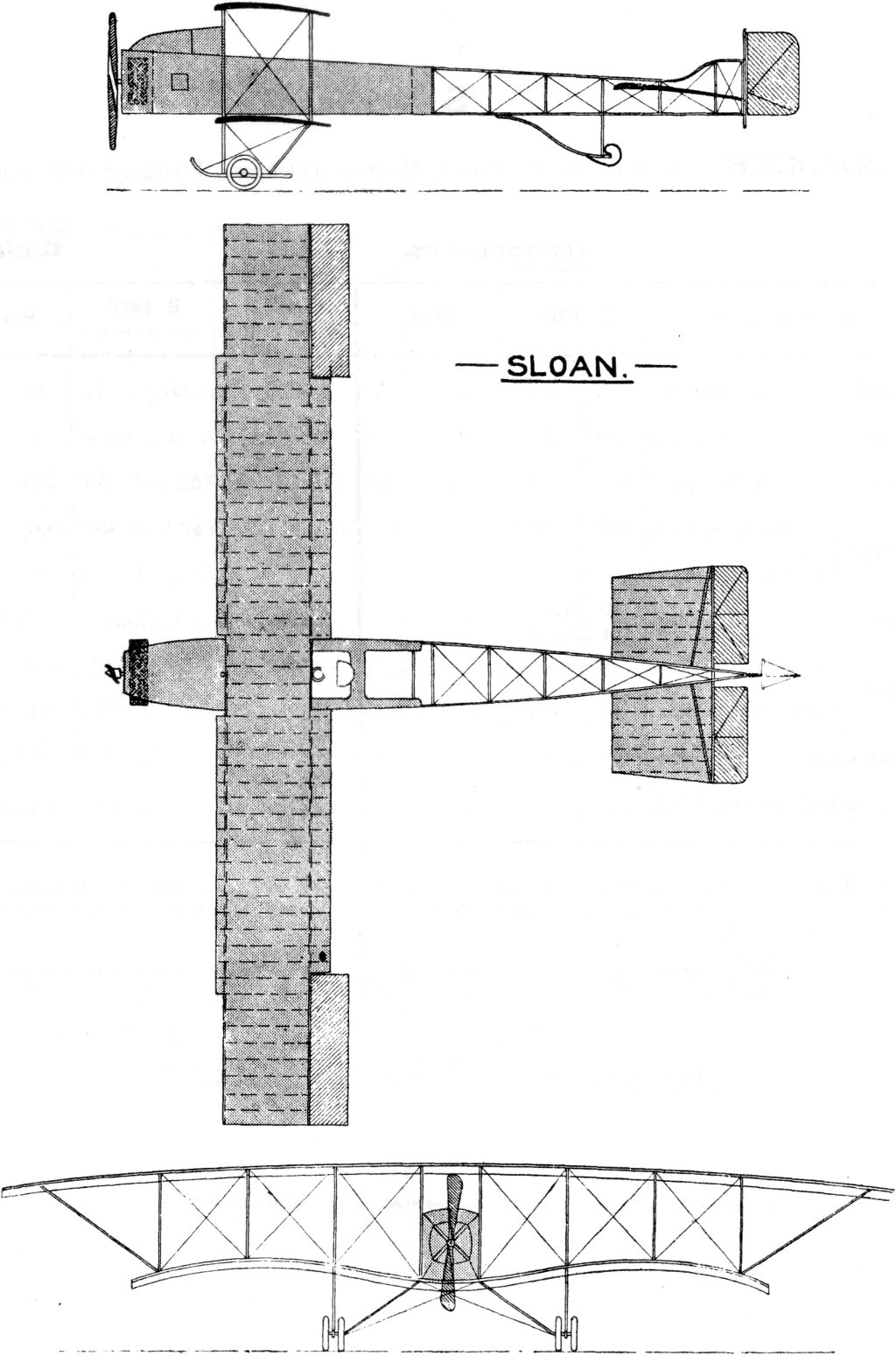
Ateliers Roger Sommer, Mouzon, Ardennes. Flying grounds: Douzy, Mourmelon, Vidammé.
| Monoplanes. | Biplanes. | |||||||
|---|---|---|---|---|---|---|---|---|
| Model and date. | E 1912. | 1913. | K 1912. Single seater. | R 1912. 2 or 3-seater | S 1912. | L 1912. | R3 1913. 2 or 3-seater | |
| Length | feet (m.) | 22 (6.70) | 23 (7) | 39-1/4 (12) | 36 (11) | 31 (9.50) | 29-1/2 (9) | 38-2/3 (11.70) |
| Span | feet (m.) | 28-1/2 (8.70) | 26-1/4 (8) | 39-1/4 (12) | 51 (15.50) | 42 (12.80) | 39-1/4 (12) | 46 (14) |
| Area | sq. feet (m².) | 172 (16) | 172 (16) | 215 (20) | 533 (50) | 350 (32) | ... | 575 (54) |
| Weight | machine lbs. (kgs.) | 595 (270) | 617 (280) | 617 (280) | 992 (450) | 597 (275) | 639 (290) | 882 (400) |
| useful lbs. (kgs.) | ... | ... | ... | ... | ... | ... | ... | |
| Motor | h.p. | 50 Anzani or Gnome | 50 Gnome | Various | Various | Various | Various | 70 Renault |
| Speed | max. m.p.h. (km.) | 84 (135) | 84 (135) | 61 (98) | 50 (80) | 57 (92) | 56 (90) | 56 (90) |
| min. m.p.h. (km.) | 67 (108) | 65 (105) | 53 (85) | ... | 53 (84) | ... | ... | |
| Endurance | hrs. | 4 | 4 | ... | ... | ... | ... | ... |
| Number built during 1912 | ... | ... | ... | ... | ... | ... | ... | |
| Wood and steel construction. Landing: carriage wheels. Control: warping and rear elevator. Rectangular body. | Wood and steel construction. Landing: wheels and skids. Control: ailerons and front rear elevator. | |||||||
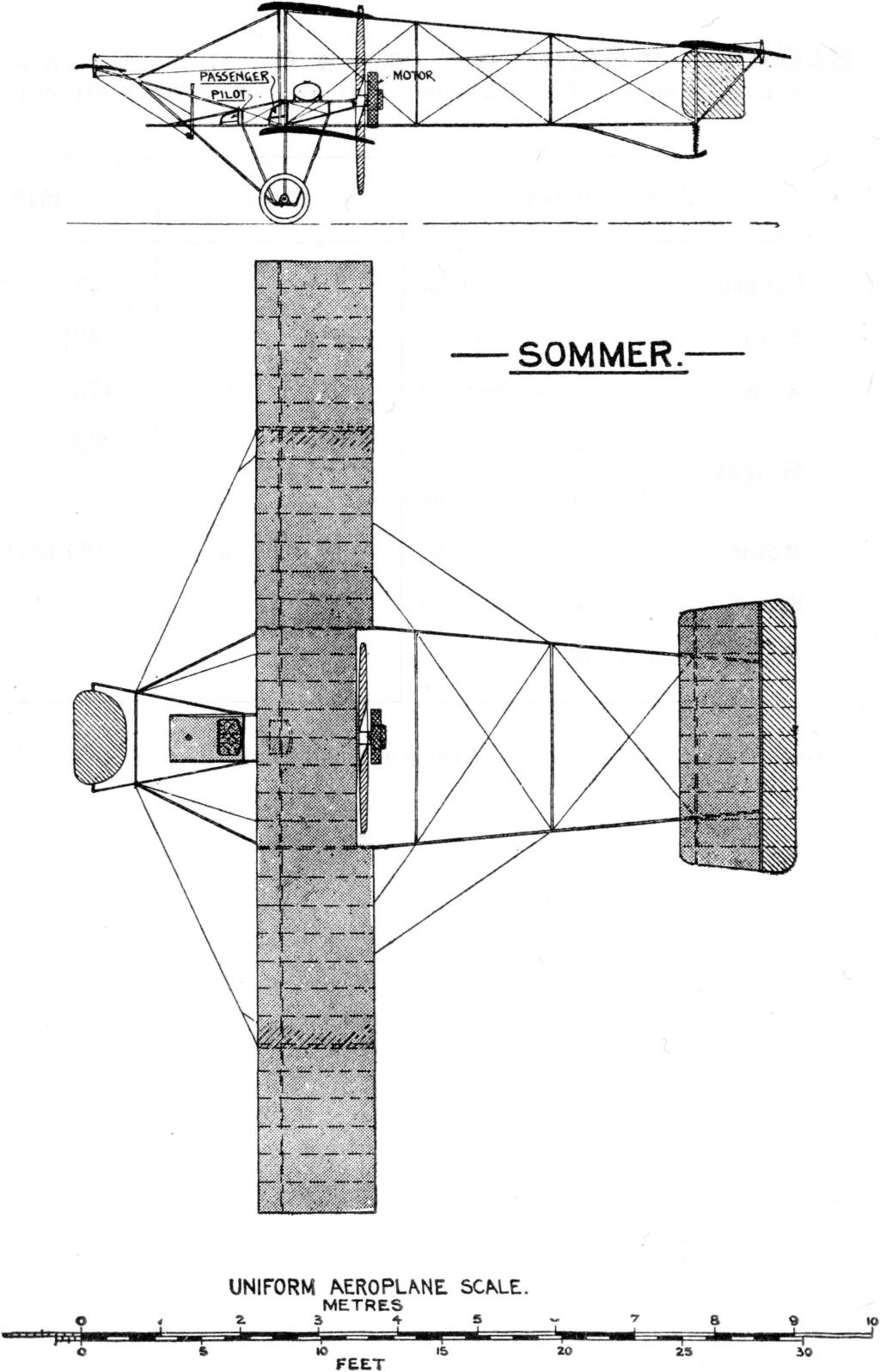
E. Train, Buoy, Camp de Chalons (Marne).
| Model and date. Monoplanes. | 1-seater. | 2-seater. | Hydro-mono. | |
|---|---|---|---|---|
| Length | feet (m.) | 26-1/4 (8) | 26-1/4 (8) | 26-1/4 (8) |
| Span | feet (m.) | 30-3/4 (9.30) | 35 (10.66) | 42-1/2 (12.94) |
| Area | sq. feet (m².) | 172 (16) | 215 (20) | ... |
| Weight | machine lbs. (kgs.) | 573 (260) | 617 (280) | ... |
| useful lbs. (kgs.) | ... | ... | ... | |
| Motor | h.p. | 30/60 Anzani | 70 Gnome | 80 Gnome |
| Speed | max. m.p.h. (km.) | 59 (95) | 65 (105) | ... |
| min. m.p.h. (km.) | 47 (75) | ... | ... | |
| Number built during 1912 | ... | ... | ... | |
Notes.—Steel construction. Landing: carriage wheels and skids. Control: warping and rear elevator. The hydro has one very large float which extends a considerable distance ahead of the tractor.
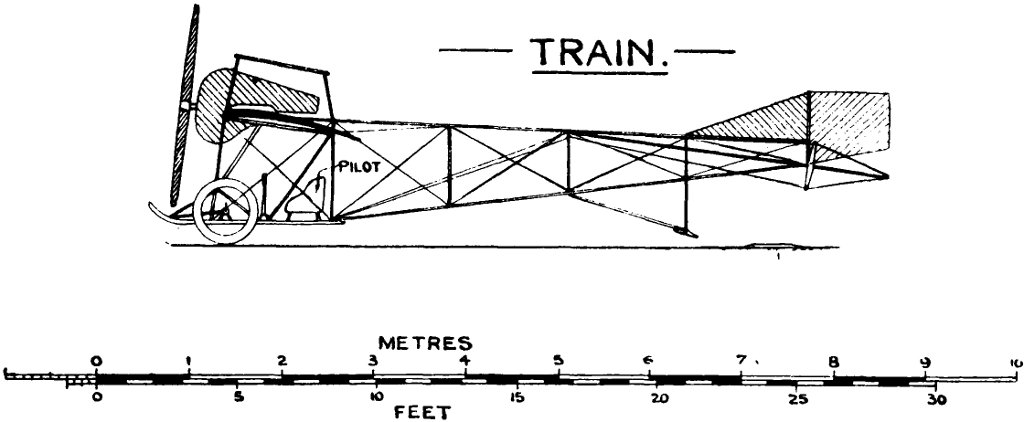
Ponche & Primaud, Long.
| Model and date. | Monoplane. 1913. | |
|---|---|---|
| Length | feet (m.) | 29 (8.85) |
| Span | feet (m.) | 29-1/2 (9) |
| Area | sq. feet (m².) | 194 (18) |
| Weight | machine lbs. (kgs.) | 772 (350) |
| useful lbs. (kgs.) | ... | |
| Motor | h.p. | 70 Gnome |
| Speed | max. m.p.h. (km.) | 65 (105) |
| Number built during 1912 | 1 | |
Notes.—Tubular steel construction. Landing: wheels and 2 very long skids. Propeller: amidships.
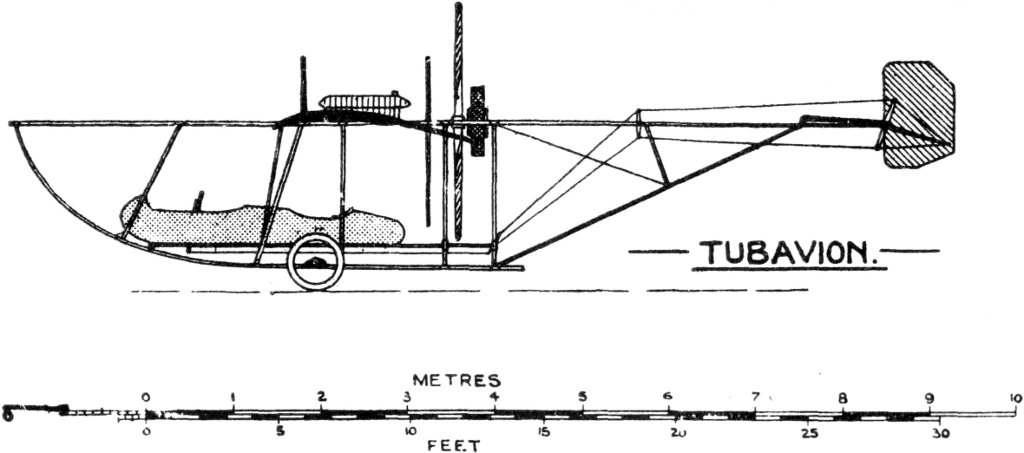
Gaston Vinet, 41-47 quai de Seine, Courbevoie: also 2-8 rue Larnac. Established for automobile work, 1893. Aeroplane output capacity: small.
| Model and date. | Type D 1912 mono. | 1913. Mono. | |
|---|---|---|---|
| Length | feet (m.) | 21-1/2 (6.60) | 21 (6.40) |
| Span | feet (m.) | 28-1/2 (8.60) | 28 (8.50) |
| Area | sq. feet (m².) | 162 (15) | 162 (15) |
| Weight | machine lbs. (kgs.) | 550 (250) | 440 (200) |
| useful lbs. (kgs.) | ... | ... | |
| Motor | h.p. | 50 Gnome | 50 Gnome |
| Speed | max m.p.h. (km.) | 56 (90) | 60 (95) |
| Number built during 1912 | 6 | ... | |
Notes.—Wood construction. Landing wheels and skids. Control: warping and rear elevator. Rectangular body. The two types are practically identical.
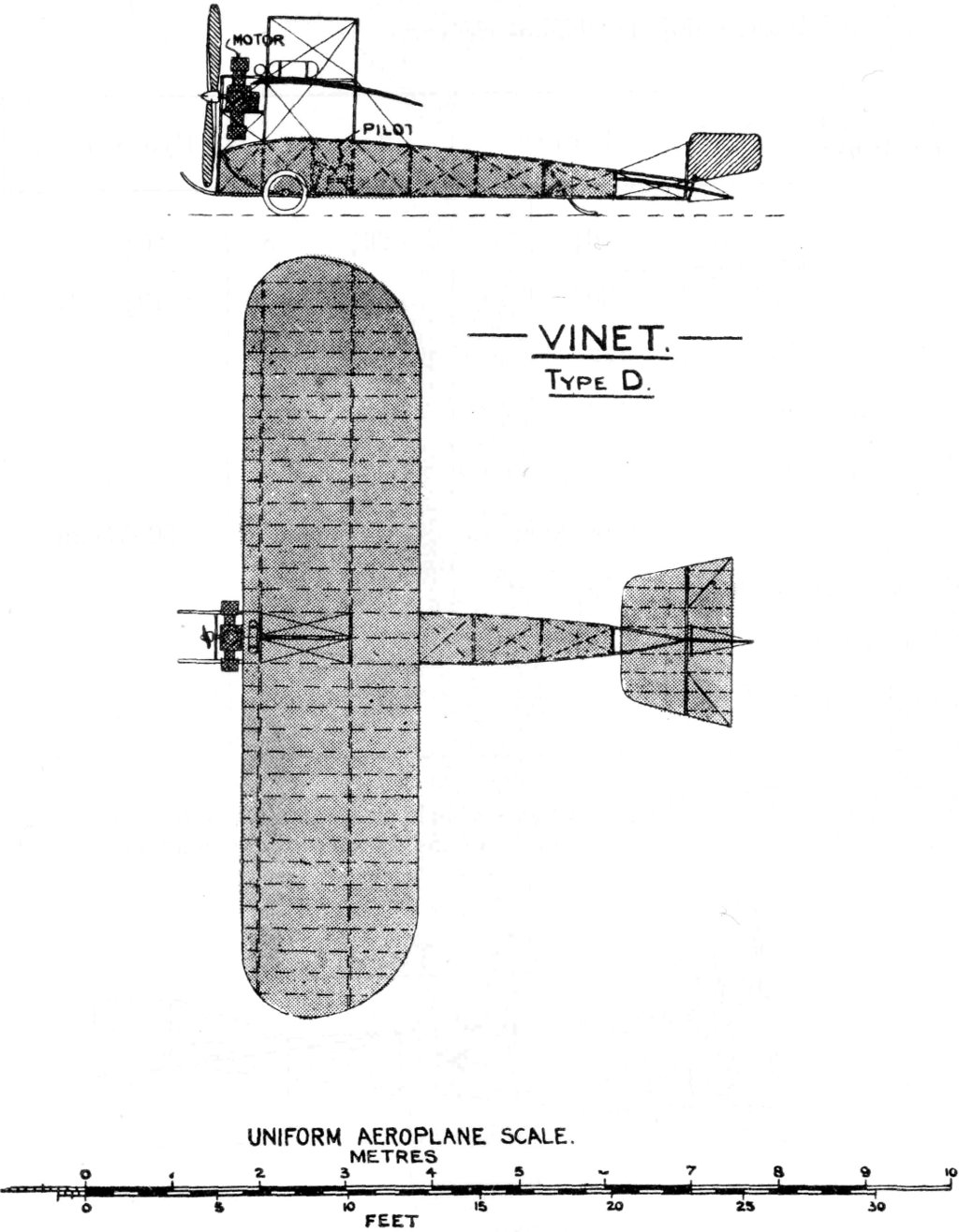
Voisin Aéroplanes, Boulevard Gambetta, Issy le Molineux, (Seine). School: Mourmelon. Capital 1,000,000 francs. The oldest aeroplane firm in the world, founded by the Brothers Voisin in 1905. (See past editions).
Latest models are:
| Model and date. | Military biplane. Model 1912. | Hydro-biplane. Model 1912. | Military biplane. Model 1913. | |
|---|---|---|---|---|
| Length | feet (m.) | 37-3/4 (11.50) | 36 (11) | 32-3/4 (10) |
| Span | feet (m.) | 55-3/4 (17) | 43-1/4 (13.50) | 45-1/3 (13.80) |
| Area | sq. feet (m².) | 387 (36) | 376 (35) | 398 (37) |
| Weight | total lbs. (kgs.) | 1367 (620) | 1212 (550) | 1102 (500) |
| useful lbs. (kgs.) | 772 (350) | 661 (300) | 794 (360) | |
| Motor | h.p. | 70 Renault | 100 Gnome | 80 Gnome |
| Speed | max. m.p.h. (km.) | 62 (100) | 62 (100) | 65 (105) |
| min. m.p.h. (km.) | ... | ... | ... | |
| Number built during 1912 | 47 | 8 | ... | |
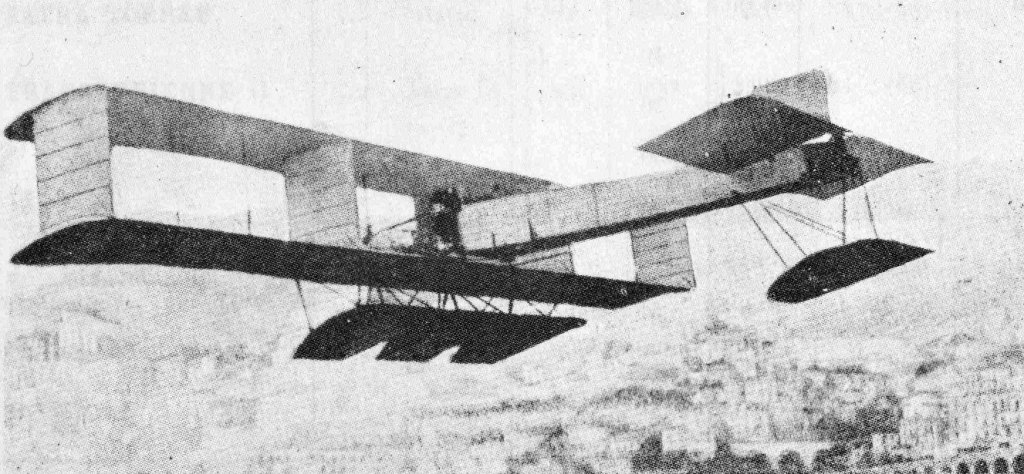
Société Zodiac, 10 route du Havre, Puteaux pres Paris (Seine). Aero park: St. Cyr l'Ecole pres Versailles. Established 1896. Capital 850,000 francs.
| Model and date. | S2. 1913. | |
|---|---|---|
| Length | feet (m.) | 38-3/4 (11.75) |
| Span | feet (m.) | 49 (15) |
| feet (m.) | 36 (11) | |
| Area | sq. feet (m².) | 350 (32) |
| Weight | machine lbs. (kgs.) | 1010 (460) |
| useful lbs. (kgs.) | 551 (250) | |
| Motor | h.p. | 50 Gnome |
| Speed | max. m.p.h. (km.) | 59 (95) |
| Number built during 1912 | ... | |
Notes.—Wood construction. Control: Ailerons and 1 rear elevator. Upper planes staggered 30 in advance of lower. Quadrilateral fuselage. Piloted passenger side by side. Landing carriage: 2 wheels and 1 skid. Aeroplatte fabric.
The 1912 model was practically the same.
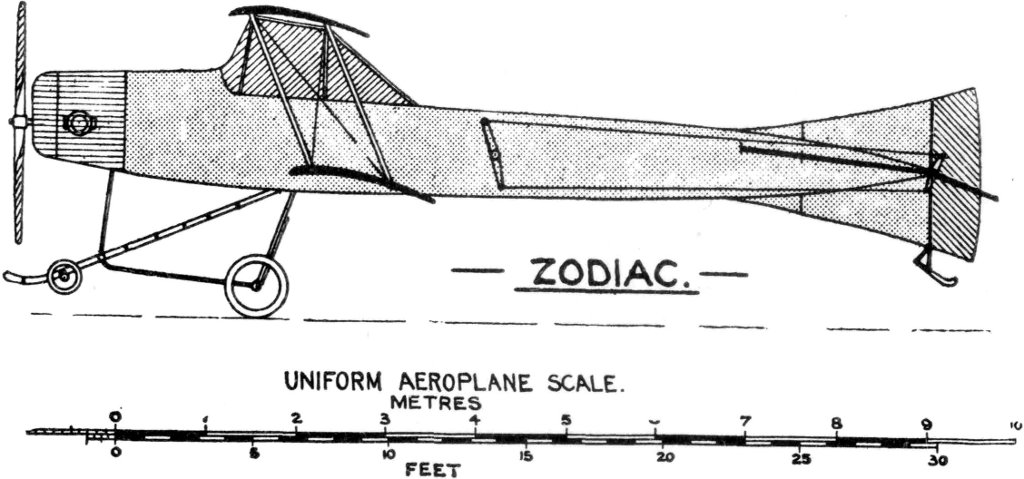
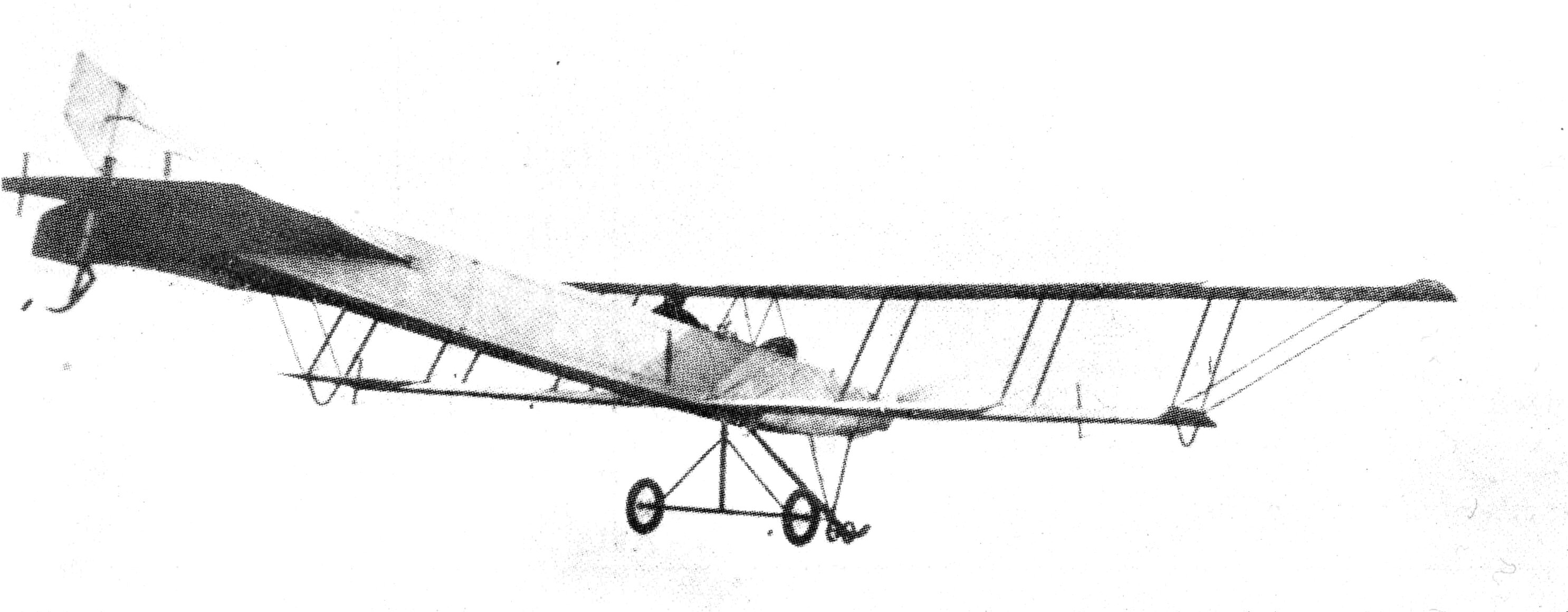
| Date. | Name. | Make. | Type. | Capacity in m³. | H.P. | Speed. m.p.h. (K) | Notes. |
|---|---|---|---|---|---|---|---|
| 1909 | LIBERTÉ | Lebaudy | s.r. | 4800 | 120 | 28 (45) | |
| 1910 | COL. RENARD | Astra | n.r. | 4100 | 100 | 30 (50) | |
| 1911 | ADJUTANT REAU | Astra 10 | n.r. | 8950 | 220 | 32 (53) | |
| " | LIEUT. CHAURE | Astra 11 | n.r. | 8950 | 220 | 32 (53) | |
| " | ADJ. VINCENNOT | C. Bayard 4 | n.r. | 7500 | 75 | 29 (48) | |
| " | SELLE DE BEAUCHAMP | Lebaudy | s.r. | 8000 | 75 | 30 (50) | |
| " | CAPT. MARÉCHAL | Lebaudy | s.r. | 7500 | 160 | ||
| " | LE TEMPS | Zodiac 9 | n.r. | 2500 | 75 | 29 (48) | |
| " | CAPT. FERBER | Zodiac 10 | n.r. | 6000 | 180 | 33 (54) | |
| " | COMDT. COUTELLE | Zodiac 11 | n.r. | 9000 | 380 | 37 (60) | |
| 1912 | SPIESS | Zodiac 12 | r. | 11000 | 400 | 40 (65) | |
| " | FLEURUS | C. Bayard 5 | n.r. | 6500 | 150 | 36 (58) | |
| " | ECLAIREUR CONTÉ | Astra 12 | n.r. | 6640 | 75 | 28 (46) | |
| " | DUPUY DE LÔME | C. Bayard 6 | n.r. | 9700 | 244 | 35-1/2 (58) | |
| Building | A | Astra | ? | ||||
| B | C. Bayard 7 | ? | |||||
| C | Lebaudy | ? | 17000 | 1000 | 43-1/2 (70) | ||
| D | Zodiac 13 | ? | |||||
| ? | |||||||
| Pro. | 7 new 20,000 c.m. | ? |
Military sheds at Belfert, Epinal, Maubenge, Reims, Toul, Verdun (2).—Total 7.
During the year 1912 the principal work done was as follows:—
| Name. | Hours out. | Distance travelled. m. (km.) | Gas used. m³ |
|---|---|---|---|
| C. Ferber | 152 | 3540 (5900) | 45,500 |
| Adj. Reau | 105-1/2 | 2310 (3845) | 81,000 |
| Dupuy de Lôme | 100 | 2655 (4424) | 66,500 |
| Adj. Vincennot | 55 | 1340 (2235) | 50,000 |
| Le Temps | 23 | 440 (700) | 9,000 |
| Fleurus | 3-3/4 | 100 (159) | 19,000 |
Note.—There are no dirigibles attached to the Navy.
| Date. | Name. | Make. | Type. | Capacity in m³. | H.P. | Speed. m.p.h. (k.p.h.) | Remarks. |
|---|---|---|---|---|---|---|---|
| 1909 | ASTRA | Astra 7 | n.r. | 4475 | 100 | 27 (43) | |
| 1909 | ZODIAC III | Zodiac 3 | n.r. | 1400 | 40 | 28 (45) | |
| 1911 | ASTRA TORRES | Astra | n.r. | 1930 | 55 | 34 (56) | |
| 1912 | TRANSAERIENNE II | Astra 13 | n.r. | 9000 | 350 | 34 (56) |
Private sheds at Chalons-s-Marre, Issy (2), Lamotte-Breuil, Meaux, Melun, Mousson, Reims, Pau, St. Cyr (2).—Total 11.
32 sheds are building or projected by the National Aviation Committee.
Private Dirigible Pilots.
Astra Societe de Constructions Aeronautique, 13, Rue Couchot, and 121, Rue de Bellevue, Billancourt.
This Society was founded by Surcouf for the production of ordinary balloons. The first dirigible work was building part of the old Lebaudy in 1903, followed in 1906 by the Ville de Paris. The total number of dirigibles of this type completed by the end of 1912 stood at 14, one very large dirigible in hand for the French Army, and one small one for the British Navy, and another for the Russian Army.
Owing to changes in names, or owing to two names getting supplied to one ship, confusion frequently exists as to the names of the Astra dirigibles. The correct list is as follows:—
| 1. | Part of the LEBAUDY | 1903 |
| 2. | VILLE DE PARIS | 1906 |
| 3. | VILLE DE BORDEAUX | 1908 |
| 4. | VILLE DE NANCY | 1909 |
| 5. | Russian Military dirigible, KOMMISSIONNY, originally known as CLEMENT-BAYARD I | 1909 |
| 6. | COLONEL RENARD | 1909 |
| 7. | ASTRA-TRANSAERIENNE-VILLE DE PAU-VILLE DE LUCERNE[C] | 1909 |
| 8. | ESPANA (Spanish Military) | 1909 |
| 9. | VILLE DE BRUXELLES | 1910 |
| 10. | LIEUT. CHAURE (French Military) | 1911 |
| 11. | ADJUTANT RÉAU (French Military) | 1911 |
| 12. | ECLAIREUR CONTÉ (French Military) | 1912 |
| 13. | TRANSAERIENNE II | 1912 |
| 14. | ASTRA-TORRES I | 1911 |
[C] This ship has frequently figured as four different dirigibles.
The general features of the Astra class are: Non-rigid, weights distributed by means of a long girder hung under the gas bags, a long nacelle, and inflated stabilising shapes at the rear end of the balloon.
The Astra-Torres type are also non-rigid, but of trefoil section with a short nacelle.
The Compagnie Generale Transaerienne was first established in 1909 with Transaerienne I, and during the summers 1909, 1910 and 1911, this ship made a total of 273 ascents, carried 2590 passengers, and voyaged 7990 kilometres.
The Astra firm has dirigible hangers at Issy, Pau, Meaux, and Reims. Its constructional capacity is sufficient to build six dirigibles at any one time.[Pg 111]
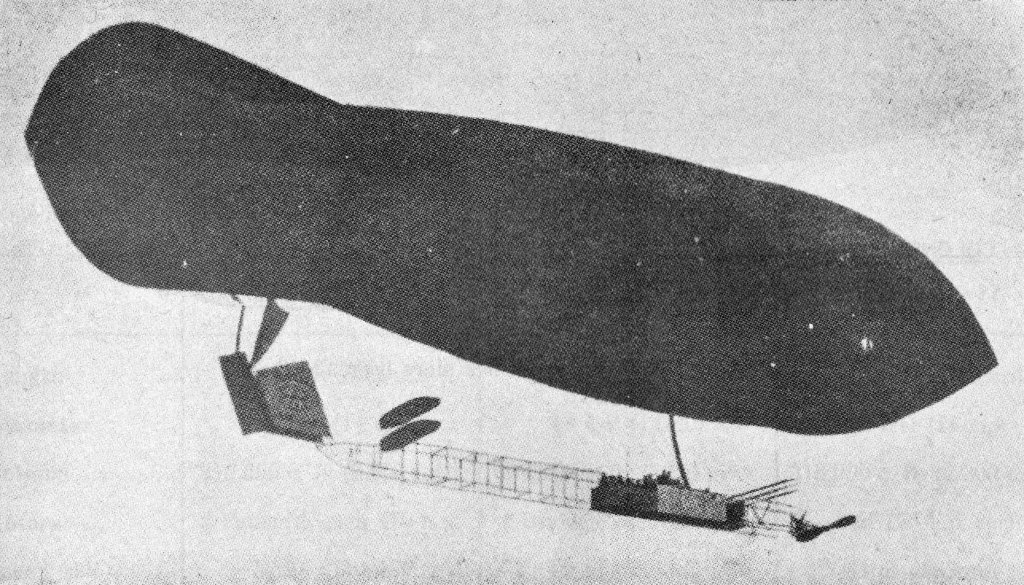
Maximum length, 197 feet (60 m.) maximum diameter, 40 feet (12.20 m.) volume, 158,000 c. feet (4,475 m³.)
Total lift.—Just over 7 tons=15,763 lbs. (7,150 kgs.) Useful lift, lbs. ( kgs.)
Gas bags.—Continental rubbered fabric, yellow.
Motor.—One 90-100 C. Bayard.
Speed.—27 m.p.h. (43 k.p.h.)
Propellers.—One.
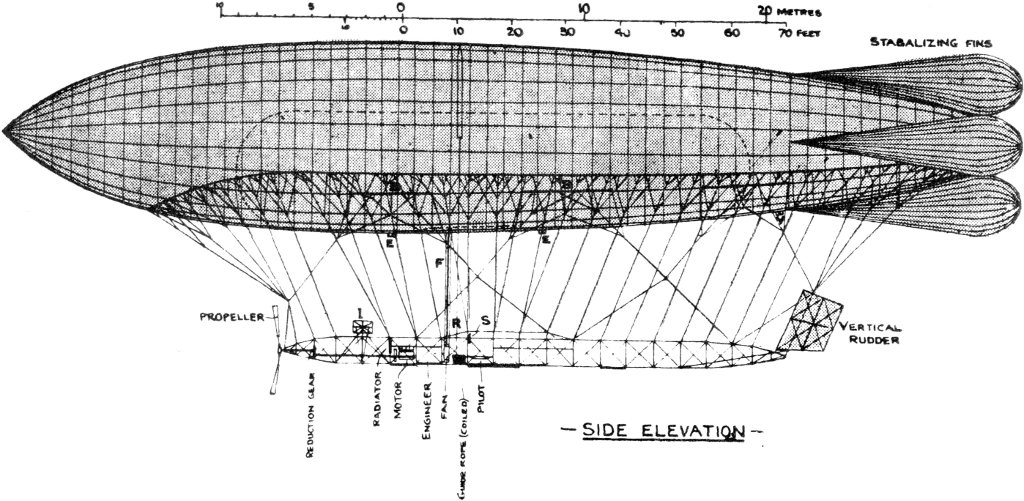
COLONEL RENARD. Military (1909).

Maximum length, 213 feet (65 m.) maximum diameter, 35 feet (10.50 m.) volume, 145,000 c. feet (4,200 m³.)
Total lift.—9,921 lbs. (4,500 kgs.)=about 4½ tons.
Gas bags.—Yellow coloured rubber proofed Continental fabric.
Motor.—One 110 h.p. 4-cylinder Panhard.
Speed.—29 m.p.h.
Propellers.—1, at the front end of the car. "Integrale."
Steering.—Elevators.
Remarks.—The two side stabilising shapes are duplicated, as they were in the Ville de Paris. A webbing stretched on steel tubes is introduced between the inner edges of the 4 main stabilising shapes to provide extra stabilising surface.

Note.—An elevator aft has since been added.
Improved Col. Renard's are:—
Particulars of these are as follows:—
| Lieut. Chaure. | Adjutant Reau. | Transaerien II. | |
|---|---|---|---|
| Length | 275-1/2 feet (83.8 m.) | 285 feet (86.78 m.) | 250 feet (76.25 m.) |
| Diameter | 46 feet (14 m.) | 46 feet (14 m.) | 46 feet (14 m.) |
| Volume | 312,550 c. ft. (8,850 m³.) | 314,000 c. ft. (8950 m³.) | 318,000 c. ft. (9,000 m³.) |
| Motors | 2 Panhard, each 110 h.p. | 2 Brasier, each 110 h.p. | 2 of 175 h.p. each |
| Speed (p.h.) | 32 m. (53 km.) | 32 m. (53 km.) | 34 m. (56 km.) |
Notes.—All have 1 propeller forward of 6 m. diameter, and 2 aft of 3.70 m. The Lieut. Chaure's empeunage is by ballonets; in the other two a cellular system and automatic stabilisation are the special feature.
Nominal volume, 6,500 m³.
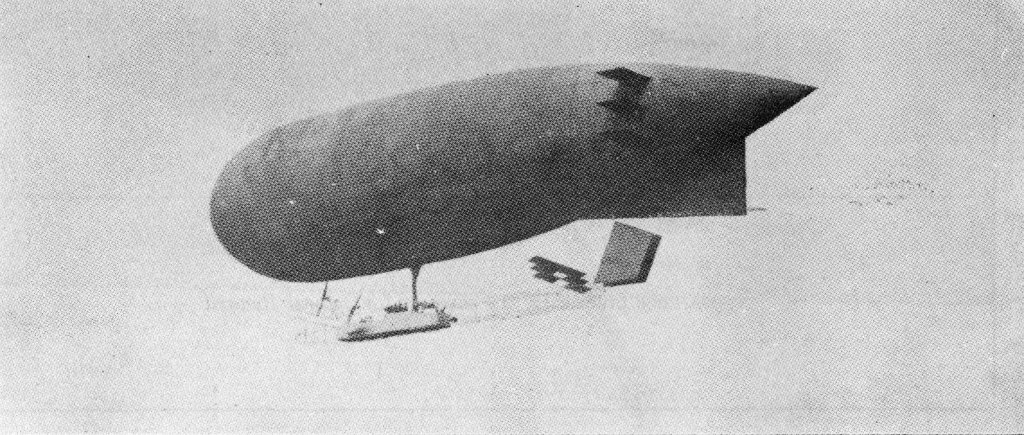
Length, 213 feet (65 m.) diameter, 46 feet (14 m.) volume, 234,500 c. feet (6,640 m³.)
Ballonets.—Volume, 71,770 c. feet (2,032 m³) empeunage: cellular.
Nacelle.—Length, 115 feet (35 m.) Breadth, 5½ feet (1.60 m.) Height about 6 feet (2-1.50 m.)
Motor.—2 Chenu, 80 h.p. Hele-Shaw clutch.
Speed.—About 28 m.p.h. (43-45 km.p.h.)
Propellers.—2 central aft, each of 4 m. (13 feet) diameter. 650 r.p.m.
Empeunage.—Cellular, Stabilisation automatic.
Notes.—In this type the usual Astra style, rear of gas bag, is entirely done away with. Surface of each elevator is 18², of the rudder 33 m². There are 2 petrol reservoirs, each of 180 litre capacity.
Weights.
| lbs. | (kgs.) | |
|---|---|---|
| Crew | 838 | (380) |
| Details | 1367 | (620) |
| Tools, etc. | 220 | (100) |
| "Lest d'altitude" | 2205 | (1000) |
| "Lest d'altitude" securité | 661 | (300) |
| Total | 5291 | (2400) |
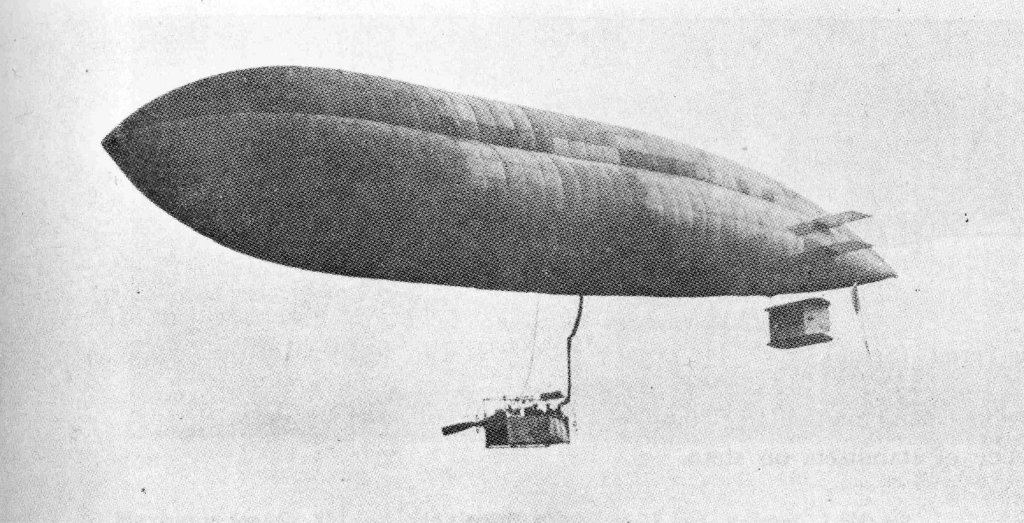
Length, 157 feet (47.72 m.) diameter, 33 feet (10 m.) volume, 68,150 c. feet (1,930 m³.)
Ballonets.—Volume, 11,300 c. feet (320 m³.)
Nacelle.—Length, 18 feet (5.50 m.) Breadth, 5 feet (1.50 m.) Height, 6½ feet (2 m.)
Useful lift.—1,219 lbs. (553 kgs.)
Motor.—1 Chenu, 55 h.p., at 1,380 r.p.m. Clutch, Ruban.
Speed.—31 m.p.h. (50 km.) Endurance about 5 hours.
Propeller.—1 in rear of nacelle. Diameter, 14¾ feet (4.50 m.)
Notes.—The special feature of this type is that it is constructed in three lobes, two below and one above. This particular ship is merely experimental, and is known as a "Vedette." Three models of it are to be obtained, (1) this 55 h.p. of 1,930 m³. volume. (2) a 75 h.p. of 2,000 m³. nominal volume. (3) a 110 h.p. of from 3,000-3,500 m³. volume. This latter is designed to have two propellers instead of one.
Larger editions of the type are also projected as follows:—

Usines Clement-Bayard, 33, quai Michelet, Levallois-Perret (Seine).
These dirigibles closely resemble the Astra class in some main particulars; but (excepting I) differ from them in the sharp sterns and absence of stabilisers on stern.
The ships of this class are:—
| 1 | CLEMENT-BAYARD | I(Kommissionny) | Russian Military |
| 2 | " | II | British Military (wrecked) |
| 3 | " | ||
| 4 | " | IV (Adjutant Vincennot) | French Military |
| 5 | " | V (Fleurus) | " |
| 6 | " | VI | Private |
| 7 | " | VII | French Military (building), To be of 17,000 m³. |
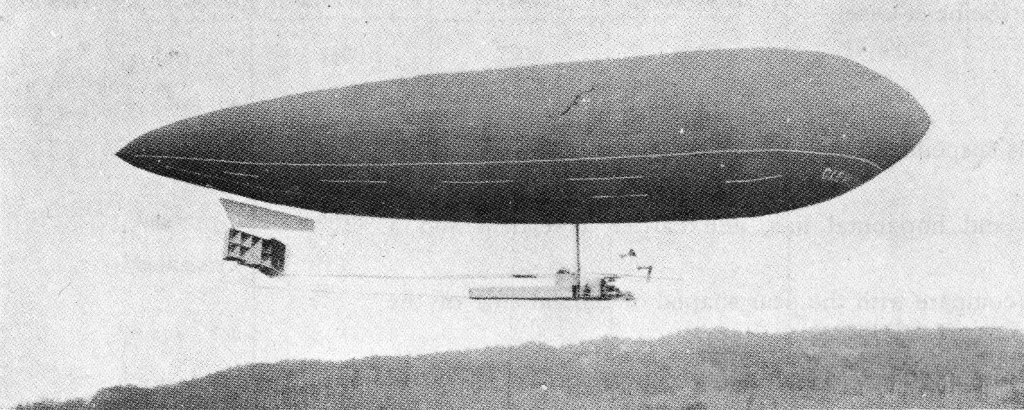
Maximum length, 251 feet (76.50 m.) maximum diameter, 43 feet (13.22 m.) volume, 7,500 m³.
Total lift.—Nearly 8 tons (8,000 kgs.) Useful lift, 2¾ tons (2717 kgs.)
Gasbags.—Continental rubbered fabric. Weight, 380 grammes per m². Strength 1,000 kg. per metre. Leakage under 10 litres per m² per 24 hours.
Motors.—2 Clement motors, 4-cylinder, of 130 h.p., each placed on either side of the motor space.
Speed.—35 m.p.h. (56 km.)
Propellers.—2 Chauvière. Diameter, 19¾ feet (6 m.) Placed one on either side of the motors, well above the level.
Steering.—Vertical steering by means of a treble horizontal rudder over the rear end of the car. Horizontal steering by means of 2 vertical rudders placed one on each side of the rear horizontal rudder.
Remarks.—The feature of this C.B. type, which distinguishes it from the Astra ships of about the same size, is the arrangement of the propellers and the use of a 2 speed gear in connection with these. Normally each motor drives its own propeller through two sets of gearing connected by a Cardan shaft. On stopping one motor, the stopped motor is unclutched from its propeller shaft, which is then connected up by chain drive to the opposite shaft. The running motor is then put on to a "low gear," so that it can make the revolutions necessary for obtaining full power, while the propellers run slower than before. The ratio of "low gear" to "high" is 2 to 1, so that a single motor will be running under its best conditions when well throttled down.
A sister, C. Bayard II was sold to the British Army, and wrecked or dismantled, 1911.
LIST OF WEIGHTS.
| kgs. | ||
| Gas bag | 1,350 | |
| Valves (4) | 45 | |
| Suspension | 195 | |
| Girder (complete with fittings) | ||
| Bow portion (6 m. long.) | 128 | |
| Engine room (2.5 m.) | 1,390 | |
| Bridge and passenger space (12 m.) | 957 | |
| After part (18 m.) | 182 | |
| Raised tail (4.5 m.) | 63 | |
| 2 Propeller brackets | 378 | |
| 2 Propellers | 230 | |
| Rudders | 150 | |
| Water | 140 | |
| Trail ropes | 75 | |
| Total | 5,283 | |
| Lift | 8,000 | |
| Balance, for ballast fuel, oil, crew | 2,717 | |
These two are slightly smaller sisters of the Adjutant Vincennot.[Pg 118]
Ateliers Lebaudy Frères, Moisson, par La Roche-Guyon (Seine-et-Oise).
The cars are short and suspended from a long keel which is suspended close up to the gas bag, and is mostly covered in with fireproof canvas.
The rear end of the keel is expanded into fixed vertical and horizontal fins, and carries a vertical and a horizontal rudder.
The rear end of the gas bag is fitted with thin fixed planes (compare with the pear shaped or tubular fins of the "Astra" class).
The cars are provided underneath with an extraordinarily strong conical structure, which takes the shock of striking the ground and distributes it over the whole car.
Aeroplanes are now fitted, one each side of the keel, well forward.
Ships of this class which have been built:—
| LEBAUDY I | French Military Airship. | Rebuilt 1909 into Lebaudy II. | now discarded | |
| 1. | LEBAUDY II | " | Original Lebaudy I rebuilt. Known as Le Jaune. | now discarded |
| 2. | PATRIE | Lost in a storm. | ||
| 3. | REPUBLIQUE | French Military Airship. | Wrecked Autumn, 1909. | |
| 4. | LA RUSSIE | Sold to Russian Government. | Now Lebed. | |
| 5. | LIBERTÉ | French Military Airship. | ||
| 6. | CAPITAINE MARECHAL | " | ||
| 7. | "MORNING POST" | British Military. | (Lebaudy III.) Wrecked 1911 | |
| 8. | LIEUT. SELLE DE BEAUCHAMP. | French Military Airship. | ||
| 9. | New ship of 17,000 m³ building. | " | ||
| To Lebaudy designs:— | ||||
| ONE | Austrian Military Airship. |
| Name | LIBERTÉ | CAPITAINE MARÉCHAL. | SELLE DE BEAUCHAMP. | New ship. Building. | |
| Date | 1909. | 1911. | 1911. | 1913-14. | |
| Service | Military. | Military. | Military. | Military. | |
| Volume | c. feet (m³) | 4800 | 7500 | 8000 | 17,000 |
| Length | feet (m.) | 220 (67) | 279 (85) | 292 (89) | |
| Diameter | feet (m.) | 35-1/2 (10.80) | 42 (12.80) | 48 (14.00) | |
| Gasbags | fabric | Lebaudy | Lebaudy | Lebaudy | |
| ballonets | 1 | ... | ... | ||
| Lift | total tons | 4-1/2 | ... | 9 | |
| useful tons | ... | ... | ... | ||
| Motors | h.p. | 1--135 Panhard | 2--80 Panhard | 2--80 Panhard | |
| Propellers | number | 2 wood | 2 wood | 2 wood | |
| blades | 2 | 2 | 2 | ||
| diam. feet (m.) | ... | 16-1/2 (5) | 16-1/2 (5) | ||
| Speed | max. m.p.h. (km.) | 31 (50) | 28 (45) | 28 (45) | |
| Endurance | hrs. | ... | ... | ... | |
| Complement | ... | ... | 5 | ||
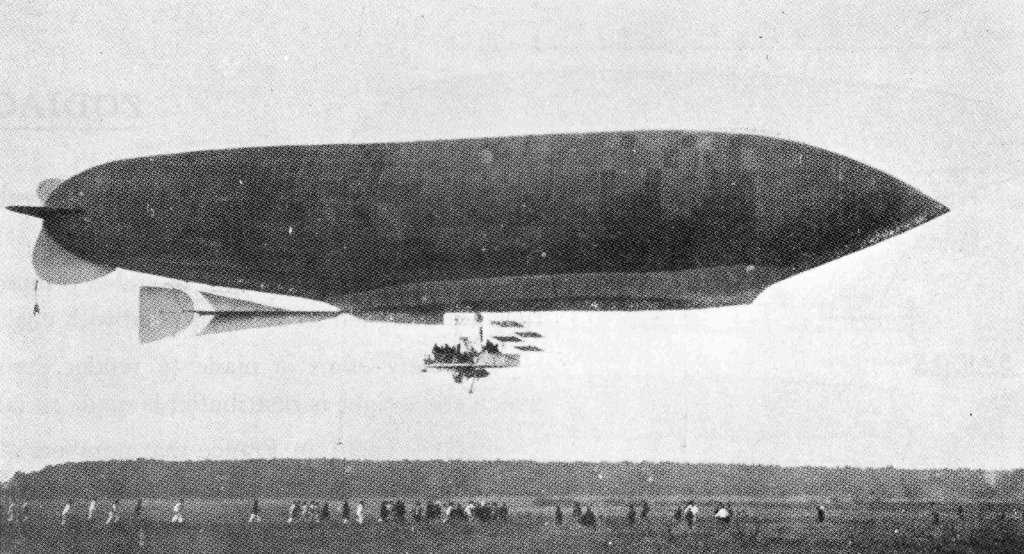


Société française de ballons dirigeables et d'aviation, Zodiac, 10 route du Havre, Puteaux (Seine).
These dirigibles were intended primarily for private pleasure purposes. Consequently they are designed to fly when filled with coal gas if necessary.
Every effort is made to render them easily transportable; the long girder frame by which the weight is distributed is made to take to pieces.
It is held in France that numbers of this class of vessel would form an invaluable asset in time of war, as each could be transported in a single cart, filled with a very few bottles of hydrogen, and when so filled could manuvre for some 6 hours at a speed which compares favourably with that of the standard types.
When the service of reconnaissance was performed, the vessel could be packed up and sent out of harm's way in an hour, whereas this could scarcely be done with a larger vessel on account of the quantity of hydrogen that would be required if it had to be filled afresh for each service. The mooring of an airship in the open during war requires such an amount of preparation and attention as to be a serious drawback to the alternative plan of keeping such vessels unfilled, while the sending of an airship back to its distant shed on each occasion means doubling the work that the ship is called upon to perform.
Ships of class are:—
| 1. | ZODIAC I (Petit Journal) | |
| 2. | ZODIAC II (De la Vaulx) | |
| 3 | ZODIAC III | |
| 4 | ZODIAC IV | Dutch Military |
| 5. | ZODIAC V | South American (private) |
| 6. | ZODIAC VI | Sold to United States |
| 7 | ZODIAC VII | Sold to Russian Army |
| 8. | ZODIAC VIII | " |
| 9. | ZODIAC IX (Le Temps) | French Army |
| 10. | ZODIAC X (Capitaine Ferber) | " |
| 11. | ZODIAC XI (Commandant Coutelle) | " |
| 12. | ZODIAC XII (Spiess) | " (rigid) |
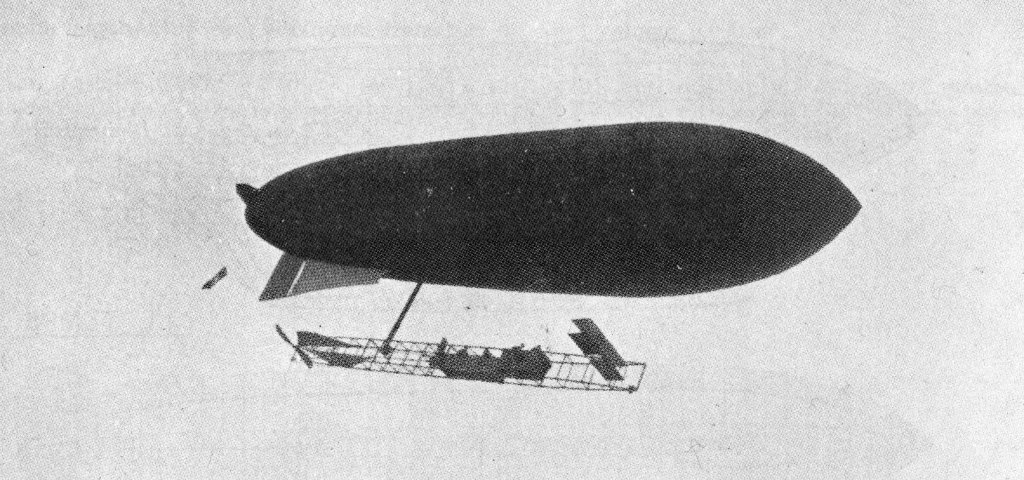
Maximum length, 134 feet (40.8 m.) maximum diameter, 28 feet (8.5 m.) volume, 1,400 m³.
Total lift.—1½ tons (1,540 kgs.) Useful lift, lbs. ( kgs.)
Gas bags.—Light continental rubbered fabric.
Motor.—Ballot, 4-cylinder, 40-45 h.p., 1,200 r.p.m.
Speed.— m.p.h. (45 km.p.h.)
Propellers.—Driven at 600 r.p.m. Integral type, 12¼ feet (3.75 m.) in diameter. Pitch, 6½ feet (2 m.) in rear of the car.
Steering.—Vertical balanced rudder in rear of the vertical fin, under the rear of the gas bag. Double elevator above the fore end of the car. Horizontal fins of material spread on iron frames on either side of the rear end of the car.
Remarks.—The car consists of a 130 feet (40 m.) long wooden girder, which can be divided into 4 separate parts of 13 feet (4 m.) each. The suspension is by steel wires fitted with adjusting screws at the lower ends and toggles at the upper ends, by which they connect to the crows' feet which are sewn to the suspension strips.
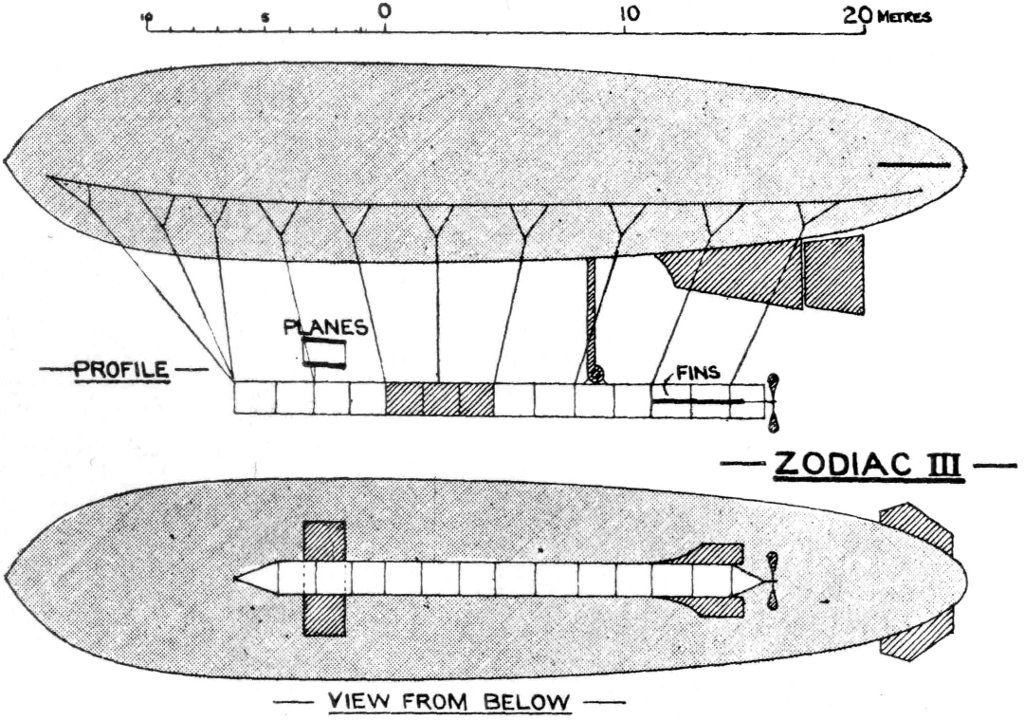
DETAILED WEIGHTS OF ZODIAC III.
| kgs. | lbs. | |
| Gas bag (including ballonet) | 330 | 727½ |
| Valves | 12 | 26½ |
| Suspension wires and gear | 15 | 33 |
| Tail fins | 24 | 53 |
| Horizontal rudder | 10 | 22 |
| Vertical rudder | 10 | 22 |
| Girder car | 168 | 370¼ |
| Motor (including pump, magneto, lubricating gear, etc.) | 275 | 606¼ |
| Motor bearer and gear | 22 | 48½ |
| Petrol tank | 10 | 22 |
| Radiator | 25 | 55 |
| Reduction gearing | 12 | 26½ |
| Shafting | 15 | 33 |
| Fan | 9 | 20 |
| Steering gear | 5 | 11 |
| Water | 8 | 17¾ |
| Petrol | 20 | 44 |
| Miscellaneous: 4 men | 300 | 661 |
| Total | 1,270 | 2,800 about |
| Ballast | 270 | 595 |
| Total weight | 1,540 | Total lift 3,395 |
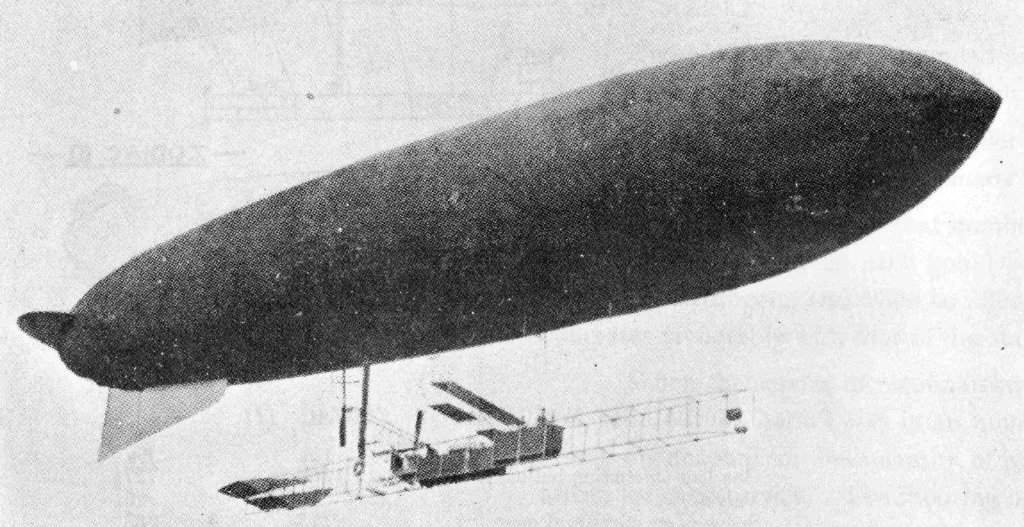
Maximum length, 164 feet (50.25 m.) maximum diameter, 29½ feet (9 m.) volume, 81,250 cubic feet (2,300 m³.)
Total lift.—
Gas bag, etc.—2 ballonets, each of 257 m³.
Motor.—Dansette-Gillet. 60 h.p.
Propellers.—2, chain driven, one on either side of car.
Speed.—
Steering.—Elevator in nacelle amidships. Rudder aft.
Remarks.—
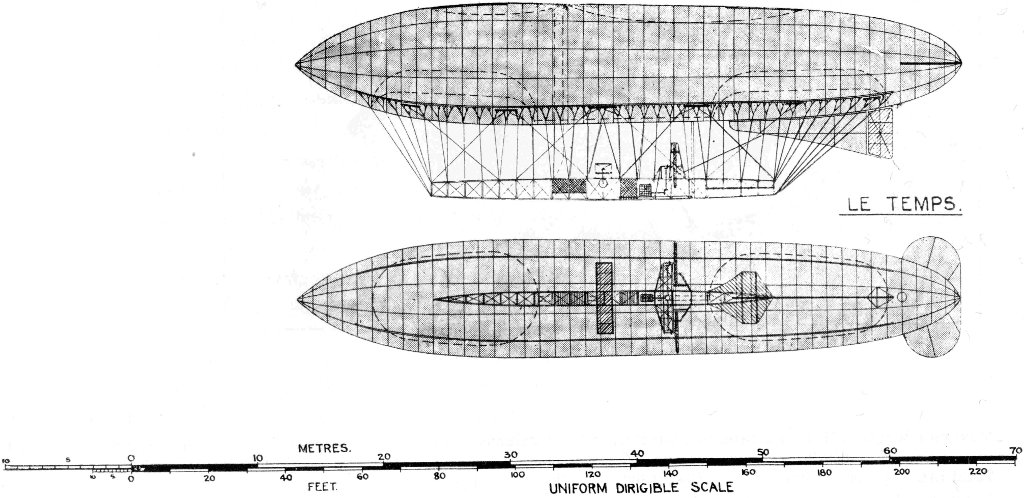
Maximum length, 249-1/3 feet (76 m.) maximum diameter, 40½ feet (12.36 m.) volume, 6,000 m³.
This ship has 2 ballonets of 650 m³. each, and a car 35×13×2 m., made up of 5 sections. 2 motors. Dansette-Gillette, 90 h.p., each actuating 2 propellers (4-bladed), geared to 500 r.p.m. Carries petrol for 15 hours work. Completed 1911.
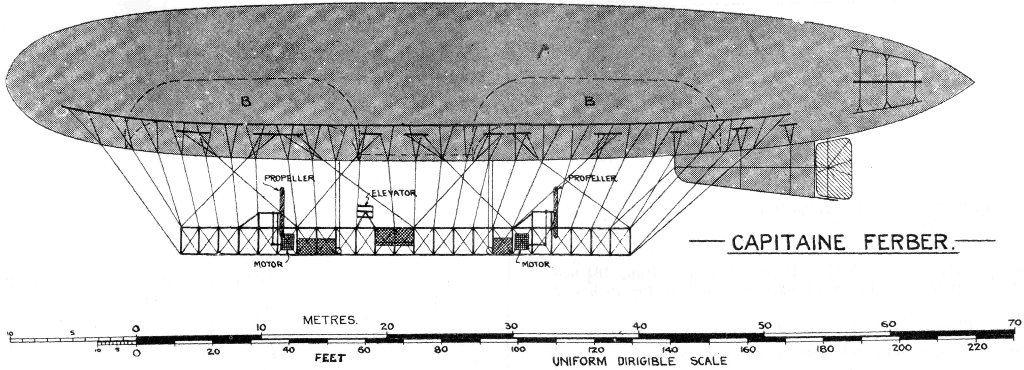

Maximum length, 292 feet (89 m.) maximum diameter, 46 feet (14 m.) volume, 9,000 m³.
Gas bags, etc.—2 ballonnets, each 45,900 c. feet (1,300 m³.)
Nacelle.—Nickel steel in 5 sections. Length, 131¼ (40 m.) Width, 4½ feet (1.30 m.) Hung 16½ feet (5 m.) below the balloon. Pilot in centre. Carries a total crew of six, petrol and oil for 15 hours' continuous work at full power.
Motors.—2, each of 190 h.p.=total of 380 h.p. Placed one at either end of the nacelle.
Propellers.—4, of 15 feet (4.50 m.) diameter. Two geared to each motor to half engine speed.
Speed (expected).—37 m.p.h. (60 k.p.h.)
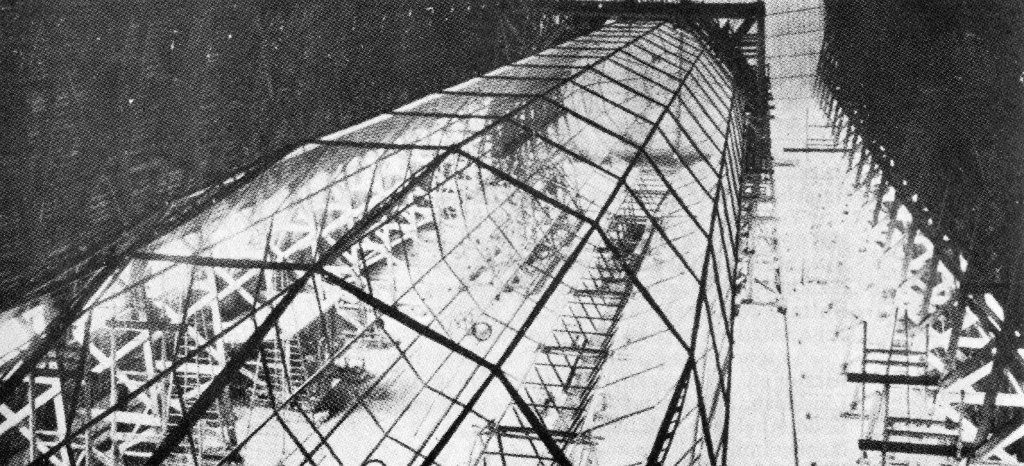
Maximum length, 341 feet (104 m.) maximum diameter, 42¾ feet (13 m.) volume, 11,000 m³.
Gas bags.—Sections 11. Number of cylindrical sections 8. Number of sides to polygon 14.
Motors.—Two 6-cylinder 200 h.p. in each nacelle, each driving 2 propellers of 15 feet (4.50 m.) diameter.
Speed. (expected)—40 m.p.h. (65 k.p.h.)

(By our special German editor.)
Deutsche Luftfahrer Zeitschrift fur Luftschffahr Berlin, W. (Fortnightly).
Allgemeine Automobil Zeitung, Berlin (Weekly).
Automobil Welt, Berlin (Thrice Weekly).
Das Deutsche Auto, Munich (Weekly).
Die Luftflotte, Berlin (Monthly).
Internationale Revue für Autowesen & Aviatik, Leipzig (Fortnightly).
Flugsport, Frankfurt (Fortnightly).
Motor, Berlin (Monthly).
Der Motorwagen, Berlin (Thrice Monthly).
Monatshefte der Reichsfliegerstiftung, Charlottenburg (Monthly).
Zeitschrift für Flugtechnik & Motorluftschiffahrt, Berlin (Fortnightly).
Adlershof, Teil des Flugfeldes Johannisthal (Wright School).
Bork, Post Brück in der Mark (Mars School).
Burg bei Magdeburg (Schulze School).
Darmstadt (Truppenübungsplatz).
Dotzheim bei Wiesbaden.
Frankfurt a.M. (August Euler).
Fühlungen bei Köln (Kölner Club für Flugsport).
Garching b. München (Hoffman-Harlan).
Griesheim b. Frankfurt a.M. (Frankfurter Flugsport-Club & Flugtechn. Verein).
Habsheim b. Mülhausen i.E. (Aviatik).
Hainberg b. Nürnberg (Flugtechn. Ges. Nürnberg-Fürth).
Hamburg (Grade).
Holten. Niederrh. Verein f.L. (Hilsmann).
Johannisthal b. Berlin Flugschule Albatros, Dorner, Harlan, Fokker, Luftverkehrs-ges. m.b.H., Rumpler & Wright.
Kitzingen in Bayern, 1911 (Hildebrand & Schroth).
Lindenthal b. Leipzig. (School for Deutschen Flugzengwerke).
Loddenheide b. Münster.
Meerheimb b. Köln.
Milbertshofen b. München (Dr. Wittenstein).
Neuenlande b. Bremen (Müller-Aviatik, Bremer v.t.L.)
Niederwalluf, 1911 (Goedecker).
Oberwiesenfeld bei München (Gustav Otto).
Puchheim b. München.
Reichenberg-Boxdorf b. Dresden.
Schneverdingen (Oertz).
Schulzendorf b. Berlin (A.E.G.)
Strassburg i.E., "Polygon" (E.E.C. Mathis).
Suechteln.
Teltow bei Berlin.
Velten bei Berlin (A.E.G.)
Wandsbek, Exerzierplatz, 1911 (Rumpler und Jordan).
Weimar (Wright).
Wustenbrand b. Chemnitz (Flugtechn. Ges. in Chemnitz).
Zahlbach b. Mainz (School for Aut. & Flugtechnik).
Aachener V. f. L. Aix la Chapelle.
Aero Club (Imperial), 3, Nollenderfplatz, Berlin. Sec.: H. Von Frankenberg und Ludwigsdorf.
Akademie für Aviatik, Munich.
Allgemeiner Deutscher Automobil Club, Munich.
Anhaltischer V. f. L. (E. U.) M. Antoineatten str. 22a, Dessau.
Augsburger Verein für Luftschiffahrt, Augsburg.
Automobil-und Flugtechnische-Gesellschaft (E. V.) Nurnberger Platz 5, Haupyverein Berlin, Hochster Str. 1, Bezirksverein Frankfurt a. M, Neuer Wall 44, II, Hamburg.
Bayerischer A. K. Munich.
Berliner V. f. L., Berlin.
Bilterfeldt V. f. L., Bilterfeld.
Braunschweigische V. f. L.
Breisgau V. f. L., Freiburg.
Bremer V. f. L. (E. V.) N. W., Obernstr, 52/54 I, Bremen.
Bromberger V. f. L. (E. V.) O, Gasanstalt, Bromberg, Stadt.
Chemnitzner V. f. L.
Deutsche Touring Club, Munich.
Deutscher Luftflotten Verein, Mannheim.
Dusseldorfer Luftdahrer-Klub (E. V.) W. Dusseldorf, Breite Str. 25, I.
Erfurter V. f. L. (E. V.) M. Dalversweg 24, Erfurt.
Flugverein Neustadt a. d. Haardt, S. W., Neustadt, I.
Flugzeugkonvention des V. D. M. L., Potsdamer Str. 121 H, III, Berlin W.
Frankfürter Flugsport-Club (E. V.) Neue Mainzer Str. 76, Frankfurt a. M.
Frankfurter Flugtechn, Verein (E. V.) Bahnhofplatz 8, Frankfurt a. M.
Frankfurter V. f. L. (E. V.) S. W. Kettenhofweg 136, Frankfurt, a. M.
Frankischer V. f. L. (E. V.) S. Kurschnerhof 6, Wursburg.
Hamburger V. f. L. (E. V.) N. W., 36, Colonnaden 17-19, Hamburg.
Hannoverscher V. f. L. (E. V.) N. W., Lortzingstr. 6, Hannover.
Hereforder Verein fur Lufthahrt, Bahnhofplatz, Alfermann, Herford.
Hildesheimer V. f. L., Hilkesheim, Lucienvorder str. 22.
Kaiserlicher Aero-Club, K. Nollendorfplatz 3, Berlin W.
Kaiserlicher Automobil-Club, K, 9 Leipzigerplatz 16, Berlin W.
Karlsruher Luftfahrt-Verein (E. V.) S. W., Bachstr, 28, Karlsruhe.
Kolner Club, f. L. (E. V.) W. Bischofsgartenstr. 22, Koln.
Koniglich Bayerischer Automobil-Club, B. Brienner str. 5 I, Munchen.
Koniglicher Sachsischer V. f. L. (E. V.) Sa, Ferdinandstr. I, Dresden.
Kurhessischer V. f. L. (E. V.) S. W., Physikalisches Institut, Marburg ad Lahn; Cassel Sektion, Kolnische str. 84, Cassel.
Leipziger V. f. L. (E. V.) Sa, Markt 1, Leipzig.
Lubecker V. f. L. (E. V.) N. W., Israeldorfer Allee 13a, Lubeck.
Luftshrverein Gotha (fruther Reichsflugverein Gotha), Gotha, I.
Luftfahrtverein Touring-Club, Pranner str. 24, I. Munchen.
Luftschiffahrt-Verein Munster fur Munster und das Munsterland (E. V.) N. W., Munster i. W, Klosterstr. 31-32.
Magdeburger V. f. L. (E. V.) M, Wetterwarte, Bahnhofstr. 17, Magdeburg.
Mannheimer V. f. L. "Zahringen" (E. V.) S. W., 7-8 Hansa-Haus, Mannheim.
Mecklenburgerischer Aero-Club, Kaiser-Wilhelm-Str. 85, II, I, Schwerin i. M.
Mindener Verein fur Luftfahrt, N. W., Grosser Domhof 1, L, Minden i. W.
Mitterheinischer V. f. L., S. W., Weisenauer, Str. 15, Mainz.
Munchener V. f. L. (E. V.) Residentzstr. 27 III, Munchen.
Niederrheinischer V. f. L. (E. V.) Wilhemstr. 11, Bonn, Wupperthal Sektion, Hauptfeuerwache, Barmen; Essen Sektion, Bachstr. 21, Essen-Ruhr; Bonn Sektion, Wilhelmstr. 11, Bonn.
Niedersachachsischer V. f. L. (E. V.) Hildesheimer Bank, Filiale Gottingen, Gottingen.
Niederschlesisch-Markischer Verein fur Luftfahrt, Grunberg i. Schl, I.
Nordmark-Verein fur Motorluftfahrt (E. V.) Dusternbrooker Weg 38, Kiel.
Obererzgebirgischer V. f. L. (E. V.) Sa, Geschaftsstelle, Schwarzenberg i. S., Erla im Erzgebirge.
Oberrheimischer V. f. L. (E. V.) S. W., Blauwolkengasse 21, Strassburg i. Els.
Oberschwabischer V. f. L. (E. V.) S, Promenade 17, Ulm a. D.
Osnabrucker V. f. L. (E. V.) N. W., Wittekindstr. 4, Osnabruck.
Ostdeutscher V. f. L. (E. V.) O, Courbierestr. 34, II. Graudenz.
Ostpreusischer V. f. L. (E. V.) O, Kneiphofische Langgasse 8 I, Konigsberg i. Pr.
Pfalzischer Luftfahrtverein Speyer, S. W., Speyer a. Rh. I.
Pommerscher V. f. L. (E. V.) Pasewalk (Stettin) F. 65.
Posener Luftfahrer-V. (E. V.) O, Posen, Kronprinzenstr, 101a.
Reichsflugverein (E. V.) Motztrs, 76, Berlin.
Rheinisch-Westfalische Motorluftschaff-Gesellsch. (E. V.) Bachstr. 21, Essen-Ruhr.
Saarbrucker Verein fur Luftfahrt, S. W. Saarbrucken, I.
Sachsisch-Thuringischer V. f. L. Belvedere-Allee 5, Weimar; Halle a. S. Sektion (E. V.) Halle a. Muhlweg 10 und Poststr. 6; Thuringische Sektion, Staaten; Belvederealle, 5, Weimar.
Schlesischer Aero-Club (E. V.) O, Schweidnitzerstr. 16-18 Breslau.
Schlesischer V. f. L. (E. V.) O, Schweidnitzerstr. 16-18 Breslau.
Schleswig-Holstein. Flieger-Club, N. W., Niemannsweg 81b, Kiel.
Seeoffizier-Luftclub (S.L.C.W.) N. W., Peterstr. 80 II, Wilhelmshaven.
Trierer Club. f. L. (E. V.) W., Nagelstr. 10, Trier.
V. D. Luftchiff-Industrieller, Kleiststr. 8, III, Berlin, W.
V. D. Motorfahrzeug-Industrieller, Potsdamerstr. 121b, Berlin, W.
V. f. Flugwesen in Mannheim, S. W., Lange Rotterstr. 106, I. Mannheim.
V. f. L. am Bodensee (E. V.) S. W., Zummsteinstr. 11, Schwedenchanze 3a, Konstanz.
V. f. L. Darmstadt, S. W., Darmstadt, I.
V. f. L. Gieben, S. W., Seltersweg 56, I., Gieben.
V. f. L. Kolmar (Posen), (E. V.) O. Privinzialbank, Kommanditgesellschaft a. A., Kolmar i. Pos.
V. f. L. Limbach (Sa, u. Umgegend) (E. V.) Postr. 5, Limbach (Sachsen).
V. f. L. in Mainz (E. V.) S. W., Grosse Bleiche 48, Mainz.
V. f. L. in Worms, S. W., Worms, I.
V. f. L. und Flugtechnik Nurnberg-Furth, Klaragasse 2 I, Nurnberg.
V. f. L. in Weimar (E. V.) Erfurter Str. 9, Weimar.
Vogtlandischer V. f. L. (E. V.) Sa, Plauen i. V, Furstenstr. 89.
Westfalisch-Lippischer Luftfahrverein (E. V.) N. W., Kavalleriestr, Petri, Bielefeld.
Westfalish-Markischer Luftfahrer-Verein, Herne, I.
Westpreussicher V. f. L. (E. V.) O., Dr. Waldmann, Abte-inng Schiffbau, Technische Hochschule, Danzig-Langfuhr.
Wissenschaftliche Gesellschaft fur Flugtechnik, Nollendorfplatz 3, Berlin W. 30.
Wurttenbergischer Flugsport-Club, S. Hegelstr. 4b, Stuttgart.
Wurtembergischer V. f. L. (E. V.) S. am Salzmannsweg 21, Stuttgart.
Zwickauer V. f. L. (E. V.) Sa, Hauptmarkt 20, Zwickau i. S.
The new Army law provides £400,000 (80 million marks) for Army aviation (including dirigibles), in addition to a considerable share of the £4,000,000 which is being spread over a period of five years.
The Army aerial force will be commanded by 2 inspector generals. The aviation force is put at 4 batallions.
Headquarters: Berlin. Stations: Aachen, Allenstein, Cologne, Darmstadt, Doebritz, Freiburg, Graudenz, Hannover, Insterburg, Jüterbog, Koenigsberg, Metz, Posen, Strassburg, Zeithain.
The scheme will be complete by the end of the year.
At the end of 1912 the aeroplane force was as follows:—
Bought in 1911:
10 monoplanes (2 Grade, 1 Schultze, 5 Rumpler).
25 biplanes (3 Albatross, 22 Farman type.)
Bought in 1912:
91 monoplanes (20 Bristol, 1 Dorner, 2 Etrich Taube, 2 Grade, 6 Harlan, 20 Mars, 40 Rumpler Taube).
144 biplanes (50 Albatros, 12 Aviatik, 30 Euler, 10 Otto, 2 L.V.G., 10 Mars, 6 Wrights).
Making a total of 270 of which number about 200 were war-effectives.
For 1913 there are 200 new aeroplanes building or provided for.
Under the new regulations, military machines must comply with the following conditions:—
The 1913 expenditure on naval aviation (including dirigibles) is £250,000 (50 million marks), plus a portion of the special expenditure.
Holminsel b. Danzig.
Putzig b. Danzig.
North Sea.—Cuxhaven (staff to be 5 officers and 192 under officers and men), Emden and Hamburg.
Baltic.—Kiel, Putzig and Konigsberg.
General Headquarters.—Berlin.
Each station will ultimately consist of one dirigible and a number of hydro-aeroplanes.
At the end of 1912 the total effective force was:—
Total 14
The Curtiss were purchased towards the end of 1911, all the others in 1912.
All are or can be fitted with wireless, range 50 miles.
1913. Others on order, including Ottos on floats (A.G.O.), of which one was delivered in April.
To end of March, 1913.
Private Aeroplanes.
At end of March, 1913, the number of private aeroplanes in Germany was about 80, of which most were school, etc., machines.
Note.—Abramowitch was a Russian by birth (killed April, 1913).
The following German aviators have been killed:—
Albatroswerke G.m.b. H, Flugzeugfabr. u. Fliegerschule, Johannisthal bei Berlin. Established 1910. One of the largest constructors in Germany. Capacity: 150 machines a year.
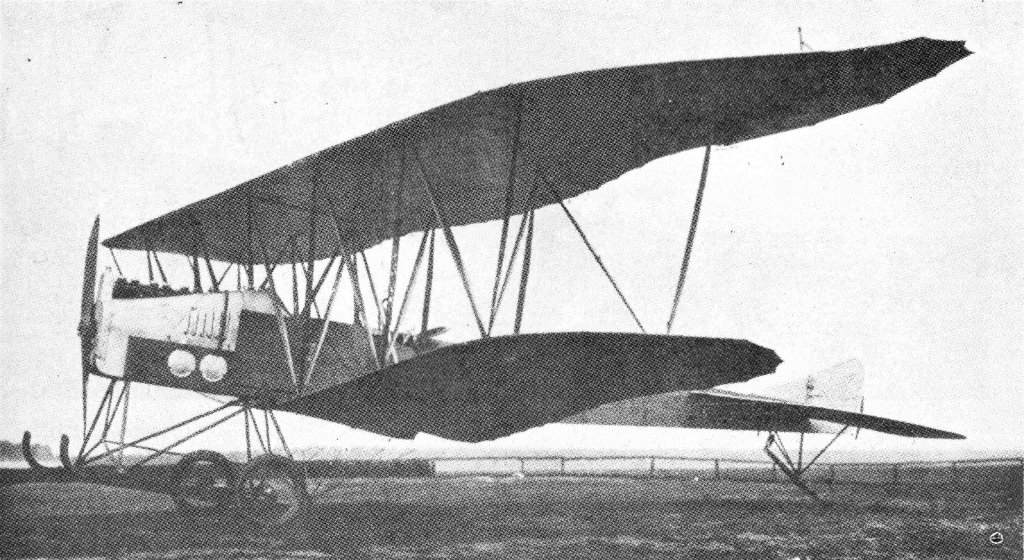
| 1911-12. 2-seat tractor biplane. | Military tractor biplane. | 1912. Military tractor | 1912-13. Hydro. | Mono. | ||
|---|---|---|---|---|---|---|
| Length | feet (m.) | 35-1/2 (10.70) | 34-1/2 (10.5) | 42-1/2 (12.8) | ... | ... |
| Span | feet (m.) | 43-2/3 (13.30) | 52-1/2 (16) | 65-3/4 (20) | ... | ... |
| Area | sq. feet (m².) | 430 (40) | 576 (54) | 624 (58.5) | ... | ... |
| Weight | total lbs. (kgs.) | 1058 (480) | 1543 (700) | 1874 (850) | ... | ... |
| useful lbs. (kgs.) | 661 (300) | ... | ... | ... | ... | |
| Motor | h.p. | 100 Argus | 90 Mercedes or 100 Argus | 120 N.A.G. or Aust. Daimler | ... | ... |
| Speed | max. m.p.h. (km.) | 56 (90) | 59 (95) | 46 (75) | ... | ... |
| min. m.p.h. (km.) | ... | ... | ... | ... | ... | |
| Endurance | hrs. | 6 | 6 | 7-5 | ... | ... |
| Number built during 1912 | about 40 | 70 | 30 | 4 | 2 | |
Remarks.—In all the upper plane is slightly staggered. In all the control is duplicated.
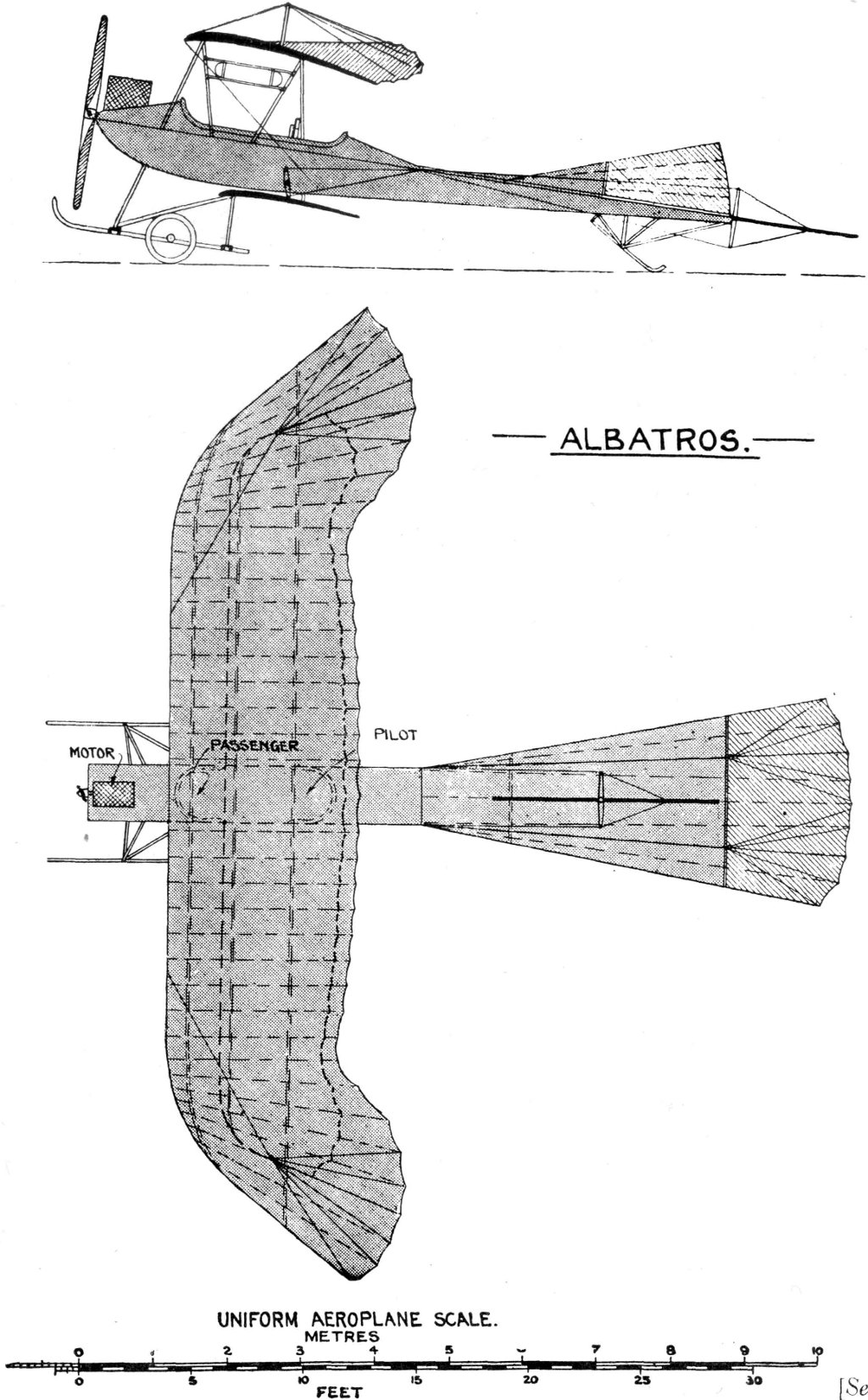
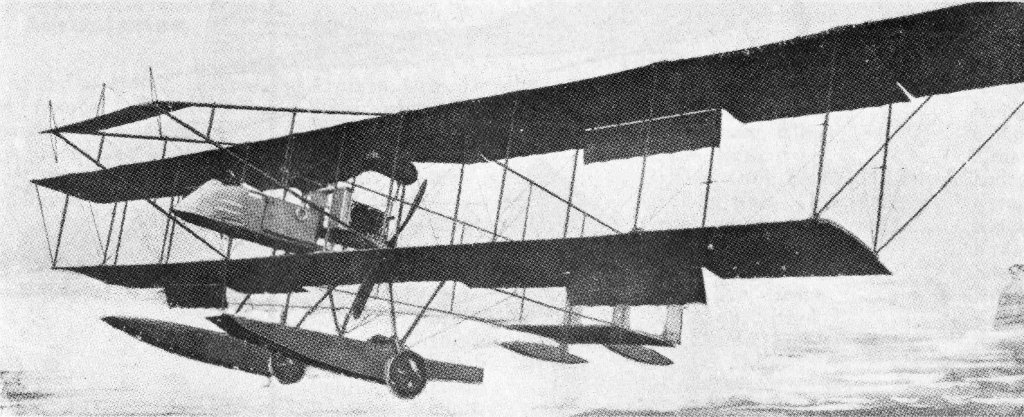
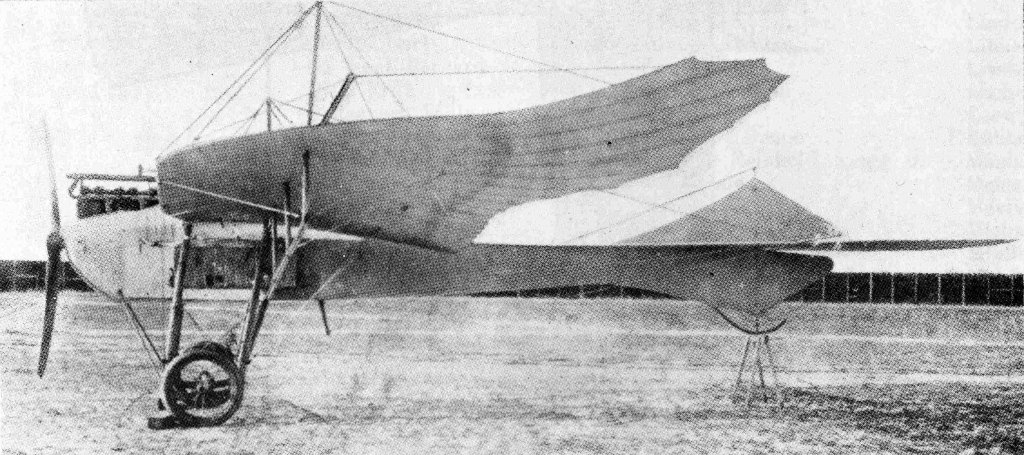
Autemobil & Aviatik A.G., Mülhausen i.E. Established 1910. Capacity: 100 a year.
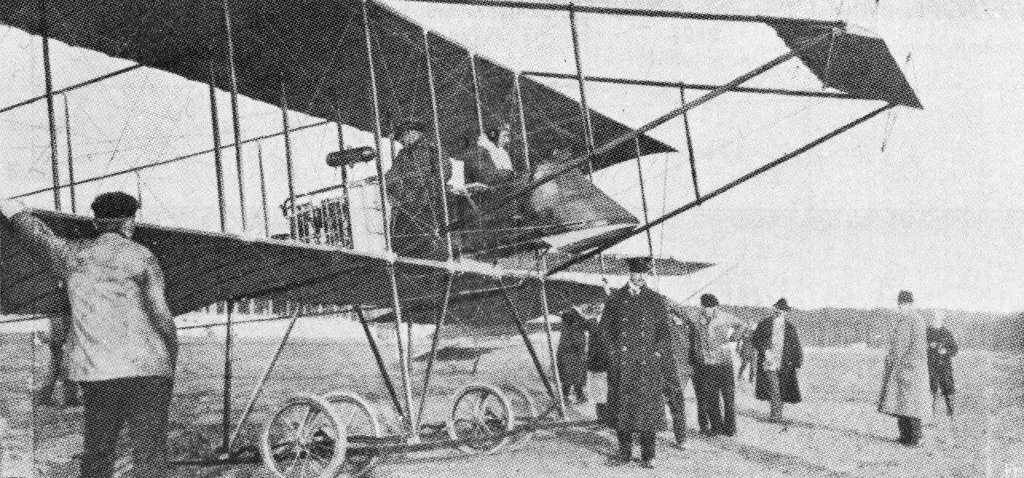
| 1912. Monoplane. | 1912. Biplane. | 1913. Racing biplane. | 1912-13. Hydro-biplane. | ||
|---|---|---|---|---|---|
| Length | feet (m.) | 26-1/2 (8) | 36 (11) | 29-1/2 (9) | 36 (11) |
| Span | feet (m.) | 39 (11.80) | 52-1/2 (16) | 52-1/2 (16) | 62-1/3 (19) |
| Area | sq. feet (m².) | 258 (.24) | 517 (48) | 517 (48) | 597 (56) |
| Weight | total lbs. (kgs.) | 1146 (520) | 1323 (600) | 1234 (560) | 1653 (750) |
| useful lbs. (kgs.) | 661 (300) | 882 (400) | 882 (400) | 661 (300) | |
| Motor | h.p. | 100 Argus | 100 Argus | 100 Argus | 100 Argus |
| Speed | max. m.p.h. (km.) | 68-1/2 (110) | 56 (90) | 62 (100) | 52 (80) |
| min. m.p.h. (km.) | ... | ... | ... | ... | |
| Endurance | hrs. | 5 | 6-8 | 7-8 | 4-5 |
| Number built during 1912 | 6 | 20 | 4 | 3 | |
Remarks.—The monoplanes are constructed under Hanriot license.
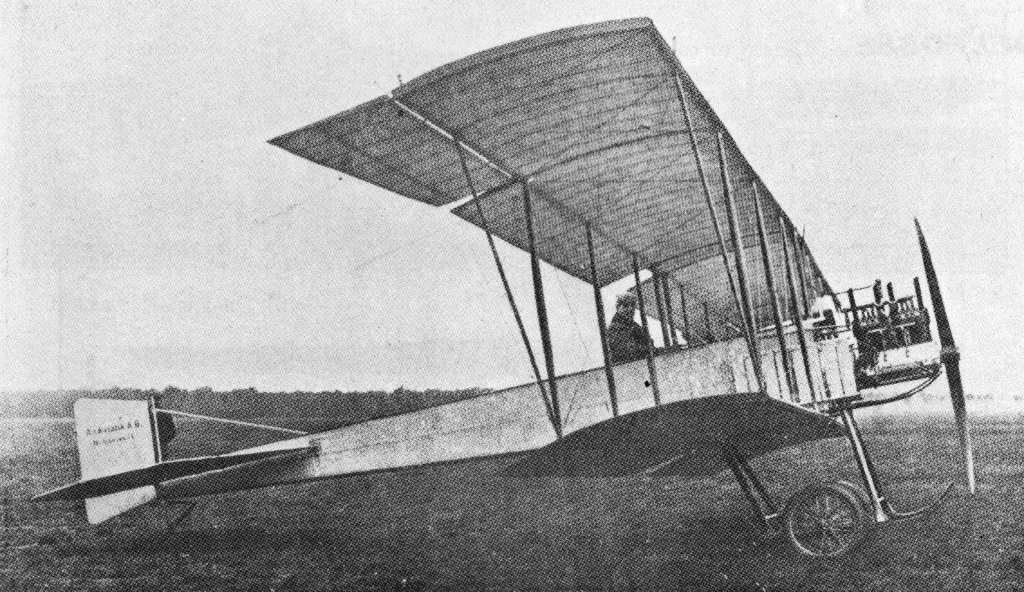

Ceased to construct.

Length.—34½ feet (10.50 m.) Span.—39-1/3 feet (12 m.) Surface.—280 sq. feet (126 m².) Weight.—882 lbs. (400 kgs.)
Type II: Length.—32¾ feet (10 m.) Span.—38 feet (11.60 m.) Surface.—268½ sq. feet (25 m².) Weight.—661 lbs. (300 kgs.) See Flugsport, No. 5, 1911.
Etrich Fliegerwerke, G.m.b. H, Dittersbach b. Liebau (Schlesien). Capacity: 50 a year.

| 1913. Etrich (original) Taube. monoplane. | ||
|---|---|---|
| Length | feet (m.) | 31 (9.5) |
| Span | feet (m.) | 47-1/2 (14.4) |
| Area | sq. feet (m².) | 301 (28) |
| Weight | Total lbs. (kgs.) | 1323 (600) |
| Useful lbs. (kgs.) | ... | |
| Motor | h.p. | 100 Mercedes or Argus |
| Speed | max. m.p.h. (km.) | 71 to 75 (115 to 120) |
| min. m.p.h. (km.) | ... | |
| Endurance | hrs. | 6 |
Remarks.[Pg 135]—
August Euler, Frankfurt a.M. In 1908 Euler secured Voisin rights for Germany. In 1910 he took out a patent for a design of his own. In the summer of 1911 he built a successful monoplane, in the autumn of the same year a triplane. Existing models are as follows:—
| 1912. Triplane. | 1912. Monoplane. | Military biplane. | ||
|---|---|---|---|---|
| Length | feet (m.) | 23 (7) | ||
| Span | feet (m.) | 23 (7) | ||
| Area | sq. feet (m².) | ... | ||
| Weight | total lbs. (kgs.) | ... | no data | no data |
| useful lbs. (kgs.) | ... | |||
| Motor | h.p. | Gnome | ||
| Speed | max. m.p.h. (km.) | 56 (90) | ||
| min. m.p.h. (km.) | ... | |||
| Endurance | hrs. | 3-4 | ||
| Number built during 1912 | about 70 | of various types | ||
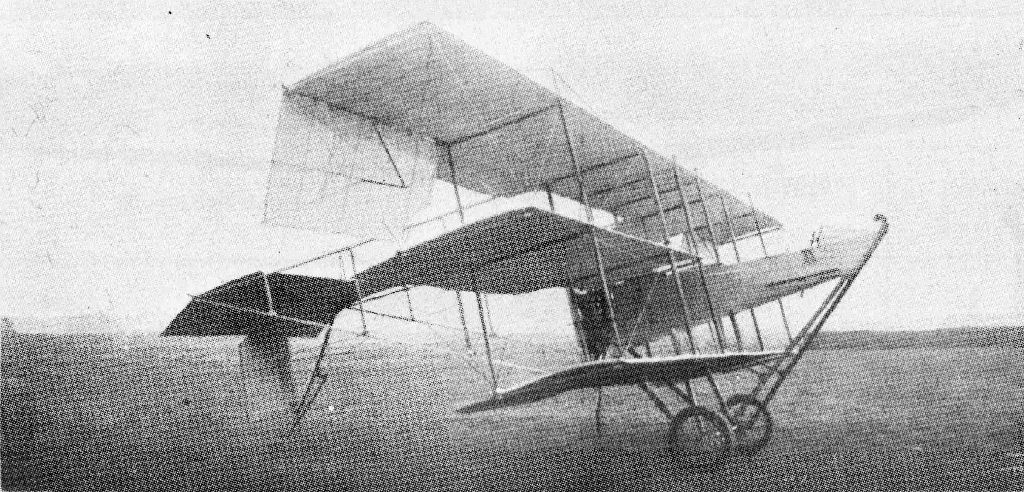

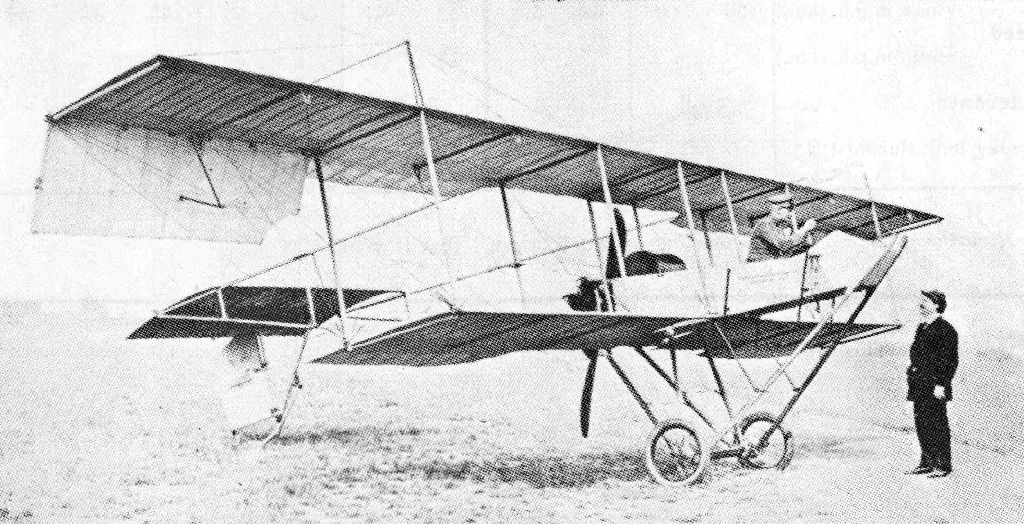
Monoplanes. Fokker-Aeroplanbau, G. m. b. H., 18 Parkstrasse, Johannisthal bei Berlin. Capacity: 40.
| 1912. A. | 1912. B. | 1912-13. A. | 1912-13. B. | 1912-13. C. | 1913. Hydro-aeroplane. | ||
|---|---|---|---|---|---|---|---|
| Length | feet (m.) | 26-1/4 (8) | 26-3/4 (8.25) | 29-1/2 (9) | 29-1/2 (9) | 29-1/2 (9) | 31 (9.50) |
| Span | feet (m.) | 37-3/4 (11.50) | 39-1/3 (12) | 42-3/4 (13.20) | 42-3/4 (13.20) | 42-3/4 (13.20) | 52-1/2 (16.20) |
| Area | sq. feet (m².) | 226 (21) | 242 (22.50) | 280 (26) | 280 (26) | 280 (26) | ... |
| Weight | total lbs. (kgs.) | 838 (380) | 1036 (470) | 970 (440) | 1146 (520) | 1190 (540) | ... |
| useful lbs. (kgs.) | ... | ... | ... | ... | ... | ... | |
| Motor | h.p. | 70 Argus | 100 Argus | 70 Argus or Dixi | 100 Argus | 70 Renault | 100 Renault or Mercedes |
| Speed | max. m.p.h. (km.) | 56 (90) | 68 (108) | 52 (83) | 60 (96) | 53 (85) | 59 (95) |
| min. m.p.h. (km.) | ... | ... | 43 (70) | ... | ... | ... | |
| Endurance | hrs. | 4-6 | 4-6 | 5-8 | 5-8 | 4-6 | 4 |
| Number built during 1912 | 3 | 2 | 6 | 5 | 2 | ... | |
Remarks.—The Fokker is a machine of Dutch origin. (See Dutch).
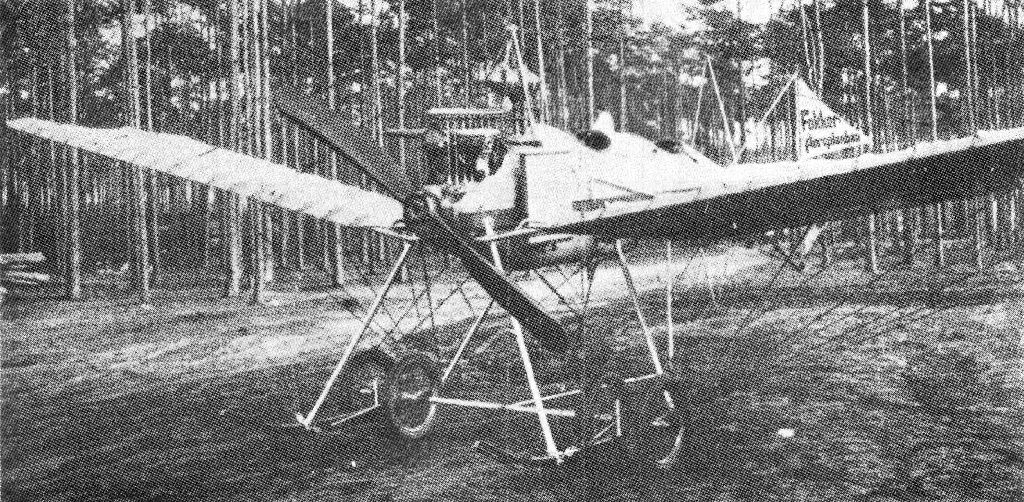

This firm ceased to exist January, 1913.
Hans Grade Fliegerwerke, Bork, Post Bruck (Mark). Founded 1910 by H. Grade, who was the first man in Germany to fly with a German machine. During 1911 Grades had a considerable vogue, but since then have not been prominent.
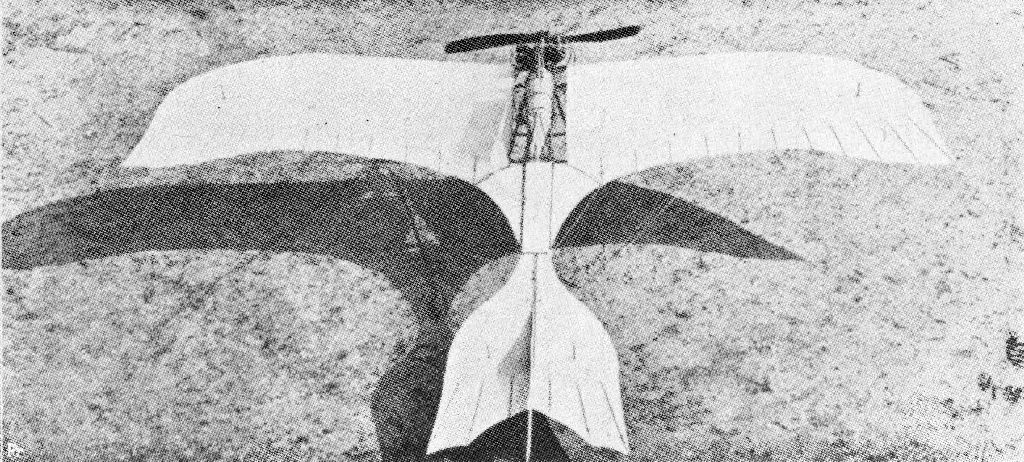
| Model and date. | Racer, 1911. C. | Racer, 1912. D. | Racer, 1912. E. | |
|---|---|---|---|---|
| Length | feet (m.) | 33 (10) | 21 (6.50) | 26-1/4 (8) |
| Span | feet (m.) | 39-1/4 (12) | 34-1/2 (10.50) | 41 (12.50) |
| Area | sq. feet (m².) | 480 (45) | 240 (22) | 360 (33) |
| Weight | machine, lbs. (kgs.) | 375 (170) | 408 (185) | 595 (270) |
| useful lbs. (kgs.) | ... ... | ... ... | ... ... | |
| Motor | h.p. | various | ... ... | ... ... |
| Speed | m.p.h. (km.) | 56 (90) | 71 (115) | 71 (115) |
| Number built during 1912 | ? | 1 or 2 | ? | |
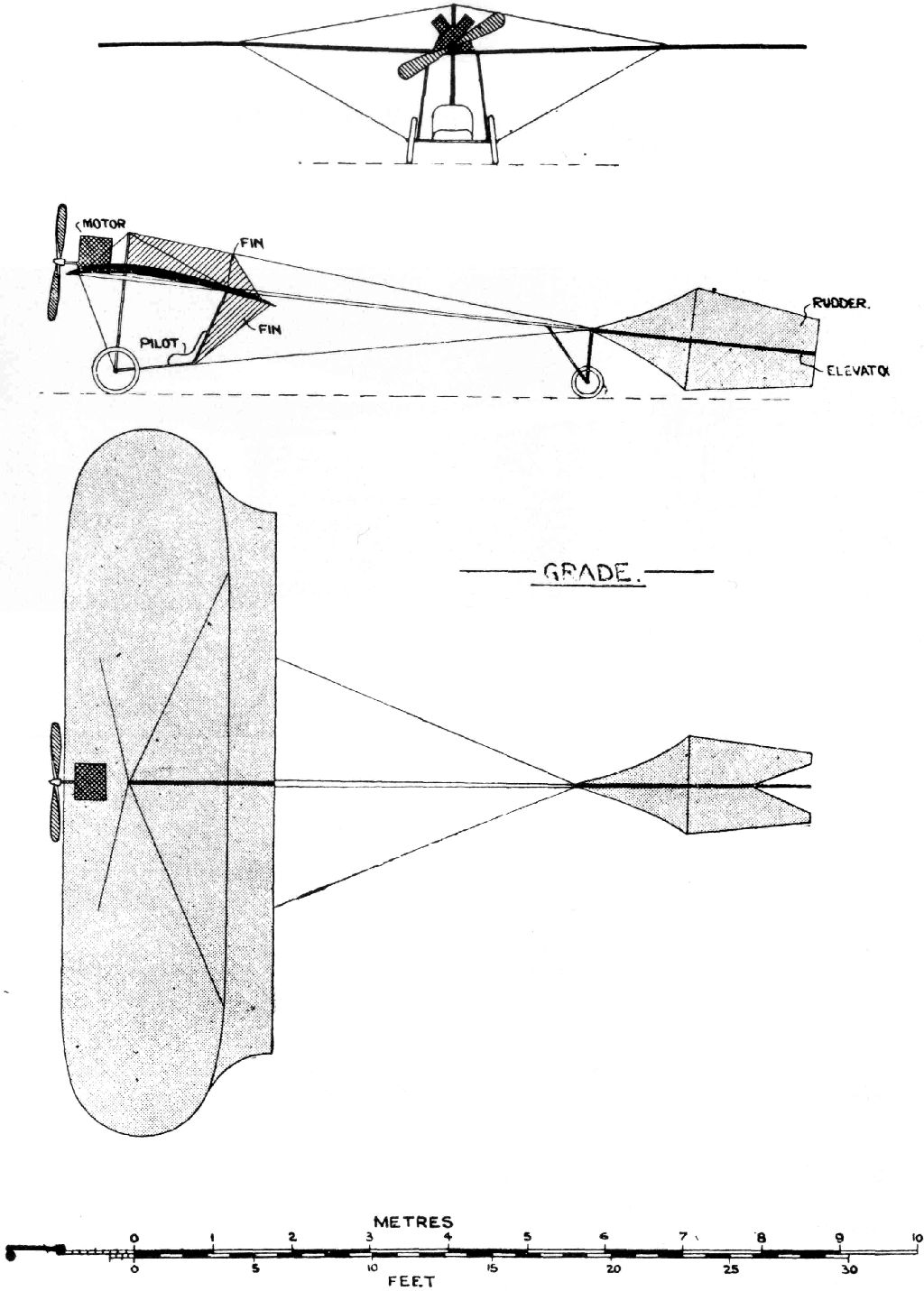
J. Goedecker, Flugmaschinen-Werke, Niederwalluf a. Rh. Flying School: Flugplatz Grosser Sand bei Mainz.

| 1912. Monoplane "Sturmvogel." | 1911. Monoplane "Sturmvogel." | ||
|---|---|---|---|
| Length | feet (m.) | 32-3/4 (10) | 29-1/2 (9) |
| Span | feet (m.) | 47-3/4 (14.5) | 47-3/4 (14.5) |
| Area | sq. feet (m².) | 387 (36) | ... |
| Weight | total lbs. (kgs.) | 992 (459) | 827 (375) |
| useful lbs. (kgs.) | ... | ... | |
| Motor | h.p. | 100 Dixi | 70 Argus |
| Speed | m.p.h. (km.) | 56 (90) | ... |
| Number built during 1912 | 8 | 2 | |
Heinrich Heitmann, Aviatik und Konstructions Werkstätten, Altona.
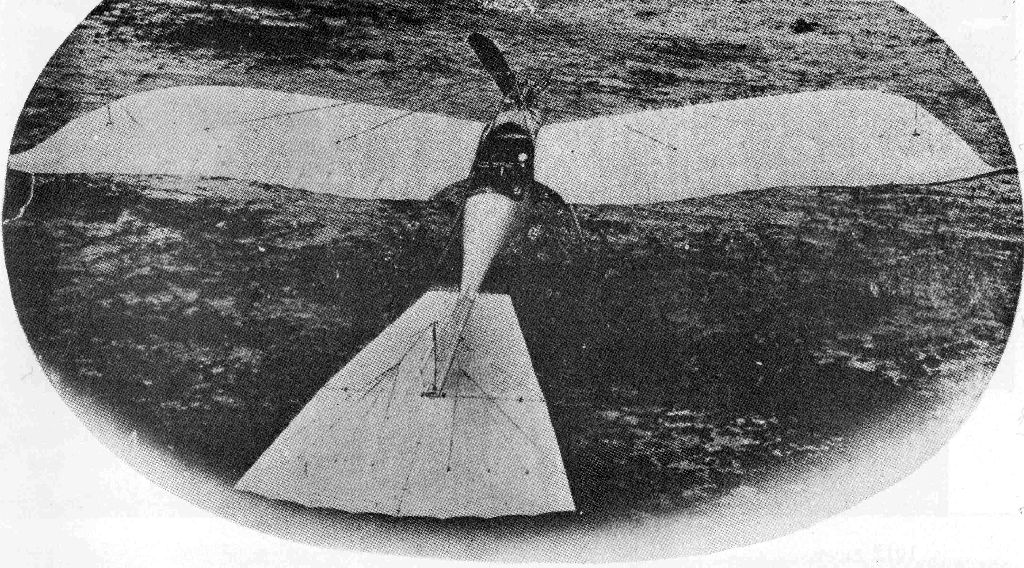
| 1912. Monoplane. | 1913. Monoplane. | ||
|---|---|---|---|
| Length | feet (m.) | 24-3/4 (7.5) | 24-3/4 (7.5) |
| Span | feet (m.) | 36-3/4 (11.2) | 36-3/4 (11.2) |
| Area | sq. feet (m².) | 237 (22) | 237 (22) |
| Weight | total lbs. (kgs.) | 617 (280) | 573 (260) |
| useful lbs. (kgs.) | ... | ... | |
| Motor | h.p. | 75 or 100 Argus | 100 Argus |
| Speed | m.p.h. (km.) | 56 to 62 (95 to 100) | 62 (100) |
| Number built during 1912 | 2 | 2 | |
Remarks. [Pg 139]—
Harlan Werke, G. m. b. H., 21 Moltkestrasse, Johannisthal bei Berlin. Established 1909, turned into present Company, 1911. Output capacity about 50 machines a year.
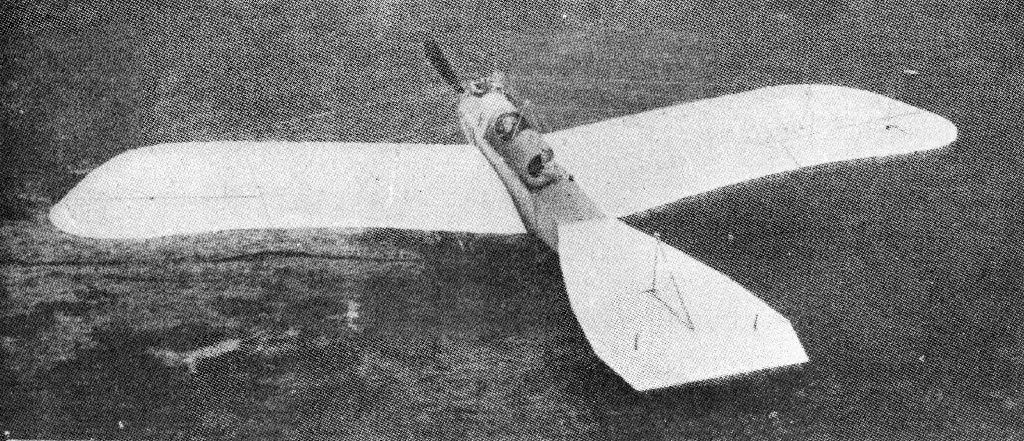
| 1912. Military monoplane. | 1912-13. Military monoplane. | ||
|---|---|---|---|
| Length | feet (m.) | 26-1/4 (8) | 30 (9.10) |
| Span | feet (m.) | 39-1/3 (12) | 45-1/2 (13.80) |
| Area | sq. feet (m².) | 312 (29) | 312 (29) |
| Weight | total lbs. (kgs.) | ... | 1984 (900) |
| useful lbs. (kgs.) | ... | 1323 (600) | |
| Motor | h.p. | 100 Argus or Mercedes | 100 Argus |
| Speed | m.p.h. (km.) | 69 (110) | 69 (110) |
| Endurance | hrs. | 7-8 | 7-8 |
| Number built during 1912 | 20 | 15 | |
Bruno Hanuschke, Flugzeugbau, Johannisthal b. Berlin. Capacity: small.
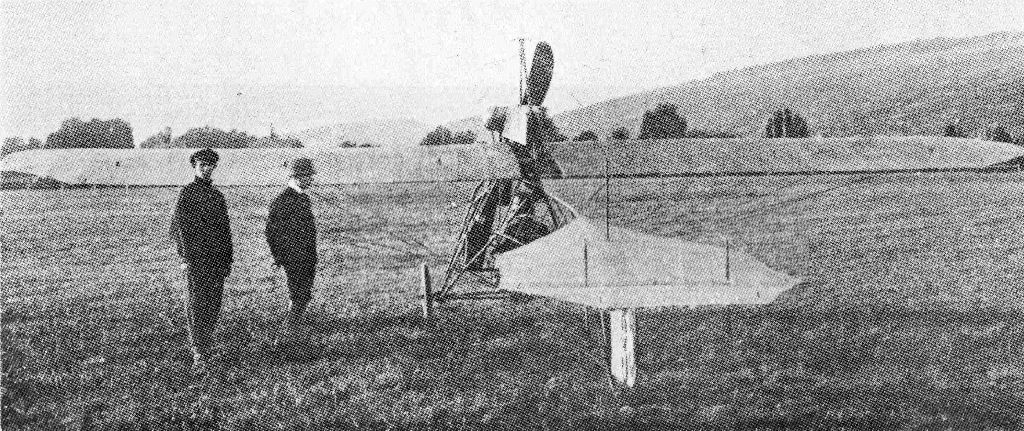
| 1912. "Typ populaire" | 1913. Typ II. | ||
|---|---|---|---|
| Length | feet (m.) | 24-3/4 (7.50) | 21 (6.50) |
| Span | feet (m.) | 27 (8.25) | 26-1/4 (8) |
| Area | sq. feet (m².) | 183 (17) | 172 (16) |
| Weight | total lbs. (kgs.) | 716 (325) | 1102 (500) |
| useful lbs. (kgs.) | 385 (175) | 600 (275) | |
| Motor | h.p. | 35 Anzani | 50 Gnome |
| Speed | m.p.h. (km.) | 56 (90) | 62 (100) |
| Endurance | hrs. | 2 | 2 |
| Number built during 1912 | 2 | 2 | |
Remarks.—
Jatho Flugzeugwerke, G. m. b. H., Stader Chaussee 32, Hannover. Karl Jatho built his first aeroplane in 1899, and has produced machines at intervals ever since. Capacity: small.
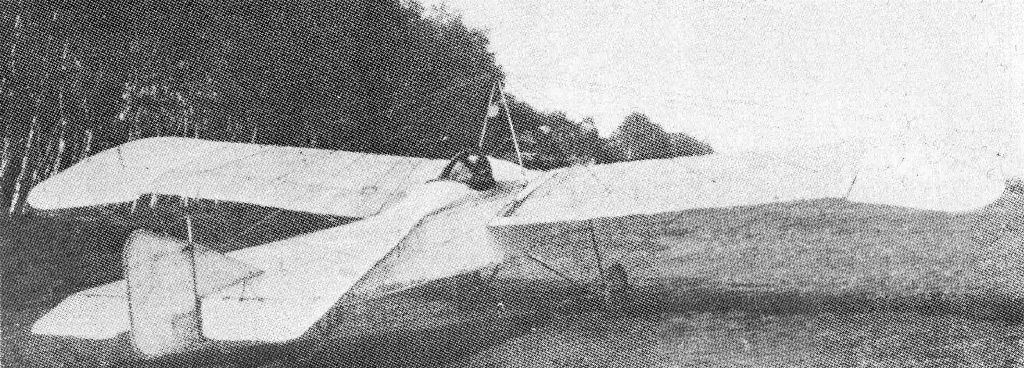
| 1913. | ||
|---|---|---|
| Length | feet (m.) | 29-1/2 (9) |
| Span | feet (m.) | 49-1/4 (15) |
| Area | sq. feet (m².) | 345 (32) |
| Weight | total lbs. (kgs.) | 2116 (960) |
| useful lbs. (kgs.) | 992 (450) | |
| Motor | h.p. | 100 N.A.G. |
| Speed | m.p.h. (km.) | 75 (120) |
| Endurance | hrs. | 3 |
| Number built during 1912 | 2 | |
Remarks.[Pg 141]—
Emile Jeannin, Flugzeugbau, G. m. b. H., Stahltauben & Renneindecker Fabrik, Johannisthal b. Berlin. Capacity: small.

| 1912. "Taube" monoplane. | 1913. Racing monoplane. | ||
|---|---|---|---|
| Length | feet (m.) | 29-1/2 (9) | ... |
| Span | feet (m.) | 42-3/4 (13) | ... |
| Area | sq. feet (m².) | ... | ... |
| Weight | total lbs. (kgs.) | ... | ... |
| useful lbs. (kgs.) | ... | ... | |
| Motor | h.p. | 100-150 Argus | 150 Argus |
| Speed | m.p.h. (km.) | 68 (110) | 87 (140) |
| Endurance | hrs. | 5-8 | 4-7 |
| Number built during 1912 | 2 | 3 | |
Remarks.—The 1913 was building only in March.
Oswald Kahnt, Flugzeugbau, Leipzig. Capacity: small.

| K. F. 1913. "Falke." | ||
|---|---|---|
| Length | feet (m.) | 27-3/4 (8.50) |
| Span | feet (m.) | 42-3/4 (13) |
| Area | sq. feet (m².) | 291 (27) |
| Weight | total lbs. (kgs.) | ... |
| useful lbs. (kgs.) | ... | |
| Motor | h.p. | 50-70 |
| Speed | m.p.h. (km.) | 62 (100) |
| Number built during 1912 | new firm | |
Kondor Flugzeugwerke G. m. b. H., Essen, Ruhr. Fabrik auf dem Flugplatz. Rotthausen. Capacity: 30 or so a year.
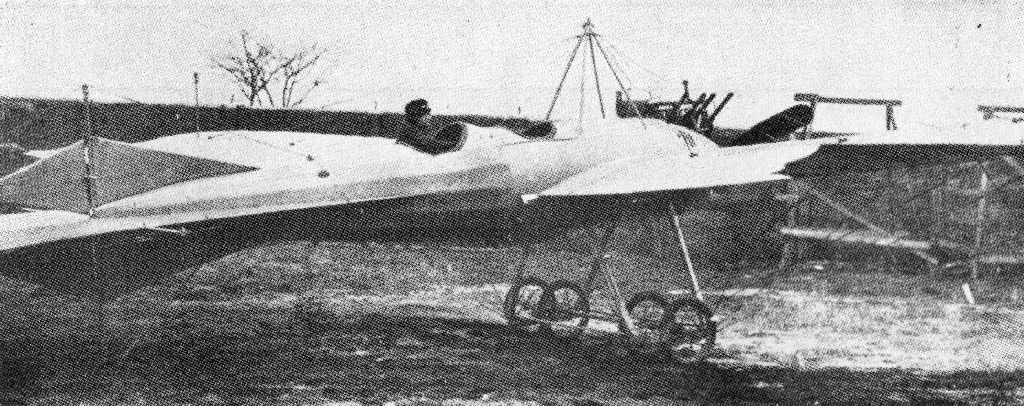
| 1912. | 1913. | ||
|---|---|---|---|
| Length | feet (m.) | 33-3/4 (10.30) | 27 (8.20) |
| Span | feet (m.) | 48-3/4 (14.80) | 46 (14) |
| Area | sq. feet (m².) | 258 (24) | 280 (26) |
| Weight | total lbs. (kgs.) | 1543 (700) | 1328 (600) |
| useful lbs. (kgs.) | ... | ... | |
| Motor | h.p. | 100 Argus | 100 Argus |
| Speed | m.p.h. (km.) | 65 (105) | 70 (112) |
| Number built during 1912 | 2 | ... | |
Remarks.—Both models torpedo body, on 4 skids. Planes dart V form. Constructor: J. Suwelack.
Kühlstein Wagenbau, Karosseriefabrik, Salzufer 4, Charlottenburg. This old-established motor car firm commenced to build aeroplanes in 1911. Capacity: 20 a year.

| 1912. Torpedo monoplane. I. | 1912. Torpedo monoplane. II. | ||
|---|---|---|---|
| Length | feet (m.) | 29-3/4 (9.10) | 27 (8.2) |
| Span | feet (m.) | 40-3/4 (12.4) | 35-1/2 (10.8) |
| Area | sq. feet (m².) | 291 (27) | 215 (20) |
| Weight | total lbs. (kgs.) | 1984 (900) | 2204 (1000) |
| useful lbs. (kgs.) | 1322 (600) | 1543 (700) | |
| Motor | h.p. | 100 Argus | 96 Mercedes |
| Speed | max. m.p.h. (km.) | ... | ... |
| min. m.p.h. (km.) | 84 (135) | 87 (140) | |
| Endurance | hrs. | 3 | 3 |
| Number built during 1912 | 2 | 2 | |
Remarks.[Pg 143]—
Deutsche Flugzeugwerke G. m. b. H., Lindenthal bei Leipzig. Established 1911. This is one of the most important and successful aviation works in Germany. Capacity: from 80 to 100 machines a year.

| 1912-13. Monoplane. | 1912-13. Biplane. | 1913. Hydro-aeroplane. | ||
|---|---|---|---|---|
| Length | feet (m.) | 31 (9.7) | 31 (9.7) | |
| Span | feet (m.) | 55-1/4 (16.8) | 57 (17.8) | |
| Area | sq. feet (m².) | 376 (35) | 495 (46) | |
| Weight | total lbs. (kgs.) | 1234 (560) | 1434 (650) | |
| useful lbs. (kgs.) | 1808 (820) | 2006 (910) | Building. | |
| Motor | h.p. | 95 N.A.G. | 95 Mercedes | |
| Speed | max. m.p.h. (km.) | 120 (75) | 115 (71) | |
| min. m.p.h. (km.) | ... | ... | ||
| Endurance | hrs. | 5-6 | 4-6 | |
| Number built during 1912 | 6 | 16 | ||
Remarks.—
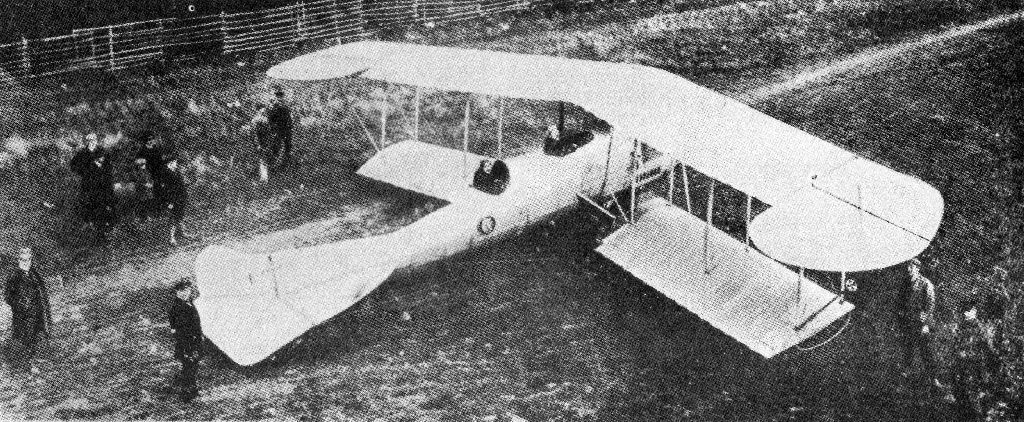
Bernard Mrozinski, Berlin-Wilmersdorf. Established 1912.
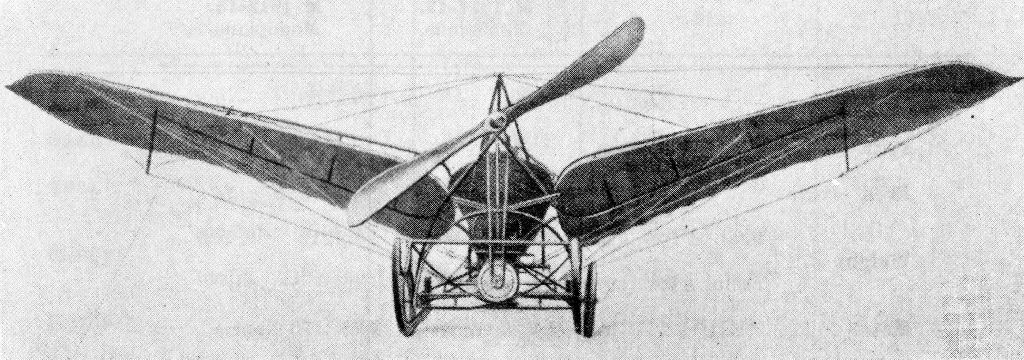
Length, 23 feet (7 m.) span, 32¾ feet (10 m.) area, 215 sq. feet (20 m².)
Weight.—661 lbs. (300 kgs.)
Motor.—20 h.p. Anzani.
Speed.—50 m.p.h. (80 km.)
Remarks.—One machine only built in 1912.[Pg 144]
Max Oertz, Yachtwerft, Reiherstieg b. Hamburg. Famous yacht builder. Commenced aeroplane construction in 1911. Existing models as below. Capacity about 25 machines a year.

| M 1911-12. Monoplane. | M 1912-13. Monoplane. | ||
|---|---|---|---|
| Length | feet (m.) | 29-1/2 (9) | 30-1/4 (9.2) |
| Span | feet (m.) | 41-3/4 (12.75) | 41-3/4 (12.75) |
| Area | sq. feet (m².) | 247 (23) | 263 (24.5) |
| Weight | total lbs. (kgs.) | 948 (430) | 1212 (550) |
| useful lbs. (kgs.) | ... | ... | |
| Motor | h.p. | 70 Gnome | 70 Gnome |
| Speed | max. m.p.h. (km.) | 69 (110) | 75 (120) |
| min. m.p.h. (km.) | ... | ... | |
| Endurance | hrs. | 3 | 4 |
| Number built during 1912 | 3 | 1 | |
Gustav Otto, Flugmaschinenwerke, Schleissheimer Str. 135, Munich. Started building in 1911. Present max. capacity about 30 machines a year.

| M 1912. Biplane. | ||
|---|---|---|
| Length | feet (m.) | ... |
| Span | feet (m.) | ... |
| Area | sq. feet (m².) | ... |
| Weight | total lbs. (kgs.) | ... |
| useful lbs. (kgs.) | ... | |
| Motor | h.p. | 100 A. G. Otto. |
| Speed | max. m.p.h. (km.) | 69 (110) |
| min. m.p.h. (km.) | ... | |
| Endurance | hrs. | 6-8 |
| Number built during 1912 | 6 | |
Remarks.—All 1912 machines purchased for German Army.[Pg 145]
Flugtechnische und mechanische Werke vorm. Pega & Emich, Falterstrasse 13-15, Griesheim, Frankurt-a-M. Commenced building with a 6-decker in 1910. Capacity: small.

| 1913. Buteno monoplane. | ||
|---|---|---|
| Length | feet (m.) | 39-1/4 (12) |
| Span | feet (m.) | 46 (14) |
| Area | sq. feet (m².) | 355 (33) |
| Weight | total lbs. (kg.) | 838 (380) |
| useful lbs. (kg.) | 1102 (500) | |
| Motor | h.p. | 70 Argus |
| Speed | max. m.p.h. (km.) | 62 (100) |
| min. m.p.h. (km.) | ... | |
| Endurance | hrs. | 2 |
| Number built during 1912. | ... | |
Pippart-Noll-Flugzeugbau, Mannheim.

| Type. | P. N. 1 Sporting. 1912. | P. N. 2. "Uberland" 1912. | P. N. 3. Military. 1913. | |
|---|---|---|---|---|
| Length | feet (m.) | 31 (9.50) | 28 (8.50) | 28 (8.50 also 7) |
| Span | feet (m.) | 34-1/2 (10.50) | 39-1/3 (12) | 45 (13.70) |
| Area | sq. feet (m².) | 215 (20) | 280 (26) | 300 (28) |
| Weight | machine lbs. (kgs.) | 617 (280) | 838 (380) | 1234 (560) |
| useful lbs. (kgs.) | 330 (150) | 463 (210) | 441 (200) | |
| Motor | h.p. | 70 Argus | 70 Argus | 70 Argus |
| Speed | max. m.p.h. (km.) | 59 (95) | 62 (100) | 68 (110) |
| min. m.p.h. (km.) | ... | ... | 50 (80) | |
| Endurance | hrs. | ... | ... | ... |
| Number built during 1912 | 1 | 1 | 1 | |
E. Rumpler, Luftfahrzeugbau G. m. b. H., Siegfriedstrasse 202, Berlin-Lichtenberg, also Johannisthal b. Berlin. Established 1909 by E. Rumpler and R. Haessner for the construction in Germany of Etrich (see Austria) monoplanes. These now vary considerably from the original Etrich. Capacity at present about 200 to 300 machines a year. Standard models are as follows:—
| 1912. Monoplane. | 1912. "Taube." | 1913. Hydro. | ||
|---|---|---|---|---|
| Length | feet (m.) | 29-3/4 (9.50) | 34 (10.30) | 33 (10) |
| Span | feet (m.) | 41-1/2 (12.65) | 46 (14) | 49-1/4 (15) |
| Area | sq. feet (m².) | 247 (23) | 336 (32) | 387 (36) |
| Weight | total lbs. (kgs.) | 1398 (630) | 1190 (540) | 1328 (600) |
| useful lbs. (kgs.) | 771 (350) | 551 (230) | 485 (220) | |
| Motor | h.p. | 95 Mercedes | 100 Argus | 100 Argus |
| Speed | max. m.p.h. (km.) | 81 (130) | 59 (95) | 56 (90) |
| min. m.p.h. (km.) | ... | ... | ... | |
| Endurance | hrs. | 6-7 | 4-6 | ... |
| Number built during 1912 | 1 | 60 | 3 | |
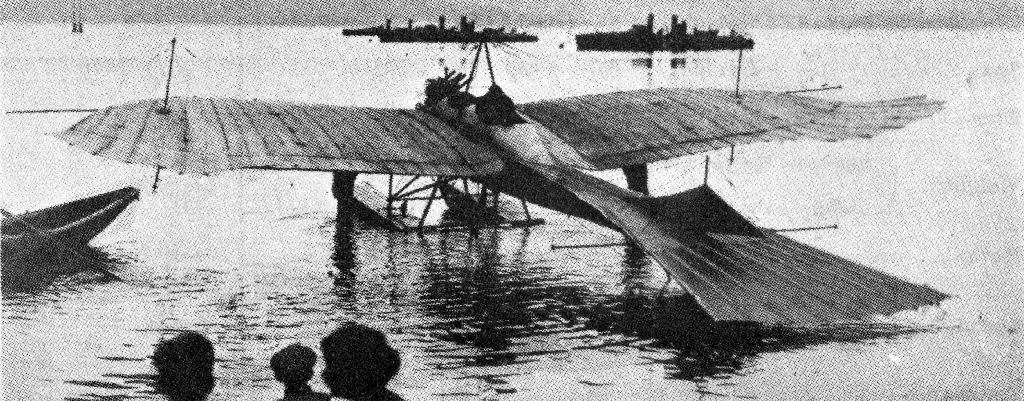
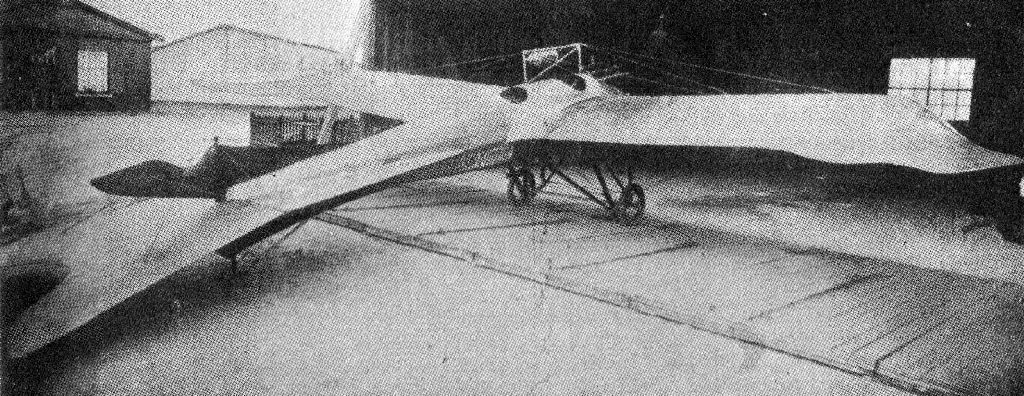
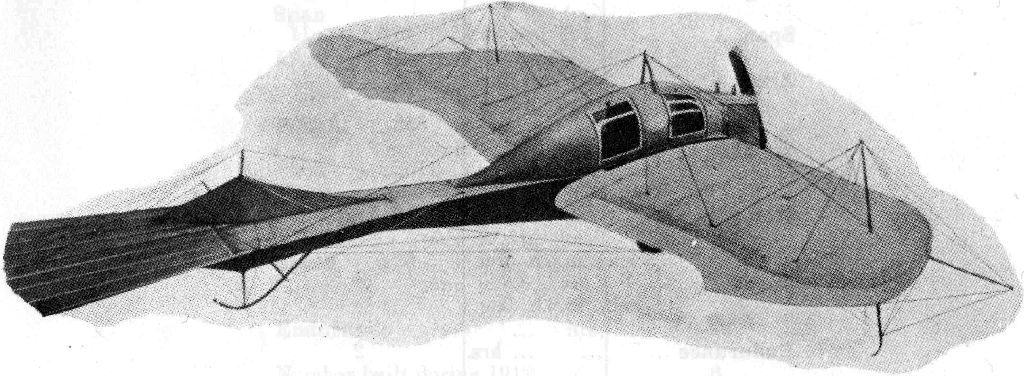
Ruth-Rohde, Motorgleitflieger, G. m. b. H., Wandsbeck. Established 1912. Capacity: small.
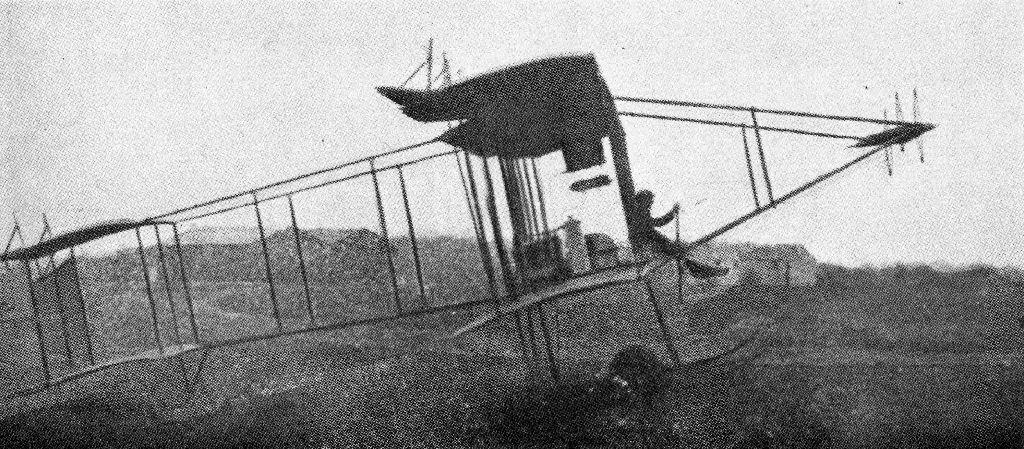
| 1912. Biplane I. | 1912. Biplane II. | ||
|---|---|---|---|
| Length | feet (m.) | 26-1/4 (8) | 26-1/4 (8) |
| Span | feet (m.) | 36 (11) | 45 (14) |
| Area | sq. feet (m².) | 590 (55) | 700 (65) |
| Weight | total lbs. (kgs.) | 1653 (750) | 1764 (800) |
| useful lbs. (kgs.) | ... | ... | |
| Motor | h.p. | 75 Argus | 75 Argus |
| Speed | max. m.p.h. (km.) | 55 (90) | 55 (90) |
| min. m.p.h.(km.) | ... | ... | |
| Endurance | hrs. | 3 | 3-4 |
| Number built during 1912. | 1 | 1 | |
Richard Schelies, Conventstrasse 5 und 5b, Hamburg 23. Flying Station, etc.: Dockenhuden a/Elbe.

| 1913. Hydro-monoplane. | ||
|---|---|---|
| Length | feet (m.) | 23 (7) |
| Span | feet (m.) | 29-1/2 (9) |
| Area | sq. feet (m².) | 323 (30) |
| Weight | total lbs. (kgs.) | 705 (320) |
| useful lbs. (kgs.) | 220 (100) | |
| Motor | h.p. | Rheinische Aero 35 |
| Speed | m.p.h. (km.) | ... |
Gustav Schulze, Flugzeug Werke, Burg b. Magdeburg. Schulze began to build in 1910 light monoplanes, generally along Santos-Dumont lines. Maximum present capacity about 12 machines a year.

| 1912. I. | 1912. II. | 1912. III (2-seater). | 1913. I (2-seater). | ||
|---|---|---|---|---|---|
| Length | feet (m.) | 19-3/4 (6) | 26-1/4 (8) | 21-1/3 (6.50) | 23 (7) |
| Span | feet (m.) | 26-1/4 (8) | 34-1/2 (10.50) | 28 (8.50) | 29-1/2 (9) |
| Area | sq. feet (m².) | 172 (16) | 215 (20) | 172 (16) | 194 (18) |
| Weight | total lbs. (kgs.) | 330 (150) | 441 (200) | 441 (200) | 551 (250) |
| useful lbs. (kgs.) | ... | ... | ... | ||
| Motor | h.p. | 24-30 Hilz | 24-30 Hilz | 35 Haacke | 35 Haacke |
| Speed | max. m.p.h. (km.) | 48 (77) | 53 (85) | 56 (90) | 53 (85) |
| min. m.p.h. (km.) | ... | 43 (70) | 50 (80) | 46 (75) | |
| Number built during 1912. | 1 | 3 | 1 | Building. | |
Prinz Sigismund von Preussen, Berlin.

| Model and date. | Monoplane. | |
|---|---|---|
| Length | feet (m.) | 29-1/2 (9) |
| Span | feet (m.) | 42-3/4 (13) |
| Area | sq. feet (m².) | 323 (30) |
| Weight | total lbs. (kgs.) | 950 (430) |
| useful lbs. (kgs.) | 395 (180) | |
| Motor | Argus, 100 | |
| Speed | max. m.p.h. (km.) | 56 (90) |
| Number built during 1912 | 2 | |
Union Flugzeugwerke G. m. b. H. Elsenstrasse 106 & 107, Berlin s. o. 36. Established 1913. Capital 500,000 marks. Capacity of works: 20 machines a year.
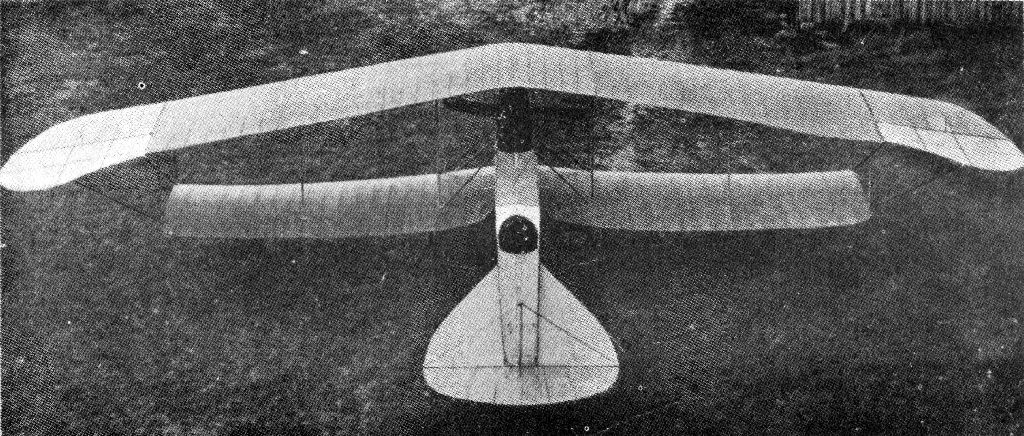
| Model and date. | Bomhard. Pfeilflieger, 1913. | |
|---|---|---|
| Length | feet (m.) | 32-3/4 (10) |
| Span | feet (m.) | 59 (18) |
| Area | sq. feet (m².) | 450 (42) |
| Weight | total lbs. (kgs.) | 1235 (560) |
| useful lbs. (kgs.) | 617 (280) | |
| Motor | 100 Argus | |
| Speed | max. m.p.h. (km.) | 69 (110) |
| min. m.p.h. (km.) | 62 (100) | |
| Number built during 1912 | New firm | |
Flugmaschine Wright, G. m. b. H., Adlershof, bei Berlin. Company formed to trade in German rights for the Wright Bros.' patents. Considerable departures have been made from the U.S. pattern, and some have been built with a single propeller only. Capacity of works 100-150 a year.
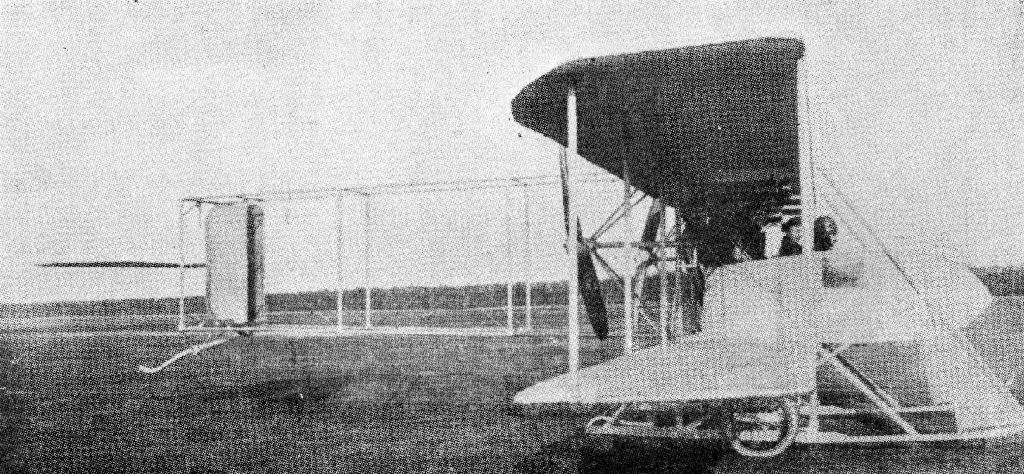
| 1912. Military. | 1913. Sporting. | 1913. Military. | 1913. Military. 4-seater. | ||
|---|---|---|---|---|---|
| Length | feet (m.) | 28 (8.50) | 26-1/2 (8.20) | 31-1/2 (9.65) | ... |
| Span | feet (m.) | 39-1/2 (12.20) | 31 (9.60) | 40-1/2 (12.50) | 44-1/4 (13.50) |
| Area | sq. feet (m².) | 452 (42) | 323 (30) | 463 (43) | 463 (43) |
| Weight | total lbs. (kgs.) | 992 (450) | 837 (380) | 1433 (650) | 1653 (750) |
| useful lbs. (kgs.) | ... | ... | ... | 882 (400) | |
| Motor | h.p. | 55 N.A.G. | 55 N.A.G. | 100 Argus or Mercedes | 100 |
| Speed | max. m.p.h. (km.) | 50 (80) | 60 (95) | 60 (95) | 60 (95) |
| min. m.p.h. (km.) | ... | ... | ... | ... | |
| Number built during 1912 | 10 | ? | ... | ... | |
Ziegler, Potsdam. Established late in 1912.

| 1912-13. Monoplane. | ||
|---|---|---|
| Length | feet (m.) | 31 (9.50) |
| Span | feet (m.) | 39-1/3 (12) |
| Area | sq. feet (m².) | 344 (32) |
| Weight | total lbs. (kgs.) | 881 (400) |
| useful lbs. (kgs.) | 992 (450) | |
| Motor | h.p. | 100 N.A.G. |
| Speed | max. m.p.h. (km.) | 60 (90) |
| min. m.p.h. (km.) | ... | |
| Endurance | hrs. | 2 |
| Number built in 1912 | 1 | |
(Approximately 1000 m³=35,000 c. feet.)
Military.
| Date. | Name. | Make. | Type. | Capacity in m³. | Total H.P. | Speed. m.p.h. (km.) | Remarks. | |
|---|---|---|---|---|---|---|---|---|
| 1908 | Z I | Zeppelin 3b | r. | 12100 | 190 | 29 (46) | as rebuilt | |
| 1910 | Z II | Zeppelin 9b | r. | 18000 | 345 | 35 (56) | as rebuilt | |
| L. S I | Schütte Lanz 1 | r. | 20000 | 540 | 40 (62) | |||
| 1912 | Z III | Zeppelin 12 | r. | 17800 | 450 | 49 (79) | was Schwaben L. Z 10 | |
| L I | Zeppelin 14 | r. | 22000 | 450 | 48 (77-1/2) | Naval: 1 gun | ||
| 1913 | Z IV (Z I Ersatz) | Zeppelin 15 | r. | 21000 | 450 | 48 (77-1/2) | 4 guns | |
| Building. | L II | Zeppelin 16 | r. | 21000 | 450 | 48 (77-1/2) | Naval: bldg. 4 guns | |
| S. L II | Schütte Lanz 2 | r. | 26000 | 450 | 48 (77-1/2) | Building | ||
| 1908 | P I | Parseval 2 | n.r. | 3800 | 85 | 33-1/2 (54) | ||
| 1911 | P III | Parseval 11 | n.r. | 11000 | 400 | 42-1/2 (67) | ||
| 1912 | M I | Gross-Bas 2 | s.r. | 6000 | 150 | 28 (45) | old 1908 rebuilt | |
| M II | Gross-Bas 3 | s.r. | 6000 | 150 | 28 (45) | old 1909 rebuilt | ||
| M III | Gross-Bas 4 | s.r. | 9000 | 300 | 42-1/2 (67) | old 1910 rebuilt | ||
| 1913 | M IV | Gross-Bas 5 | s.r. | 12000 | 400 | 44-1/2 (70) | old 1911 rebuilt | |
| P II ersatz | Parseval 8 | n.r. | 8250 | 300 | 41 (66) | Building | ||
| P IV | Parseval 16 | n.r. | 10000 | 360 | 45 (72) | Building | ||
Private.[D]
| Date. | Name. | Make. | Type. | Capacity in m³. | Total H.P. | Speed. m.p.h. (km.) | Remarks. | |
|---|---|---|---|---|---|---|---|---|
| 1910 | DEUTCHLAND 2 | Zeppelin 6a | r. | 15000 | 345 | 36 (58) | Deutschland Ersatz Delag | |
| 1912 | V. LUISE | Zeppelin 11 | r. | 17000 | 450 | 40 (62) | Delag | |
| HANSA | Zeppelin 13 | r. | 17000 | 450 | 40 (62) | Delag | ||
| 1913 Bldg. | SACHSEN | Zeppelin 17 | r. | 21000 | 48 (77-1/2) | Building. Delag | ||
| 1908 | P. L 1 | Parseval 1 | n.r. | 3200 | 185 | 20 (32) | ||
| 1910 | STOLLWERCK | Parseval 6 | n.r. | 9000 | 220 | 31 (50) | ||
| 1911 | P. L 9 | Parseval 9 | n.r. | 2200 | 50 | 25 (40) | Sporting[E] | |
| R 2 | Ruthenberg 2 | n.r. | 1700 | Experimental | ||||
| 1912 | SUCHARD | Suchard reb'lt | n.r. | 6730 | 200 | 17 (28) | to be rebuilt 1913 | |
| P. L XII | Parseval 12 | n.r. | 8800 | 220 | 33-1/2 (54) | |||
| 1913 | P. L 10 | Parseval 10 | n.r. | 2200 | 50 | 25 (40) | Building: delayed | |
| R 3 | Ruthenberg 3 | n.r. | 2700 | Building | ||||
[D] P.L 9 reported sold to Turkey, April, 1913.
[E] Three other dirigibles, Unger, Veeh, and Siemens-Schuckert, are generally credited to Germany. Of these Unger is merely a project. Veeh has been talked about for four years, but has never reached completion. Siemens-S. has ceased to exist.
(See Note.)
Note.—Unless otherwise stated the above are military sheds. All private ones capable of holding Zeppelins are subsidised. *=not large enough for Zeppelins.
For M. dirigibles.
Z=Zeppelin. S=Schutte-Lanz. P=Parseval pilot.
(The number after each name is the Imperial Ae. C. certificate number.)
Up to date, these vessels have been designed by Major Gross and Oberingenieur Basenach.
The utmost secrecy is observed as to their details.
The system of employing 2 ballonets has been borrowed from the Parseval type, and presumably the Parseval system of working the automatic valves has also been adopted.
In all other features, these ships appear to resemble the French Lebaudy type, the shape of the hulls being rather better.
List of ships built, re-built and re-building of this type:—
| 1 | = Aeronautical Society. | (1,800 m³) non-effective. | |
| 2 | (reconstructed) | = M 1, Military. | (6,000 m³) |
| 3 | " | = M 2, Military. | (6,000 m³) |
| 4 | " | = M 3, Military. | (9,000 m³) |
| 5 | " | = M 4, Military. | (12,000 m³) |
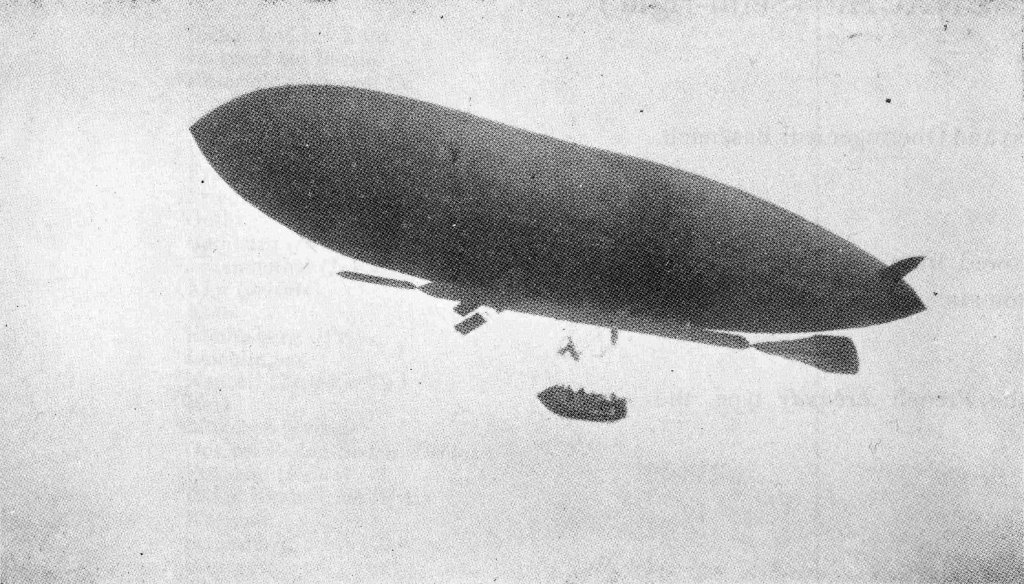
Length, 242¾ feet (74 m.) maximum diameter, 36 feet (11 m.) capacity, 212,000 c. feet (6,000 m³) total lift, 13,338 lbs. (6,050 kg.) about 6 tons
Useful lift.—2,756 lbs. (1,250 kgs.)=about 1¼ tons.
Gas bag.—Continental rubber cloth, diagonal thread. Tapering shape.
Ballonet.—One-fifth of total volume.
Motors.—2-75 h.p. Daimler. 2 propellers, with 3 aluminium blades.
Speed.—About 28 m.p.h. (45 km.).
Remarks.—M I was originally built in 1908, re-built and enlarged 1910 and again in 1912. M II built 1909, re-constructed 1912.
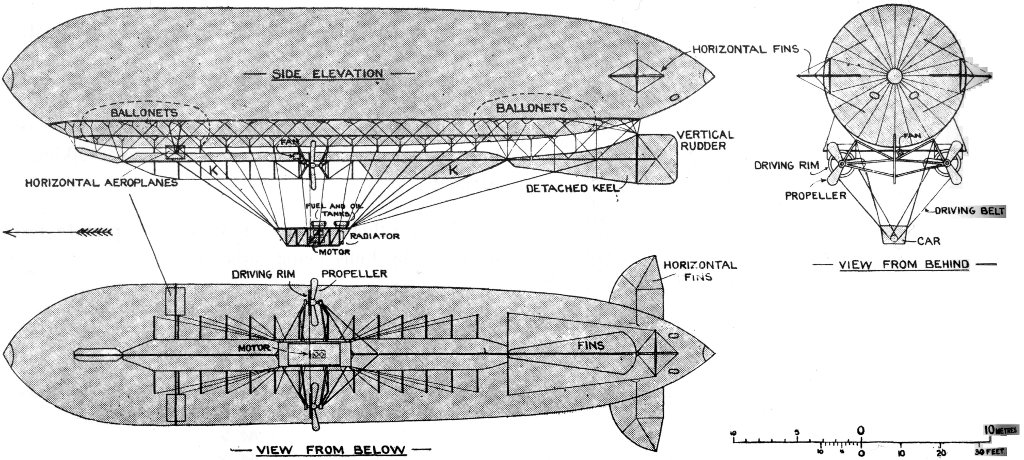
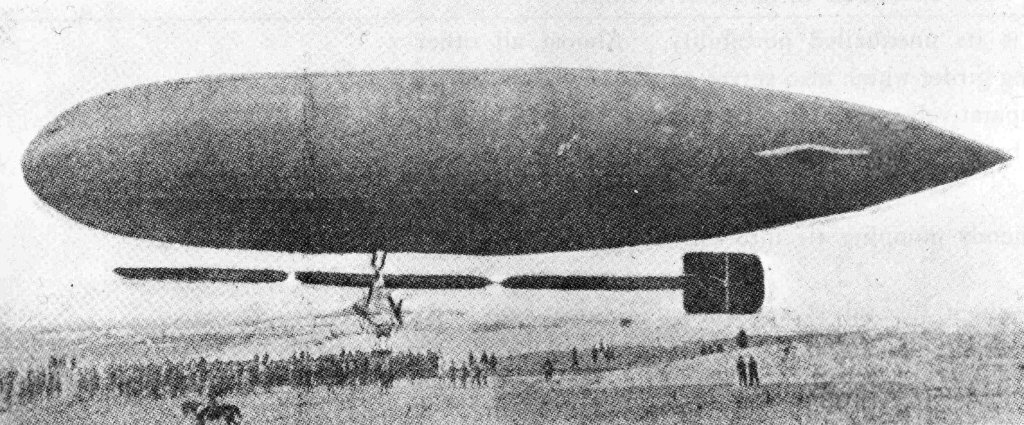
Length, 295¼ feet (90 m.) diameter, 39-1/3 feet (12 m.) volume, 317,800 c. feet (9,000 m³.)
Motors.—4 Körting of 75 h.p. each = 300 h.p. total.
Speed.—19 metres per second = 42 m.p.h. (68½ k.p.h.)
Propellers.—2, on outriggers from car, chain-driven.
Remarks.—Built 1910. Burned 13th September, 1911. Rebuilt 1912.
Maximum length, 334¾ feet (102 m.) maximum diameter, 44½ feet (13.5 m.) volume, 423,800 c. feet (12,000 m³.)
Total lift.— lbs. ( kgs.) Useful lift, lbs. ( kgs.)
Gas bags.—Continental.
Motors.—2 Körting, 100 h.p. each = total 200 h.p.
Speed.—44½ m.p.h. (70½ k.p.h.)
Propellers.—4 (two for each motor.) Carried on outriggers projecting from the car.
Remarks.—Departs from previous practice in having two separate cars, each of which contains one motor. Originally built in 1911 of 7,500 m³. Re-built 1912-1913 to details as above.
Luftfahrzeug-Gesellschaft m.b.H, Berlin, W. 62.
When the "Motorluftschiff Studien Gesellschaft" was formed at the instigation of the German Emperor, a committee was formed to acquire an experimental airship of the most promising type. Major Von Parseval's first airship was selected, and since that time the above company has confined itself to improving this type, and to making exhaustive and costly researches, all of which have been embodied in successive ships.
The characteristic feature of every one of these craft is its unequalled portability. Almost all other so-called Non-rigid vessels distribute the load by means of a long girder which also serves as a car. This girder is awkward to pack up and transport. Parseval uses a comparatively small car, and distributes the weight by hanging it further below the balloon than usual, and also by using 2 ballonets which are placed one near each end of the gas bag.
These 2 ballonets enable the ship to be trimmed by merely pumping air into either at the expense of the other.
Another essential feature of the type is the system by which the valves are worked automatically. At the present time there is no other system of valve working so reliable as this.
A third essential feature of the class is the use of a swinging car, in such a manner that pitching, due to alterations of propeller thrust, is automatically checked by an alteration of the position of the centre of gravity.
A fourth feature is the use of limp propeller blades. A propeller of this type is very easily packed up.
The shape of these vessels is in accordance with the experiments of Professor Prandtl.
Ships of this class built or building (figures supplied by the Parseval Co.):—
| EXPERIMENTAL PARSEVAL | 2,300 m³. | |
| P. L. 1 | Kals. Ae. C | 3,200 m³. |
| MILITARY P I | 4,000 m³. | |
| MILITARY P II | 6,600 m³. | |
| P. L. 4 | Austrian Military | 2,300 m³. |
| P. L. 5 | Luftverkehrs Gesellschaft | 1,450 m³. |
| P. L. 6 | " | 9,000 m³. |
| P. L. 7 | Russian Army | 7,600 m³. |
| P. L. 8 | MILITARY P II Ersatz | 8,250 m³. |
| P. L. 9 | Luftverkehrs Gesellschaft | 2,200 m³. |
| P. L. 10 | Motorluftschiff Studien Gesellschaft | 2,200 m³. |
| MILITARY P III | 11,000 m³. | |
| P. L. 12 | Luftverkehrs Gesellschaft | 8,800 m³. |
| P. L. 13 | Japanese Army | 8,500 m³. |
| [Pg 157] | ||
| P. L. 14 | Russian Army | 9,500 m³. |
| P. L. 15 | Italian Army | 10,000 m³. |
| P. L. 16 | MILITARY P IV, Prussian Army | 10,000 m³. |
| P. L. 17 | Italian Army | 10,000 m³. |
| P. L. 18 | British Navy | 8,800 m³. |
(Of the above, the Experimental is no longer in existence, P. 2 is out of service, and P. L. 3 has been burned and destroyed).
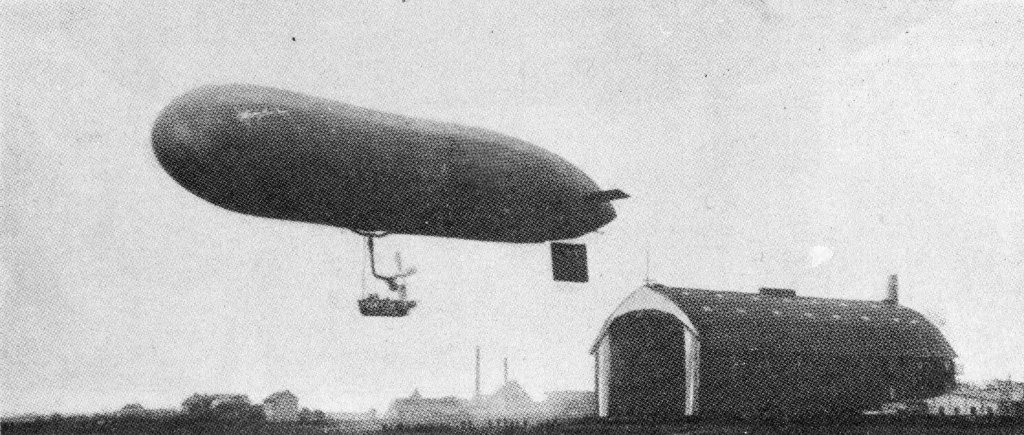
Length, 197 feet (60 m.) max. diam. 31 feet (9.4 m) capacity, 113,000 c. feet (3,200m³) lifting power, 7,800 lbs. (3,583 kgs.)
Gas bag.—Cylindrical, with semi-conical front. Of rubber-proofed material in longitudinal strips. Pressure in ballonets and gas bag, 30 mm. of water.
Motor.—One 85 h.p. Daimler.
Fuel.—700 lbs. (325 kg.) 88 gallons (400 litres)
Speed.—20 m.p.h. (32 k.p.h.)
Propeller.—One 4-bladed. Semi-rigid Parseval.
This vessel was somewhat altered on being bought by the Society. Her essential principle is that she can be taken to pieces in a few minutes, and carried in a truck. Her main feature is that she has a ballonet at each end. This is described in the case of type A (P.L. 2). This class rise with the forward ballonet empty, and inclined up by the bow. The propeller is similar to that of P.L. 2. The car also is mounted on wire runners. She was originally 4,000 m³. capacity. Built 1908. Station: Bitterfeld. The car is at present in Deutsches Museum, Munich. [Pg 158]
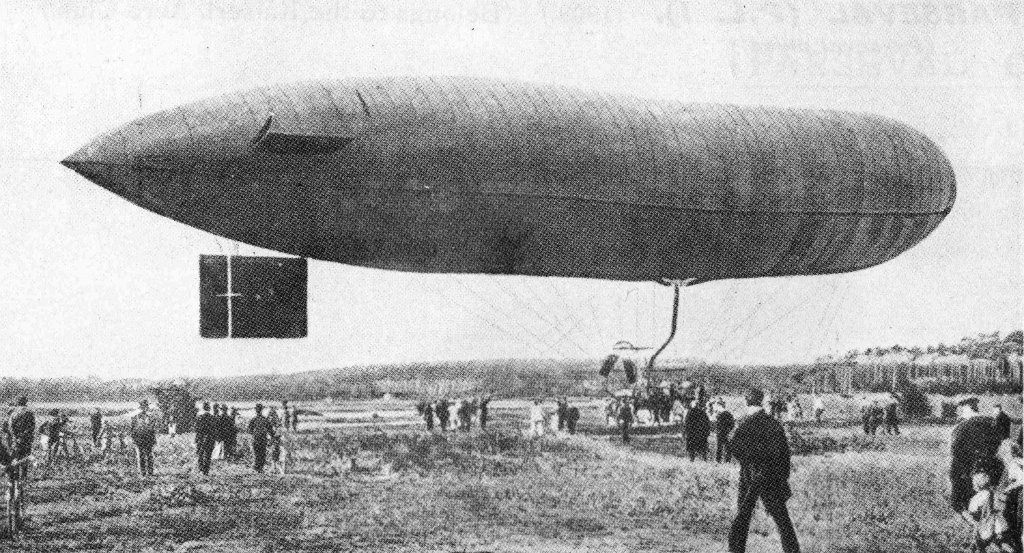
Built by the "Society for the Study of Motor Air Ships," and taken over by the German War Office.
Length, 197 feet (60 m.) maximum diameter, 34 feet (10.40 m.) capacity, 111,270 cubic feet (4,000 cubic m.) lifting power, 9,200 lbs. (4,180 kgs.)
Gas bag.—Front end semi-ellipsoidal with semi-axes 15.4 feet (4.7 m.) and 11.8 feet (3.6 m.), from which it increases to its maximum diameter. This is maintained for about two-thirds of its length, when it begins to taper to a point at the stern. Made of 2 layers of transverse strips of rubber proofed material, crossing each other diagonally. Fitted with a tearing strip.
Ballonets.—One at each end, together amounting to about one-quarter of the total capacity. Owing to this disposition, the trim can be altered, and steering effected in the vertical plane by filling either more than the other. Pressure in the ballonets and gas bag, 20 mm. of water pressure.
Motor.—4-cylinder 85 h.p. Daimler placed at one side of the car to give more room. 1,000 to 1,200 r.p.m.
Propellers.—12-1/3 feet (3.75 m.) diameter, 250 to 300 r.p.m. 4-bladed, the blades being of peculiar construction. When stopped, the fabric of which they are made hangs down limply; when running, these flaps fly out under centrifugal force.
Speed.—27 miles per hour. 43 kilometers per hour.
Car.—Length, 22-1/3 feet (6.8 m.) Width 4.1 feet (1.22 m.) Made of nickel steel, U bars, screwed together so as to take the pieces rapidly. The sides are lattice girders. The whole is boat shaped and covered with canvas. Contains motor, chart table; trail rope 480 feet (146 m.) long, weighing 220 lbs. (100 kg.) Wheel for horizontal steering at the bow. 110 gal. (500 litre) cask of petrol on the girders at the after point. 41 feet (12½ m.) below the gas bag. It is capable of swinging horizontally on wires running over rollers. Whereas without this device a forward swing of the car would lift the nose to a possibly dangerous extent, the free motion of the car shifts the centre of the gravity forward and so preserves stability.
Steering.—In vertical plane, by altering the trim. In horizontal plane, by a rudder of 80.7 sq. feet (7½ m²) immediately behind the vertical plane. Two fixed horizontal planes are placed at the rear end of the gas bag above the central line.
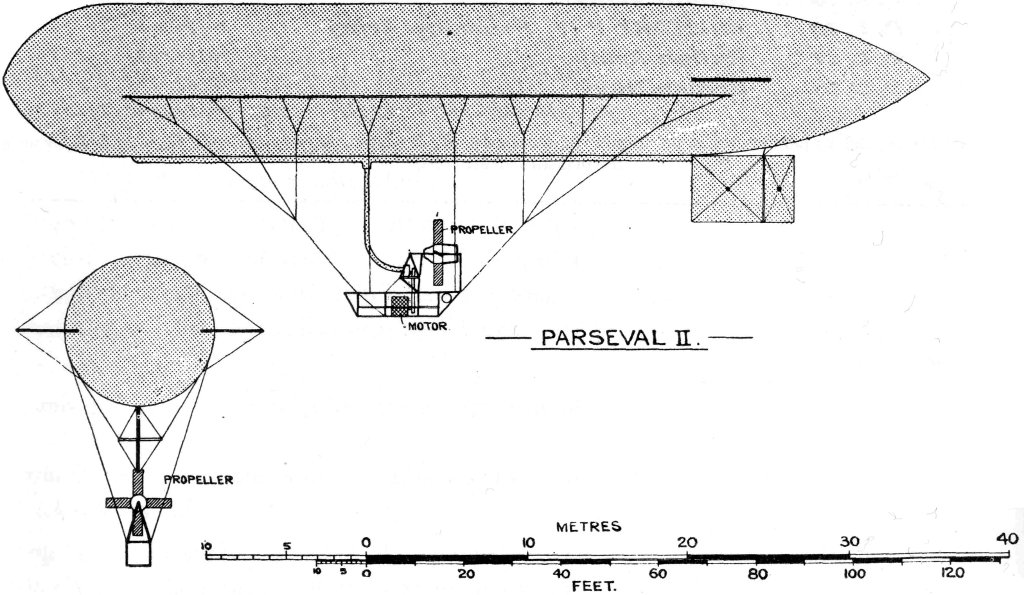
Table of weights:—
| Gas bag | 1,653 | lbs. |
| Cordage | 220.5 | " |
| Trail rope | 220 | " |
| Car and motor | 529 | " |
| Fuel | 770 | " |
| Oil | 160 | " |
| Oil and fuel tanks, instruments, miscellaneous | 1,637 | " |
| Crew, passengers, ballast | 1,654 | " |
| Total | 6,834 | lbs. |
Note.—This remarkably successful ship has performed a continuous flight of 11½ hours. She also remained at a height of 4,800 feet (1,500 m.) for 1 hour. She can be transported in 1 railway truck or 2 pair horse wagons, and be assembled and filled ready for ascent within 3 hours of arrival by train.
Built 1908. Station: Metz.[Pg 159]
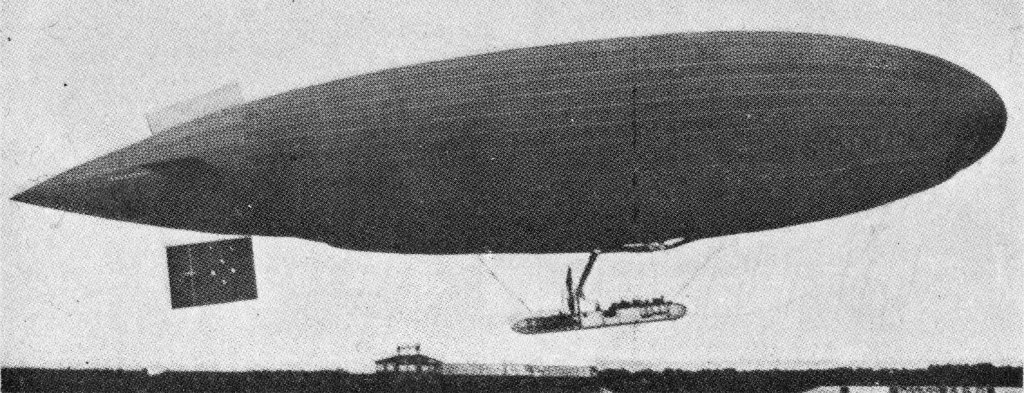
Length, 229¾ feet (70 m.) Diameter, 49¼ feet (15 m.) Volume, 318,000 c. feet (9,000 m³)
Gas bags.—Riedinger.
Motors.—2 N.A.G. of 110 h.p. each = 220 h.p.
Speed.—31 m.p.h. (50 k.p.h.)
Propellers.—Two 4-bladed. Semi-rigid material.
Remarks.—Station, Johannisthal.
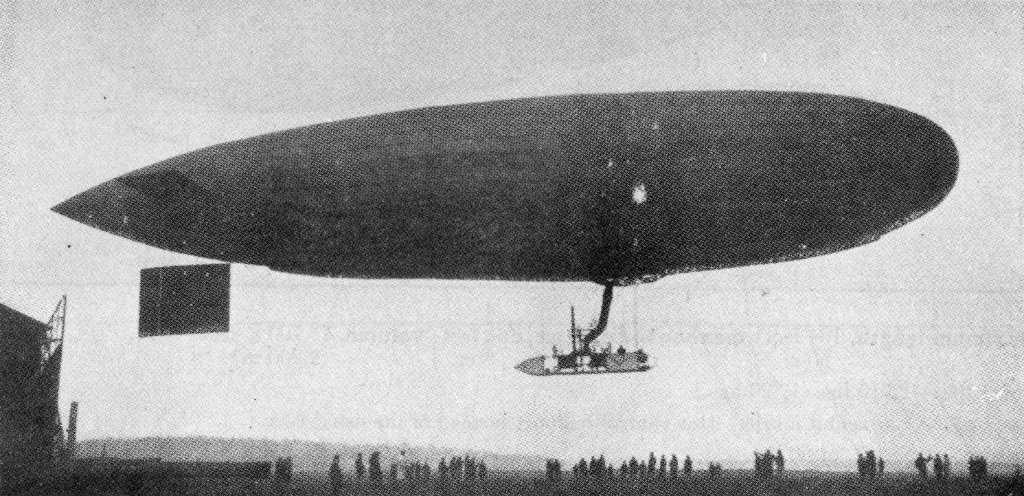
Maximum length, 252¾ feet (77 m.) maximum diameter, 50¾ feet (15.50 m.) volume, 290,000 c. feet (8,250 m³.)
Total lift.—5½ tons=12,125 lbs. (5,500 kgs.)
Gas bags.—2 ballonets, usual arrangement.
Motors.—300 h.p. made up of two 150 h.p. Daimler motors, placed one behind the other.
Speed.—41 m.p.h. (66 km.)
Propellers.—2 Parseval, 4-bladed, semi-rigid steel.
Steering.—As in others.
Remarks.—Station, Cologne, (Cöln).[Pg 160]
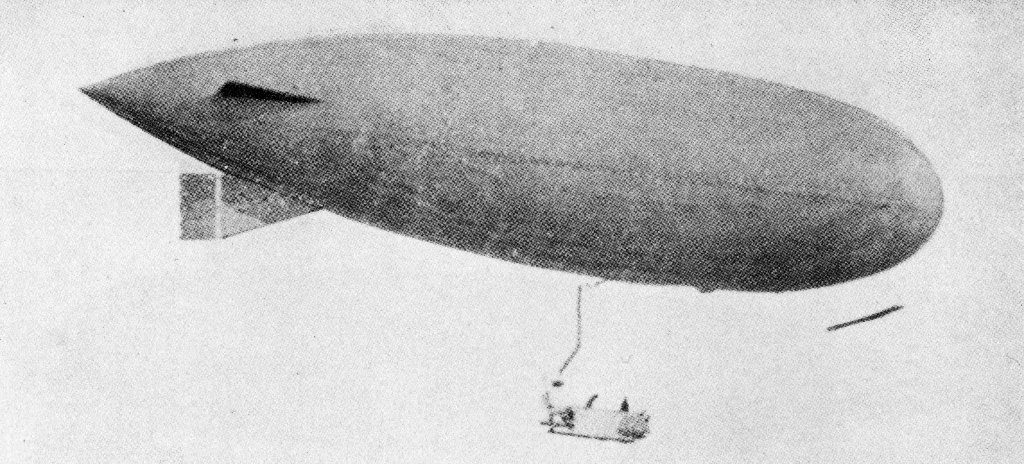
Maximum length, 164 feet (50 m.) maximum diameter, 26¼ feet (8 m.) volume, 77,700 c. feet (2,200 m³.)
Total lift.—2,910 lbs. (1,320 kgs.)
Gas bag.—Continental fabric. One central ballonet instead of the usual two.
Motors.—1 N.A.G. of 50 h.p.
Speed.—25 m.p.h. (40 k.p.h.)
Propellers.—One 2-bladed, wooden. Diameter, 9¾ feet (3 m.)
Steering.—Differs from other standard types, in that only one ballonet being fitted, an elevator is introduced under the bow.
Remarks.—Small ships for sporting purposes. A remarkably successful type of small dirigible. A small P.L. 5, burned 1912. P.L. 10 delayed owing to press of other work.
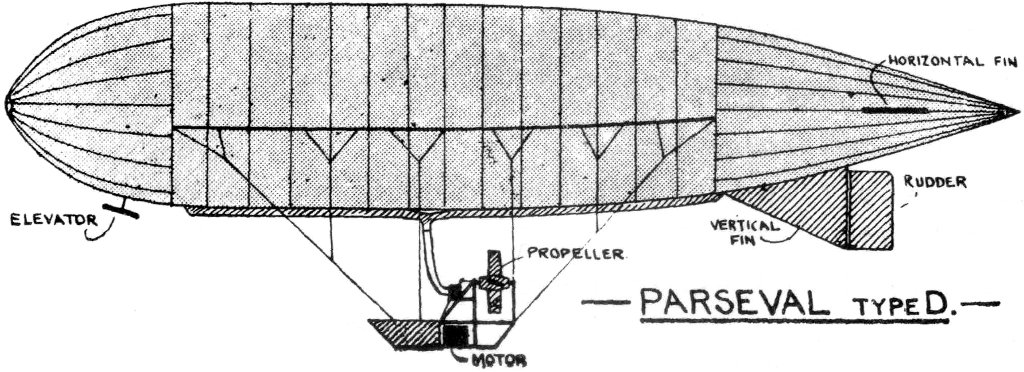
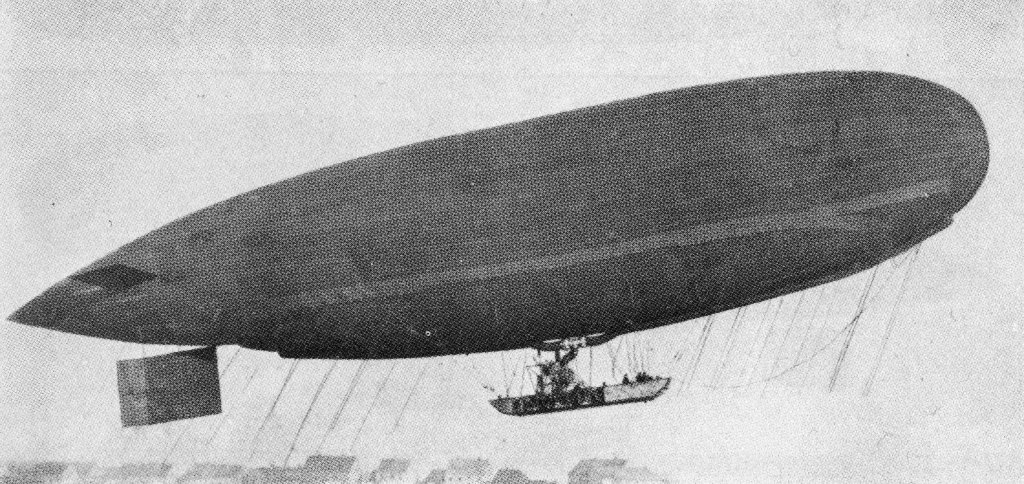
Maximum length, 272-1/3 feet (83 m.) maximum diameter, 53 feet (16.20 m.) volume, 388,450 c. feet (11,000 m³.)
Total lift.—
Gas bags.—
Motors.—2 Körting, each of 200 h.p.=400 total.
Speed.—42 m.p.h. (67 k.p.h.) (18.3 metres p. sec.)
Propellers.—Two 4-bladed Parseval.
Remarks.—Built 1911. Station, Koenigsberg.[Pg 161]
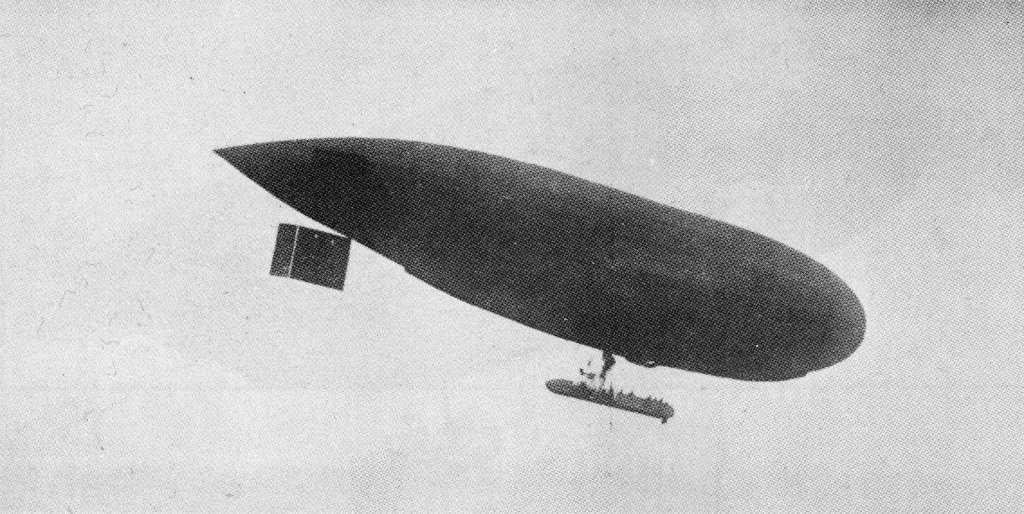
Maximum length, 259 feet (79 m.) maximum diameter, 49¾ feet (15.20 m.) volume, 300,750 c. feet (8,800 m³.)
Total lift.—
Gas bags.—
Motors.—2 N.A.G. of 110 h.p. each=220 total.
Speed.—33½ m.p.h.=54 k.p.h. (15 m. per sec.)
Propellers.—2 Parseval.
Steering.—Usual.
Remarks.—Built 1911. Station: Wanne.
Maximum length, 308½ feet (94 m.) maximum diameter, 51½ feet (15.50 m.) volume, 353,000 c. feet (10,000 m³.)
Gas bags.—Metzler.
Motors.—2 Maybach, of 180 each=360 h.p.
Speed.—45 m.p.h.=72 k.p.h. (20 m. per sec.)
Propellers.—Two 4-bladed, wooden (on trial).
Remarks.—For the Prussian Army. Station: Berlin.[Pg 162]
H. Ruthenberg, Lehderstrasse 16/19, Weissensee bei Berlin: also Luftfahrzeug-Ges, Ruthenberg, Krefeld.
Maximum length, 151 feet (46 m.) diameter, 24¼ feet 7.40 (m.) volume, 60,000 c. feet (1,700 m³.)
Gas bags.—
Motor.—
Speed.—
Propellers.—2 Ruthenberg.
Remarks.—
Length, feet (m.) diameter, feet (m.) volume, 95,000 c. feet (2,700 m³)
Gas bags.—
Motor.—
Speed.—
Propeller.—Ruthenberg.
Remarks.—
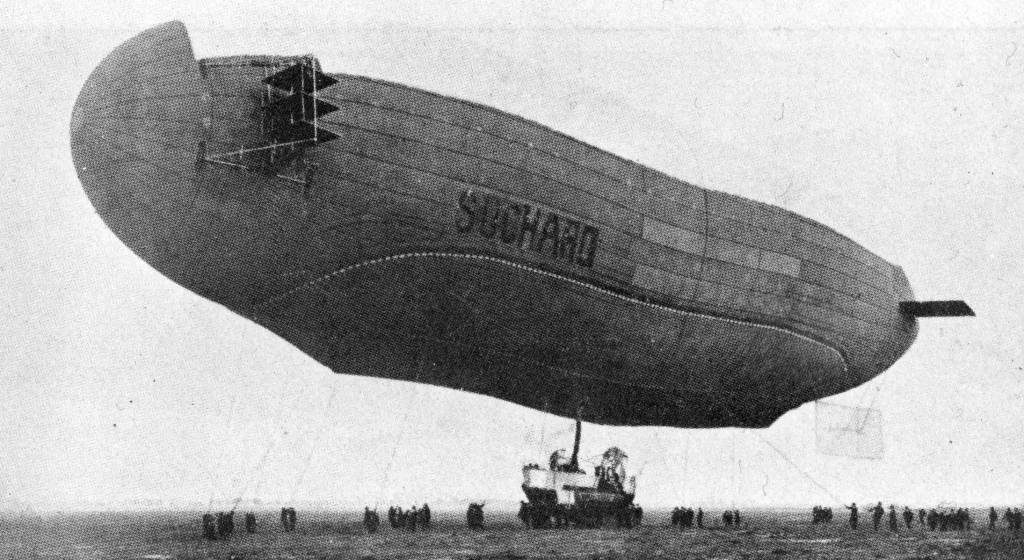
Maximum length, 198½ feet (60/5 m.) maximum diameter, 56¼ feet (17.11 m.) volume, 237,681 cubic feet (6,730 m³.)
Total weight.—About 2 tons (2,130 kgs.)
Gas bags.—Metzeler fabric. One ballonet.
Motors.—2 of 100 h.p. (one a N.A.G., the other an Escher). Placed one behind the other. A 4 h.p. motor carried for auxiliary purposes. Petrol carried, (1700 kil.) Oil, (300 kil.)
Speed.—17 m.p.h. (28 k.p.h).
Propellers.—Two 2-bladed Zeise. Diameter, 9¾ feet (3 m.) Chain driven.
Steering.—Elevation by moving weight slung on cable under body. Rudder aft.
Remarks.—Built March, 1911, with a view to crossing the Atlantic from the Canaries to the Antilles. Re-constructed 1912. Proposed further re-construction in 1913.[Pg 163]
(1911.) H. Heinrich Lanz, Rheinau bei Mannheim.
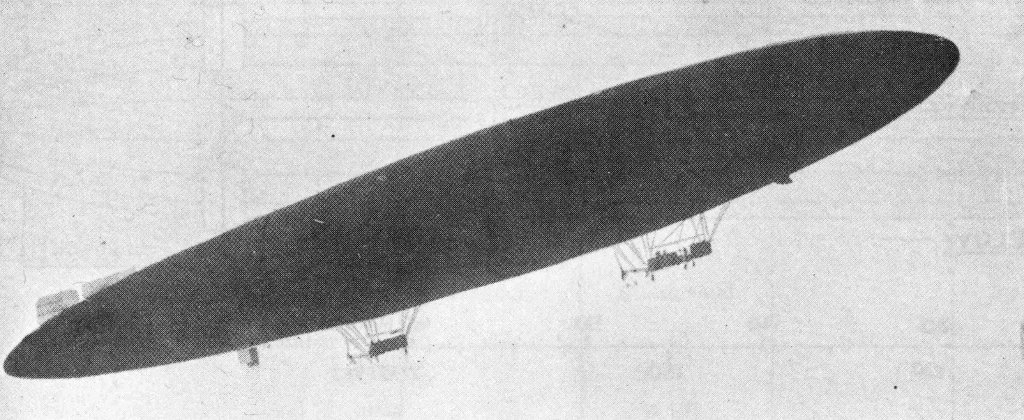
Maximum length, 426 feet (130 m.) maximum diameter, 60½ feet (18.40 m.) volume, 706,000 c. feet (20,000 m³.)
Total lift.—About 20 tons (20,000 kgs.) Useful lift.—About 5 tons (5,000 kgs.)
Gas bags.—These are of great strength and of unusual shapes, made to fit the interior, which is encumbered with cross stays. All but two of the bags are always full, and when the gas expands it flows into the remaining two, which are nearly empty at sea level, and full at 6500 feet (2,000 m.) A centrifugal pump is used for distributing the gas. There are 14 gas bags.
Motors.—2 Maybach of 270 h.p. each. The propellers are at the ends of the car, driven through 1 set of reduction gear. Speed.—38-43 m.p.h. About 59-64 k.p.h.
Propellers.—2 aft. Also 1 with its axis vertical.
Steering.—Vertical and horizontal rudders at both ends of the ship. Also see Propellers.
Remarks.—Two of these ships were under construction, and one was to be presented and one sold to the German government. The hull is built of special 3-ply wood made of Russian white fir; this wood is pressed into channel bars, angle bars, and all other requisite shapes. The strength of the hull is such that it can be supported at the ends without damage; its lightness is such that although the ship is nearly half as large again as Zeppelin II, yet the hull weighs about 3 tons less. Designed by Prof. Schütte.
In 1910, structural defects were found in Schütte I when the loads were applied. This has necessitated extensive alterations and much delay. In 1911 it was completed, and sold for £25,000 to the German Army.
Graf von Zeppelin, Friedrichshafen.
The features of this type are—A rigid framework of aluminium, a number of drum-shaped gas bags, and a thin outer cover.

At the end of March, 1913, the total of Zeppelins, limit and building was 16, including one (number 18) for Austria. Of these several had come to grief in various ways, and the actual total at the date mentioned, was:—
8 effective = 4 Army (of which one Z4 was still on trials), 1 naval and 3 private.
3 completing or building = 1 naval, 1 private and 1 for Austria.
Others projected but not actually in hand.
All are on the lines of the above plan, differing only in minor details, such as the provision of a cabin amidships, etc., and in dimensions.
Details see the following pages.[Pg 165]
| Name | Z I. | Ersatz. DEUTSCHLAND. | Z II. | VICT. LUISE. | Z III. (ex Schwaben) | HANSA. | L I. | (Ersatz Z I.) Z IV. | L II. | SACHSEN. | |
| Zeppelin No. | 3b. | 6a. | 9b. | 11. | 12. | 13. | 14. | 15. | 16. | 17. | |
| Date | 1908. | 1910. | 1911. | 1912. | 1912. | 1912. | 1912. | 1913. | 1913. | 1913. | |
| Service | Army. | "Delag." | Army. | "Delag." | Army. | "Delag." | Navy. | Army. | Navy. | "Delag." | |
| Volume | c. feet | 424,000 | 682,000 | 635,000 | 667,000 | 629,000 | 660,000 | 776,000 | 742,000 | 742,000 | 742,000 |
| (m³.) | 12,000 | 19,000 | 18,000 | 18,700 | 17,800 | 18,700 | 22,000 | 21,000 | 21,000 | 21,000 | |
| Length | feet (m.) | 446 (136) | 479 (136) | 459 (140) | 485-1/2 (148) | 459 (140) | 485-1/2 (148) | 518 (158) | 492 (150) | 492 (150) | 492 (150) |
| Diameter | feet (m.) | 38-1/2 (11.66) | 46 (14) | 46 (14) | 46 (14) | 46 (14) | 46 (14) | 47-1/2 (14.5) | 47-1/2 (14.5) | 47-1/2 (14.5) | 47-1/2 (14.5) |
| Envelope | Pegamoid | ... | ... | ... | ... | ... | ... | ... | ... | ... | |
| Gas Bags | fabric | Continental | Continental | ... | ... | Continental | ... | ... | ... | ... | ... |
| number | 17 | 16 | 16 | 18 | 16 | 18 | ... | 18 | ... | ... | |
| Lift | total tons | 12-1/2 | 16-1/2 | 17 | 19 | 17 | 19 | 22 | 21 | 21 | 21 |
| useful tons | 3-1/2 | 5 | 4-1/2 | ... | 4-1/2 | ... | 6 | ... | ... | ... | |
| Motors | h.p. | 2--85 Daimler (= 170) | 3--115 Daimler (= 345) | 3--120 Maybach (= 360) | 3--150 Maybach (= 450) | 3--150 Maybach (= 450) | 3--150 Maybach (= 450) | 3--150 Maybach (= 450) | 3--150 Maybach (= 450) | (= 450) | (= 450) |
| Propellers | number | 4 | 4 | 4 | 4 | 4 | 4 | 4 | 4 | ... | ... |
| blades | 2 | 2 | 2 | 2 | 2 | ... | 2 forward, 4 aft | 2 forward, 4 aft | ... | ... | |
| diam feet (m.) | ... | 12 (3.60) | ... | ... | ... | ... | ... | ... | ... | ... | |
| Max. Speed | m.p.h. (km.) | 29 (46) | 36 (57.5) | 35 (56) | 40 (62) | 49 (79) | 40 (62) | 48 (77) | 48 (77) | 48 (77) | 48 (77) |
| Full speed endurance | hrs. | 15 | 20 | 20 | 40 | 25 | 40 | 35 | ... | ... | ... |
| Complement | ... | ... | ... | 8 crew, 25 passengers | ... | ... | 21 | ... | ... | ... | |
| Station | Metz | Oos | Cologne | Wechselnd | Cologne | Weschselnd | Hamburg | ... | Johannisthal | Leipsig | |


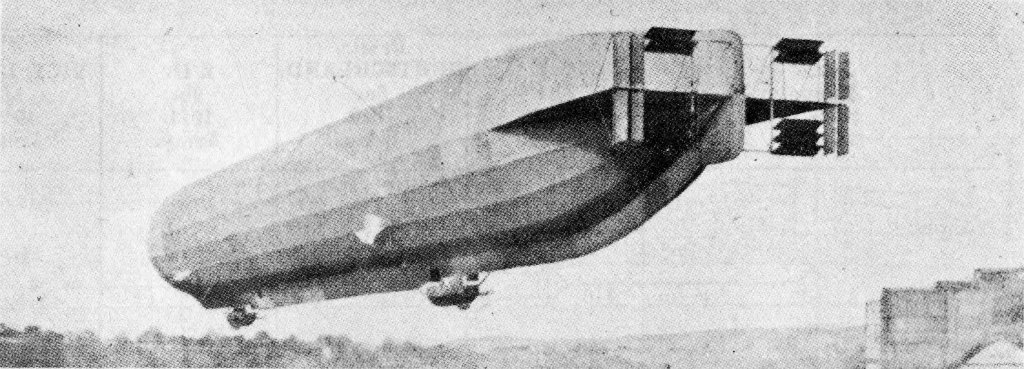
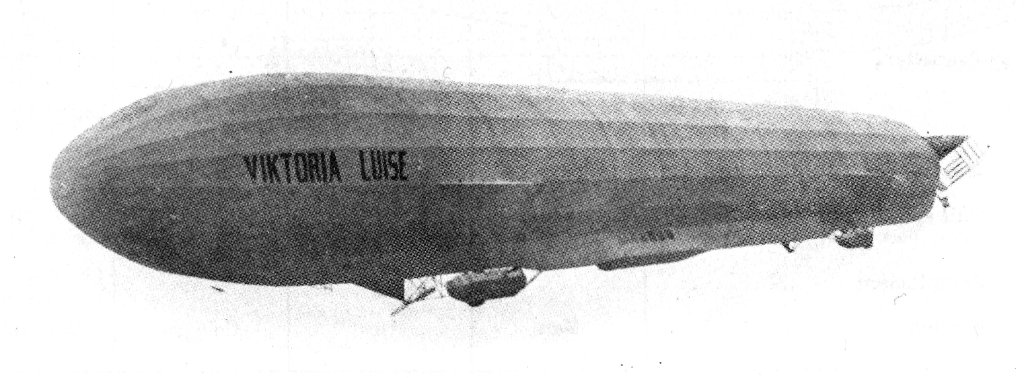
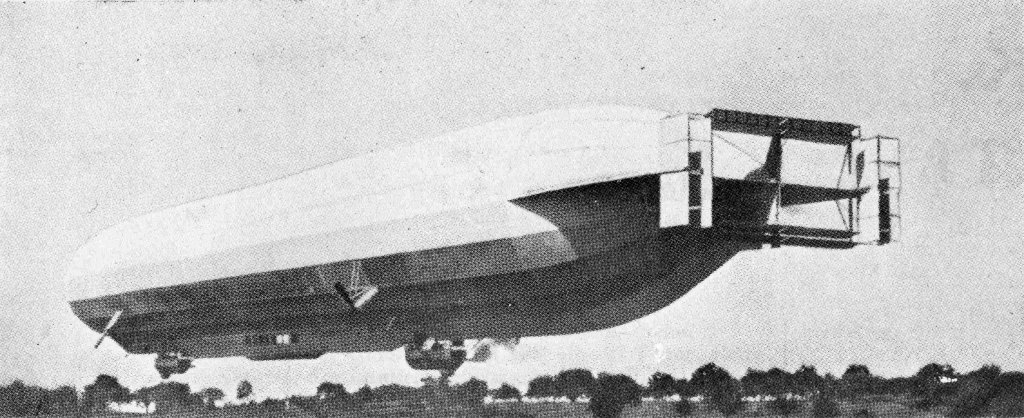
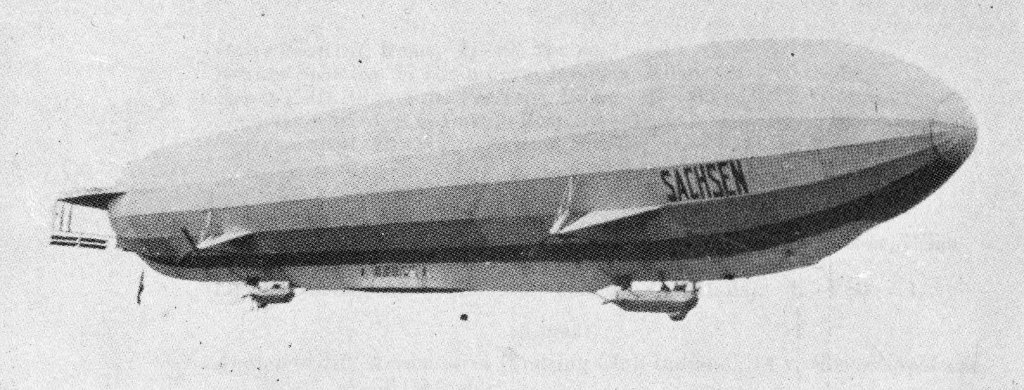

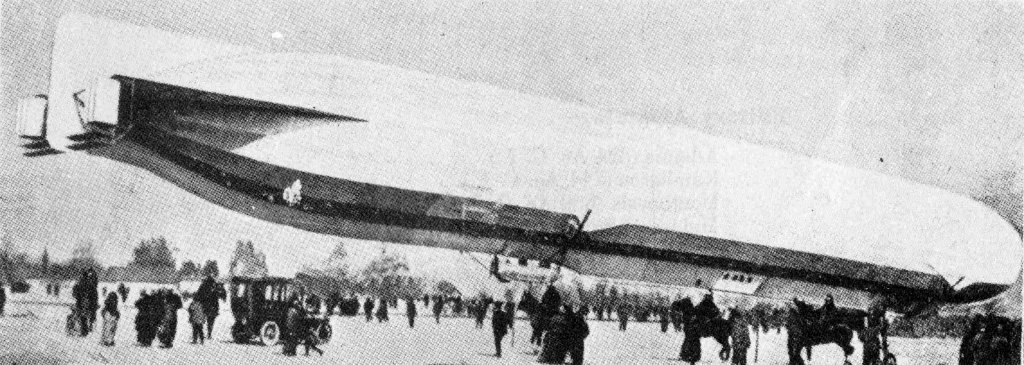
None.
None.
At end of March, 1913, these included:—1 Astra hydro. (fitted with Scott's bomb dropper), 2 or 3 Nieuports, 1—100 h.p. M. Farman, and probably some others. Owing to the war, details are unobtainable. 3 Bleriots reported captured from the Turks, and 15 Farmans on order.
Phaleron.
Ae. C. d'Italia (Ae.C.I.), 62 via Colonna, Rome.
Ae. Club di Roma (Ae.C.I.), 183, via del Triton, Rome.
Circolo, Aeronautico Napoletano, 295 v. Roma, Naples.
Lega Aerea Nazionale (L.A.N.), 6 via della Signora, Milan.
Societa Aeronautica Italiana (S.A.I.),
4 via Boccaccio, Milan.
6, via Cernaia, Turin.
Societa Aviazone, di Torino (S.A.T.), 28 via Roma, Turin.
Societa Ital. di Aviazone, (S.I.A.), 14 v. Monte Napoleone, Milan.
Gazzetta dello Sport, 15 v. della Signora, Milan. L—.05 (=1/2d.)
Italia Sportiva, Rome. L—.05 per no. (=1/2d.)
Lettura Sportiva, 17 corso Porta Romana, Milan. L—.10 (=1d.)
Sports (Gli). 46 and dei Prefretti, Rome. L—.05 (=1/2d.)
Stampa Sportiva, 3 v. Davide Bertolotti, Turin. L—.10 (=1d.)
Tribuna Sport, 22 via S. Giacomo, Naples. L—.10 (=1d.)
Rivista della L.A.N. (Lega Aerea Nazionale), Milan.
Rivista del T.C.I. (Touring Club Italiano), 14 v. Monte Napoleone, Milan. L—.40 (=4d.)
La Navigazione Aerea (Bolletino dell' Ae. C. d'Italia). L—1.80 (=1/6.)
Annuario dell' Aeronautica (Touring Club Italiano), 14 v. Monte Napoleone, Milan. L—6.00 (=5/-)
Cameri, Novara.—15 hangars (Thouvenot school).
Mirafiore, Turin.—17 hangars (Asteria and Chiribiri schools).
S. Giusto, Pisa.—4 hangars (Antoni school).
Taliedo, Milan.—26 hangars.
Vizzola Ticino.—7 hangars (Caproni school).
Bracciano.
Milan.
Rome.
Venice.
Verona.
[Pg 170]
The Battaglione Aviatori has its headquarters at Turin. In July, 1912, it was re-organised along the following lines:—
1 command at Turin.
1 flying work.
1 technical work.
2 troop duty.
6 at the aviation schools, with a certain number of mobile squadrillos.
The recognised grades are:—
a.a.p. aspirante allievo (learners).
a.p. allievo pilota (certificated pilots).
p. pilota militare (superior military brevet).
In flying work the superior pilots are mostly using Bleriots; the ordinary pilots Bleriot-Caproni, Bristol, Antonis, Deperdussins and Voisins.
The technical section chiefly supervises the theoretical instruction of the a.a.p.
The 2 companies on troop duty practical work, preparation for the schools.
The military schools are:—
Aviano.—Central school. Size about 5×2 kilometres. Sheltered from all winds except westerly, by banks of trees. Numerous hangers.
Mirafiori (Turin).—Mixed military and civil school. Hangers. School machines confined to Asteria, Bleriot, Nieuport and Savary types.
Pordenone.—School for superior brevets. Treeless plain. Principal school machines Breguets and Farmans; but some Bleriots and Caproni.
S. Francesco al Campo.—M. Farman machines. At present for officers trained in France.
Somma Lombarda.—Camp school for Nieuports.
Venaria Reale.—Formed late in 1912. Bristol monos for certificated pilots.
50 officers in training during the first quarter of 1913.
Aspirants commence with instruction in the theory of heavier than air machines, resistance of material and particular instruction in the various type of aero motors in use. They are taken for flights as passengers.
All then go to the training camp about 80% for monoplane work, the remainder for biplanes.
Monoplanes. Special attention paid to teaching Gauchis Dessent.
Biplanes. Much shorter course. Principal feature: Vol Plané.
For the military brevet the examination is most comprehensive, special attention is paid to flying in wind, manoeuvring, climbing, good landings without inconvenience to passengers, cross country flights, etc. The course is generally modelled on war experiences.
No particular distinction between naval and military aviators.
Total by end of June, 1913, to be about 225 certificated aviators of whom a fair percentage hold the superior brevet. In addition all the best civilian aviators are held at disposal.
At the end of 1911 there were about 20 machines, mostly Bleriots and Farmans. The majority of these are still in use for school purposes.
At the end of March, 1913, the machines effective for war purposes were roughly as follows:—
| Bleriot. Bristol (mono.) Caproni. Deperdussin. Farman. Hanriot. Nieuport. Savary. |
Total about 50, plus a number of school machines. |
About 40 machines were on order, including 12 Bristol-Capronies.
Effective at end of March, 1913.
1 Calderara.
1 Guidoni-Farman.
4 or 5 others.
(To end of 1911).
Calderara, Lieut. (1)
Ginnochio, Lieut. (18)
*Rossi, Sub. Lieut. (31)
Strobin, Lieut. (39)
(During 1912).
De Muro, Lieut. (119)
Frigerio, Lieut. (154)
Scelsi, Capt. difreg. G.
(To end of 1911).
At the end of March, 1913, there were about 45 machines in use at the various private schools, and about 6 privately owned aeroplanes.[Pg 172]
Soc. di aviazione Antoni, via Vitt. Emanuele, 46, Pisa. School: S. Guisto, Pisa. Output capacity: about 20 machines a year.
| 1912-13. Single seat mono. | 1912-13. 2-seater military mono. | ||
|---|---|---|---|
| Length | feet (m.) | 33 (10) | 36 (11) |
| Span | feet (m.) | 28 (8.50) | 28 (8.50) |
| Area | sq. feet (m².) | 172 (16) | 237 (22) |
| Weight | machine lbs. (kg.) | 660 (300) | 770 (350) |
| useful lbs. (kg.) | ... | ... | |
| Motor | h.p. | Gnome or Anzani | Gnome and Anzani |
| Speed | max. m.p.h. (km.) | ... | ... |
| min. m.p.h. (km.) | ... | ... | |
| Endurance | hrs. | ... | ... |
| Number built during 1912 | ... | ... | |
Fabbr. Ital. Aeroplani ing. Darbesio e. C., via Salbertrand, 12, Torino (Turin). School: Mirafiori. Capacity: small.
| 1912-13. Monoplane. | 1912-13. Biplane. | ||
|---|---|---|---|
| Length | feet (m.) | 21-3/4 (6.50) | 29-1/2 (9) |
| Span | feet (m.) | 26-1/2 (8.10) | 44 (13.50) |
| ... | 24-1/2 (7.50) | ||
| Area | sq. feet (m².) | 162 (15) | 431 (40) |
| Weight | machine lbs. (kgs.) | 530 (240) | 110 (500) |
| useful lbs. (kgs.) | ... | ... | |
| Motor | h.p. | 50 Gnome | 70 Renault |
| Speed | max. m.p.h. (km.) | ... | ... |
| min. m.p.h. (km.) | ... | ... | |
| Endurance | hrs. | ... | ... |
| Number built during 1912 | ... | ... | |
| Model 1912-13. | "Hydro vol." | |
|---|---|---|
| Length | feet (m.) | 54 (16.50) |
| Span | feet (m.) | 61 (18.50) |
| Area | sq. feet (m².) | 753 (70) |
| Weight | total lbs. (kgs.) | 2644 (1200) |
| useful lbs. (kgs.) | ... | |
| Motor | h.p. | 150 (formerly 100 Gnome) |
| Speed | max. m.p.h. (km.) | 62 (100) |
| min. m.p.h. (km.) | 50 (80) | |
| Endurance | hrs. | 6-1/2 |
| Number Built during 1912 | 1 | |
Lieut. Calderara's floats consist of a plurality of w.t. compartments with internal lattice frame, well braced. Hull is formed of three skins of wood, sail-cloth between each. Distance between outer floats, 21 feet (6.30 m.) Centre of gravity is only 4½ feet (1.40 m.) above water. If necessary wings can be cut away and the central hull used as a boat with emergency sail.
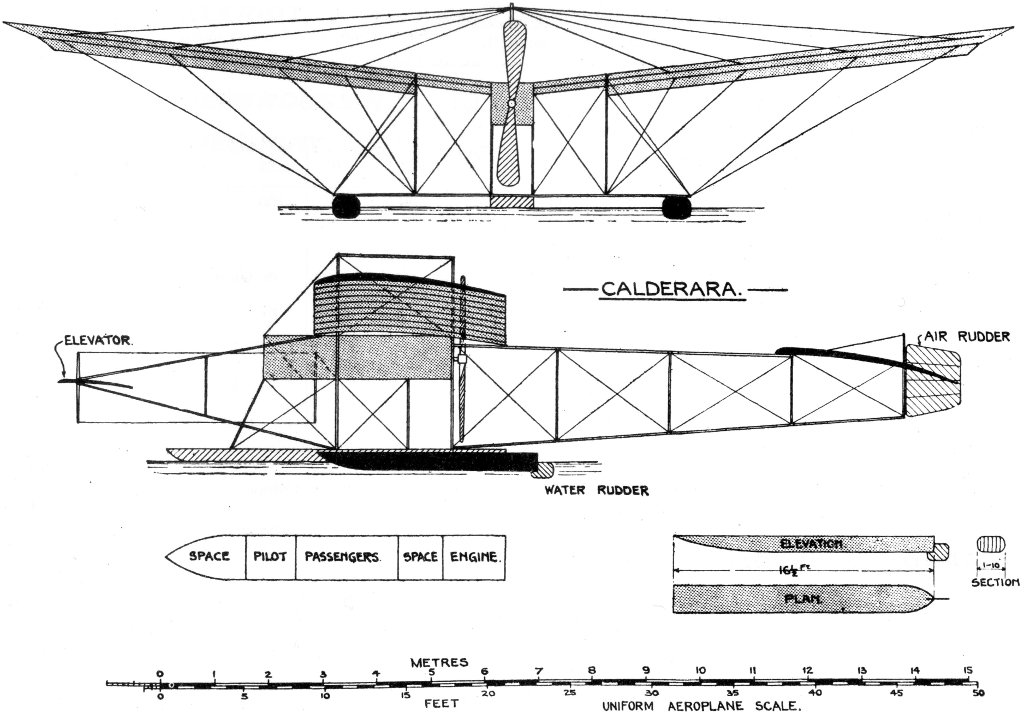
Soc. di Aviazione Ingg, Caproni e Faccanoni, Vizzola Ticino. School: Vizzola Ticino.
| Models 1912-13. | Single Seat mono. A. | Single Seat mono. B. | 2-seater mono. | 3-seater mono. | |
|---|---|---|---|---|---|
| Length | feet (m.) | 26-1/4 (8) | 26-1/4 (8) | ... | ... |
| Span | feet (m.) | 29 (8.80) | 29 (8.80) | ... | ... |
| Area | sq. ft. (m².) | 162 (15) | 162 (15) | 172 (16) | 226 (21) |
| Weight | machine lbs. (kgs.) | 485 (220) | 660 (300) | 750 (340) | 760 (345) |
| useful lbs. (kgs.) | ... | ... | ... | ... | |
| Motor | h.p. | 35 Anzani | 50 Gnome | 60 Anzani | 80 Gnome |
| Speed | max. m.p.h. (km.) | 56 (90) | 75 (120) | 75 (120) | 87 (140) |
| min. m.p.h. (km.) | ... | ... | ... | ... | |
| Endurance | hrs. | 3-1/2 | ... | ... | 4 |
| Number built during 1912 | ... | ... | ... | ... | |
Remarks.—At the end of 1912, held Italian record for speed, 200-300 k.m. Flown by Cobioni.
Caproni also builds under Bristol license.
A Chiribiri e. C, via Lamarmora 28, and via Don Bosco 68-73. Torino (Turin).

| Models 1912-13. | 45 h.p. mono. | 50 h.p. mono. | Racing mono. | 80 h.p. mono. | |
|---|---|---|---|---|---|
| Length | feet (m.) | 23 (7) | 23 (7) | 24-3/4 (7.50) | 25-3/4 (7.80) |
| Span | feet (m.) | 29-1/2 (9) | 29-1/2 (9) | 31 (9.30) | 39-2/3 (12.10) |
| Area | sq. ft. (m².) | 204 (19) | 204 (19) | 226 (21) | 258 (24) |
| Weight | machine lbs. (kgs.) | 595 (270) | 683 (310) | 772 (350) | 595 (270) |
| useful lbs. (kgs.) | ... | ... | ... | ... | |
| Motor | h.p. | 45 Chiribiri | 50 Chiribiri | 60 Chiribiri | 80 Chiribiri |
| Speed | max. m.p.h. (km.) | 44 (70) | 56 (90) | 103 (165) | 65 (105) |
| min. m.p.h. (km.) | ... | ... | ... | ... | |
| Endurance | hrs. | ... | ... | ... | ... |
| Number built during 1912 | ... | ... | 2 | ... | |
E. Pensuti e E. Calligaro, Pordenone. School: Pordenone. A 30-35 h.p. Anzani motor monoplane. Area, 150 sq. feet. (14 m²). Generally of Bleriot type, but Hanriot type landing carriage.
Either a Farman biplane or a Nieuport mono. is used, mounted on special floats designed by Capitano del Genio navale Guidoni. There are two long floats, each of which is fitted with parallel fins.
Foreign types of machines are constructed in Italy under licenses as follows:—
Soc. Ital. Transaerea, corso Peschiera 25, Torino (Turin).
(British), by Caproni.
Soc. Ital. degli Aeroplani, via Giulini 7b, Milan.
Carrozzeria Macchi. Varese.[Pg 176]
| Army. | Navy. | |||||||
|---|---|---|---|---|---|---|---|---|
| Name and Date. | P1. 1909. | P2 & P3. 1910 & 1911. | P4 & P5. both 1912. | Citta di Milano 1912. | Parseval. (P.L. 17). 1912-13. | M1. 1912. | M2 & M3. 1912 & 1913. | |
| Volume | c. feet | 148,000 | 155,000 | 166,000 | 424,000 | 353,000 | 424,000 | 424,000 |
| (m³.) | (4200) | (4400) | (4700) | (12000) | (10000) | (12000) | (12000) | |
| Length | feet (m.) | 197 (60) | 207 (63) | 207 (63) | 233 (72) | 279 (85) | 272-1/3 (83) | 272-1/3 (83) |
| Diameter | feet (m.) | 38 (11.60) | 38 (11.60) | 39-1/3 (12) | 59 (18) | 52-1/2 (16) | 56 (17) | 56 (17) |
| Gas bags | fabric | Silk | Continental | Continental | ... | Riedinger | Metzeler | Metzeler |
| compartments | 7 | 8 | 8 | ... | 0 | ... | ... | |
| ballonets | 1 | 1 | 1 | ... | 2 | ... | ... | |
| Lift | total tons | 3.50 | 3.50 | 3.75 | ... | ... | 9.50 | 9.50 |
| useful tons | 1.10 | 1.35 | 1.50 | ... | 3.00 | 3.80 | 3.80 | |
| Motor | h.p. | 1-100 C. Bayard (=100) | 1-120 C. Bayard (=120) | 2-80 Fiat (=160) | 2-85/100 Isotta (=170/200) | 2-170 Maybach (=340) | 2-250 Fiat (=500) | 4-125 Wolseley (=500) |
| Propellers | number | 2 | 2 | 2 | 2 | 2 Parseval | 2 | 2 |
| blades | 2 | 2 | 2 | 3 | 4 | 4 | 4 | |
| diameter feet (m.) | 10 (3) | 10 (3) | 10 (3) | 14 (4.20) | ... | 12-1/2 (3.80) | 12-1/2 (3.80) | |
| Max. speed | m.p.h. (km.) | 32 (52) | 35 (56) | 37 (60) | 45 (72) | 40 (65) | 44 (70) | 44 (70) |
| Full speed endurance | hrs. | ... | ... | ... | ... | 20 | 12 | 12 |
| Max. complement | 5 | 5 | 5 | ... | ... | 14 | 14 | |
| Station | Bracciano | Tripoli | Vigna di Valle | Baggio | Venice | Bracciano | ||
Notes: All the above are semi-rigid. The P and M are all of the same general type. Principal features of these ships, which were designed by Captains Crocci and Ricaldoni, are the shape of the envelope, (maximum diameter very far forward), keel and the box kite tail. The Citta di Milano (semi-rigid) is an enlarged Leonardo da Vinci (which see). Special feature is the keel built into the envelope. This serves as a nacelle.
Building.—One Parseval (P.L. 15) about the same size as the other (P.L. 17), which was completed first.
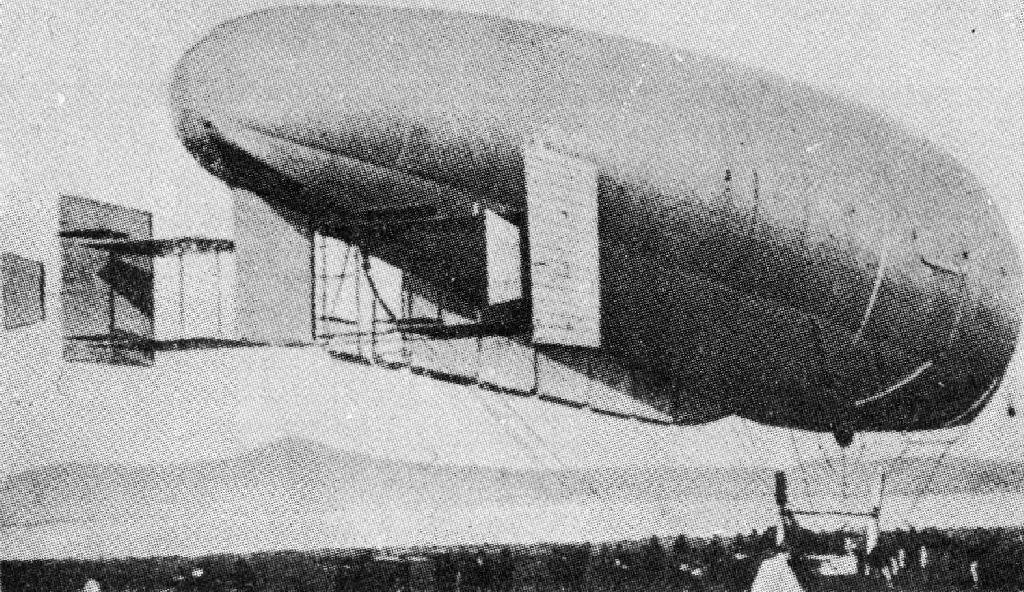
Elevation of P. I. The later ships only differ in dimensions, and the fact that the middle rudder is done away with.
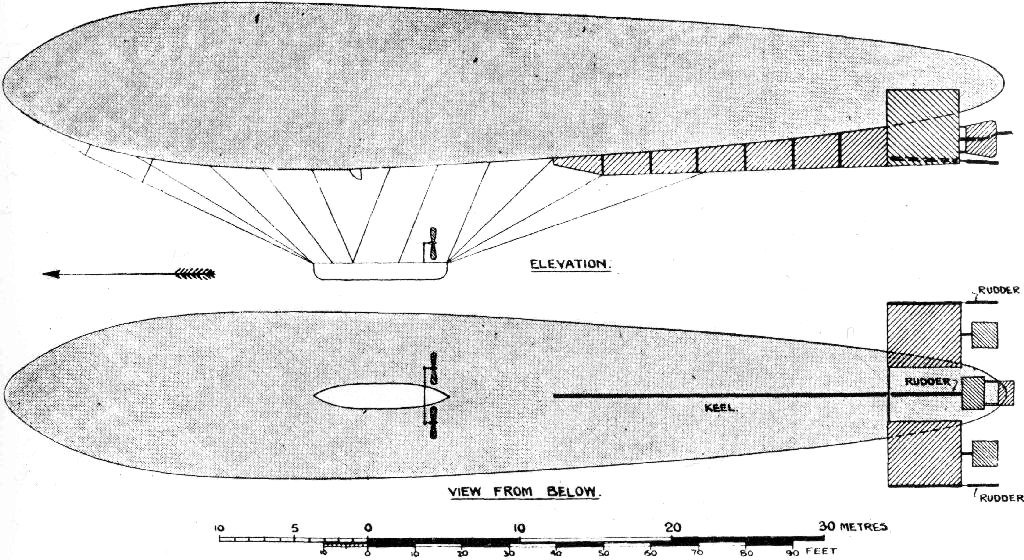
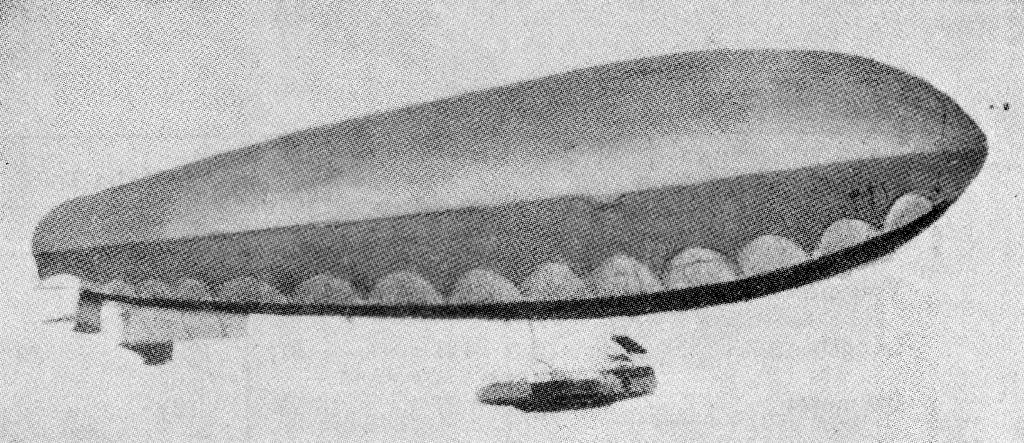
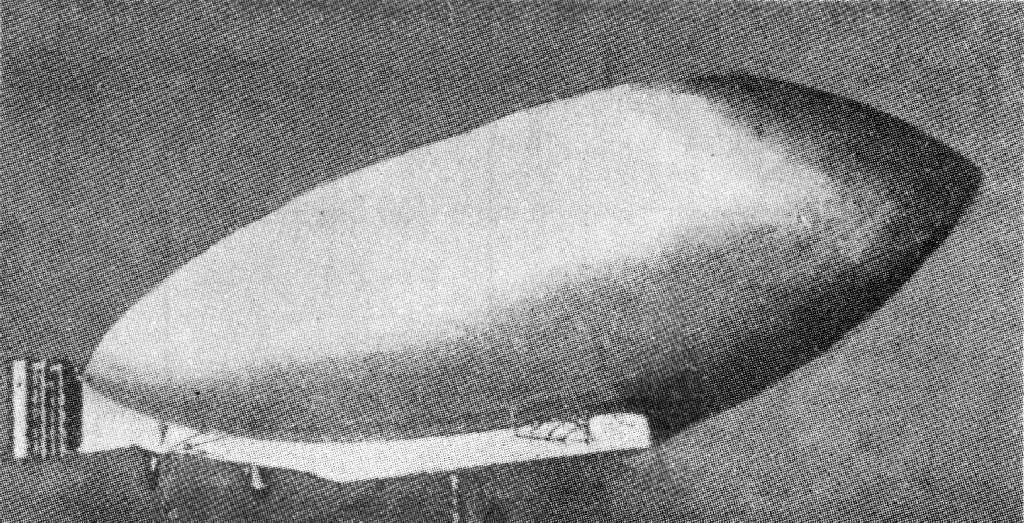
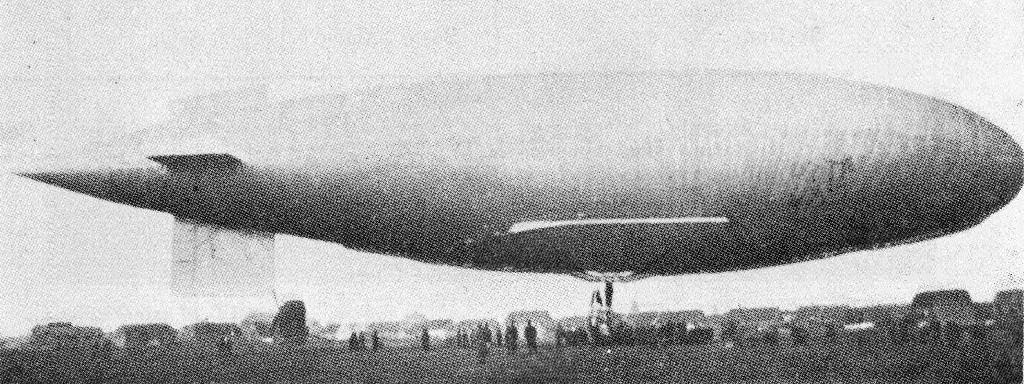
ITALIAN PRIVATE DIRIGIBLES.
| Name and date. | Ausonia bis. Reconstructed 1910. | Italia I. 1905. | Italia II. 1913. | Leonardo da Vinci. 1909. | Usuelli. 1909. | |
|---|---|---|---|---|---|---|
| Volume | (m³.) | (1500) | (1500) | (2600) | (3265) | (3870) |
| Length | feet (m.) | 121 (37) | 128 (39) | 164 (50) | 131-1/4 (40) | 167-1/3 (51) |
| Diameter | feet (m.) | 27 (8.25) | 19-3/4 (6) | 32-3/4 (10) | 46 (14) | 32 (9.80) |
| Gas bags | fabric | ... | ... | ... | ... | ... |
| compartments | nil. | nil. | nil. | 7 | 6 | |
| ballonets | 1 | nil. | nil. | 1 | 1 | |
| Lift | total tons | ... | 1.35 | 2.20 | 3.00 | ... |
| useful tons | 0.80 | ... | ... | ... | ... | |
| Motor | h.p. | 1-55 h.p. S.P.A. | 1-40/50 Antoinette | 1-50 h.p. | 1-40 Antoinette | 1-80 h.p. S.P.A. |
| Propellers | number | 1 | 1 | 2 | 2 | 2 |
| blades | 2 | 2 | 2 | 5 | 2 | |
| diameter, feet (m.) | 10-3/4 (3.20) | 15 (4.50) | 10 (3) | 9 (2.70) | ... | |
| Max. speed | m.p.h (k.m.) | 25 (40) | 25 (40) | ... | ... | 30 (50) |
| Full speed endurance | hrs. | ... | ... | ... | ... | 6 |
| Max. complement | ... | ... | ... | ... | ... | |
| Station | Bosco Mantico | Schio | building | Laid up at Baggio near Milan | Turin | |
Notes:
Ausonia. Nico Piccoli, via Accademia 12, Padova (Padua). Works: Magré, Vicenza (Schio). Semi-rigid.
Italia. Cont Almerico da Schio, Schio. Non-rigid. Special features is a "belly" of Para rubber in lieu of a ballonet.
Leonardo da Vinci. Ing. Enrico Forlanini, via Boccaccio 21, Milan. Works: Baggio. Semi-rigid, keel and nacelle, incorporated in envelope.
Usuelli. Usuelli and Borsalini, Torino (Turin). Non-rigid.
Private Dirigible Pilots.
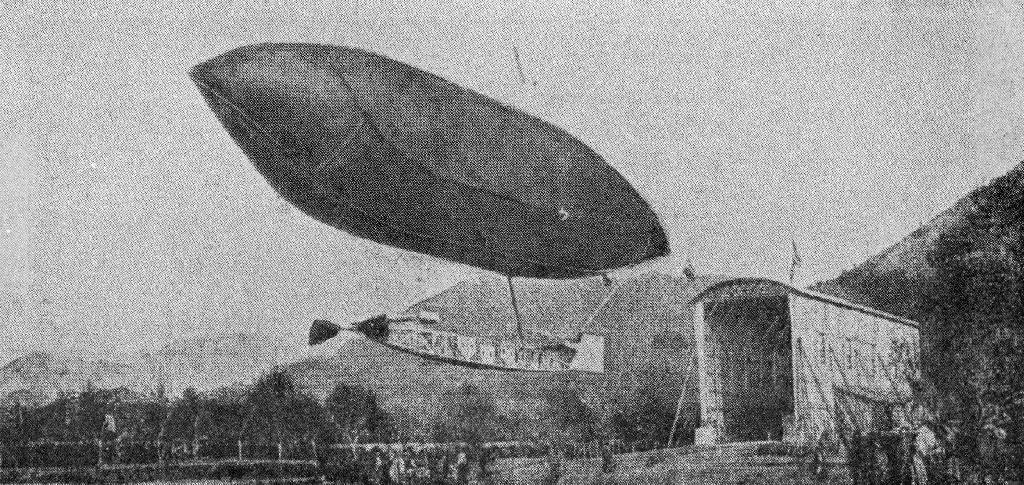
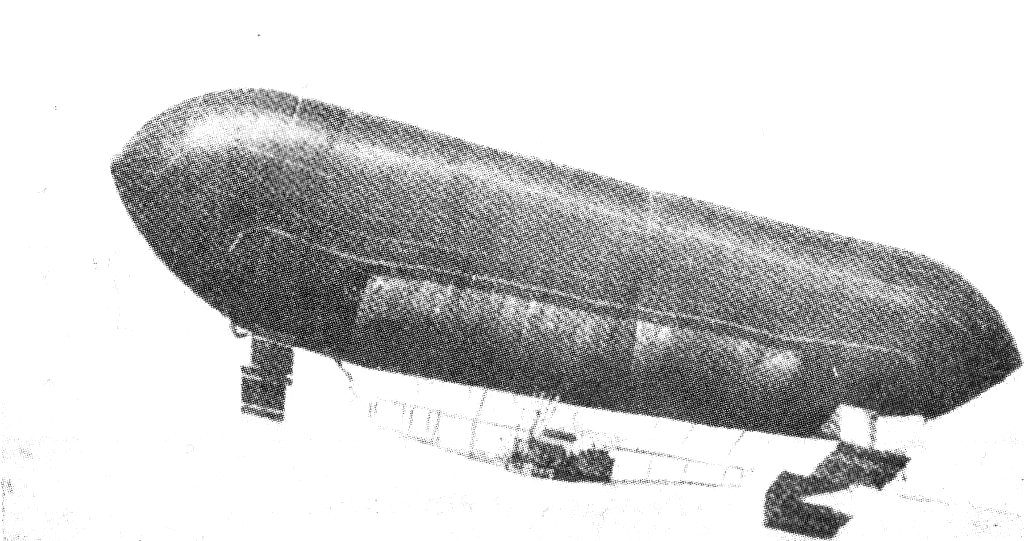
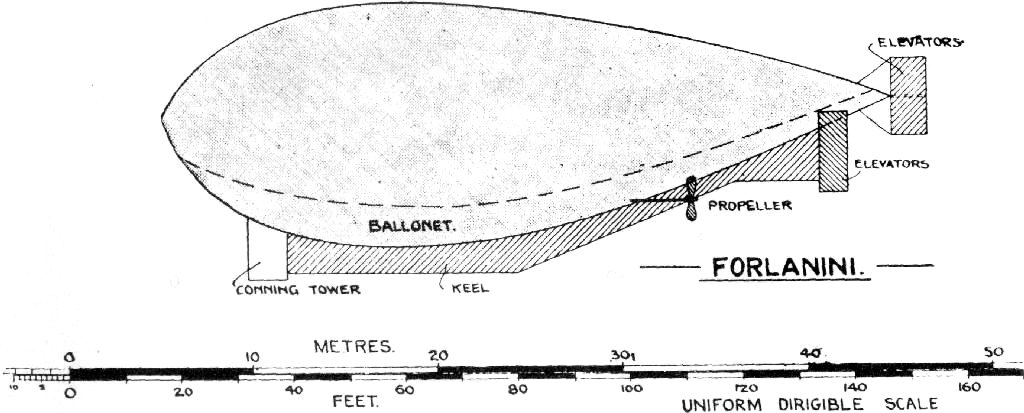
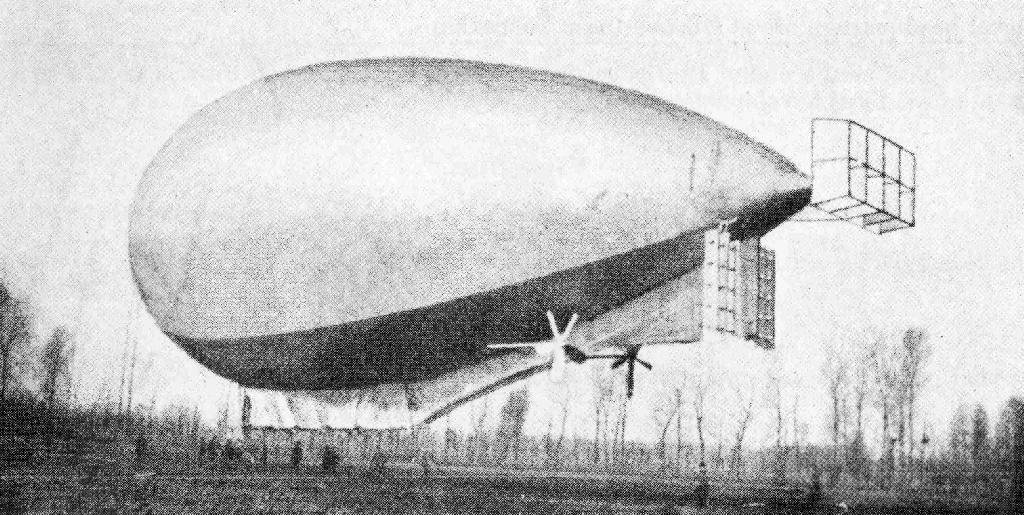
(Naval Aviation data. Official).
Tokio, Ae. Co.
Aeroplane Assoc., 1, Yayesu Cho, I-Chome, Kojimachi, Tokio. (Sec.: Dr. Fujioka).
Kikyu Kinkyu Kai (connected with War Office).
Near Yokohama.
Saitama, Tokorozawa (Government).—Dirigible shed and hangars.
Port Arthur, (Government).
This was originally formed as one body without distinction between army and navy. It was subsequently re-modelled on lines somewhat similar to the British Royal Flying Corps with naval and military wings.
The naval section is superintended by Capt. K. Yamaji, I.J.N.
The naval headquarters are at Oihama (near Yokosuka).
The naval force at the end of 1912 consisted of 4 hydro-aeroplanes (2 Curtiss and 2 Farman). The available total of qualified naval aviators was 5.
The total amount granted for aviation of the navy in 1912 (fiscal year) was 100,000 yen (£10,000).
For the year 1913 the estimates amount was 100,000 yen (but not approved yet).
The special pay for officers employed in aerial work is undecided.
The army wing is responsible for the dirigible. Aeroplanes are one or two Bleriots, a Grade, 2 Tokogawa, and a Farman.
Hino, Major
Saigom, Capt.
Tokogawa, Capt.
Tokogama, Lieut.
Narahara, Naval Constr.
Kaneko, Lieut.
Kono, Lieut.
Obama, Eng. Lieut.
Umikita, Lieut.
Usuioku, Naval Constr.
Doig, S.
Iga, Baron
Shigeno, Baron
Tsuzuki,
Yamada, Isaburo
The following have been killed:—
There are some private aeroplanes being regularly flown in Japan. A number of aeroplanes have from time to time been invented by naval and military officers and private individuals, and some of them are in use. Inventors include Major Hino, naval constructor Narahara and Ushioki, Baron Iga, Baron Shigeno and Mr. Tsuzuki.[Pg 181]
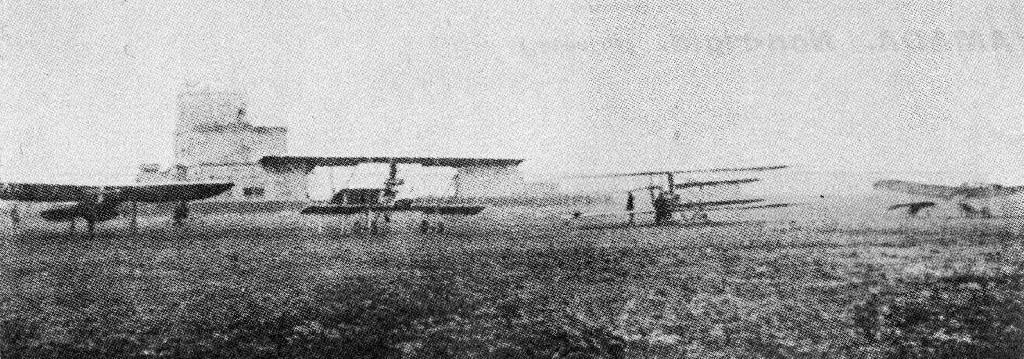
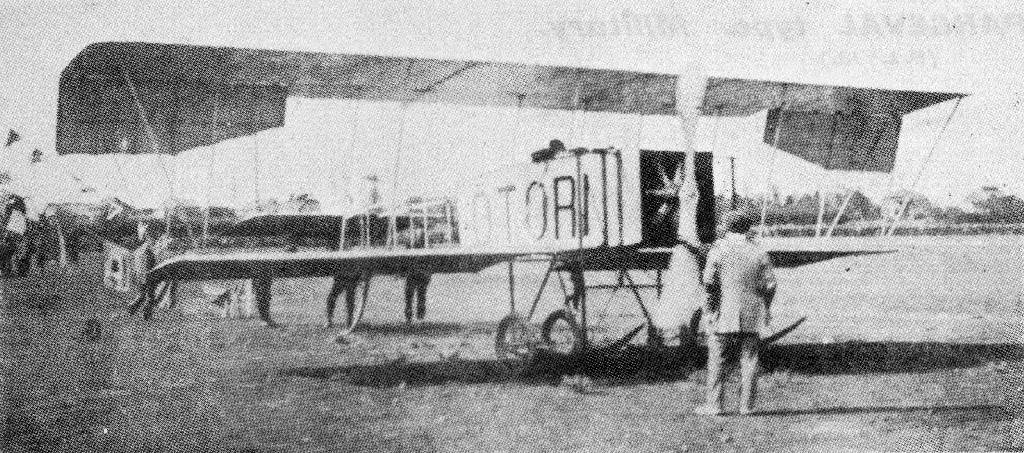
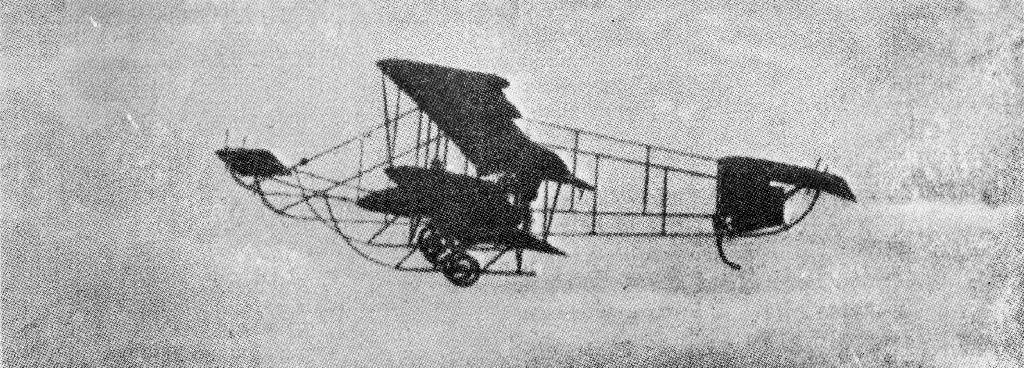
(P.L. 13.)
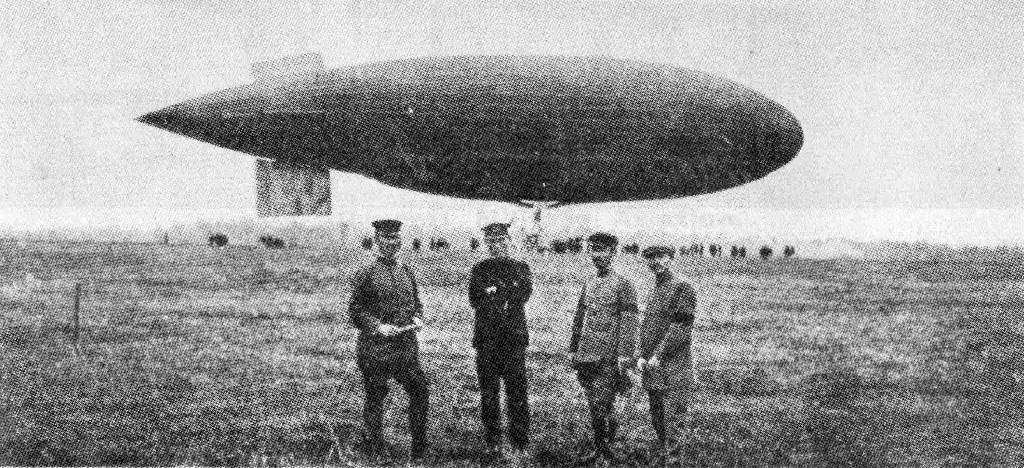
Length 259 feet (19 m.) maximum diameter 47¾ feet (14.50 m.) capacity, 8,500 m³.
Gas bag.—2 ballonets. Usual Parseval.
Motors.—Total, 300 h.p., made up of two 150 h.p. Maybach.
Speed.—42 m.p.h. (65 km.)
Propellers.—Two 4-bladed. Parseval.
Steering.—Usual Parseval (see German).
Remarks.—Of Parseval P.L. 12 type (see German). Built 1911.
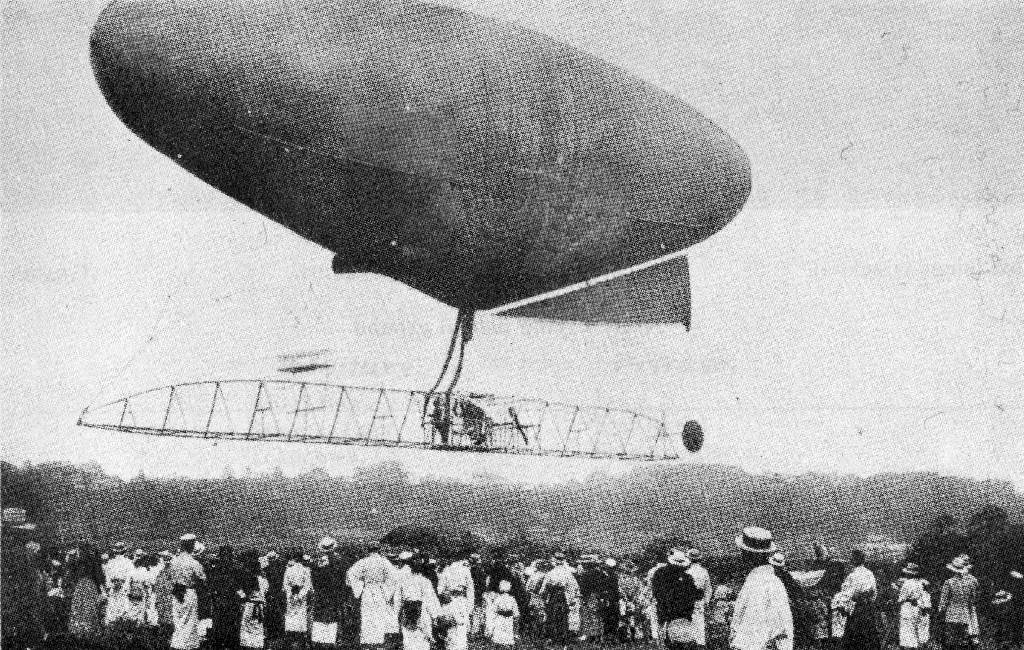
Maximum length, feet (m.) maximum diameter, feet (m.) volume, 700 m³. (about)
Gas bag.—
Motor.—American make.
Speed.—
Propeller.—One.
Steering.—Biplane elevator forward. Triangular rudder in rear under gas bag.
Remarks.—Generally of American type.
There are 2 old pattern H. Farman; also one or more Curtiss and Wright machines. Nothing seems doing with them.
Martinez, N. (Ae. C. F. 462)
Mendia, (Ae. C. F. 680)
Duval, Raoul
Lebrija, Miguel
Morales
Noriega
Ramsey, E. L.
Saavedra, Alfonso
Probably 2 others
(The above are mostly amateur builders.)
Aero Club, Norsk Flyveselskad (Christiana). Secretary, D. Barth.
Norsk Luftseilads Forening (Christiana). President, H. Mohn.
None.
At the end of 1912 the Army possessed two 70 h.p. M. Farmans (Renault motors), and the Navy a 100 h.p. N.A.G. Rumpler.
For 1913 the purchase of further machines is contemplated for both arms.
Total at end of 1911 1
At end of 1912 there were in existence 2—a Grade and a Deperdussin.
Dichi, Lieut.
Jacobsen, Lieut.
Hansen.
St. Dons.
The Peruvian Government has made a special grant for aviation students, and war machines are projected. Actual order to end of 1912 was one Avro mono.
| Total at end of 1910 | 3 |
| 1911 | 2 |
| 1912 | none probably. |
Bielovucic, J.
Chavez, J.
Monterc (766 A. C. F.)
(Revised by J. SCHIERE, Aeronautical Engineer.)
Ae. C. de Portugal (R. Nova docklaemada d. ISL.)
Rivista Aeronautica (Ae. C. Journal.)
Campo do Seigcal.
Mounchãvo da Povoa.
| Total at end of 1910 | 1 |
| 1911 | 2 |
| 1912 | 2 |
De Castro, Sanchez
De Silva, Gomez
In 1912 a military corps was formed. At the end of 1912 it possessed Avro (1—50 h.p.), Voisin (1—80 h.p.), and M. Farman (1—80 h.p.) (since wrecked). 1 Deperdussin.
In 1911 the Gouveia mono. was built, span 9 metres, but it failed to fly. Also the Avante biplane, which also failed. First flight in Portugal by a Portuguese was De Castro in September, 1912, with an old Bleriot.[Pg 187]
At end of March, 1913, there were several 80 h.p. Bristol monos., 2 Bleriots, 1 Nieuport, 1 Morane, 2 Vlaiclu, and several H. Farman biplanes.
Government school is at Bucharest.
Capsa, Lieut.
Negrescu, Lieut.
Protpopscu, Lieut.
Vacas, Lieut. Poly
Zorileann, Lieut. (Ae. F. 587)
Bibesco, Prince (Ae. C. F. 20)
Oznoth
Designed by Ouvret Vlaiclu. First shewn at the Vienna Exhibition, 1911. Modified; it flew very well indeed at Aspern, June, 1912. The 1912 model is of entirely novel type, a tail first monoplane with a propeller either end of the main planes, and a triangular tail aft. Principal details are:—Length, 34-2/3 feet (10.50 m.) Span, 30 feet (9.15 m.) Height, 12 feet (3.65 m.) Wing frame in three sections with gap between. Motor, 50 h.p., Gnome chain driven. Fuselage, old style; landing chassis on three wheels only, with a single ash skid in front. Covered in engine driving the 31 foot propeller shaft for the 2 propellers. Rear tail consists of 2 fixed planes, a triangular damping plane and a triangular keel plane. Forward, an elevator and two semi-circular rudders (double faced). From this combination remarkable results are achieved, and all gyrostatic effect from the propellers eliminated. Control, horizontal wheel on column. Elevator depressed or otherwise by action on column. Note.—At Vienna, 1912, this machine took first prize for the smallest circle and also for accurate bomb-dropping. The original machine was purchased by the Roumanian Army.[Pg 188]
General Note.—In the number of military machines and general attention to aviation Russia is only second to France. There are no effective machines of Russian design, but the Aviataka, Dux & Lomatuk firms build at home under foreign license, and there is also the Kennedy school (Anglo-Russian).
(Imperial) Aero Club.
1. Odessa branch.
2. Rostow and Don branch.
3. St. Petersburg "
Finland Ae. C., Helsingfors.
Kieff University Ae. C., Kieff.
Moscow Ae. C., Moscow.
Moscow Imp. Tech. College (Aviation Section).
Riga Ae. C., Riga.
Russian Aeronautical Society, St. Petersburg.
Sevastopol Ae. C.
Students' Aviation Club.
Tomsk Ae. C., Tomsk.
Volunteer Aerial Fleet.
Aeronautical Journal of St. Petersburg.
Aero (6, Liteiny, St. Petersburg). Weekly.
Dans l'Empire des Airs (7, Rota 26, Petersburg). Fortnightly.
Revue de Navigation Aérienne (7 rue Stremmiannaya, Petersburg). Weekly.
Sport (25, Ekaterineska, Odessa).
Wozdookhoplavatel (St. Petersburg). Monthly.
Wosduchoplawanie y Sport (Moscow). Monthly.
Gatchina Park.— Flying here under restrictions. V.F. school.
Kieff.—School for pilots.
Kolomiaggi.—Racecourse.
Novo Therkask.
Odessa.
St. Petersburg.—Kennedy school.
Sevastopol.—Volunteer Fleet school.
Warsaw.
Early in 1912, under the presidency of the Grand Duke Alexander, the special school of the Volunteer Aerial Association was finally formed at Sevastopol for the winter and Gatchina for the summer.
June 1912. Vote for 150 aeroplanes (140 to be built at home). Vote 1,050,000 roubles for new school at Tauride.
November, 1912. Military trials results. (1) Sikorsky in a Sikorsky. (2) Haber in a M. Farman. (3) Boutmy in a Nieuport.
December, 1912. Aeronautical school re-organised. Put under control of one commandant, one assistant, and four juniors. Course made seven months—15 pupils per school at a time. A one month course in aeroplanes, aerial motors, etc. Of the pupils, 10 will be selected for aeroplanes. New flying school established at Taskend in Turkestan.
March, 1913. New schools established at Moscow, Odessa and Omsk.
At the end of 1911 the total number of military aeroplanes was about 100. At the end of March, 1913, the total number was about 250, of which about 150 were modern. Principal types: Albatross, Aviatik, Bristol, Deperdussin, Farman, Nieuport, Rumpler, there being an average of 20 of each. The majority built under Russian license in Russia. The number of actual military pilots was 72. There is, however, a special volunteer corps of about 36 private aviators, bringing the available total to 108 or thereabouts.
July, 1912. Lieut. Andreadi, 50 h.p. Nieuport, did a flight with stops from Sevastopol to St. Petersburg.
September, 1912. Special naval aerodrome for hydro-avions ordered for Golodai Island, near Petersburg, bringing total of military and naval aerodromes to 6. Sikorsky hydro-avion acquired. Also an M. Farman ditto. New naval station projected at Libau.
October, 1912. Naval purchase of several Curtiss hydro-avions after trials at Sevastopol.
At the end of March, 1913, the approximate effective force was as follows (all hydros, or capable of being so fitted): 1 Astra, 1 Breguet, 2 Donnet-Leveque, 1 Farman, 4 Paulhan Curtiss, 2 Nieuport (50 h.p.), 1 Sikorsky. (A number of others on order.)
Early in 1913 experiments were carried out with a combination of floats and skids, invented by M. Lobanoff, of Moscow. This proved equally effective on land or water.
The following are army, navy or volunteer aviators. The number is the Russian Ae. C., unless otherwise stated. F = French. Prefix + = killed. n = navy.
There are very few purely civilian aviators in Russia. Russians who have obtained brevets include Mdlles Anarta (52), Golantchikova (55), Zvereva (30), Count de Lambert, (8 F.) and Count Malynski (209 F.) and one or two others. Few or none do any flying now.
St. Petersburger Aviatik Gesellschaft, Petersburg. Construct Aviatiks. (See Germany.)
Experimental biplane with special stabilising features.
Fabrica Moscovita Tneerskaja "Dux," Lastawa, Moscow. Construct under license.
W. G. Geltouchow and A. W. Preiss, 4 Piasnitzkajai, Moscow. Constructs.
C. Gilbert, 195 Twerskaja, Moscow. Constructs.
Soc. d. Dirigibles and Aeroplanes Kennedy, St. Petersburg.
Riga-Sassenhof.
Built a triplane in 1911.[Pg 191]
| (1) | (2) | (3 & 4) | (5, 6, 7) | (8) | (9) | (10) | (11) | (12) | (13) | ||
| Name | LEBEDJ. | KOMMISSIONY. | JASTREB and GOLOUBJ. | ZODIAC VII, VIII & IX. | PARSEVAL. | FORSZMANN I. | FORSZMANN II. | ASTRA 13. | PARSEVAL 14. | C. BAYARD 6, bis. | |
| Make | Lebaudy. | C. Bayard I. | Outchebny I & II. | Parseval 7. | Forszmann. | Forszmann. | |||||
| Date | 1910. | 1910. | 1910-11. | 1910-11. | 1911. | 1911. | 1912. | 1913. | 1913. | 1913. | |
| System | Semi-rigid. | Non-rigid. | Semi-rigid. | Non-rigid. | Non-rigid. | Non-rigid. | Non-rigid. | Non-rigid. | Non-rigid. | Non-rigid. | |
| Volume | c. feet (m³.) | 3700 | 3000 | 1500 | 2140 | 7600 | 800 | 600 | 9800 | 10,000 | 6200 |
| Length | feet (m.) | 200 (61) | 184 (56.25) | ... | 164 (50) | 236 (72) | 121-1/2 (37) | ... | 259 (77.80) | 279 (85) | 250 (77.60) |
| Diameter | feet (m.) | 35-1/2 (10.80) | 34-3/4 (10.58) | ... | 29-1/2 (9) | 46 (14) | 19-3/4 (6) | ... | 49 (14.90) | 52-1/2 (16) | 42-3/4 (13) |
| Gas Bags | fabric | Continental | Continental | ... | Continental | Continental | ... | ... | Continental | Reidinger | Continental |
| ballonets | 1 | 1 | ... | 1 | 2 | ... | ... | 2 (3100 m³.) | 2 | 2 | |
| compartments | 3 | 2 | 2 | ... | ... | ... | ... | ... | ... | ... | |
| Lift | total tons | 4 | 3-3/4 | ... | 2 | 7 | 1/2 | 1/3 | ... | ... | 7-1/2 |
| useful tons | 1-1/4 | 1 | ... | ... | ... | ... | ... | nearly 4 | about 3-1/2 | 2-3/4 | |
| Motor | h.p. | 1-70 Panhard (=70) | 1-105 Clement B. (=105) | 1-75 E.N.V. (=75) | 1-60 Labor (=60) | 2-110 N.A.G. (=220) | 1-24 (=24) | ... | 2-150 Chenu (=300) | 2-180 Maybach (=360) | 2-130 Clement B. (=260) |
| Propellers | number | 2 | 1 | 1 | 1 | two 4-bladed | 1 | 1 | 3 | two 4-bladed | 2 |
| Speed | m.p.h. (km.) | 30 (49) | 33-1/2 (54) | 13 (21) | 33-1/2 (54) | 37 (59) | 23 (37) | ... | 36 (60) | 43 (68) | ... |
| Notes | ex La Russie. | Jastreb reported wrecked, March, 1913. | Carries 500 litres of petrol. Has done 6-1/3 hours at 1500 metres, with 9 on board. | One-man dirigible. | Carries 740 litres petrol. Crew 6. Weights:Crew 1044 lbs.Tools, &c. 220 "Petrol, oil, &c. 7307 " = 8541 "Forward propeller 6m. diameter; the two after ones 3 m. each. | Special 2 speedgear to propellers. | |||||
Note.—Illustrations see next page.
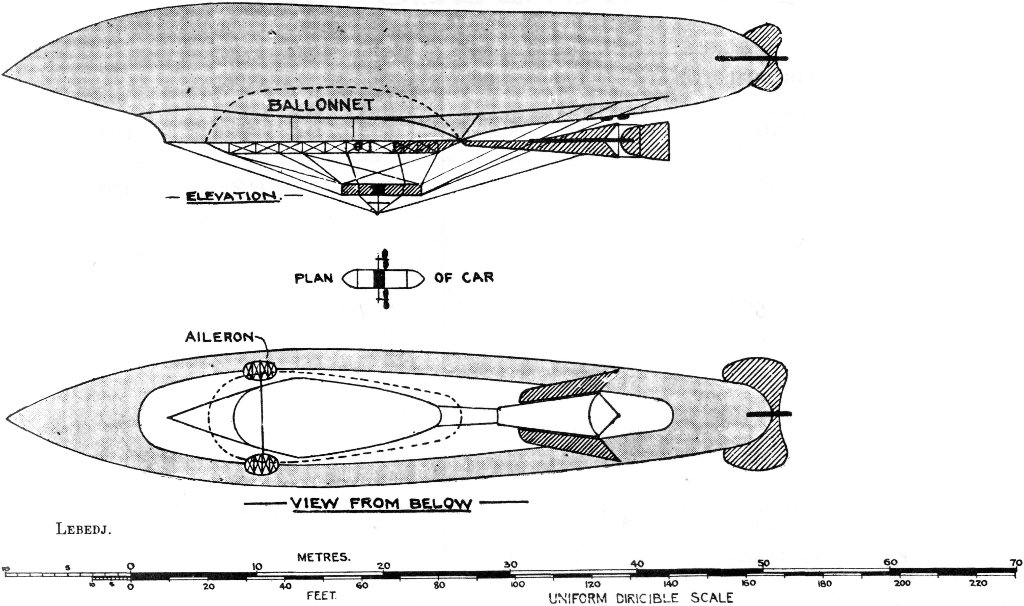
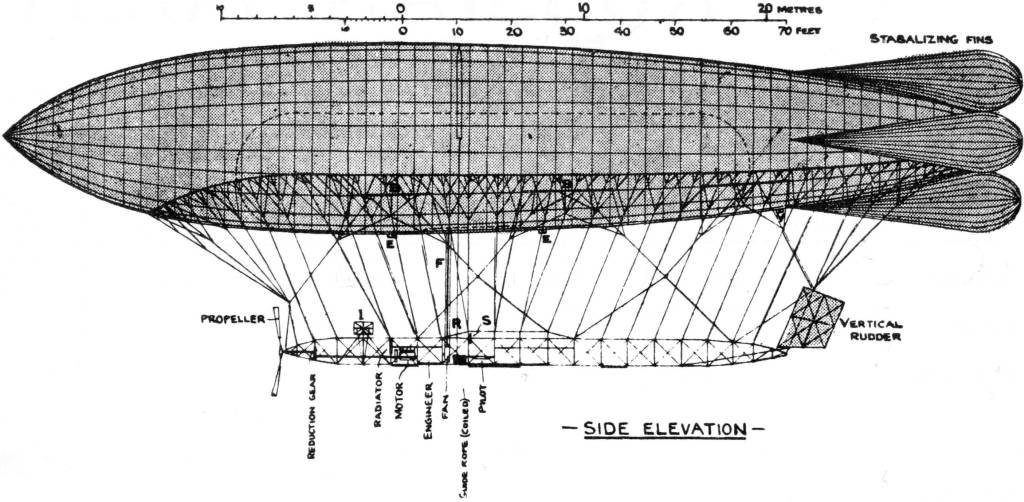
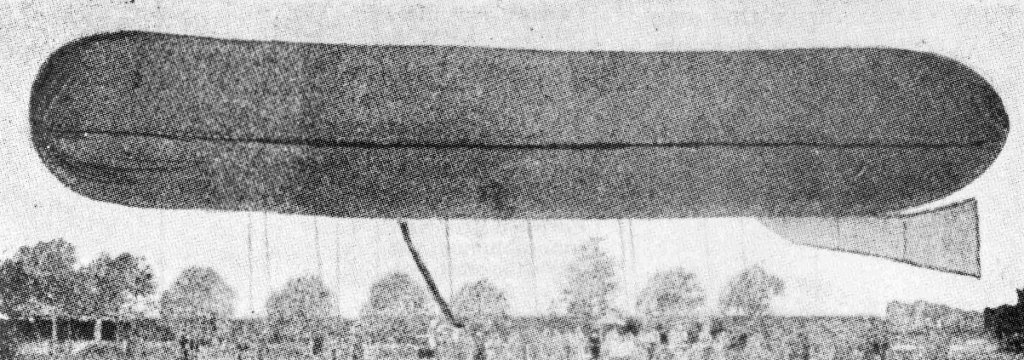

Note.—The other dirigibles are of usual type. See France and Germany.
At end of March, 1913, there were 7 aeroplanes, and 3 more (Bleriots) on order.[Pg 194]
El Real Aëro Club de España (70 rue Alcala, Madrid).
La Asociacion de Locomocion Aérea (20 Plaza de Cataluna, Barcelona).
Real Aero Club d'Espana.
Cataluna Ae. C.
Boletin Oficial de la Asociacion de Locomocion Aérea, 20, Plaza de Cataluna, Barcelona (monthly).
España Automovil, 5, plaza de Isabel II, Madrid. Official organ, Spanish R. Ae. C.
Revista de Locomotion Aerea, 20, Plaza de Cataluna, Barcelona (monthly).
Carbouchelle Military School.
There are 9 old Farmans (1910-11 model), and one or two more modern monoplanes: but little is doing.
Some hydro-aeroplanes are on order for the Navy.
The following Spanish aviators have been killed:—
[F] Jezzi lives in England where he is a well known amateur constructor.
Herrera, Lt. E.
Kindelan y Duany, Capt. A.
Vives y Vich, Col.
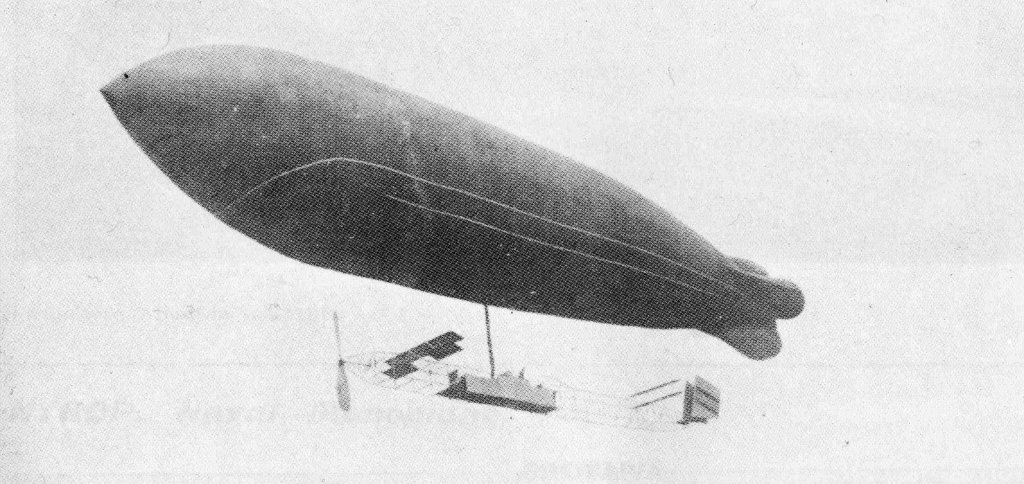
Maximum length, 197 feet (60 m.) maximum diameter, 35-1/3 feet (10.75 m.) volume, 43,057 c. feet (4,000 m³.)
Total lift.—9,700 lbs. (4,400 kgs.) Useful lift, lbs. ( kgs.)
Gas bags.—Yellow coloured rubber proofed Continental fabric.
Motor.—One 100 h.p. 4-cylinder Panhard.
Speed.—29 m.p.h.
Propellers.—1, at the front end of the car, of wood, "Integrale" type.
Steering.—As in Clement Bayard I and Ville de Nancy.
Remarks.—The two side stabilising shapes are duplicated, as they are in the Ville de Paris. A webbing stretched on steel tubes is introduced between the inner edges of the 4 main stabilising shapes to provide extra stabilising surface.
Maximum length, 147¾ feet (45 m.) maximum diameter, 32¾ feet (10 m.) volume, 56,700 c. feet (1,600 m³.)
Total lift.— lbs. ( kgs.) Useful lift, lbs. ( kgs.)
Gas bags.—
Motor.—60 h.p. Chenu.
Speed.—
Propellers.—
Steering.—
Remarks.—Designed by Captain Kindelan and Engineer Torres Quevedo.
(Revised by Lieut. DAHLBECK, R. Swedish Navy.)
Svenska Aëronautiska Sällskapet (Stockholm).
Kungl. Automobil klubben: (Fenixpalatset, Stockholm).
Svenska Motor-klubben: Aero sektion (Stockholm).
Svensk Motor-Tidning (Fenixpalatset, Stockholm) Fortnightly.
Ljungbyhed (Skåne), sheds.
Malmslãtt, sheds.
At the end of March, 1913, the Army possessed 1 monoplane, 1 biplane, and 2 biplanes building.
The Navy had 1 Bleriot type monoplane and 3 building.
At the end of 1912 there were 9 privately owned aeroplanes.
(The number against any name is, unless otherwise stated, the Ae. C. Swedish pilot certificate.)
Military.
von Porat, Lieut. (6)
Ljungner, Lieut. (7)
Hamilton, Capt. (2)
Naval.
Dahlbeck, Lieut. (3) (British Ae. C. 120)
Werner, Lieut. (9)
Private.
Cedarstrõm, Baron C. (1)
Fjãllbãck (4)
Ångstrõm (5)
Sundstedt (8)
Thulin, M.A. (10)
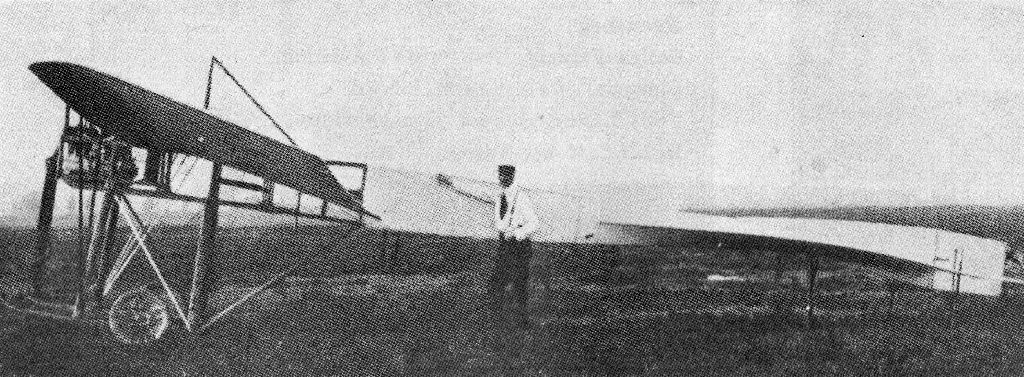
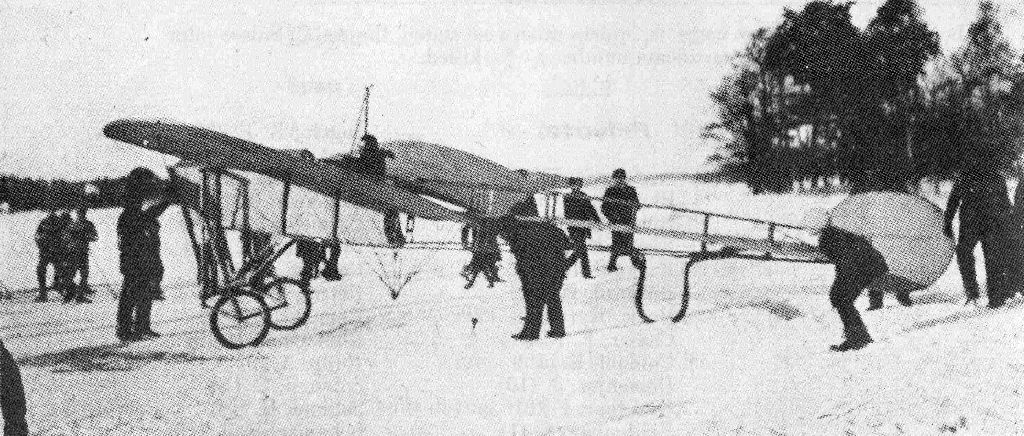
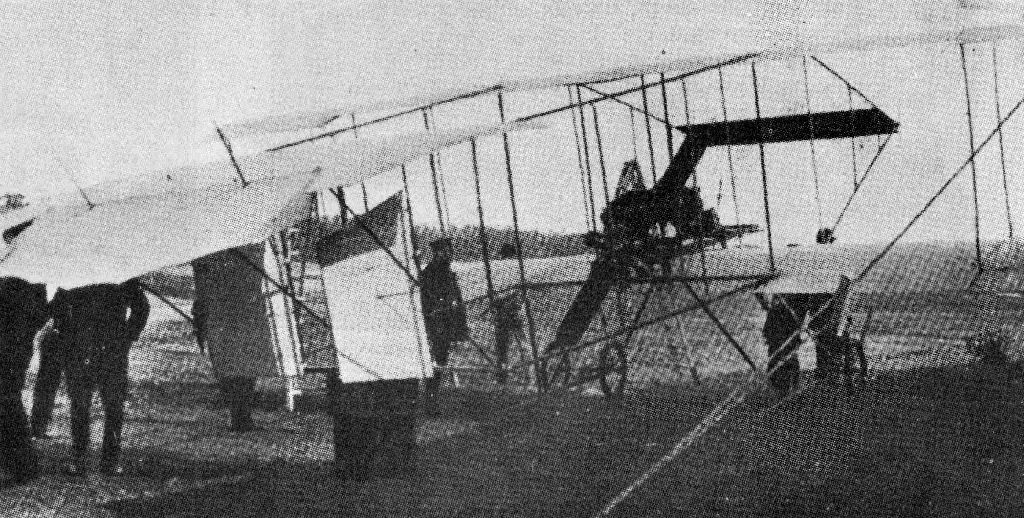
(By our special Swiss editor.)
Aero Club Suisse (3, Hirschengraben, Berne). Sec.: F. Filliot.
a Ostschweizerischer V. für L. (Zürich).
b Sektion Mittelschwerz (Bern).
c Sektion Westschweiz (Romande) (Lausanne).
d Club Suisse d'Aviation (Geneva).
Club Genêvois d'Aviation (Geneva). Sec.: P. Brasier.
Flügsport Klub (Rorschach). Sec.: A. Zürn.
Bulletin de l'Aero Club Suisse (Berne). Monthly.
La Suisse Sportive (16, Rue de Hesse, Geneva). Weekly.
Sport (35, Boulevard Exterieur, Berne).
Automobil Revue (Berne). Weekly.
Le Sport Suisse (Geneva). Weekly.
L'Auto Sport (Geneva). Weekly.
A.C.S. (Swiss Aut. Clubs) (Geneva). Fortnightly.
Das Illustrierte Programm (Zurich). Fortnightly.
Revue Weinfelden. Monthly.
Avenches.
Collex-Versoix. (Club Suisse d'Aviation).
Lucerne.—60 acre park. Sheds.
Petit Lancy. Geneva (Geneva Club).
Dübendorf bei Zurich.
Lucerne.
At the end of March, 1913, there were no army aeroplanes, a Farman bought in 1911 having ceased to exist.
| Total at end of 1910 | about | 10 |
| 1911 | " | 15 |
At the end of March, 1913, there were about 15 privately owned aeroplanes.
(The number against any name is, unless otherwise stated, the Ae. C. Suisse pilot certificate number.) + = killed.
Real, Lieut. T. (4)
+ Schmidt, Capt. J.
Audemars, E. (7)
Bianchi, P. (6)
Bider, O. (32)
+ Blane, M. (17)
Bucher, M. (11)
Burkard, H. (20)
Burri, E. (24)
Casser, E. (28)
+ Cobioni, E. (15)
Domenjoz, J. (10)
Durafour, F. (3)
Failloubaz, E. (1)
Grandjean, R. (2l)
Gsell, R. (12)
+ Hösli, G. (25)
Hug, M. (18)
Ingold, K. E. (35)
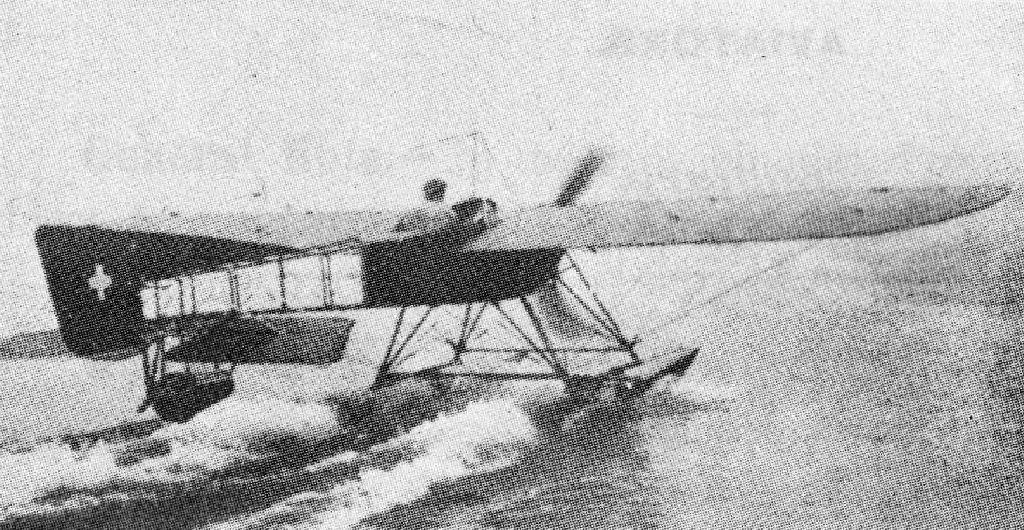
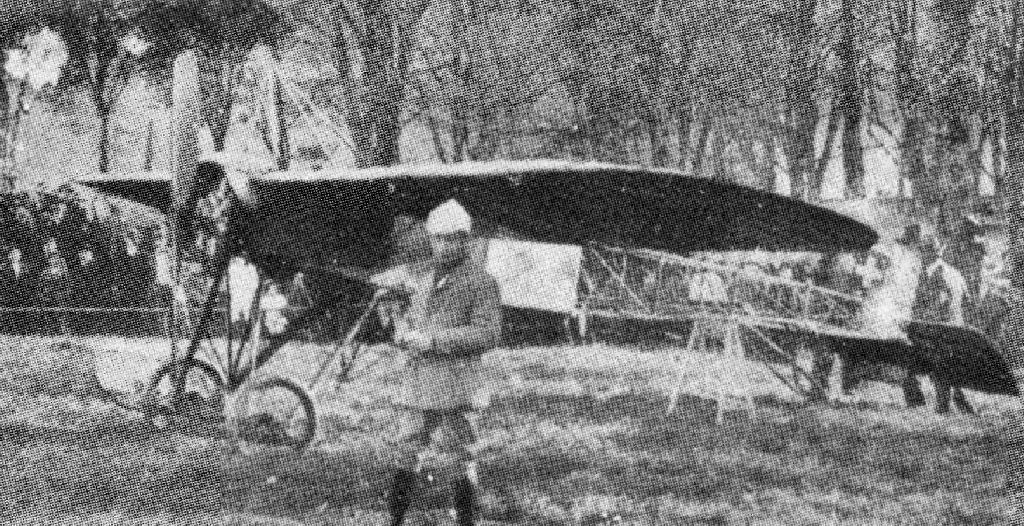
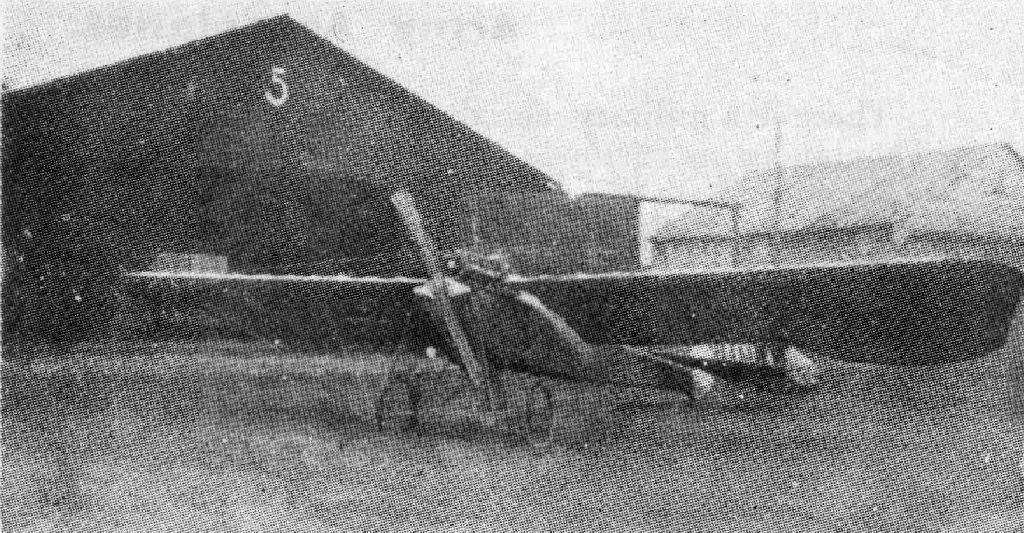
| Model and date. | GRANDJEAN. Hydro-monoplane. 1911-12. | TADDEOLI. Monoplane. 1911-12. | WETTERWALD. Monoplane. 1912. | |
|---|---|---|---|---|
| Length | feet (m.) | 33 (10) | 19-3/4 (6) | 24-1/2 (7.50) |
| Span | feet (m.) | 33 (10) | 29-1/2 (9) | 33 (10) |
| Area | sq. feet (m².) | 191 (18) | 151 (14) | 215 (20) |
| Weight | total lbs. (kgs.) | 750 (340) | 880 (400) | 705 (320) |
| useful, lbs. (kgs.) | 310 (140) | 330 (150) | ... | |
| Motor | h.p. | 50 Oerlikon | 50 Gnome | 40 E.N.V. |
| Speed | max. m.p.h. (km.) | 62 (100) | 69 (110) | ... |
| min. m.p.h. (km.) | 56 (90) | ... | ... | |
| Number built during 1912 | 2 | 1 | 1 | |
There is a military aerodrome at S. Stefano, with Amerigo, Renzel and Thanlau as instructors.
In March, 1913, there were about 12 monoplanes (Harlans & Reps), and one or two biplanes. Only one seems actually to have been used. Several other aeroplanes were captured during the war—generally in their packing cases unopened. In April, 50 machines were reported ordered in Germany.
Fessa, Bey (780, F.)
Kienan, Lt. (797, F.)
Nouri, Lt.
Ratzian
Refik, Capt.
Sismanoglou, J.
None.
Cameo, M. Garcia
(Edited by E. L. JONES, Editor of "Aeronautics," U.S.A.)
General Note.—In the early nineties, Professor Langley and the Bros. Wright were experimenting with heavier-than-air machines, but general interest in the subject is quite recent. Though some small dirigibles exist, American attention is mainly devoted to aeroplanes. Ballooning was quite the thing in 1907-11, but has languished.
It is stated that there are certainly no less than two thousand people in the U. S. A. who have built flying machines. The greater percentage of these have been home-made copies of standard machines. Individual builders of copies and freaks have diminished greatly in numbers, and there remains a few well-established manufacturers.
Although inventors are still prolific in the Patent Office and clubs numerous, the general public takes very slight intelligent interest in aviation. The majority of clubs are inactive.
In the year 1912 commercial development seemed to have great possibilities. The copyists were being weeded out and competent aeronautical constructors financed by adequate means began operations on systematic business lines. The latter half of the year saw a great slump. In the spring of 1913 prospects looked greatly improved, and there was generally increased activity.
Aeronautics.—122, East 25th Street, New York. Monthly.
Aircraft.—37, East 28th Street, New York. Monthly.
Fly.—1701, Chestnut, Philadelphia, Pa. Monthly.
Aero.—Chicago, Ills. Weekly.
Belmont Park, N.Y.—Old race track. Not very good. Scene of 1910 meet. 30 sheds occupied by few experimenters.
Dayton.—Wright school private field.
Chicago, Ills.—Two fine fields.
Fort Myer, Va.—Government and private sheds.
Hammondsport, N.Y.—Curtiss factory. Field (small) and lake for water planes.
Los Angeles, Calif.—Several fields in vicinity. Used for Eaton school and private flyers.
Marblehead, Mass.—Poor field. Home of Burgess C. Fine for hydro-aeroplanes.
Mineola, N.Y.—Moisant, Sloane and another school, and individuals. About 1 by 10 miles level field, without obstructions.
Oakwood Heights, Staten I., N.Y.—The Aeronautical Soc. grounds, on bay for use of hydro-aeroplanes.
San Diego, Calif.—Winter quarters Curtiss camp; also used by army flyers.
San Francisco (near).—Good.
St. Louis, Mo.—Kinloch Park. Benoist school and private owners.
An attempt has been made here to give the name of every aero club that has been formed recently in the United States, or has been in existence for a long time. It is believed this list covers every club in the United States.
Many of these clubs are nothing but a name. They were formed to conduct meets or exhibitions, given by the various aeroplane concerns engaged in this business. Many clubs are not incorporated. Others have no organisation, being run by principals of boys' schools or classes.
Clubs even affiliated with the Aero Club of America have no members' meetings, nor have they in many cases even meeting rooms. There are but a half-dozen live aero clubs worthy the name in America. Three clubs own balloons, which are rented to members for ascensions. Little attempt is made by more than one or two associations to popularise aeronautics, to encourage experimenters, or to indulge in scientific work.
The Aero Club of America, the Aeronautical Society and Aero Club of Illinois, are the principal organisations. The Ae. C. represents the F.A.I., and has a beautiful club house. The Aeronautical Society has rooms in the United Engineering Building, conducts well-attended lectures twice a month, and has grounds on Straten Island (for hydro-aeroplanes and aeroplanes).
Clubs affiliated with the Ae. C. of America are marked *
New Orleans Aero Club, Wm. Allen, Sec., New Orleans
*Aero Club of California, Prof. H. La V. Twining, Pres., 1308 Calumet St. Los Angeles.
*Pacific Aero Club, Pacific Buildings, 331 Octavia Street, San Francisco
Postal Aero Club, 305 W. Santa Clara Street, San Jose
University of California Aero Club, T. W. Veitch, Sec., Berkeley
Oakland Aero Club, Oakland
*Aero Club of Colorado, 36 West Colfax Avenue, Denver, Col.
Aero Club of Blackstonehill, Oakland, Calif, c/o W. R. Davis, Jr., 474 Prospect Street
Curtiss Amateur Aviation Club, Harold Scott, Secretary, Los Angeles
Santa Clara Valley Aero Club, Chamber of Commerce, San Jose
Aero Club of San Diego, San Diego, Colonel C. C. Collier, Pres.
Aero Club of Pasedena, W. J. Hogan, Pres., 635 Chamber of Commerce, Box 1054
*Aero Club of Connecticut, Pres., A. Holland Forbes, at Fairfield
Yale University Aero Club, New Haven
Aero Club of Hartford, Hiram Percy Maxim, Pres., Hartford
*Aero Club de Cuba, Ignario 5, Havana
Aero Club of Delaware, Wilmington
Washington Aero Scientific Club, F. L. Rice, Sec., c/o Y.M.C.A., Washington
*Aero Club of Washington, Dr. Albert F. Zahm, Sec., Cosmos Club, Washington
Aeronautic Society of Florida, Davenport and Kerrison, Secs., 2014 Main Street, Jacksonville
*Aero Club of Illinois, F. McCormick, Pres., 240 Michigan Avenue, Chicago
Aeroplane and Kite Club, E. E. Harbert, Pres., 2852 N. Clark Street, Chicago
University of Chicago Aero Club, Chicago
*Aircraft Club of Peoria, c/o Leslie Lord, 505 E. Armstrong Street, Peoria
Aeronautical Society of the University of Illinois, Urbana, R. Watts, Sec., 507 E. John Street, Champaigne
Purdue Aero Club, Purdue University, Lafayette
South Bend Aero Club, South Bend.
*Aero Club of Indiana, Indianapolis
Aero Club of Topeka, Topeka
*Western Aero Association, E. S. Cole, Sec., Topeka
Kansas State Aero Club, C. H. Lyons, Sec., Overland Park
Continental Aero Club, Richmond
Southern Aero Club, 809 Canal Street, New Orleans
New Orleans Aero Club, Wm. Allen, Sec., New Orleans
*Aero Club of Baltimore, Col. Jerome H. Joyce, Pres., Baltimore
Aero Club of North Adams, North Adams
*Aero Club of New England, A. R. Shrigley, Sec., 26 Trement St., Boston
Amherst Aero Club, Amherst
*Pittsfield Aero Club, L. J. Minahan, Pres., Pittsfield
Springfield Aero Club, c/o Charles T. Shean, Pres., 3 John Street, Springfield
Tufts College Aero Club, Tufts College
*Harvard Aeronautical Society, Prof. A. Lawrence Rotch, Pres., Blue Hill Observatory
Mass. Inst. of Technology Aero Club, John S. Selfridgem, Sec., Inst. of Technology, Boston
Dartmouth Aero Club, Richard F. Paul, Sec., Dartmouth
First Assn. of Licensed Pilots, Chas. J. Glidden, Pres., Hotel Somerset, Boston
Williams Aeronautical Society, Williams College, Robert O. Starret, Sec., Williamstown
*Aero Club of Michigan, C. B. du Charme, Sec., Detroit
University of Michigan Aero Club, Ann Arbor
Minneapolis Junior Aero Club, Stillman Chase, Sec., 3047 5th Avenue, S., Minneapolis
St. Louis Experimental Ass'n., 5346 Zealand Street, St. Louis
*Kansas City Aero Club, George M. Myers, Pres., Convention Hall, Kansas City
*Aero Club of St. Louis, 1429 Pine Street, St. Louis
Aero Club of St. Charles College, Helena
Aero Club of Nebraska, Col. Wm. H. Glassford, Pres., Fort Omaha
Junior Aero Club or the Y.M.C.A., c/o Y.M.C.A., Omaha
Lincoln Aero Club, Lincoln, c/o G. R. Brownfield, 1234 "O" Street
Aviation Club of Nebraska, Arthur Frenzer, Sec., 2778 California Street, Omaha
Princeton University Aero Club, Princeton
Aeronautic Society of New Jersey, c/o N.J. Automobile & Motor Club, Broad Street, Newark
Aero Club of New Jersey, c/o James K. Duffy, Sec., 315 Madison Avenue, New York
New Jersey Aeronautical League, W. A. Kraus, Sec., Guttenberg
Aero and Motor Club, Asbury Park
Atlantic City Aero Club, Col. Walter E. Edge, Sec., Atlantic City
Model School Aero Club, Trenton, R. G. Teavitt, Sec.
Trenton Aero Club, James Fenton, Sec., Trenton
*Aero Club of America, 297 Madison Avenue, Chas. Walsh, Sec.
The Aeronautical Society, 250 W. 54th Street, Arnold Kruckman, Gen. Sec.
Aeronautic Alumni Ass'n., c/o West Side Y.M.C.A., West 57th Street
New York Model Aero Club, Adrien Lacroix, Sec., 141 Lexington Avenue
National Model Aero Club, c/o A. Leo Stevens, 282 9th Avenue
Stuyvesant Aeronautic Society, 345 East 15th Street, Percey W. Pierce, Sec.
Columbia Aero Club, Columbia University, 116th Street
Dewitt Clinton High School Aero Club, 58th Street and 10th Avenue
*Aero Club of Buffalo, Lafayette Hotel, Buffalo, N.Y.
Thousand Islands Aero Club, c/o Dr. J. M. Gibbons, 168 Montague Street, Ithaca
Aeronautic Section, Technology Club, Syracuse
Boys' High School Aero Club, Henry St. Pieless, Sec., 815 Avenue, J., Brooklyn
*Rochester Aero Club, c/o L. J. Seely, 10 Culver Road, Rochester
Aero Club of the Y.M.C.A., Harold C. Carpenter, Pres., White Plains
Aero Club, Haliano, U.S.A., 135, West 12th Street, N.Y. Seventy-two members. C. Chiantelli, Sec.
Junior Aero Club, c/o A. E. Horn, Public School, 77 Park Avenue and 84th Street
Aero Club of Long Island, c/o Hohn H. Lisle, Alen Cove
Commerce Aero Club, 65 West 117th Street
*Aero Club of New York, Garden City.
Mechanics Aeronautical Ass'n., c/o H. H. Simms, 304 Cutler Building, Rochester
Aeronautical Research Club of the Y.M.C.A., H. C. Myers, Sec., Buffalo
Aero Club Italiano, Saverio A. Mascia, 403 Park Avenue
Aeronautical Society of Women, Miss Dorothy E. Ball, Sec., 250 West 54th Street
*Aero Club of Ohio, Canton
*Aero Club of Dayton, Dayton
International Aeroplane Club, Dayton
Cleveland Aero Club, C. J. Forbes, Sec., Hollanden Hotel, Cleveland
*Aero Club of Cincinnati, c/o P. L. Mitchell, Traction Buildings, Cincinnati
Portland Aero Club, E. Henry Wemme, Pres., Portland
Aviation Section, Professional Chauffeurs Ass'n. of America, 1933 Spring Gardens, Phil.
*Aero Club of Pennsylvania, Rev. Geo. S. Gassner, Sec., Betz Buildings, Phil.
Ben Franklin Aeronautical Ass'n., c/o Dr. T. Chalmers Fulton, 6th and Diamond Street, Phil.
Philadelphia Aeronautical Recreation Society, Dr. Thos. E. Eldridge, Pres., 1639 N. Broad Street, Phil.
Haverford College Aero Club, Haverford, Pa.
Swartmore College Aero Club, Swartmore, Pa.
Univ. of Penn. Aero Club, Univ. of Penn., Phil., Pa.
Aero Club of Carnegie, Tech. Schools, Pittsburg, Pa.
Intercollegiate Aeronautical Ass'n., Geo. A. Richardson, Pres., Univ. of Penn., Phil.
Pittsburg Aero Club, H. P. Haas, Sec., Magel Buildings, Pittsburg, Pa.
Pawtucket Aero Club, Pawtucket
Rhode Island Aeronautical Society, Providence, John J. Long, Sec., c/o Brown University
Nashville Aero Club, Nashville, E. Fisher Coles, Sec.
Dallas Aero Club, c/o Chamber of Commerce
San Antonio Aero Club, c/o Dr. Fred J. Fielding, 423 Hick's Buildings, San Antonio
South Western Aero Club, P.O. Box 821, Fort Worth
Texas Junior Aeronautical Ass'n., Hugh Dumas, Pres., Fort Worth
Aero Club of Utah, c/o L. R. Culver, 11 Eagle Block, Salt Lake City
Salt Lake City Aero Club, c/o Mr. Campbell, Walker Bank Buildings, Salt Lake City
Aero Club of Vermont, Chas. T. Fairfield, Pres., c/o Rutland News, Rutland
University of Virginia Aero Club, Stanford Swin, Sec., University of Virginia
Virginia-Tennesse Aero Club, Bristol, Va-Tenn, C. W. Morey, Sec.
Aero Club of Washington, 415 Union Trust Buildings, Washington, D.C.
Aero Club of Seattle, c/o M. Robert Guggenheim, 511 Lonan Buildings, Seattle
Walla Walla Aero Club, Walla Walla
*Milwaukee Aero Club, Milwaukee, c/o Major Henry B. Hersey, Chief of the Weather Bureau, Milwaukee
Milwaukee Aeronautic Society, Pres., Sherman Brown, Manager of Davidson Theatre, Milwaukee
(1) Carry one person with the seat located to permit of the largest possible field of observation. (2) Ascend at the rate of 1500 feet in three minutes, while carrying fuel for one hour's flight. (3) Carry fuel for a three hours' flight. (4) Must be easily transportable by road, rail, etc., and easily and rapidly assembled and adjusted. (5) The starting and landing devices must be part of the machine itself, and it must be able to start without outside assistance. (6) The engine must be capable of throttling. (7) The engine will be subject to endurance test in the air of two hours' continuous flight. (8) Speed in the air of at least 65 miles an hour. (9) Capable of landing on and arising from ploughed fields. (10) The supporting surfaces must be of sufficient size to insure safe gliding in case the engine stops. (11) The efficiency and reliability of the system of control must have been demonstrated before the purchase order is placed. The aeroplane must be capable of executing a figure eight within a rectangle 500 yards by 250 yards, and without decreasing its altitude more than 100 feet at the completion of the figure eight. This test to be made by aviator alone without carrying extra weight. (12) The extreme width of the aeroplane supporting surfaces must not exceed 40 feet.
(1) The aeroplane must carry two persons with seats located to permit of the largest possible field of observation for both. (2) The control must be capable of use by either operator from either seat. (3) The machine must be able to ascend at least 2000 feet in ten minutes while carrying a weight of 600 lbs. including the aviator and passenger, 150 lbs. of gasoline, and extra weight to make 600 lbs. All of the extra weight must be carried on the engine section and not distributed over the wings. (4) The fuel and oil capacity must be sufficient for at least four hours continuous flight. This will be determined by a trial flight of at least one half-hour, measuring the consumption of gasoline while carrying the passenger and weight stated in paragraph 3. (5) Same as No. 4 above. (6) Same as No. 5 above. (7) The engine must be of American manufacture and capable of throttling to run at reduced speed. (8) Same as No. 7 above. This test will be made with aviator and passenger, extra weight and fuel enumerated in paragraphs 3 and 4. (9) The aeroplane must develop a speed in the air of at least forty miles an hour. This test will be made with aviator and passenger, extra weight and fuel enumerated in paragraphs 3 and 4. The maximum speed must not exceed sixty-five miles per hour. (10) Same as No. 9 above. This test will be made with aviator, passenger, extra weight and fuel enumerated in paragraphs 3 and 4. (11) Same as No. 10 above. (12) Same as No. 11 above. (13) Same as No. 12 above.
In 1913 additional requirements specified enclosed body, bullet-proof armour, .75 chrome steel, for engine and aviator, provision of necessary instruments and wireless, with, as desirable features, silencer and cut-out, self-starter and an efficient stabilising device.
At end of March, 1913, the effective Army aeroplanes consisted of three 50 h.p. Wrights, one Wright-Burgess, several old machines.
The Navy had two Wright-Burgess hydros and a few nondescripts. A Burgess flying boat since added.
The estimate for Army effectives at end of the present year (1913) is 21 (5 Burgess, 6 Curtiss, 10 Wright).
(The numbers after any name is the number of the U. S. Aero Club certificate.)
Arnold, Lieut. H. H. (29)
Beck, P. Capt. (39)
Brereton, Lt. L. H. (211)
Burge, Corp. V. S. (154)
Chandler, C. de F. Capt. (59)
Foulois, Lieut. (140)
Geiger, Lieut. H. (166)
Goodier, Lt. L. E. (200)
Graham, Lieut. H. (152)
Hennessy, Capt. F. B. (153)
Humphreys, Lieut.
Kirtland, Lieut. R.C. (45)
Lahm, Lieut. F. P. (2)
Love, Lieut. M. L. (155)
McClaskey, Lieut. J. W. (90)
McKay, Capt. G. W. (67)
McLeary, Lieut. S. H. (210)
McManus, Lieut.
Milling, Lieut. (30)
Rodgers, J. Lieut. (48)
Sherman, Lieut. W. C. (151)
Winder, Lieut.-Col. C.B. (130)
Herbster, Ens. (103)
Ellyson, Lieut. T. G. (28)
Rodgers, John, Lieut.
Towers, Lieut. J. H. (62)
(The number against any name is, unless otherwise stated, the Ae. C. America pilot certificate number. Only a few American aviators have bothered to obtain the Ae. Certificate. America produces a large number of aviators who fly for pleasure or exhibitions only and have not gone into competitions under International Rules. These consequently do not bother about certificates; but most of those recorded could easily obtain them, if they cared to try.)
The following American aviators have been killed:—
1777, Broadway, New York. Built a Curtiss type with Kirkham motor, 1911. 2 skids, with wheel between, and usual Farman rubber shock absorbers.
San Francisco. Inc. 1913. Capital, $25,000.
See Cordeaux-Etter.
266, Main Street, Hempstead, N.Y. Builders of monoplanes after the Bleriot type. Half-a-dozen machines were built and sold during 1911. Fitted with Gnomes or American engines.[Pg 208]
Captain Thos. S. Baldwin, PO Box, 78, Madison Square, N.Y. About half-a-dozen steel biplanes have been produced in 1911 by Captain Baldwin, and he and other aviators, Badger, Hammond, Miss Scott Mass, etc., have flown these at various exhibitions and meets, and are classed with well-known successful American biplanes.
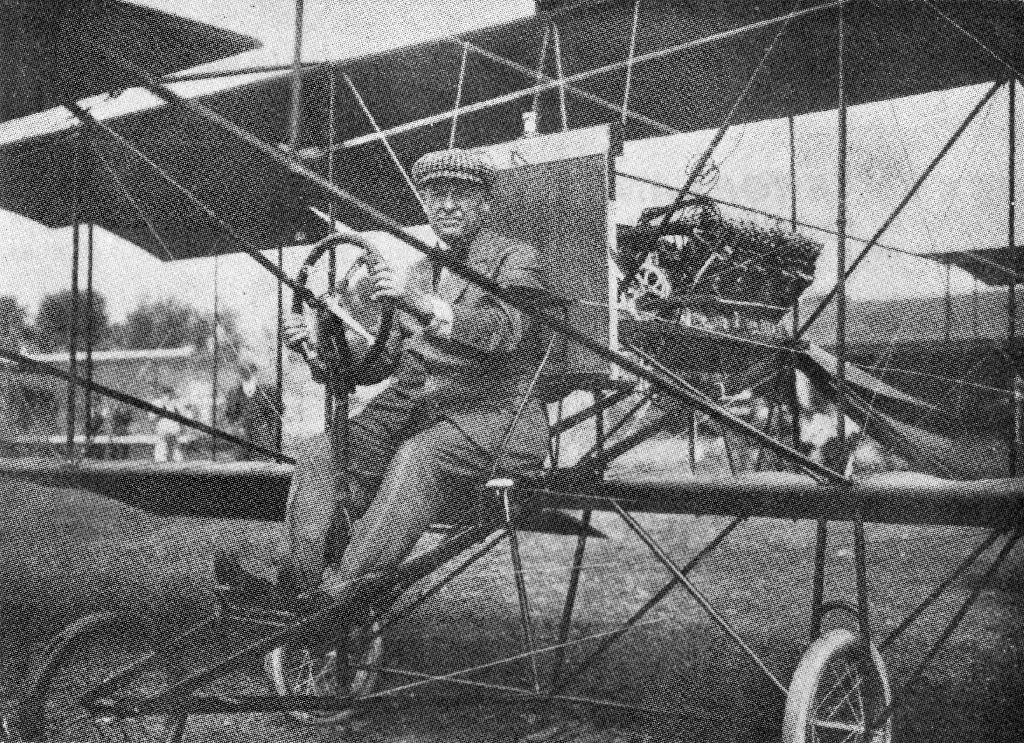
Details of Baldwin ("Red Devil").
Length.—28¼ feet (8.60 m.) Span.—28¾ feet (8.75 m.) Motor.—50-60 h.p. Hall-Scott Propeller.—One Requa-Gibson in rear of main planes. Diameter, 7 feet (2.13 m.) Pitch, 6 feet (1.82 m.) Speed.—60 m.p.h. (97 k.p.h.)
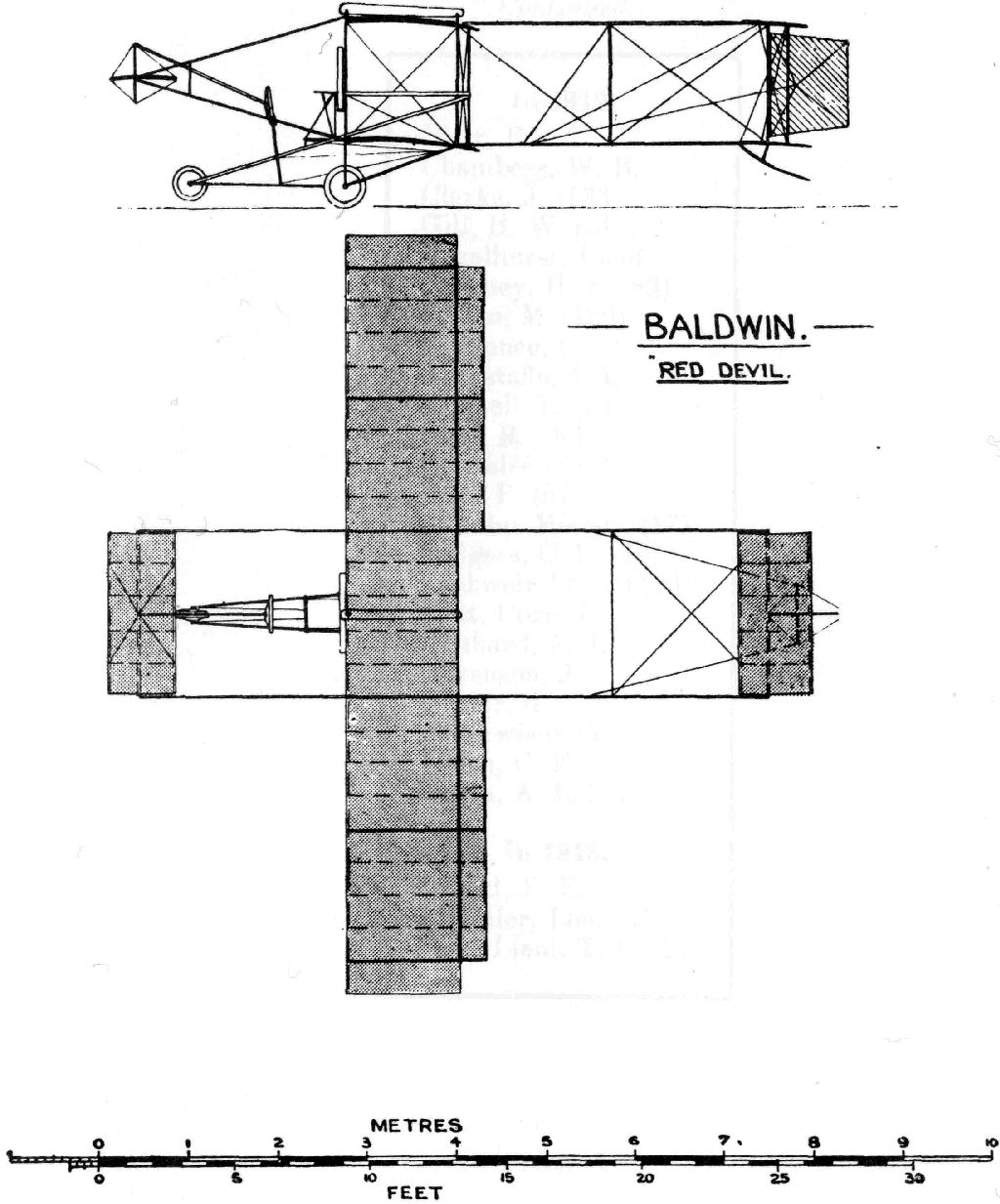
Benoist Aircraft Co., 6628, Delmar Boulevard, St. Louis, Mo. (formerly Aeronautic Supply Co.)
| Model and date. | 1912-13. "Headless." | 1913. Flying boat. Tandem biplane. | |
|---|---|---|---|
| Length | feet (m.) | 22-1/2 (6.85) | 27 |
| Span | feet (m.) | 30 (9.15) | 42-1/6 (12.80) |
| Area | sq. feet (m².) | ... | ... |
| Weight | total lbs. (kgs.) | ... | 1004 (455) |
| useful lbs. (kgs.) | ... | ... | |
| Motor | h.p. | ... | 75 Roberts |
| Speed | max. m.p.h. (km.) | 68 (110) | ... |
| min. m.p.h. (km.) | 31 (50) | ... | |
| Endurance | hrs. | 3 | |
Notes.—The boat of the flying boat is 23-5/6 feet long, by 2 feet 2½ inches wide. Shipable wheels. See Aeronautics, January, 1913.
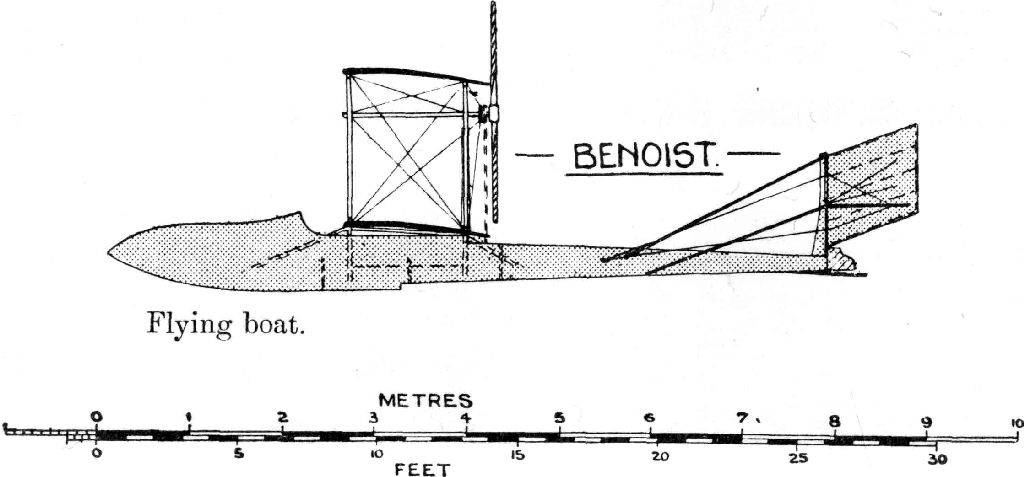
Boland Aeroplane & Motor Co., 1821, Broadway, New York. Works: Ft. Center St. Newark, N.J.

| Model and date. | 1913. "Tailless." | |
|---|---|---|
| Length | feet (m.) | 21-1/6 (6.45) |
| Span | feet (m.) | 35-1/2 (10.80) |
| Area | sq. feet (m².) | ... |
| Weight | total lbs. (kgs.) | 900 (408) |
| useful lbs. (kgs.) | ... | |
| Motor | h.p. | 60 Boland |
| Speed | m.p.h. (km.) | 60 (95) |
| Number built during 1912 | 1 | |
A refinement of the original machine of the late F. E. Boland, which first flew in 1911. Control by two special jibs which work inward. Designed to be used also as a hydro, with three step floats. No rudder or ailerons. Full details, etc., see Aeronautics, U.S.A., May, 1913, and Aircraft, U.S.A., May, 1913.[Pg 210]
BURGESS. Burgess Co. & Curtis, Marblehead, Mass. Built Wright types under license, also machines of their own.
| Model and date. | Military tractor. 1912-13. | Coast defence hydro. 1913. | Naval flying boat. 1913. | |
|---|---|---|---|---|
| Length | feet (m.) | 37-3/4 (8.50) | 33-1/3 (9.55) | 31 (9.45) |
| Span | feet (m.) | 34-1/2 (10.50) | 37-3/4 (12) | 43 (13.10) |
| 36 (10.97) | ||||
| Area | sq. feet (m².) | ... | ... | 397 (37) |
| Weight | total lbs. (kgs.) | ... | ... | ... |
| useful lbs. (kgs.) | ... | 775 (352) | ... | |
| Motor | h.p. | 70 Renault | 60 Sturtevant muffled | 70 Renault |
| Speed | m.p.h. (km.) | 45 (70) | 59 (95) | ... |
| Endurance | hrs. | 4-1/2 | 4-1/2 | ... |
| Number built during 1912 | ... | ... | ... | |
| Remarks.-- | Lumina fabric. Single screw. Details, Aeronautics, (U.S.A.), May-June, 1912. | Special clear view for observation. 2--1 step mahogany and copper floats. Useful weight includes floats. Details, Aeronautics, (U.S.A.), Feb., 1913. | Boat 29-1/2 feet long. 2--2 step floats. Petrol, 48 gallons. Details, Aeronautics, (U.S.A.), May, 1913. | |
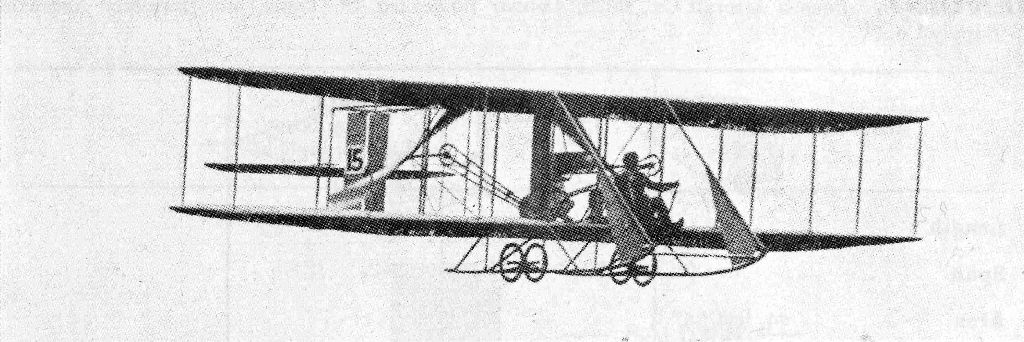
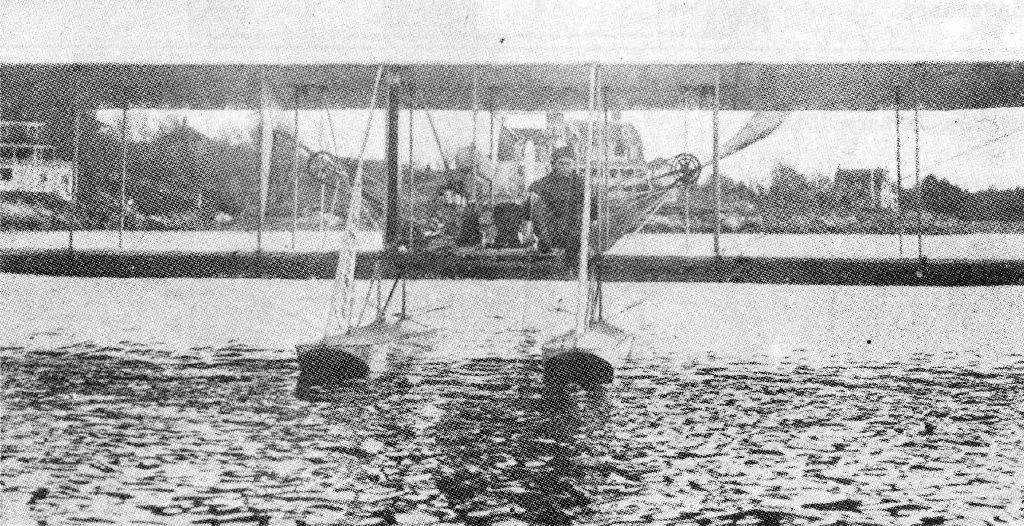
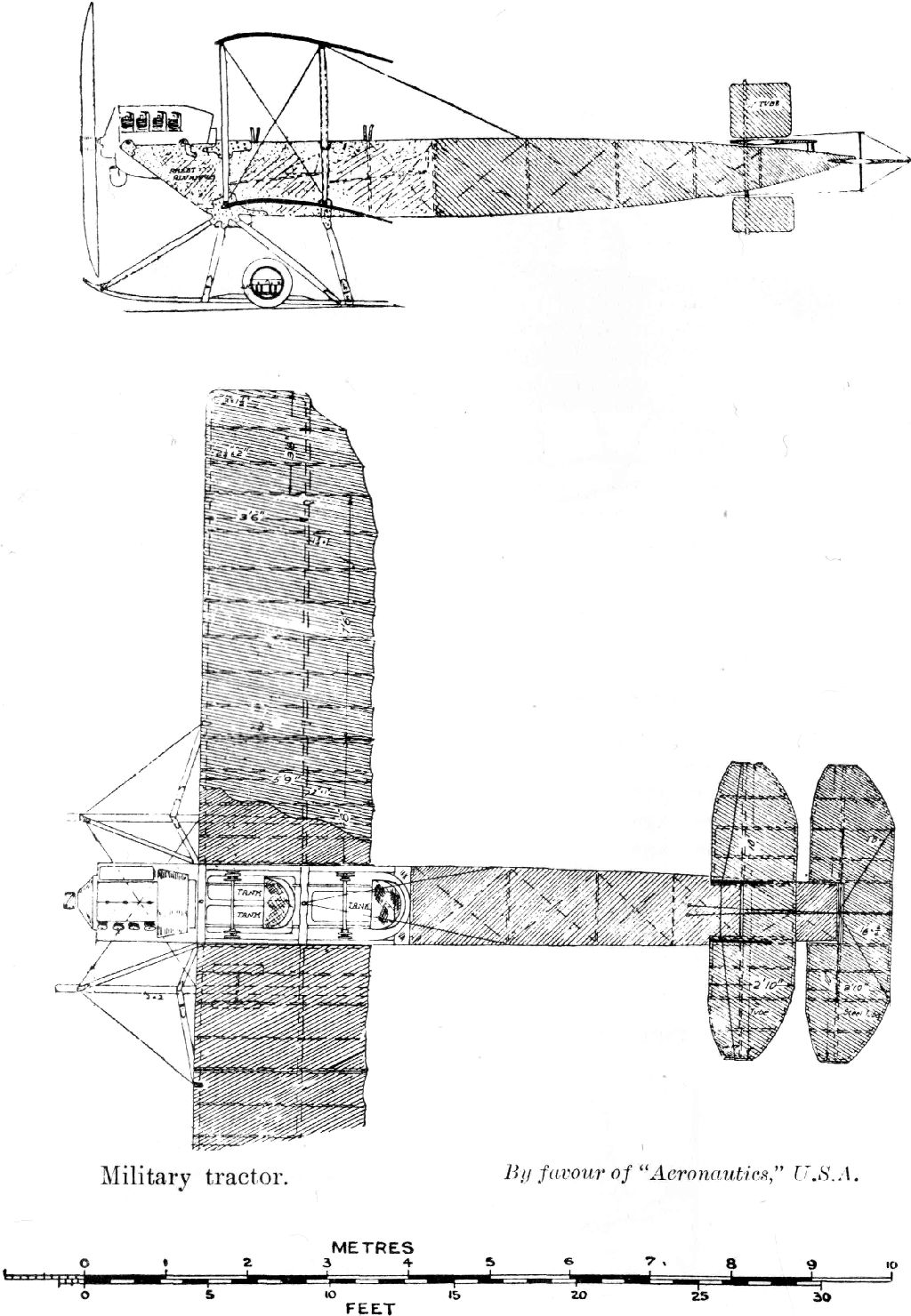

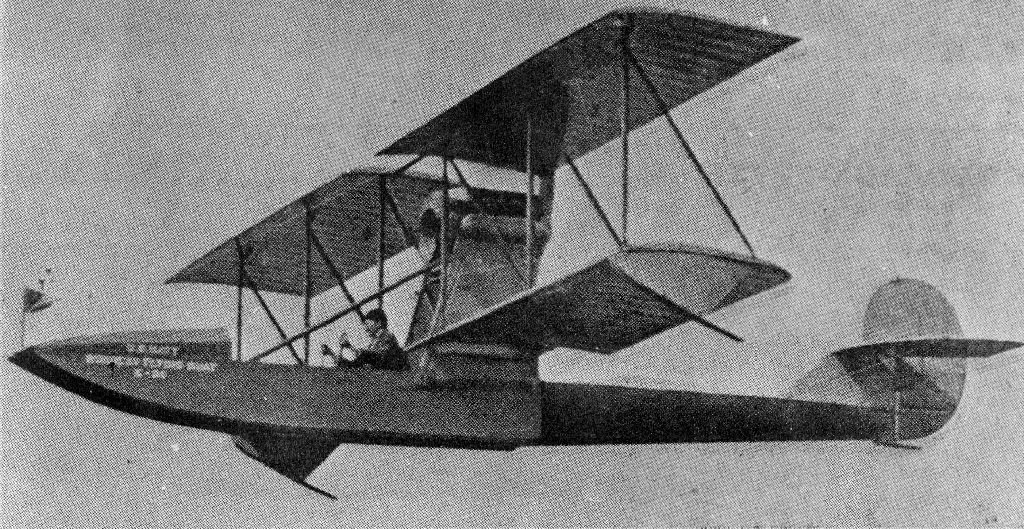
Durham Christmas Aeroplane Sales & Exhibition Corporation, Inc. 1913. Capital: $10,000 to $50,000. Claims for it are that it is "automatically balanced." This is attained by the shape of the machine, not through the agency of any auxiliary apparatus.
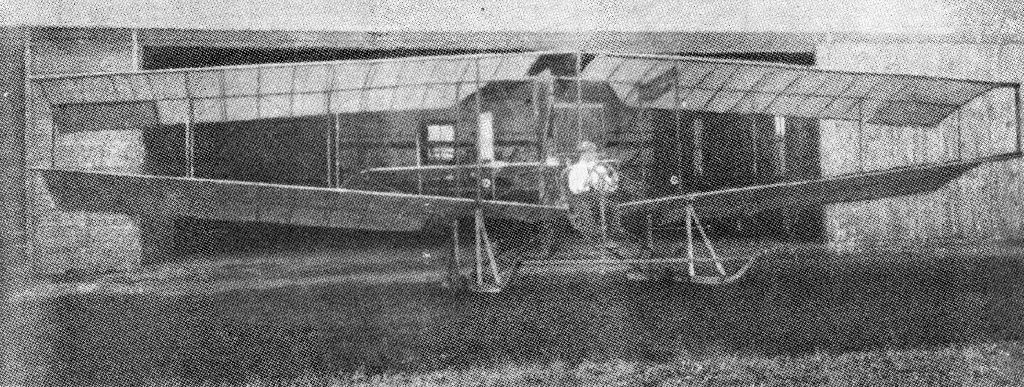
Cordeaux-Etter Mfg. Corporation, Brooklyn, N.Y. Capital: $10,000. Took over, 1913, the Aeronautical Supply Co., of N.Y.
Weldon B. Cooke Aeroplane Co., Sandusky, Ohio. Founded 1913 by the well-known aviator, W. B. Cooke.
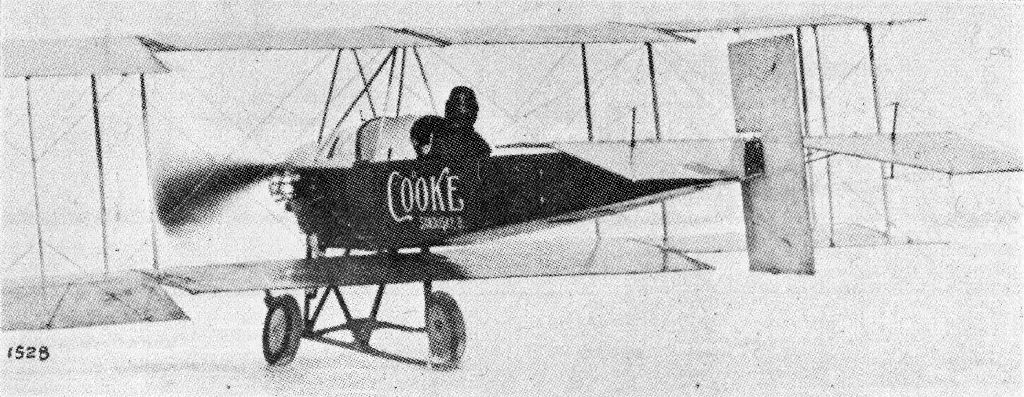
| Model and date. | 1913. | |
|---|---|---|
| Length | feet (m.) | 25 (7.60) |
| Span | feet (m.) | 24 (7.30) |
| Area | sq. feet (m².) | 240 (22) |
| Weight | total lbs. (kgs.) | 750 (340) |
| useful lbs. (kgs.) | ... | |
| Motor | h.p.{ | 75 Roberts 2 cycle upside down |
| Speed | m.p.h. (km.) | ... |
| Number built during 1912 | new firm | |
Details, Aeronautics, U.S.A., February, 1913.

Curtiss Aeroplane Co., Hammondsport, N.Y. Glenn H. Curtiss in 1907 and 1908 was a member of the Aerial Experiment Association, formed by Dr. and Mrs. Alexander Graham Bell. This Association built four machines, each along the lines of one of the four engineers belong to the Association, F. W. Baldwin, Lieut. T. E. Selfridge, G. H. Curtiss and J. A. D. McCurdy. The last built was the June Bug, designed by Curtiss and was the most successful. In the spring of 1908, the Association was disbanded and The Aeronautical Society gave Curtiss an order for an aeroplane with carte blanche as to design. He produced a 4 cyl. machine, Curtiss engine, and flew it. A duplicate was hurriedly built, 8 cyl. engine installed, and taken to Europe for the first Gordon Bennett, which he won. Returning, the same type was continued with minor improvements. Later the front elevator was brought closer in, finally discarded, and the fan tail adopted and this remains the standard land machine to-day. In April, a military tractor was built and flown.
On January 26th, 1911, first successful flights were made with a hydroaeroplane, at the Winter camp at San Diego, Calif. This had two floats tandem. One was finally adopted and great success was achieved, and remains standard at the present time. With this machine various experiments were made. It was altered in a tractor for one occasion, it was lifted on board warships; made into triplane, etc.
In 1912 he brought out his present type of flying boat. This is being rapidly developed and minor changes in details are made in practically every machine put out.
In May, 1913, he produced a special 4-passenger flying boat for a customer on special order.
Note.—In addition to those tabulated, special small racing machines have been built, as well as similar machines with extra sections simply added either side for Army use.
| Model and date. | Type D. 1913. | Type E. 1913. | Type F. 1913. | |
| Length | feet (m.) | 26-2/3 (8.10) | 27-1/3 (8.33) | 27-1/3 (8.33) |
| Span | feet (m.) | 26-1/4 (8) | 31-1/4 (9.50) | 38-1/3 (11.70) |
| Overall | feet (m.) | 33-1/12 (10) | 36-1/4 (11) | 41-2/3 (12.70) |
| Area | sq. feet (m².) | 214 (19-1/2) | 288 (26-1/4) | 421-1/2 (39) |
| Weight | total lbs. (kgs) | ... | 1700 (771) | ... |
| useful lbs. (kgs) | ... | 500 (227) | ... | |
| Motor | h.p. | Curtiss | 80 Curtiss | Curtiss |
| Speed | m.p.h. (km.) | ... | 59 (95) | ... |
| Remarks.-- | Land service, but is also made fitted with floats. Panels. | Fitted either with wheels, pontons, or boat. Vilas boat. Boat 24 ft. long. Beam 54-1/2 ft. long. Height 41 ins. long. Cockpit 3 ft. long by 4 ft. 2 ins. wide. | Used to date only as military tractor or heavy flying boat. McCormick boat. Boat 25 ft. long 4 ft. wide. Freeboard 46 ins. Cockpit 84 ins. long by 46 ins. wide. Length of tail, incl. elevator 12 feet. | |
For full details of the tractor (F) see Aeronautics, U.S.A., February, 1913.
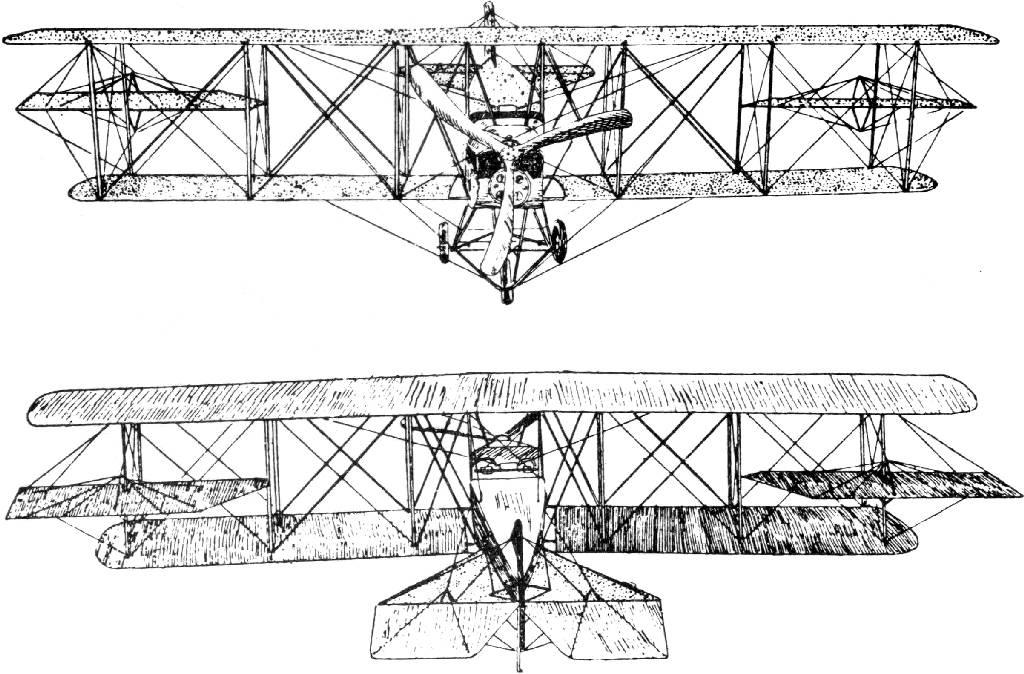
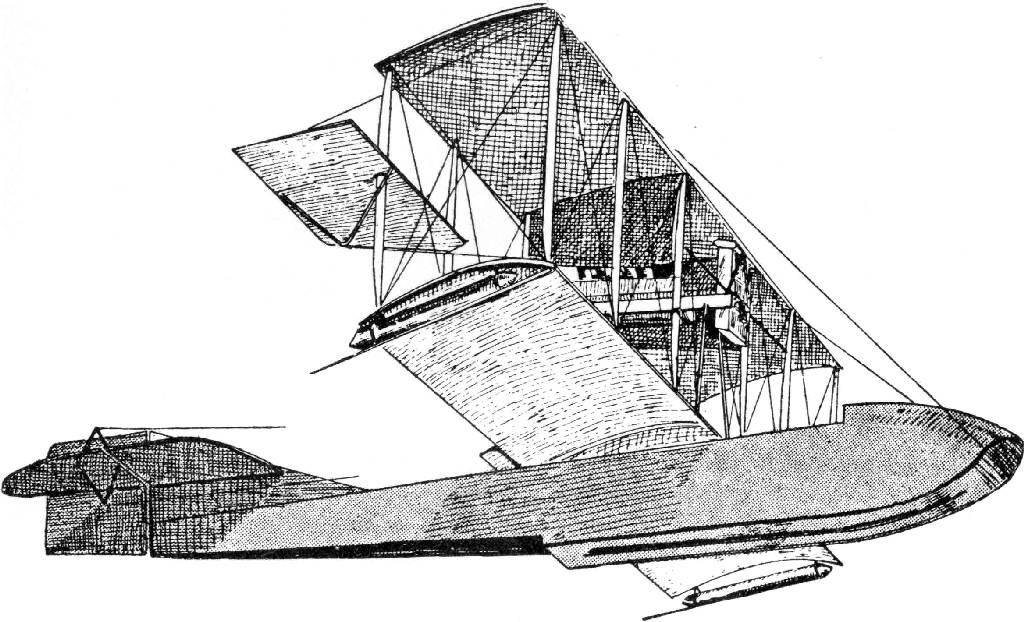
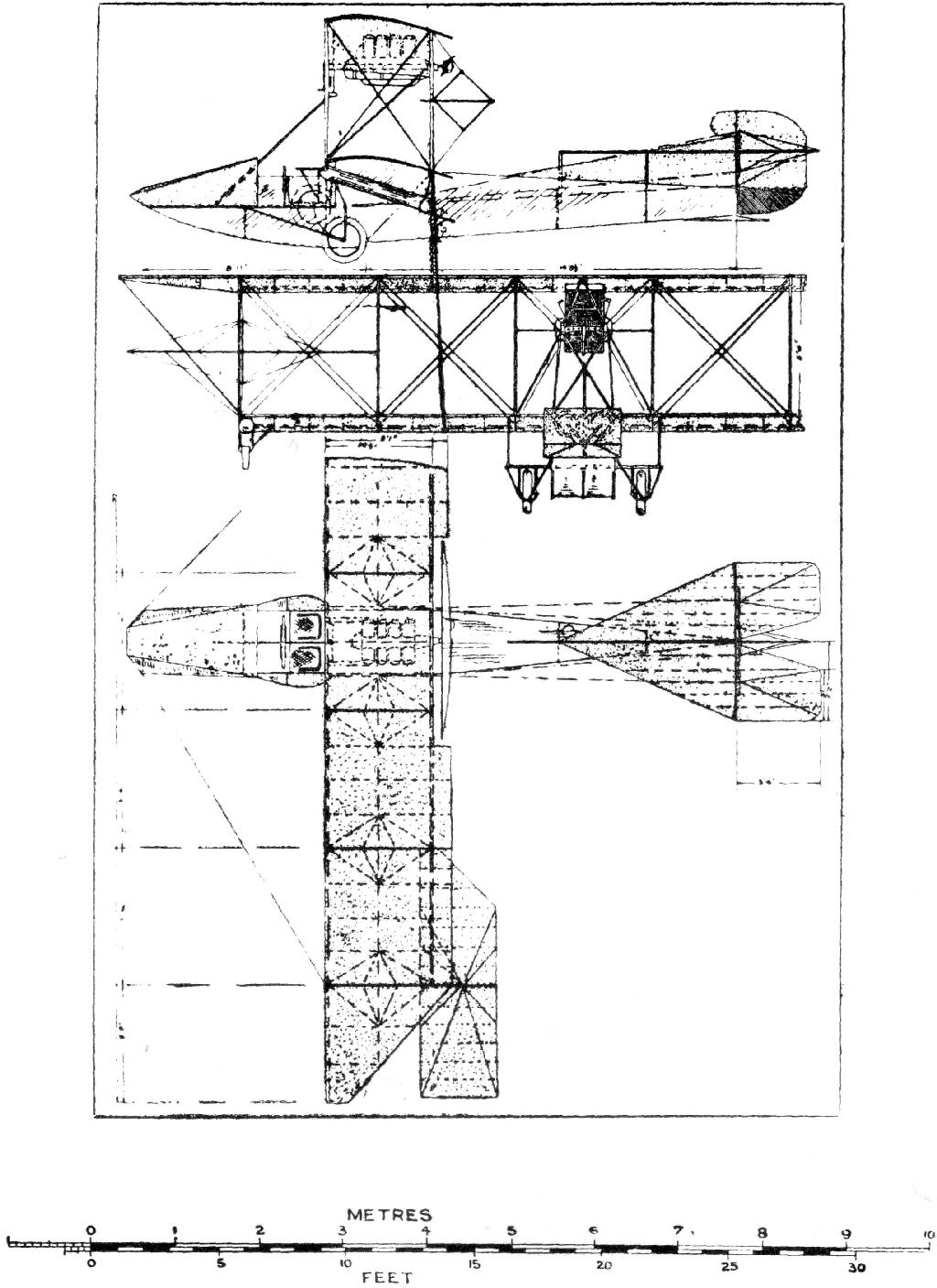
Gallaudet Eng. Co., Norwich Ct.
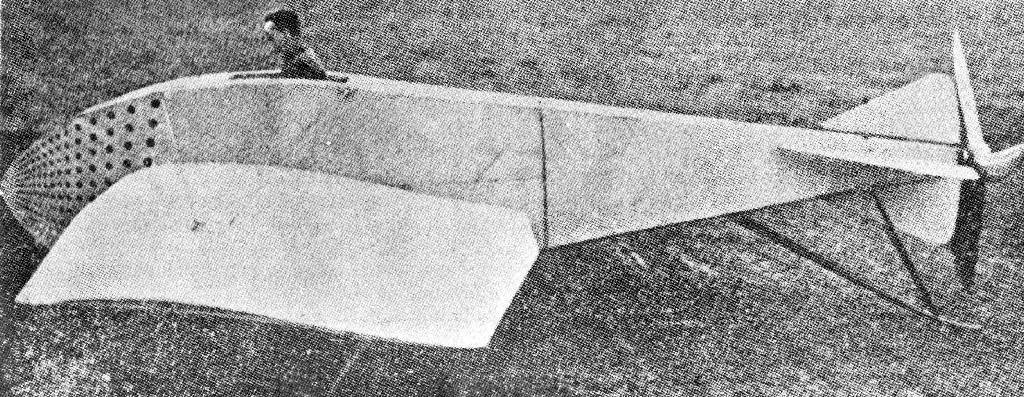
In 1912 produced a special racer as above. Span, 32 feet (9.75 m.) Area, 200 sq. feet (18½ m².) Speed, 100 m.p.h. (160 k.p.h.) Motor, 100 Gnome.[Pg 215]
Chas. B. Kirkham, Motor Manufacturers, Savona, N.Y. Began to manufacture aeroplanes in 1912, after previous experiments and flights near his factory.
Length, feet (m.) span, 34 feet (10.40 m.) surface, sq. feet} (m².)
Weight.—Complete, without pilot, 980 lbs. (445 kgs.)
Motor.—50 h.p. Kirkham, located in front under bonnet. 70 h.p. also fitted.
Speed.—56-62 m.p.h. (90-100 k.p.h.)
Remarks.—Rises easily at under 35 m.p.h., and has a full speed radius of 5½ hours. Full details in Aeronautics, U.S.A., January, 1912. 1913, no changes.
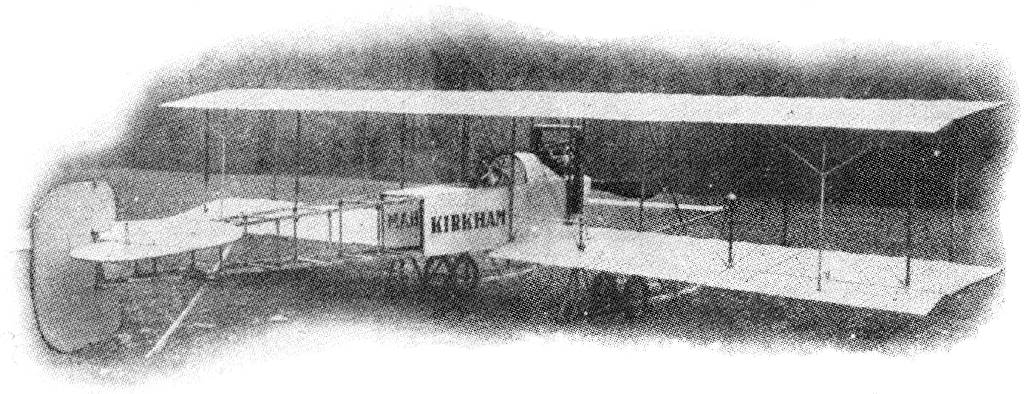
Monoplane aero boat, with one very deep step. See Aeronautics, U.S.A., May-June, 1912.
Matthew B. Sellers, R.F., D2, Norwood, Ga. Has been successfully experimenting for a number of years with a staggered quadruplane, and has given the aviation world a number of valuable papers. His aim is to fly successfully with the least possible horse power. For several years he has been making flights with various engines delivering from 5 to 6 h.p. on careful test. The actual thrust has been measured and recorded in late 1911 experiments. Details in Aeronautics, June, 1909; October, 1909; November, 1910; January, 1911; January, 1912. No actual details of the machine are available, but it follows closely the patent drawings (see references). He is one of the few real scientific flying men in the U.S.A. The original machine with slight changes was still flying at end of 1912 with only 5 h.p. B.H.P. The flying speed is 20 m.p.h.
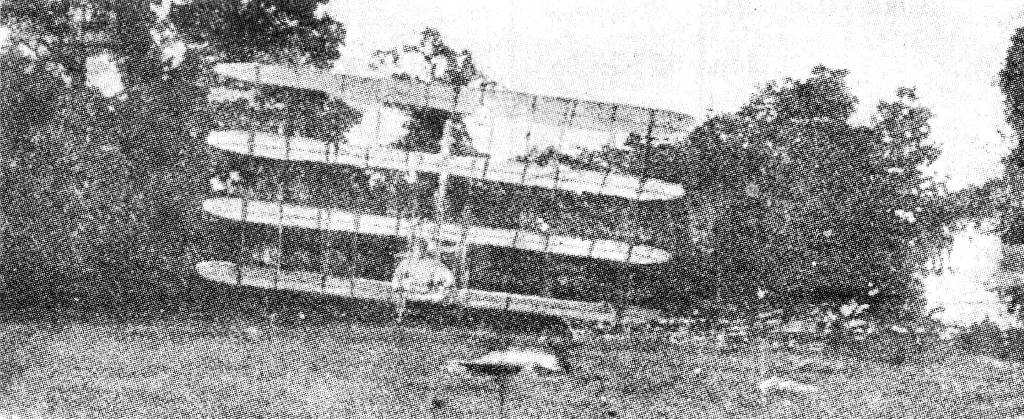
Sloane Aeroplane Co., 1733, Broadway, New York. Established 1911. Agents for Caudrons and Deperdussins. Run a school for these.[Pg 216]
Thomas Bros., Bath, N.Y., O.W., and W.T. Thomas began experimenting and flying in 1908 with a machine on the order of a Curtiss. In the winter of 1909-10, a type of their own was produced and was flown during 1911 by Walter Johnson in exhibitions. In 1912 they continued the same type, with refinements. In 1913 they adopted the overhanging top plane type, but of the same general high order of construction.
| Model and date. | 1912. Tractor biplane. | 1913. Monoplane. | 1913. Standard biplane. | 1913. Special biplane. | 1913. Flying boat. | |
|---|---|---|---|---|---|---|
| Length | ft.(m.) | ... | 30 (9.15) | ... | 25 (7.62) | ... |
| Span | ft.(m.) | 37 (11.27) | 32 (9.75) | 37 (11.27) | 33 (10) | 33 (10) |
| 27 (8.23) | ... | 27 (8.23) | 23 (7) | 23 (7) | ||
| Area | sq. ft.(m².) | ... | ... | ... | ... | ... |
| Weight | total lbs. (kgs.) | 900 (408) | 750 (340) | 900 (408) | 850 (385) | ... |
| useful lbs. (kgs.) | ... | ... | ... | 400 (181) | ... | |
| Motor | h.p. | 65 Kirkham | 70 Kirkham muffled | 65 Kirkham | 65 Kirkham | 100 Maximotor |
| Speed | m.p.h.(km) | 58 (94) | ... | 58 (94) | 60 (97) | ... |
| Endurance | hrs. | 2 | ... | 2 | 2-1/4 | ... |
| Number built during 1912 | 1 | building | ... | ... | building | |
Remarks. Control in all: Ailerons, 4 rudders. Elevator operated by rocking post on which wheel is mounted. The 1912 tractor was given up as less efficient than the Standard 1913. Special: full description Aeronautics, U.S.A., May, 1913.
The move was evolved 1912, but not built till well into 1913.
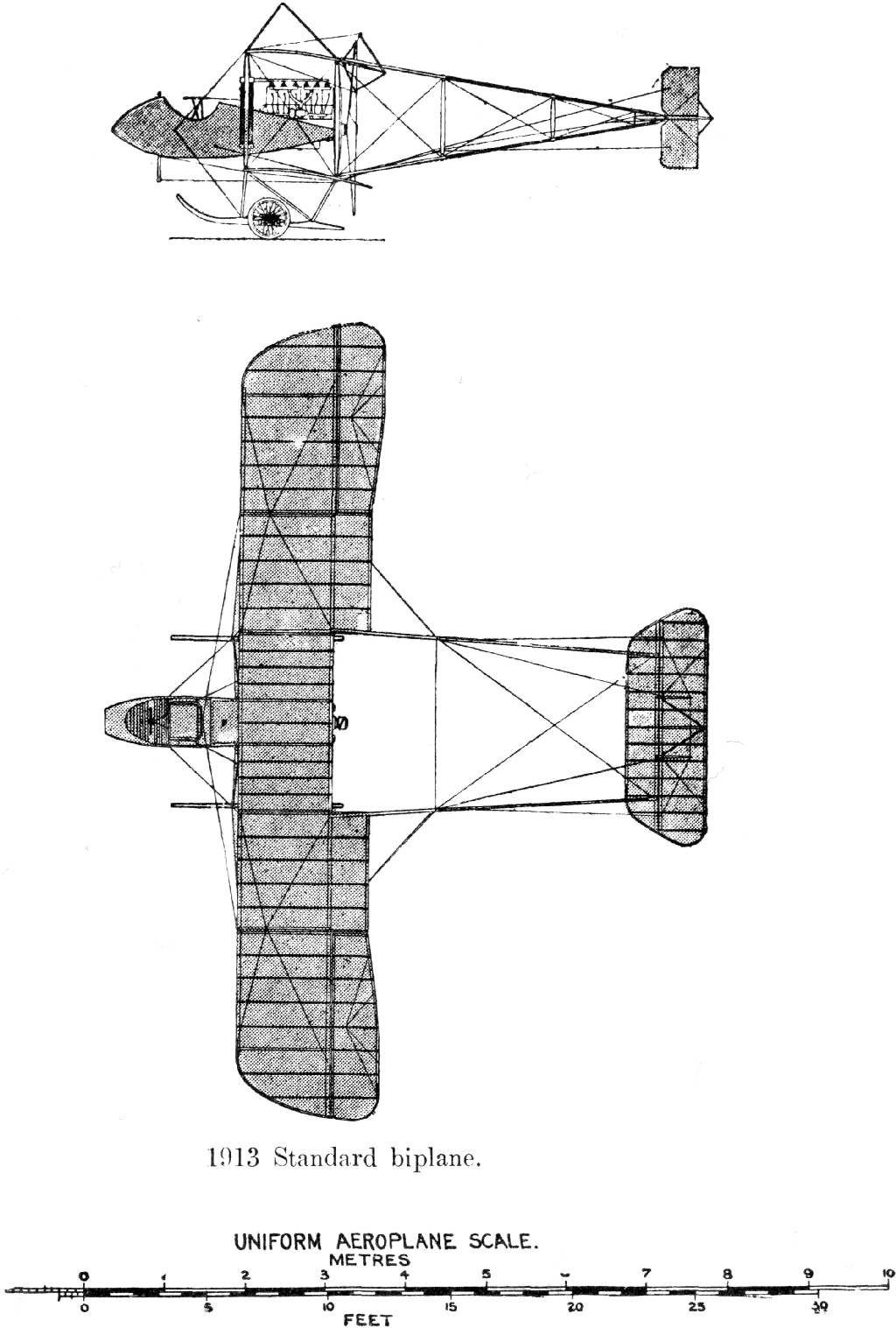
Washington Aeroplane Co., Washington, D.C. In 1913 built a flying boat to private order. Length, 29 feet (8.83 m.) Maximum span, 38 feet (11.85 m.) Motor, 80 h.p. Gyro. Boat with eight compartments and one 3 inch step.
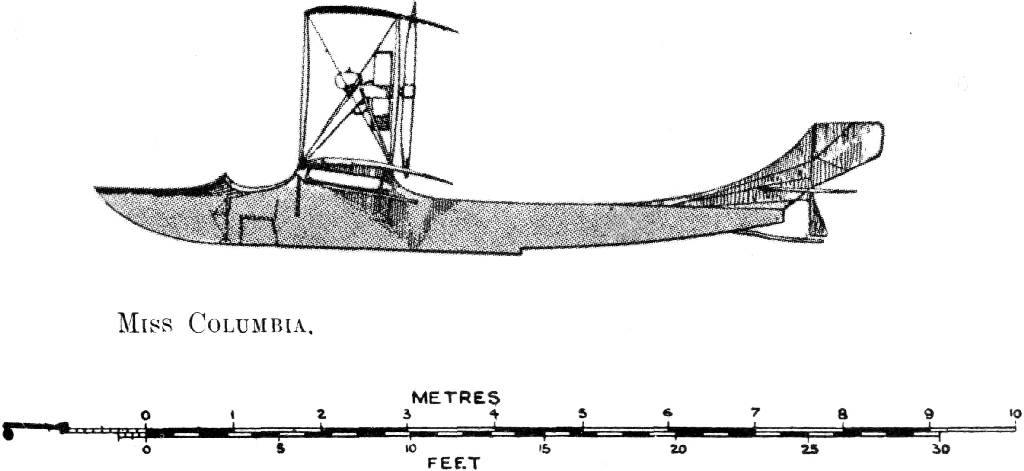
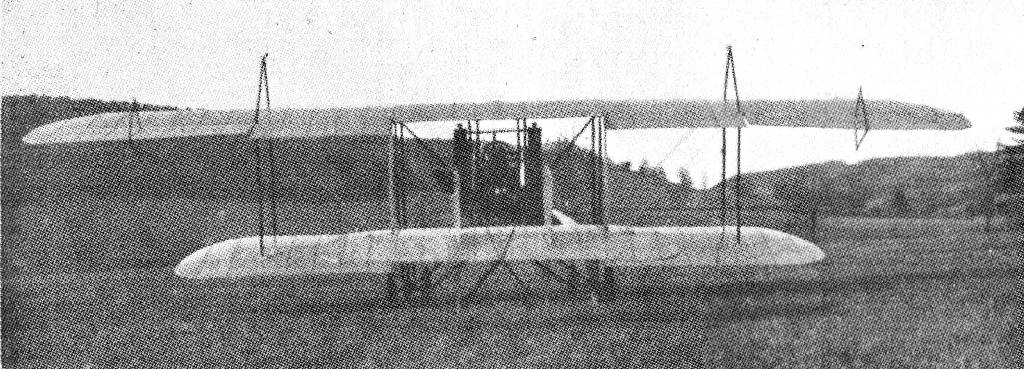
Witteman Bros., 17, Ocean Terrace and Little Clare Road, Staton Island, N.Y. These people do a considerable business building Curtiss type machines or machines to special designs for others. They built the Baldwin biplanes for Captain Baldwin, to his design, using steel tubing throughout. See Aeronautics, December, 1911, for a Witteman of special design shown by them at the Aero Show.
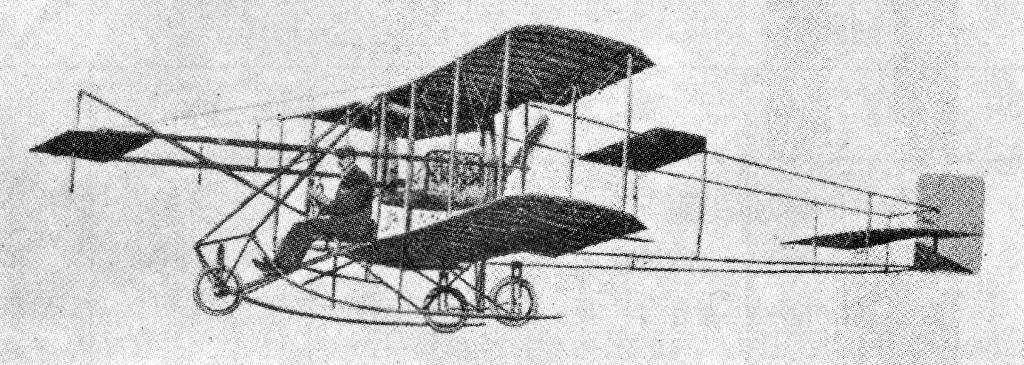
The Wright Co., Dayton, Ohio. The original type of Wright machine was mounted on skids only, and started along a rail. Its special features were a biplane elevator forward, main planes with warpable tips to trailing edge, small keel in gap, 2 propellers, chain driven in rear of planes, double rudder in rear and no tail. Wilbur Wright flew a machine of this type for 2 h. 20 m. 23½ s. in 1908. (Details of early Wrights see previous editions of this book.)
| Model and date. | B. | C. | EX. | E. | |
|---|---|---|---|---|---|
| Length | feet (m.) | 31 (9.45) | 29-3/4 (9) | ... | ... |
| Span | feet (m.) | 39 (11.90) | 38 (11.58) | 32 (9.75) | 32 (9.75) |
| Area | sq. feet (m².) | 500 (47) | 500 (47) | ... | ... |
| Weight | total lbs. (kgs.) | 1250 (567) | ... | ... | ... |
| useful lbs. (kgs.) | ... | ... | ... | ... | |
| Motor | h.p. | 30-35 Wright | 30-35 Wright | 30 or 50 Wright | 30 or 50 Wright |
| Speed | m.p.h. (km.) | 45 (75) | 45 (75) | ... | ... |
| 1913 standard. This machine as a hydro is fitted with two 3 step floats. Mea magneto. | For exhibition work only. Single seater small duplicate of B. | 1913 for exhibition work only. Single seater duplicate of EX except fitted with a single propeller only. | |||
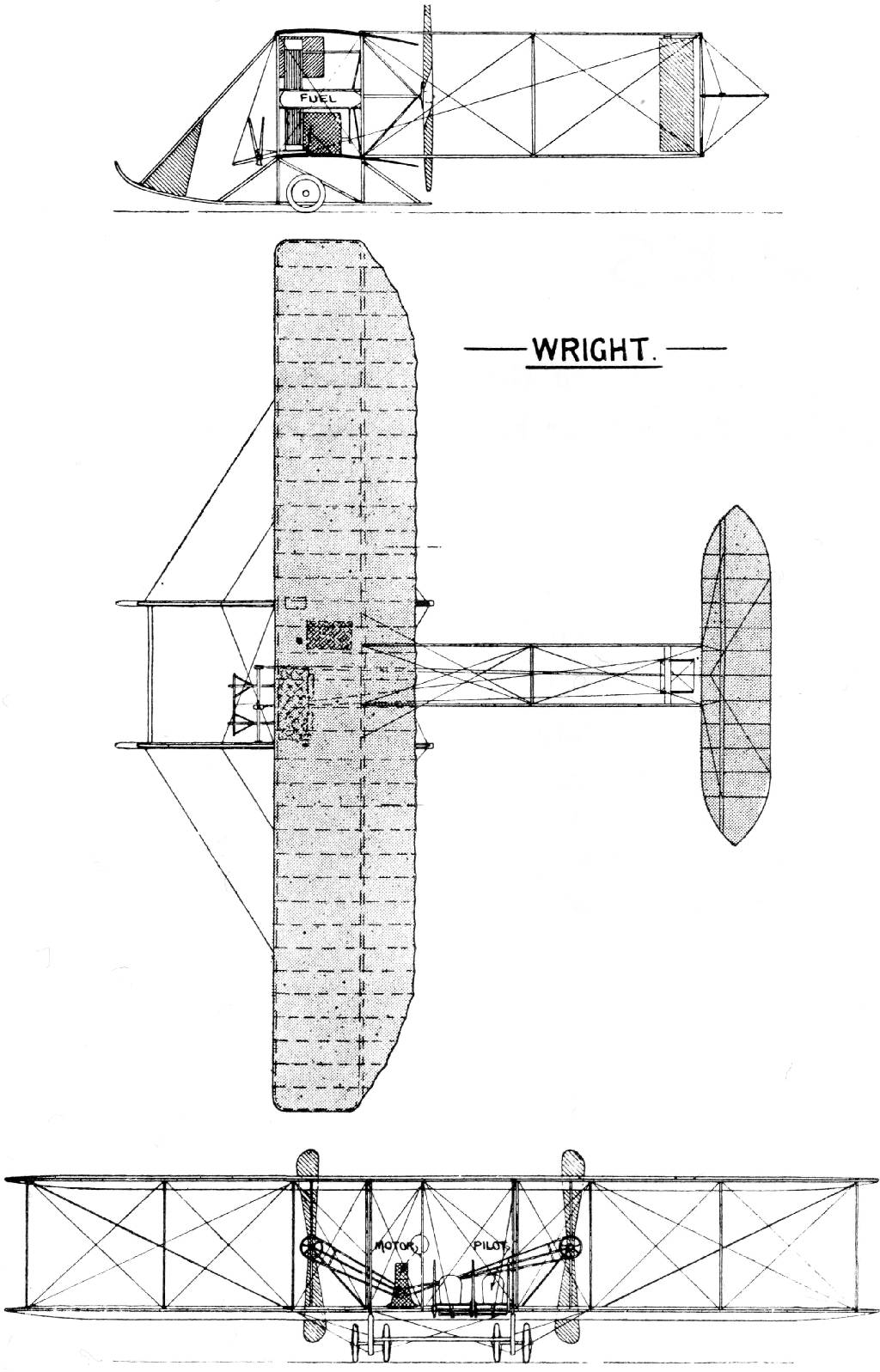
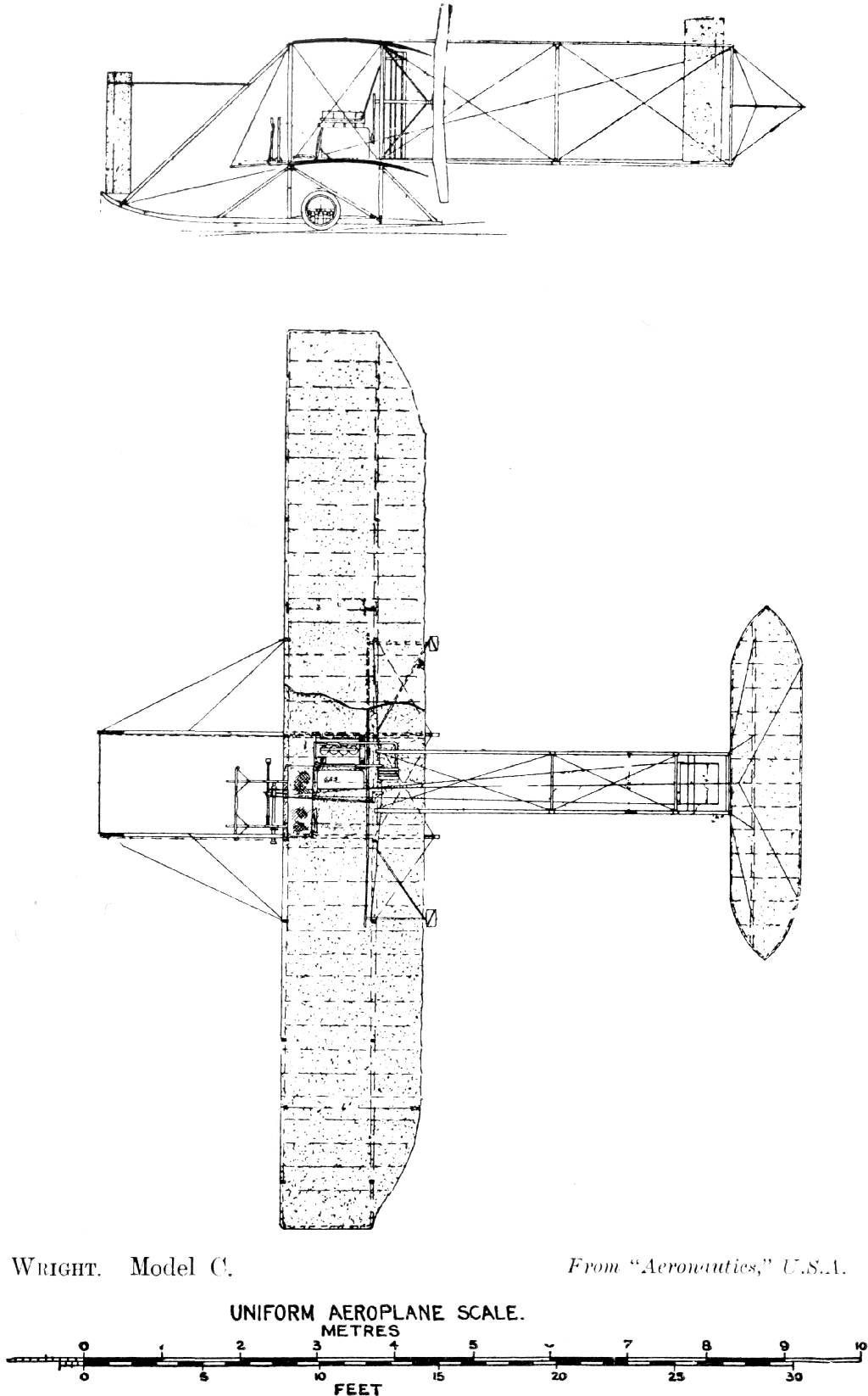
There are a few small dirigibles in the U.S.A., but they are in no way to be compared to French and German productions. Up-to-date, they have only been used as attractions at fairs about the country. In the past several larger ones of poor design have been built and found failures.
(1908) 20,000 c. feet (560 m³)[Pg 1b]
In the following pages an attempt has been made to include photographs of all aeroplanes of the past six years, which, for one reason or another, "made history" in their own day.
While many are merely freak machines, which in the light of present knowledge seem ridiculous, the germ of modern practice is to be found in many other aircraft illustrated in this cemetery of dead ideals; and it is worth noting that at least one constructor, who is one of the first in the field to-day, commenced operations with machines which were entirely "freaks."[Pg 2b]
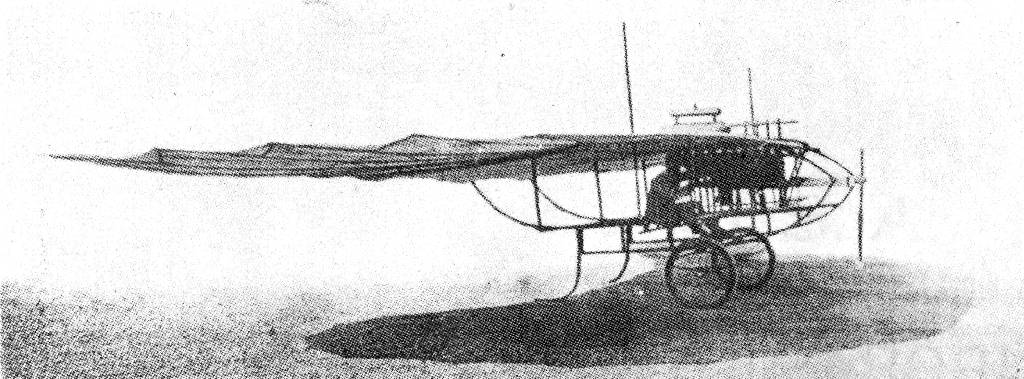
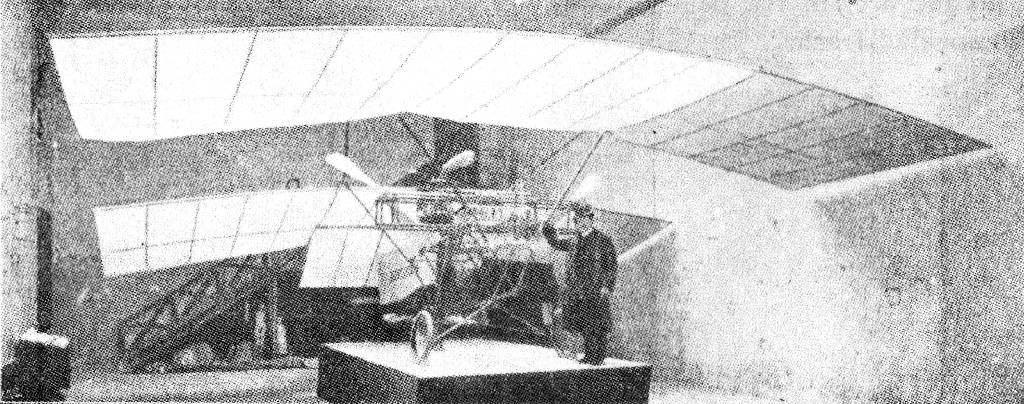
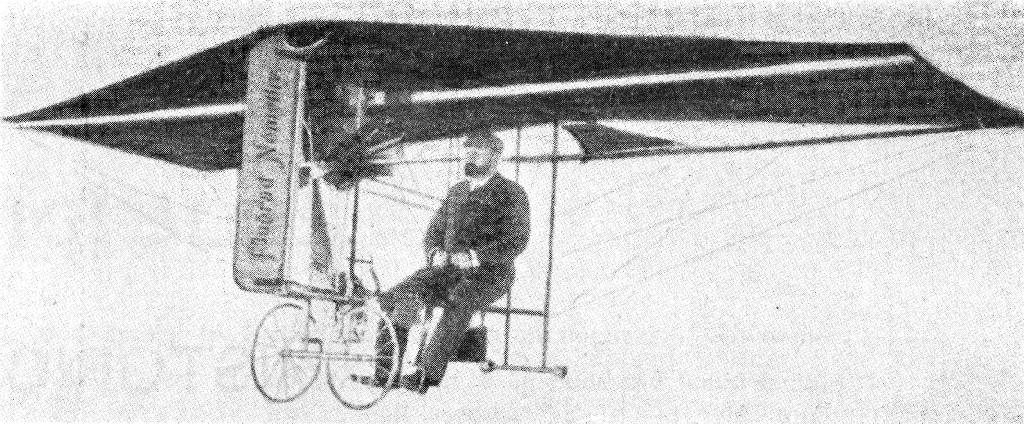

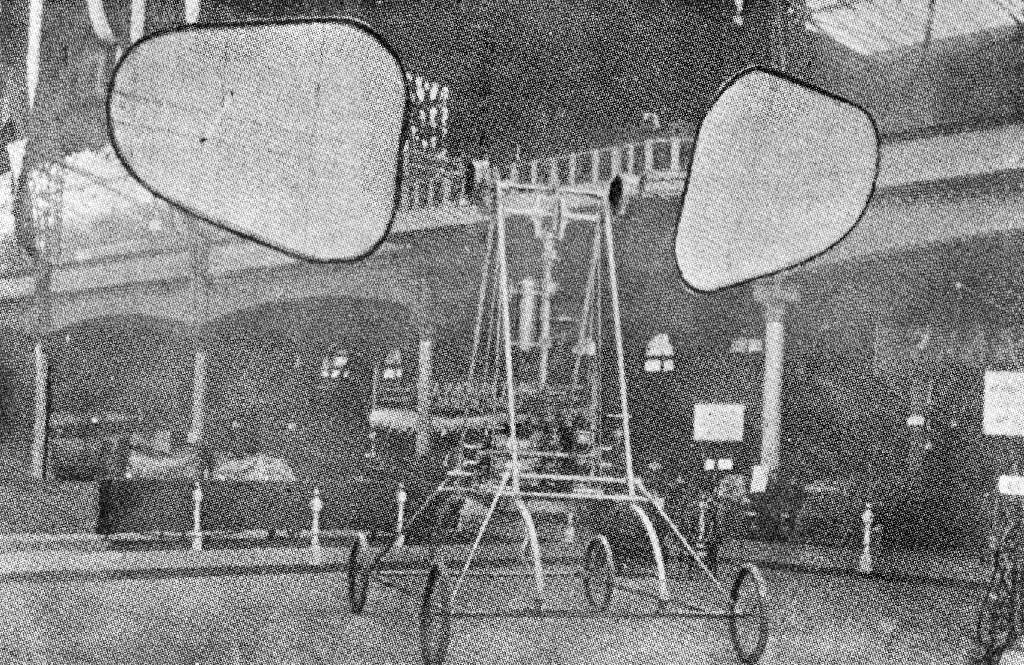
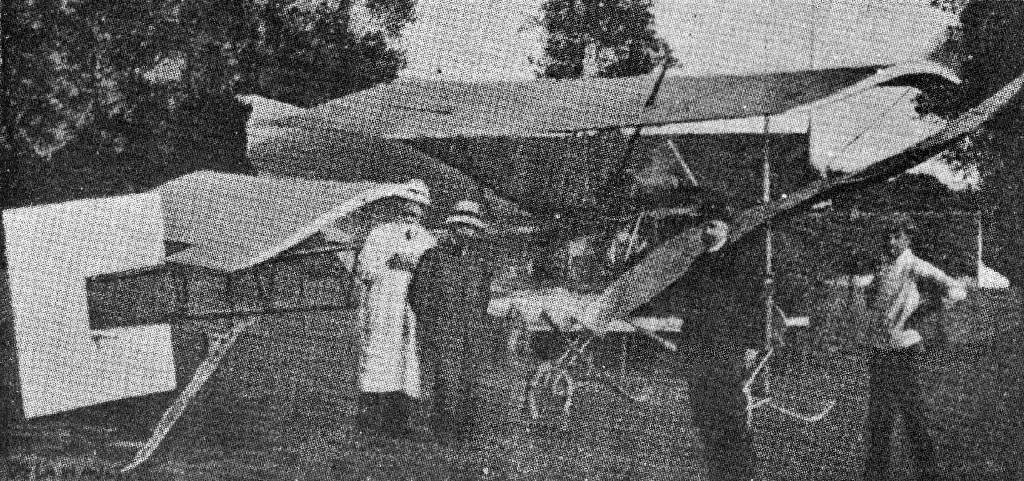
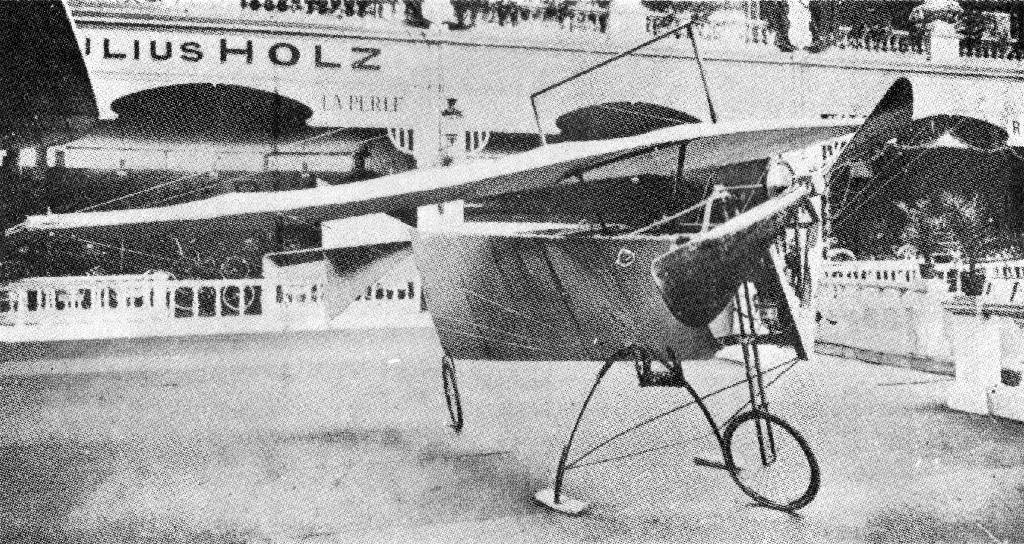
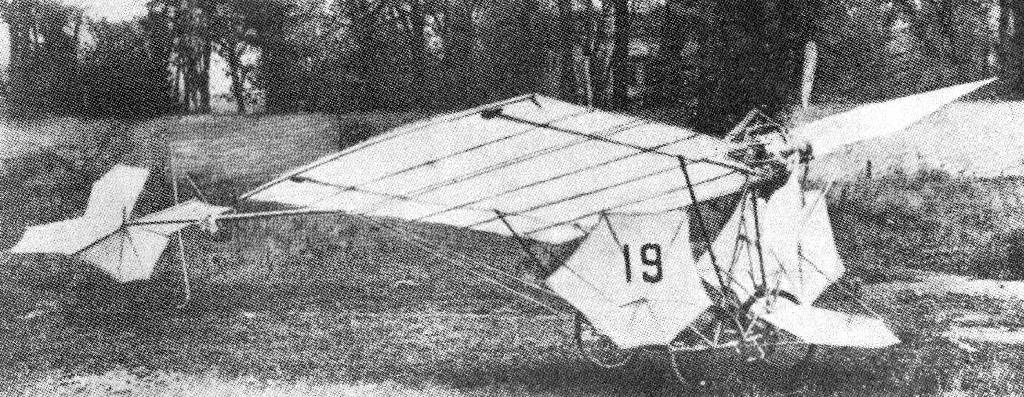
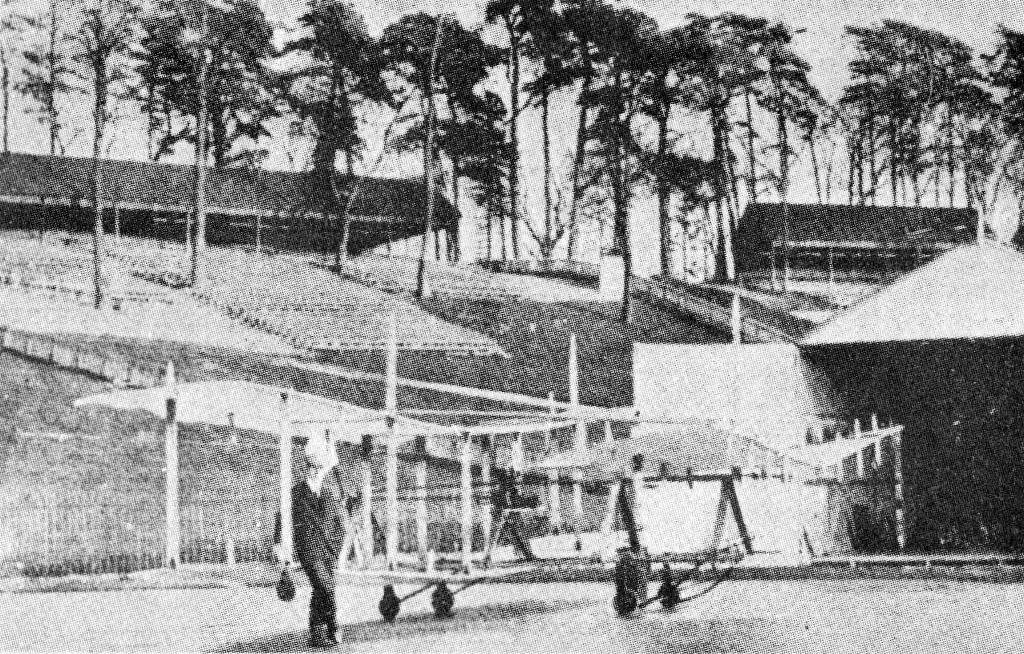
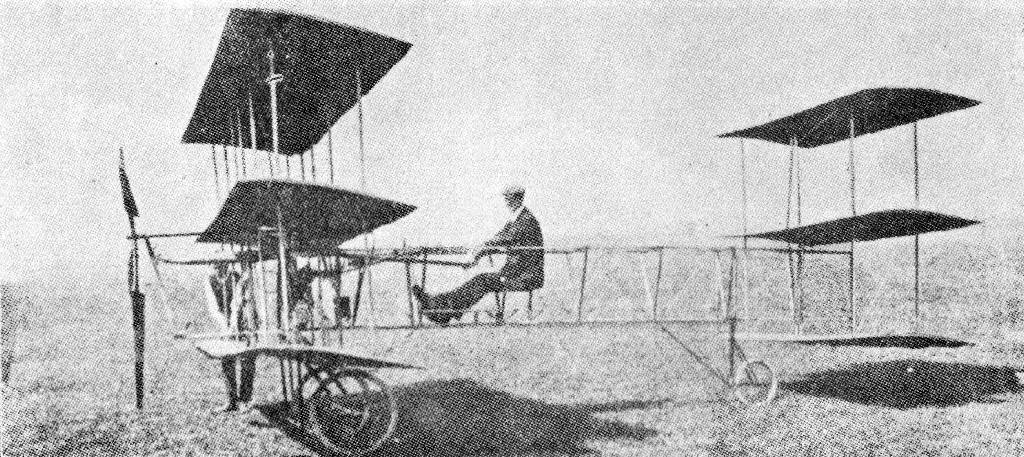

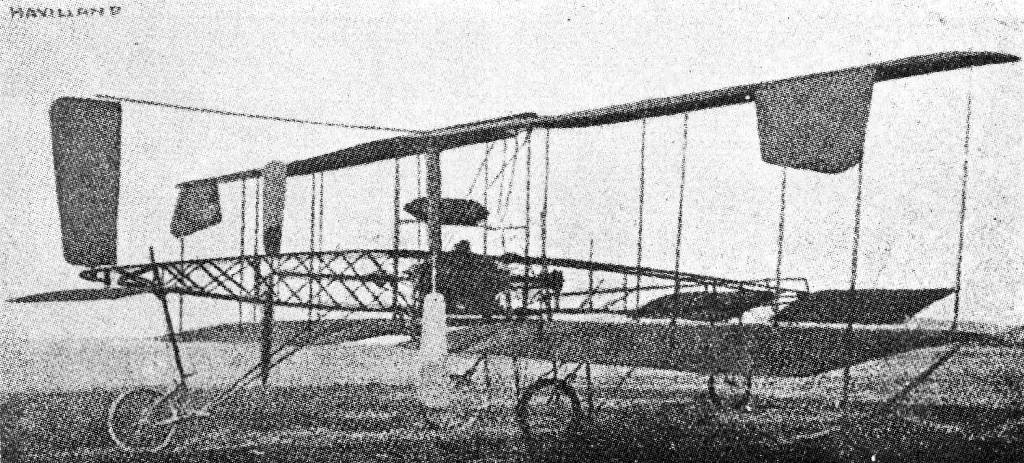
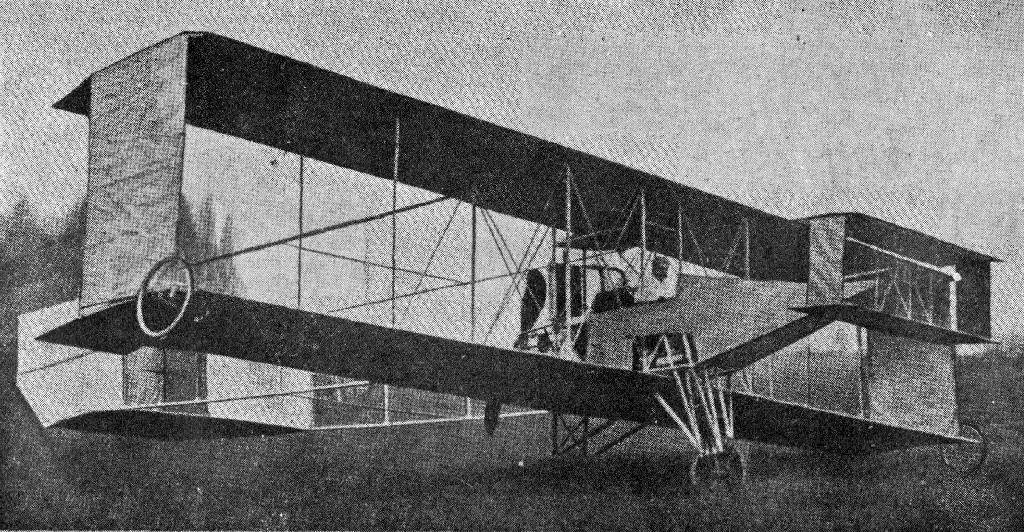
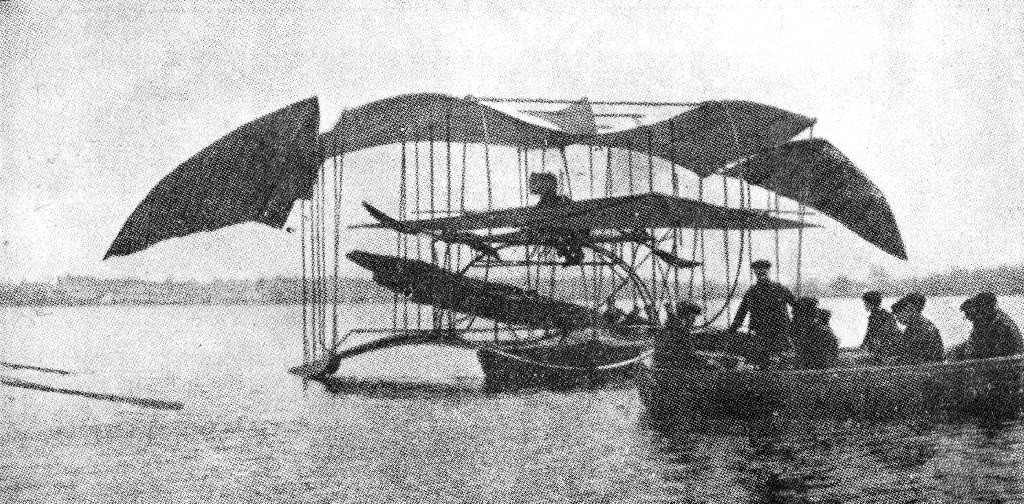

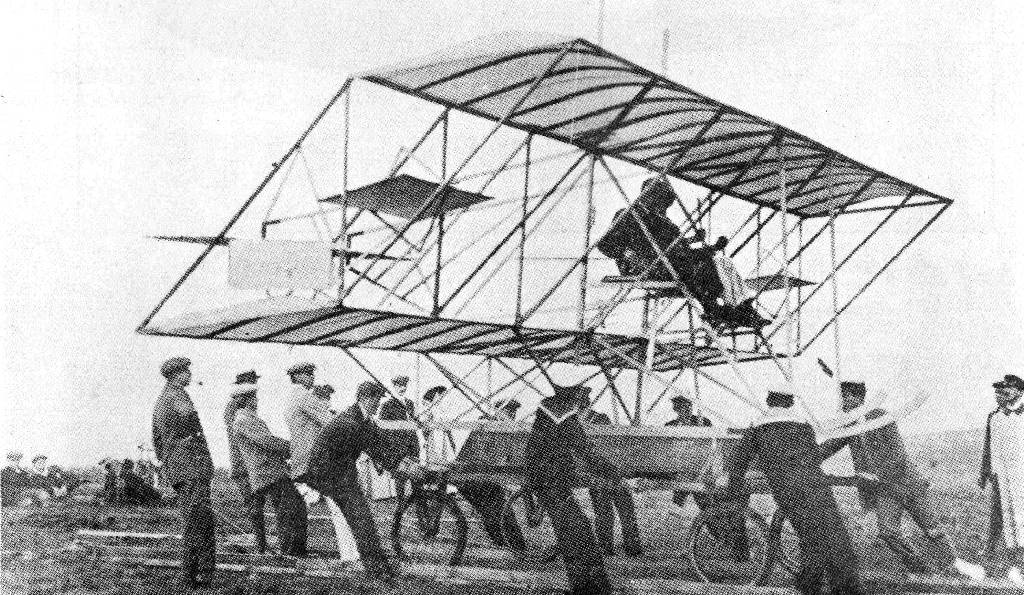
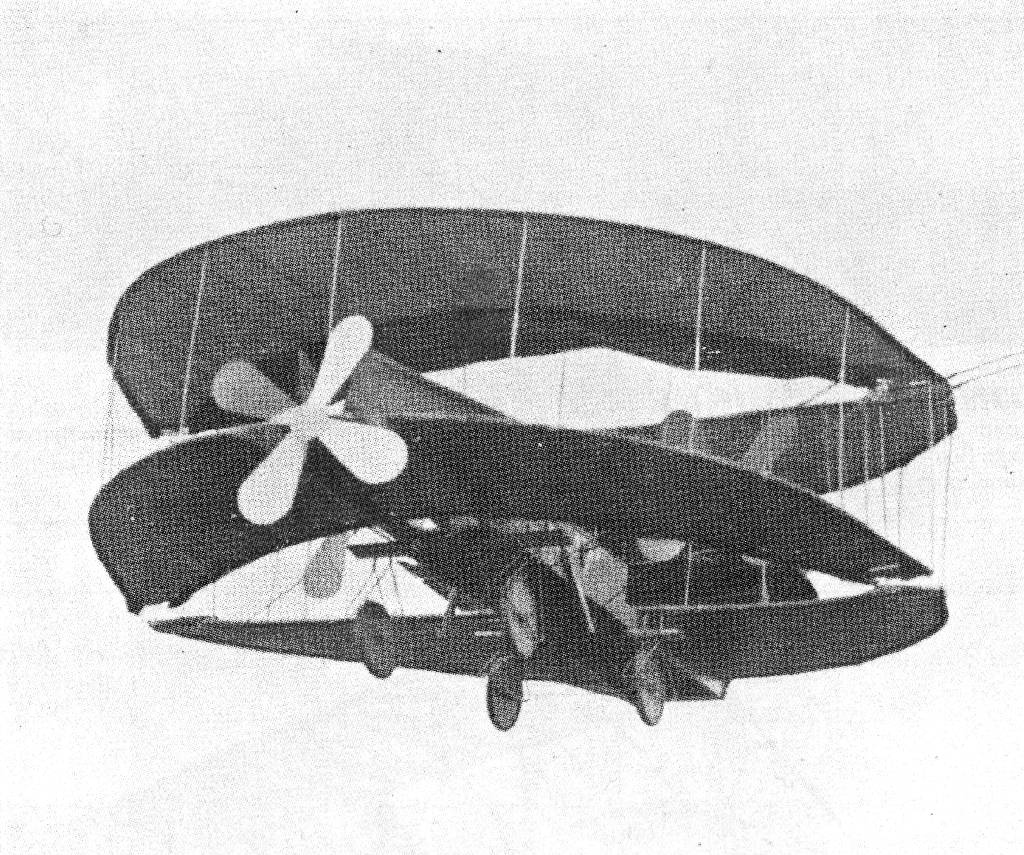


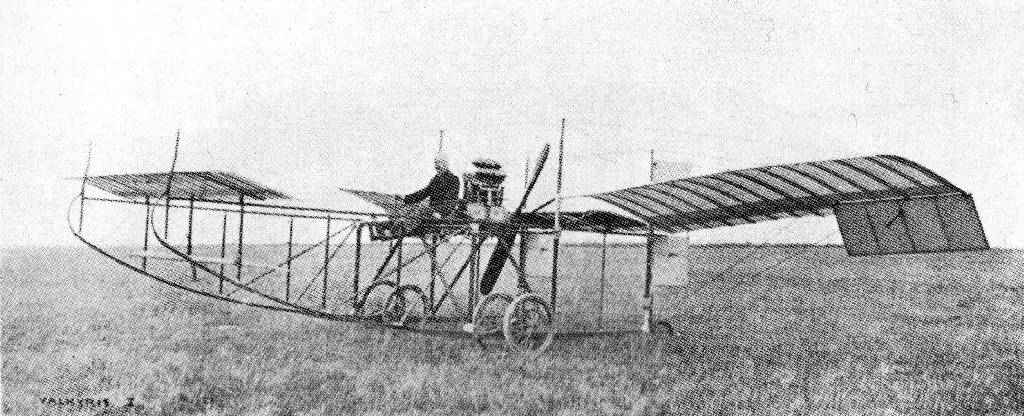
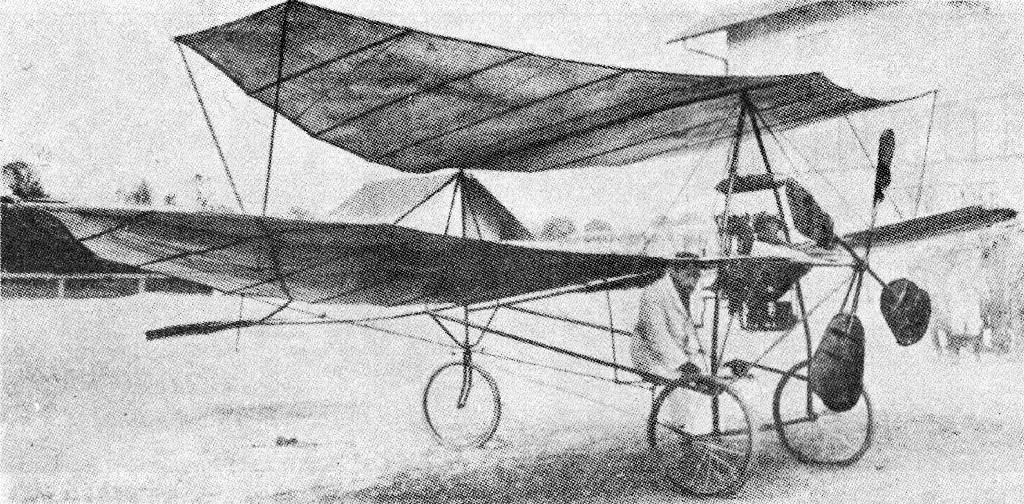
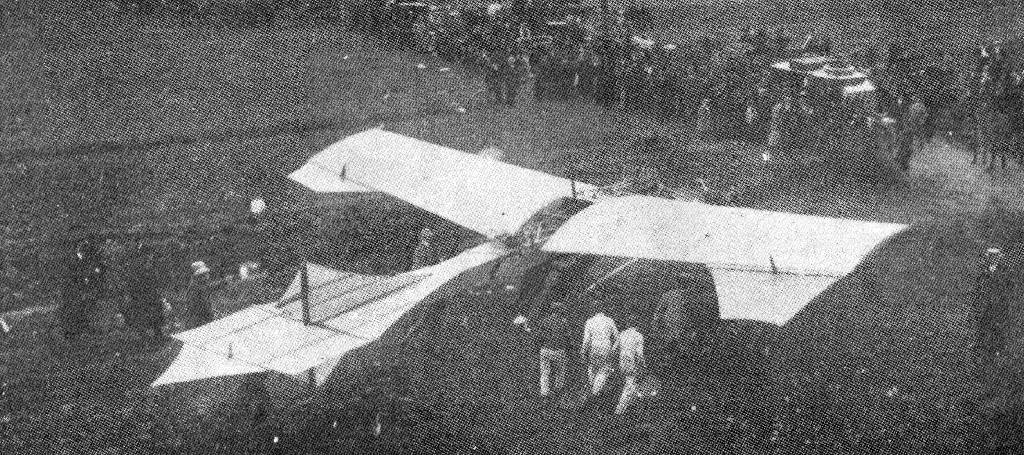
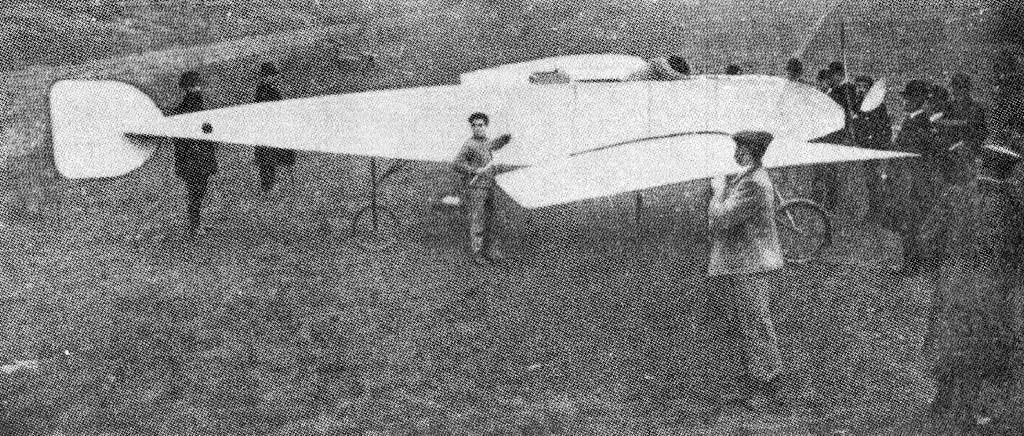
In 1909 the famous Bleriot XI was built. This did very well at Reims, 1909. On 25th July, 1909, Bleriot made the first Cross-Channel flight in the machine illustrated below.
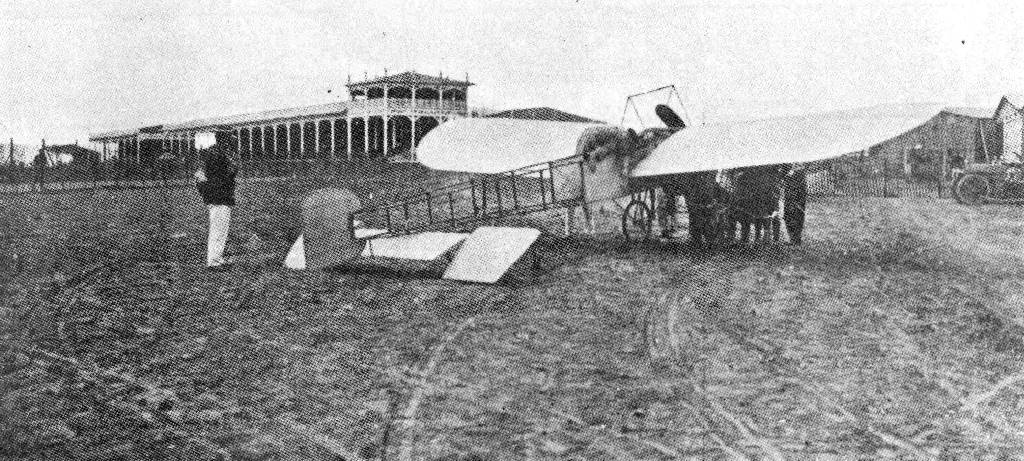
This machine had length, 23 feet (7 m.) Span, 25¾ feet (7.80 m.) Area, 167 sq. feet (15½ m².) Aspect ratio 4½ to 1. Motor, 22-25, 3 cylinder Anzani. Speed, about 45 m.p.h. (73 k.m.) Special features: Fixed wings with rounded edges. Twin elevator and fixed surface tail.
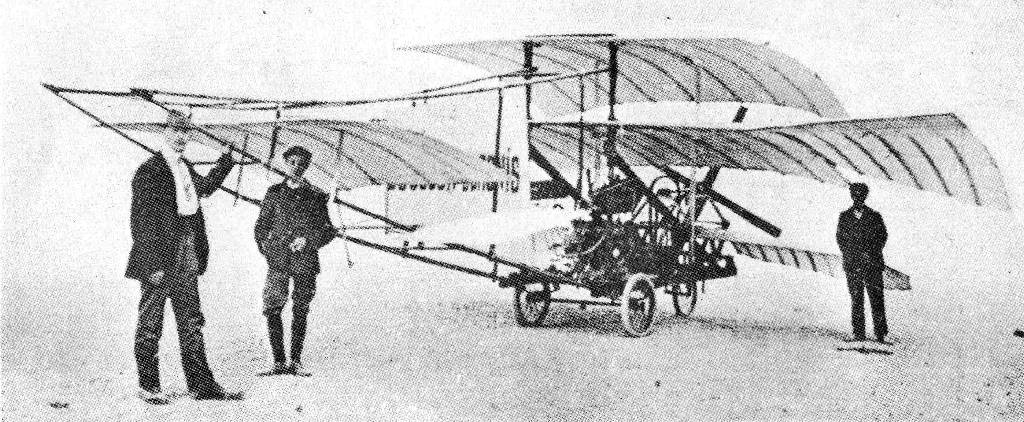

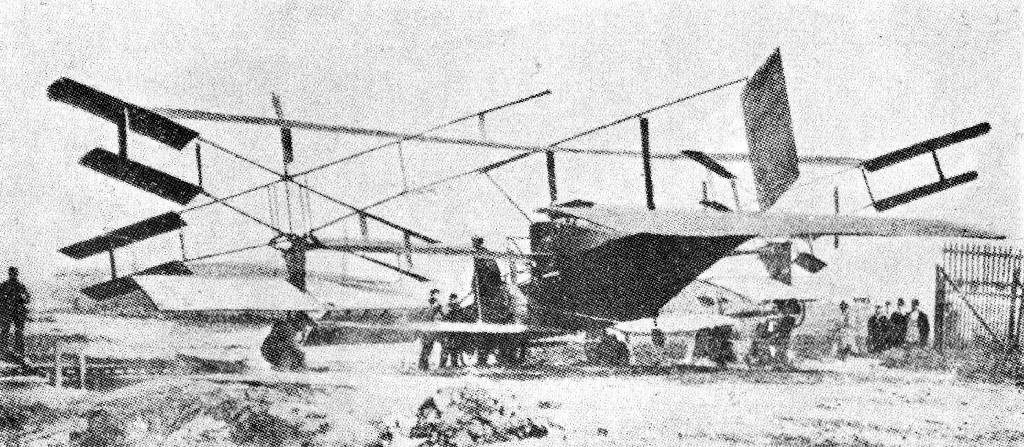
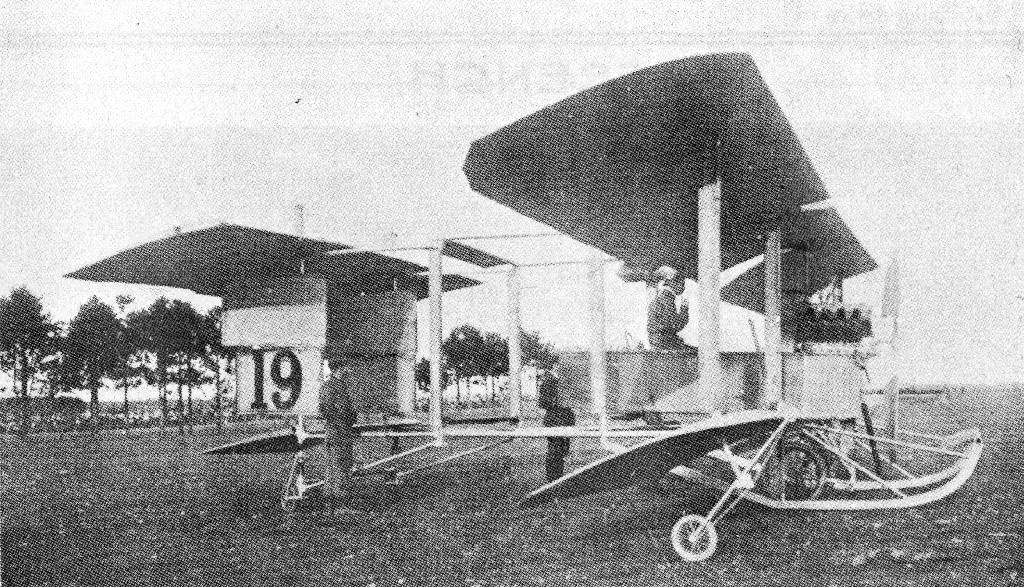
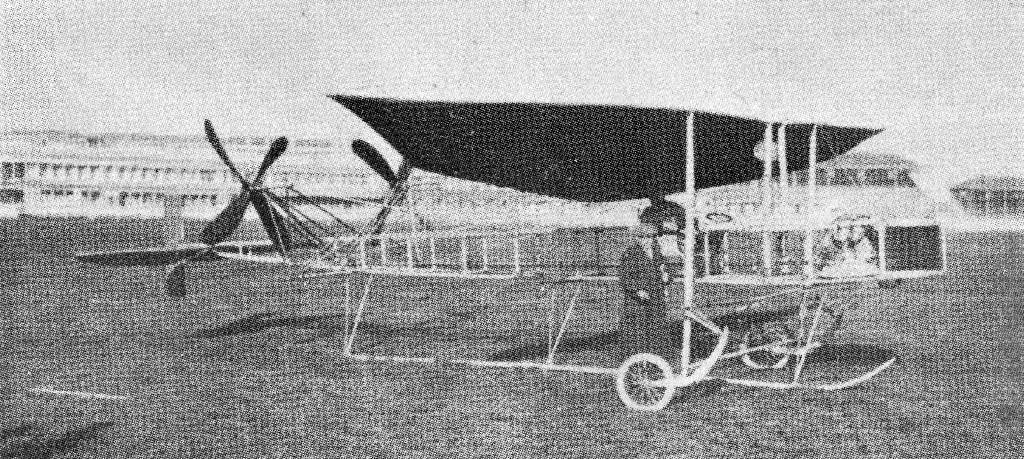
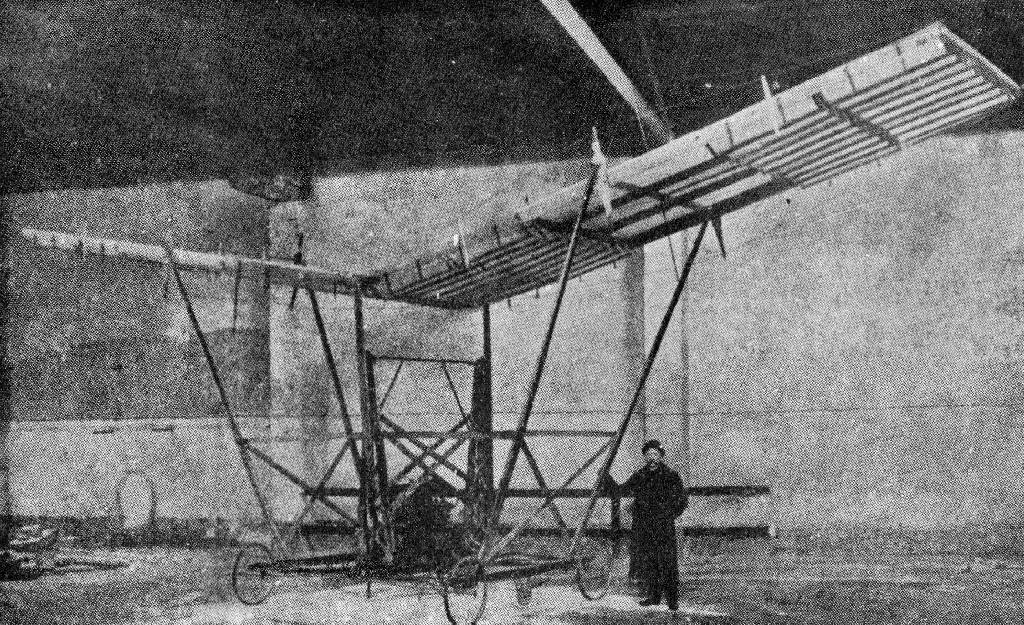
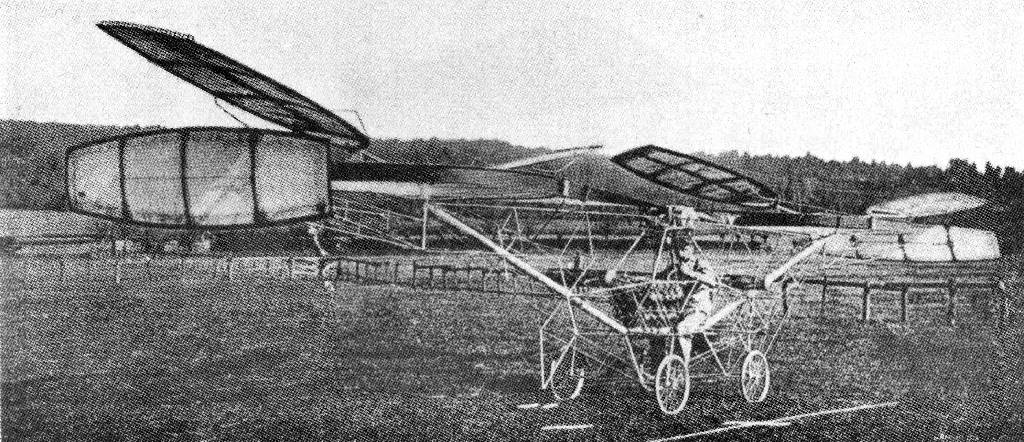
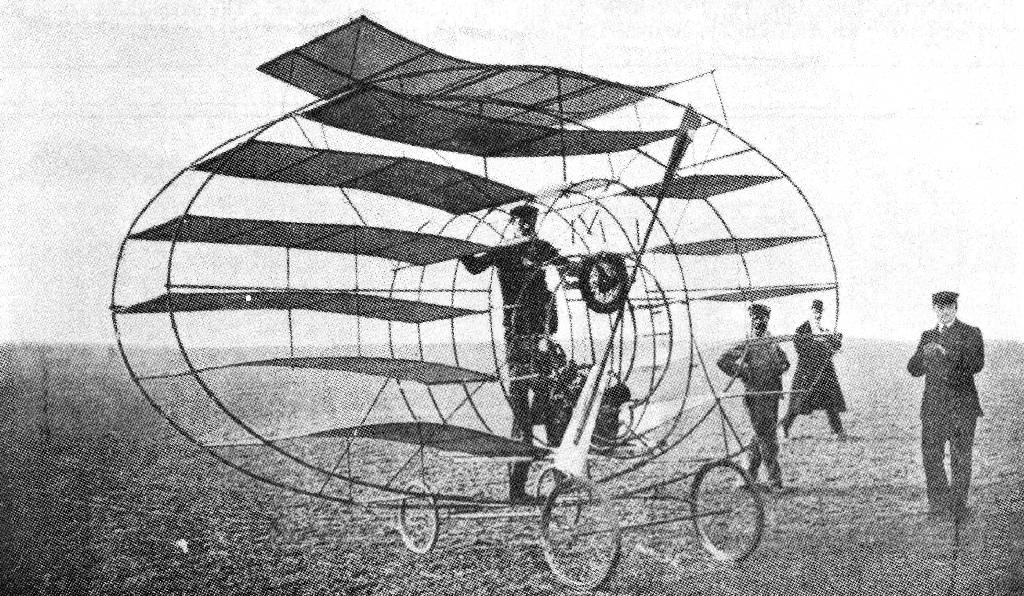
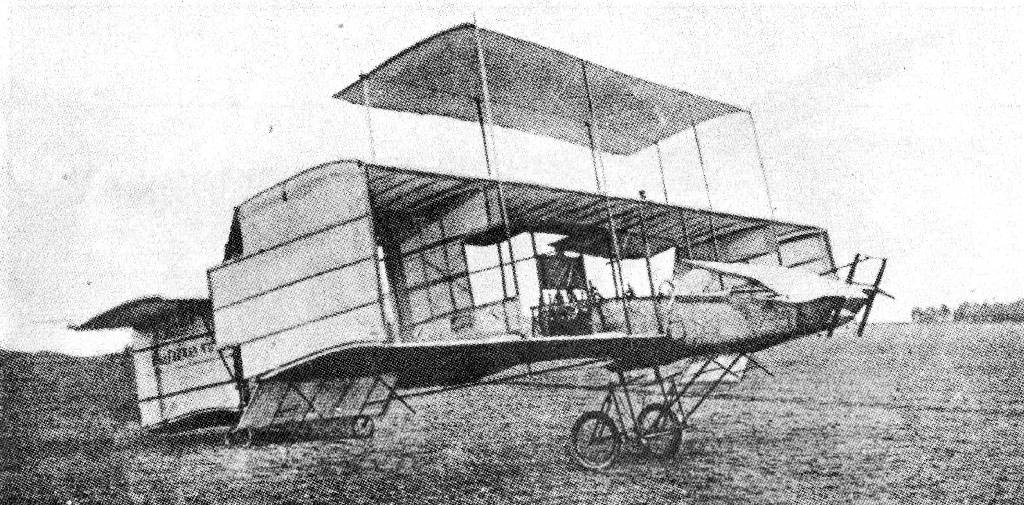
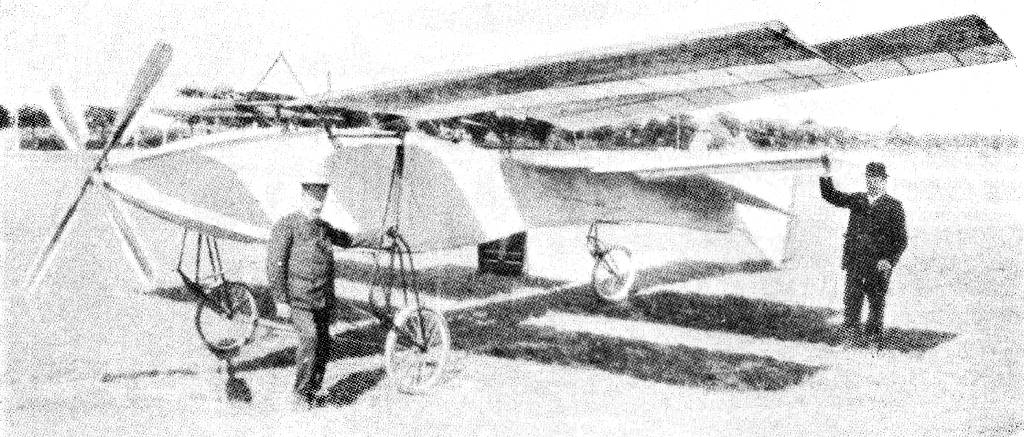

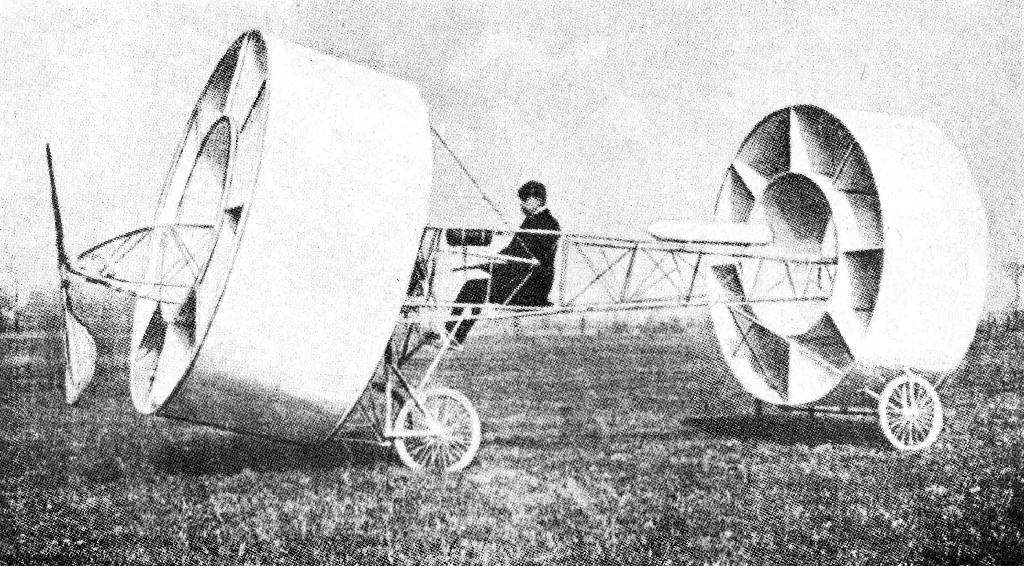
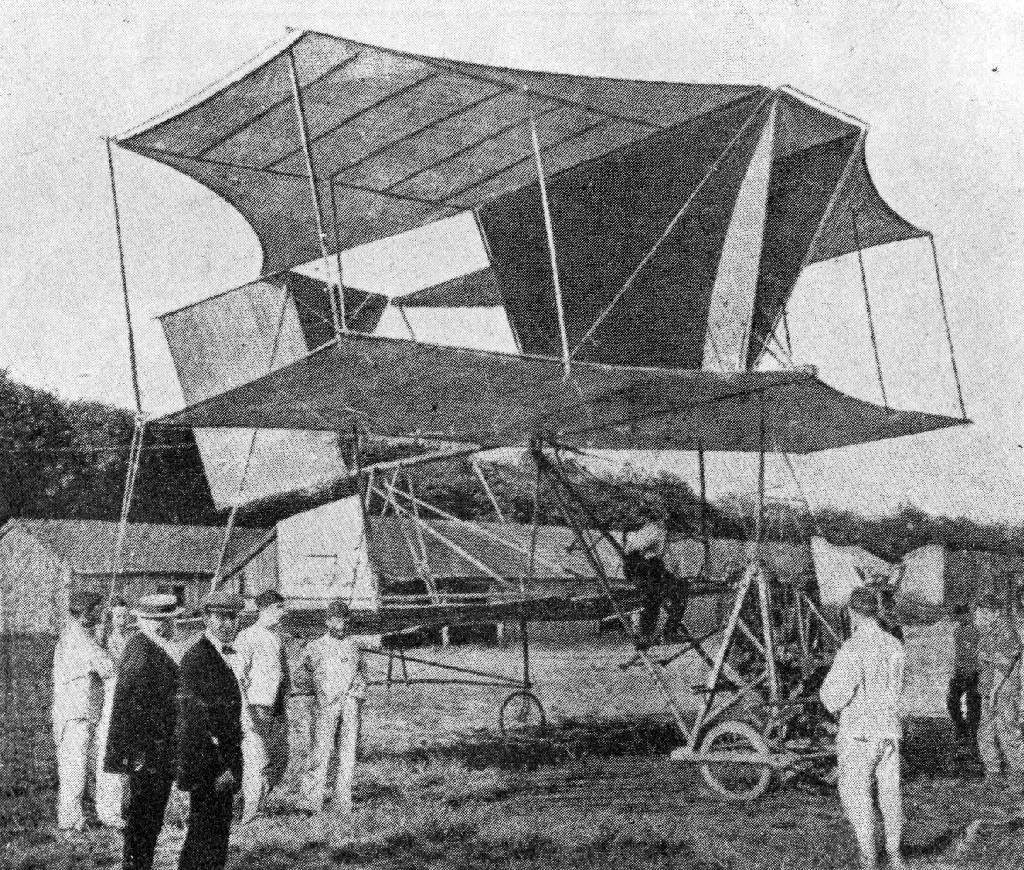
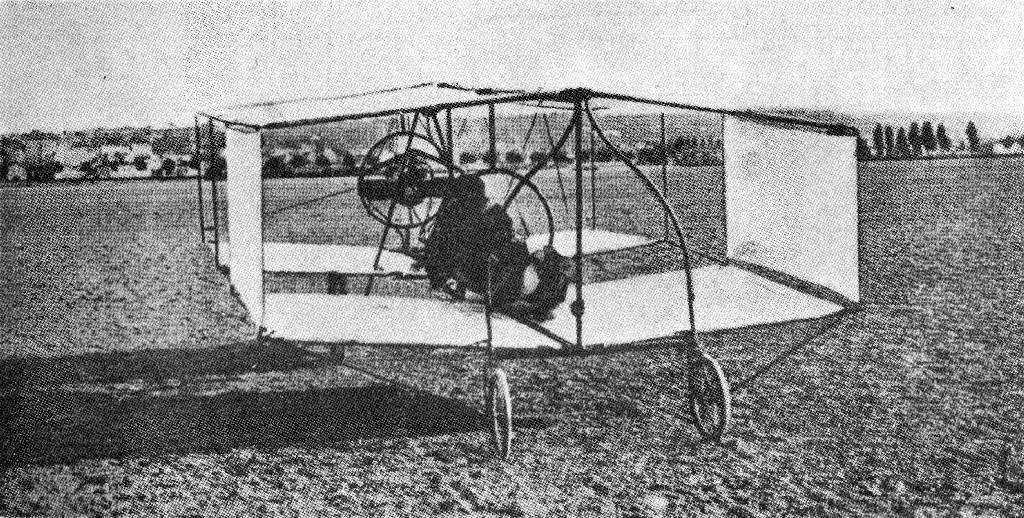
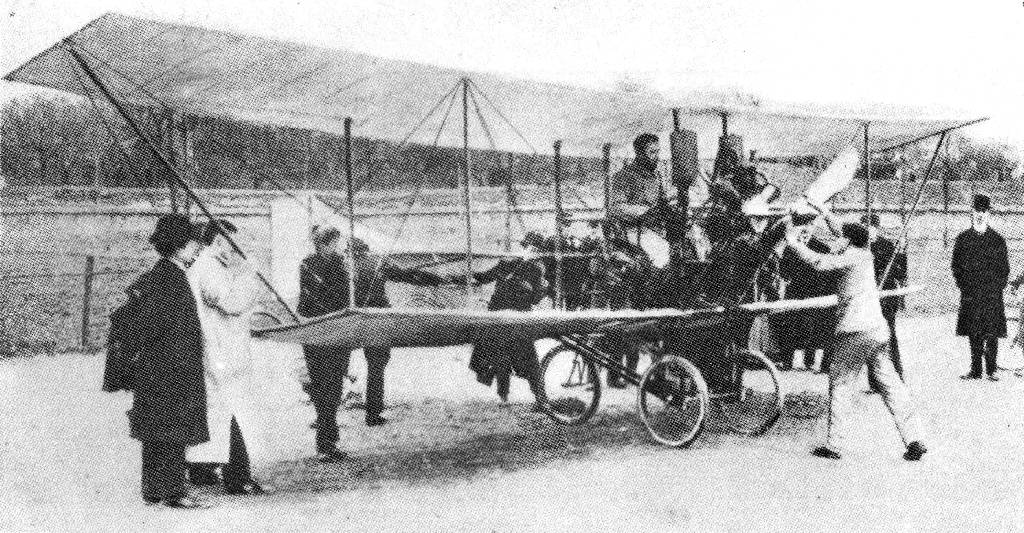

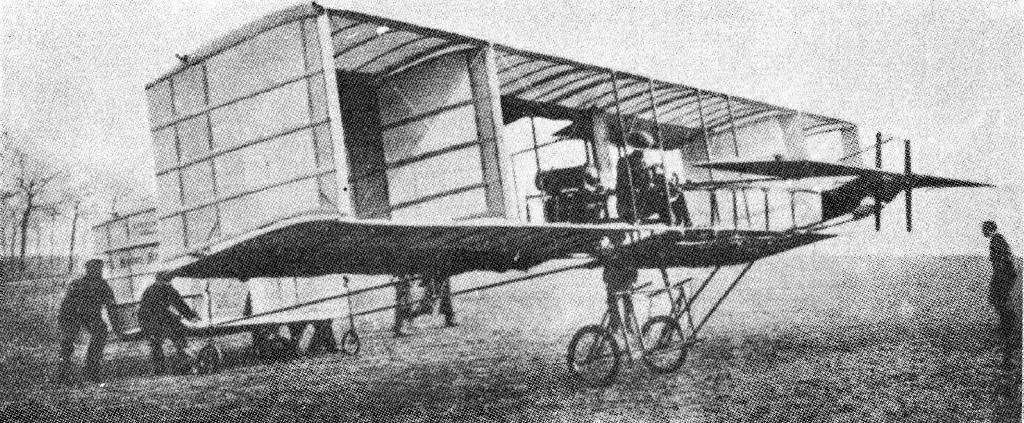
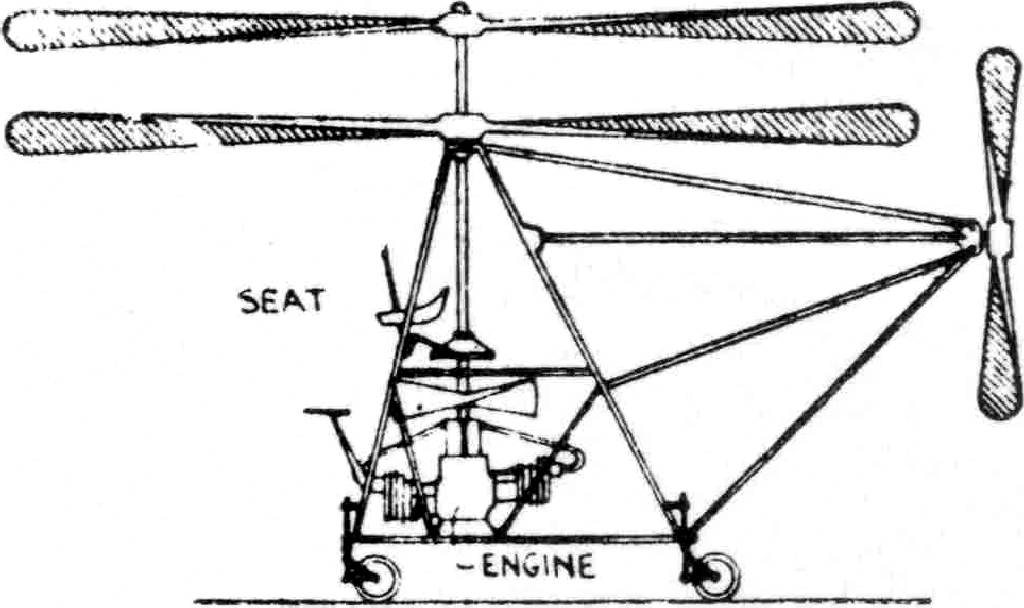
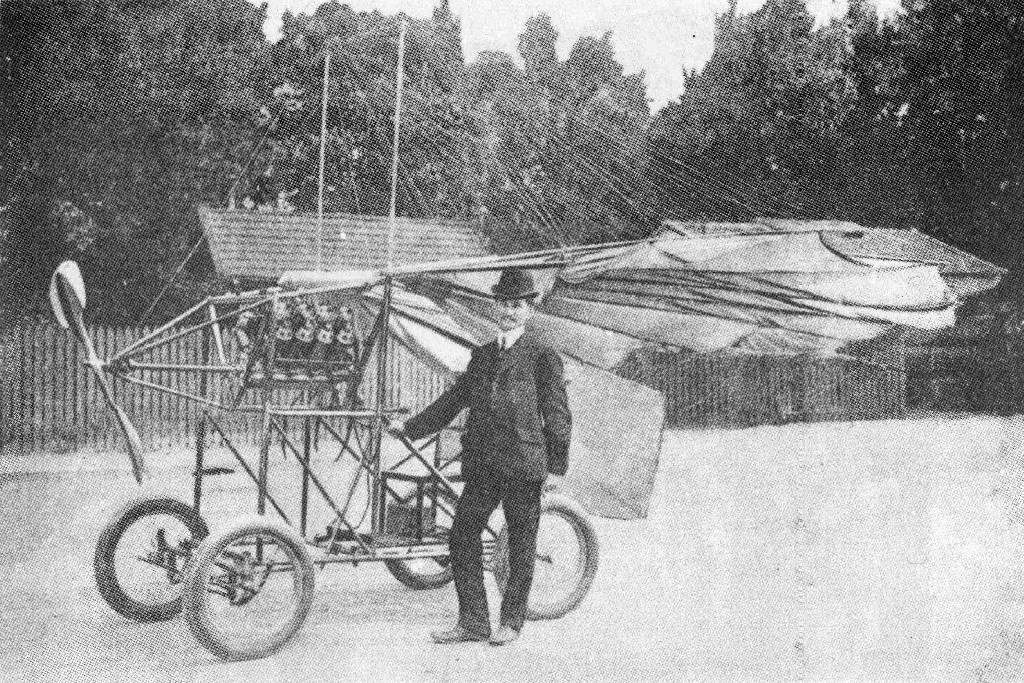
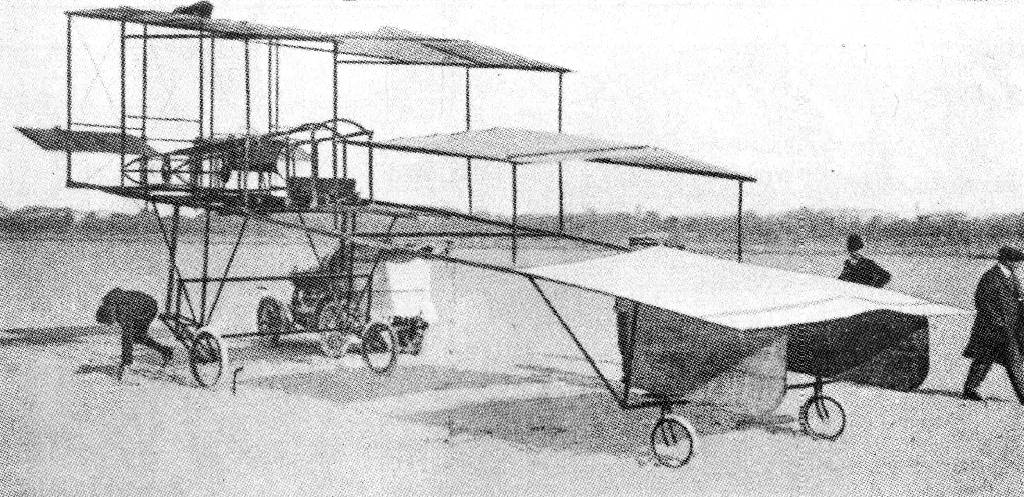
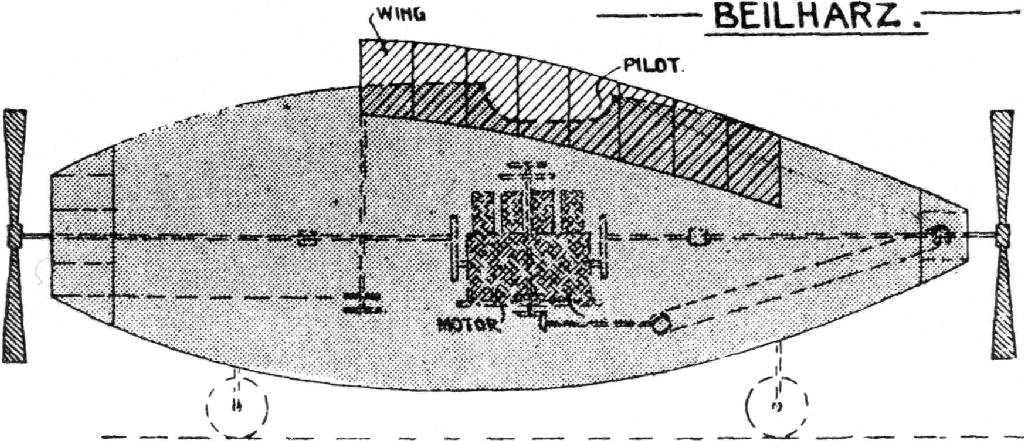

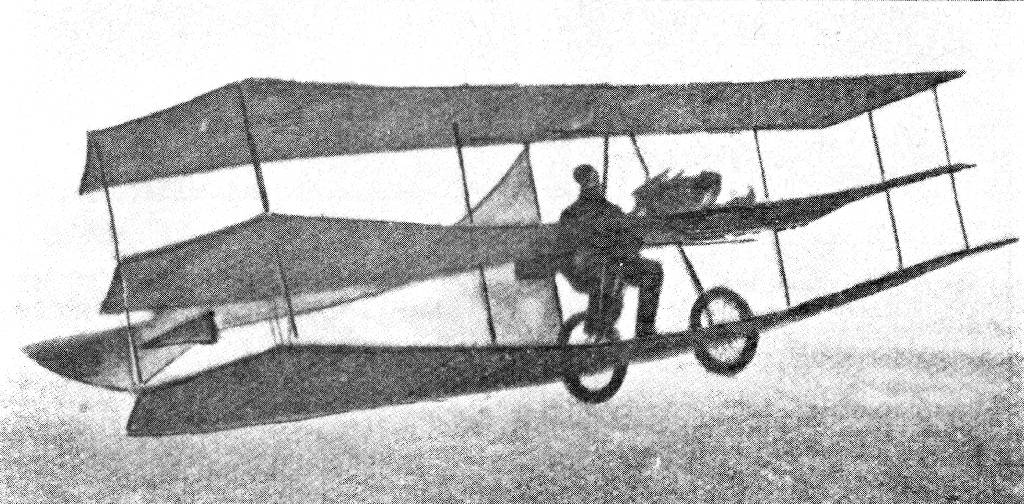
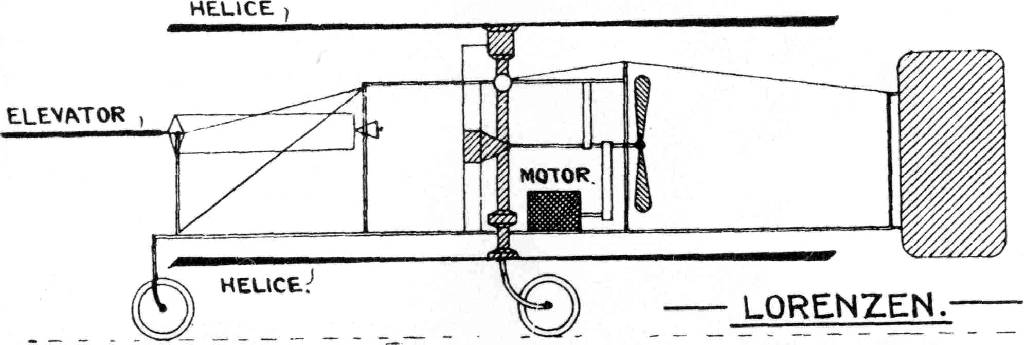
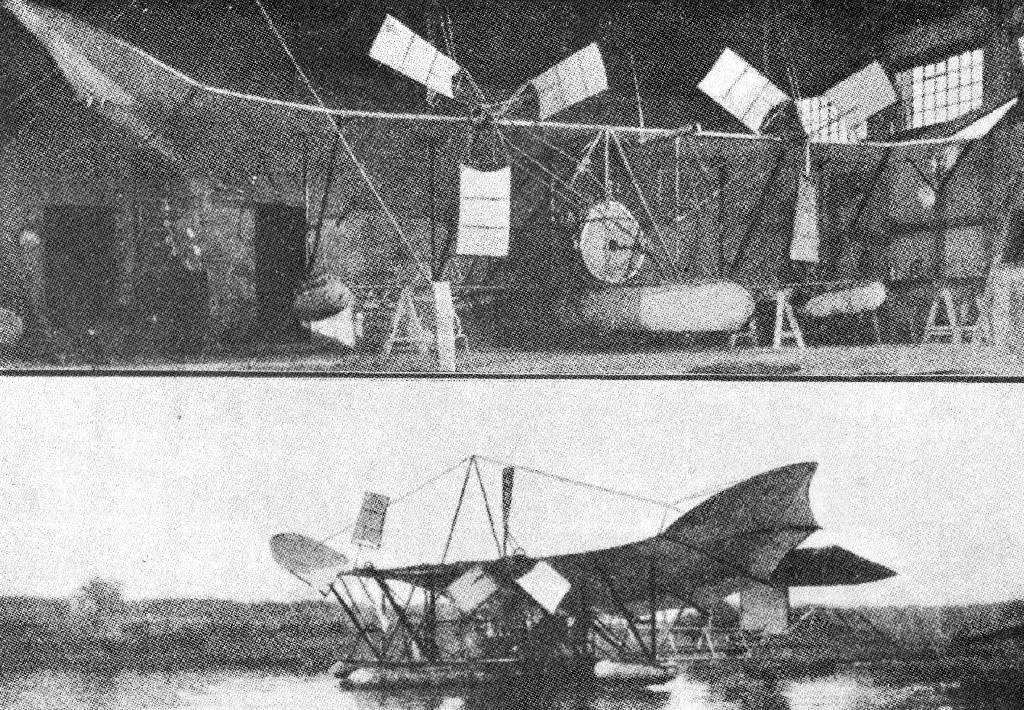
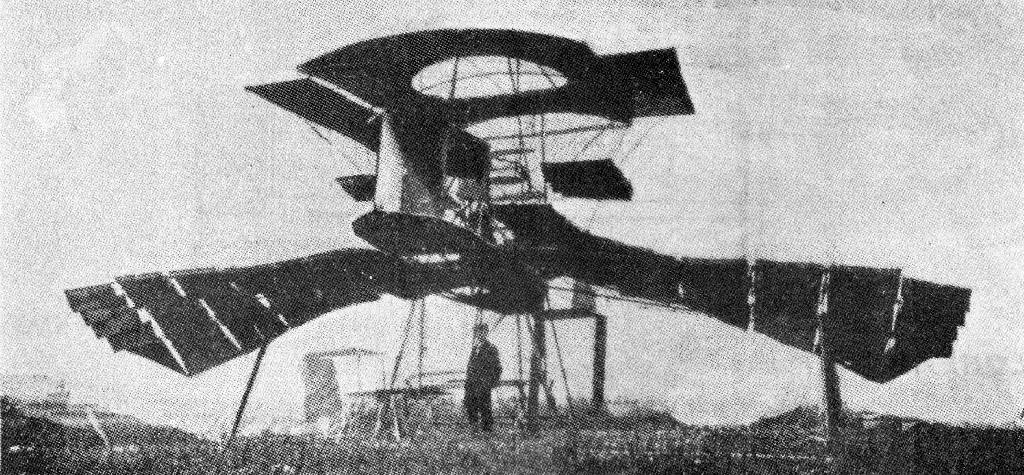

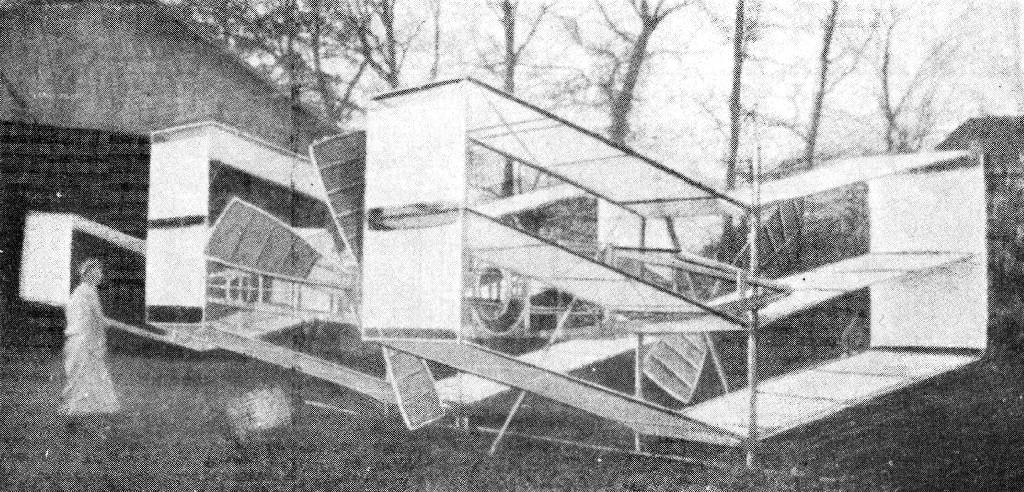
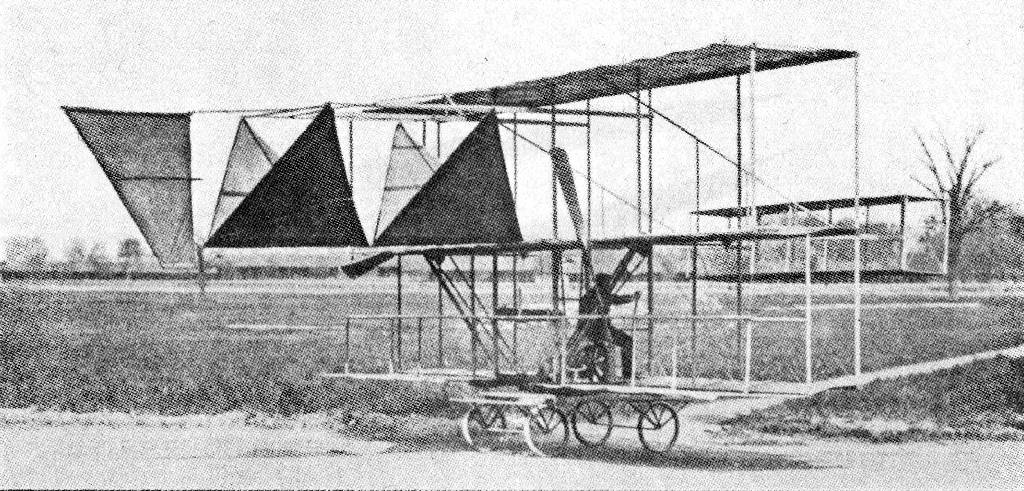
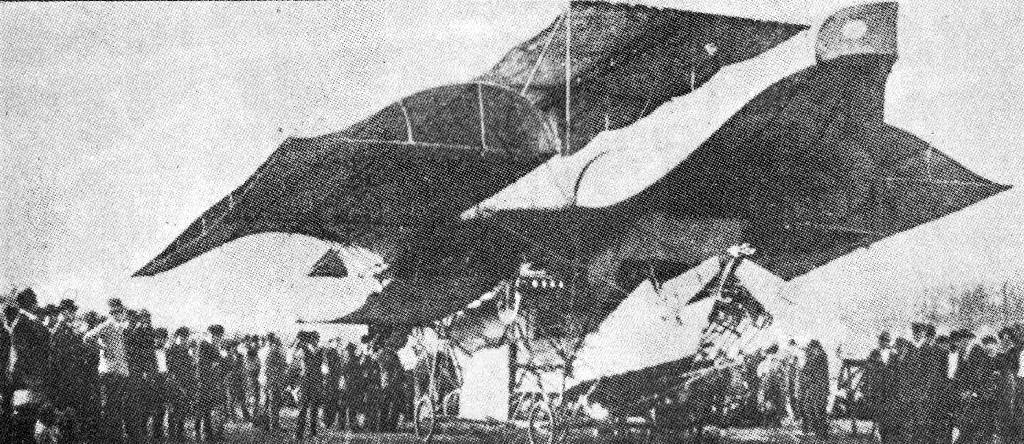
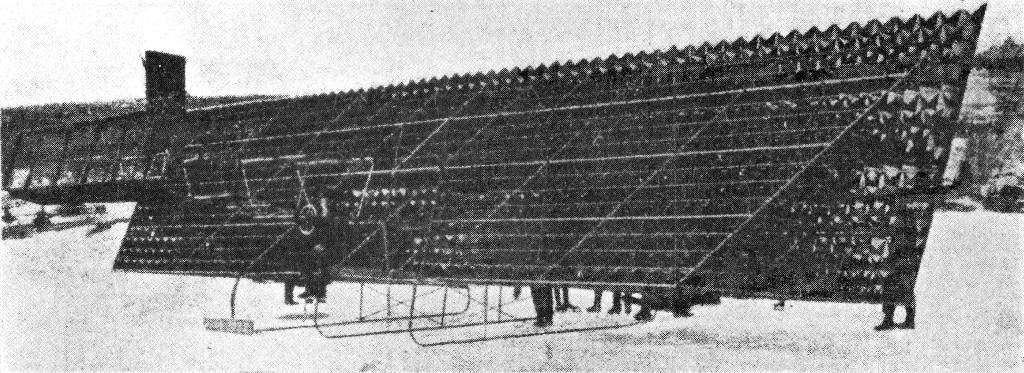
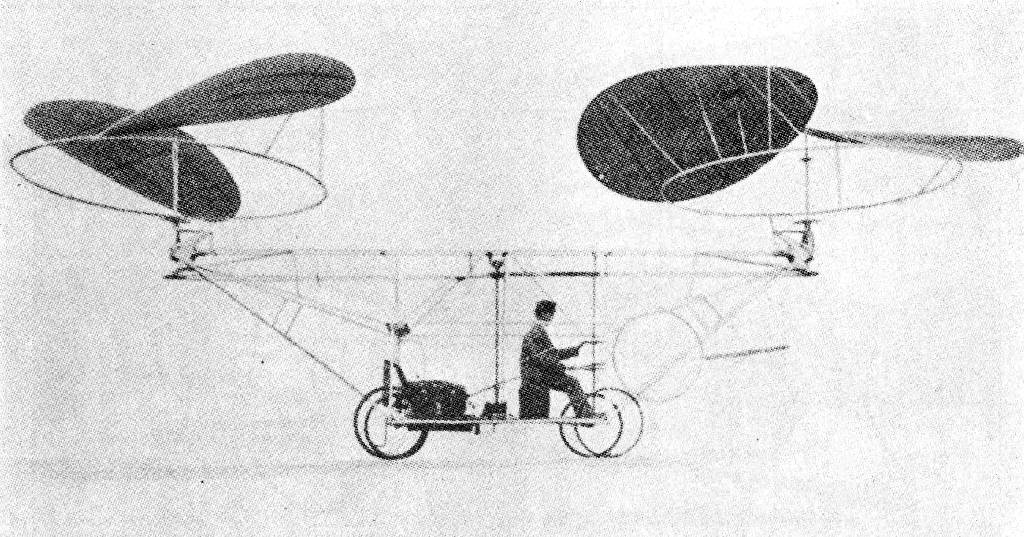
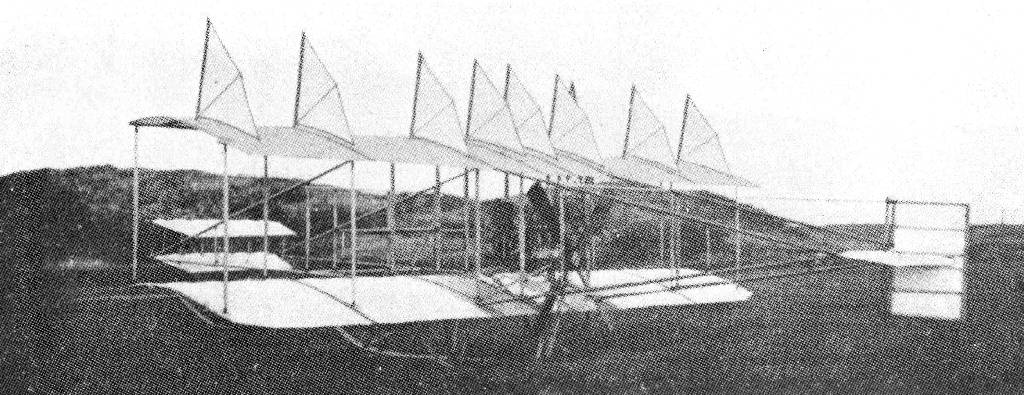
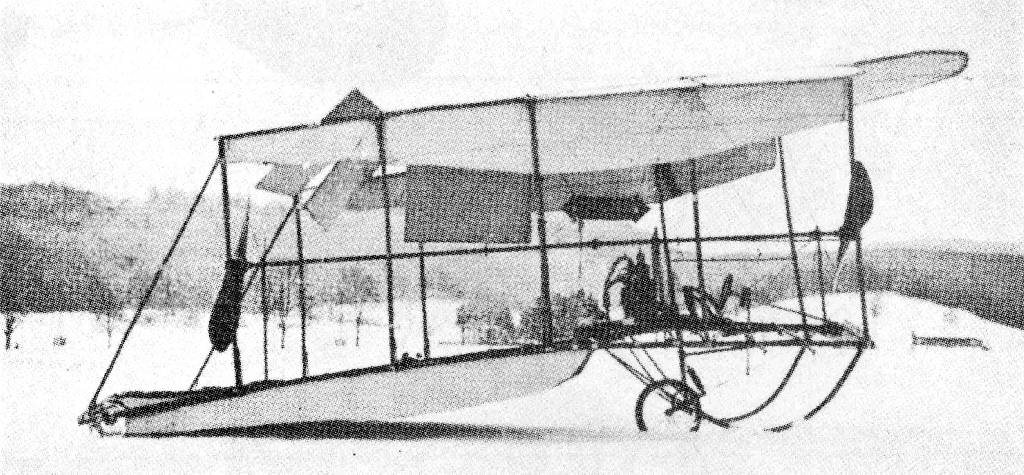
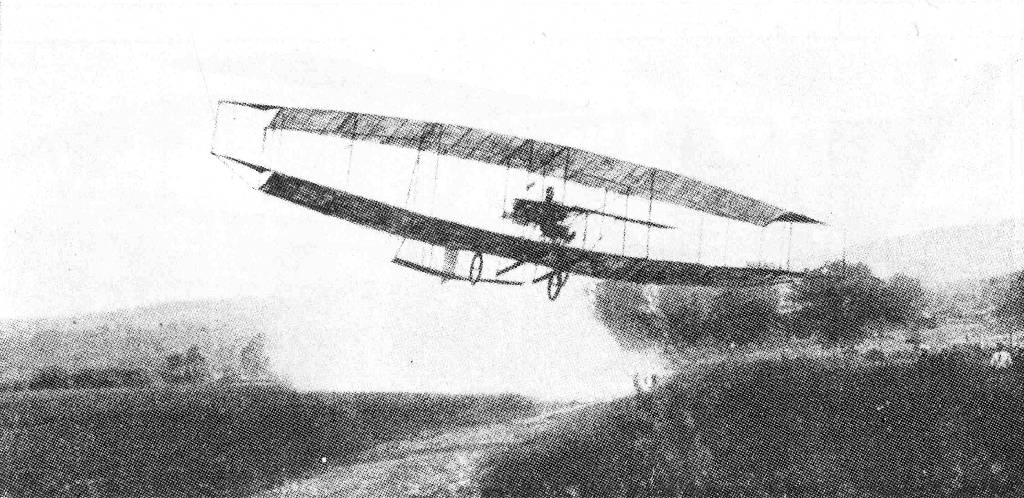
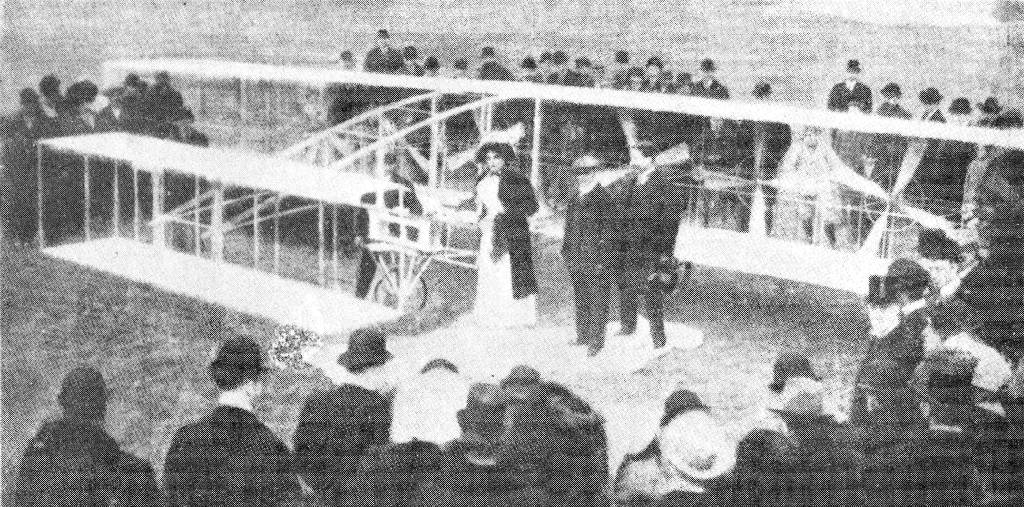
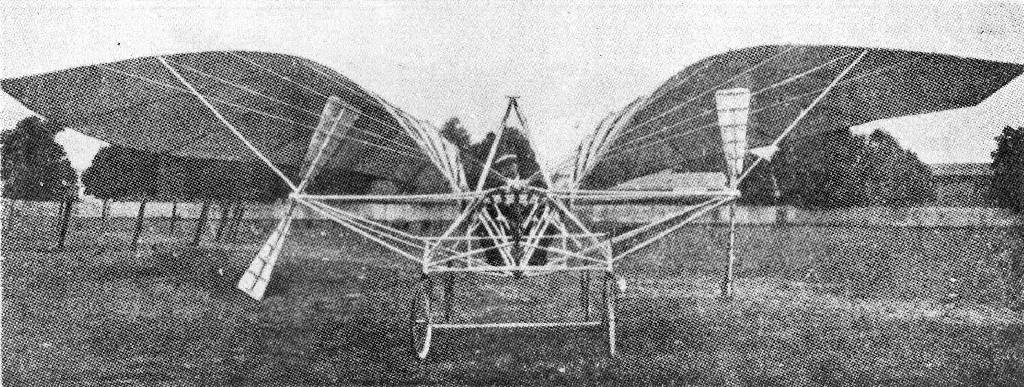
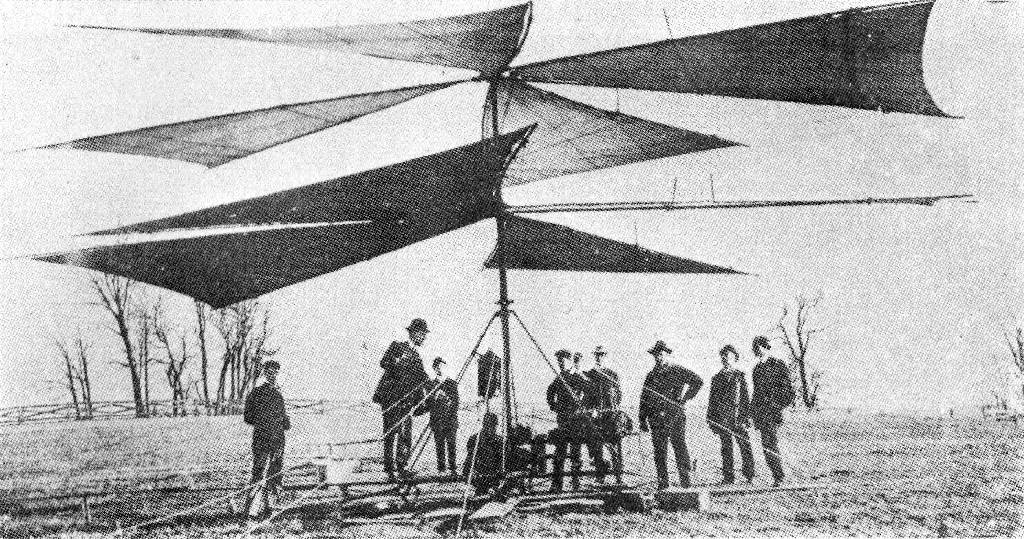

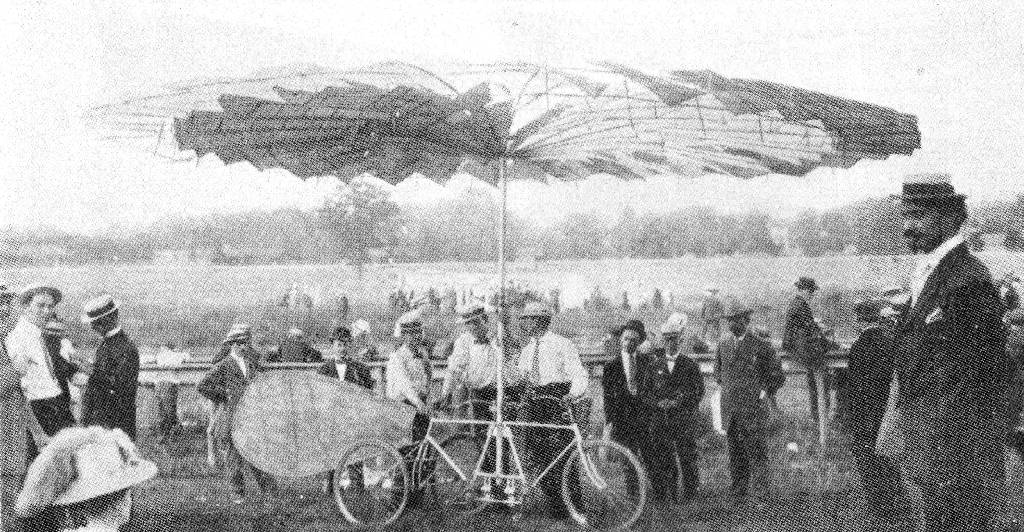
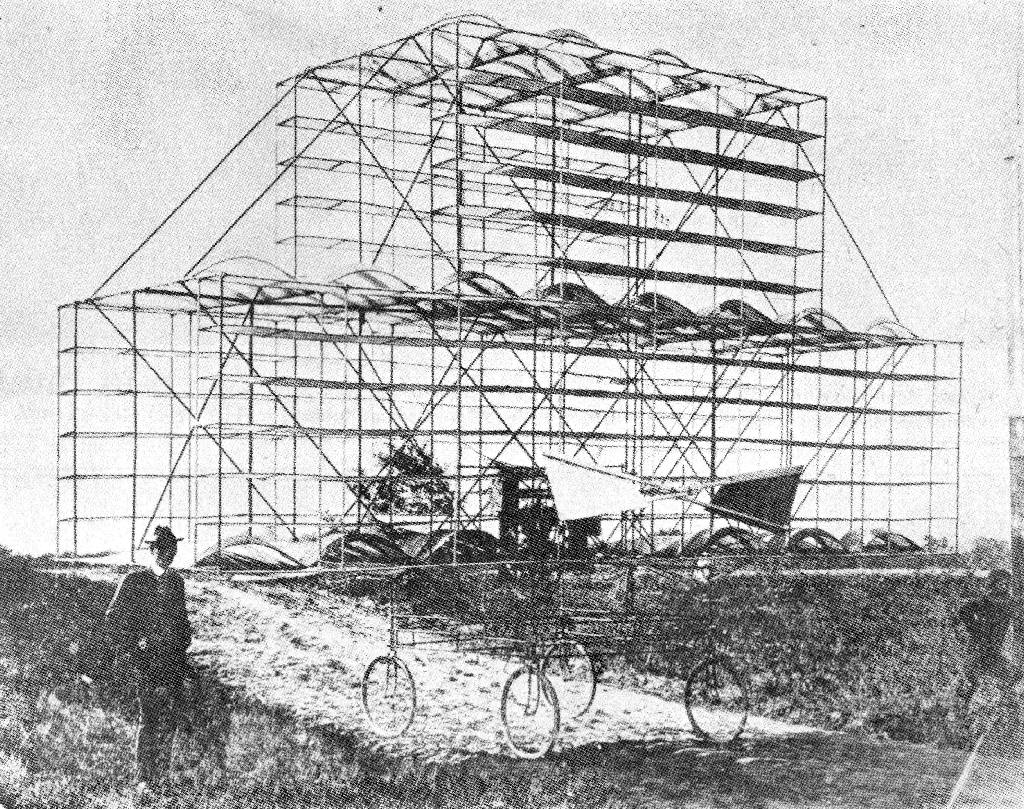
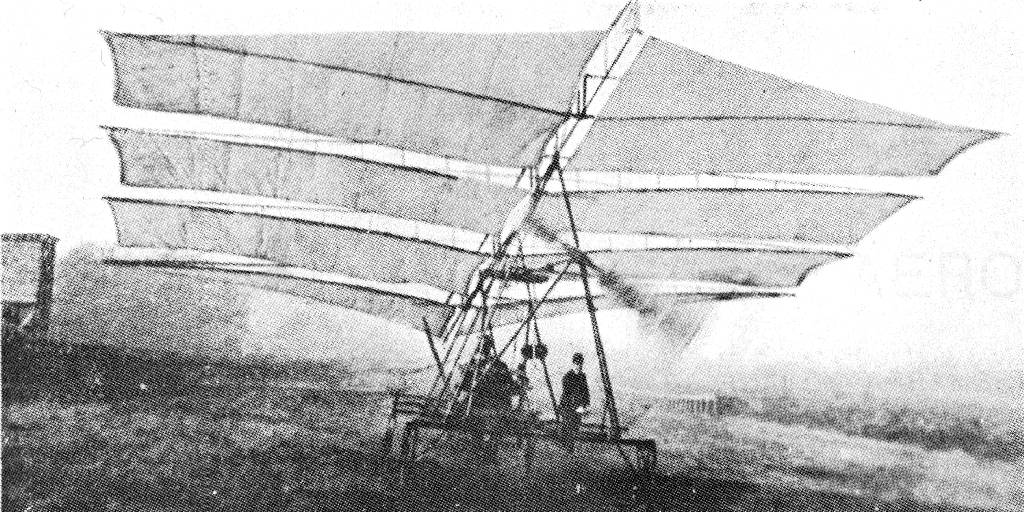
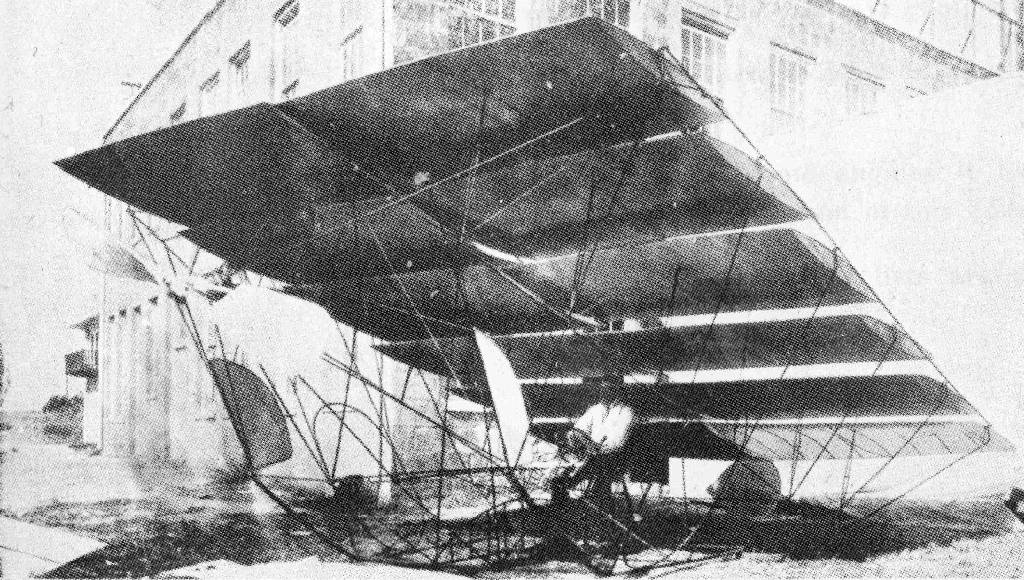
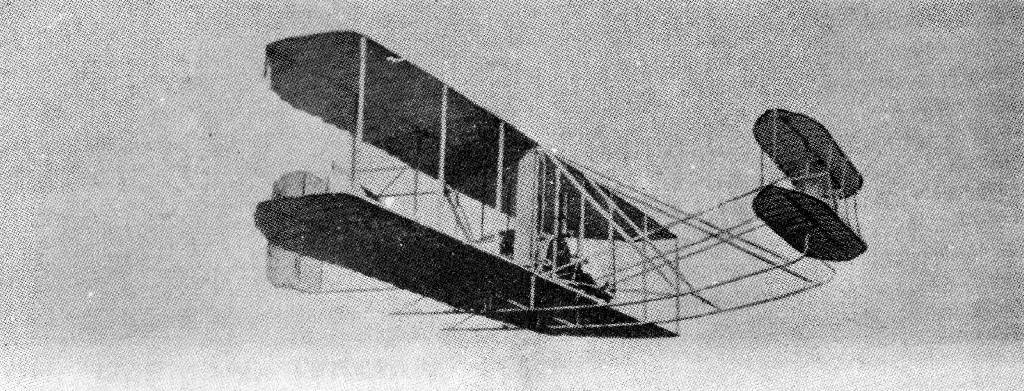
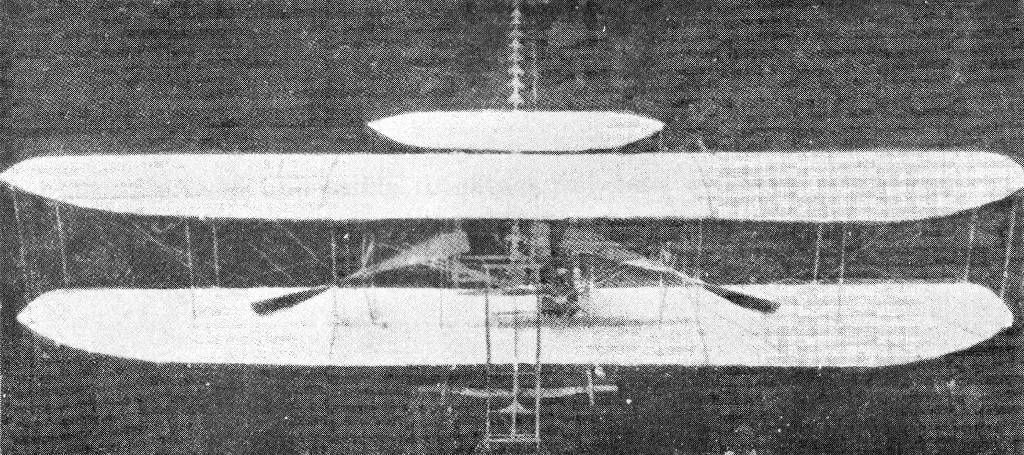
ALPHABETICALLY ARRANGED IN ORDER OF COUNTRY OF ORIGIN.
Note.—So far as possible this is a complete list of all the aero engines of any importance.
Data are confined to what is now being made or actually in use; untested "show novelties" are ignored.
In the case of some engines it has for various reasons proved impossible to obtain full data in time for inclusion in this edition.
In a general way these lists are confined to aeroplane engines.[Pg 2c]
Revised by Herr Ing. W. Isendahl.
| AUSTRO-DAIMLER. | KÖRTING. |
|---|---|
|
35-40 h.p., 4 cyl., 100×120 (1450 r.p.m.) 165 lbs. 65-70 h.p., 4 cyl., 120×140 (1350 r.p.m.) 232 lbs. 120 h.p., 6 cyl., 130×175 (1200 r.p.m.) 419 lbs. Vertical water-cooled. H.T. Magneto. All Valves overhead. Rocking levers and piston rods. Forced lubrication. Pressed steel pistons. Nickel-chrome crank shaft, hollow and closed. White-metal bearings. Cast-iron single cylinders (copper jackets). Single camshaft. 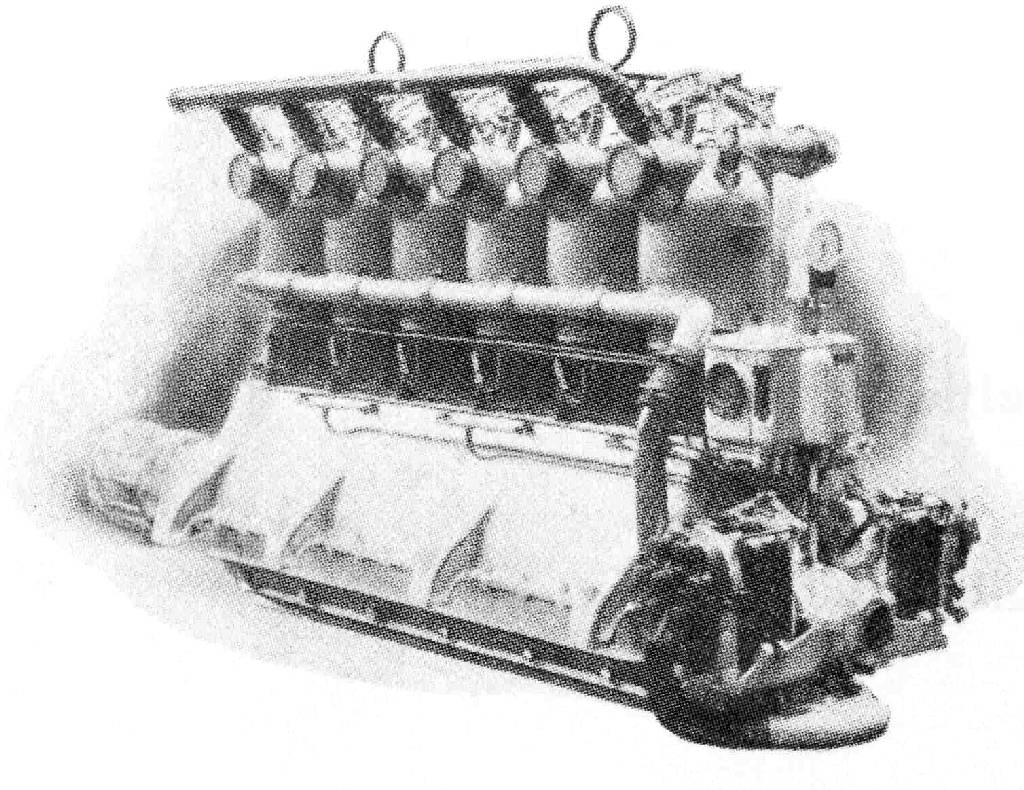
120 h.p.
The 120 has 2 carburetters and 2 H.T. magnetos. |
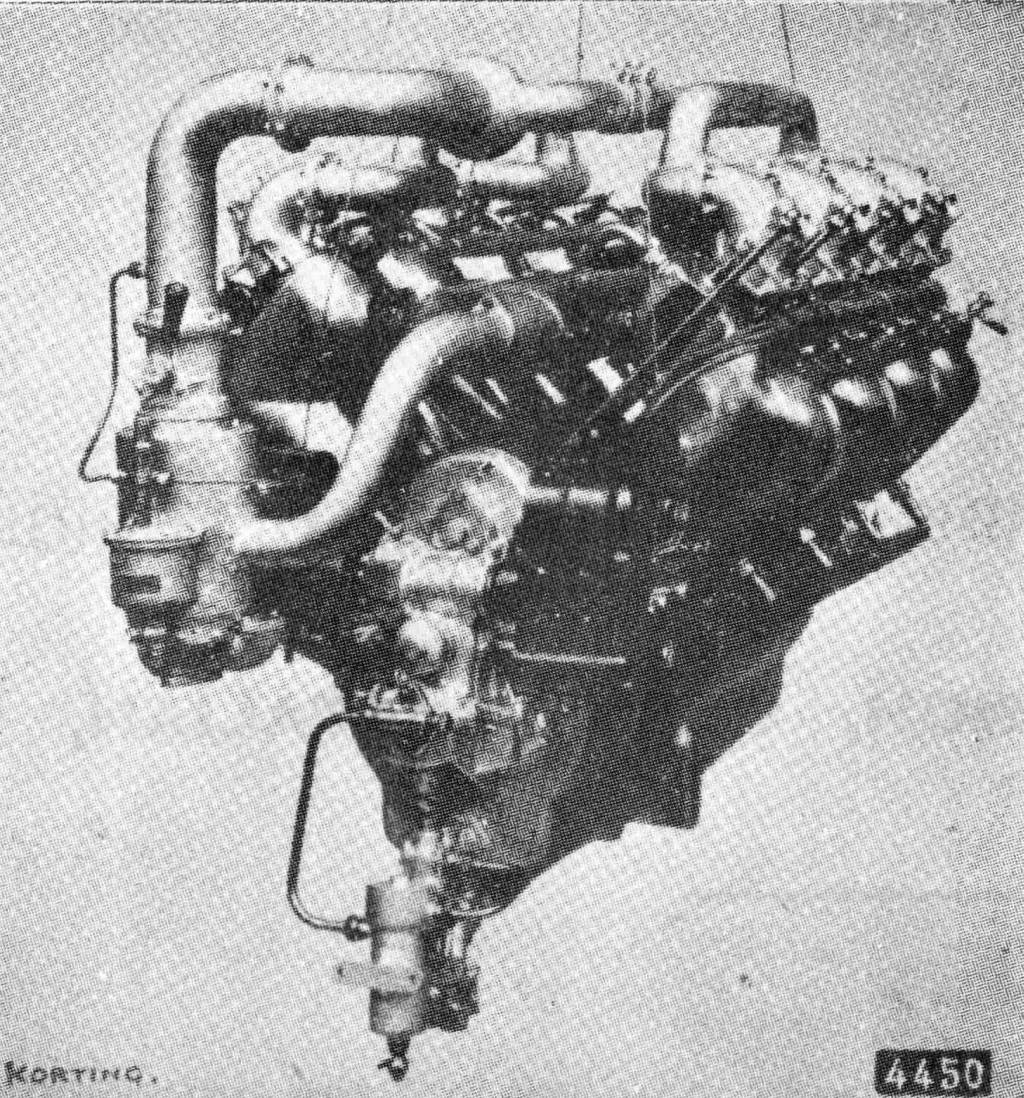
|
| METALLURGIQUE. | PIPE. |
|---|---|
|
40 h.p., 4 cyl., 85×130 (1850 r.p.m.) 60 h.p., 4 cyl., 100×150 (1850 r.p.m.) 300 lbs. 90 h.p., 4 cyl., 125×150 (1600 r.p.m.) 550 lbs. Vertical, water-cooled. H.T. magneto. Mechanical inlets. Pump lubrication. |
50-70 h.p., 8 cyl., 100×100 (1950 r.p.m.) 239 lbs. 110 h.p., 8 cyl. Vertical, air-cooled (fan). H.T. magneto. Mechanical inlets. Pump lubrication. |
| MIESSE. | VIVINUS. |
|
50-60 h.p., 4 cyl. lbs. 100 h.p., 8 cyl., 130×140 245 lbs. Horizontal opposed, air-cooled (fan). H.T. magneto Mechanical inlets. Pump lubrication. Features.-- Air cooling is carried out by fans which drive air through air jackets on cylinders. All valves in cylinder heads, rocker operated. Vertical crank shaft. |
50 h.p., 4 cyl., 106×120 (1600 r.p.m.) 205 lbs. 60 h.p., 4 cyl., 112×130 (1600 r.p.m.) 236 lbs. 70 h.p., 4 cyl., 115×130 (1800 r.p.m.) 280 lbs. Vertical, water-cooled. H.T. magneto. Mechanical inlets. Pump lubrication. |
|
A.B.C. All British Engine Co., Ltd., Brooklands, Surrey. |
GREEN. Green Engine Co., Ltd., 455, Berners Street, London, W. |
|---|---|
|
30 h.p., 4 cyl., 95×80 (1450 r.p.m.) 155 lbs. 45 h.p., 6 cyl., 95×80 (1450 r.p.m.) 225 lbs. 60 h.p., 8 cyl., 95×80 (1450 r.p.m.) 231 lbs. 85 h.p., 6 cyl., 125×105 (1700 r.p.m.) 290 lbs. 115 h.p., 8 cyl., 125×105 (1400 r.p.m.) 380 lbs. 170 h.p., 12 cyl., 125×105 (1400 r.p.m.) 520 lbs. 225 h.p., 16 cyl., 125×105 (1400 r.p.m.) 640 lbs. V type, water-cooled (pump). H.T. magneto. Mechanical inlets. Forced lubrication. Features.-- Steel cylinders (steel and copper jackets). Overhead vertical valves. Cast-steel crank case. Nickel chrome crank shaft, white metal bearings. |
30-35 h.p., 4 cyl., 105×120 158 lbs. 50-60 h.p., 4 cyl., 140×146 263 lbs. 90-100 h.p., 6 cyl., 140×152 298 lbs. Vertical, water-cooled (pump). H.T. magneto. Mechanical inlets. Forced lubrication. Features.-- Cast-iron cylinders. Overhead cam shaft. Copper jackets. Nickel chrome crank shaft. Overhead valves. White metal bearings. 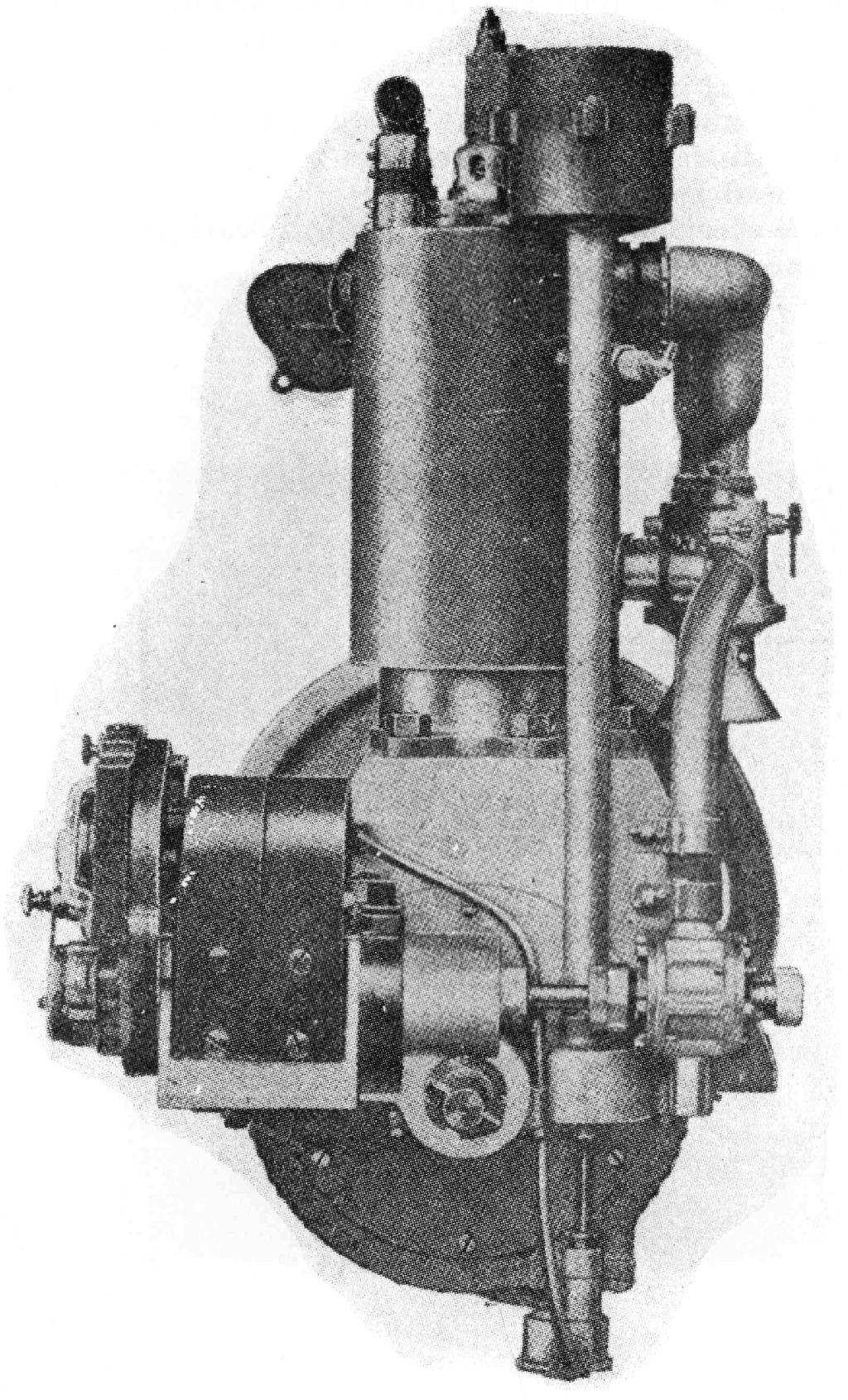
|
|
N.E.C. New Engine (Motor) Co. Ltd., 9, Grafton Street, Bond Street, London, W. |
WOLSELEY. Wolseley Tool & Motor Car Co., Ltd., Adderley Park, Birmingham. |
|
50 h.p., 4 cyl., 95×115 (1250 r.p.m.) 205 lbs. 90 h.p., 6 cyl., 96×115 (1250 r.p.m.) 405 lbs. Two stroke vertical for the 90 h.p. V for the 50. H.T. magneto. Valveless. Forced lubrication. Features.-- Pistons after uncovering exhaust ports open the inlet ports. Air from blowers scavenges. Strong mixture enters immediately on compression stroke. This is effected by a central mechanism. (N.B. Older types see previous editions.) 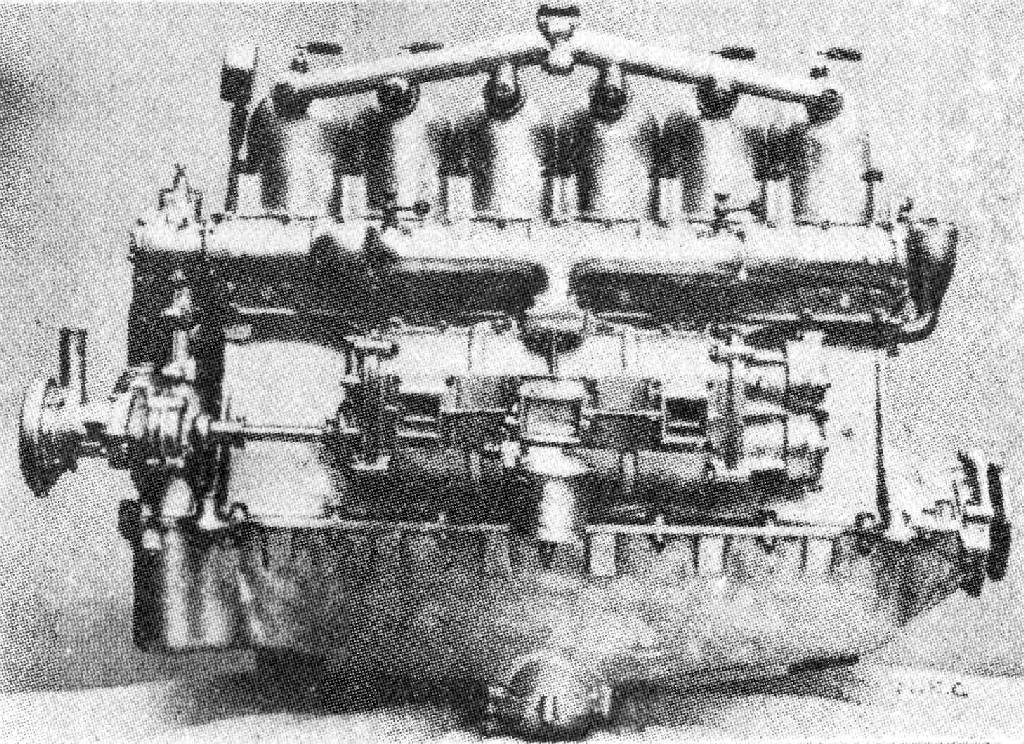
|
60-80 h.p., 8 cyl., 95×140, type A 325 lbs. 60-80 h.p., 8 cyl., 95×140, type B 345 lbs. 60-80 h.p., 8 cyl., 95×140, type C 315 lbs. 60-80 h.p., 8 cyl., 95×140, type D 335 lbs. 120 h.p., 8 cyl., 125×175 (1150 r.p.m.) 630 lbs. V type. Types A and B of the 60-80 air-cooled (water-cooled exhausts). The others water-cooled. Types A and C of the 60-80 are for direct coupling of propeller, with double thrust ball bearings. Types B and D geared to half crank shaft speed. Bosch dual ignition.Mechanical inlets. Forced lubrication. Features.-- Steel cylinders (single). Overhead valves (removable seats). Carburettor between cylinders. Nickel chrome crank shaft, on 3 bearings. 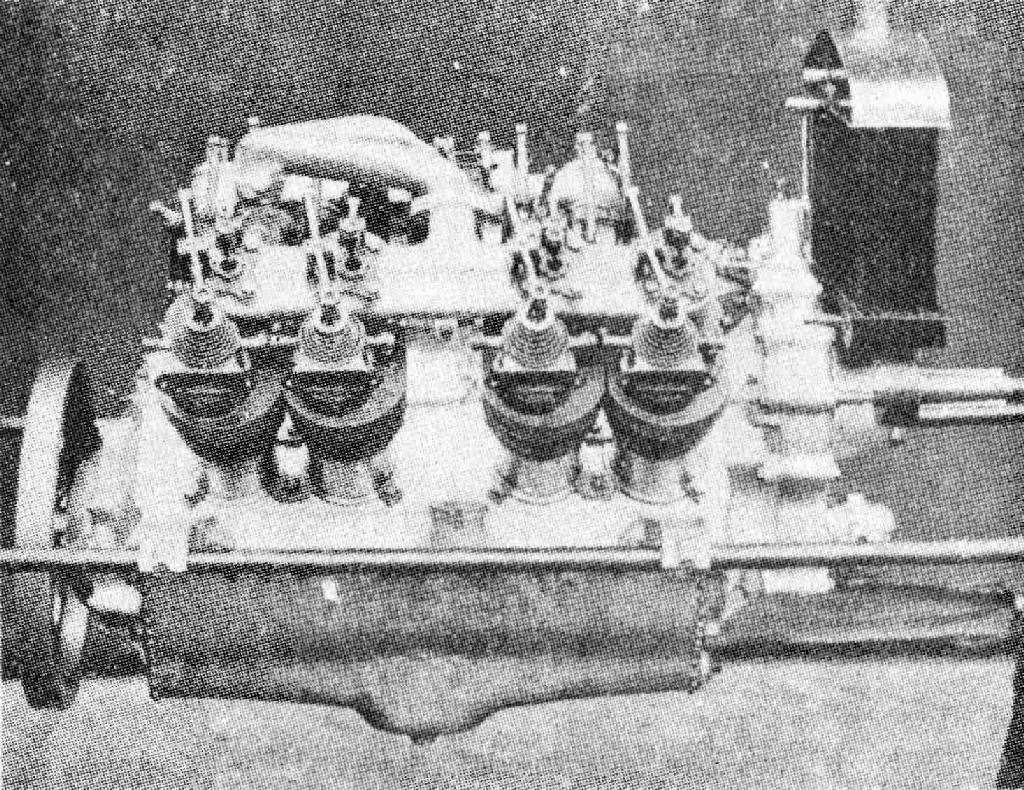
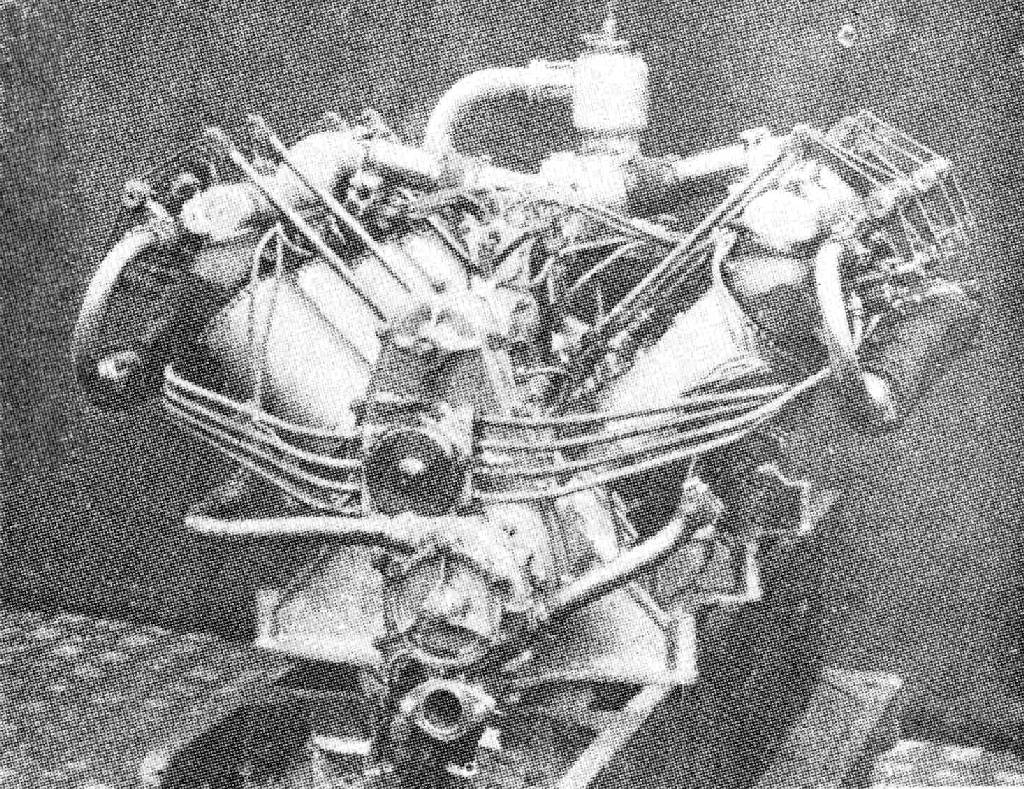
|
|
ANZANI. 71, bis Quai d'Asinières (Seine). |
BERTIN. 8, rue Garancier, Paris. |
|---|---|
|
30 h.p., 3 cyl., 105×130 (1575 r.p.m.) 154 lbs. Radial type, air-cooled (but water-cooling is occasionally fitted). H.T. magneto. Features.-- Extremely simple construction. Mainshaft single crank. Flywheel specially balanced to compensate. Zenith carburetter. |
50 h.p., 4 cyl., 116×150 (1100 r.p.m,) 132 lbs. X type air cooled. |
|
BURLAT. 289 Avenue de Saxe, Lyon (Rhone). | |
|
35 h.p., 8 cyl., 95×120 (956 r.p.m.) 187 lbs. Rotary, air-cooled. | |
|
CANTON-UNNÈ (SALMSON). E. Salmson, 55, rue Grange aux Belles, Paris. |
CLEMENT BAYARD. Usineo Clement Bayard, 33 quai Michelet, Levallois-Perret, (Seine). |
|
60 h.p., 7 cyl., 75×260 (1300 r.p.m.) 220 lbs. The 60 h.p. has parallel a.c. cylinders, the other two are radial w.c. There is also a horizontal radial engine (w.c.) 300 h.p., 9 cyl., 150×210 (1200 r.p.m.) 990 lbs. H.T. magneto. 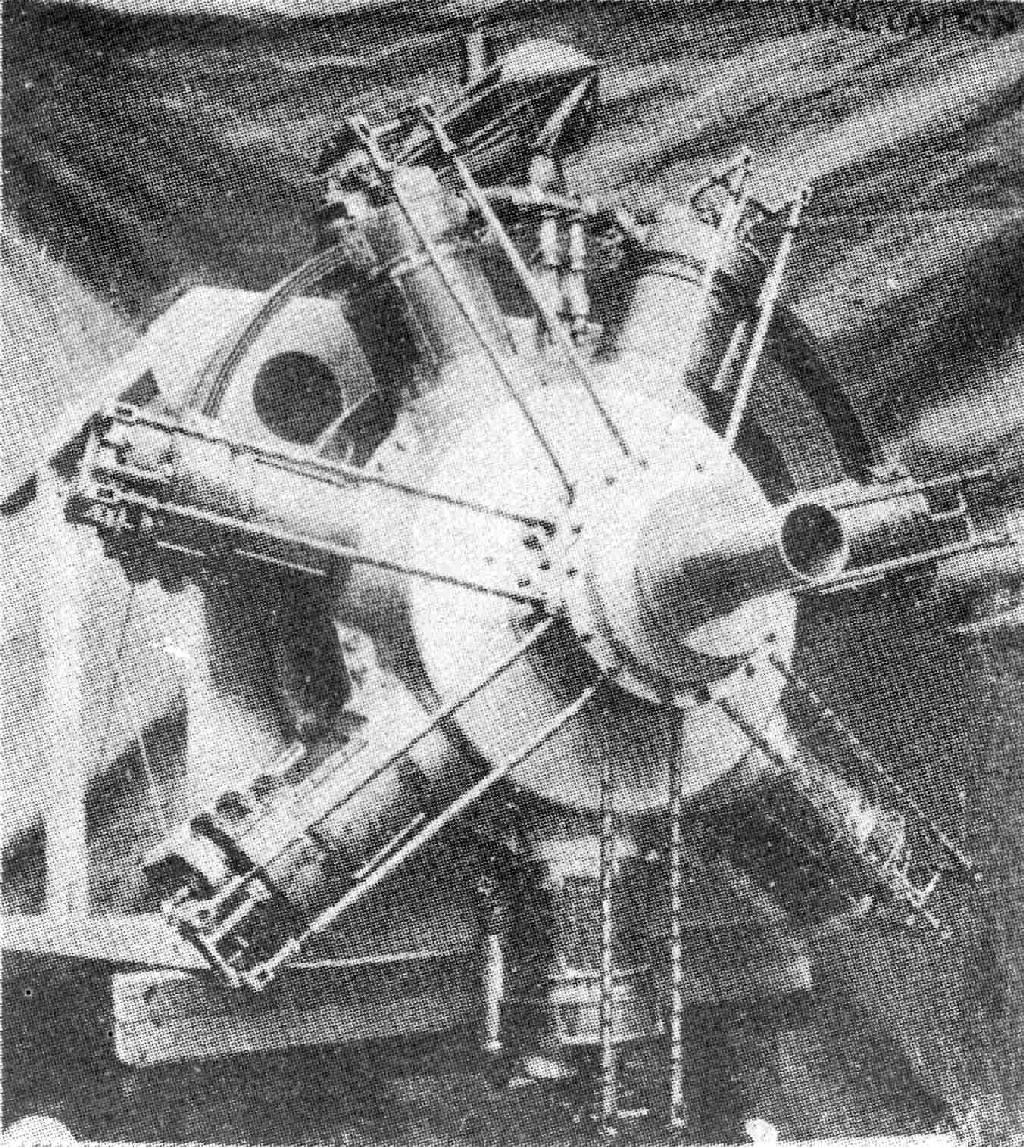
|
40 h.p., 4 cyl., 100×120 242 lbs. H.T. magneto. Overhead valves worked by two cams only. 40 h.p., vertical, en bloc, water-cooled, copper, jacket, all valves same side, single cam shaft, splash lubrication. Special carburetter, jet in centre of float chamber. 130 and 180 h.p. (for dirigibles), cylinders in pairs, water-cooled. Overhead valves, single overhead cam shaft. Two ignitions. Expanding clutch. 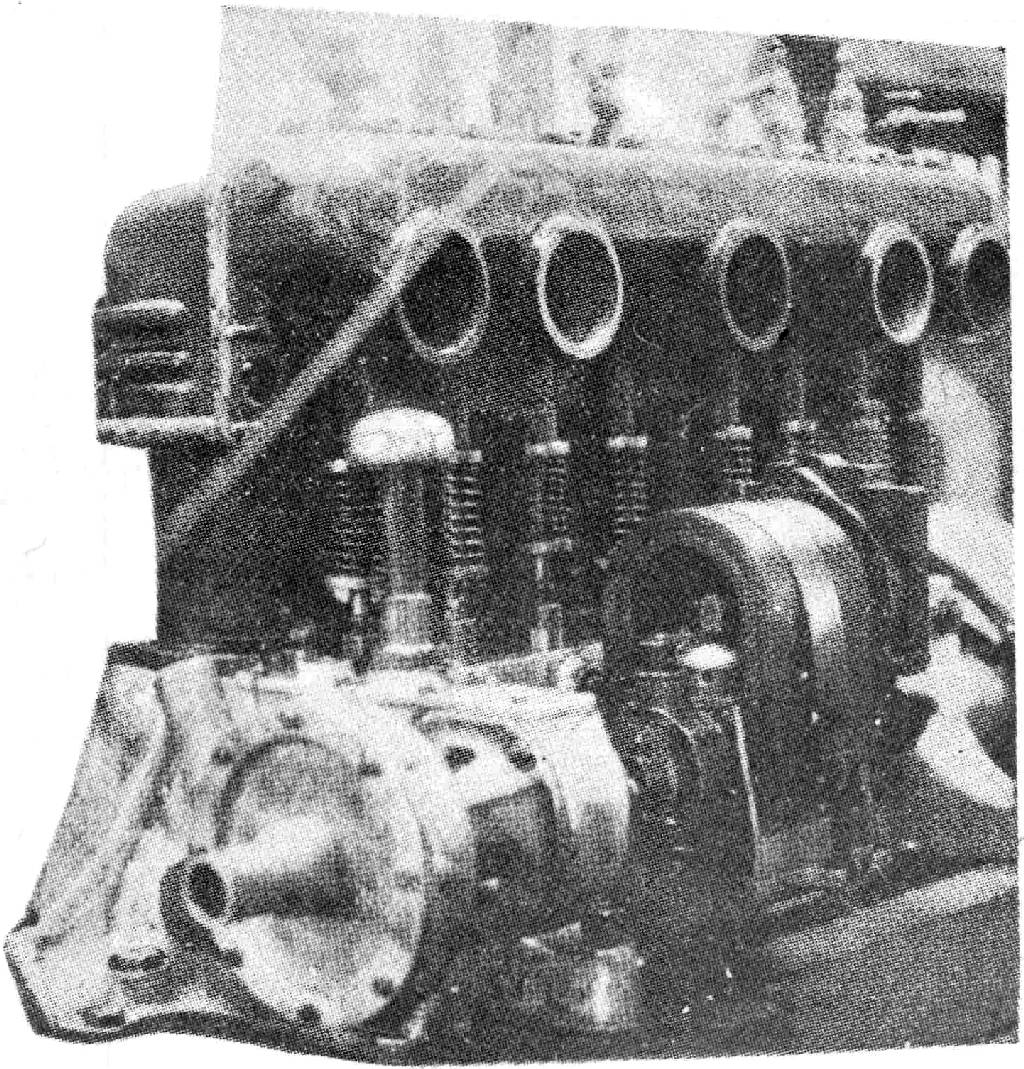
Dirigible Engine
|
|
CHENU. Chenu, 10 Rue Fontaine-Saint-Georges, Paris. |
CLERGET. Clerget & Cie, 11 rue Leon-Cogniet, Paris. |
|
50 h.p., 4 cyl., 110×130 (1300 r.p.m.) 253-1/2 lbs. Vertical, water-cooled (thermo syphon). H.T. magneto. Cylinders in pairs. |
43 h.p., 4 cyl., 100×120 (1600 r.p.m.) The 43 h.p. 50 and 100 vertical engines, w.c. The 50-60 h.p. is a radial, rotary. The 200 h.p. has 2 carburetters and 2 magnetos, and is V type. 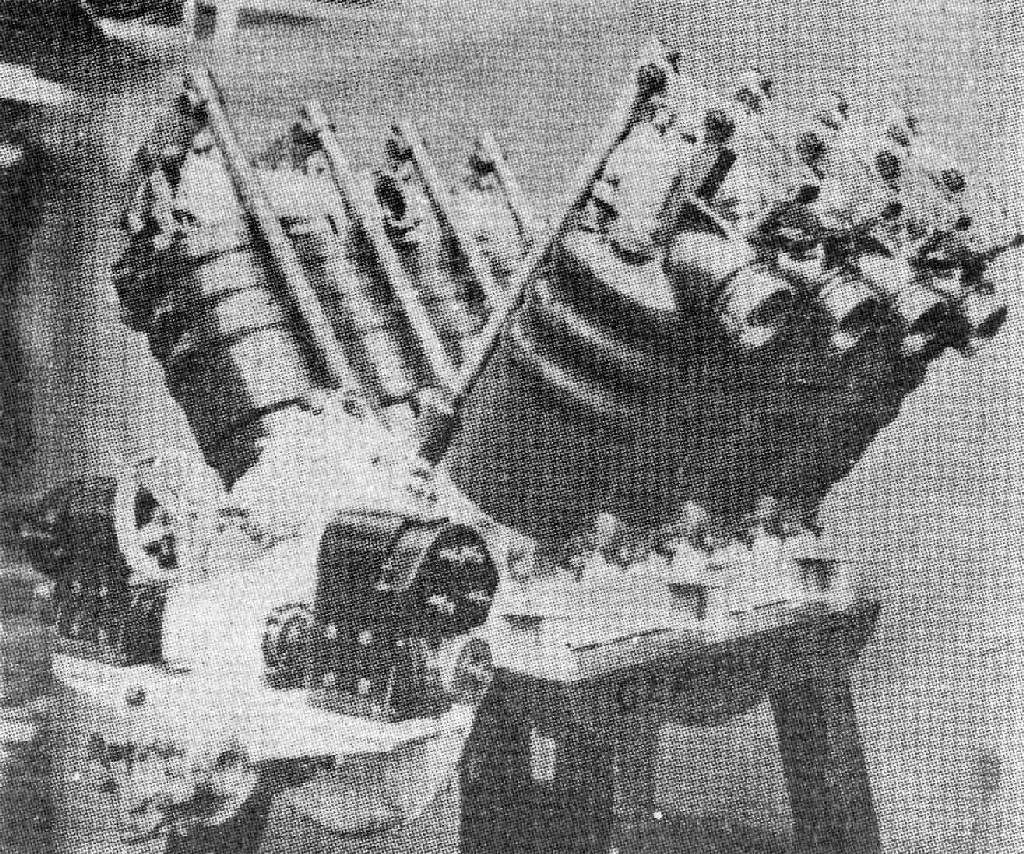
200 h.p. Clerget.
|
|
DANSETTE GILLET (LAVIATOR). Dansette Gillet & Cie., 36 quai de. Suresnes, Suresnes (Seine). | |
|
80 h.p., 8 cyl., 100×130 (1200 r.p.m,) 418 lbs. The 110, 120 (4 cyl.) and 250 are vertical, the others are V type. | |
|
DE DION. Établissements de Dion-Bouton, 52 avenue des Champs-Élysées, Paris. |
DUTHEIL CHALMERS (EOLE). Dutheil Chalmers & Cie., 81-83 avenue d'italie, Paris. |
|
80 h.p., 8 cyl., 100×120 (1700 r.p.m.) 484 lbs. H.T. magneto. 
De Dion.
|
40 h.p., 4 cyl., 125×120 250 lbs. Opposed horizontal, water-cooled. H.T. magneto. also 40 h.p., 4 cyl., 130×130 198 lbs. Horizontal w.c., with central crank shaft over head valves. 100 h.p., 8 cyl. Crank shaft at either end, all valves in centre. 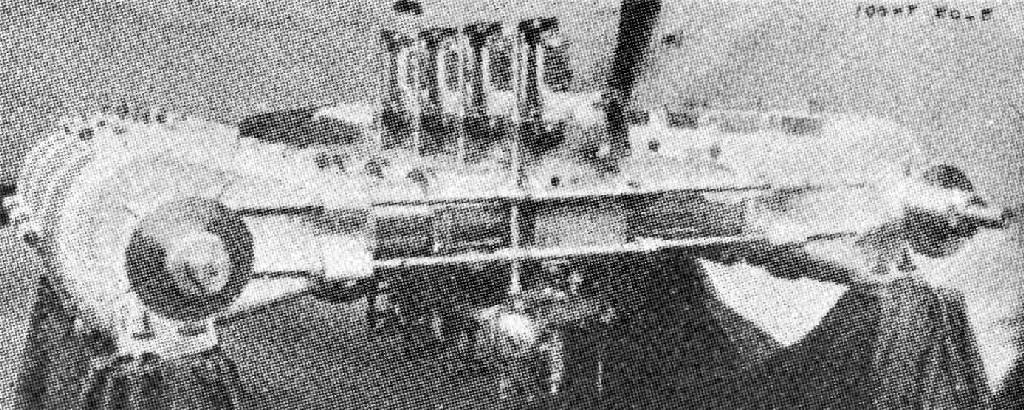
|
|
GNOME Société des moleurs Gnome, 3 rue La Boëtie, Paris. |
LABOR AVIATION. Soc. anonyme des moteurs Labor Aviation, 29 rue de la Révolte, Levallois Perret (Seine). |
|
50 h.p., 7 cyl., 11$1×$220 (1200 r.p.m.) 165 lbs. Radial rotary, air-cooled. H.T. magneto. Features.-- Single crank pin Steel cylinders turned from solid. Single ignition point. Gas admitted through hollow crank shaft to crank case, thence to pistons; oil enters in a similar way. Nickel chrome crank shaft, ball bearings. Steel crank case. The 100 h.p. has seven cylinders behind seven others. Larger sizes ditto. Older engines of 50-100 h.p. do not differ in general details. 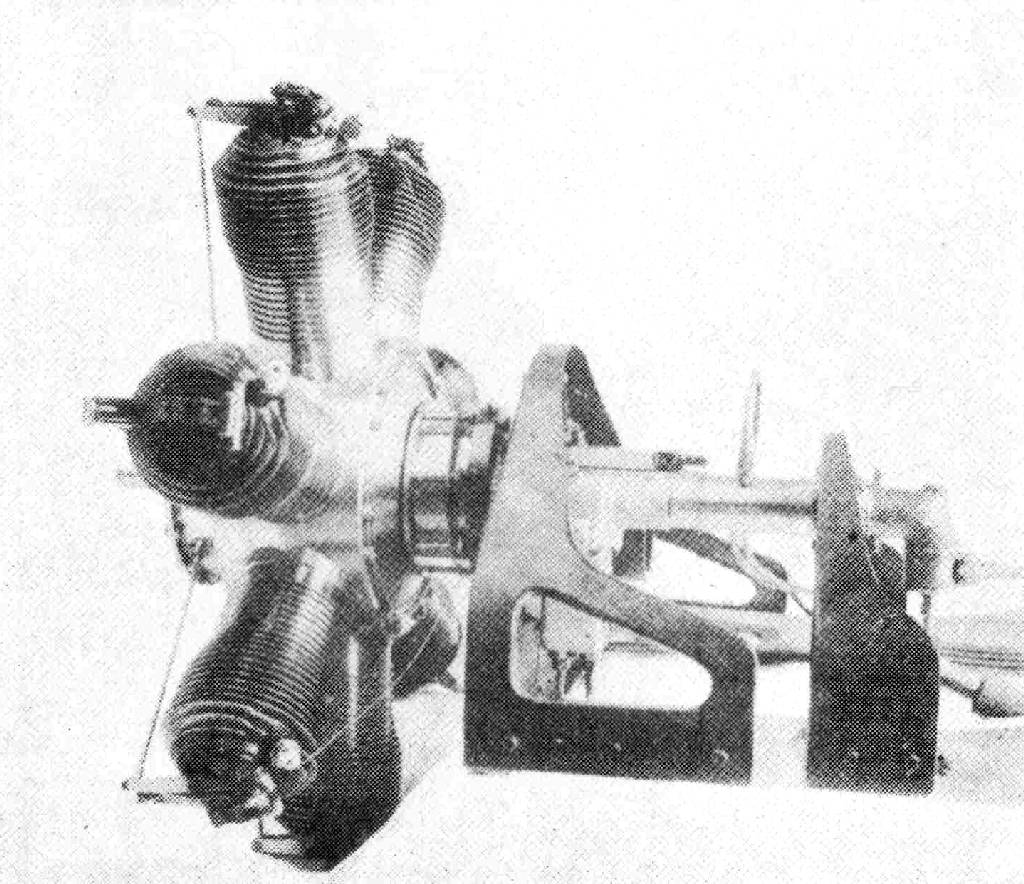
|
42 h p., 4 cyl., 90×150 (1200 r.p.m.) 221 lbs. Vertical water-cooled (pump). H.T. magneto. Features:-- Automatic carburetter. 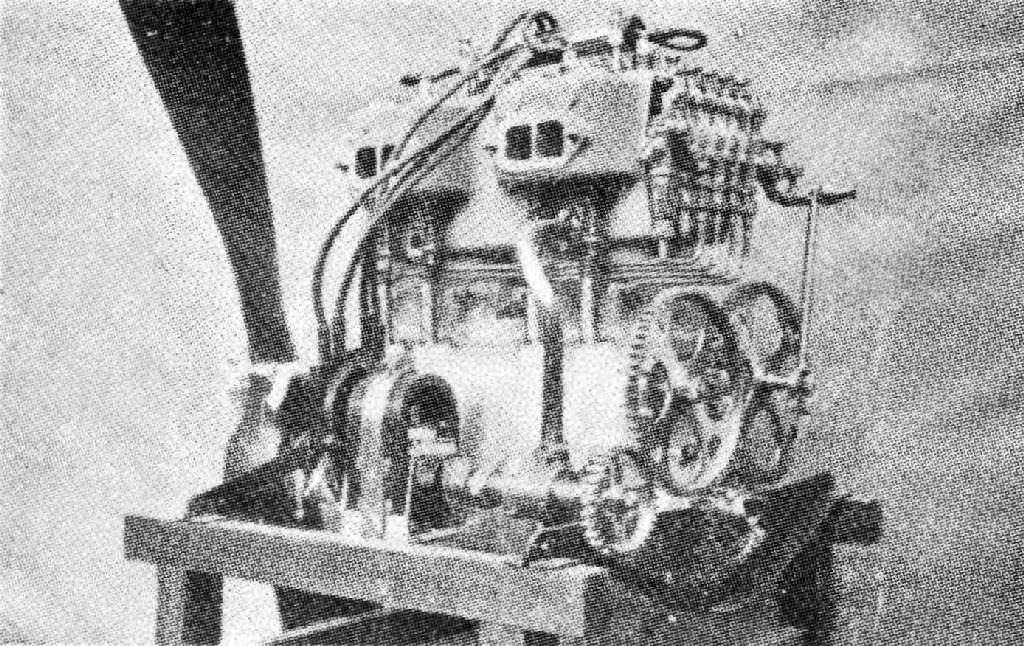
|
| LA RHONE | |
|
50 h.p., 7 cyl., 105×140 176 lbs. (1200 r.p.m. in all.) Rotary, air-cooled. | |
|
PANHARD. Société Panhard & Levassor, avenue d'Ivry, Paris. |
[Pg 7c]
RENAULT Automobiles Louis Renault, 15 rue Gustav-Sandoz, Billancourt (Seine). |
|
35-40 h.p., 4 cyl., 110×140 210 lbs. Vertical, water-cooled. H.T. magneto. Features.-- Cast-iron cylinders, jackets in casting. Valves at side. Cam shaft in crank case. Nickel chrome crank shaft; white metal bearings. 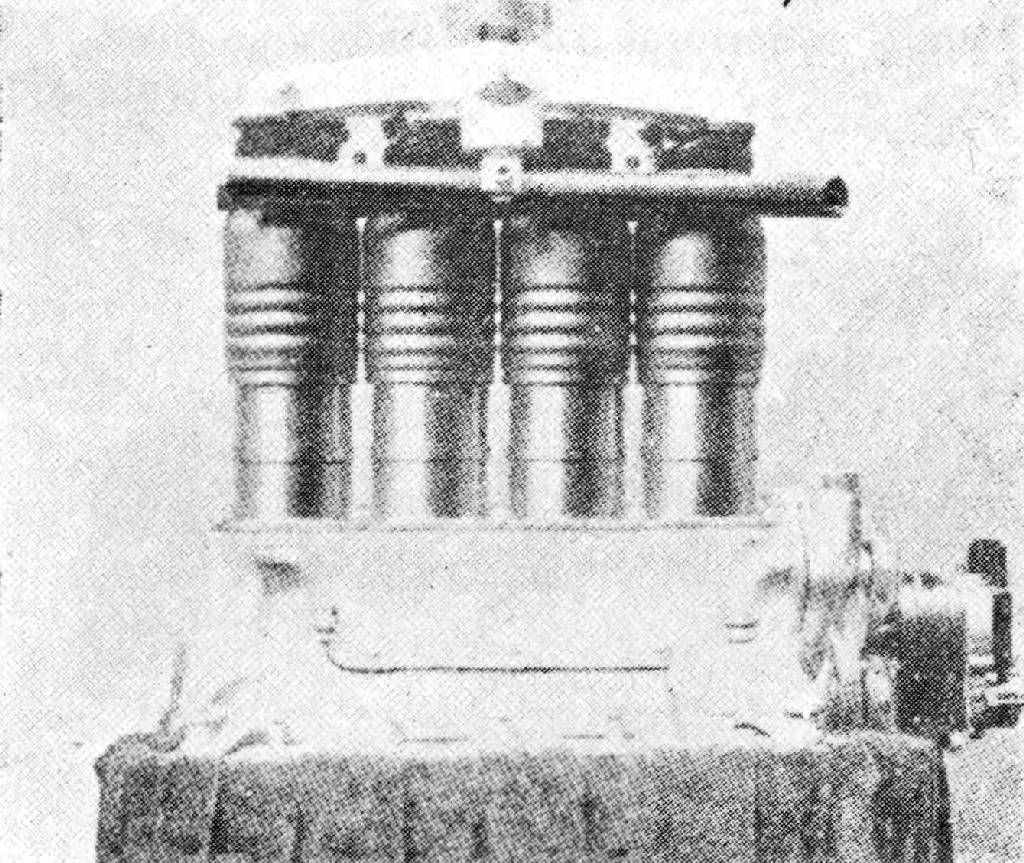
There is also a 120 h.p. 4 cylinder for dirigibles. |
25 h.p., 4 cyl., 90×120 243 lbs. (All at 1800 r.p.m.) Cylinders at 90°. H.T. magneto. Features.-- Two to one shaft, made specially strong to admit of the direct coupling of a propeller. Inlet valves operated from below, exhausts placed above them at the side. Plain bearings. Special cooling. 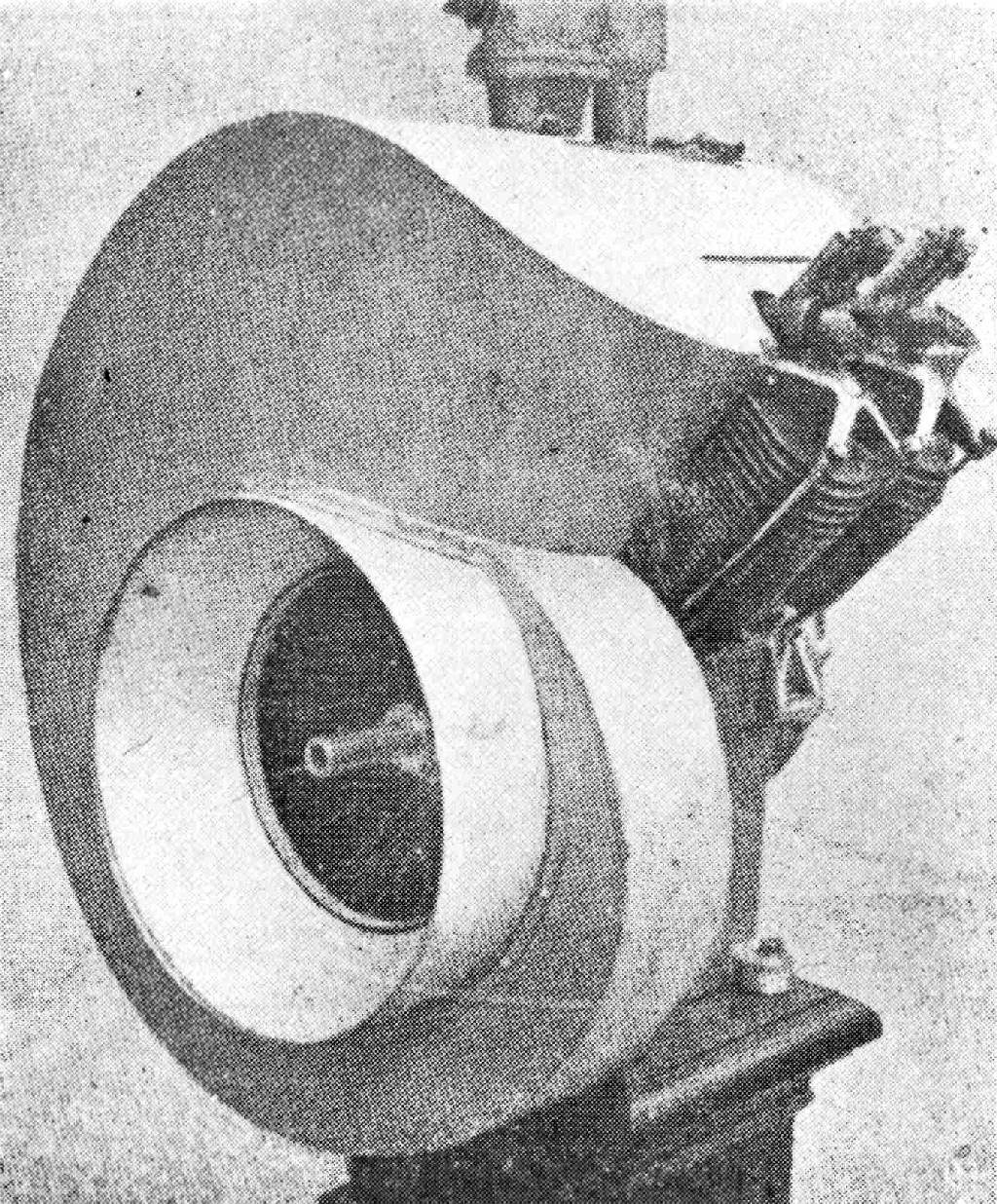
|
|
R.E.P. Établissement Robert Ésnault Pelterie, 149 rue de Silly, Billancourt (Seine). |
ROSSEL-PEUGEOT. Soc. anonyme de constructions aerienne Rossel-Peugeot, rue de Longchamp, à Suresnes (Seine). |
|
45 h.p., 5 cyl., 100×140 243 lbs. Radial, air-cooled. H.T. magneto and accumulators. Features.-- In the 7 cyl. the cylinders are in two planes, four being in front of the others. The 5 cyl. engines are fan shape in one plane. 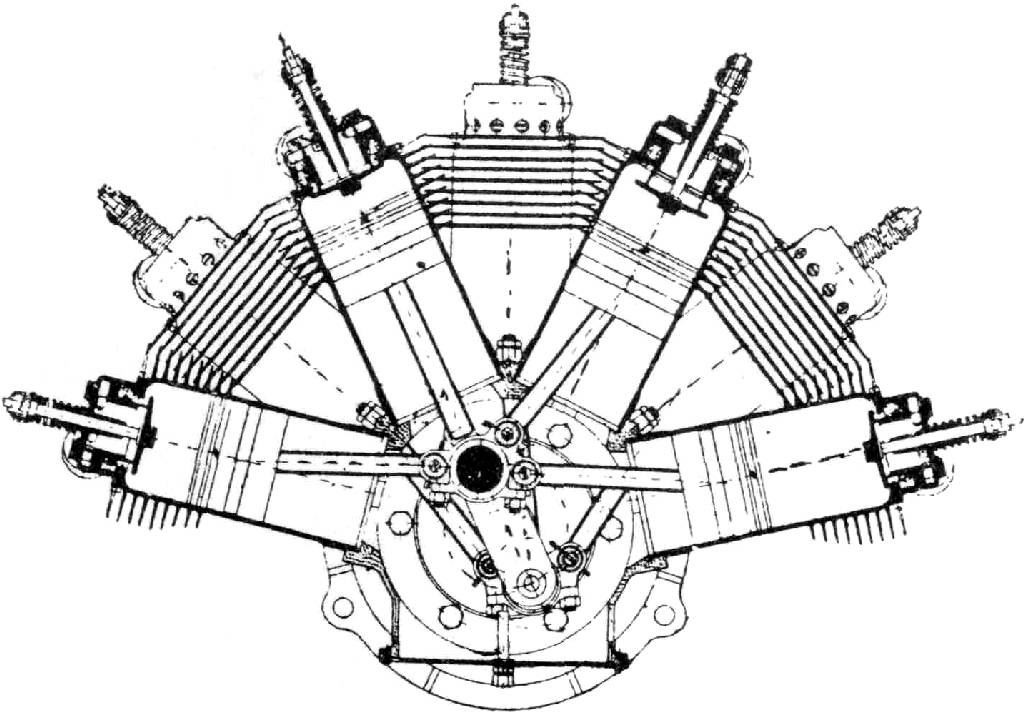
7 cylinder.
|
30-40 h.p., 7 cyl., 105×110 (1100 r.p.m.) 165 lbs. Rotary, air-cooled. H.T. magneto. 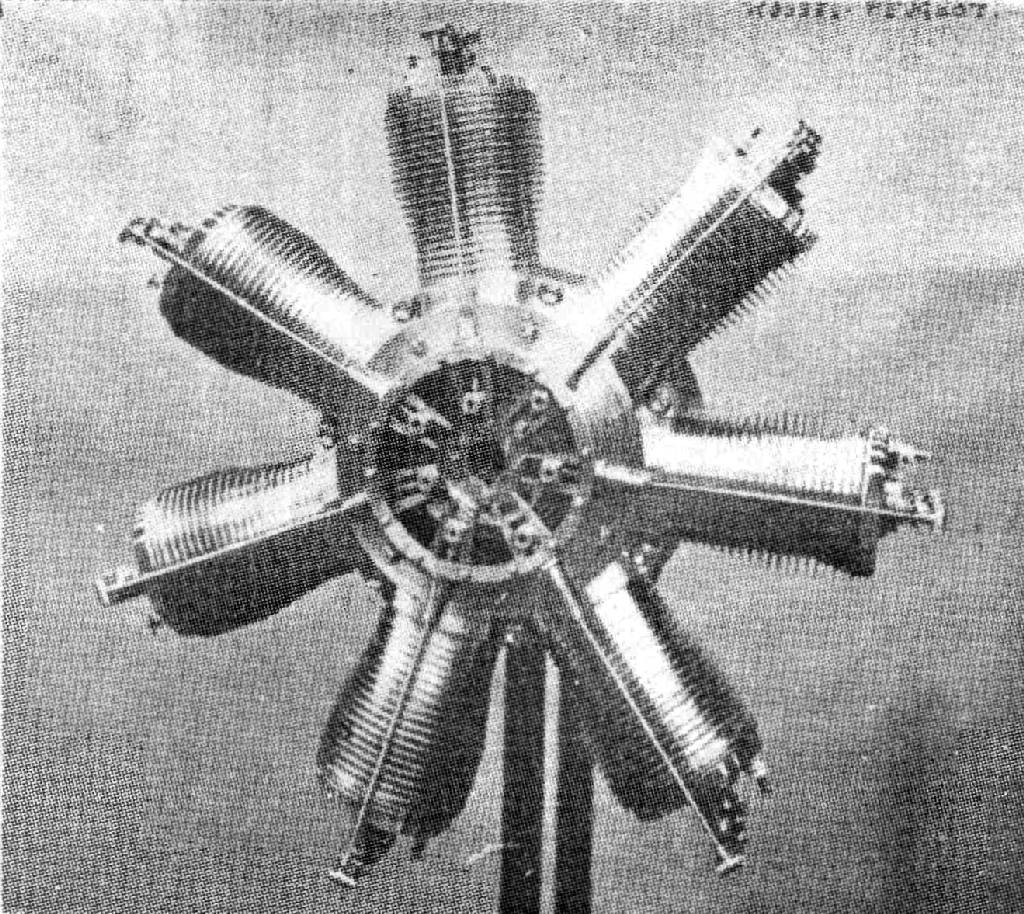
ROSSEL-PEUGEOT.
There is also a vertical water-cooled motor (1913). 100 h.p., 140×140 (1300 r.p.m.) 352 lbs. |
|
VIALE. Viale & Cie. 19 rue de la Mairie, Boulogne-sur-Seine (Seine). | VERDET. |
|
30 h.p., 3 cyl., 105×130 (1250 r.p.m.) 165 lbs. Radial, air-cooled. 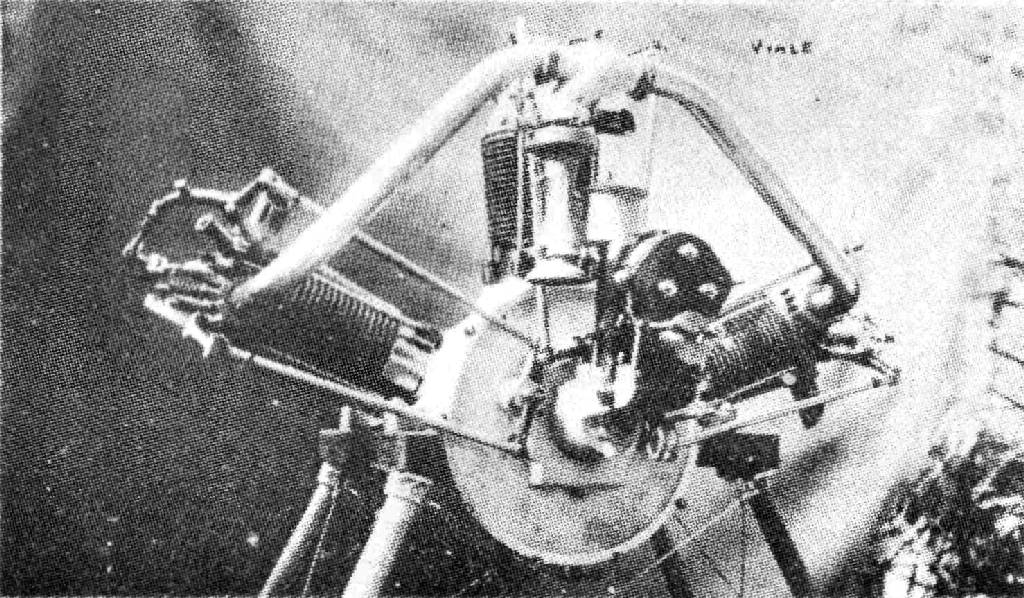
VIALE.
|
55 h.p., 7 cyl., 112×140 (1100 r.p.m.) 176 lbs. Rotary, air-cooled. |
Revised by Herr Ing. W. Isendahl.
|
ARGUS. Argus-Motoren G.m.b.H., Flottenstrasse 39 and 40, Reinickendorf bei Berlin. Established 1900. |
BENZ. Benz & Cie, Mannheim. |
|---|---|
|
70 h.p., 4 cyl., 124×130 (1400 r.p.m.) 254 lbs. Vertical, water-cooled (pump). H.T. magneto (Bosch). Features.-- Cast-iron cylinders. Cylinders in pairs. Valves one side (single cam shaft). Crank shaft on ball bearings, closed and hollow. 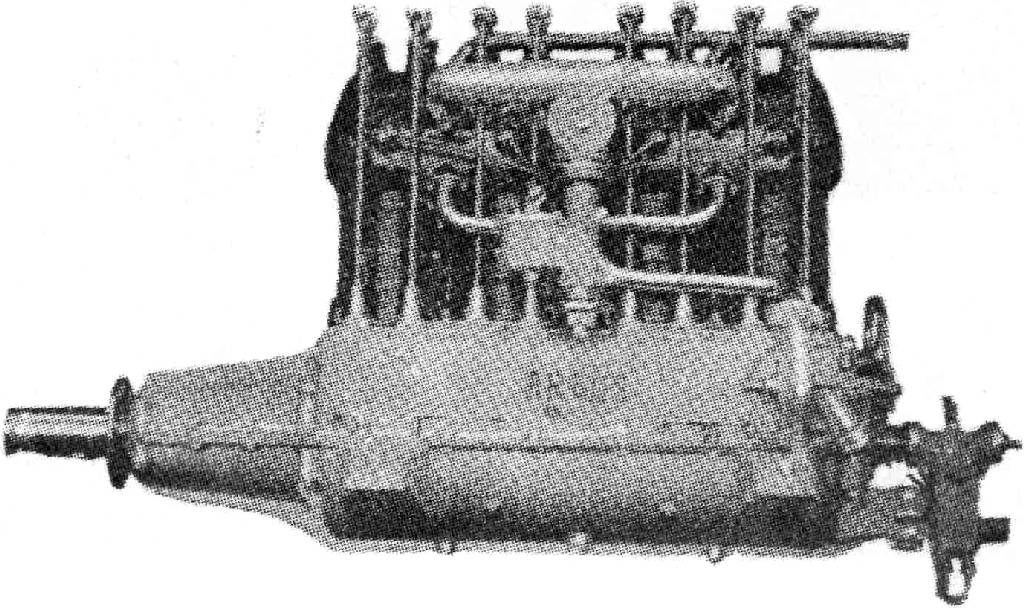
100 h.p.
|
100 h.p., 4 cyl., 130×180 (1250 r.p.m.) 337 lbs. Vertical, water-cooled (pump). 2 H.T. magneto (Bosch). Features.-- Cast-iron cylinder, steel jackets. Single cylinders. All valves overhead (single cam shaft). Crank shaft hollow oil 5 metal bearings. 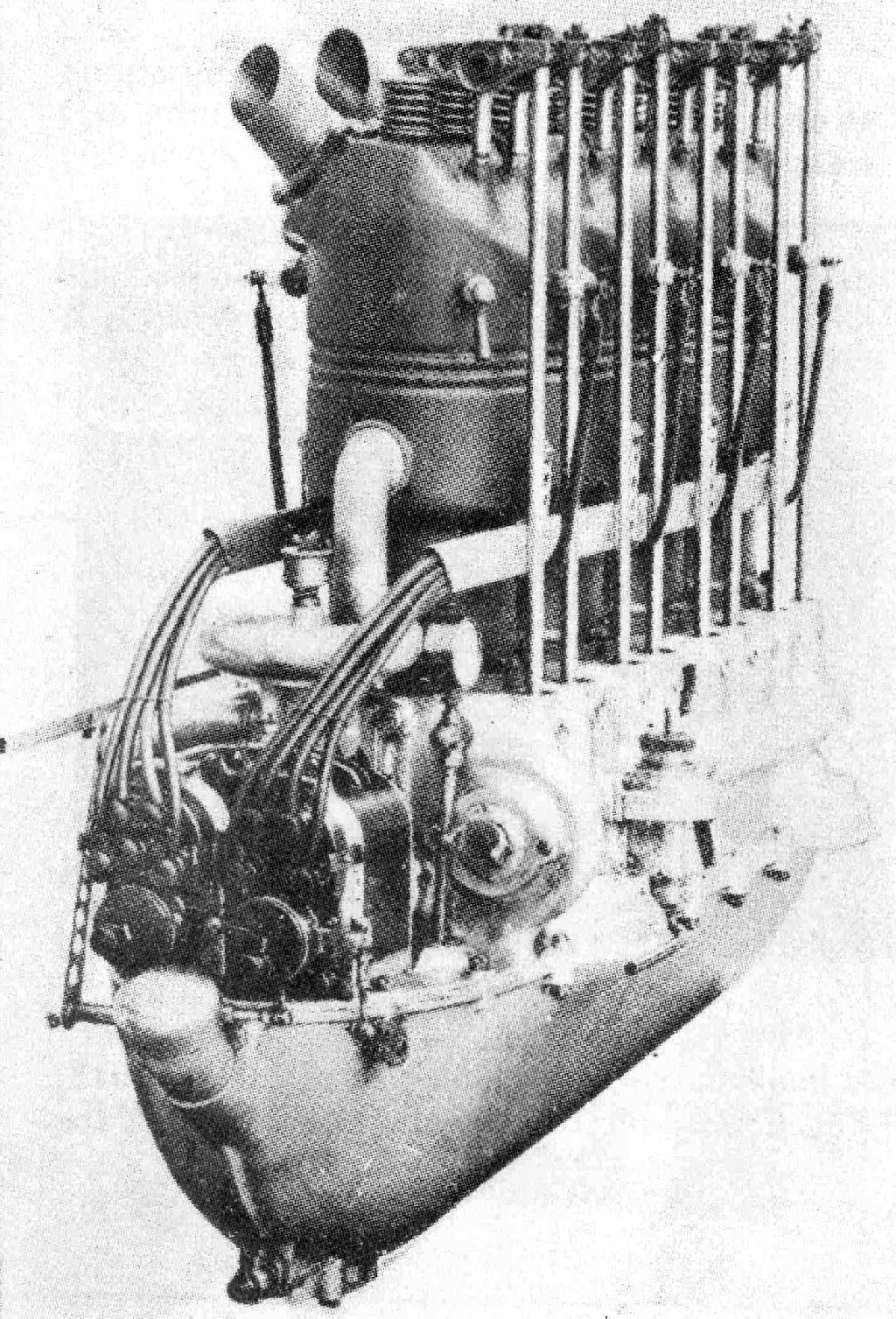
This engine won the Kaiser's prize of 50,000 marks. |
| DELFOSSE (radial.) | DELFOSSE (rotary.) |
|
24-30 h.p., 3 cyl., 110×130 (1500 r.p.m.) 100 lbs. Radial air-cooled. Features.-- Special metal cylinders. Very large valve chambers. Chrome nickel crankshaft and big ends. Water-cooling fitted if required at a 10% increase of weight. 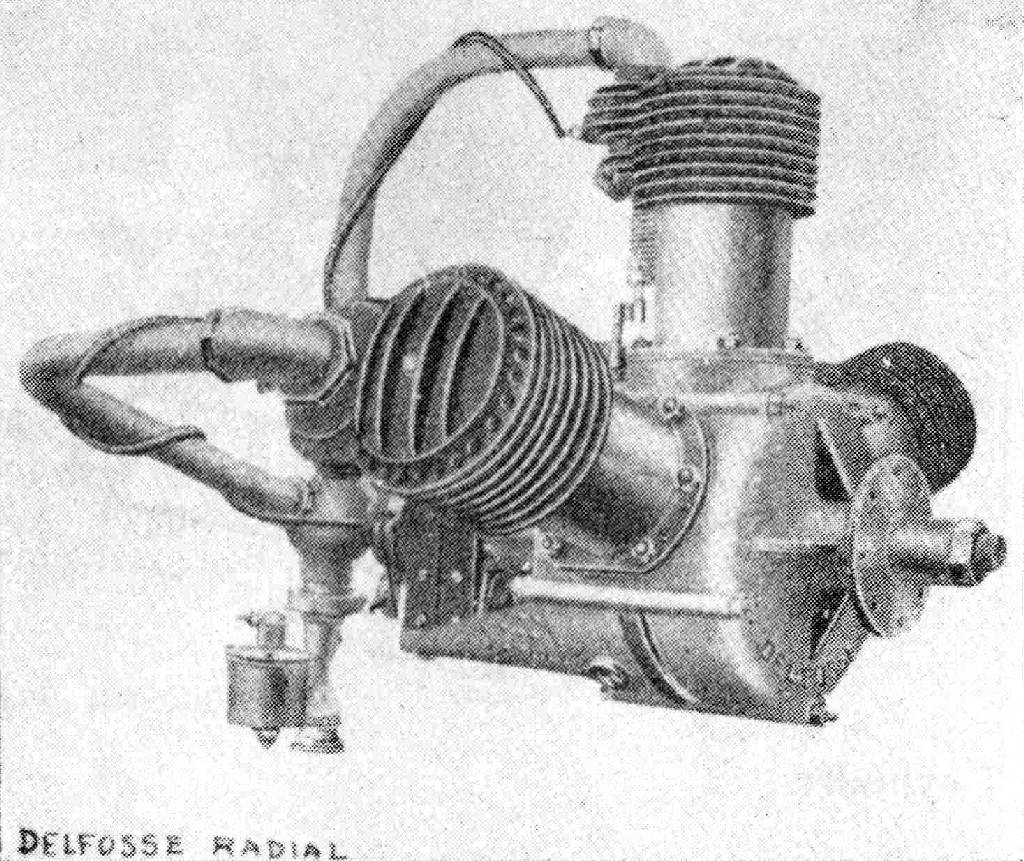
DELFOSSE RADIAL.
|
30 h.p., 3 cyl. (1500 r.p.m.) Rotary air-cooled. 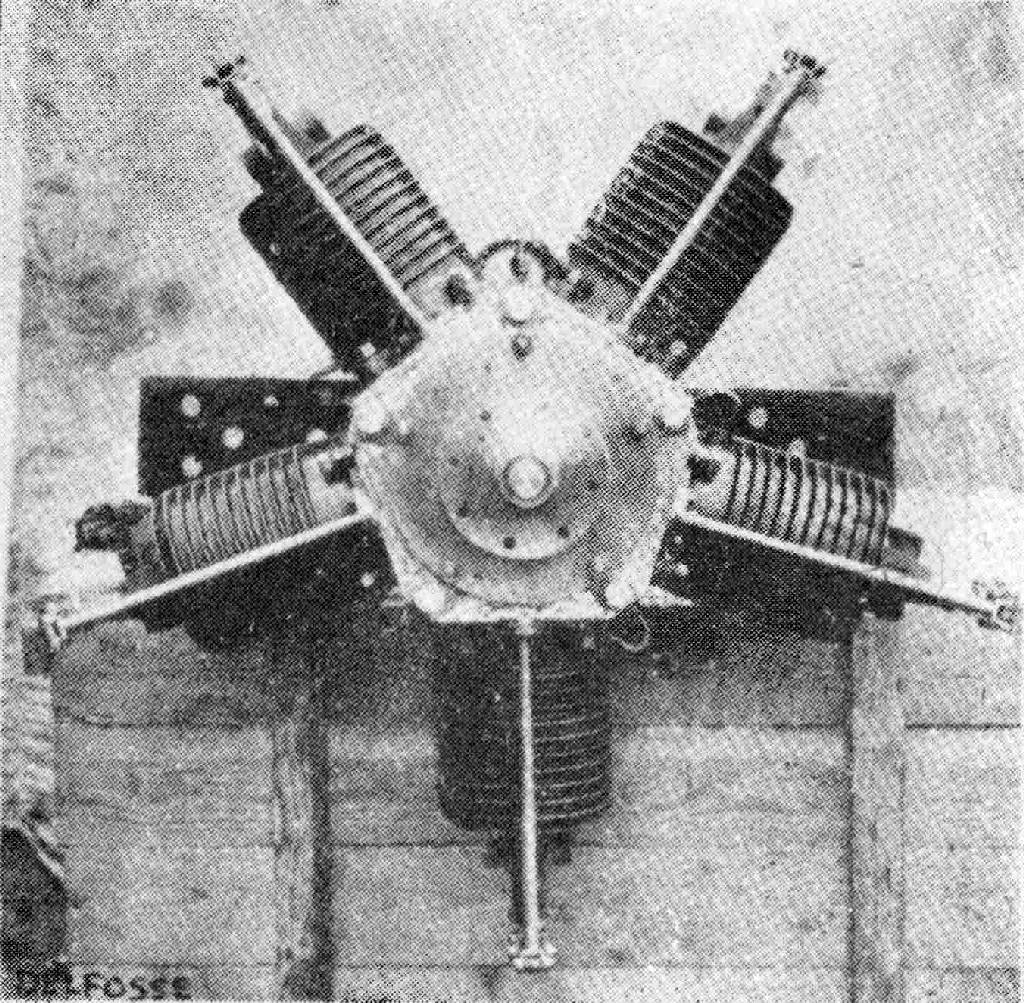
DELFOSSE.
|
|
[Pg 9c]
DIXI.
Dixi Luftfahrt-u-Bootsmotoren-Verkaufsgesellschaft m.b.H., Bulowstr. 11, Berlin W. 25. Established 1911. |
HILZ. Hilz Motorenfabrik G.m.b.H., Fürstenwallstr. 189, Düsseldorf. |
|
50 h.p., 4 cyl., 100×140 (1400 r.p.m.) 198 lbs. Vertical, water-cooled (pump). H.T. magneto (Bosch). Features.-- Cast-iron cylinders, copper jackets. Single cylinders. Overhead inlets (single cam shaft). Crank shaft, hollow, on 3 metal bearings. 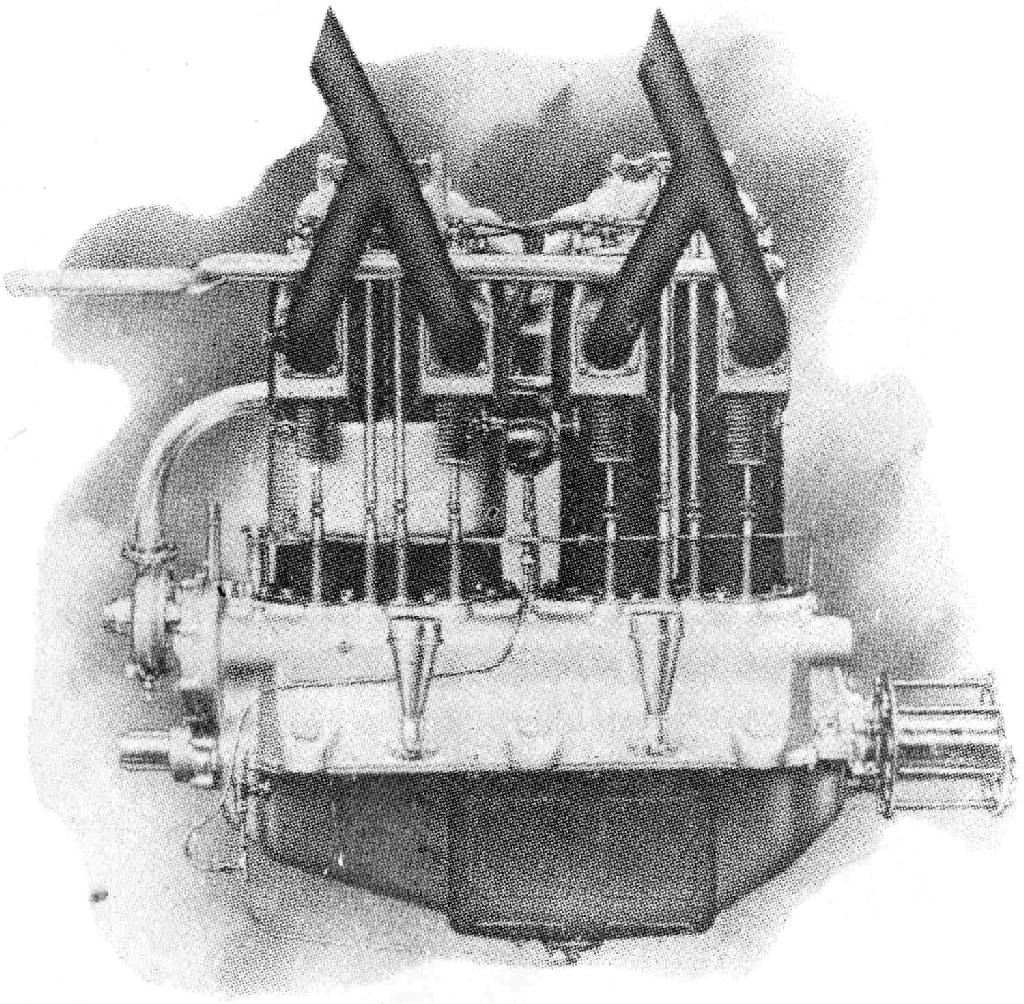
100 h.p.
|
25-30 h.p., 3 cyl., 105×130 (1400 r.p.m.) ? Radial, air-cooled. 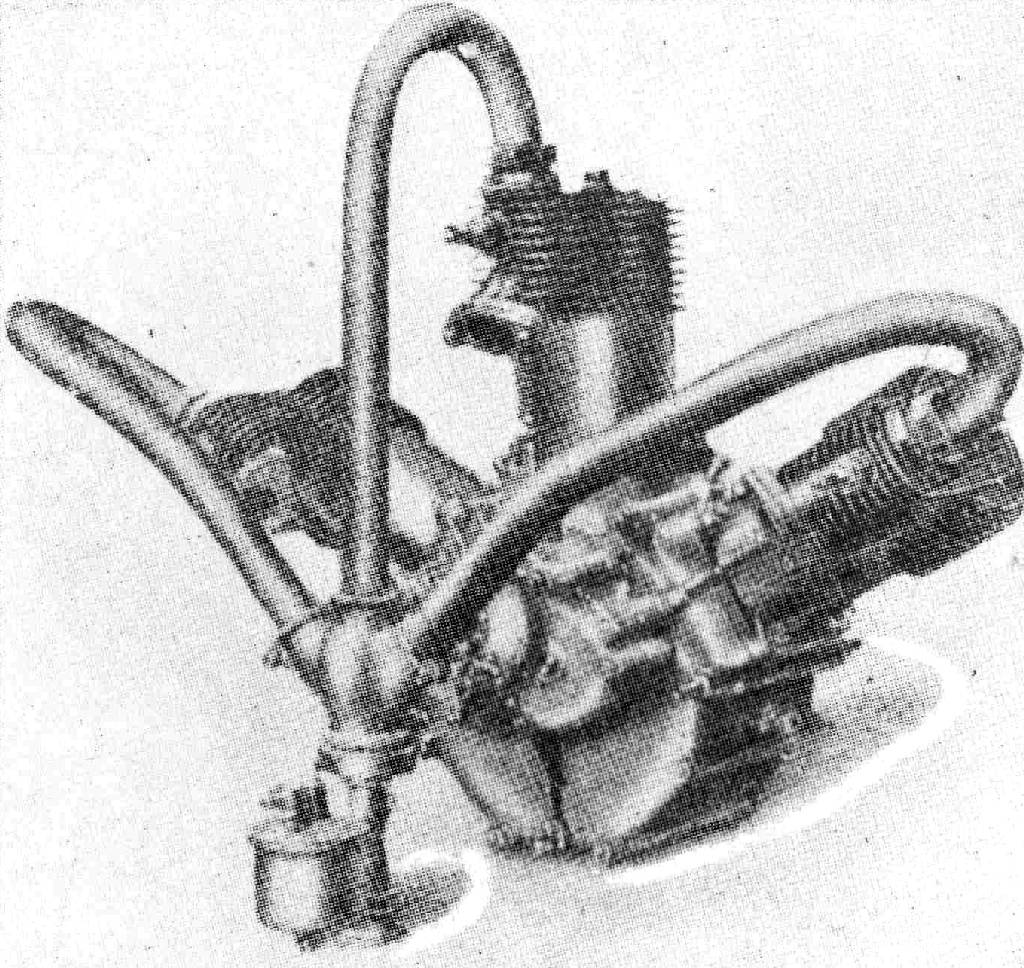
|
| MERCEDES-DAIMLER. Daimler Motoren G.m.b.H., Stuttgart-Unterturkheim. | |
|
70 h.p., 4 cyl., 120×140 (1400 r.p.m.) 276 lbs. Vertical, water-cooled (pump). Features of the 70's-- Cast-iron cylinders (in pairs). Overhead valves. Single cam shaft. Crank shaft, hollow, on metal bearings. Features of the 90.-- Steel cylinders, with steel jackets. 2 carburetters (Mercedes-Daimler), otherwise as the 70's. 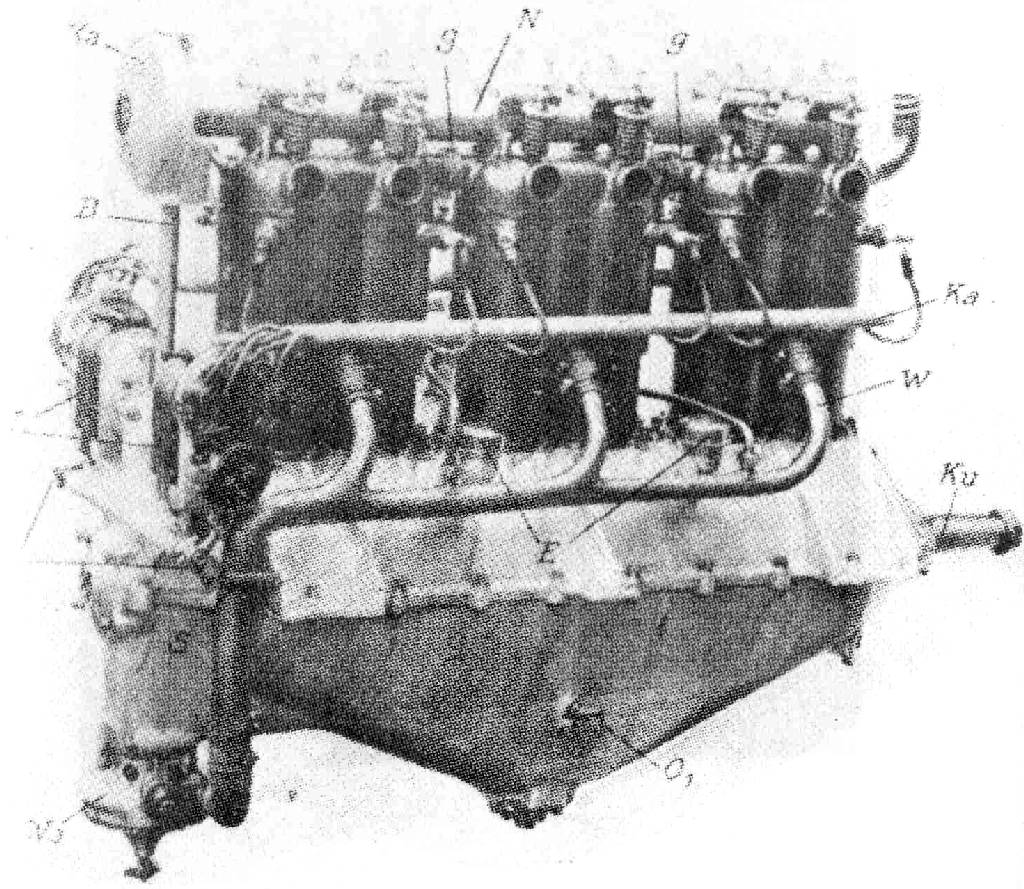
90 h.p.
|
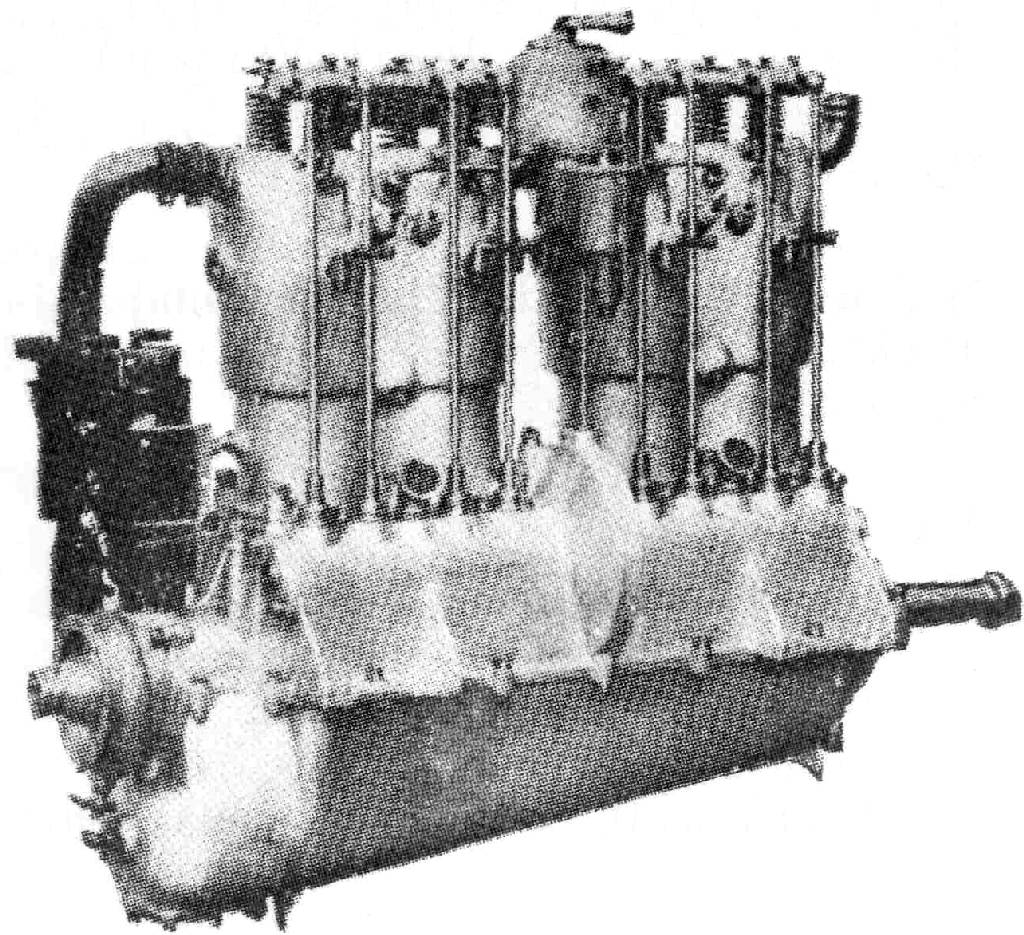
70 h.p. Mercedes-Daimler.
|
|
[Pg 10c]
N.A.G. Neue Automobile Ges. m.b.H., Berlin-Oberschoneweide. |
OTTO ("A.G.O.") Gustav Otto, G.m.b.H., Karlstrasse 72, Munich. |
|
60 h.p., 4 cyl., 118×100 (1400 r.p.m.) 254 lbs. Vertical, water-cooled (pump). H.T. magneto (Bosch), 2 in the 95 h.p. Features.-- Cast-iron cylinders, copper jackets. Cylinders in pairs. Single cam shaft. Overhead valves. Crank shaft, hollow, on 5 metal bearings. 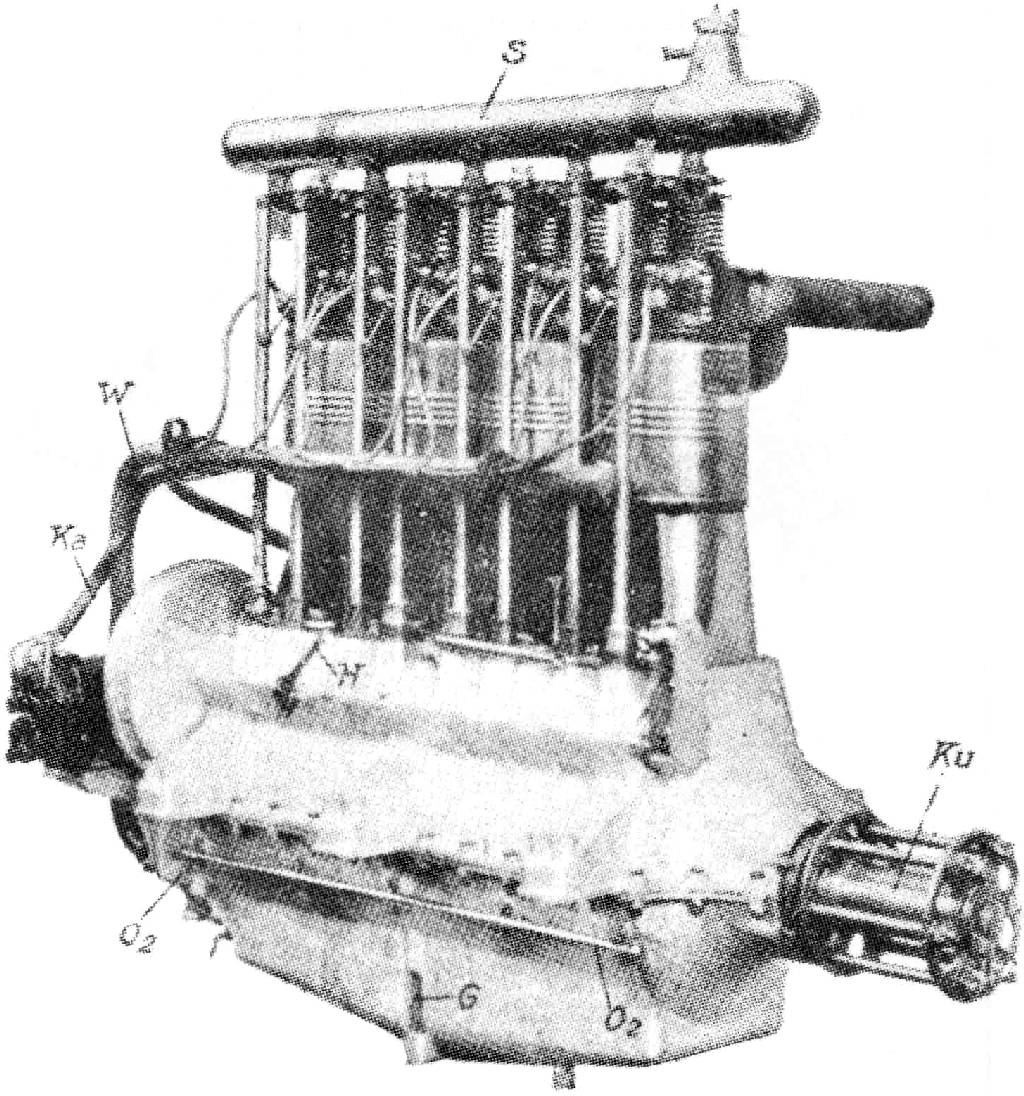
95 h.p.
|
50 h.p., 4 cyl., 110×150 (1400 r.p.m.) 199 lbs. Vertical, water-cooled (pump). H.T. magneto (Bosch). Features.-- Cast-iron cylinders. Single cylinders, all connected by long bolts and nuts. Overhead valves in the 100 h.p. Side valves in the 50 and 70. Single cam shaft. Crank shaft hollow, on metal bearings. 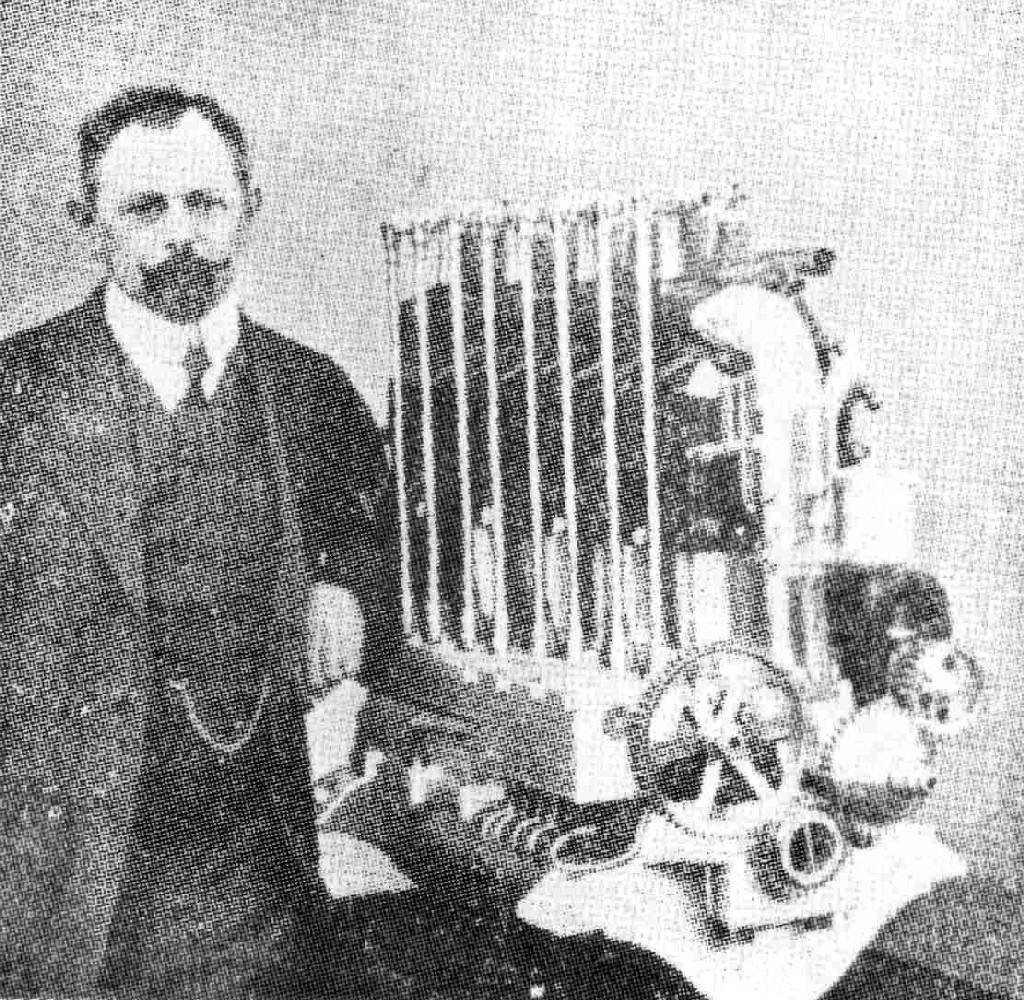
|
| ROTOR. | SYLPHE. |
|
70 h.p., 7 cyl., 110×150 (1100 r.p.m.) 199 lbs. Rotary, air-cooled. H.T. magneto. Features.-- Steel cylinders. Single cylinders. Overhead valves. Crank shaft, hollow, on ball bearings. |
40 h.p., 5 cyl., 110×130 (1200 r.p.m.) ? lbs. Rotary, air-cooled. H.T. magneto (Eismann). Features.-- Chrome nickel steel cylinders. Single cylinders. Overhead valves. Crank shaft, hollow, on metal bearings. 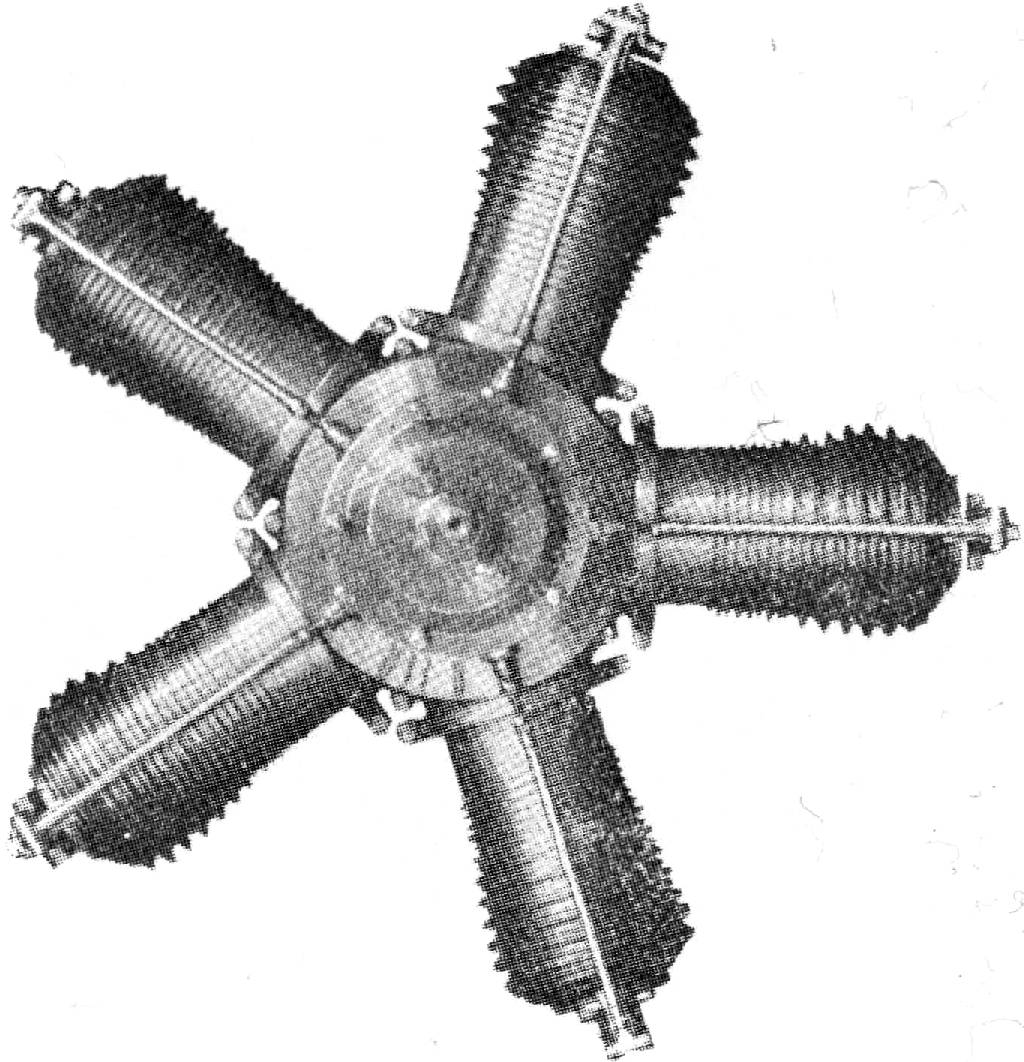
30-40 h.p.
|
|
CAPRONI & FACCANONI. Soc. di Aviazione Ingri Caproni & Faccanoni, Vizzola Ticino. |
(Dirigibles only.) FIAT. Fabbrica Italiano Automobile Torino, 30-35 Corso Dante, Turin (Torino). |
|---|---|
|
60 h.p., 6 cyl., 105×130 176 lbs. Radial, air-cooled. H.T. magneto. |
60 h.p., 4 cyl., 150×200 (1200 r.p.m.) 220 lbs. Vertical. H.T. magneto and accumulators. Features.-- Enclosed valves. Single cast-iron cylinders. |
|
GNOME. Fab. Italiana Mot. Gnome, 73 Strada Venaria, Turin (Torino). |
ITALA. Itala Fabbrica Automobili, Barriera Orbassano, Turin (Torino). |
| Works of the Italian built Gnome engines. |
50-55 h.p., 4 cyl., 115×140 (1500 r.p.m.) 397 lbs. Vertical, water-cooled (pump). H.T. magneto. Features.-- Cylinders in pairs. Overhead inlets. Automatic carburetter. 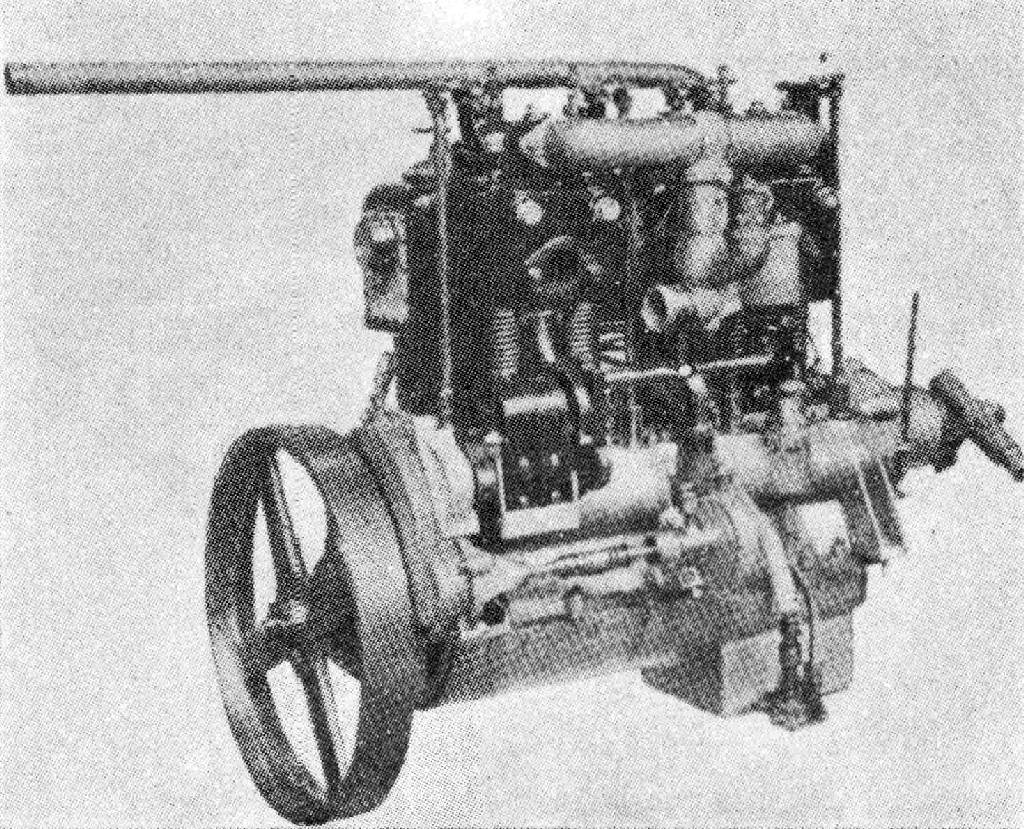
|
|
(Dirigibles only.) ISOTTA-FRASCHINI. Fabbrica Automobili Isotta-Fraschini, 79 Via Monte Rosa, Milan. | |
|
100 h.p., 4 cyl., 130×180 ( r.p.m.) 662 lbs. Vertical. H.T. magneto. Features.-- Overhead inlets. Horizontal exhausts. Special radiation. Zenith carburetter. | |
|
[Pg 12c]
L. U. C. T. Ladetto-Ubertalli & Cavalchini, Via Cavalli.-Angolo Via Circonvallazione Turin (Torino). |
S. P. A. Società Ligure Piemontese Automobili, Barriera Crocetta, Turin. |
|
50 h.p., 7 cyl., 110×120 ? lbs. Rotary, air-cooled. H.T. magneto. |
40-50 h.p., 4 cyl., 95×150 (1200 r.p.m.) 199 lbs. Horizontal, water-cooled (pump). H.T. magneto and accumulators. Features.-- Two pistons per cylinder. Ball bearings throughout. 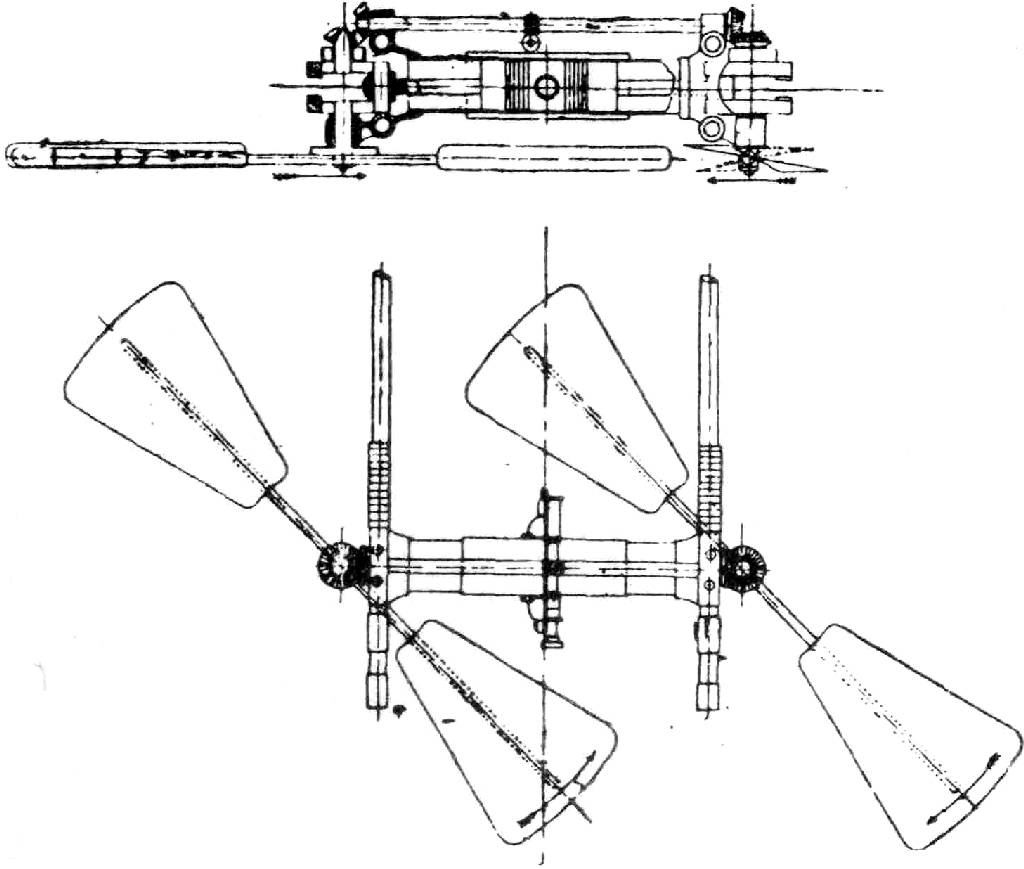
Dirigible engine.
There is also a vertical 160 h.p. dirigible engine. |
|
OERLIKON. Société Oerlikon Suisse de Machines Outils, Oerlikon. | |
|---|---|
|
55 h.p., 4 cyl., 100×200 (1200 r.p.m.) 176 lbs. Horizontal opposed, water-cooled (pump). H.T. magneto (2 circuits for 2 sets of plugs). Features.-- Steel cylinders (copper jackets). Single cylinders. Overhead valves. Single cam shaft. 2 carburetters (one for each pair of cylinders). Crank shaft, solid, on ball bearings. Open crank case. 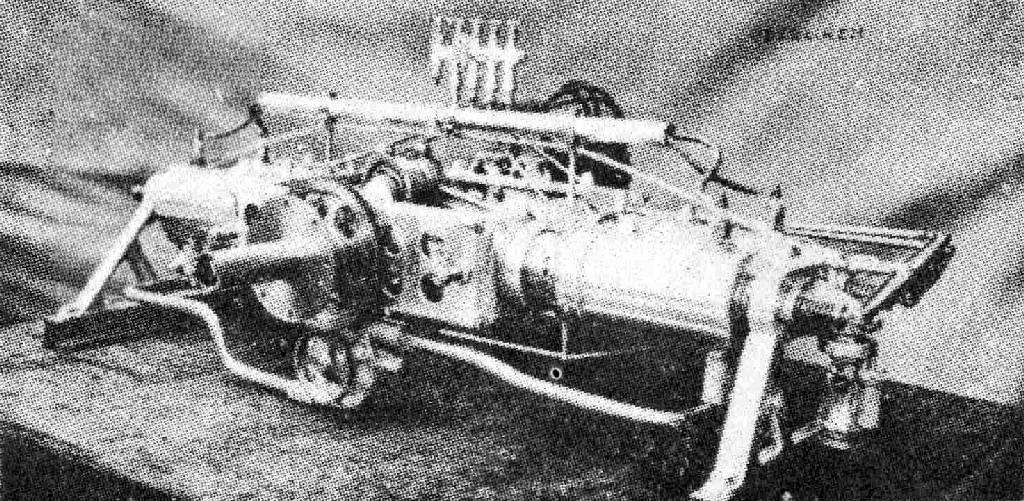
|
|
ADAMS-FARWELL. 21, Athol Street, Dubuque, Iowa. |
ALBATROSS. Albatross Co., Detroit, Mich. |
|---|---|
|
36 h.p., 5 cyl., 102× 88 (1200 r.p.m.) 97 lbs. Rotary horizontal. H.T. magneto. Features.-- No flywheel. All valves in cylinder head, actuated by a single push and pull lever worked by a single cam. Valves close outwardly and are held shut by centrifugal force. Variable lift. Exhaust ports. Mechanical oil feed. Engine weights are "fully complete." 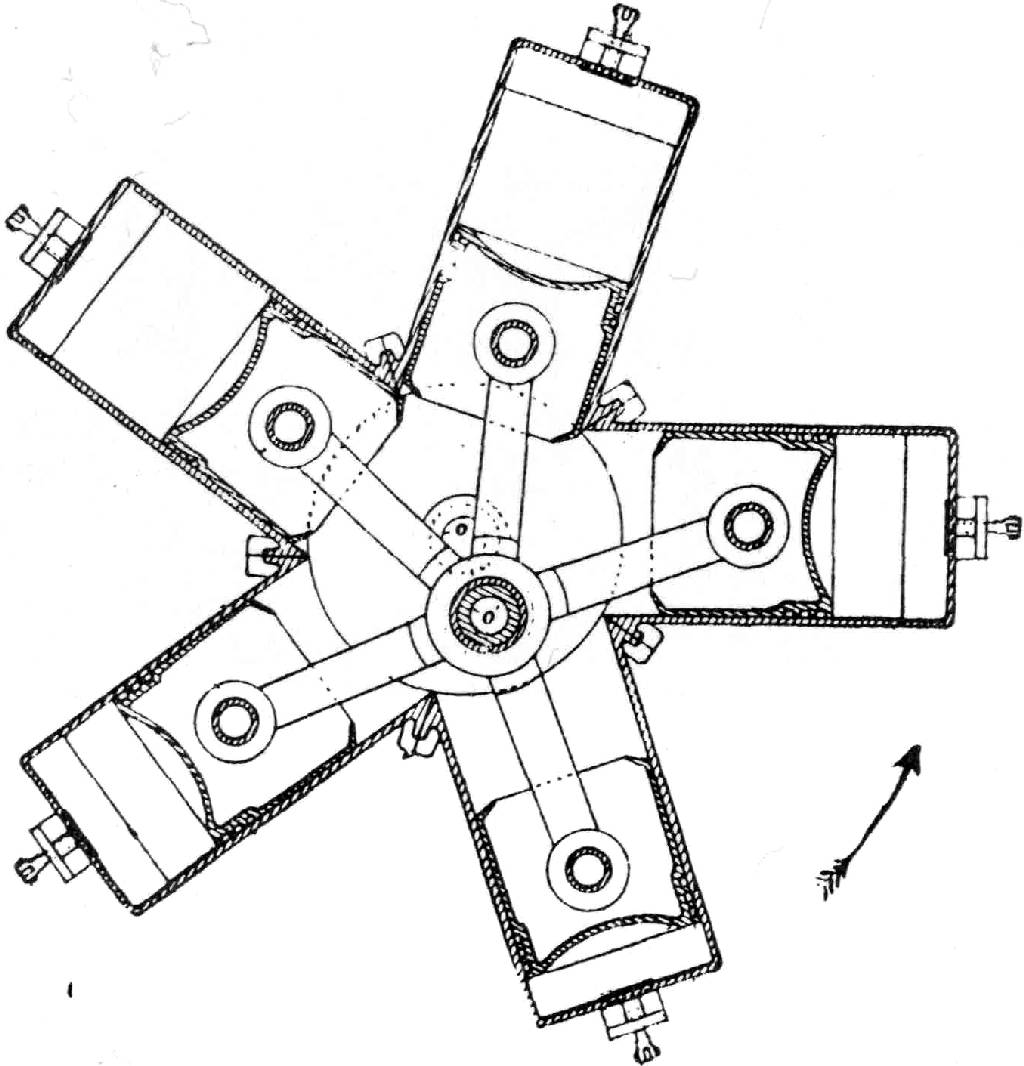
|
50 h.p., 6 cyl., 113×125 (1230 r.p.m.) 250 lbs. Radial. The 50 is air-cooled, the 100 water-cooled. |
|
CALL. Aerial Navigation Co. of America, Girard, Kansas. |
CURTISS. Curtis Aeroplane Co., Hammondsport, N.Y. |
|
50 h.p., 2 cyl., 150×131 185 lbs. Horizontal opposed, water-cooled. Mechanical inlets. Features.-- 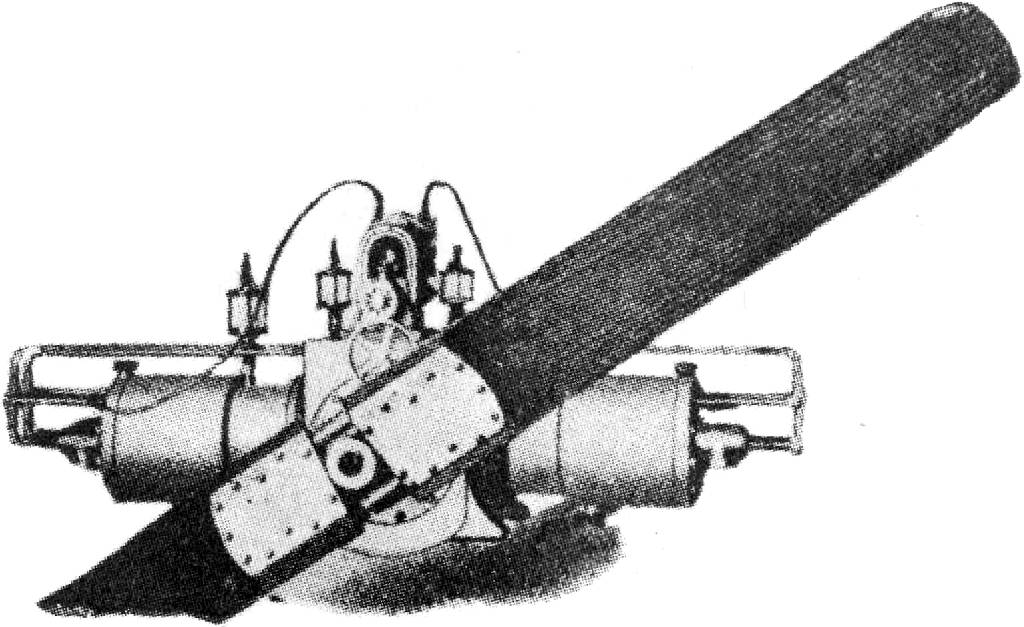
|
40 h.p., 4 cyl., (1100 r.p.m.) ? lbs. 40 and 75, V shape, water-cooled (pump). H.T. magneto (Bosch dual). Features.-- Single cylinders, copper jackets. All valves in cylinder heads, actuated by rocking levers from single cam shaft. 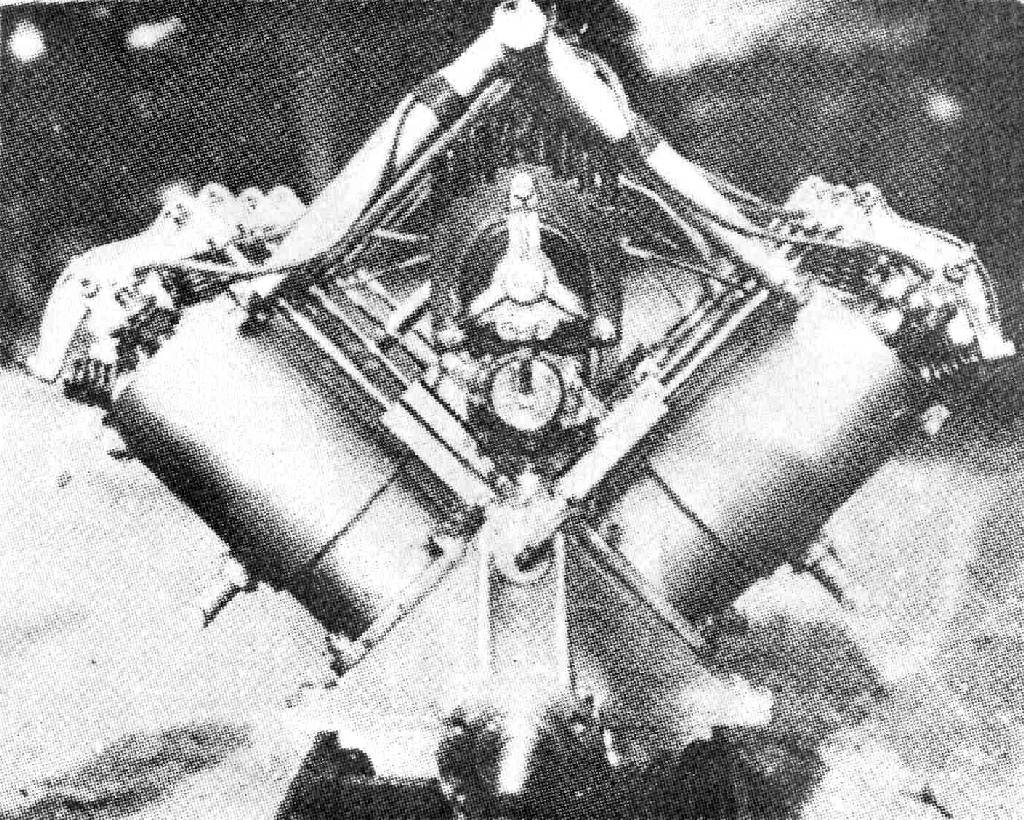
|
|
[Pg 14c]
DETROIT AEROPLANE CO. Detroit Aeroplane Co., Detroit, Mich. |
ELBRIDGE. Elbridge Engine Co., 10, Culver Road, Rochester, N.Y. |
|
30-40 h.p., 2 cyl., 127×127 (1200 r.p.m.) 110 lbs. 2 cycle horizontal, air-cooled. H.T. magneto. Features.-- All valves in cylinder heads operated by a single cam. Valves easily detached. Very large valves. Schebler carburetter. 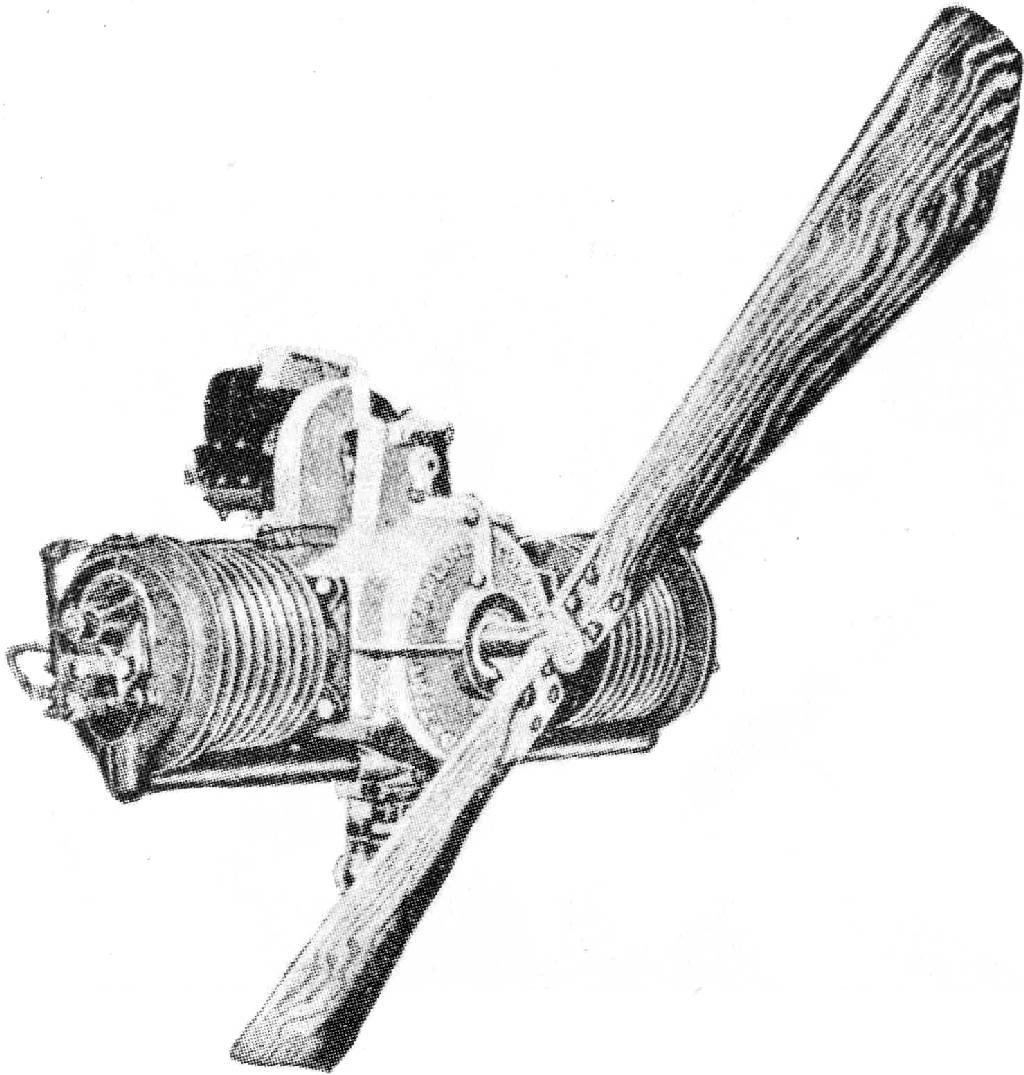
Over-all length of the 30/40 is 19 in
|
40 h.p., 4 cyl., 123×114 198 lbs. Vertical, water-cooled. Valveless. Oil in gas. Features.--Extra large bearings. 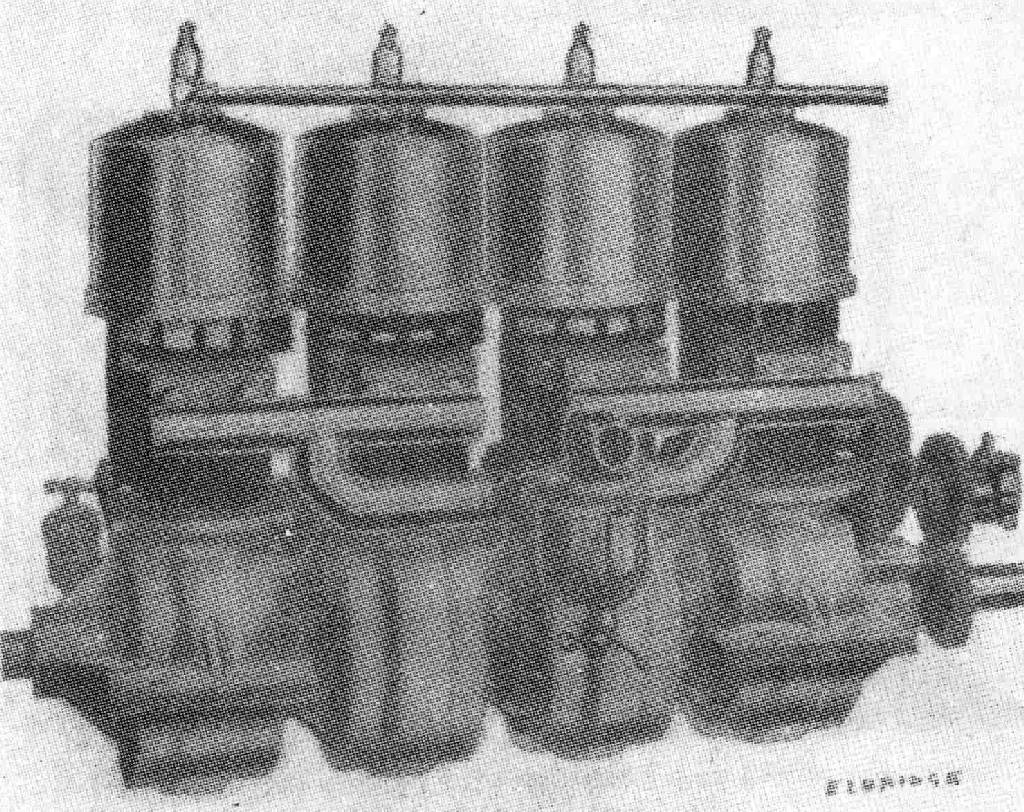
|
|
HALL-SCOTT. Hall-Scott Motor Car Co., San Francisco, Cal. |
KEMP (GREY EAGLE). Kemp Machine Works, Muncie, Ind. |
|
30 h.p., 4 cyl., 100×100 142 lbs. First two are vertical, the others Cast-iron cylinders. 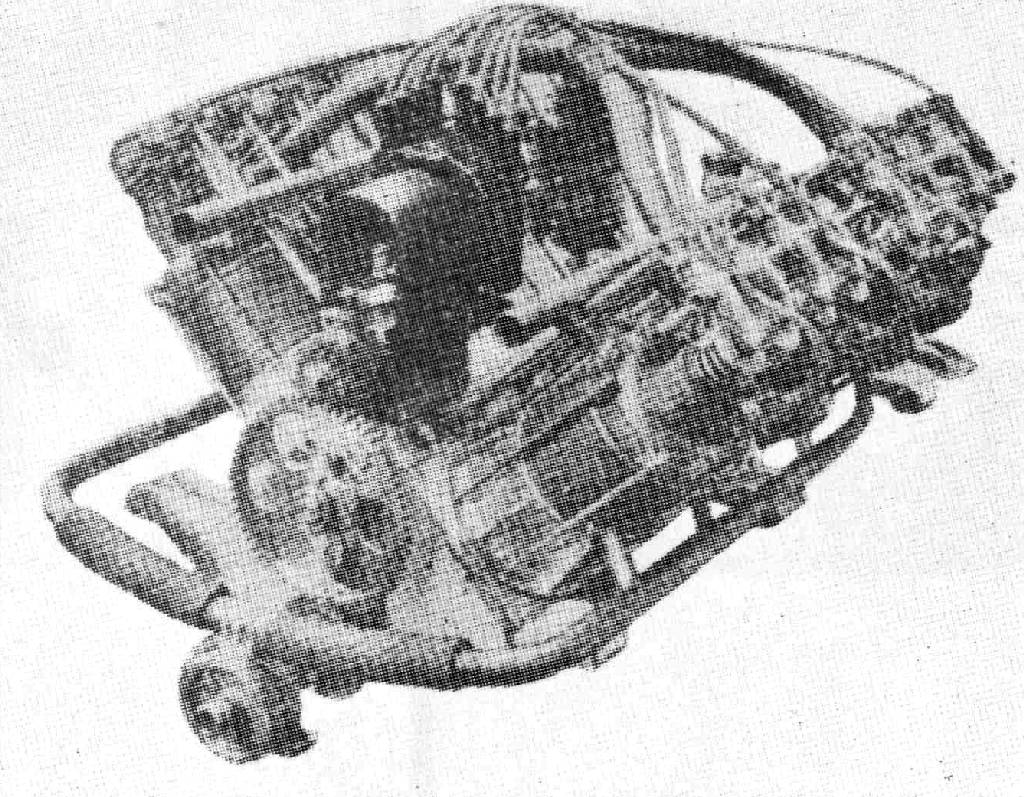
|
1912 models: 35 h.p., D 4 cyl., 100×113 ? lbs. 1913 models: 16 h.p., G 2 cyl. lbs. Vertical, air-cooled. H.T. magneto. Features.-- Overhead valves. Extra large exhausts in centre of cylinders. Special semi-steel (grey iron) cylinders. Designed to work at 350°-400° Faht. 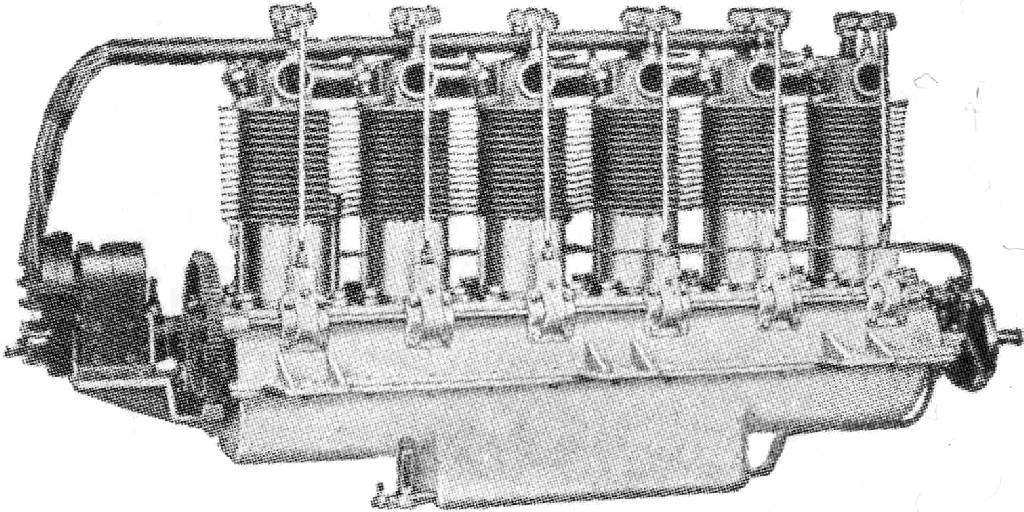
|
|
[Pg 15c]
KIRKHAM. C. Kirkham, Savona, N.Y. |
MAXIMOTOR. Maximotor Makers, Detroit, Mich. |
|
45 h.p., 4 cyl., 105×120 (1400 r.p.m.) 180 lbs. Vertical, water-cooled (pump). H.T. magneto (Bosch, 2 spark). Features.-- Cast iron cylinders and pistons. Patent poppet-sleeve valves. 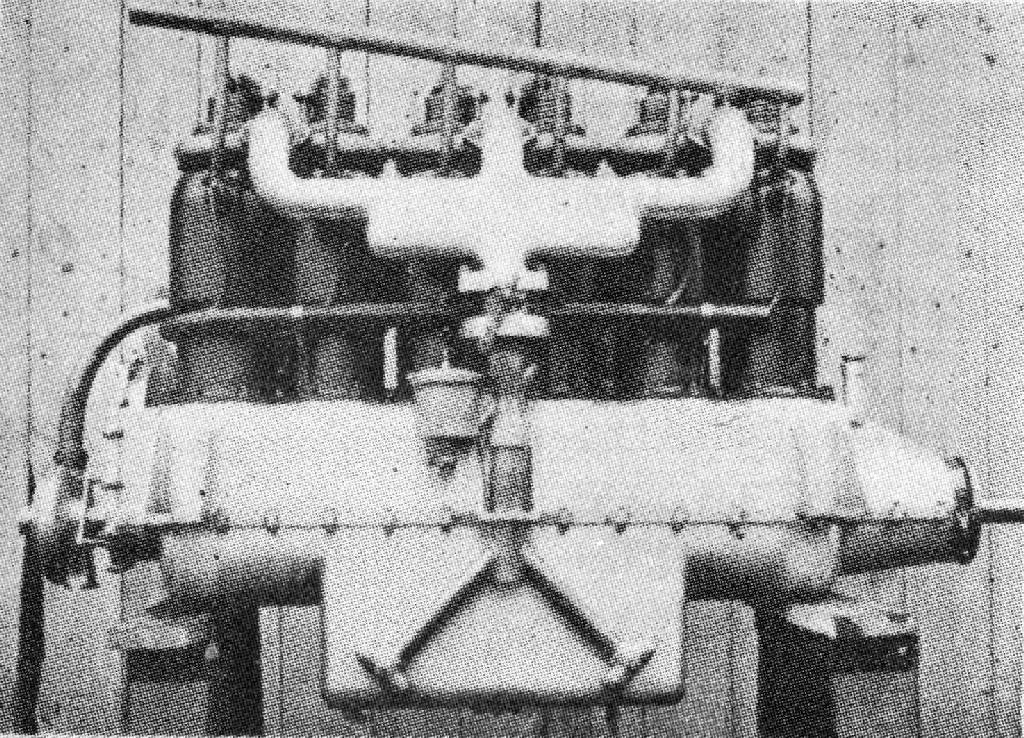
|
50 h.p., 4 cyl., 113×127 ( r.p.m.) 200 lbs. Vertical, water-cooled (pump). H.T. magneto (Bosch or Mea). Features.-- Started from aviator's seat. Double plugs. Half compression fitted. Crank shaft, hollow, on 3 ball bearings. |
|
ROBERTS. Roberts Motor Co., Sandusky, Ohio. |
STURTEVANT. B. F. Sturtevant Co., Hyde Park, Boston, Mass. |
|
50 h.p., 4 cyl., 113×125 165 lbs. Vertical, 2 cycle, water-cooled (pump). H.T. magneto. Features.-- 2 carburetters. Special magneto advance. Babbit bearings. Very large hollow crank shaft. Special metal cylinders (aerolite). Special by-pass. Rotary inlets. 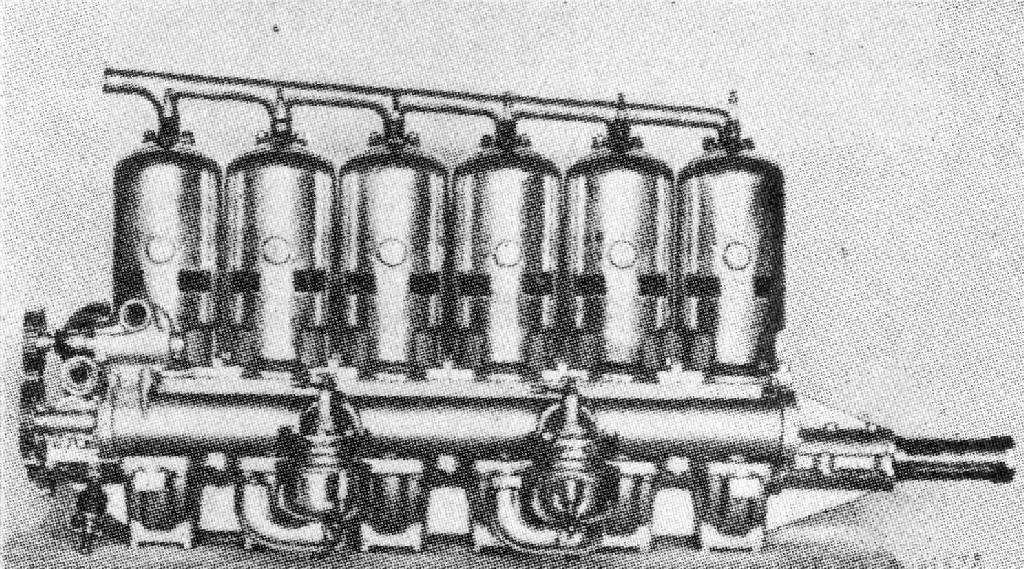
|
40 h.p., 4 cyl., 113×113 (1300 r.p.m.) 200 lbs. H.T. magneto (Mea). Features.-- Semi-steel cylinders (jackets cast with them). Single cylinders. Single cam shaft. No overhead valves. Exhaust valve lifters. Nickel steel hollow crank shaft (5 bearings in the 4 cyl., 7 in the 6 cyl.) |
|
[Pg 16c]
WELLES & ADAMS. Wells & Adams, Bath, N.Y. |
WRIGHT. The Wright Co., Dayton, Ohio. |
|
50 h.p., 4 cyl. 200 lbs. Vertical, water-cooled (pump). H.T. magneto. Features.-- Single cylinders (large brass jackets). Double plugs. No valve cages. Chrome nickel crank shaft, on 5 bearings. |
30 h.p., 4 cyl., 112×100 (1650 r.p.m.) 190 lbs. 50 h.p., 6 cyl., 112×100 (1150 r.p.m.) 230 lbs. Vertical, water-cooled (pump). H.T. magneto. |
Note.
There are a good many other U.S. engines of little or no account. The majority of these are merely more or less accurate copies of well-known European engines, and none of them have any vogue.
Note.—So far as possible the directory lists are exhaustive for the entire world. Anyone accidentally omitted is requested to communicate with the Manager, All the World's Air-craft, 5, Queen Victoria Street, London, E.C.
CARBURETTERS.
FABRICS.
GARMENTS FOR AVIATION.
HANGAR AND SHED BUILDERS.
INSURANCE.
LUBRICANTS.
MAGNETOS.
MISCELLANEOUS ACCESSORIES.
PACKERS AND SHIPPERS.
PATENT AGENTS.
PETROL.
PROPELLERS.
RADIATORS.
ADER (Clement), Chateau de Ribonnet, Beaumont-sur-Leze (Haute-Garonne, France). Born 1841. Officer Leg. d'Hon. Experimented from 1892. His Avion flew 300 metres at Satory, 12th October, 1897. This was the first flight ever made by a power machine in Europe. One of his early machines is in the Arts et Metiers Museum, Paris.
ALEXANDER (H. I. H. Grand Duke), Michailovitch of Russia, Xenia Palace, St. Petersburg. Born 1866. Admiral of the Russian Navy. Prime mover in anything having to do with aviation in Russia.
ALEXANDER (Patrick Y.), 2 Whitehall Court, London, S.W. Donor of the £1000 Patrick Alexander prize for British Aerial engines. Founder and supporter of various aerial clubs and societies.
ANDRE (Ing. A.), 82 Rue d'Amsterdam, Paris. Editor Revue Francaise de Construction Automobile et Aeronautique. Writer on aviation. Experimenter.
ARBUTHNOT (C. B.) (Major General H. T.) Chairman of the Aerial League of the British Empire.
ARCHDEACON (Ernest), 77 Rue de Prony, Paris. Born 1863. Chev. Legion d'honneur. Vice-President Ligue Nat. Aerienne. Barrister. From 1884 made balloon ascents. In 1904 made glider experiments with Gabriel Voisin. Giver of the Archdeacon Cup, won by Santos Dumont, 29th October, 1906. Also part giver with Deutsch of the Deutsch-Archdeacon prize, for a Kilometre flight, closed circuit, won by Henry Farman, 13th January, 1908.
ARNOUX (Réne), 45 Rue du Ranelagh, Paris. Born 1858. Vice-President Tech. Com. A.C.F. Designer of the electric motor of the Tissandier dirigible, 1882. Member Soc. Civil Eng. and Soc. Internat. Elec. Contributor to Omnia, etc. Inventor of the Arnoux biplane.
ATTWOOD (Harry). Well-known American aviator. In August, 1911, covered 1,435 miles in eight days.
AUFFM-ORDT. (Swiss). 2 Avenue Hoche, Paris. Pioneer Aviator.
AVERY, American pioneer aviator, associated with Herring, Chanute, and others.
BACON (late Rev.), British prominent aeronaut and lecturer.
BACON (Miss), daughter of the above. Aeronaut and lecturer.
BADEN-POWELL (Major, B.), F.R.A.S., F.R. Met. Soc., late Scots Guards. 32 Prince's Gate, London, S.W. Inventor of the Baden-Powell Box Kite. President of the Aeronautical Society from 1902 to 1909. Early experimenter and investigator with aeroplanes. Lecturer. Editor of Aeronautics.
BALDWIN (Capt. Thomas S.), 78 Maddison Square, New York. Well known U.S. Aeronaut of many years standing. Invented the Baldwin dirigible.
BALSAN (Jacques), 52 Quai Debilly, Paris. Born 1868. Aeronaut from 1905. Made an altitude record of 8,558 metres. In 1906 went by balloon, Paris to England. Vice-President Aero Club de France.
BANNERMAN (Major Sir Alexander, Bart.) In command of the British Army Air Battalion, 1911.
BARBER. British. Aeronautical Syndicate, 1909-12. Valkyrie type, etc., etc.
BARNWELL. British. Instructor 1912, Vicker's School.
BARRA. Well known French aviator.
BASENACH. German. Associated with Major Gross in producing the M type German dirigibles.
BARTON (Dr.) Built the first British dirigible in 1904. Capacity, 235,000 c.f.
BATHIAT (Georges). Frenchman. After only one hour's tuition at the Hanriot School, secured his certificate at Rheims, October, 1910. Brother of the Bathiat who flew a Breguet.
BAUMANN (Otto), Berlin. Second German to fly.
BAUMANN. French. Instructor at the Ewen School in 1912.
BEACHEY (Lincoln). American subject. In August, 1911, reached 11,578 feet (3,527 m.)—world's record to that date. Flew Niagara, 27th June, 1911, in a Curtiss.
BEATTY (George W.) American aviator. At the Chicago meet, August, 1911, he made the world's passenger flight duration trip in 3 hours, 42 minutes, 22 seconds. Also made American records for 2 man altitude 3080 feet and 3 man duration on a Wright.
BECKE (Captain). British Army. In December, 1912, made a (to that date) record flight—Flamborough to Plymouth, and later back again—4½ hours out; 2 hours back, excluding landings en route.
BEESE (Nellie). First German lady to get her pilot certificate, which she did on a Rumpler.
BELL (Dr. Alexander Graham Bell). Canadian. One of the founders of the Aerial Exp. Assoc. in U.S.A. Began experiments 1894. Inventor of the Tetratedal, etc.
BENDALL. British. Instructor Bristol School at Brooklands, 1912.
BERGET (Alphonse). French subject. Professor Inst. Oceanographique. Past President Soc. Francoise de Nav. Ae. Author of La Conquete de L'Air.
BERNARD. French. Tester for Farmans 1912-13.
BERRIMAN (A. E.) British. 44, St. Martin's Lane, London, W.C. Technical editor of Flight. Author of Principles of Flight, etc., etc.
BERSON (Prof. Arthur), Haupstrasse 9, Lehlendorp, Germany. Born 1859. Austrian. Well-known author on meteorological and similar subjects affecting aviation.
BESANCON (Georges), 35 Rue Francois I., Paris. Born 1866. Chev. Leg. d'Hon. Editor of L'Aerophile. Secretary Ae. C.F. Experimented with balloons from 1886 onward.
BESSONNEAU (J. B. Lieut. de reserve), 29 rue de Louvre, Paris. French. Born 1880. Pioneer aviation helper. Produced special steel cables of high resistance; also the well known Bessonneau hangars demontables. Organised the first town-to-town flights, 1910; also first Grand Prix, 1912.
BEZOLD (Professor Wilhelm Von), Director of the Meteorological Institute, Berlin, etc. Author of several works on aeronautics, etc.
BISS (Gerald), British, 1, Melina Place, Grove End Road, London, N.W. Automobile correspondent of the Standard. Aviation expert.
BLANCHARD. Frenchman. 1753-1809. First man to cross the English Channel in a balloon (1781).
BLAND (Lillian E., Miss), Carnmoney, Belfast, Ireland. First woman aviator to design and build her own machine, The Mayfly. Has since ceased.
BLERIOT (Louis), 56 Boulevard Maillot, Paris. Chev. Legion d'Honneur. Inventor of the Bleriot monoplane. Pioneer. Experimented from 1906. Has had more falls than any other aviators. First man to fly the Channel, which he did in Bleriot XI., 25th July, 1909. Member, Com. d'Aviation of the Ae. C.F.
BIELOVUCIC. Peruvian. Flew the Alps, 1912. Well known aviator.
BISS (Gerald). 1, Melina Place, Grove End Road, London, N.W. Well-known writer on automobile and aviation.
BOCKLIN. Swiss. 1827-1901. In 1850 became interested in aviation. In 1881 built gliders and a model aeroplane. Triplane, 1881. Biplanes, 1882-1887. In 1888 a monoplane with electric motor.
BOLOTOFF (Prince), Reigate Priory, Reigate, England. Russian subject. Pioneer aviator.
BOOM (J. A.) Editor of the De Luchtvaart, Ged. Aude gracht 144, Haarlem.
BORGNIS (Achille), 48 Rue d'Université, Paris. Early experimenter and inventor. Vice-President of the Com. d'Aviation Aeronautiques Club de France. Member Ae. C.F. (See aviators.)
BOOTHBY (Lieut. F. L. M.) British Navy. Served on board the Hermione when she was mother ship for aviation and aeronautics. Holds certificates for both aeroplanes and dirigibles.
BOSQUET (Chev. du), 8 Place de la Concorde, Paris. Chev. de l'Ordre de Leopold. Sec. Commission auto-aérienne.
BOUTTIEAUX (Col.) In command French military aviation, 1911-13.
BRACKE (Albert), 11 Chemin de Saint-Denis, Casteau-Mons, Belgium. Engineer. Editor L'Aero Mecanique. Inventor of the Bracke and Misson monoplane. Author on aerial matters.
BREGUET (Louis Charles), 31 Rue Morel, Donai (Nord), France. Born 1880. Began experimenting June, 1906, and in July, 1908, his gyroplane flew 20 yards at a height of 14 feet. President de la Section du Nord de la Ligue Nat. Aérienne.
BRERETON (J.). British. Instructor at British Deperdussin School, 1912.
BREWER (W.). Author of a standard technical work, The Art of Aviation. Formerly manager of Grahame-White & Co. Writer on aerial matters.
BRINDLEY (Oscar). American citizen. In August, 1911, he made 11,726 feet, at Chicago. These figures were afterwards stated to be incorrect, so the record was not allowed.
BROOKINS, U.S.A. Up to August, 1910, held world's height record, 6,338 feet (1,922 m.), made in a Wright at Atlantic City, U.S.A. Badly injured in an accident, August, 1910.
BUIST (A. Massac). Well-known British writer on aviation subjects. Technical contributor to Morning Post, Country Life, etc., etc.
BURGEAT (Captain). The first French Officer after Captain Ferber to take up flying. He purchased Antoinette VI.—the first Antoinette sold to the public.
BUSTEED (Harry). Australian. Bristol pilot in the British Military Competition, 1912.
BUTLER (Frank Hedges). F.R.G.S., 155 Regent Street, London, W. Founder of the R. Ae. C. Crossed the Channel in a Balloon 1905. Member Ae. C. F.
BUTTENSTEDT (Carl). 95a, Friedrichshaven Str, Berlin. Born 1845. Author of aviation works and early experimenter over many years. Designer of aeroplanes, etc.
CAILLETET (Louis Paul), 75 Boulevard S. Michel, Paris. Officer Leg. d'Hon. Doctor. President Ae. C. F.
CALDERARA (Lieut.). Italian Navy. Sent to France to study aviation in 1908. Has made many good flights ever since. In 1912-13 produced a naval hydro-aeroplane of his own design.
CAPAZZA (Louis). Frenchman. Born 1862. Head of the Clement-Bayard Works.
CAPPER (Col.). Formerly in command of British Army aviation headquarters, Farnborough, 1909-10.
CASSINONE (Alexander), Nordpolstr. 2, Vienna. Leading Figure in Austrian aeronautical circles.
CASTAGNIERIS (Capt. Guido), 70 via della Muratte, Rome. Founder and secretary leading Italian aero clubs, etc.
CASTILLON DE SAINT-VICTOR (Comte G. de), 74 Avenue Marceau, Paris. Born 1870. Aeronaut since 1898. Did a trip, Paris to Sweden. Treasurer Ae. C. F., 1911.
CATERS (Baron de), Berchem-les-Anvers, Belgium. Born 1875. Motorist of renown in the early days. Early aviator pioneer.
CATTANEO. Italian. Well-known aviator since 1910.
CARDEN (Capt.). Experimental officer, appointed 1911, to British Army Air Battalion.
CAUMONT (late Lieut.). French aviator. Killed in a Nieuport monoplane, December 30th, 1910.
CAYLEY (George, Sir). Experimented about a hundred years ago with models and man-carrying gliders. Also wrote on Aviation, and is known as "the Father of Aviation."
CHANDLER (Capt. C. de F.) Commanding Signal Aviation School, U.S.A.
CHANUTE (Octave), U.S.A. Frequently alluded to as "the father of aviation." In company with Herring he joined Langley in 1905. He did much work with gliders. He propounded the theory that little was to be learned from studying birds. Discovered that the greatest lift was obtained from a plane flat in front and arched from the side. Died November, 1910. Aged 78.
CHATLEY (Professor H.), B.Sc, Imperial Eng. Col. Tientsin, China. Britisher. Author of The Force of the Wind (Griffin & Co.), and an authority on aviation matters in general.
CHAVEZ (Georges). Peruvian aviator, resident in France. Maker of many records. First aviator to fly the Alps, 22nd September, 1910. Fatally injured on that occasion.
CHEREAU. Frenchman. London manager of the Bleriot Co. and Bleriot School at Hendon.
CHOENDEL (late). German aviator, who made an altitude record of 1680 metres with a passenger. Killed on alighting.
CLEMENT (Gustave Adolphus), 33 Quai Michelet, Levallois-Perret (Seine), France. Born 1855. Officer Leg. d'Hon. Creator of the Clement-Bayard dirigibles, etc.
COCKBURN (Geo. B.), Gloucester, England. One of the first Englishmen to take up aviation.
CODY. American; naturalised British, 1909. Inventor of the Cody kite. Employed by the British War Office for aviation work, 1905-1909. Inventor of Cody biplanes. Won Michelin prize 1910 and 1911. One of the best-known British aviators. In August 1912, made a biplane speed record of 72.4 m.p.h. Constructor.
COLLOMB. Frenchman. Early experimenter with flappers, etc.
COLMORE (Cyril). British. Ae.C. Pilot 15. Flying partner with the late Cecil Grace. Now given up flying.
COLSMAN (Alfred), Friedrichshaven, Germany. Director of the Zeppelin Co., etc.
CONNEAU (Lieut.) French Navy. Winner of the Daily Mail £10,000 prize, 1911, with a Bleriot. Winner of the Paris to Rome and the Circuit of Europe races, 1911. Flies under the name of "Beaumont."
CORNU (Paul), 24 Rue de la Gare, Lisieux, France. Pioneer experimenter with helicopters. In 1908 one of his inventions rose 16 inches.
CROCCO (Lieut.) Italian. Had a good deal to do with the designing of the Ricaldoni dirigible.
CROOKSHANK (Major C. de W.), R.E. Prominent supporter of aviation. Member of the R. Ae. C. Committee, 1910-11.
CURTISS (Glen. H.), Hammondsport, N.Y., U.S.A. Won the Gordon Bennett in 1909 on the Curtiss. Formerly a member of the Aerial Experiment Association, out of which the Curtiss was evolved. Is Ae. C.F. Pilot 2. Head of the Curtiss Aeroplane Co.
DAHLBECK (Lieut.). First Swedish naval aviator. Trained in England.
DAVELNY. Commandant French Navy. Appointed 1911, to take command of French naval aviation.
DAUCOURT. Frenchman. First pilot to fly from Paris to Berlin, 16th April, 1913. Average speed 100 k.p.h. Time 12 hours, 32 minutes, including two stops.
DE BAEDAR (F.), 7 Rue Rameau, Paris. Editor Revue Sportive de l'Aviation et de l'Automobile.
DE DION (Marqus), 104 Avenue des Champs Elysées, Paris. Born 1856. Principal founder and Hon. President Ae. C. F.
DE HAVILAND (G.) British aviator. Designer of a biplane and a motor purchased by the War Office, in December, 1910. He was subsequently engaged by the Government for work on Salisbury Plain. In August, 1912, made the British altitude record to date of 9,500 feet with a passenger.
DELAGRANGE (the late Leon). Born 1872. French sculptor. Took up aviation early in 1907. He purchased Voisin No. I., which made its first trials 28th February, 1907. Subsequently engaged in experiments with Archdeacon. In 1908 bought a Voisin No. III. Later on got a Bleriot. Killed 4th January, 1910, at Croix d'Hins, Bordeaux, in a Bleriot. Was Ae. C. F. pilot 3.
DEMANEST (Rene). French. 25, rue d'Orleans, Neuilly sur Seine. Began flying an Antoinette in 1909. Won the Ae. C. F. prize.
DEPERDUSSIN. (See machines).
DEPREZ (Marcel). Frenchman. Writer on Aerial subjects.
DESBLEDS (L. Bein). Lecturer on Aeronautical Engineering, Polytechnic, London.
DEUTSCH (Henri de la Meurth), 4 Place des Etats-Unis, Paris. Officer Leg. d'Hon. Founder member of the Ae. C.F. Donor of the prize of 100,000 francs won by Santos Dumont, 19th October, 1901. Owner of the dirigible Ville de Paris. Vice-Pres. Legue Nat. Aérienne. Donor in part of the Deutsch Archdeacon prize. Offered 1909 to found a Technical Institute of Aviation, Paris University.
DICKSON (Captain). Ex-British Army officer. The first British aviator to distinguish himself at an International flying meet.
DOUTRE. French lawyer, interested in aviation. Invented a stabilising device in which Maurice Farman was interested.
DREXEL (A.) Scotland. American citizen. Made world's record at Lanark, 12th August, 1910, in a Bleriot, 6,750 feet (2,057 m.), beating previous record of Brookins.
DRIVER. British aviator. Flew in first aerial post, 1911.
DRZEWIECKI (Stefan), 62 Rue Boileau, Paris. Russian. Born 1844. Chev. Leg. d'Hon. In 1885 investigated aviation in connection with bird flight. Well known otherwise as an inventor of submarines, torpedo tubes, etc.
DU CROS (Harvey), M.P., 14 Regent Street, London, S.W. Born 1876. Takes considerable interest in aviation. Member of the Parliamentary Committee thereon.
DUFAUX (Armand). Swiss. He and his brother Henry were interested in aviation in 1903, and in 1904 built an helicopter. In 1909 the first Swiss aeroplane built by them appeared.
DUNNE (Lieut.), Eastchurch, Sheppey, Kent, England. Ex-British Army officer. Engaged by British War Office to carry out heavier than air experiments immediately after the aeroplane had been demonstrated a possibility. (See Dunne in part I.)
DUPUY DE LOME. Frenchman. Made a hand-propelled dirigible in 1870-72.
DÜRR (Ludwig). German. Born 1878. Chief engineer Zeppelin works.
DUTRIEU (Mdlle. Hélène). Belgian. Second woman to take up aviation.
EFIMOFF (Michael). Russian. Made his first appearance in France early in 1910. (Ae. C. F. pilot 31). Distinguished himself on H. Farmans and Sommers. On his return to Russia he was made chief instructor of the special school of the Volunteer Aerial Association.
ELLEHAMMER (J. C. H.), Istedgade 119, Copenhagen. Commenced aviation studies in 1905. On 12th Sept., 1906, he made a flight—the first in Europe since Ader.
ELLYSON (Lieut. T. G.) U.S. Navy. In company with Lieut. Towers made the first flights ever made in a hydro-aeroplane.
ELY (Eugene B.) American. Was the first to fly successfully off a warship, which he did in a Curtiss biplane on January 19th, 1911, from the U.S. cruiser Pennsylvania. Killed 1911.
ENGLEHARDT (Kapitan). Prominent figure in German aeronautical and aviation circles. Writer on aerial subjects. Began flying in 1910, in which year he won several prizes. Killed 1911.
EQUIVELLY (Marquis d'), 2 Place Wagram, Paris. Pioneer aviator, with a queer multiplane, 1907.
ERBSLOCH (the late Oscar). Well known aeronaut. Inventor of a German dirigible, the R. M. W. G., afterwards named after him. He was killed in it with four others, July, 1910.
ESDAILE. British. Pioneered aviation displays in India, 1912.
ESNAULT-PELTERIE (Robert), 149 Rue de Silly, Billancourt (Seine), France. Early experimenter with aeroplanes. Flew the first R.E.P., October, 1907. Designer of the R.E.P. engine.
ESPITALLIER (Georges), 25 Rue St. Petersburg, Paris. Associated with the late Col. Renard in early dirigible experiments. Author of many aeronautical works.
ETRICH (Igo), Rotunde, Vienna II. Pioneer aviator with Wels. Designer of the Etrich monoplane—the first Austrian machine to fly.
EVANS (William Evans), 1428, Charlotte Street, Kansas City, Mo. Purchased a biplane built by Dr. William Greene, who has since given up aeroplane building. Evans made a number of exhibitions in the middle West, but had given up flying by summer of 1911.
EWEN (W. H.) British. Head of the School for British Caudron.
"F. A. I." Federation of the leading Aero Clubs of all countries, for control of International Aviation Meets, Pilot certificates, etc., etc. The bulk of certificates were first obtained in France, but in 1910 they were made obtainable in any country from its own Ae. C., under identical rules. No aviator may compete in any International event without a certificate. Aviation has now more or less outgrown the F.A.I, on account of the virtual disappearance of private aviation events before military interests; but it did excellent service in its time and is still of considerable indirect value.
FARMAN (Henri), 22 Avenue de la Grande Armée, Paris. Born in Paris, 1874, but is of English descent. Chev. Leg. d'Hon. First a racing cyclist, then racing motorist. Took up aviation. Bought Voison No. II (known as "Farman I."). On January 13th, 1908, he won the Deutsch-Archdeacon prize for covering a triangular course of one kilometre. In 1909 designed and built his own machine. Won the Michelin cup in 1909, making the record of 4 h. 17 min. 35 2.5s. in the air. Ae. C. F. pilot 5. In 1910, did 8 h. 12 mins. in the air, covering 288¾ m. (463 km.)
FARMAN (Maurice), 3 Rue Villaret de Joyeuse, Paris. Brother of above. Went in for aeronautics and motor racing. Bought Voisin No. IV at an early stage of aviation. He fitted this with alterations of his own, and subsequently evolved the M. Farman biplane. Ae. C. F. pilot 6.
FAURE (Jacques), 32 Rue Washington, Paris. Born 1873. Has long been prominent in aeronautical circles. Has crossed the Channel five times in gas bag balloons. Owns the Faure dirigible. Member of Committee Ae. C. F.
FELIX (Capt.) In 1911 in charge of the Bleriot Military School at Etampes.
FERBER (the late Capitane), flew as "De Rue." Born 1862 at Lyon. Commenced experiments with gliders in 1899 on Lilieuthal lines. In 1903 he built a power-driven machine. He taught Gabriel Voisin how to fly gliders. In 1908 was very active and flew several machines. Killed in a Voisin, 22nd September, 1909.
FERNANDEZ (the late). A Spanish tailor, resident in Paris, killed in 1909 in a machine of his own design.
FISHER (E. U. B.) First flew on a Hanriot, early in 1911. August, 1911, engaged as pilot by Messrs. Vickers.
FOKKER (Antony), Haarlem, Holland. Born in Java, 1890. Designed a monoplane in 1911 with special stabilising device. He flew this at Johannisthal. Subsequently started a company.
FOURNY. French. On September 11th, 1912, broke all previous distance and duration records by flying, non-stop, 13 hours, 22 minutes in M. Farman. Renault motor. Distance 1,017 km. (631 miles) at Etampes, France.
FRISBIE (J. J.) American aviator. Killed in a Curtiss at Norton, Kan., having been driven to fly in unsuitable weather by the jeers of a hostile crowd.
FÜRSTENBERG (Prince). Austrian. President of the Centre Aeronautical Committee, formed in June, 1912.
GALANSCHIKOFF (Mdlle.) Russian. On November 22nd at Johannisthal, made world's altitude record for lady fliers with 2,400 meteres.
GARROS. French aviator. Came in second in Paris to Rome and the Circuit of Europe races, 1911. Up to November, 1911, held world's height record (13,000 feet). Made in a Bleriot.
GASNIER (René), 1 Rue Scribe, Paris. Winner of many prizes in balloon events. French champion for the 1907 Gordon-Bennett. On Committee of Ae. C. F. Hon. President Ae. C. d'l'Ouest. Inventor of an aeroplane, 1908.
GAST (Madame C. Crespin du), 12 Rue Levoux, Paris. Well-known in aeronautical circles.
GASTAMBIDE (Robert), 27 Boulevard de Courcelles, Paris. Born 1882. Civil engineer. Took great interest in aviation at the start. Designed the Gastambide-Mengin from which Antoinettes were evolved. This was the first monoplane to carry a passenger (September, 1908.)
GELEYNS (C.) Editor of the Avia, Wynbrugstreet 13, Rotterdam.
GERRARD (Lieut.), R.M.L.I. British. August 17th, 1911, made world's passenger record to date, 4 hours, 13 minutes, on Short No. 34.
GIFFARD (H.) Britisher, resident in France. In 1850 built the first practical dirigible. It had a steam motor. In 1852 it made a controlled speed of about 5 m.p.h.
GILBERT. French. On March 28th, 1913, flew from Lyons to Villacoublay in 3 hours, 10 minutes, a world's record to date from town to town non-stop.
GILL (Howard). U.S.A. aviator. In October, 1911, flew for 4 hours 16 minutes 35 seconds in a Wright. American record to that date.
GILMOUR (Graham). British. Pilot Ae. C.F., April, 1910. In 1911, flying a Bristol: with which many of his flights have been directly or indirectly of a highly sensational nature. These have included a flight alleged to be over London (reported to R. Ae. C.—case dismissed), flying low over Henley Regatta (certificate suspended, with subsequent litigation). Won second prize in the Brooklands-Brighton Race, May, 1911. Killed February, 1912.
GIBERT. French aviator who made records, 1911.
GLAZEBROOK (Dr. R. T.), C.B., F.R.S. Director of the British National Physical Laboratory.
GLIDDEN (Charles J.) The well-known American motorist. Founder of many of the U.S.A. Ae. clubs.
GODARD (Louis), 170 Rue Legendre, Paris. Builder of the America Wellman Arctic Airship; inventor of the Godard Kite-Balloon; designer and builder of the La Belgique, etc., etc.
GORDON-BENNETT (James), 104 Avenue des Champs Elysees, Paris. American citizen. Owner of the New York Herald. Giver of the Gordon-Bennet aviation Prize. Previous to this he had instituted a similar event for motor cars, and few, if any, have done so much to advance the International sporting side of automobilism.
GOUPY (Ambrose), 59 Avenue Marceau, Paris. An early pioneer in aviation experiments—had the first triplane built for him by Voisins. Now a well known constructor.
GRACE (late Cecil). Naturalised British subject, ex-Chilian. Lost at sea while competing for the Baron de Forest prize, December, 1910.
GRADE (H.), Magdeburg, Germany. First man to fly in Germany. He did this on a Grade triplane early in 1909. Now a well known German constructor.
GRAHAME-WHITE (Claude), 1 Albemarle Street, Piccadilly, London. Pilot 30 Ae. C. F. on a H. Farman. Attempted to win the Daily Mail £10,000 London-Manchester prize, 1910. Gordon Bennett, 1911. Now constructor.
GREENE (Dr. W.), Treasurer, Aeronautic Society, U.S.A. Has done a great deal to advance aviation in the U.S.A. Designer of the Greene biplane—a machine which in no way infringed the Wright patents.
GRESWELL. British aviator. Flew in first aerial post, 1911.
GREY (Chas. G.), 166 Piccadilly, London, W. Editor of the Aeroplane. Well-known writer on aerial matters, formerly as "Aero-Amateur," later under his own name. By 1912, had come to occupy a unique position of his own by an uncompromising statement of facts without regard to other circumstances.
GROSS (Major). In command of the German war dirigibles. Designer of the M type. (Gross).
GRUBB (Capt. A. H. W.) D.S.O., R.E. Prominent supporter of aviation. Member of R. Ae. C. Committee, 1910-11.
GUILLEMEAU (R.), 82 Rue d'Amsterdam, Paris. Editor Revue Francaise, de Const. Autble et Aeronautique.
HAENLEIN (Paul). German, 1835-1905. Early experimenter with dirigibles. Inventor of the "semi-rigid" system.
HAMEL (Gustav). British. Well-known aviator. Winner of Brooklands-Brighton Race, May, 1911. Flew the first British aerial mail, 1911. In April, 1913, on behalf of the London Standard, made a non-stop flight with a passenger London to Cologne in a Bleriot. Many other famous flights.
HAMMOND (J. J.) Australian. Pilot 258, Ae. C. F., on a Sanchis Besa, 4th October, 1910. In 1911, visited Australia with a Bristol, when he made many sensational flights.
HARGRAVE (Lawrence), Sydney, N.S.W., Australia. A pioneer in aviation, 1890-95. Experimenter with and inventor of box kites.
HARKNESS (Harry). American aviator. Has made various records.
HARMON, (Clifford B.) One of the best-known U.S.A. amateur aviators. Made U.S.A. time record (2h. 3m.), 2nd July, 1910.
HARRISON (Eric). Australian subject. Instructor of the Bristol school at Lark Hill, Salisbury Plain, 1912.
HARRISON (Lieut. L. C. R.) British R. F. C. Killed 28th April, 1913, in the famous Cody which won the British Military Aeroplane competition.
HAULT (Adhemar de la), 214 Rue Royale, Brussels. Editor of La Conqûete de l'air. Well-known aviation pioneer. Interested in Ornithopters.
HAWKER (H. G.) Australian subject. On October 24th made British duration record to date—8 hours 23 mins. in Sopwith biplane. Awarded the Michelin Cup, 1912.
HEKKING (R.) Frenchman. In September, 1909, carried out experiments with a biplane glider of 7 m. span and 25 m². surface. He rose to a height of 25 m., and is stated to have remained stationary for 5 minutes. Not confirmed, however.
HELEN. French aviator. Has appeared in various competitions since early in 1911.
HENDERSON (Brig. Gen.) British Army. First general to obtain British R. Ae. C. aviator certificate. Flying under the name of "Davidson" he obtained his certificate on a Bristol, at Brooklands, after seven days' training.
HENRY, Prince of Prussia. Well known for practical interest in motoring and aviation. Has driven his own car in races, and is a certificated aerial pilot for Germany.
HENSON. Died 1842. Projected a steam-driven monoplane early in the XIX century.
HERRING (A. M.), Freeport, Long Island, U.S.A. Started the study of aviation 1894. With Langley, 1895. With Chanute, 1896. Joined Ae. Exp. Assoc. and associated with Curtiss in the Herring-Curtiss. Subsequently (1910) with Burgess in the Herring-Burgess.
HERVE (Henri), 1 Rue Hautefeuille, Paris. Well-known authority on matters aeronautical. Author, etc.
HEWLETT (Mrs. Maurice) ("Madame Franck"). First lady aviator to obtain a British R. Ae. C. certificate.
HILDEBRAND (Kapitan Alfred), 10 Martin-Lutherstrasse, Berlin W. 30. Retired from German Army. A very well-known aeronaut. Owner of a Baldwin dirigible. Author of many works on aeronautics and aviation—the best known German writer on these subjects.
HINTERSTOISSER (Hauptmann Franz), Luisenstrasse 35, Vienna V. Commanding Austro-Hungarian Aeronautical service. 1911-12.
HIRTH (Helmuth). German. Made German passenger altitude record to date, at Johannistal, September-October, 1911. Height 2475 metres. Many other records. The best known of all German aviators.
HOFFMAN (Joseph). German. Built a steam-driven aeroplane in 1906.
HOLDEN (Col. H. C. L.) R.A.F.R.S. Prominent supporter of aviation. Member of the R. Ae. C. Committee, 1910-11.
HOWARD-FLANDERS. See British Aeroplanes, Part A.
HOWARD-WRIGHT. British. Early designer (see Part B). In January, 1913, became manager of S. White & Co., of Cowes.
HOUDINI (Harry). British. The famous "Handcuff King" flew a Voisin so long ago as November 2nd, 1909. He took it to Australia and won the first aeroplane flight prize there. He is the first to have taken out a "third party" insurance, which he did with the Albingia-Versicherungs-Aktien-gesellschaft, Hamburg, Germany, on November 29th, 1909. The policy was for 150,000 marks.
HUBERT. French aviator. Flew in the first British aerial post and was badly injured.
HUCKS (B. B.) British aviator. Has made several fine exhibition flights on a Blackburn. First man to make the double journey across the Bristol Channel, also to carry out wireless telephone experiments with aeroplane.
HUNTINGDON (Prof. A. K.), 14 Buckingham St., Charing Cross, London, W.C. Born 1856. Balloon expert, 1906-1908. Connected with the Dunne machines. Member of the R. Ae. C. Committee, 1910-11.
HURLBERT (Dr. Dane), Vermont, Lucerne, Switzerland. U.S.A. citizen. Experimenter in original types of aeroplanes, 1909-11
ILLNER. First man to fly in Austria, which he did on an Etrich.
ISSATIER. French private soldier who obtained three weeks' leave and secured his flying certificate at Betheny after fourteen days, in a Deperdussin.
ISENDAHL (Walther). German. Holsteinstrasse 21, Berlin-Wilmersdorf. Leading authority on aerial and boat motors.
JANE (Fred T.), The Hill, Bedhampton, Hants, England. Naval author, founder and editor of All the World's Air-craft.
JANNUS (Antony). American. Well-known aviator.
JATHO (Karl), Stader Chausse 22, Hanover, Germany. Born 1873. Pioneer aviator from 1893. Has built various machines—none very satisfactory.
JEANNIN (Emil), Berlin. Prominent German aviator.
JEFFERIES (Dr. John). 1760-1820 about. American. Accompanied Blanchard in the first balloon voyage across the English Channel, 1784.
JENKINS (F. Conway). In May, 1911, obtained his certificate (74) after only four flights on a Roe biplane.
JOHNSTONE (St. Croix). American aviator. 27th July, 1911, beat American duration records in a flight of 4 hours, 1 minute, 54 seconds. Distance 176 miles. Killed 1911.
JONES (Ernest L.), 250 West 54 Street, New York. Editor of Aeronautics (U.S.A.)
JOSEF FERDINAND (Grand Duke of Austria). Enthusiastic aeronaut and moving spirit in aviatory matters in Austria.
JOYNSON-HICKS. British M.P. who has specialised in endeavouring to advance aviation.
JULLIOT (Henri), 3 Rue de Flandre, Paris. Born 1855. Chev. Leg. d'Hon. Technical director of the Lebaudy works. Originator of the Lebaudy type of dirigibles. Designer of Lebaudy aeroplane. Member of Committee Ae. C. F.
KAPFERER (Henry), 26 Rue de Clichy, Paris. Chev. Leg. d'Hon. Director of the Astra Cie, and the Cie Gen. Transaerienne. Part designer of the Clement-Bayard dirigibles. Took an early interest in the aeroplane movement, and had a biplane built to his own design by Voisins in 1907. Also had an early monoplane about the same date or a little later. On Committee Ae. C. F.
KASSNER (Carl), Wilhelmstr. 10, Berlin. Professor, German writer on technical aviation matters.
KENNEDY (Rankin), British authority on aviation subjects.
KENNEDY. St. Petersburg. British subject. Engineer who has studied aviation for many years. In 1911, was an honorary aerial adviser to the Russian Government on matters aerial.
KINDELAN (Captain), Guadalajara, Spain. Born 1879. Interested in balloons since 1906. Designer of the Spanish military airship Torres Quevedos.
KNIGHT. British. Instructor 1912, Vickers School.
KOENIG. German aviator. Won the 1st prize given by the Berliner Zeitung am Mittag. 1,182½ kilos.
KRAUSS. Well-known German aviation engineer. Author of many articles.
KRESS (Wilhelm), Waaggasse 13, Vienna. Born 1836. Flew a model ornithopter in 1888. Author.
KRIEGER (Hans). German. Formerly chauffeur to the Kaiser. Built a monoplane of his own design, and on September 5th, 1911, obtained his certificate on it.
LAFFONT (late A.) Killed in an Antoinette, December 28th, 1910.
LAHM (Frank), Washington D.C., U.S.A. Well-known aeronaut.
LAMBERT (Albert B.) President of Ae. C. of St. Louis, U.S.A. Flies a Wright.
LAMBERT (Count Charles), 74 Rue Charles-Lafitte, Neuilly-sur-seine, Paris. Russian subject. Born 1865. Interested in aviation 1893 onward. First pupil of Wilbur Wright.
LAMMLIN. German. Killed at Strasburg, May 23rd, 1911.
LANA (Francisco), (1631-1687), (Italian). Jesuit who projected flying machines.
LANCHESTER. Author of well-known aerial classic.
LANE (Howard), 50, Parliament Street, Westminster, London, S.W. British citizen. Mechanical and Chemical Engineer. Born 1852 at Warwick. Government Contractor; Birmingham City Councillor, 1895-1900. Honours, South Kensington, 1873. Inventions, the Seamless Steel Gas Cylinder, 1882; Multiple Stage Gas Compressor, 1884; Roller method of Skin Balloon Construction, 1887; Regenerative Hydrogen Producing Plant, 1903; Turbine Aero-Motor, 1909, etc., etc.
LANGLEY (Samuel Pierpont). Born 1834. Died 1906. American pioneer from 1887. Commenced work in 1893 with Dr. Graham Bell, and later, Herring and Chanute. In May, 1896, he flew a large steam-driven model tandem monoplane—the Langley type. Author of Experiments in Aero Dynamics and other aerial classics.
LANZ (Karl), Lachnerstrasse 18, Mannheim, Germany. Wealthy patron of aviation in Germany. Giver of the £2000 Lanz prize won by Grade. Financed the Schütte dirigible.
LAROCHE (Madame la Baronne Raymonde de). The first lady aviator. Pilot Ae. C. F. 36. Purchased a Voisin in the summer of 1909 and entered for International events. Badly injured in an accident at Reims, July, 1910. In 1913, took up flying again.
LATHAM (Hubert), 7 Rue Rembrandt, Paris. Of English descent one side. Pilot 9 Ae. C. F. Director of the Antoinette Cie. Attempted to fly the Channel, 1909. (1) in Antoinette IV. (2) in Antoinette VII. (3) in August, 1910. Maker of many records. Killed by a buffalo, 1912.
LA VAULX (Comte Henri de), 2 Rue Gaston de St. Paul, Paris. Born 1870. Chev. Leg. d'Hon. Vice-President Ae. C. F., and one of its promoters. Founder and Vice-Pres. of the F.A.I. Took up aeronautics in 1900, since when he had made over 250 ascents. Record holder for "gas bags." Owner of a Zodiac dirigible in 1909-10.
LEBAUDY (Robert), 12 Rue de Lubeck, Paris. Sugar refiner. Member Ae. C. F. Founder of the Lebaudy Dirigible Cie.
LE BLANC (Alfred), 17 Rue Lakanal, Paris. Born 1869. Aeronaut in 1904. Winner of the Circuit d' l'Est., Aug., 1910.
LE BLON (late). Frenchman. Born 1875. Killed in a Bleriot at S. Sebastien, 2nd April, 1910.
LEFÈBVRE (Eugene). French aviator. Killed on a Wright, 7th September, 1909, at Juvissy.
LEGAGNEUX. In December, 1910, made a flight of nearly 6 hours, at Pau, (322 mile—53 m.p.h.) average, in a Bleriot.
LESSEPS (Comte Jacques de), 11 Avenue Montaigne, Paris. Well-known aviator in the early days.
LEVAVASSEUR. Known in France as "Pére Levavasseur." Chief engineer of the Antoinette Works and deus ex machina of the type. He severed his connection early in 1910, but rejoined in June, 1910, and remained as long as the company existed.
LEVE (Pierre), 17 Rue Cassette, Paris. Editor of La Revue Aérienne, official organ of La Ligue Nat. Aérienne.
LILIEUTHAL (Gustav), 5 Marthastrasse, Gross-Lichterfelde, Germany. Brother of the late Otto Lilieuthal, whose work he has carried on. Author.
LILIEUTHAL (Otto, the late). German subject. Began his interest in aviation when 15 years old. In 1889 published his Bird Flight as a Basis of the Flying Art, the result of 25 years observation of sea-gulls and storks. In 1891 he made glider flights. In 1895 he produced a biplane glider. On 12th Aug., 1896, he was killed while experimenting. Lilieuthal was the fountain head of modern aviation.
LINKE (Dr. Franz), Kettenhofweg 181, Frankfurt, Germany, Scientist. Born 1878. Author of Moderne Luftschiffahrt and other works.
LIORE (F.), 4 bis Rue de Corneille, Levallois-Perret, France. Early pioneer with the Witzig-Liore-Duthileuil. Since then evolved a monoplane.
LÔME (Dupuy de). See DUPUY DE LÔME.
LORIDAN. In July, 1910, in a H. Farman racer broke the existing altitude record by making 3,280 m. (10,758ft). Did 702 km., July, 1911.
MALONE (Lieut. Cecil J. L'Estrange). R.N. Navy Wing of British R. F. C. Assistant to director of Flying at Admiralty, end of 1912.
MAHIEU. In September, 1911, made the world's passenger record of 2460 metres (7981 feet) in a Voisin, at Issy. Duration of flight 3½ hours.
MANNING (H.) British. Aeroplane designer.
MAREY (Professor). Inventor of the Whirling table, 1870.
MARIE (Capitaine). French Army. On staff of Inspector General of Aeronautics.
MARIE (Pierre). Alsatian. Real name was Bournique. He made his name on a R.E.P.'s. In May, 1911, he was trying a 100 h.p. Deperdussin when the machine capsized and fell. He was taken to hospital and died a few hours later. His passenger, Lieut. Depuis, was burned to death.
MARS ("Bud"). Well-known American aviator. Has more than once been reported killed; but always appears again.
MARTIN (Glen L.) Santa Ana, California, U.S.A. Flying Curtiss types. Obtained a considerable reputation, and local amateur record at Los Angeles meet, end of 1910.
MASSAC BUIST. (See BUIST).
MATSIEVITCH (Kapitan). Russian Army. Was Instructor of the Military Aviation School at Sevastopol. Killed at Sevastopol, 1911.
MAXIM (Sir Hiram), Baldwyn's Park, Kent. Inventor of the Maxim gun, etc. American by birth, naturalised British subject. Began experiments with propellers, etc., in 1889. In 1890 to 1893 he experimented with a full-sized aeroplane, steam propelled. Abandoned the experiments after spending £20,000 on them. Resumed work 1909, without success. Author of Artificial and Natural Flight.
McCLEAN. British aviator. Towards the end of 1910, he loaned two Short biplanes to Eastchurch flying ground for the training of naval officer in aviation, and himself acted as instructor. These were the first machines used by the British naval officers, consequently Mr. McClean may be regarded as the founder of the British Naval Aeroplane Division. Member of the R. Ae. C. Committee.
MENGIN (L.), 2 Rue Debrousse, Paris. Born 1881. Early experimenter. Flew in 1908 in the Gastambide-Mengin, from which the Antoinette was evolved. Director of the late Antoinette Cie.
MERRIMAN. British. Expert Bristol flyer at Brooklands, etc., 1912. Instructor.
MESSNER (Haupt. E.), Claridenstr. 36, Zurich. In command Swiss military aviation section, 1911-12.
MICHELIN (A. J.), 105 Boulevard Periére, Paris. Born 1853. Chev. Leg. d'Hon. Director of the well-known tyre manufacturers. Donor of the Michelin prize for aviation. Founder member Ae. C. F.
MOEDEBECK (Hermann W. L.) Born 1857. Died 1910. German author on aerial matters.
MOEDEBECK (Lieut. Col.). German subject. Author of Fliegen de Menschen (Salle), a very useful work on aviation. Also of a Pocket Book of Aeronautics, etc.
MOINEAU. Frenchman. In August, 1911, with two passengers made a record on a Breguet, of reaching 900 metres in twenty minutes at Douai.
MOISANT (Miss Matilda). Sister of the late J. M. Moisant. Second American lady to obtain certificate. Used a Moisant.
MOISANT (John). Architect. American citizen, resident in Paris. Invented two monoplanes. In Aug., 1910, flew the Channel with a passenger in a Bleriot. This was the first cross-Channel passenger trip. Killed 1911.
MONTAGU (Lord), of Beaulieu. Editor of The Car Illustrated. Prominent in arousing British interest in aviation.
MONTGOLFIER (Joseph Michael and Jacques Etienne). Frenchmen, who about the year 1780 invented hot air balloons. In 1783, one such, of 35 feet diameter, rose to a height of about 1,500 feet.
MONTGOMERY (John Professor), U.S.A. citizen. Began experiments with gliders in 1884, which he continued till his death by accident with one, on 31st October, 1911, at Evergreen, Santa Clare, California.
MOORE BRABAZON (J. T. C.), 29 Chesham St., London, S.W. Born 1884. Originally sporting motorist; winner Circuit des Ardennes, 1907. Took up aviation at an early stage. Bought an early Voisin which he named Bird of Passage. This machine was later sold to A. George, who had a smash in it, and sold it later to Grace. Moore Brabazon was the first Britisher to fly. Pilot I, R. Ae C.
MOORHOUSE (W. B. R.), Portholme Aerodrome, Huntingdon. British. Has done a good deal of cross country flying, 1911. Part inventor of the Radley-Moorhouse (R. M.) monoplane, 1911.
MORANE (Leon). Frenchman. Well-known Bleriot pilot. Subsequently built the Morane monoplane. Very badly injured in an accident, Autumn, 1910.
MOREAU. French amateur. Inventor of a special stabilised aeroplane.
MORIS (Colonel). Commanding Italian air battalion, 1911-13.
NEMETHY (Emil), Arad, Hungary. Born 1867. Built his first effort, a helicopter, in 1899. Has experimented ever since, but without much success. Inventor of the Aviette.
NEUMANN. Germany. Author of various very reliable works on dirigibles.
NICKEL (Hugo Ludwig), Kahlenbergerstrasse 97, Vienna. Born 1867. Aerial author and journalist.
NIMFÜHR (Dr. Raimund), Lerchengasse 15, Vienna. Born 1874. Experimentalist 1900 onward. Author.
NORTHCLIFFE (Alfred Charles Harmsworth) Lord. British subject. Founder and proprietor of the "Daily Mail." Donor of many important aviation prizes, including the £10,000 London-to-Manchester prize.
OERTZ (Max), Holzdamm 40, Hamburg, Germany. Interested in gliders. Connected with German North Pole Dirigible Expedition. Designer of various aeroplanes.
OGILVIE (A.) Represented Great Britain in both the 1910 and 1911 Gordon Bennetts. Took fourth place in 1911. Average speed, 51 miles per hour. Flew a Wright. In December, 1910, flew for nearly 4 hours on a Wright over the Camber sands; distance being 139¾ miles. Associated with the Wright Brothers experiments at Kitty Hawk, October, 1911.
O'GORMAN (Mervyn). Well-known authority on aviation matters, and Superintendent of the Royal Aircraft Factory.
OSMONT. Frenchman. Formerly racing cyclist. Did some fine flights at Chalons in 1910. In February, 1911, appointed chief aviation instructor to the Spanish Army.
OTTO (Fried), Hohenstaufeurstrasse 35, Berlin. W. 30. Aerial journalist, etc.
OVINGTON (Earle). U.S.A. aviator. Carried first U.S.A. aerial post, Sept 1911. Winner of many prizes in America.
OXLEY. Instructor to the Blackburn School, at Filey, 1911.
PAINE (Capt. G. M.) M.V.O., R.N. Commandant of the British Central Flying School at Upavon, Salisbury Plain. Appointed early in 1912.
PARKE (Lieut. Wilfred, R. N.) Started flying in 1910, and made a large number of meritorious performances. Killed in a monoplane at Wembley, December 15th, 1912.
PARSEVAL (Major Von), late German Army. Inventor of the Parseval type dirigibles and the Parseval monoplane. Leading figure in all aerial matters in Germany. (See Part A.)
PATERSON (Compton). British aviator. Liverpool Motor House, Ltd., Liverpool. Designed a successful machine in 1909. Also flies Farmans. Designed new machine 1911.
PATIALA (Maharajah of). In December, 1910, purchased a Bleriot and a Voisin. Member of the R. Ae. C.
PAGNY. French. Designer of Hanriots, 1913.
PAULHAN (Louis). Frenchman. Born 1883. Served afloat as a boy. Later served with the late Col. Renard; also with the late Captain Ferber. In 1907 was with Surcouf. In his spare time he made models. In 1909 he won a Voisin biplane, given as prize for the best model in France, and rapidly came to the front. In 1910 he won the Daily Mail £10,000 prize for the London to Manchester flight. Numerous other prizes have been won by him. Took up construction in 1911 without much success till in 1912 he took over French, etc., agency for Curtiss hydros.
PEQUET (H.) Frenchman. Certificated June, 1910. Flew a Humber-Sommer in India, where he conveyed the first officially recognised aerial post at Allahabad.
PERRIN (H.) British. Secretary of the R. Aero Club.
PERRY (Ida), Metropol Theater, Berlin. German actress, who has gone in for aviation.
PFITZNER (late Lieut. Alexander L.) Hungarian. Born 1875. Served in the Austro-Hungarian Artillery. Leaving the Army he went to the U.S.A. and became connected with the Herring-Curtiss work, designing the novel Pfitzner monoplane. He met many mishaps with this, which depressed him. He returned to Hungary early in 1910, but meeting no success there came back to America. Drowned in Marblehead Harbour, 12th July, 1910.
PHILLIPS (Horatio F.), Wealdstone, Harrow. Pioneer experimenter. Discoverer of the "dipping front edge," patented by him 1884 and 1891. ("Philips' entry.") Leading authority on aviation subjects.
PICKLES (Sydney). Australian. Chief pilot at the Ewen school at Hendon, 1912.
PICHAN (Court). Early French experimenter. Flew a flapper model 1889.
PICOLLO (late Jules). Brazilian aviator. Killed December 28th, 1910.
PIERRE (Petit). Frenchman. The late secretary of Bleriot School at Hendon. Assassinated at Hendon, August, 1911, by a Swiss pupil named Hanot, who went insane at not learning to fly so quickly as he had expected.
PILCHER (late Percy S.) Born 1866. British naval engineer. Commenced glider experiments, 1895, on Lilieuthal lines. Designed a power machine in 1899, but was killed in glider experiments before it was completed.
PIXTON (H.) British R. Ae. C. pilot 50. Qualified at Brooklands, January, 1911, on a triplane. Has since done some very fine flights on an Avro, taking various prizes.
PISCHOFF (Alfred de), 12 Rue Amiral de Joinville, Paris. In conjunction with Koechlin was a pioneer of French aviation. In December, 1907, he flew a kilometre on a biplane. His earliest machine was practically a large box kite with a motor fitted. In 1910 produced a monoplane of his own design. He is an Austrian resident in France.
POPPER (Josef). Austrian. Concerned with aviation, etc., ever since 1872.
POLLOCK (C. F.) Prominent supporter of aviation. Member of the R. Ae. C. Committee, 1910-11.
PONNIER. Frenchman. Director of the Hanriot Company.
PRANDTL (Dr. Ludwig). Prinz Albertstrasse 20, Göttinger, Germany. Born 1875. Leading Figure in German aerial circles. Connected with the Parseval design.
PREVOST (M.) French. Created world's record on December 2nd, 1911, by reaching a height of 9,800 feet at Rheims.
PRIER (Pierre). Made London-Paris in 3 hours, 56 minutes, 12th April, 1911. Designer to the Bristol Co., 1911.
QUEROZ (the late). Brazilian. Killed at S. Paulo, June, 1911, in a monoplane of his own design.
QUIMBY (Miss Harriet). Mineola, U.S.A. First American lady to qualify for aviator certificate, 1st August, 1911. Used a Moisant. Killed 1912.
QUOIKA (Haupt. Emanuel), Margarethenstrasse 16, Vienna. Aeronaut from 1904. Now aviator and writer on subject.
RADLEY (James). Well-known British aviator, flying a Bleriot. Patented a special wing. Represented Great Britain in the 1910 Gordon Bennett. At Lanark, 1910, broke the world's then speed record, and did 75 miles per hour. Pilot R. Ae. C. 12, June 14th, 1910. August, 1911, flew the Channel in 22 minutes; Calais to Folkestone. Subsequently embarked on construction.
RAYNHAM (F. R.) British subject. Flew 7 hours, 30 mins. competing for the Michelin Cup. Used an Avro fitted with a 60 horse Green.
REISSNER (Dr. Ing. Hans), Lutticherstrasse 166, Aachen. Born 1874. Professor on matters aerial.
RELTICH. French. Cyclist who succeeded in getting an avietter to fly one metre, October, 1912. Won the Dubos prize.
RENARD (late Colonel). In association with Krebs built a dirigible in 1884, with electric motor. Killed.
RENARD (Commandant Paul), 41 Rue Madame, Paris. Born 1854. Officer Leg. d'Hon. Brother of late Col. Renard, with whom he worked. Vice-President, Ligue Nat. Aerienne. Professor Ecole Sup. d'Aeronautique. Has written a good deal on aerial subjects.
RENAUX. Did 12 hours 12 minutes on a M. Farman, 7th August, 1911. (690 k.m.) Won the Quentin Bauchart Prize, 1911.
RENAUX. French aviator. Winner of the Grand Prix Michelin, March, 1911, Paris, to top of the Puy de Dome. Machine, Maurice Farman.
RICHET. French patron of early aviation experiments, 1896. Tatin built a large model machine for him in those days, which after a 150 yard flight fell into the sea and was lost.
RIDGE (Theodore). Assistant Superintendent of the Army Aircraft Factory. Killed on August 21st, 1911.
ROBINSON (Hugh). Well-known U.S.A. aviator.
ROBL (late Thaddeus). German aviator. Killed on a Farman, 1910, through attempting to fly in unpropitious weather in order to allay the complaints of sightseers. Has been designated the "first martyr of aviation"—not without some cause.
RODGERS (C. P.) U.S.A. aviator. Wright. In September-October, 1911, he flew across America, distance 4,321 miles. He started to win the Hirst prize of £10,000, but having taken longer than 30 days was disqualified.
ROE (A. V.) Clifton St., Miles Platting, Manchester. Was the first man to fly in England, and also the first to fly an all-British machine. Is a persistent experimenter on original lines. Has flown with as little as 9 h.p. in one of his triplanes. Now builds mono. and biplanes (Avro).
ROEHRIG (B. F.) U.S.A. aviator. Obtained wide reputation with Curtiss types on Pacific Coast.
ROGER, 8 Rue Grange-Batelière, Paris. Founder and editor of Revue de l'Aviation.
ROGUES (General). French Army. Inspector General Military Aeronautics, 1911.
ROLLS (late Hon. C.) Well-known British sportsman, motorist, and aviator. First Englishman to order an aeroplane—a Wright. Flew the Channel both ways early in 1910 (first record). Killed at Bournemouth, July, 1910, in a Wright.
RUCK (Major-General), C.B., R.E. Chairman of the Aeronautical Society of Great Britain.
RUSSIJAN. Austrian aviator. Killed January 9th, 1911.
SALMET (Henri). French. Born 1878. Made British height record, 8,070 feet, November, 1911. Made record London-Paris flight, March, 1912. Time: 3 hours, 14 minutes.
SAMPSON (Lieut.) British Navy. On August 17th, 1911, made British flight duration record to date, 4 hours 58½ minutes, at Eastchurch on a Short 38. Now Acting-Commander. Employed by Naval Wing, R.F.C.
SAMUELSON (Arnold), Hamburg Waterworks, Germany. Born 1837. Writer on aerial matters.
SANTOS-DUMONT (Alberto), 150 Avenue des Champs-Elysees, Paris. Brazilian, of French descent. Born 1873. Officer Leg. d'Hon. Took up ballooning at an early age. He was the first to use a petrol motor in a balloon. In 1900 the fifth dirigible constructed by him crossed the Seine. On Oct. 19th, 1901, in No. 6, he circled the Eiffel Tower and won the 100,000 franc Deutsch prize. In 1906 he became interested in heavier than air machines, and began on a helicopter. Abandoning this he built a box kite type of aeroplane, and on October 23rd, 1906, won the Archdeacon prize for a heavier than air flight of not less than 25 metres. Thereafter, comparatively little was heard of him, except that he was experimenting with the Demoiselle, till in 1909 he made a record on this type—the designs of which he presented to the world. Has not been prominent since.
SCHABSKY (Athanasius Ivanovitch). Russian. Builder of the Outchebny type dirigible.
SCHIERE, J. Aeronautical engineer. Stephonsonstraat 41, The Hague, Holland. Librarian Dutch Ae. C.
SCHÜTTE (Prof. Johann), Jäschkenthal 47b, Danzig-Langfukr, Danzig, Germany. Born 1873. Designer of the Schütte dirigible.
SCHWANN (Commander Oliver). British Navy. Navy Air Dept., 1912-13. In 1911, conducted a number of hydro-aeroplane experiments.
SCRAGG (Geo. H.), American citizen, 19-21, Great Queen Street, Kingsway, London, W.C. European correspondent of American Aeronautics.
SELLERS (M.B.) (See U.S. aeroplanes)
SELLS (Chas. de Grave), La Colombara, Cornigliano-Ligure, Italy. British. A leading authority on all matters having to do with engineering. Also a writer on these subjects. Authority on matters having to do with aviation in Italy.
SHAFFER (Cleve T.) American citizen. West Coast correspondent to Aeronautics (U.S.A.) Writer on aerial subjects generally.
SIMON (Rene). August 18th, 1911, tied with Sopwith for the world's Climbing speed at Chicago; 500 metres in 3' 35".
SMITH (H. White). British. Secretary to the Bristol Co.
SOMMER (Roger) Mouzon, Ardennes, France. Born 1877. Early interested in aviation. In 1908 built a machine of his own design. This was a failure. He then bought one of the first Farman's, on which he rapidly achieved success. Towards the end of 1909 he produced the Sommer biplane.
SOPWITH (T.) British. Won the Baron de Forest prize on a Howard Wright, 1910. Also won many other prizes in England and America. 19th August, 1911, tied with Simon, world's climbing speed—500 metres in 3' 35"—at Chicago. Now a constructor.
SPENCER (Stanley). Early British dirigible builder (1902). Died 1913.
SPOONER (Stanley), 41 St. Martin's Lane, W.C. Editor of Flight. Prominent supporter of aviation. Member of R. Ae. C. Committee.
STEIN (Lieut.) German aviator. Killed at Doerlitz, February 6th, 1911.
STRINGFELLOW. British. A very early experimenter. In 1868 he evolved a triplane model.
SUETER (Capt. R. N.) British. In command of British Navy dirigible section, 1911. Admiralty Air Dept., 1912-13.
SURCOUF (Edward Louis), 33 Boulevard Lannes, Paris. Born 1862. Chev. Leg. d'Hon. Secretary Com. Sport Ae. C. F. Sec. Com. Aerienne Mixte. Director of the Astra Societé. Constructor of the majority of French dirigibles.
SWANN (Rev. Sydney), The Vicarage, Crosby Ravensworth, Westmoreland, England. First clerical aviator. Ceased.
SYKES (Major F. H.) Officer Commandant in Charge of Records, Royal Flying Corps, Military Wing.
TABUTEAU. French aviator. Winner of the Michelin Trophy.
TADDEOLI. Swiss. First Swiss to obtain an aviator's certificate, which he did on a Dufaux, October, 1910. Badly injured at Lausanne, June, 1911, during exhibition flights. 1912, built a hydro-aeroplane.
TATIN (Victor), 14 Rue de la Folie-Reynault, Paris. Chev Leg. d'Hon. Born 1843. Commenced heavier than air experiments so long ago as 1879, when he made an aeroplane driven by compressed air. Designed the Ville de Paris. Had a good deal to do with the Bleriot in its early days. In 1909 designed the Clement-Bayard monoplane. Associated with Paulhan in 1911. Writes on all aerial subjects.
TAYLOR (Vincent P.) Australian subject. Well-known aeronaut, using the nom de plume of Capt. Penfold. In 1912 went in for aeroplaning, using a Bristol.
TISSANDIER (Gaston). French Pioneer aeronaut. Made an electrically-propelled dirigible in 1881. Born 1843. Died 1899.
TISSANDIER (Paul), 17 Avenue Victor Hugo, Paris. Son of Gaston Tissandier. Born 1881. Instructor of aviation. Taught many of the best known aviators.
TURNBULL (W. R.) American Engineer. In the year 1906 commenced to experiment with hydro-aeroplanes; and may be regarded as the originator of all experiments in this direction. The French Gabardine of much later date did not differ materially from his early models, while the more recent Fabre and the successful Curtiss Triad embodied similar ideas.
TURNER (Charles E.) Authority on aviation matters, special aerial correspondent of the Observer, etc.
TURNER (Lewis W. F.) British. Chief pilot of the Ewen School, 1912.
TWINING (S. Frisco). Cal. U.S.A. Experimenter with flappers, man propelled, from 1910 onward.
USBORNE (Lieut. Neville F.), R.N. First British naval officer detailed for aerial work. Was appointed to Clement-Bayard II in 1909, and subsequently to the first Naval Dirigible. 1912, Naval Wing, R.F.C.
VANNIMAN (Melvin). Built the gondola of the first Wellman airship, and intimately concerned with Wellman II. Also designed a triplane 1908. Designed Akron, 1911. Killed 1911.
VEDRINES. French. Second in the Daily Mail £10,000 prize, 1911, in a Morane. Won Paris-Madrid, 1911. One of the best known aviators. Began life as a mechanic.
VIVALDI (late Lieut.) Italian naval officer. Killed in a M. Farman, August, 1910.
VOISIN (Charles), 34 Quai du Point du Tour, Billancourt (Seine), France. Born 1882. Director of Voisin Freres. Flew the Delagrange I. in 1906. Induced H. Farman to be interested in aviation.
VOISIN (Gabriel). Brother of above. Born 1880. Chev. Leg. d'Hon. Director of Voisin Freres. Commenced to study aviation in 1902 with Archdeacon. Experimented with gliders. Founded Voisin Freres in 1903. Designer of the Voisin biplane. Killed 1912 in a motor accident.
VUIA. French pioneer, who with a machine somewhat like a Demoiselle, flew 6 yards in 1906 and 60 yards in 1907.
WALDEN (Dr.). U.S. citizen. Badly hurt, 1910, in a machine of his own design, but not killed as reported. (See U.S. aeroplanes.)
WALSH (C.F.) American aviator. Winner of various trophies on a Curtiss.
WARCHOLOWSKY. Austrian aviator. On October 30th, 1911, made world's record to date by flying 45 minutes with three passengers.
WEILLER (Lazare), 36 Rue de la Bienfaisance, Paris. Officer Leg. d'Hon. Head of the syndicate which in 1908 was responsible for Wilbur Wright coming to France.
WEISS (José). British subject. Pioneer experimenter in aviation. The starting stage used by him for early glider experiments is still to be seen near Arundel Castle, Sussex. Much of our knowledge as to the distribution of weights is due to him.
WELLMAN. An American who hoped to reach the North Pole by dirigible. His first ship came to grief at Spitzbergen. In Oct., he attempted a cross-Atlantic voyage, but failed. (See Vanniman).
WEYMANN (C). American. Won the 1911 Gordon Bennett on a Nieuport. Average speed, 78 miles per hour.
WHEELER (R.F.) British Navy. As naval cadet at the age of 15 he obtained his pilot certificate at the Bristol School.
WHITE (Sir George, Bart. LL.D. J.P.) Founder and Chairman of the British and Colonial Aeroplane Co., Ltd. President of the Bristol and West of England Ae. C.
WIDMER. Austrian aviator. In October, 1911, made a flight over the Adriatic, Venice to Triest.
WILLOWS (E.T.) Cardiff, Wales. British Airship pilot 4. Inventor of the Willows airship. Patentee swivelling propellers. Started a dirigible school, 1913.
WISEMAN (Fred T.) American aviator. Flies his own type machine. Has made sensational flights delivering newspapers at farmhouses, April, 1911, also letters.
WRIGHT (Howard). See HOWARD WRIGHT.
WRIGHTS (the) (Orville and Wilbur), 7 Hawthorn Street, Dayton, Ohio, U.S.A. Chevs. Leg. d'Hon. In 1896 the Brothers Wright began to study aerial flight. In 1900 they were making glides. In 1903 they first fitted a motor, and on December 17th of that year made a power flight of about 250 yards. Reports of this were received with incredulity, and right up to July, 1908, when Wilbur Wright appeared in France, many people still regarded the Wrights as a myth. Wilbur Wright easily beat the French machines in circling, etc. He won the Michelin Cup, being up 2 h. 20 m. 23-1/3 sec. Distance 76½ miles official record. Actual, estimated at 93 miles. The exploits of Wilbur Wright put aviation on quite a new footing. Since 1908 the Wright type has been surpassed by others; but to the Wrights will always belong the credit of having made a decided step in the science. Wilbur died of typhoid, 1911.
WYNMALEN (Henri). Dutch. Reached 9,121 feet in a Farman in 1910, and was then compelled to descend because after 8,000 feet blood oozed from his finger nails and lips. Ae.C.F. pilot 208, 27th August, 1910. Has made many famous flights.
ZENS (Ernest), 3 Rue la Boétie, Paris. Born 1878. Pioneer aviator. On committee of Ae. C. F. First passenger in an aeroplane (carried by Wilbur Wright, 6th September, 1908). Built a monoplane, 1912.
ZEPPELIN (Count). The first Zeppelin dirigible was tried in 1900 on Lake Constance. It made a small speed against a 12-16 m.p.h. wind. It also circled. The experiments exhausted the Count's resources until 1905. Details of this and later Zeppelins will be found on the German dirigible pages in Part A.
AUSTRIAN-HUNGARIAN.
DENES FRIEDMANN, 11 Mitterbergasse, Vienna, XVIII.
BELGIAN.
DASSE (G.), 49 Rue David, Verviers
FAGARD (J.) & Cie, 7 Rue Bouille, Liege, (Sthénos).
BRITISH.
BROWN & BARLOW, Ltd., 16 Loveday Street, Birmingham
BURGESS (W. H. M.), 40 Glasshouse Street, London, W. (White & Poppe).
CARBURATION, Ltd., 85 Fleet Street, London, E.C.
CLAUDEL-HOBSON, 29 Vauxhall Bridge Rd., London, S.W.
DAVIS PARAFFIN CARBURETTER Co., London
FENESTRE, CADISCHE & Co., 17 Harp Lane, London, E.C.
MOSELEY MOTOR WORKS, Birmingham
SCOTT, ROBINSON, 3 Great Winchester St., London, E.C.
TRIER & MARTIN, Ltd., Trinity Works, New Church Road, Camberwell, London, S.E. (T.M.)
WAILES (George) & Co., 386-8, Euston Road, London, N.W. (S.U.)
WHITE & POPPE, Ltd., Lockhurst Lane, Coventry
WOODNUTT & Co., St. Helens, I.W.
FRENCH.
AMOUDRUZ, 24 Rue d' Armaillé, Paris. (Carburateurs "R.V." et "l' Econome").
ASTER (Société de Construction Mécaniques (L')), 74, Rue de la Victoire, Paris
AUFIERE (Ch.), 95 Rue de Flandre, Paris
BARIQUAND & MARRE (Société), 127 de Oberkampf, Paris
BELLAN ET FRANTZ, 137 Avenue de Villiers, Paris. ("Le Va-Partout.")
BOURRIENNE, 18 Impasse Amelot, Paris
BREUZIN (Ed.) FILS, 26-28 Rue Morand, Paris
BRIEST, 119 Rue de Rennes, Nantes
BROUSSET (F.), 5 Rue Leprince, Nogent-sur-Marne. ("Normal" & "Lion").
CAILLETTE ET NARÇON, 29 Rue de la Plaine, Paris
CHARRON, Ltd., 7 Rue Ampère, Puteaux
CLAUDEL (Henri), 41 Rue des Arts, Levallois-Perret
CLERC & QUANTIN, 21 Rue Tandou, Paris
COTTIN & DESGOUTTES, Place de Bachut, Lyon
EMMEL (A.), 278 Boulevard Raspail, Paris
EVENS, NOLO & Cie, 150, Avenue St-Ouen, Paris
FILTZ (J.), 13 Avenue du Roule, Neuilly-sur-Seine
GAUTREAU Fréres, Dourdan
GOUBERT, 15 Rue du Pont, Arles
GRIANOLI (Étabs. L.), 26 Boulevard Magenta, Paris
GROUVELLE (J.) H. ARGUEMBOURG & Cie, 71 Rue du Moulin-Vert, Paris. ("G. A.")
HARDING (H. J.), 7 bis, Rue du Débarcadere, Paris. (J.A.P.)
JANVIER (V.), 44 Rue d'Alésia, Paris. ("Véji.")
JANGEY (P.) et Cie, 26 bis, Rue Saint-Didier, Paris
JOLY FRÉRES, 244 Rue Marcadet, Paris
JULLIAN FRÉRES & HERAULT, Beziers
LAURENT FRÉRES, Plandher-Les-Mines
LONGUEMARE (F. & G.) FRERES, 12 Rue du Buisson-St-Louis, Paris
MARTHA (L.), 24 Rue du Champ-Les-Mines, Paris
MENEVEAU & Cie, 15 Rue des Trois-Bornes, Paris
MERIOT (L.), 22 bis, Rue de' Taillandiers, Paris
PANHARD-LEVASSOR (Etablissements), 19 Avenue d'Ivry, Paris
PASCAUD, 144 Boulevard Magento, Paris
PILAIN (Soc.), 17 Chemin de Monplasir à Grange-Rouge, Lyon
POUDEROUX (L.), 9 Rue Waldeck-Rousseau, Paris
PROGRESSA (Soc.), 3 Passage Moitrier, Levallois-Perret
SCHMITZ (J.) & Cie, 17 Rue Saussier-Leroy, Paris
STORR & Cie, 17 Rue Saussier-Leroy, Paris
STROMBERG MOTOR DEVICES MANUFACTURING Co., 1253 Michigan Avenue, Chicago, U.S.A.
TOLLET & Cie, 7 Rue de la Charité, Lyon
VAURS, 38 Rue Brunel, Paris
VAUTRIAN (L.), 35 Rue Brunel, Paris. ("Claudet.")
VITU (P.), Villa Aline, Rue des Soupirs, Epinal
WAGNER, 7 Galeme de la Madeleine, Paris
ZENITH (Soc. du Carburateur) 55 Chemin Feuillat, Lyon-Monplasir 2 Rue Denis-Poission, Plancher-les-Mines
GERMAN.
DULONG, 11 Lingstrasse, Berlin
ESCHER (B.), Sachsische Werkzeug Maschinenfabrik, Chemnitz
"IDEAL" METALLWARENFABRIK, Opladen (Ideal A.G.)
NEUE VERGASER GESELLSCHAFT, 63 Urbanstrasse, Berlin
SWISS.
WAGNER (Soc. d' Ind., Suisse d'Outillage), Bate
U.S.A.
BECKLY RALSDON. 178 Lake Street, Chicago
BREEZE CARBURETTER Co., 276 Halsey Street, Newark, N.Y.
BUFFALO CARBURATOR Co., 887 Main Street, Buffalo, New York
BYRNE, KINGSTONE & Co., Kokomo, Ind.
GOLDBERG MOTOR CAR DEVICES MFG. Co., 1253 Michigan Avenue, Chicago
HEITGER CARBURETTER Co., 205 West South Street, Indianopolis
HOLLEY Bros. Co., 661 Beaubien Street, Detroit, Mich.
KALAMAZOO CARBURETTER Co., Kalamazoo, Mich.
MARVEL MANUFACTURING Co., 410 S. Meridion Street, Indianopolis
MYERS (A. J.), 244 West 49th Street, New York. (G. & A.)
SPEED CHANGING PULLEY Co., 758 Washington St., Indianopolis. (Speed).
STROMBERG MOTOR DEVICES MANUFACTURING Co., 1253 Michigan Avenue, Chicago, London, D.E. (T.M.)
WESTERN MOTOR Co., Logansport, Ind.
WHEELER & SCHEBLER, Indianopolis
AUSTRIAN-HUNGARIAN.
METZELER & Cie, 6 Konigstrasse (Gummihof), Vienna VI.
BELGIAN.
DUPT (A. D.), 11 Avenue de Keyser, Antwerp
ENGLEBERT FILS & Cie, 29 Rue des Vennes, Liege
BRITISH.
ACCORDION BOAT Co., 32 Tufton St., Westminster, London, S.W.
"AEROPLATTE." (See Rogers Bros.)
AUTOMOBILE & AERIAL SUPPLY Co., Norwich Union Buildings, Piccadilly, London, W.
AVON INDIA RUBBER Co., Ltd., Melksham, Wilts
BENETFINK & Co., Ltd., Cheapside, London, E.C.
BENEY (R.) & Co., 7 Carlisle St., Oxford St., London, W.
CLARKE (T. W. K.) & Co., Kingston-on-Thames
CONTINENTAL TYRE & RUBBER Co., (GREAT BRITAIN) Ltd., 102 Clerkenwell Road, London, E.C.
DUNLOP RUBBER Co., Ltd., Manor Mills, Aston, Birmingham
FRANKENBURG & Sons, Ltd., Salford, Lancashire
"HARTS," 21 Liverpool Street, E.C.
HUTCHINSON AERO CLOTHS, 70 Basinghall Street, London, E.C.
IOCO PROOFING Co., Ltd., 50, Fraser Street, Bridgeton, Glasgow
IMPERIAL TYRE & RUBBER Co., Brook St., Holborn, London, W.C.
JONES (Bros., Ltd.), 12 York Street, Manchester.
MCLEAN, MCLEAN & Co., 79½ Gracechurch St., London, E.C.
NEW MOTOR & GENERAL RUBBER Co., Ltd., 374 Euston Road, London, W.C.
NORTH BRITISH RUBBER Co., Ltd.:—
PEGAMOID (NEW) Ltd., 144 Queen Victoria Street, London, E.C.
ROE (A. V.) & Co., Brownsfield Mills, Manchester
ROGERS (Bros.), 1 Mitre Court, Milk Street, London, E.C. ("Aviator" Ramie), (Aeroplatte).
SPENCER (C. G.) & Sons, 56a, Highbury Grove, London, N.
DANISH.
CONTINENTAL CAOUTOUCHOUC & GUTTA PERCHA Co., 28 Amaliegade, Copenhagen
DUTCH.
CONTINENTAL CAOUTOUCHOUC & GUTTA PERCHA Co., 1077 Prinsengracht, Amsterdam
FRENCH.
ALBERTI (L.) (Harburg-Wien), 12 Rue d'Enghien, Paris
BARBET-MASSIN, Popelin & Cie., 5-7 Rue St. Fiacre, Paris
BESSONNEAU, 21 Rue Louis Gain, Angers
CAOUTCHOUC Manufacture (Soc. du.), 86 Rue Notre Dame-de-Nazareth, Paris
CONTINENTAL CAOUTOUCHOUC & GUTTER PERCHA Co., 144 Avenue Malakoff, Paris
DEVILLE (J.), 42 Rue des Jeuneurs, Paris
FALCONNET-PERODEAND (Étabs.), 4 Place Carnot, Choisy-le-Roi (Seine).
GODARD (Louis) (Etabls. Aeronautiques de Paris), 170 Rue Legendre, Paris
HUTCHINGSON (Etablts.) 60, Rue Saint-Lazare, Paris
METZELER & Cie, 1 Rue Villaret-de-Joyeuse, Paris
MICHELIN & Cie, Clermont-Ferrand, Puy de Dôme
OPPENHEIMER NEVEU, 28 Rue Bergere, Paris
PETER (Louis), 107 Rue de Courcelles, Paris
RUSSIAN-AMERICAN INDIA RUBBER Co., 47 Rue St. Ferdinand, Paris
SULFIMATE (Service du), 200 Boulevard Victor Hugo, Clichy (Seine).
TELEPHONES (Soc. Indle. Des), 25 Rue de Quatre Septembre, Paris
TORRILHON (Soc. An. des Anciens Etab. J. B.), Chamaliéres Puy de Dôme
VALDENAIRE (H.) Adenet & Cie., 21 Rue des Jeuneurs, Paris
GERMAN.
CLOUTH (Franz) (Rheinische Gummiwaarenfabrik, Cologne-Nippes)
CONTINENTAL CAOUTOUCHOUC & GUTTA PERCHA Co., 100 Fahrenwalderstrasse, Hamburg
MICHELIN & Cie, Frankenalle 4, Frankfort
RIEDINGER (August), Augsburg, Bavaria
SCHUCKERT & Co. (Elektrizitats A.G.), Nuremburg
ITALIAN.
CONTINENTAL CAOUTOUCHOUC & GUTTA PERCHA Co., 36 Via Bersaglio, Milan
MICHELIN & Cie:—
RUSSIAN.
CONTINENTAL CAOUTOUCHOUC & GUTTA PERCHA Co., 11 Boiscbaja Dmitrovka
RUSSIAN-AMERICAN INDIA RUBBER Co., Tregolnik, 138, Canal Abovdny, St. Petersburg
SPANISH.
CONTINENTAL CAOUTOUCHOUC & GUTTA PERCHA Co., 5 Calle Fernando el Santo, Madrid
MICHELIN & Cie, 21-23 Calle Sagasta, Madrid
SWEDISH.
CONTINENTAL CAOUTOUCHOUC & GUTTA PERCHA Co., Riddoregatan 15, Stockholm
SWISS.
CONTINENTAL CAOUTOUCHOUC & GUTTA PERCHA Co., 9 Lowenstrasse, Zurich
U.S.A.
BALDWIN (Captain Thos. S.), Box 78 Madison Square, New York
CONOVER (C. E.) & Co. (Naiad), 101 Franklin Street, New York
CONTINENTAL CAOUTOUCHOUC & GUTTER PERCHA Co, Muskegon, Mich.
FRENCH AMERICAN BALLOON Co., 4460 Chouteau Avenue, St. Louis
GOODYEAR TIRE & RUBBER Co., Akron, Ohio
MICHELIN & Cie, Milltown (N. T.).
"NAIAD," 101 Franklin Street, New York
STEVENS (Aeronaut Leo), Box 181, Madison Square, New York
AUSTRIAN.
BAUR (R.), 4 Rudolfstrasse, Innsbruck
GOLDMAN & SALATSCH, 20 Graben, Vienna I.
MAKOVSKY & Co., 9 Baumannstrasse, Vienna
BELGIAN.
DEPART (Au), 8 Boulevard Anspach, Brussels
GAUSSET (F.), 5 Rue du Jardin Botanique, Liege
HOEBER & Cie, 48 Chemin de Hall, Forest-les-Brus
REEKIE (A.), 17 Rue Royale, Brussels
BRITISH.
AEROPLANE SUPPLY Co., Ltd., 111 Piccadilly, London, W.
BAKER & Co., Ltd., 137 Tottenham Court Road, London, W.C.
BURBERYS 30-33 Haymarket, London, S.W. Basingstoke
DUNHILL (A.), Ltd., 359 Euston Road, London, N.W.
GAMAGE (A. W.), Ltd., 126 Holborn, London, E.C.
HARROD'S STORES, Ltd., Brompton Road, London, S.W.
JOHNSTON (G.) & Co., 110 Cannon Street, London, E.C.
NICOLL (H. J.) & Co., Ltd., 114 Regent Street, London, W.
NORTH BRITISH RUBBER Co., Ltd., Castle Mills, Edinburgh
PENTON (E.) & Son, 11 Mortimer Street, London, W.
PIGGOTT (J.), Ltd., 117 Cheapside, London, E.C.
ROGERS (Bros.), 1 Mitre Court, Milk Street, London, E.C. (Mascot vests), (Aeromac)
SAMUEL (Bros.), Ltd., 65 Ludgate Hill, London, E.C.
SMEE (E.), 403 Oxford Street, London, E.C.
FRENCH.
ABERDEEN, 1 Rue Auber, Paris
ARNOUX, 63 Boulevard Malesherbes, Paris
AUDOUARD, 3 Rue du Commandant, Rivière, Paris
AUX MARINS, 7 Avenue de la Grande-Armée, Paris
BARBAN, 67 Rue Rambuteau, Paris
BAZAR de L'Hotel de Ville, 54 Rue de Rivoli, Paris
BELLE FERNIERE (La), Rue Saint-Pierre, Caon
BELLE JARDINIERE (La), 2 Rue du Pont-Neuf, Paris
BERNARD, 153 Rue du Faubourg, Saint-Honoré, Paris
BINET (E.), 6 Boulevard Diderot, Paris
BLUET, 154 Boulevard Haussmann, Paris
BOILLAU (M.), 5 Rue d'Tory, Lyon
BOINET (G.) & Cie, Saint-Quentin
BON MARCHE (Le), Rue de Sèvres, Paris
BONNET (G.), 4 Rue de la Bastille, Paris
BONNIOL, 10 Rue Turbigo, Paris
BOROWSKY, 32 Rue d'Argout, Paris
BOURSIN, 61 Rue la Boéthe, Paris
BRUNSCHWIG (Ch.), 39 Rue des Bourdounais, Paris
BURBERYS, 10 Boulevard Malesherbes, Paris
BUSSEY (Geo. C.) & Cie, 25 Rue Tronchet, Paris
BUSVINE & Cie, 4 Rue Marbeuf, Paris
CAOUTOUCHOUC MANUFACTURE (Société du), 86 Rue Notre Dame de-Nazareth, Paris
CARNAVAL de VENISE (Au), 5 Boulevard de la Madeleine, Paris
CHAMANSKI & BLOCH, 6 Place des Victoires, Paris
CHOCQUENET (V.), 31 Rue des Jeûneurs, Paris
CHOTIN (G.), 34 Rue des Archives, Paris
CIRET (F.) & Cie, 140 Rue Rivoli, Paris
COOK & Cie, 23 Rue Auber, Paris
CRABETTE, 54 Faubourg Saint-Honoré, Paris
DAMERVAL (A.), 9 Rue Réamur, Paris
DAROLES-VINCENT, 22 Rue de Faubourg-du-Temple, Paris
DAY, 162 Rue du Faubourg-Saint-Martin, Paris
DEITZ (E.), 56 Rue d'Aboukir, Paris
DENIAU & Cie, 86 bis, Rue de Rome, Paris
DEWACHTER, 53 Boulevard Voltaire, Paris
DUGAS, Freres, 10 Boulevard Sébastopol, Paris
DUROT & LERY, 25 Rue des Trois-Cailloux, Amiens
DUBESSY (J.), Villefranche
DUBREUIL & PARMENTIER, 34 Rue Montorqueil, Paris
EGGER & Cie, 2 Rue de la Vrillière, Paris
ESDERS (Maison Henri), 115 Rue Montmartre, Paris
FASHIONABLE HOUSE, 16 Boulevard Montmartre, Paris
FELDSTEIN, 91 Rue des Marais, Paris
FRAENKEL (H.), 28 Rue du Quartre-Septembre, Paris
GALERIES LAFAYETTE, 40 Boulevard Haussmann, Paris
GRANDE MAISON (A La), 7 Rue Croix-des-Petits-Champs, Paris
HALIMBOURG-AKAR (Etablissements), 1 Places des Victoires, Paris
HENRY-TREILLE, Marcigny
HIGH-LIFE, 112 Rue de Richelieu, Paris
HUTCHINSON (Etablissements), 60 Rue Saint-Lazare, Paris
KRIEGCK & Co., 23 Rue Royale, Paris
LACHASSAGNE (E.), Saint-Etienne
LAMBLIN (A.), 15 Rue Tiquetonne, Paris
LAMARTINE, 24 Rue des Bons-Enfants, Paris
LECONGE & WILLMANN, 2 Rue du Renard, Paris
LEON, 21 Rue Daunou, Paris
LOUVRE (Grande Magazines du), 164 Rue de Rivoli, Paris
LYON (Grand Bazaar de), 31 Rue de la République, Lyon
MAGNANT & Cie, 117 Rue Réaumur
MAGNE (A.), Moulins, France
MANBY, les 19 Rue Auber, Paris
MARCHAL (M.), 30 Rue le Peletier, Paris
MARECHAL (A.), Nevers
MAX-AUSPITZ, 374 Rue Saint-Honoré, Paris
MICHEL JACKSON (A.), 92 Rue Richelieu, Paris
MICHEL JACKSON (E.), Halluin
MENAGERE (À la), 20 Boulevard Bonne-Nouvelle, Paris
METTEZ (Maison), 5 Place de l'Hotel de Ville, Paris
MOLAY (Jacques), 181 Rue du Temple, Paris
MATHAN (G.), 27 Rue Saint-Sabin, Paris
NICOLLE, 29 Rue Tronchet, Paris
OLD ENGLAND
OLIVIERI & Co., 101 Rue Claude-Decaen, Paris
PAGUIN (J.) BERTHOLLE & Cie, 43 Boulevard des Capucines, Paris
PARIS-TAILLEUR, 3 Rue du Louvre, Paris
PAYEN (Maison G.), 7 Rue de la République, Lyon
PETIT MATELOT (Au), 41 quai d'Anjou, Paris
PFEIFFR-BRUNET, 17 Rue de l'Ancienne-Comedie, Paris
PRINTEMPS (Magasius du), 70 Boulevard Haussmann, Paris
[Pg 15d] RAGEUNEAU, 25 Avenue de la Grande-Armée
RÉAUMUR (A.), 82 Rue Réaumur, Paris
REVILLON, Freres, 77 Rue de Rivoli, Paris
RIBBY, 16 Boulevard Poissonière, Paris
RICOUR, 26 Rue du Bouloi, Paris
RODDY, 2 Boulevard des Italiens, Paris
ROFFY, 2 bis, Rue du Bouloi, Paris
ROUSSEAU, 61 Passage du Havre, Paris
ROYAL TAYLOR, 41 Avenue de Wagram, Paris
RUSSIAN AMERICAN INDIA RUBBER Co., 47 Rue Saint Ferdinand, Paris
SAINT, Freres, 34 Rue du Louvre, Paris
SAMARITAINE, Rue du Pont-Neuf, Paris
SEYNOHA (F.), 249 Rue Saint-Honoré, Paris
"SIEG," 19 Avenue de la Grande-Armée, Paris
SORIN & MARZETTIER, 2 Rue Haudaudine, Nantes, Paris
SPORT (The), 17 Boulevard Montmartre, Paris
STEINMETZ, Freres, 16 Rue Cambronne, Paris
STROM (D. SCHNEIDER & Cie)
TELEPHONE (Société Industrielle des), 25 Rue du Quartre Septembre, Paris
THIERY & SIGRAND, 18 Boulevard Sébastopol, Paris
TORRILHON (J. B.), Chamalieres
TROIS-QUARTIERS (Aux), 17 Boulevard de la Madeleine, Paris
TUNMER (A.) & Co., 27 Rue du Quartre-Septembre, Paris
VELOCE-CLUB (Au), 21 Avenue de la Grande-Armée, Paris
VINCENE, 148 Rue du Temple, Paris
VOLLANT (A.), 34 Boulevard Sébastopol, Paris
WEST END TAILORS, 10 Rue Auber, Paris
WILLIAMS & Cie, 1 Rue Caumartin, Paris
GERMAN.
ANWANDER (A.), 22 Sonnenstrasse, Munich
HERTZOG (R.), 15 Breiterstrasse, Berlin
ITALIAN.
MARTINY (Manufacture), 5 Via Pietro Micca, Turin
SANGUINETTI (Frat), 8 Corso Vittorie Emanuele, Milan
SPANISH
SANCHA (M.), 12 Calle de la Cruz, Madrid
SWISS.
GEISTDORFER & Co., 4 Paradeplatz, Zurich
U.S.A.
SCANDINAVIAN FUR & LEATHER Co., 16 West 33rd Street, New York
BRITISH.
AEROPLANE SUPPLY Co., Ltd., 111 Piccadilly, London, W.
HARBROW (W.), South Bermondsey Station, London, S.E.
HARRISON, SMITH Buildings, Ltd., Vauxhall Works, Dollinan Street, Birmingham.
HUMPHREYS Ltd., Knightsbridge, London, W.
MORTON, FRANCIS & Co., Ltd., Hamilton Ironworks, Garston, Liverpool.
PIGGOTT, Bros. & Co., Ltd., 220, 222, 224, Bishopsgate, London, E.C.
SMITH (F.) & Co., Carpenters Road, Stratford, London, E.
WIRE-WOVE ROOFING Co. & PORTABLE BUILDINGS Co., 108 Queen Victoria St., London, E.C.
FRENCH.
BESSONNEAU
COMPAGNIE AERIENNE, 63, Avenue des Champs, Elysees, Paris
CONSTRUCTIONS DEMONTABLES (Compagnie des), 54 Rue Lafayette, Paris
CONSTRUCTIONS ECONOMIQUES (Société de), 11 Avenue de l'Opera, Paris
DUBOIS et Cie, 7 Rue Saint-Amand, Paris
LAPEYRERE (L.), 44 Rue de l'Eglise, Paris
OFFICE d'AVIATION, 3 Avenue de l'Opera, Paris
RUBEROID (Societe du), 82 Boulevard Beaumarchais, Paris
SAINTE-BEUVE (A.), 196 Quai Jemmapes, Paris
GERMAN.
MULLER (A.), 27 Fritcherstrasse, Berlin-Charlottenburg
BRITISH.
BRITISH HYDROGEN Co. (Lane's System), 49-50 Parliament Street, London, S.W.
BRITISH OXYGEN Co., Ltd.:—
KNOWLES' OXYGEN Co., Ltd., Wolverhampton.
WOLF (J.), 15 Seething Lane, London, E.C.
FRENCH.
ELECTROLYSE FRANCAISE (L'), 4 Rue des Ecluses, Saint Martin, Paris
HYDROGÈNE pour l'Aerostation et l'Industrie (Soc. Francaise de l') (Lane's System), Boulevard Sénart, St. Cloud (Seine et Soise).
HYDROXGENE PUR (L')
OXYDRIQUE FRANCAISE (L'), 2 Rue Nouvelle, Paris
BELGIAN.
MONET (Alfred), 3 Avenue de Cortambert, Bruxelles, Belgium
BRITISH.
AEROPLANE SUPPLY Co., Ltd., 111 Piccadilly, London, W.
BRAY, GIBB & Co., Ltd., 14 Sherborne Lane, King William Street, London, E.C.
CAR & GENERAL INSURANCE CORPORATION, Ltd., 1 Queen Victoria Street, London, E.C.
DOLAMORE (W. T.), AVIATION INSURANCE BROKER, 199 Piccadilly, W.
FORBES (M. W.) & Co., 15 Queen Street, London, E.C.
GLASGOW ASSURANCE CORPORATION, Ltd., 10 Queen Street, Cheapside, London, E.C.
GOLD (Guy), 1 Cornhill, London, E.C.
KINLOCH (D. A.), 13 Leadenhall Street, London, E.C.
PLANCHE, HEARN & Co., 12 Newgate Street, London, E.C.
WHITE CROSS INSURANCE ASSOC., 1 Cornhill, London, E.C.
FRENCH.
ASSURANCE SPECIALES d'AUTOMOBILES (Les) 20 Rue Taitbout (Seine), Paris
BANDU DE CHANTPIE (Ch.), 8 Rue Blanche, Paris (Seine)
CAPRON & HAREL, 10 Rue Viollet-le-Duc, Paris
CASANIVA ET GRIBAUMONT, 50 Boulevard Maesherbes, Paris
CAUBERT ET GARNIA (E.), 5 Rue Moreau, Paris
FASTINGER (L.), 8 Rue du Sentier, Paris
HANCIAN (G.), Omnium des Assurance Terrestries, 59 Rue de Chateaudun
HURET (G.), 56 Rue d'Amsterdam, Paris
LAURIERS (Des) et DUMONT, 43 Rue Lafitte, Paris
LAW-CAR, 42 Rue Pergotese, Paris
LE CHARTIR ET DARDONVILLE, 12 Avenue Moatespan, Paris
LEFEVRE (P.), 7 Rue Villaret-de-Joyeuse, Paris
LLOYD (Continental), 17 Rue Druout, Paris
MULLER & DESPIERRES (G.), 26 Rue Etienne-Marcel, France
NICOLLEAU (Auguste), 36 Rue de la Chapelle, Paris
PIEFR (G.), 92 Boulevard Richard-Lenoir, Paris
STEVENS (Pierre), 26 Rue Bergere, Paris
TERRIER (V.), Courtier d'Assurances, 81 Boulevard Sébastopol, Paris
TROLLET (H.), 131 Rue de Rome, Paris
AUSTRIAN.
GERSON BOEHN & ROSENTHAL, 20 Donaueschingenstrasse, Vienna XX.
BELGIAN.
BENZO-BELGE (la), 11 Boulevard du Régent, Brussels
GUELETTE & Cie, Hug. (Diamond-Running Oil.)
BRITISH.
ADAMS BRITISH OIL Co., Ltd., Plough Bridge, Deptford, London, S.E.
ANGLO-AMERICAN OIL CO., Ltd., 22 Billiter Street, London, E.C.
ANGLO-BOSPHORUS OIL Co., Ltd., Bristol
BOWRING PETROLEUM Co., Ltd., Finsbury Court, London, E.C.
BRITISH MONOGRAM OIL Co., Ltd., 177 The Vale, Acton, London, W.
BUTTERWORTHS, Ltd., 5 Roscoe Chambers, Liverpool
BRITISH PETROLEUM Co., Ltd., 22 Fenchurch Street, London, E.C.
CARLESS, CAPEL & LEONARD, Hope Chemical Works, Hackney Wick, London, N.E.
COUNTY CHEMICAL Co., Ltd., Chemico Works, Bradford Street, Birmingham
DICK & Co,, Ltd., 33 Eastcheap, London, E.C.
ENGLEBERT & Co., 119 Finsbury Pavement, London, E.C.
GRINDLEY & Co., Ltd., Poplar, London, E.
KAYE (J.) & Sons, Ltd., 93 High Holborn, London, W.C.
MONOVO Co., Mono Works, Stewart's Road, London, S.W.
O'BRIEN (H.F.) & Co., Broadheath Oil Works, Manchester
PETROLEUM Co., Ltd. (The British), 22 Fenchurch Street, London, E.C.
PRICE'S PATENT CANDLE Co., Ltd., Belmont Works, Battersea, London, S.W.
ROSE (Sir W. & Co.), 66 Upper Thames Street, London, E.C.
STERN-SONNEBORN (A. G.), Royal London House, Finsbury Square, London, E.C.
VACUUM OIL Co., Ltd., Caxton House, Westminster, London, S.W.
WAKEFIELD (C. C.) & Co., 27 Cannon Street, London, E.C.
WHITE, 47 Curtain Road, London, E.C.
WILCOX & Co., Ltd., 23 Southwark Street, London, S.E.
DANISH.
BEAUVAL (de) Saxlund, 18 Kobmagergade, Copenhagen
MEYER & HENCKEL, 60 Kobmagergade, Copenhagen
FRENCH.
ACKER, 7 Rue de Bac, Ivry Port (Auto Victoire.)
ANDRÉE (A.) Fils (Societe Anonyme), 8 Rue de la Tour-des-Dames, Paris (Volgaline & Spidoléine.)
AMELIN & RENAUD, 37 Rue Jean-Jacques-Rosseau, Paris
AMERICAN OIL Co., 42 Rue Lepeletier, Paris
BADIN, 3 Rue de la Mare, Paris
BAILLY, 8 Rue de la Michodiére, Paris
BANTEGNIE & NEVU, 10 Rue Bateau, Aubervilliers
BARBAT (C.), Charenton
BAUD, 24 Rue Saint-Roch, Paris
BAUDOUIN, 32 Quai Saint-Vincent, Lyon
BEDFORD PETROLEUM Co., 67 Boulevard Hausmann, Paris
BÉSANCON (E.), Saint-Denis
BONIFACE, Frères, Sotteville-L-Rouen
BONNEVILLE, ROUILLY & Cie, 27 Rue du Landy, Saint-Denis
BORREL & Fils, 58 Rue de Vincennes, Bagnolet
BOUCHON & BERTRAND, 17 Rue des Bateliers, Clichy
BOUGAULT & Cie, 32 Boulevard Ornano, Paris
BOURGEOIS-OUDRY, 18 Rue de la Paix, Vincennes
BUISINE & Cie, 35 Rue de Viarmes, Paris
BURCKHARDT, 18 Rue Poliveau, Paris (Auto-Gazoline.) (Auto-Moto.)
CABANNE-NIROUET, 124 Route de Joinville, Champigny-s-Marne
CALISCH-ORESTE, 4 Avenue du Cog, Paris
CAMUS, 5 bis, Rue des Rosiers, Paris
CAPET, 61 Rue de la Verrerie, Paris
CATHALIFAUD, 120 Boulevard Magenta, Paris
CAUÊT, 18 Boulevard Pagel, Saint-Denis
CAYEUX, Place de Marche-aux-Herbes, Compiegne
CHAILLY, 15 Rue Catulienne, Saint-Denis
CHATELET, 30 Rue de Fontenay, Nogent-sur-Marne
CHAUDIN & Cie, 132 Faubourg, Saint-Denis, Paris
CHEMET, 143 Route de Versailles, Boulogne
CHEMIN (A.), 10 Rue Gresset, Amiens (Lubrifa.)
CHICHIGNAUD Au CORNILLON, Saint-Denis
CHOUILLOU, 14 Rue Duphot, Paris
CLAUDY, 92 Rue Neuve-des-Charpennes, Lyon
COLMET & Cie, 70 Rue de Rivoli, Paris
COLUMBRIA (Soc. des Prod. & Pub.), 48 Rue de Paris, Saint-Denis
COSTADAU, 13 Rue Vendome, Lyon (Golden Oil.)
DANIEL, 4. Rue Villedo, Paris.
DÉGREMONT, 21 Rue Gudot-de Mauroi, Paris (Lion.)
DEGUEANT, Avenue Lagache, Villemonble
DELAGE, Quai d'Issy, 37 Issy-les-Moulineaux
DELETTREZ. 7 Rue Gide, Levallois-Perret (G.D.)
DELIGNY, 3 Rue de Buisson-Saint, Louis, Paris
DESCROIX (P.) & LESAGE, 18 Rue de Normande Asnières
DESSALLE, 39 Rue de Paradis, Paris
DEUTSCHE (Les Fils de), 50 Rue de Châteaudun, Paris (A.D.) (Jupiter.) (Viscositas.)
DION BOUTON (De), 36 Quai National, Puteaux
DOMONT, 36 Boulevard Ornano, Paris
DROUOT, 172 Faubourg Saint-Martin, Paris
FAUCHER, 106 Boulevard Sebastopol, Paris
FEIGEL, 14 Rae Barbette, Paris
FERRANDON, 164 Avenue de Valmy, Paris
FERRON, 59 Boulevard Saint-Denis, Courbevoie
FIRBACH, 16 Rue Violet, Paris
FLOQUET, 36 Rue de la Haie-Cog., Paris
FOURNIER, Frères, 12 Rue Castérès, Clichy
FRANCO-RUSSE, Cie, 10 Rue Thimonier, Paris (Newoléine.)
GAGNEPIAN, GONNOT & Cie, 109 Rue Victor-Hugo, Levallois-Perret
GALENA OIL Co., Paris
GAMARD & LAFLÈCHE, 8 Rue de Thorigny, Paris[Pg 18d]
GARDAIR, 71 Rue de Vaugirard, Paris
GAUBERT, 40 Avenue de la Grande-Armée, Paris
GÉNÉRAL INDUSTRIELLE (La), 5 Boulevard Voltaire, Paris
GEORGIER (A.), 8 Route de Flandre, Bourget
GIRARD, 102 Rue du Gazometre, Montreuil (La Becanine)
GONNOT, 33 Boulevard de la Chapelle, Paris
GUILLAUD & VALLAT, 36 Chemin, Saint-Matthieu, Lyon
GUILLET-PUSARD, Fils et Cie, 4 Rue Poccard, Levallois-Perret (Royal Oil.)
GUYENOT (J.), 1 Rue du Printemps, Paris (Motoléine.)
HACHARD, 43 Boulevard, Richard-Lenoir, Paris
HAMELIN, 65 Rue Rivay, Levallois-Perret
HAMELLE, 21 Quai de Valmy, Paris (Valvoline).
HARMIGNIES, 105 Rue de Paris, Ivry Port
HERZEMBERG, 60 Rue Saint-Mandé, Saint-Ouen
HUILES & GRAISSES INDUSTRIELLES DE, 18 Rue Gambetta, Nice (Omnia.)
HUILES-VITESSE (Soc. An. des.), Rue des Minimes, Courbevoie
INDUSTRIELLE GENERALE (L'), 27 Rue la Bruyère, Paris
LACARRIÈRE & GRAVELIN, 11 Rue de Neuilly, Clichy (La Preferee.)
LAGET, 181 Rue Lafayette, Paris
LAMPE, Freres, 32 Rue Saint-Lazarre, Paris
LA SELVE & BOURGEON, 54 Chemin des Cures, Lyon (Auto Oil)
LAVOIX, Le Bourget
LEBRASSEUR & Cie, 155 Rue de Paris, Saint-Denis
LEBRASSEUR, 11 Rue de la Vega, Paris
LECLERC (C.), 33 Rue Auger, Pantin
LENOIR, 24 Rue Michelet, Pantin
LENORMAND, 18 Avenue Saint-Germain, Puteaux
LÉONHARD, 14 Rue Coypel, Paris
L'HERITIER & Cie, 86 Rue de Paris, Saint-Denis
LILLE & BONNIÈRES, 10 Rue des Pyramides, Paris
LUBIN, 47 Rue du Liégat, Ivry-Port
LUBRICATING Oil Co., Route de Sartrouville, Pecg.
LYNDALI & Cie, 80 Rue Taitbout, Paris
MACKAY, 2 Cité Trévise, Paris
MAILLET, 9 Rue Alfred Condre, Abbeville
MALICET & BLIN, 103 Avenue de la Republique, Aubervilliers (Mab.)
MANÇEAU, 60 Rue de Flanders, Pantin
MARÉCHAL, 75 Avenue du Chemin-de-Fer, Le Vestinet
MARTIN (V.), 50 Boulevard de Strasbourg, Paris
MARVILLE & Cie, Rueil
MAUPRÉ, 112 Rue de la Chapelle, Paris
MICHEL, 15 Rue Ferragus, Aubervilliers
MORIN, 48 Rue de l'Aqueduc, Paris
NANTERRE, 18 Rue Gambetta, Nice (Omnia.)
NASSOY & RIBAUD, 78 Rue Charles-Nodier, Pantin (Colzarine)
NICKMILDER, 82 Rue Daquerre, Paris
NOBLET, 1 Rue Pastuer, Ivry-Port
NORTZ, 29 Boulevard Sébastopol, Paris
OLEO, 30 Rue Perrier, Levallois-Perret (Oleomoto)
OLEONNAPHTES (Societé Anoyme), 164 Avenue de Paris, Saint-Denis
OLÉONNAPHTES ÉMULSIONNES (Societé Anonyme), 3 Avenue Victor-Hugo
ORANGE & Cie, 432 Avenue de Paris, Saint-Denis
PELON, 76 Avenue de la Republique, Paris
PENNSYLVANIA OIL Co., 39 Rue Sainte-Cécile, Marseilles
PETROLES OIL Co., 2 Rue Fongate, Marseilles (Onctua.)
PEUGEOT, Freres, 71 Avenue de la Grande-Armée, Paris Valentigney
PIETRATERRA (A.), 10 Rue des Augustins, Argenteuil
POURCHEIROUX, 41 Rue Saint-Ferdinand, Paris
POULET & TAYART, 108 Avenue de la Republique, Aubervilliers
PRADERE & Cie, 16 Rue du 14-Juillet, Pre-Saint-Gervais (Virginia)
QUERVEL, 35 Rue du Port, Aubervilliers (Kervoline)
RASTIT (H.), 38 Rue Bicolas, Marseilles
RECORD, 27 Quai Gailleton, Lyon
REGNIER, Fils & RODDE, 11 Rue Etienne-Dolet, Paris
RENAUD-LEVEQUE & Cie, 37 Rue Jean-Jacques-Rosseau, Paris
RENAULT (V.), 145 Avenue, Parmentier, Paris
REVAUX, 63 Boulevard Thiers, Amiens
RICBOURG, 19 Quai aux, Fleurs, Paris
RINCK, Fils, 66 Rue de Rivoli, Paris
ROBERT, 25 Rue Drouot, Paris
RONDEL, 101 Rue Marceau, Montreuil
RONDEL (Ch.), 57 Rue de Saint-Mandé, Montreuil
SAUTET, Freres, 99 Route d'Orléans, Montrouge
SIMONET (L.), 45 Rue Gambetta, Nancy
SIMON-ROCHE, 17 bis, Avenue du Mans, Tours (Auto Sims)
SIVAN, 8 Place de l'Evêsché Marques, Fréjus (Record, Aeroline, Motord)
STANDARD OIL Works, 69 Rue d'Hauteville, Paris
STORACE (B.), 15 Rue de Paris, Nice
SYLVESTER (E.), 6 Rue Nationale, Rouen (W.S.)
TESSE, 15 Rue de Surène, Paris
TORRE & Cie, 112 bis, Rue de Paris, Vincennes
TOURNEL, 18 Avenue d'Italie, Paris
TRABET (L.), 1 Rue Amelot, Paris (Trabeoline)
VACUUM OIL Co., Ltd., 34 Rue de Louvre, Paris
VILLENEUVE (A.), 1 Boulevard Saint-Jacques, Paris
WALLACH & Cie, 60 Avenue de la Republique, Aubervilliers
WALLET, 12 Rue Rennequin, Paris
WILSNER (G.), 29 Rue de Neuilly, Clichy
ZEMMER, 91 Rue Petit, Paris
GERMAN.
DEPAUW & Cie, 6 Rue de la Linère, Brussels
DEUTSCHE LVERKE, 1 Prinz-Louis, Ferdinandstrasse, Berlin
PETROLEUM RAFFINERIE, Breme (Veloscol)
SPILCKE, 94 Chausseestrasse, Berlin
STERN-SONNEBORN (A. G.), 21 Ritterstrasse, Berlin S. 42
SÜDDEUTSCHE OELWERKE, Fribourg-en-Brisgau
VALVOLINE OIL Co., 7 Hobzbrücke, Hambourg
VOGT & Cie, Görlitz (Vostol)
ITALIAN.
ARNOLDI & Cie, 37 Via Paolo do Cannobio, Milan
CECCARELLI, TEDESCHI & Cie, Corso XXII., Marso, 34, Milan (Teuff)
CORLIÈ RE, 8 Via Santa-Azata, Boulogne
FOLTZER (E.), Rivarolo-Lugure, Genes
KOCH (O.), 50 Via Abbadesse, Milan
MIRAGOLI & PETSATORI, 67 Foro Bonaparte, Milan
OLEUM, Galleria Nazionala, Turin
PETROLIO, 76 Piazza Cinque Lampade, Genes
REINACH & Cie, 90 Via Lario, Milan (Oleoblitz)
VOLPATO & Cie, 11 Via Santa-Maria-Fulcornia, Milan
ROUMANIAN.
TRAJON, Bucharest, Roumania
RUSSIAN.
CHABANIAN (R.), Batoum-Bakou
KAISER (R.), Baku
MALLARD, Caucase, Batoum
NOBEL, Freres, St. Petersburg
PITOEFF & Cie, Tiflis
SCHIBAEFF & Cie, Bakau
TER AKOPOFF, 3 Place Isaac, St. Petersburg
SPANISH.
FONTAGUD, 6 Fuentes, Madrid
OLEON Co., 13 Asalto, Saragossa
USERA (De), 47 Legdnitos, Madrid
VACUUM OIL Co., 598 Cortes, Barcelona
SWISS.
GRISARD (G.), 302 Route de Greuzach, Bâle
HALLER, 8 Splugenstrasse, Zurich
HEUMANN (A.) & Cie, Winterthur
HUILES MINERALES, Route de Frontenex, Geneva
LAMBERCIER (J.) & Cie, Geneva
LUMINA (S. A.), Geneva-Vollandes
MOEBIUS (H.) & Fils, Bâle
OMNIA (Maison), Chêne-Bourg, Geneva
SCHMID, 133 Murtenstrasse, Berne
U.S.A.
DIXON (J.) CRUCIBLE Co., Jersey-City, New York, (Graphite)
KEYSTONE LUBRICATING Co., Philadelphia
WHITE & BAGLEY Co., Worcester (Oilzum)
AUSTRIAN.
DENES & DRIEDMAN, 11 Mitterbergasse, Vienna XVIII.
ERBEN (S.) & ARNOLD FRIEDMANN, 14 Stubenring, Vienna I.
BELGIAN.
BOSCH MAGNETOS, 121 Rue de l'Instruction, Brussels
PERNSTEIN (Ateliers), 8 Rue Laporte, Liege-Nord
BRITISH.
BOSCH MAGNETOS
BRITISH TELLIER Co., 10 Coburg Place, Hyde Park, London, W.
EISEMANN MAGNETO Co., 43 Berners Street, London, W.
FULLER (J. C.) & Son, Woodland Works, Wick Lane, Bow, London, E.
MEA MAGNETO Co., Gresse Buildings, Stephen Street, Tottenham Court Road, London, W.
NILMELIOR (Société d'Electricité), 36-37 Alfred Place, Tottenham Court Road, London, W.C.
RICHES (G. T.) & Co., 19 Store Street, Tottenham Court Road, London, W.C.
SIMMS MAGNETO Co., Ltd., Welbeck Works, Kilburn, London, N.W.
VAN RADEN & Co., Ltd., Great Heath, Coventry.
DUTCH.
BOSCH MAGNETOS, Willem Van Rijm, Keizergracht 181, Amsterdam
FRENCH.
BARDON (L.), 61 Boulevard National, Clichy
BAUDOT ET PAZ, 22 Avenue de la Grande-Armée, Paris (Simms.)
BOIN, 33 Rue du Four, Paris
BOSCH MAGNETOS
BREGUET (Maison), 19 Rue Didot, Paris
DEBEAUVE, 68 Rue de Sevres, Paris (Vestale)
EISEMANN & Co., Lavalette & Cie., 175 Avenue le Choisy, Paris
EXTRA. (See Giffard.)
GIANOLI, 28 Boulevard Magenta, Paris
GIBAUD, 309 Rue de Faubourg, Saint-Antoine, Paris
GIFFARD, 283 Rue des Pyrénées, Paris (L'Extra)
GIRARDEAU (A.), 7 Rue Scribe, Paris
GUENET. 5 Rue Montmorency, Paris
GUILLOU, 41 Rue de Bagneux, Montrouge
HENRIQUE, 54 Quai de Courbevois, Courbevois
HERDTLE & BRUNEAU, 93 Rue Pelleport, Paris
HOMMEN (H.), 38 Rue de Turenne, Saint-Etienne
HYDRA (Société de le Magneto), 11 Rue Charcot, Neuilly-sur-Seine
ILIYNE-Berline, 8 Rue des Dunes, Paris
INVICTA (Société) (Hamille et Cie), 5 Rue Deves, Neuilly-sur-Seine
JUSTON & Cie, 62 Rue du Chemin-Vert, Paris
MEA MAGNETO, Feld-Dengen, 157 av. Malakoff, Paris
MONTBARBON (Société), 147 bis, Rue de Villiers, Neuilly-sur-Seine (S.A.M.)
NIEUPORT (Société Anonyme des Appareils Electriques), 9 Rue de Seine, Suresnes
NILMELIOR (Société), 49 Rue Lacordaire, Paris
SIMMS MAGNETO Co., Ltd., 12 Rue de Courcelles, Levallois-Perret
STUART & STICHTER, 18 Avenue des Ternes, Paris (Splitdorf)
UNTERBERG & HELME, 166 Rue Lafayette, Paris (U.H.)
GERMAN.
BERGMANN'S INDUSTRIEWERKE, Gaggneau (G.m.b.H.)
BOSCH MAGNETOS, 11 Hopperlaustrasse, Stuggart
EISEMANN & CO., 61 Rosenbergstrasse, Stuttgart
FIELDER (W.), Eisenach (Ruthardt)
HAENDLER (A.), 52 Heidestrasse, Berlin
MEA (G.m.b.H.), Stuttgart
RAPID ACCUMULATOREN & MOTOREN WERKE, 149 Haupstrasse, Schoneberg-Berlin
RUTHARDT & Co., 77 Olachstrasse, Stuttgart
SCHOELLER (A.), Frankfort
TAUNUS ZUNDERFABRIK (G.m.b.H.), Frankfort
UNTERBERG & HELME, Durlach, Baden
WECKERLEIN & STOCKER, 7 Wodanstrasse, Nuremberg (Moris)
ITALIAN.
BOSCH MAGNETOS, 18 Via San Vittore, Milan
EISEMANN & Co., Ditta Secondo Pratti, 32 Carlo-Alberto, Milan
LUCINI (Enrico), 3 Via Petrarca, Milan
SWEDISH.
BOSCH MAGNETOS, Fritz Egnall, Norra Bantorget 29, Stockholm
SWISS.
KESSERLING (F.) & Cie, Schaffhouse
KOMET, 95 Brunaustrasse, Zurich
U.S.A.
BOSCH MAGNETOS:—
DAYTON ELECTRIC MANUFACTURING Co., 98 St. Clair Street, Dayton, Ohio
DOW MANUFACTURING Co., Braintree
FAWN RIVER MFTG. Co., Constantine, M.
FISCH (Geo. L.), 1451 Michigan Avenue, Chicago
HEINZE ELECTRIC Co., Lowelle, Mass.
HOLTZER, CABOT ELECTRIC Co., Boston (H.C.)
K.W. IGNITION Co., 30 Power Avenue, Cleveland, Ohio
MEA MAGNETOS, Marburg Bros., Inc., U.S. Rubber Buildings, New York. Also Detroit and Chicago.
MOTSINGER DEVICE MFTG. Co., Pendleton, Ind.
PITTSFIELD SPARK OIL Co., Dayton
REMY ELECTRIC Co., Anderson, Ind.
SPLITDORF Co.
BELGIUM.
WANSON (Maurice), 10 Rue Jean Stas, Brussels
BRITISH.
AEROS, Ltd., 139 St. James's Street, Piccadilly, London.
AEROPLANE SUPPLY Co., Ltd., 111 Piccadilly, London, W.
BRITISH AMERICAN Co., 300-33 Widdrington Road, Coventry
BRITANNIA ENGINEERING Co. (1910), Ltd., Britannia Works, Colchester
BRITISH EMALLITE Co., Ltd., 30 Regent Street, London, S.W.
BRITISH INSULATED & HELSBY CABLES, Ltd., Warrington
BRITISH LOW ACCESSORIES Co., Ltd., 15 Great St. Helen's, London, E.C.
BONN (J.) & Co., Ltd., 97 New Oxford Street, London, W.C.
BOWDEN PATENTS, Ltd., Baldwin Gardens, London, W.C.
BROOKS (J.B.) & Co., Ltd., Criterion Works, Birmingham
BROWN (Bros.), Ltd., Birmingham
BRAMPTON (Bros.), Ltd., Birmingham
BURBERRYS, The Haymarket, London, S.W. (Aviation Garments)
CENTRAL NOVELTY Co., 99 Snow Hill, Birmingham
CHATER, LEA, Ltd., 114 Golden Lane, London, E.C.
CLARK (T. W. R.) & Co., Crown Works, High Street, Kingston-on-Thames
COAN (Robt. W.), 219 Goswell Road, London, E.C. (Aluminium Castings.)
COWEY ENGINEERING Co., Ltd., 1 Albemarle Street, London, W.
CRAMPTON & Co., 73 Queen Victoria Street, London, E.C.
CROSLEY, LOCKWOOD & SON, 7 Stationer's Hall Court, London, E.C. (Publishers)
DING, SAYERS & Co., Elm Gardens, Mitcham, Surrey
DOBBIE McINNES, Ltd., Glasgow, N.B.
DRESSER & GARLE, Regent House, Regent Street, London, W.
DRUMMOND BROS., Ltd., Ryde's Hill, Guildford
EISEMANN MAGNETO Co., 43 Berners Street, London, W.
ESSEX ACCUMULATOR Co., 499 Grove Green Road, Leytonstone, London, N.E.
EVANS (Geo.) & Co., 94 Albany Street, Regent's Park, London, N.W.
FLATHER (W. T.), Ltd., Standard Steel Works, Sheffield
FRASER BEGG & Co., Ilford.
FONTEYN & Sons, 76 Newman Street. London, W.
FOULIS (Wilfred), Ltd., Sunbury News, Belford Road, Edinburgh
GENERAL AVIATION CONTRACTORS, Ltd., 30 Regent Street, London, S.W.
GEOGRAPHIA DESIGNING & PUBLISHING Co., Ltd., 33 Strand, London, E.C. (Maps, etc.)
HAIM (N. S.), 69 Mark Lane, London, E.C.
HANDLEY PAGE, Ltd., 72 Victoria Street, London, S.W.
HARRIS & SAMUEL, 10 Dean Street, Oxford Street, London, W.
HASLER TELEGRAPH WORKS, 26 Victoria Street, London, S.W. (Indicators)
HELLEKEN, Ltd., 133 Upper Thames Street, London, E.C.
HILL (ROWLAND) & Sons, Ltd., Albion Foundry, Coventry
HOBSON (H. H.), Ltd., 29 Vauxhall Bridge Road, London, S.W.
HORA (E. & H.), Ltd., 36-38, Peckham Road, London, S.E.
HOYT METAL Co. OF GT. BRITAIN, Ltd., 26 Billiter Street, London, E.C.
HUNTSMAN (B.), Attercliffe, Sheffield
HURLIN (J.) & Son, 191 Cambridge Road, London, E.
JENNINGS, GUILDING & Co., 60 Southgate Street, Gloucester
JONES Bros., Ltd., 12 York Street, Manchester (Fabrics, etc.)
KALKER (E.) & Co., Much Park Street, Coventry
KEMPSHALL TYRE Co., 1 Trafalgar Buildings, London, W.C.
KIRKBY BANKS SCREW Co., Ltd., Meadow Lane, Leeds
LAMPLOUGH & Sons, Ltd., Albion Works, Cumberland Park, London, N.W.
MALLINSON (Wm.) & Sons, 130-138 Hackney Road, London, N.E.
MARSH (Bros.) & Co., Ltd., Ponds Steel Works, Sheffield
MARKT & Co., 6 City Road, London, E.C.
MEA MAGNETO Co., Gresse Buildings, Stephen Street, Tottenham Court Road, London, W.
MELHUISH (R.), Ltd., 50 Fetter Lane, London, E.C.
MELLIN (F.) & Co., Salisbury Road, Kilburn, London
M. P. G. Co., 98 Tollington Park, London, N.
MOGUL TYRE Co., Ltd., 15 Carlton House, Regent Street, London, W.
MOTOR ACCESSORIES Co., 55 Great Marlborough Street, London, W.
MOTOR AVIATION Co., Ltd., 628 Martin's Lane, London, W.C.
NOBLES & HOARE, Ltd., Cornwall Road, Stamford Street, London, S.E.
NORTH BRITISH RUBBER Co., Ltd., Castle Mills, Edinburgh
OWEN (Joseph) & Sons, Ltd., 199a Borough High Street, London, S.E. (Aeroplane Woods)
PALMER (L. N.), 9a Trevelyan Road, Tooting, London, S.W.
PALMER TYRE Co., Ltd., Shaftesbury Avenue, London, W.C.
PIGGOTT Bros. & Co., Ltd., 220, 222, 224, Bishopsgate, London, E.C.
POLDI STEEL Works, Napier Street, Sheffield
RANDALL (J. H.) & Co., Green Street Works, Paddington Green, London, W.
REASON MNFTG. Co., Ltd., Lewes Road, Brighton
RENOLD (Hans), Ltd., Progress Works, Brook Street, Manchester
ROE (A.V.), Gt. Ancoats Street, Manchester
ROGERS Bros., 33 Aldermanbury, London, E.C. (Fabrics, etc.)
ROLLETT (H.) & Co., "Avia Works," Coldbath Square, Rosebery Avenue, London, E.C.
ROSS, COURTNEY & Co., Ltd., Ashbrook Road, Upper Holloway, London, N.
RUBERY, OWEN & Co., Darlaston, Staffs.
RUTT (A.) 85 Cannon Road, Bromley
SCHAFFER & BUDENBERG, Whitworth Street, Manchester
SEEBOHM & DUCKSTAHL, Ltd., Dannemora Steel Works, Sheffield
SHORT (Bros.), Eastchurch, Sheppey
SMITH (F.) & Co., Ltd., Wire Manufacturers, Caledonia Works, Halifax
SNOWDEN & Sons, 427 Norwood Road, London, S.E.
SPEAR & JACKSON, Ltd., Aetna Works, Sheffield
SPIRAL TUBE & COMPONENTS Co., Caledonian Street, King's Cross, London, N.
SPENCER MOULTON (G.) & Co., Ltd., 77-9 Cannon Street, London, E.C.
STEWART & CLARKE MFTG. Co., 11 Denmark Street, Charing Cross, London, W.
THORN & HODDLE ACETYLENE Co., Ltd., 151 Victoria Street, London, S.W.
TIMPERLEY (Chas. B.), 86b Snow Hill, Birmingham
TORMO MFTG. Co., 67 Bunhill Row, London, E.C.
UNITED MOTOR INDUSTRIES, Ltd., 45-6 Poland Street, London, W.
UNIVERSAL AVIATION Co., 166 Piccadilly, London, W.
VAN DE RADEN & Co., Ltd., Great Heath, Coventry
VANDERVELL (C. A.) & Co., Warple Way, Acton Vale, London, W.
VENESTA, Ltd., 20 Eastcheap, London, E.C.
[Pg 22d] WARWICK WRIGHT, Ltd., 110 High Street, Manchester Square, London, W.
WEBSTER & BENNETT, Ltd., Atlas Works, Coventry
WEST LONDON SCIENTIFIC APPARATUS Co., Ltd., Premier Place, High Street, Putney, London, W.
WHITELEY EXERCISER Ltd., 35-37 Southwark Bridge Road, London, S.E.
WHITEMAN & MOSS, 8 Moor Street, Cambridge Circus, London, W.C.
FRENCH.
ACIERIES DE FIRMINY, Firminy, Loire
BARDOU, CLERGET & Cie, 12 Boulevard Sebastopol, Paris
BESSONEAU, 29 Rue du Louvre, Paris
BLOT-GARNIER & CHEVALIER, 9 Rue Beudant, Paris
BORDE (I.), 99 Boulevard, Haussmann, Paris
BOREL et Cie, 11 Chemin de Pré-Gaudry, Paris
CARPENTIER (J.), 20 Rue Delamore, Paris
CHAPMAN (H.), Rue Laffitte, Paris
CACATRE, 35 Boulevard Saint-Jacques, Paris
DOUTRE (La Ste. An des Appareils d'Aviation), 58 Rue Tait bout, Paris
DUCOMET, 11 Rue d'Abbeville, Paris
GAUDET (A.), 7 Avenue de Montreuille Fontenay-sous-Bois, Seine
GIRAUD (Ainé), 49 Rue Greffulhe, Levallois-Perret
GODARD (Louis), 170 Rue Legendre, Paris
GOMES (A. C.) & Cie, 63 Boulevard Haussmann, Paris
GROSSIORD (A.), Saint-Maurice, Seine
HANNOYER (F.), 69 Avenue Parmentier, Paris
HUE (E.), 63 Rue des Archives, Paris
LADIS LEWKOWICZ, Ervauville, Loviet
LEFEBVRE & Cie, 76 Avenue de la République, Paris
LEVESQUES, Rue des Haudriettes, Paris
LUNKEN VALVE Co., 24 Boulevard Voltaire, Paris
MAXANT, 38 Rue Belgrand, Paris
MAZELLIER ET CARPENTIER, 20 Rue Delambre, Paris
PAREME (J.), 203 Rue Lafayette, Paris
PELON, 76 Avenue de la République, Paris
PELTRET & LAFAGE, 4 Rue des Rigoles, Paris
PERE (J.), 46 Boulevard Magenta, Paris
POIRELLE (Vve) & DOURDE, 4 Place Thorigny, Paris
PROTAIS, 12 Rue Montbrun, Paris
RICHARD (J.)
ROEBLING'S (J. A.) & Sons Co., Trenton, New Jersey
SCHAEFFER & BUDENBERG, 105 Boulevard Richard-Lenoir, Paris
SEEBOHM & DIECKSTAHL, 4 Rue Sanite-Ann, Paris
SOCIETE GENERALE D'APPAREILS DE CONTROLE, 105 Rue de la Convention, Paris
VALDENAIRE (H.), ADENET & Cie, 21, rue des Jeûneurs, Paris (Fabrics).
GERMAN.
BAMBERG (Carl), Berlin-Friedenau
BASSE & SELVE, Altena
BUNGE (B.), Oranienstrasse, 20 Berlin, So. 26
DEUTCHEN WAFFEN-V-MUNITIONSFABRIKEN, Dorotheenstrasse 43-41, Berlin N.W. 41
EISEMAN MAGNETO Co., 61 Rosenbergstrasse, Nuremberg.
FUESS (R.), Steglitz
HACKENSCHMIDT (Ch.), 7 Kramergasse, Strasbourg
MEA MAGNETO, S. Union Werke G.m.b.H. Feurbach-Stuttgart
SPINDLER & HOYER, Goettingue
U.S.A.
BRETZ (J. S.), & Co., Times Buildings, Byrant
BROWN & Co., 1070 Clinton St., Syracuse, New York
CALIFORNIA AERO MFTG. & SUPPLY Co., 441-3 Golden Gate Avenue, San Francisco
CHURCH AEROPLANE Co., Brooklyn, New York
DELTOUR (J.), Inc., 496th Avenue, New York
FRASSE (Peter A.) & Co., 408 Commerce Street, Philadelphia
PEDERSEN MANUFACTURING Co., 636-644, First Avenue, New York
PENNSYLVANIA RUBBER Co., Jeannette, Pa.
RUBEL (R. O.), Louisville, Ky.
RUDOLPH (W. F.), Broad Street, Pa.
SCOTT, Bros., Cadiz, Ohio
STUPAR, 9626 Erie Avenue, Chicago
WEAVER-EBLING AUTOMOBILE Co., 2230 Broadway 79th Street, New York
WITTEMANN (C. & A.), 17-19 Ocean Terrace, Staten, 1st, New York
WILLIS (E. J.) & Co., 85 Chambers Street, New York
WILSON & SILSBY, Yacht Sailmakers, Rowe's Wharf, Boston, Mass.
BRITISH.
AEROPLANE SUPPLY Co., Ltd., 111 Piccadilly, London, W.
CARBURINE. (See Gas Lighting Improvement Co.)
DRESSER & GARLE, Regent House, Regent Street, London, W.
MOUNT (J. C.) & Co., 101, Grosvenor Road, London, S.W.
FRENCH.
BRAVARD, 40 Rue de l'Arbre-Sec Lyon, Rhone
GERFAUD (C.), 26 Rue du Chateau-d-Eau, Paris
LANGSTAFF, EHRENBERG & POLLACK, 12 Rue d'Enghien, Paris
PAYSSE & Cie, 22 Rue Amperé, Paris
ITALIAN.
AMBROSSETTI (G.), 32 Via Nizza, Turin
U.S.A.
BRINE (B. S.), Transportation Co.
BELGIAN.
HAMEL (J.), Liege
WUNDERLICH & Cie., Brussels.
BRITISH.
BREWER & SONS, 35 Chancery Lane, London, W.C.
CHATWIN, HERSCHELL & Co., 253 Grays Inn Road, London, W.C.
EDWARDS (ARTHUR) & Co., Chancery Lane Station Chambers, Holborn, London, W.C.
MARKHAM & FRANCE, Dudley House, Southampton
ROGERS (F. M.) & Co., 21 Finsbury Pavement, London, E.C.
ROOTS (J. D.) & Co., Thanet House, Temple Bar, London, E.C.
STANLEY POPPLEWELL & Co., 38 Chancery Lane, London, W.C.
THOMPSON (W. P.) & Co., 285 High Holborn, London, W.C., and 6 Lord Street, Liverpool
WITHERS (J. S.) & SPOONER, 323 High Holborn, London, W.C.
FRENCH.
ARMENGAUD, Paris
BLETRY (C.), 2 Boulevard de Strasbourg, Paris
BRANDON FRÉRES, Paris
DUPONT & ELLUIN, 42 Bd. Bonne-Norwelle, Paris
JOUVE (Ad), Marseilles
MESTRAL & HARLÉ, 21 rue de la Rochefoucault, Paris
PICARD, 97 Rue St. Lazare, Paris.
WEISMANN & MARX, 90 rue d'Amsterdam, Paris
GERMAN.
ANSBERT VERREITER, Berlin W. 57
BEZUGSQUELLEN-AUSKUNFTEI, Berlin.
ITALIAN.
BARZANO & ZANARDO, via Bagutta 24, Milan
SPANISH.
BOLIBAR (G.), Barcelona.
U.S.A.
EVANS (Victor J.) & Co., 724-726, Ninth St. N.W. Washington, D.C.
OWEN (Richard B.), Dept. 5, Owen Building, Washington, D.C.
PARKER (C. L.), 30 McGill Building, Washington, D.C.
AUSTRIAN.
LEDERER (W.) (Galizche Karpathen Petroleum A.G.), Galicia
NAPHTE UNGARISCHE, 33 Vaczi-Korut, Budapest, Hungary
RUSSIAN-AMERICAN OIL Co., 42 Zozsef, Budapest VIII., Hungary
BELGIAN.
BELGIAN BENZINE Co. (Motogazolin), Haren-Nord
MOTTAY & PISCART (Motocarline), Haren-Nord-lez-Brussels
BRITISH.
ANGLO-AMERICAN OIL Co., Ltd., 36-38 Queen Anne's Gate, Westminster, London, S.W. (Pratt's)
BOWLEYS & Son, Wellington Works, Battersea, London, S.W.
BOWRING PETROLEUM Co., Ltd., 5, Billiter Avenue, E.C.
BRITISH PETROLEUM Co., 22 Fenchurch Street, London, E.C. (Shell)
CARLESS, CAPEL & LEONARD, Hope Chemical Works, Hackney Wick, London, N.E.
GAS LIGHTING IMPROVEMENT Co., Ltd. (Carburine.)
PETROLES DE GROSNYI (Russie) (P.G.R.), 101 Leadenhall Street, London, E.C.
BRITISH COLONIES, etc.
WILSON (J.), 119 Rue Common, Montreal, Canada
DANISH.
BEAUVAL & SAXLUND, 18 Kobmagergade, Copenhagen
MEYER & HENCKEL, 60 Kobmagergade, Copenhagen
FRENCH.
DEUTSCH (Les de) (Moto-Naptha), 50 Rue de Chateaudun, Paris
FANTO (Cie Des Petroles), 74 Rue St. Lazare, Paris
FENAILLE & DESPEAUX (Benzo Moteur), 11 Rue de Conservatoire, Paris
FIRBACK (E.), 16 Rue Violet, Paris
GERFAUD (C.), 26 Rue du Chateau-d-Eau, Paris
GRAMMONT (Raffineries) (Lesourd), Tours
GUILLAND & VALLET, 36 Chemin St. Mathieu, Lyon
LANGSTAFF, EHRENBERG & POLLACK, 12 Rue d'Enghien, Paris
LASSAILLY (L.), 12 Rue d'Oney, Vitry, Seine
LILLE, BONNIERES ET COLOMBES (Soc. Anym.) (Vaporine & Spiritol), 10 Rue des Pyramides, Paris
NAPHTE CASPIEBBE ET DE LA MER NOIRE (Société), 26 Rue Lafitte, Paris
PETROLES (Cie Generale des) (Naphtacycle), 2 Rue Fongate, Marseilles
PETROLES (Cie Industrielle des), 12 Rue Blanc, Paris
PETROLES DE BINAGADI BAKOU (Soc. des), 11 Place des Vosges, Paris
RAFFINERIE DE PETROLE DU DUNQUERQUE (ENERGIE) (Touriste), 24 Rue Joubert, Paris
RAFFINERIE DE PETROLE DU NORD, 26 Rue d'Enghien, Paris (Eoline).
ITALIAN.
ARNOLDIE (G.) & Cie, 37 Via Pavlo da Cannobis, Milan
PETROLI D'ITALIA (Soc.) (Italia), 12 Via Andegari, Milan
PETROLIO (Soc. Ital. Americana), 76 Piazzi Cinque Lampa, Genoa
ROUMANIAN.
AQUILA, Franco-Romana, Bucharest
ETOILE ROUMAINE, Bucharest
RUSSIAN.
KAISER (B.), Baku
NANOYAN & Cie, Batum
PITOEFF & Cie, Taflis
SCHIBAEFF & Cie, Baku
TER-AKOPOFF, 3 Place Isaac, St. Petersburg
SPANISH.
CATASUS & Co., 1 Colon, Barcelona
DESMARIS FRERES, 8 Rue Claire, Madrid
FOURCADEY PROVOT, 8 Calle de Fernaflor, Madrid
VILELLA, Tarragona
SWISS.
HUILES MINERALES (SOCIETE SUISSE POUR LE COMMERCE DE), Route de Frontenex, Geneva
U.S.A.
ELLIS & Co., 11 Broadway, New York
PETROLEUM OIL TRUST, 27 William Street, New York
PURE OIL Co., 11 William Street, New York
BELGIAN.
WANSON (Maurice), 10 Rue Jean Spas, Brussels
BRITISH.
AVRO. (See Roe (A.V.) & Co.)
BENEY (R.) & Co., 7 Carlisle Street, Oxford Street, London, W.
BLACKBURN (B.), Balm Road, Leeds
BRITISH & COLONIAL AEROPLANE Co., Ltd., Bristol
BROWN Bros., Ltd., 22-34 Great Eastern Street, London, E.C.
CLARKE (T. W. K.) & Co., 26 Clarges Street, London, W.
DOVER AVIATION Co., Ltd., Dover (Normale)
GENERAL AVIATION CONTRACTORS Ltd., 30 Regent Street, London, S.W. (Rapid)
GRAHAME-WHITE (C.) & Co., Ltd., 1 Albemarle Street, Piccadilly, London, W.
HANDLEY PAGE, Ltd., 72 Victoria Street, London, S.W.
HARRIS & SAMUELS, 10 Dean Street, Oxford Street, London, W.
HOLLAND & HOLLAND, 479-483 Oxford Street, London, W.
LUDWIG LOEWE & Co., Ltd., 30-32 Farringdon Road, London, E.C.
MADISON DYNAMO ELECTRIC Co., Littleover, Derby
MACFIE (R.F.) &. Co., Norwich Union Chambers, St. James' Street, London, W.
MOTOR ACCESSORIES Co., 55 Great Marlborough Street, London, W.
PIGGOTT (Bros.) & Co., Ltd., 220-222-224 Bishopsgate, London, E.C.
ROE (A. V.) & Co., Brownsfield Mills, Manchester
SMITH & DOREY (G. H. & W. H.), Ltd., 14a Great Marlborough Street, London, W.
SPENCER & SONS (C. G.), 56a, Highbury Grove, London, N.
TWINING AEROPLANE Co., 29b Grosvenor Road, Hanwell, London, W.
WEBB, PEET & Co., Gloucester
W.B.G. (See Wilson, Bros. & Gibson)
WILSON (Bros.) & GIBSON, Twickenham (W. B. G.)
WRIGHT (Howard T.) (See Howard Wright)
WOOD (T.B.), Littleover Works, Derby
FRENCH.
APPAREILS AÉRIENS (Société de Construction D'), 36 Rue du Bois, Levallois-Perret
AVIA (Société Générale D'Industrie Aéronautique), 62 Rue de Provence, Paris
BAUDOT & PAZ, 22 Avenue de la Grande Armée, Paris
BAUJARD (Claude), 309, Faubourg Sainte-Antoine, Paris (Eola)
BREQUET (Louis), Boulevard Vauban, Douai
CHAUVIÈRE (L.), 52 Rue Servan, Paris (Integrale)
CHERVILLE (M.), 6 Place de l'Odéon, Paris.
DOREY (W.H.), 14 Rue Torricelli, Paris
DURVILLE (P. N. G.), 38 Rue Jouffroy, Paris.
EOLA (See Baugard)
ESNAULT-PELTERIE (ETABLISSEMENTS), 149 Rue de Silly, Billancourt (R.E.P.)
GODARD (Louis), 170 Rue Legendre, Paris
HELICE (E.T.M.), PARIS INGENIEUR, 17 Rue Cassette, Paris
KAPFERER (M.), 2 Avenue de Messine, Paris (Aero-propulser). (A.P.)
KOECHLIN (P.), 45 Rue Denfert-Rochereau, Boulogne, S.
LABANHIE ET RUTHER, 2 Rue de Seine, Suresnes
LETORD & NIEPCE, 15 Rue Paira et 23 Terre-Neuve, Mendon (Dargent)
LIORE, 4 bis, Rue de Cormeille, Levallois-Perret
PANHARD & LEVASSOR (Société Des Anciens Établissements), 19 Avenue D,'Ivry, Paris
PASSERAT & RADIQUET (Établissements), 127 Rue Michel-Bigot, Paris (Progressive)
PELLIAT (L.), 15 Grand Rue, Asnières (Rationnelle)
PEYZARET-PARANT, 4 bis, Rue Louis-Philippe, Neuilly-sur-Seine, Paris
RATMANOFF, 9 Rue Eugène-Eichenberger, Piteaux (Normale)
RÉGY FRERES (Les Fils de), 120 et 122 Rue de Javel, Paris
R. E. P. (See Esnault-Pelterie)
ROSSEL-PEUGOT, Sochaux, près Montbéliard (Doubs) (Société Anonyme des Constructions Aériennes)
TELLIER (CHANTIERS), Juvissy
THOMAS, 5 Rue des Tanneries, Paris
VINOGRADOW (MICHEL), 83 Quai d'Issy, Issy-les-Moutisn
VOISIN, 34 Quai du Point-du-Jour, Billancourt
VUITTON (LOUIS), 1 Rue Scribe, Paris
GERMAN.
ERSTE-DEUTSCHE AUTOMOBIL-FACHSCHULE, Mainz
FICHTEL & SACHS, Schweinfurt A.M.
PARSEVAL, Bitterfield
SCHLOTTER (G.A.), Dresden-A. 16
U.S.A.
AERIAL PROPELLER Co., White Plains, New York
AMERICAN PROPELLER Co., Washington, D.C. (Paragon)
BRAUNER (P.) & Co., 335-339 East 102nd Street, New York
CRAFTSMAN PERFECT PROPELLERS, 626 Erie Avenue, Chicago
DETROIT AERONAUTIC CONSTRUCTION Co., 306 Holcomb Avenue, Detroit, Michigan
DUQUET (L. G), 107 W. 36th Street, New York
GREEN (Rurl. H.), 515 Delta Buildings, Los Angeles, Cal.
HOLBROOK AERO. SUPPLY Co., Joplin, Mo.
REQUA-GIBSON, 225 West 49th Street, New York
STUPAR (M.), 9626 Erie Avenue, Chicago
WILCOX PROPELLER, Box 181 Madison Square, New York
BELGIAN.
TOLÉRIE AUTOMOBILE BELGE, 17 Rue des Boyards, Liège
BRITISH.
ALBANY MANUFACTURING Co., Willesden Junction, London, N.W.
COVENTRY MOTOR FITTING Co., Far Gasford Street, Coventry
DOHERTY MOTOR COMPONENTS, Ltd., Coventry
LAMPLOUGH & Son, Ltd., Willesden Junction, London, N.W. (Lamplough-Albany)
MOTOR RADIATOR MANUFACTURING Co.:—
SPIRAL TUBE & COMPONENTS Co., Caledonia Street, King's Cross, London, N.
FRENCH.
ARQUEMBOURG (Louis), 157 Faubourg, Saint-Denis, Paris
BANNEVILLE, 119 Rue Saint-Maur, Paris
BARDOU (E.), 150 Rue Victor-Hugo, Levallois-Perret
BAUDIER (Ch.), 30-32 Rue Baudin, Levallois-Perret
BISIAUX, 11 Rue Petit, Paris
BONFILS, 37 Avenue de Saint-Mandé, Paris
BRACHTEN ET GALLAY, Bellegarde
CHAMPESME, 5 Rue La Vieuville, Paris
CHAROY (G.) Et Cie, 5 Boulevard Voltaire, Paris
CHAUSSON Frères, 27 Rue Malakoff, Asnieres
CHIROL & Cie, 53 Rue de Lorraine, Levallois-Perret
CHOUBERSKY (Société Anonyme des Etablissements), 20 Rue Félicien-David, Paris
COCHAUX (Emile), Deville
DARBILLY (J.), 198 Boulevard Pereire, Paris
DESNOYERS Freres, 116 Boulevard Richard-Lenoir, Paris
DURAND, GIROUX & Cie, 5 Rue Saint-Marri, Paris
ELECTRIC ACETYLENE (L.), 52 Rue Balay, Saint-Etienne
ELOY (Lucien), Rue Louis Soyer, Villemonble
ENTREPOT METALLURGIGUE (L.), 5 Passage de l'Industrie, Paris
ESTABLIE Freres et Louis Establie, 11 Quai de Valmy, Paris
FREES (De), 19 Rue de Recroy, Paris
FUREST (G.) et Cie, 32 Boulevard Henri-IV., Paris
GAY ET BOURGOENS, 53 Rue Louis-Blanc, Lyon
GOUDARD MENNESSON, 119 Rue de Montreuil, Paris
GRIMMEISEN (Ch. & G.), 5 et 7 Passage Piver, 92 Faubourg du Temple, Paris
GRENIER & MERCIER (SOCIETÉ ANONYME DES ETABLISSEMENTS), 8 Avenue de Bouvines, Paris
GROUVELLE, ARQUEMBOURG ET Cie, Rue du Moulin-Vert, Paris (Arécal)
LAEIS & Cie, 86 Rue de Villiers, Levallois-Perret
LAMBERT (P.) et Cie
LE BRUN ET LECOMTE, 14 Rue Victor-Hugo, Puteaux
LIOTARD Freres, 22 Rue de Lorraine, Paris
LORTHIOY (E.), 9 Avenue du Clos, St. Maur-les-Fosses
MARCHAL (A.), 9 Rue de l'Hotel-de-Ville, Neuilly-sur-Seine
MONTBARBON (Société Anonyme), 47 bis, Rue de Villiers, Neuilly-sur-Seine (Loziano)
MONNET & MOYNE, 11 Rue Torricelli, Paris
MOREUX (G.) & Cie, 24 Rue Fromont, Lyon (G.M.)
OSSANT Freres, 29 Rue Arago, Puteaux
PRINI ET BERTHAUD, 23 Rue Servan, Paris
PROUX, Boulevard Pont-Ochard, Poitiers
RADIATORS ET RÉFRIGÉRATUERS (Société des), 54 Rue de la Chapelle, Saint-Ouen (Sans Soudure)
SCHLEY (A.) Et Cie, 204 Rue Saint-Maur (Loyal)
SERROVAL (De) Et MASSE, 17 Rue David, Lyon
TOPOLSKI, 53 Boulevard de Belleville, Paris
VIGNEAUX, 5 Rue Bacon, Paris
ITALIAN.
ALGOSTINO, BALAGNA, MAGNINO & Cia, 107 Madama Cristina, Turin
BONO & Co. (Societa Italiana), 54 Corso Porta, Vittoria, Milan
GALIMBERTI, 20 Via Senato, Milan
SPANISH.
COROMINAS (Ricardo), 45 Torrente de la Olla, Barcelona
SWISS.
HENNEBERG & DEY, à la Jonction, Geneve-Frontenex
U.S.A.
AERIAL NAVIGATION Co., of AMERICA, Girard, Kansas (Call.)
EL. ARCO Co., 6 East 31st Street, New York
KINSEY MFTG. Co., Dayton, Ohio
LIVINGSTONE RADIATOR Co., 6 East 31st Street, New York
LONG MFTG. Co., 1430 Michigan Avenue, Chicago
MAYO RADIATOR Co., New Haven, Con.
McCORD & Co., 1400 and 1440 Old Colony Buildings, Chicago
MOTOR COMPONENTS MFTG. Co., 119 E. Walnut Street, Desmoines, Iowa
ROME-TURNEY RADIATOR Co., East 31st Street, New York
WOLVERINE RADIATOR Co., 124 Sidney Avenue, Detroit, Mich.
Abbreviations:—Aust=Austro-Hungarian; Bel=Belgian; Brit.=British; Ger.=German; Ital.=Italian; Jap.=Japanese; Rou.=Roumanian; Rus.=Russian.
Aeros., Brit., 37
Aerial Exhibition Co., U.S.A., 207
Aerial Yacht Co., U.S.A., 207
Aircraft Factory "B. E." Brit., 37
Aircraft Manufacturing Co., Brit., 37
Albatross, Ger., 131
American Aeroplane Supply House, U.S.A., 207
Antoni, Ital., 172
Ask, Swede, 197
Asteria, Ital., 172
Aviatik, Ger., 133
Avro, Brit., 38
Baldwin, U.S.A., 208
Bayard-Clement, 87
Behueghe, Bel., 28
Benoist, U.S.A., 209
Blackburn, Brit., 40
Blair Atholl, Brit., 42
Bleriot, French, 81
Boland, U.S.A., 209
Borel, French, 83
Bracke, A. Bel., 28
Breguet, French, 84
Bristol, Brit., 42
Bronislawski, Rus., 190
Burgess, U.S.A., 210
Burgess-Curtis, U.S.A., 211
Burgess-Wright, U.S.A., 210
Calderara, Ital., 173
Caproni, Ital., 174
Caudron, French, 66
Chiribiri, Ital., 174
Christmas, U.S.A., 212
Clement Bayard, French, 87
Cody, Brit., 45
Cooke, U.S.A., 212
Coventry Ordnance Co., Brit., 46
Curtiss, U.S.A., 213
Dahlbeck, Swede., 197
D'Artois, French, 88
De Brouckere, Dutch, 28
De la Hault, Bel., 28
Deperdussin, French, 89
Donnet-Leveque, French, 90
Doutre, French, 91
Dorner, Ger., 134
Dunne, Brit., 47
Dux, Rus., 190
Farman, H., French, 92
Farman, M., French, 92
Ferguson, Brit., 48
Fokker, Dutch, 72
Fokker, Ger., 136
Friuli, Ital., 175
Gallaudet, U.S.A., 214
Geltouchow, Rus., 190
Goedecker, Ger., 138
Goupy, French, 94
Grade, Ger., 138
Grahame-White, Brit., 49
Grandjean, Swiss., 199
Guidoni, Ital., 175
Handley Page, Brit., 50
Hanriot, French, 95
Hansa Taube, Ger., 138
Hanuschke, Ger., 140
Harlan, Ger., 139
Harel, Bel., 28
Howard-Flanders, Brit., 51
Internat. Ae. Con. Co., U.S.A., 217
Mars, Ger., 143
Martinsyde, Brit., 53
McCurdy, Canada, 64
Mercep, Aust., 20
Monnier-Harper, Dutch, 72
Morane-Saulnier, French, 96
Moreau, French, 97
Mrozinski, Ger., 143
Paulhan-Curtiss, French, 99
Pega-Emich, Ger., 145
Piggott, Brit., 54
Pippart-Noll, Ger., 145
Pischoff, French, 99
Radley-England, Brit., 54
Rep, French, 100
Rodjestveisky, Rus., 190
Rumpler, Ger., 146
Ruth-Rohde, Ger., 147
Sanchez Besa, French, 101
Savary, French, 102
Schelies, Ger., 147
Schultze, Ger., 148
Sellers, U.S.A., 215
Short, Brit., 54
Sigismund, Ger., 148
Sloan, French, 103
Sloane, U.S.A., 215
Sommer, French, 104
Sopwith, Brit., 57
Taddeoli, Swiss, 199
Thomas, U.S.A., 216
Tokogawa, Jap., 181
Train, French, 105
Tubavion, French, 105
Union Flugzeugwerke, Ger., 149
Van den Burg, Dutch, 72
Vickers, Brit., 58
Vinet, French, 106
Vlaiclu, Rou., 187
Voisin, French, 107
Vreedenburgh, Dutch, 72
Warchalowski, Aust., 21
Washington Co., U.S.A., 217
Wetterwald, Swiss, 199
White, Brit., 59
Whitehead, Aust., 21
Williams, Bel., 28
Wittemann, U.S.A., 217
Wright, Ger., 150
Adjutant Reau, French, 109 113
Adjutant Re Vincennot, French, 109 113
Astra, French, 111
Astra Torres, British, 60
Astra Torres, French, 115
Astra III, Russian, 193
Astra Transaerien-Ville de Pau-Ville de Lucerne, French, 111
Astra Ville de Pau, French, 111
Ausonia, Italian, 179
Capitaine Ferber, French, 109
Capitan Maréchal, French, 109
Citta di Milano, Italian, 177
Clement Bayard VI. French, 109
Clement Bayard, Russian, 191
Colonel Renard, French, 109 112
Commandant Coutelle, French, 109
Eclaireur Conté, French, 109 114
Epsilon, British, 60
Ersatz Deutschland, German, 166
Espana, Spanish, 195
Gamma, British, 60
Hausa, German, 167
Italia, Italian, 179
Jastreb, Russian, 191
La Belgique II & III, Belgian, 29 30
Lebaudy-Juillot 6, Austrian, 23
Lebedj, Russian, 191
Leonardo da Vinci, Italian, 179
Le Temps, French, 109
Liberté, French, 109
Lieut. Chaure, French, 109 113
L I, German, 151
L II, German, 151
Le Temps, French, 122
Liberte, French, 109
P I, German, 151
P II Ersatz, German, 151
P III, German, 151
P IV, German, 151
P. L I, German, 151
P. L 9, German, 151
P. L XII, German, 151
P. L 10, German, 151
Parseval, Austrian, 25
Parseval, British, 160
Parseval, German, 157, 158, 159, 160, 161
Parseval, Italian, 177
Parseval, Japanese, 182
Ruthenberg II, III, German, 162
Sachsen, German, 151
Schütte-Lanz I & II, German, 163
S. L I, German, 151
S. L II, German, 151
Selle de Beauchamp, French, 109
Spiess, French, 109
Stollwerck, German, 151
Suchard, German, 163
S. I. II, German, 151
Suchard, German, 151
Usuelli, Italian, 179
Vanniman, 10d
Viktoria Luise, German, 166
Ville de Bruxelles, Belgian, 30
Ville de Lucerne, French, 111
Ville de Paris, French, 110
Willows, British, 60
Yamada, Japanese, 182
Z I, German, 151
Z II, German, 151
Z III, German, 151
Z IV, German, 151
Zeppelin, German, 164, 165 166
Zodiac III, French, 120
Zodiac XII, French, 125
AT THE
"BRISTOL SCHOOLS"
AT SALISBURY PLAIN and BROOKLANDS.
- 80 H.P. MILITARY MONOPLANES.
- 50 H.P. MILITARY MONOPLANES.
- 50 H.P. SIDE-BY-SIDE SCHOOL MONOPLANES.
- TRACTOR BIPLANES & SCHOOL BIPLANES.
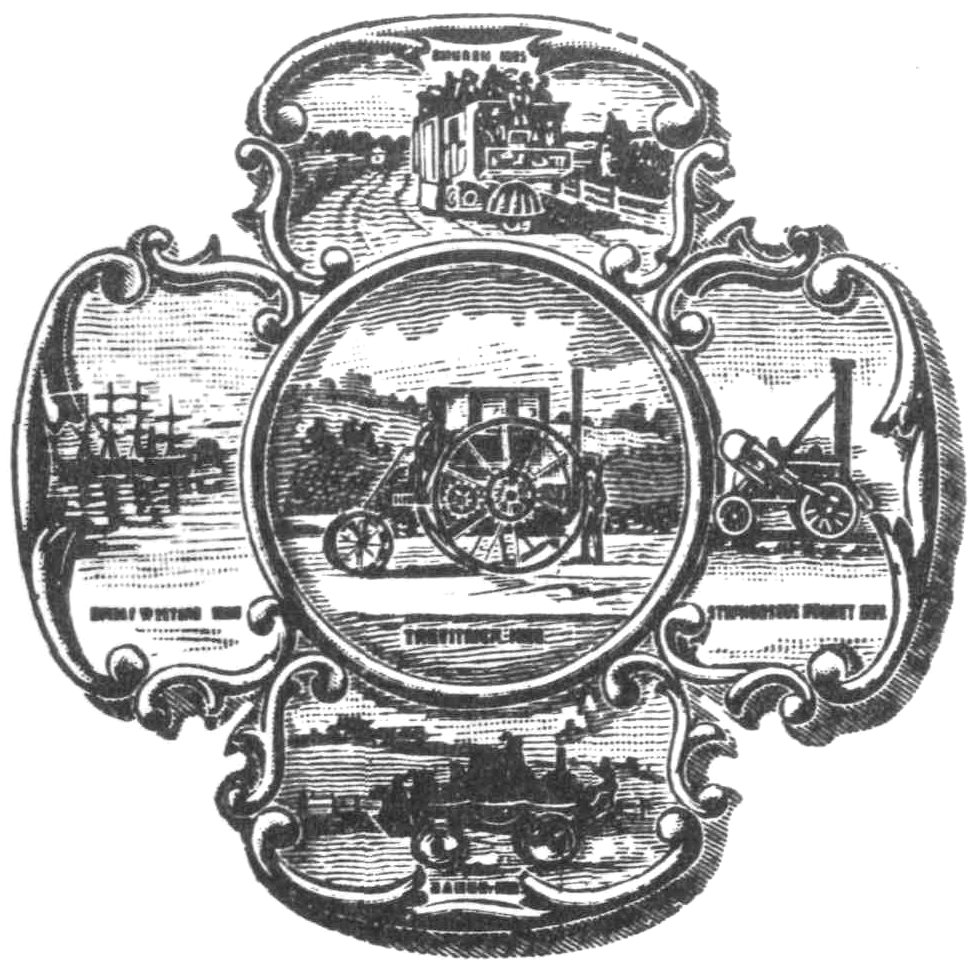
BRANCH OFFICES.
WE ARE THE PIONEERS AND LEADERS IN ALL INSURANCE FACILITIES FOR MOTORISTS.
MORE THAN MONEY INDEMNITY.
Our 35 Branch Offices in charge of skilled Salaried Official, our Engineering Staff wholly in the service of the Corporation, our expert Claims Staff everywhere, and the fact that we are the Pioneers and Originators of all the Insurance Facilities now enjoyed by Motorists, enable us to offer something more than money indemnity; we can, and do, protect a motorist in a thousand ways, unobtainable elsewhere, by means of our experience and splendid organisation, and yet we only charge competitive rates of Premiums.
| PAGE | |
| Anglo-American Oil Co., Ltd. | xii |
| Barbet-Massin, Popelin & Cie (France) | xi |
| Blackburn Aeroplane Co. | vii |
| Branger (France) | xiii |
| Bray, Gibb & Co., Ltd. | ix |
| British & Colonial Aeroplane Co., Ltd. | inside front cover |
| Burberrys' | vii |
| Car & General Insurance Corporation, Ltd. | ii |
| Coan, Robert W. | vi |
| Continental Tyre & Rubber Co., (Gt. Britain) Ltd. | vii |
| Cox, G.H. & Co., Ltd. | vi |
| Crosby Lockwood & Son | vi |
| Doutre, Appareils d'Aviation (France) | v |
| Drummond Bros., Ltd. | viii |
| Eisemann Magneto Co. | xii |
| Fighting Ships | xiv |
| "Geographia," Ltd. | vi |
| Hasler Co., The | viii |
| Howard-Flanders, L., Ltd. | xi |
| Hoyt Metal Company of Great Britain, Ltd. | vi |
| Jones Brothers, Ltd. | xi |
| Kemp Machine Works (U.S.A.) | xiii |
| Knowles Oxygen Co., Ltd. | vii |
| Mallinson, Wm. & Sons, Ltd. | ix |
| Martin & Handasyde | x |
| Mea Magneto Co., Ltd. | xiii |
| Owen, Joseph & Sons, Ltd. | xi |
| Piggott Bros. & Co., Ltd. | xi |
| Pratt's Motor Spirit | xii |
| Rogers Brothers | xi & xiv |
| Sampson Low, Marston & Co., Ltd. | xiv |
| Sopwith Aviation Co. | ix |
| Stanley, Popplewell & Co. | vii |
| Thorn & Hoddle Acetylene Co., Ltd. | viii |
| Valdenaire, H., Adenet & Cie (France). | xiii |
| Vandervell, C.A. & Co. | viii |
| Vickers, Ltd. | xv |
| White & Poppe, Ltd. | vii |
| Whiteman & Moss, Ltd. | viii |
| Wolseley Tool & Motor Car Co., Ltd. | vi |
| Accessories. | PAGE |
| Anglo-American Oil Co., Ltd. | xii |
| Barbet-Massin, Popelin & Cie (France) | xi |
| Coan, Robert W. | vi |
| Eisemann Magneto Co. | xii |
| "Geographia," Ltd. | vi |
| Hasler Co., The | viii |
| Jones Brothers, Ltd. | xi |
| Mallinson, Wm. & Sons, Ltd. | ix |
| Mea Magneto Co., Ltd. | xiii |
| Owen, Joseph & Sons, Ltd. | xi |
| Piggott Brothers & Co., Ltd. | xi |
| Pratt's Motor Spirit | xii |
| Rogers Brothers | xi & xiv |
| Valdenaire, H., Adenet & Cie (France) | xiii |
| Vandervell, C.A., & Co. | viii |
| White & Poppe, Ltd. | vii |
| Whiteman & Moss, Ltd. | viii |
| Aeroplane Builders. | |
| Blackburn Aeroplane Co. | vii |
| British & Colonial Aeroplane Co. Ltd., | inside front cover |
| Doutre, Appareils d'Aviation (France) | v |
| Howard-Flanders, L., Ltd. | xi |
| Martin & Handasyde | x |
| Sopwith Aviation Co. | ix |
| Vickers, Ltd. | xv |
| Aluminium. | |
| Coan, Robert W. | vi |
| Aviation Garments. | |
| Burberrys' | vii |
| Bearings. | |
| Hoyt Metal Co., Ltd. | vi |
| Castings. | |
| Coan, Robert W. | vi |
| Carburettors. | |
| White & Poppe, Ltd. | vii |
| Dynamos. | |
| Eisemann Magneto Co. | xii |
| Electric Lighting. | |
| Vandervell, C.A., & Co. | viii |
| Engines. | |
| Kemp Machine Works (U.S.A.) | xiii |
| Wolseley Tool & Motor Car Co., Ltd. | vi |
| Fabrics. | |
| Barbet-Massin, Poplin & Cie (France) | xi |
| Continental Tyre & Rubber Co. (Gt. Britain) Ltd. | vii |
| Jones Brothers, Ltd. | xi |
| Rogers Brothers | xi & xiv |
| Valdenaire, H., Adenet & Cie (France) | xiii |
| Flying Schools. | |
| Blackburn Aeroplane Co. | vii |
| British & Colonial Aeroplane Co. Ltd., | inside front cover |
| Doutre, Appareils d'Aviation (France) | v |
| Howard-Flanders, L., Ltd. | xi |
| Martin & Handasyde | x |
| Sopwith Aviation Co. | ix |
| Vickers, Ltd. | xv |
| Garage. | |
| Cox, G.H. & Co., Ltd. | vi |
| Hangar and Shed Builders. | |
| Piggott Bros. & Co., Ltd. | xi |
| Hardwoods. | |
| Mallinson, William & Sons | ix |
| Owen, Joseph & Sons, Ltd. | xi |
| Hydrogen. | |
| Knowles Oxygen Co. | vii |
| Indicators. | |
| Hasler Co., The | viii |
| Insurance. | |
| Bray, Gibb & Co., Ltd. | ix |
| Car & General Insurance Corporation, Ltd. | ii |
| Life Saving Vests. | |
| Rogers Brothers | xi & xiv |
| Machine Tools. | |
| Drummond Bros. Ltd. | viii |
| Magnetos. | |
| Eisemann Magneto Co. | xii |
| Mea Magneto Co., Ltd. | xiii |
| Maps (specially designed). | |
| "Geographia," Ltd. | vi |
| Motor Spirit. | |
| Anglo-American Oil Co., Ltd. | xii |
| Pratt's Motor Spirit | xii |
| Patent Agents. | |
| Stanley, Popplewell & Co. | vii |
| Photographer. | |
| Branger (France) | xiii |
| Publishers. | |
| Crosby Lockwood & Son | vi |
| "Geographia," Ltd. | vi |
| Sampson Low, Marston & Co., Ltd. | xiv |
| Stabilisateurs. | |
| Doutre, Appareils d'Aviation | v |
| Tuition. | |
| Blackburn Aeroplane Co. | vii |
| British & Colonial Aeroplane Co. Ltd., | inside front cover |
| Doutre, Appareils d'Aviation (France) | v |
| Howard-Flanders, L., Ltd. | xi |
| Martin & Handasyde | x |
| Sopwith Aviation Co. | ix |
| Vickers, Ltd. | xv |
| Welding. | |
| Thorn & Hoddle Acetylene Co., Ltd. | viii |
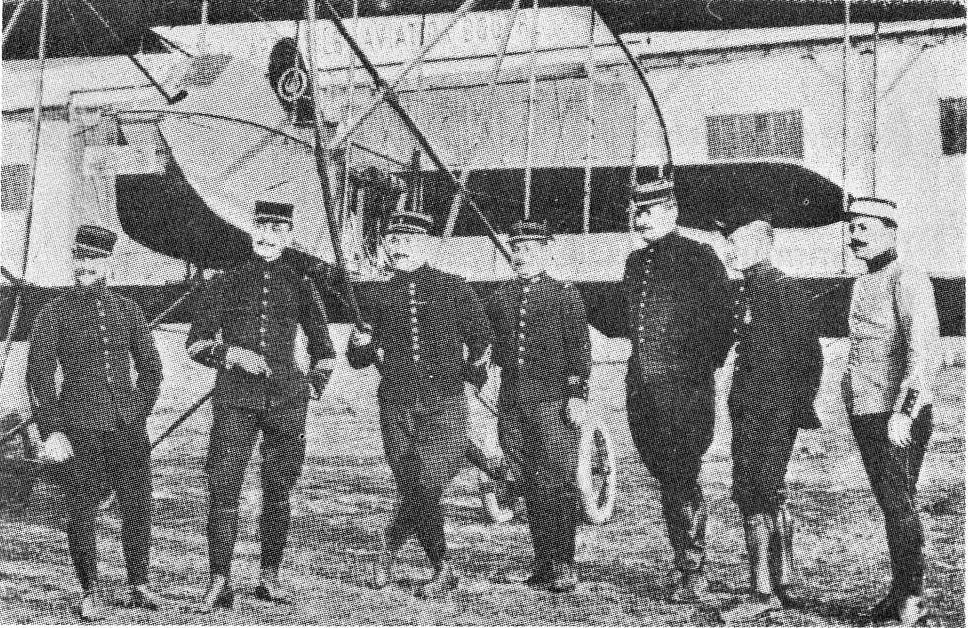 ECOLE MILITAIRE DE CORBEAULIEU. |
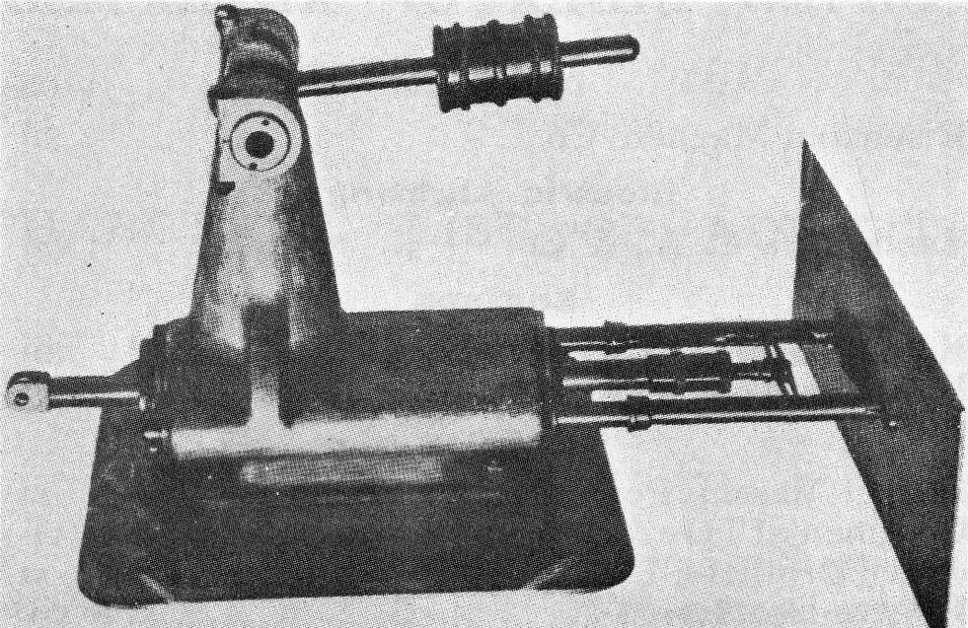 STABILISATEUR DOUTRE. |
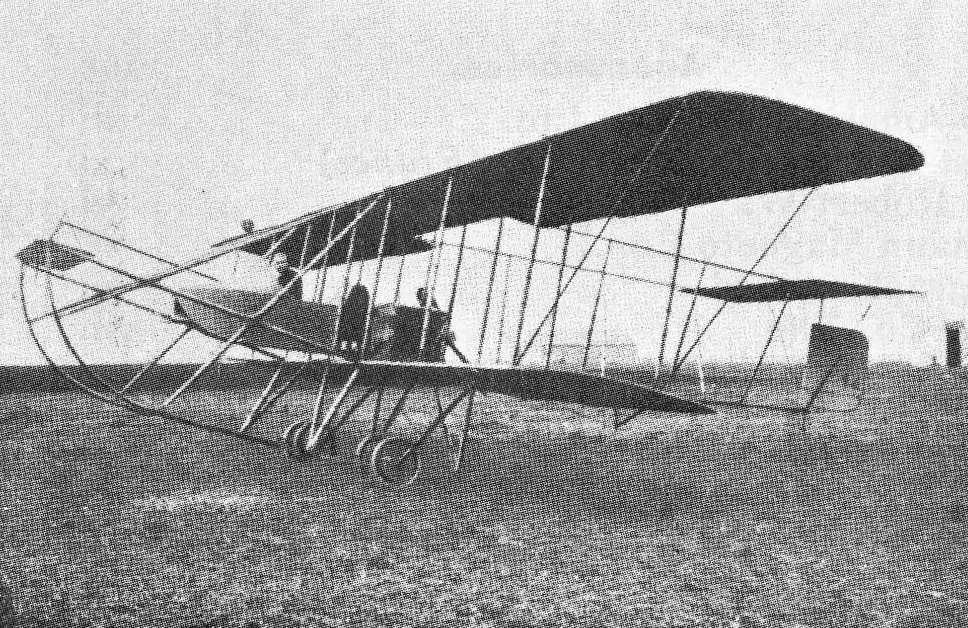 AÉROPLANE DOUTRE. |
|
BIPLANS TRIPLACES
les mieux construits, les plus surs et automatiquement stabilisés ECOLE CIVILE ET MILITAIRE Aerodrome de Corbeaulieu près Compiègne France. | ||
|
Sté des APPAREILS d'AVIATION DOUTRE
Fournisseurs des armées Françaises et Etrangires. | ||
|
LE SUEL
STABILISATEUR
AUTOMATIQUE PESANT
TOUT ÉQUIPÉ DOUZE À QUINZE
KILOGS ET AYANT FAIT SES PREUVES
PAR PLUS DE DEUX MILLE VOLS SANS ACCIDENT.
APPLICABLE À TOUS LES AÉROPLANES ET HYDROAÉROPLANES.
SÉCURITÉ ABSOLUE, VOL PAR TOUS LES TEMPS. CATALOGUE FRANCO SUR DEMANDE - FETTERER DIRECTEUR GÉNÉRAL. 58 RUE TAITBOUT. PARIS. TÉLÉPH CENTRAL 37-53. | ||
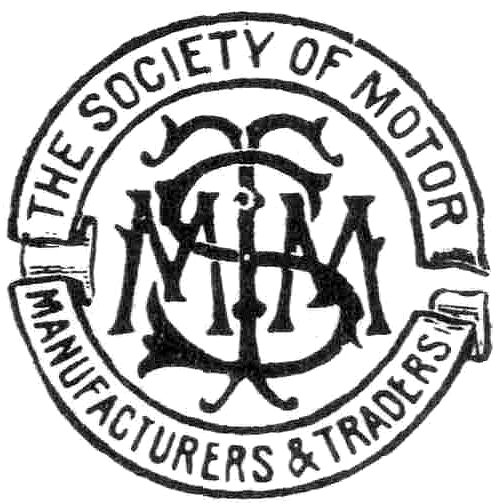
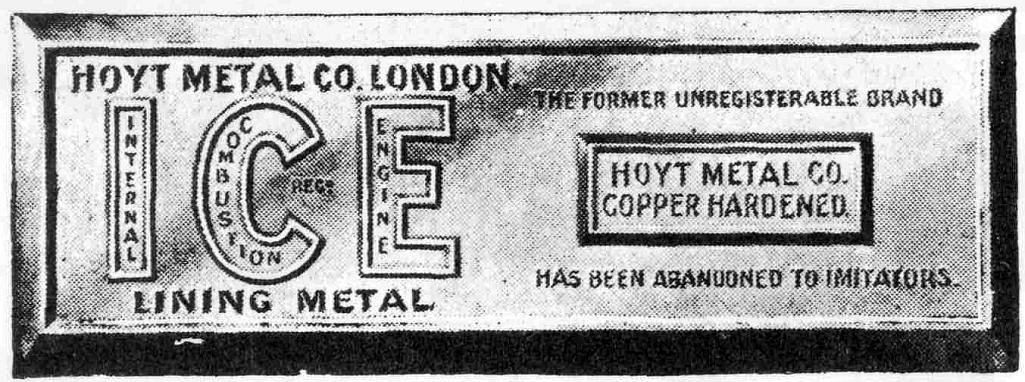 TRIAL INGOTS CHEERFULLY SUPPLIED.
TRIAL INGOTS CHEERFULLY SUPPLIED.Complete List, Post Free, from
London: CROSBY LOCKWOOD & SON,In carburettors there is no greater essential than dependability, and—
The dependability of the White & Poppe is such as ensures a never-failing and invariable efficiency.
That's why it is the favourite with many of the leading Airmen of the day.
Our Booklet describes it fully, and we shall be delighted to send you copy.
WHITE & POPPE, LTD.,
COVENTRY,
ENG.
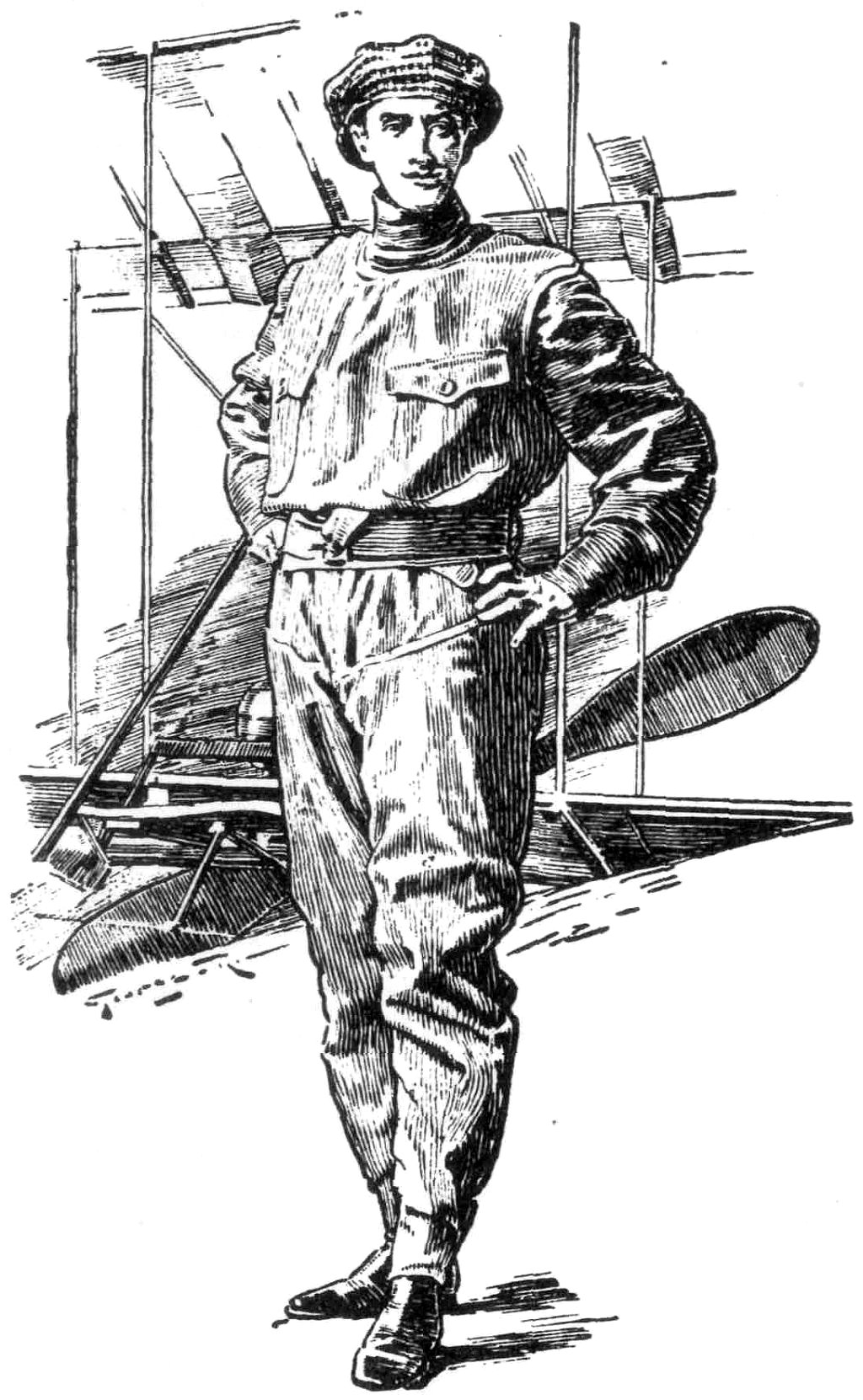 Burberry Aeroplane Outfit.
Burberry Aeroplane Outfit.
DESIGNED BY EXPERTS is workmanlike both in design and detail, and permits absolute freedom for arms and limbs. Made in wind and weatherproof Gabardine, lined throughout with Camel Fleece or Quilted Eiderdown, it maintains phenomenal warmth under the severest conditions.
BURBERRY GABARDINE is remarkably airylight, yet affords perfect protection against wind, cold or rain, and is so strong that broken stays cannot penetrate its dense texture.
Mr. C. Grahame-White:—"I take this opportunity of thanking you for the suit I wore on my memorable flight and feel I cannot recommend the material too highly where warmth and comfort are required."
Telephone, 1763 Central
Telegrams: "NOTIONS, London."
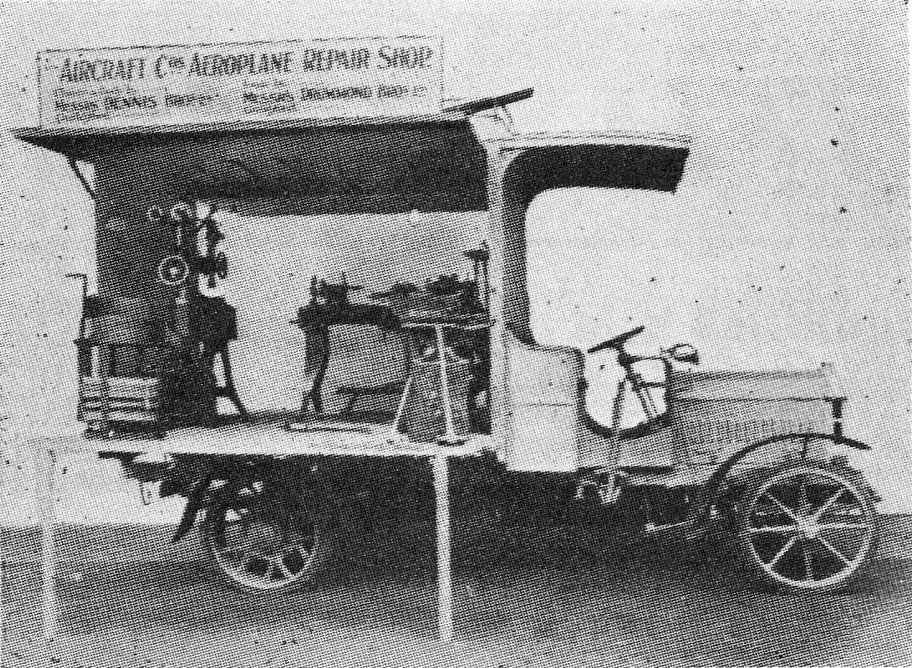
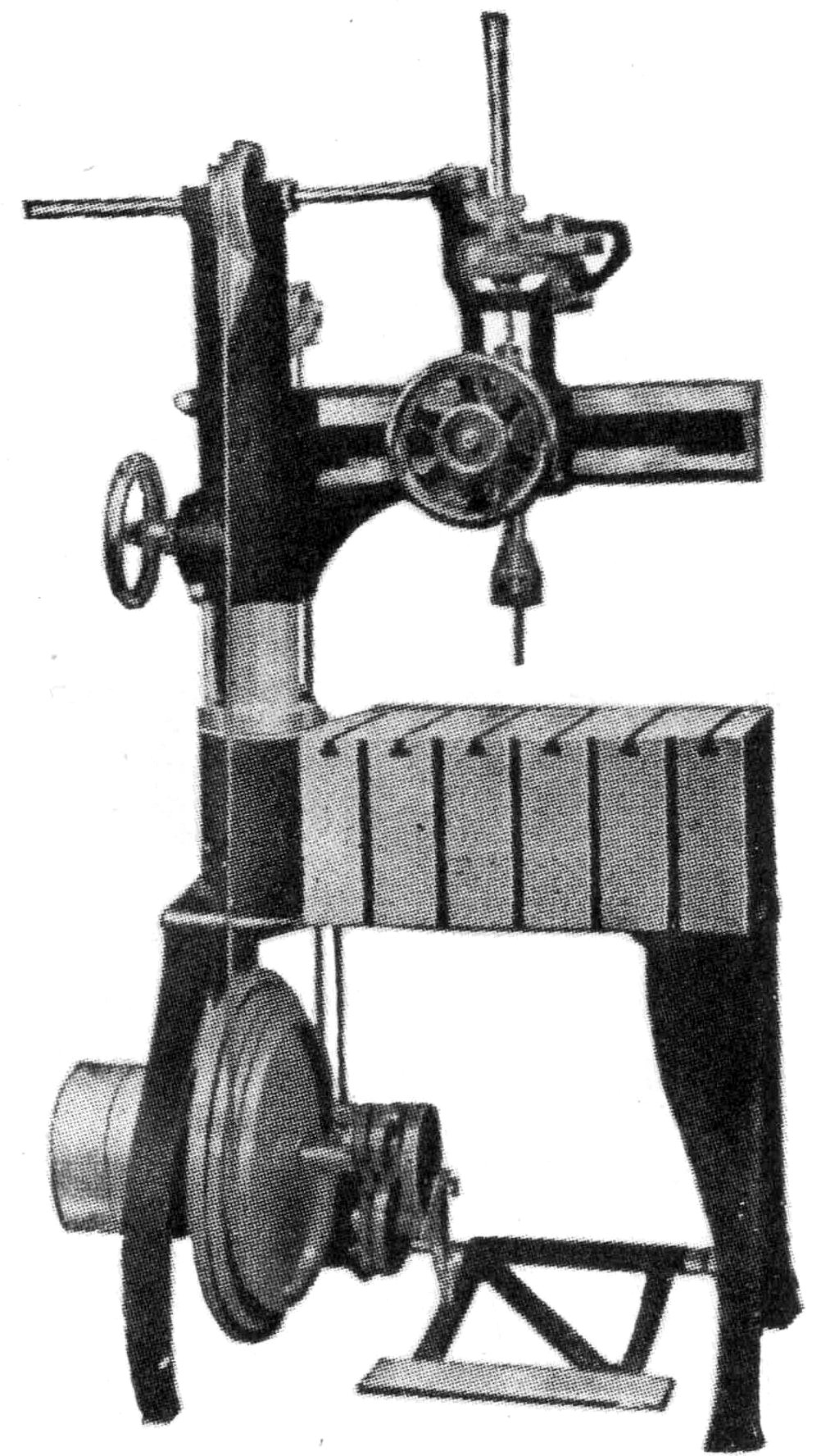
Light treadle driven Radial Drill, taking up to 1 in. drills (½ in. shank.) This machine is of special design, a patented form of high speed drive giving ample power for drilling by foot. With treadle and fast and loose pulley. Price £24 15s.
We specialise in Light Machine Tools for use in portable workshops, such as are used in connection with aircraft. The above is a photograph of a Travelling Workshop equipped with our 5 in. lathe and Radial Drill, both of which tools are fitted with treadle and electric motor drive. Full particulars of machines and installations furnished on application.
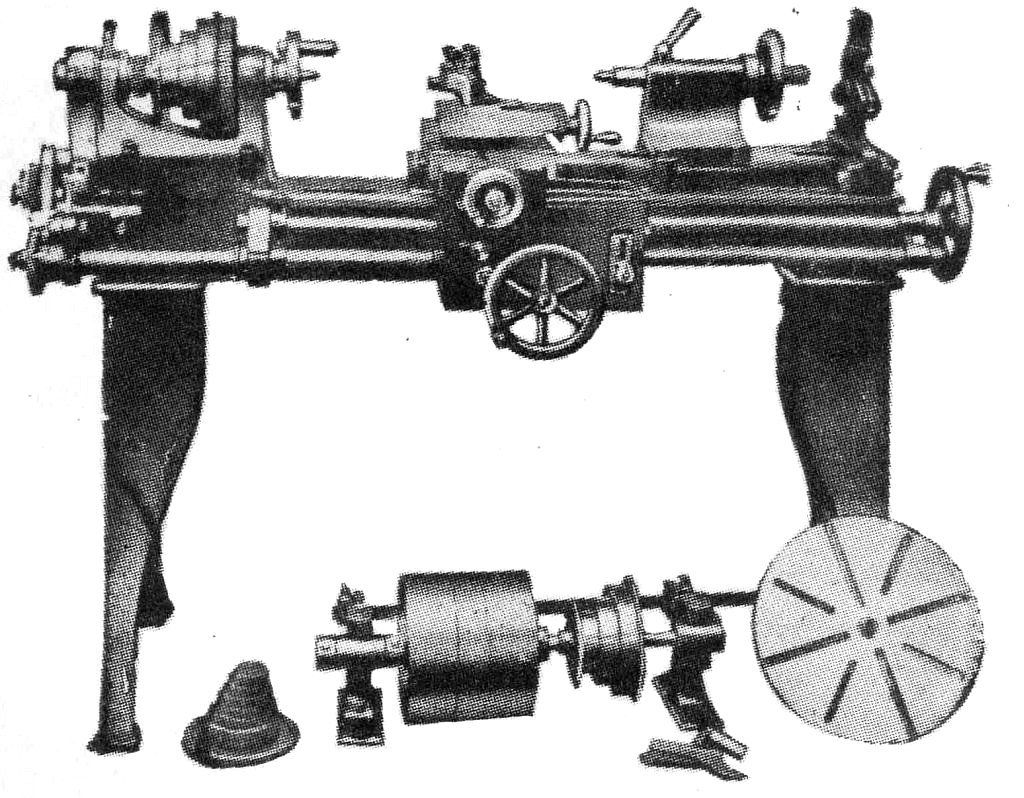
5 in. Centre Screw Cutting, Surfacing and Boring Lathe here shewn, with counter shaft for power. With counter shaft or treadle drive. Price £44.
"TEL" REVOLUTION
SPEED INDICATORS.
Approved and used by the British Admiralty.
Owing to its conjugate movement it is accurate, possesses a uniform graduated dial and is not affected by vibration or variation of temperature.
Indicates with the same accuracy high and low speeds.
Independent of variable strains, friction.
Not damaged should maximum speed of dial be exceeded.
Rain and dust-proof.
Requires no upkeep or adjustment of mechanism.
THE HASLER COMPANY,
26, Victoria St., Westminster, LONDON, S.W.
C·A·V·
is the proved system of electric Lighting for Cars. The consistent reliability and efficiency of the C.A.V. Lighting Sets is vouched for by the owners of the 15,000 cars on which the system has been adopted. It is essentially the "no trouble" system; simple, safe and certain. Send for our illustrated Blue Book, fully explanatory and free.
C. A. VANDERVELL & Co.,
WARPLE WAY, ACTON VALE,
LONDON, W.
| Codes | { | Premier. Lieber. A.B.C. 5th Edition. |






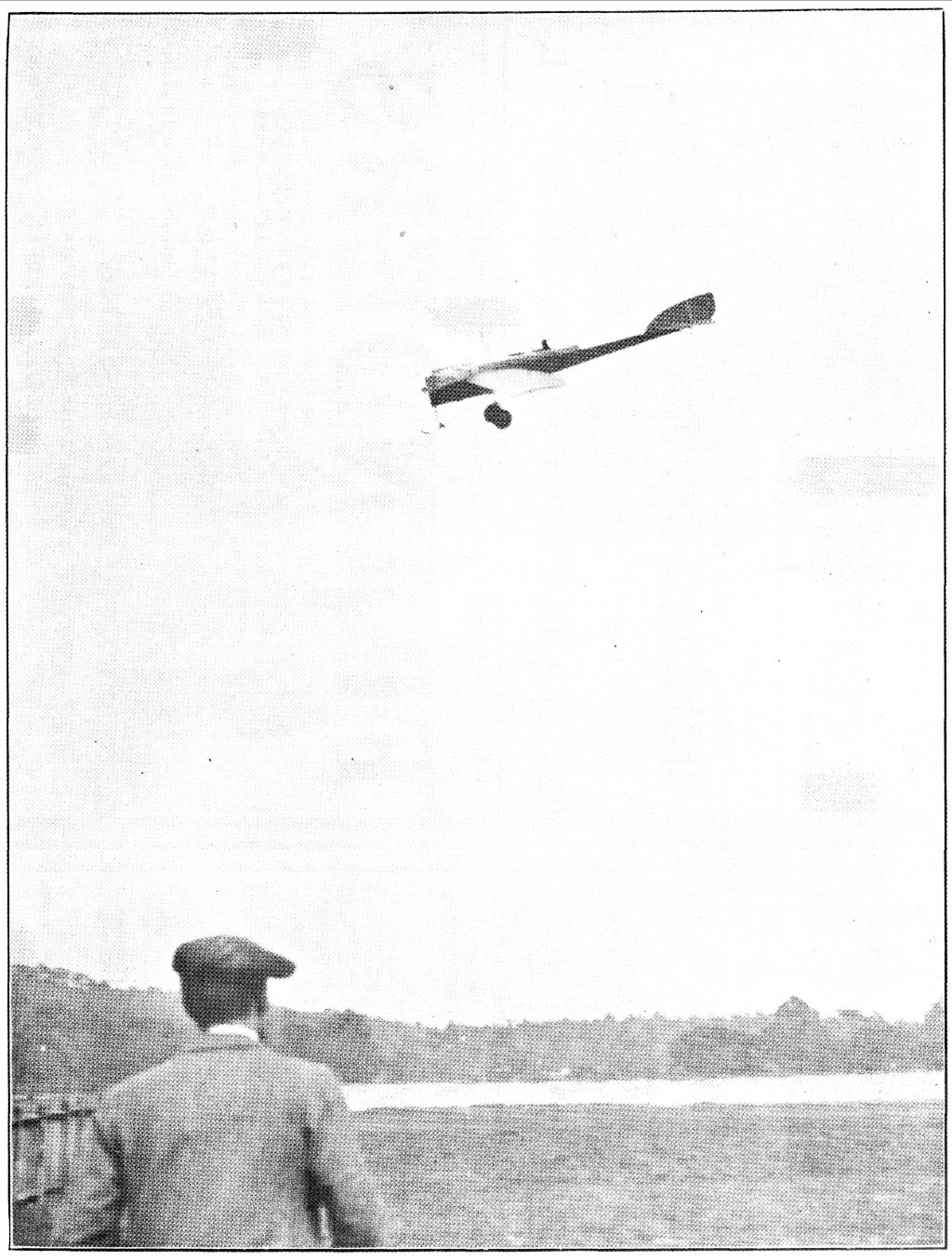
Doncaster, Burton-on-Trent, Folkestone, etc., etc.
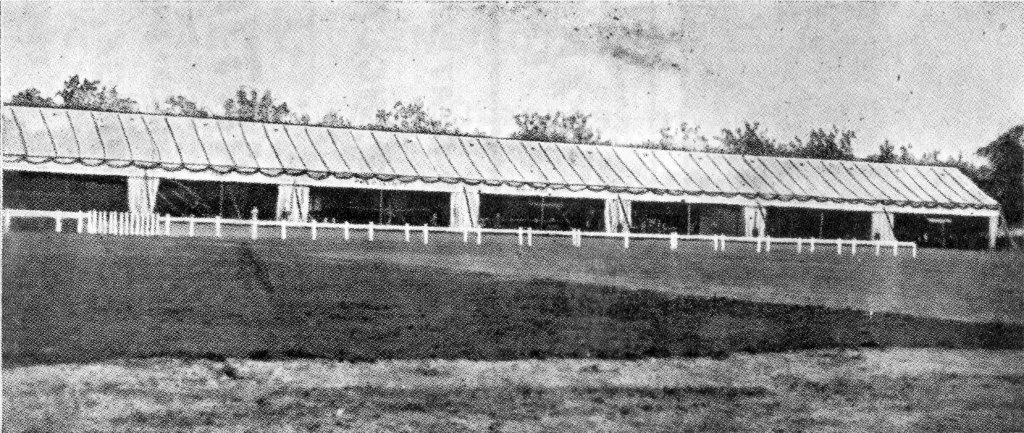
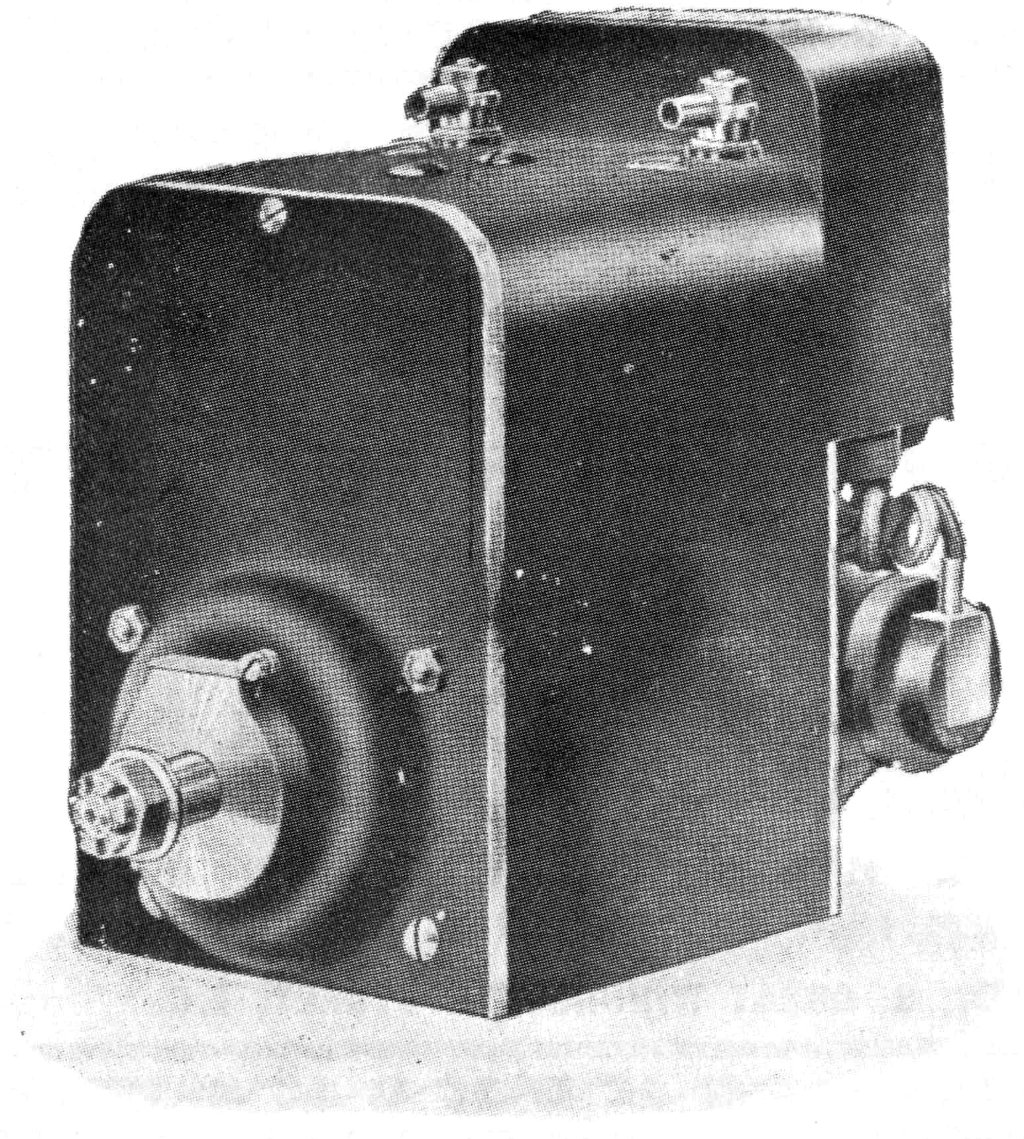
Although designed for use with accumulators—gives results without damaging filaments without the use of accumulators. Perfectly automatic in action. Used on the Zeppelin.
Used on the Mercedes—Gnome—Schutte Lanz—Dixi, etc., etc. Entirely weatherproof—advances and retards the spark periodicity according to engine revolutions. Latest models as used on above engines both single and dual.
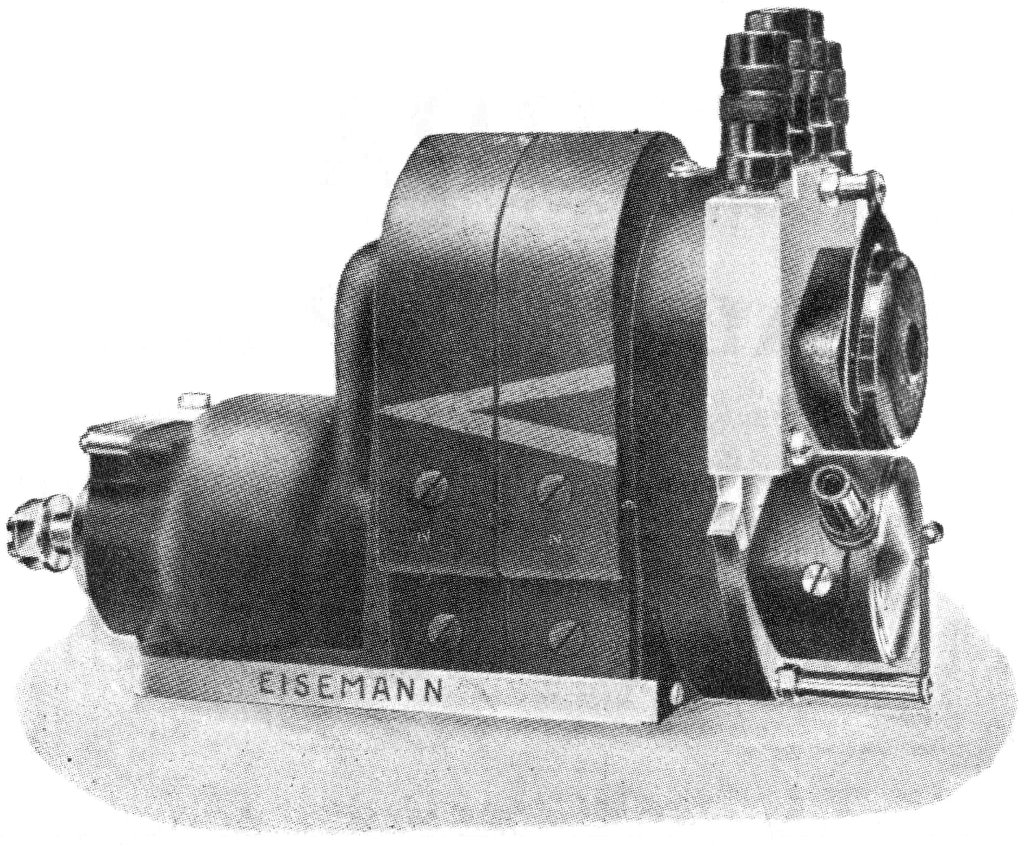
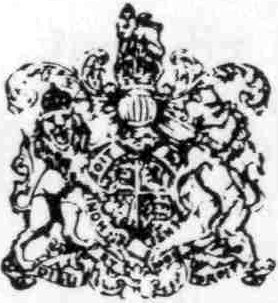
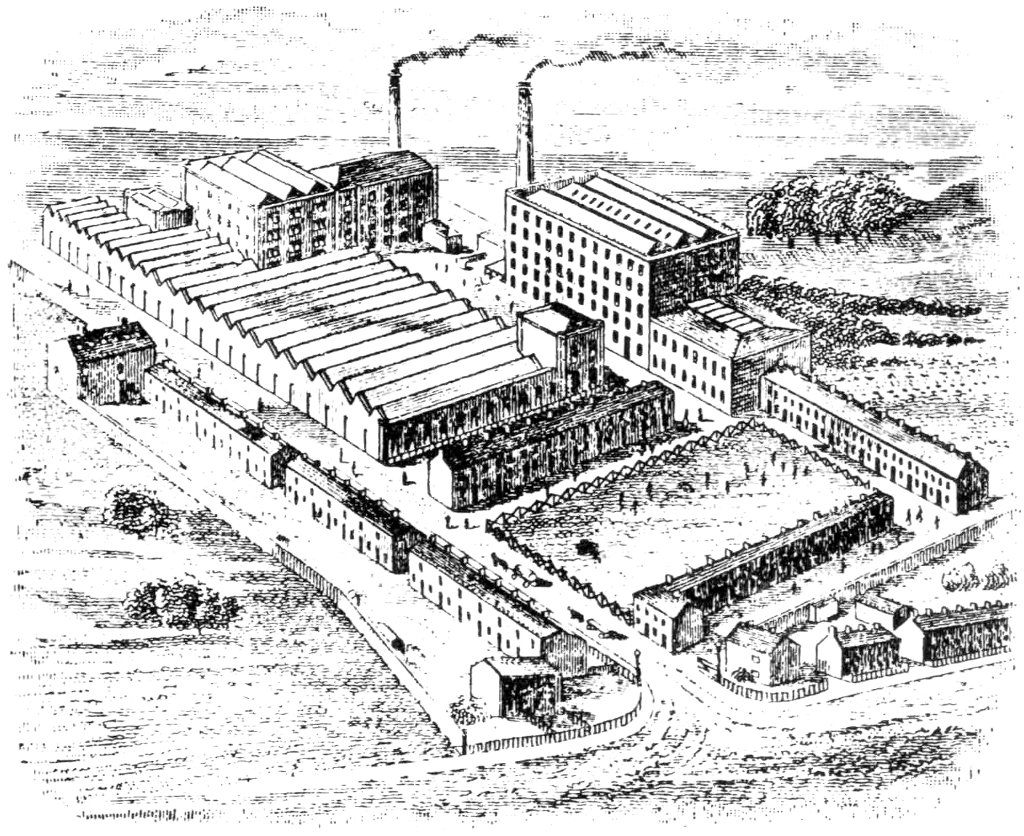
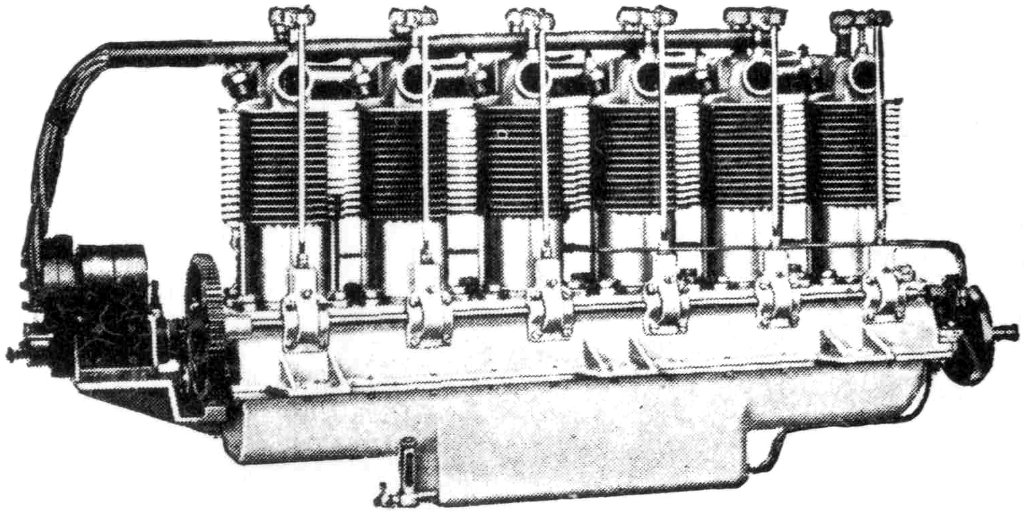
Are air cooled and are the most efficient,
economical and reliable power plants on
the market sold at reasonable prices. Built
in four sizes to meet all requirements from
experimental purposes to commercial use.
FULL PARTICULARS ON REQUEST.
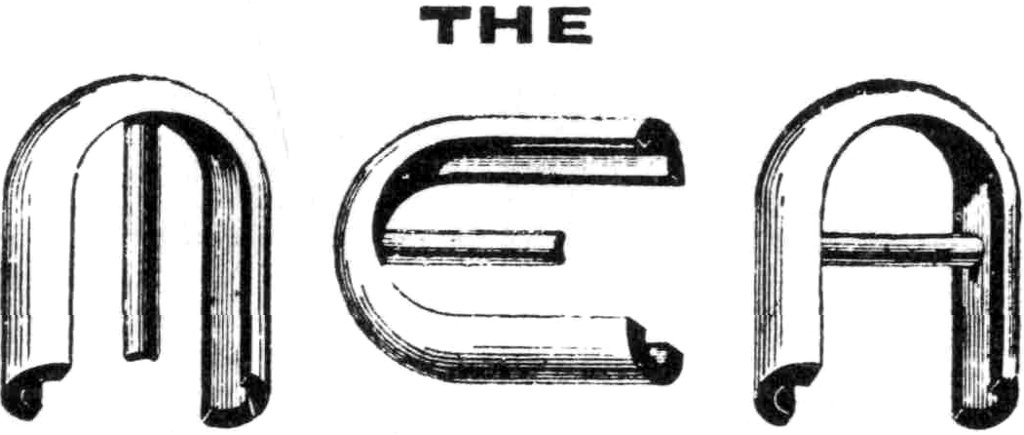 THE
MEA
THE
MEA
"One of your Magnetos delivered to us last year has had a severe test, proving it to be absolutely waterproof. It was fitted to an engine in a motor boat, which towards 7 p.m. ran full of water: next morning about 9 a.m. we pumped her dry, and, after your magneto had been about 13 hours under water, it was found to be in perfect working order, and the engine started up without a hitch."
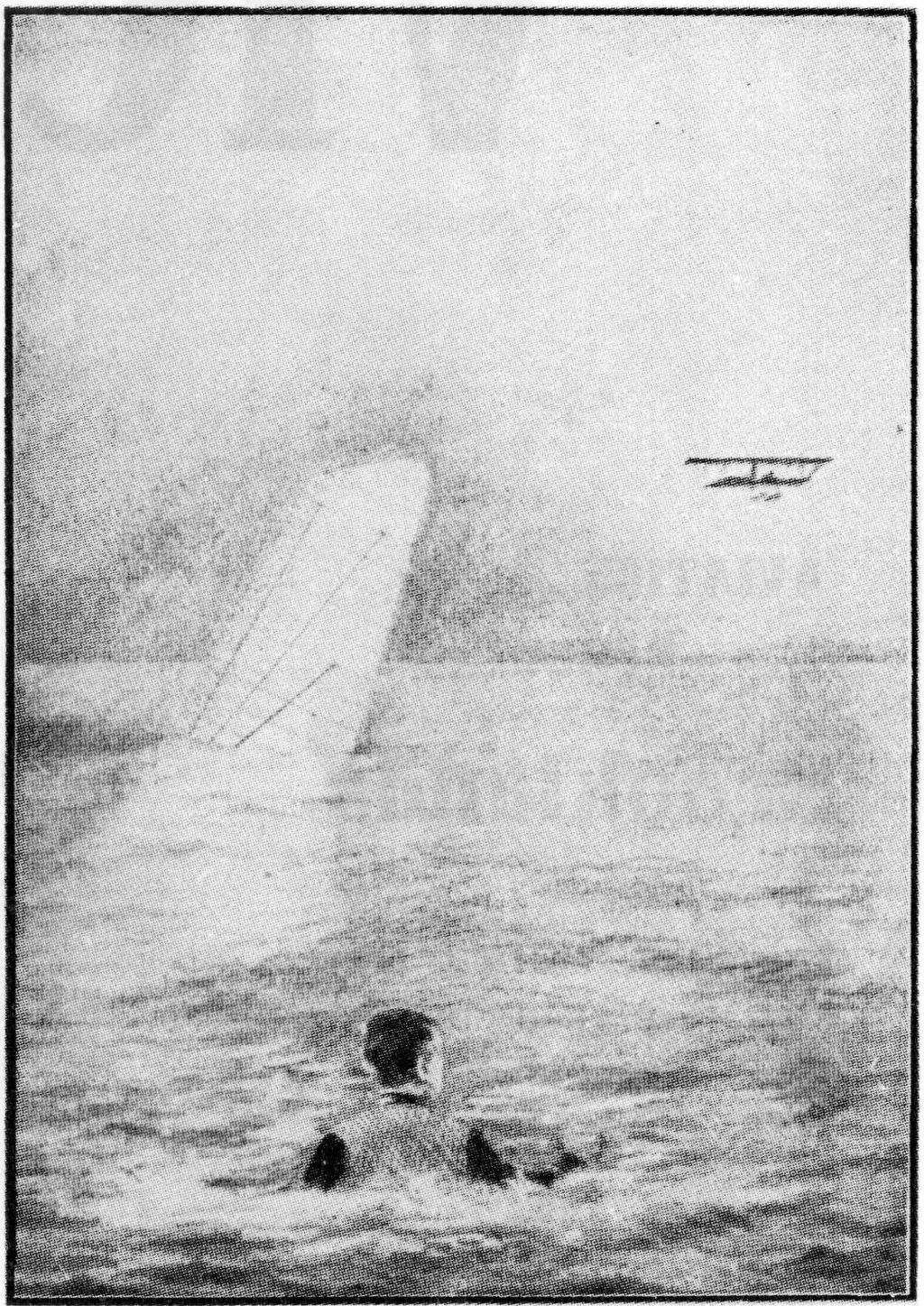 LIFE-SAVING VEST
LIFE-SAVING VESTStocked by the Leading Stores in all Countries, or can be purchased direct from the Inventors and Sole Manufacturers—
ROGERS BROTHERS,Manufacturers of "Aeroplatte" All-British Aircraft Fabrics, and the "Aeromac" Water-proof Garments
33, ALDERMANBURY, LONDON, E.C. Send post-card for full particulars.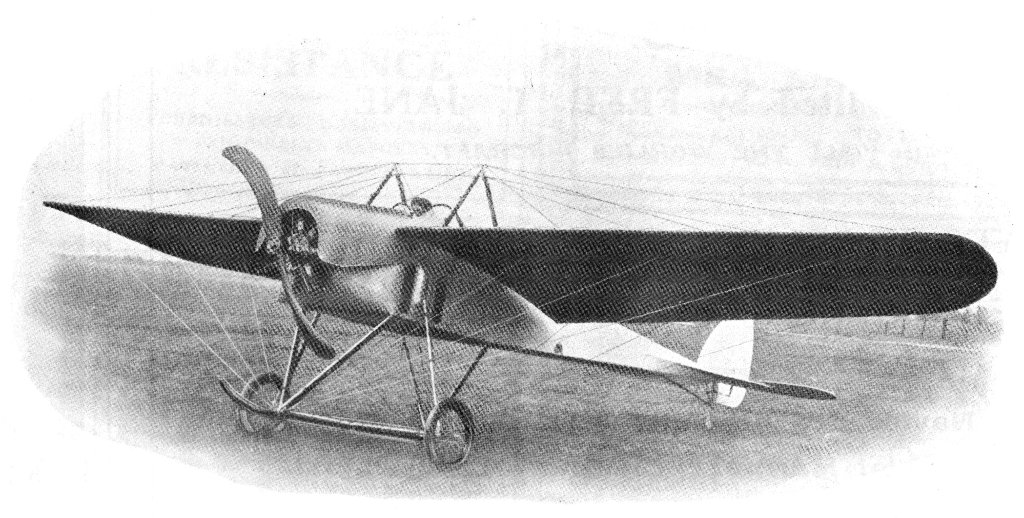 AEROPLANES.
AEROPLANES.
End of Project Gutenberg's Jane's All the World's Aircraft, by Various
*** END OF THIS PROJECT GUTENBERG EBOOK JANE'S ALL THE WORLD'S AIRCRAFT ***
***** This file should be named 34815-h.htm or 34815-h.zip *****
This and all associated files of various formats will be found in:
http://www.gutenberg.org/3/4/8/1/34815/
Produced by Suzanne Shell, Jason Isbell and the Online
Distributed Proofreading Team at http://www.pgdp.net
Updated editions will replace the previous one--the old editions
will be renamed.
Creating the works from public domain print editions means that no
one owns a United States copyright in these works, so the Foundation
(and you!) can copy and distribute it in the United States without
permission and without paying copyright royalties. Special rules,
set forth in the General Terms of Use part of this license, apply to
copying and distributing Project Gutenberg-tm electronic works to
protect the PROJECT GUTENBERG-tm concept and trademark. Project
Gutenberg is a registered trademark, and may not be used if you
charge for the eBooks, unless you receive specific permission. If you
do not charge anything for copies of this eBook, complying with the
rules is very easy. You may use this eBook for nearly any purpose
such as creation of derivative works, reports, performances and
research. They may be modified and printed and given away--you may do
practically ANYTHING with public domain eBooks. Redistribution is
subject to the trademark license, especially commercial
redistribution.
*** START: FULL LICENSE ***
THE FULL PROJECT GUTENBERG LICENSE
PLEASE READ THIS BEFORE YOU DISTRIBUTE OR USE THIS WORK
To protect the Project Gutenberg-tm mission of promoting the free
distribution of electronic works, by using or distributing this work
(or any other work associated in any way with the phrase "Project
Gutenberg"), you agree to comply with all the terms of the Full Project
Gutenberg-tm License (available with this file or online at
http://gutenberg.net/license).
Section 1. General Terms of Use and Redistributing Project Gutenberg-tm
electronic works
1.A. By reading or using any part of this Project Gutenberg-tm
electronic work, you indicate that you have read, understand, agree to
and accept all the terms of this license and intellectual property
(trademark/copyright) agreement. If you do not agree to abide by all
the terms of this agreement, you must cease using and return or destroy
all copies of Project Gutenberg-tm electronic works in your possession.
If you paid a fee for obtaining a copy of or access to a Project
Gutenberg-tm electronic work and you do not agree to be bound by the
terms of this agreement, you may obtain a refund from the person or
entity to whom you paid the fee as set forth in paragraph 1.E.8.
1.B. "Project Gutenberg" is a registered trademark. It may only be
used on or associated in any way with an electronic work by people who
agree to be bound by the terms of this agreement. There are a few
things that you can do with most Project Gutenberg-tm electronic works
even without complying with the full terms of this agreement. See
paragraph 1.C below. There are a lot of things you can do with Project
Gutenberg-tm electronic works if you follow the terms of this agreement
and help preserve free future access to Project Gutenberg-tm electronic
works. See paragraph 1.E below.
1.C. The Project Gutenberg Literary Archive Foundation ("the Foundation"
or PGLAF), owns a compilation copyright in the collection of Project
Gutenberg-tm electronic works. Nearly all the individual works in the
collection are in the public domain in the United States. If an
individual work is in the public domain in the United States and you are
located in the United States, we do not claim a right to prevent you from
copying, distributing, performing, displaying or creating derivative
works based on the work as long as all references to Project Gutenberg
are removed. Of course, we hope that you will support the Project
Gutenberg-tm mission of promoting free access to electronic works by
freely sharing Project Gutenberg-tm works in compliance with the terms of
this agreement for keeping the Project Gutenberg-tm name associated with
the work. You can easily comply with the terms of this agreement by
keeping this work in the same format with its attached full Project
Gutenberg-tm License when you share it without charge with others.
1.D. The copyright laws of the place where you are located also govern
what you can do with this work. Copyright laws in most countries are in
a constant state of change. If you are outside the United States, check
the laws of your country in addition to the terms of this agreement
before downloading, copying, displaying, performing, distributing or
creating derivative works based on this work or any other Project
Gutenberg-tm work. The Foundation makes no representations concerning
the copyright status of any work in any country outside the United
States.
1.E. Unless you have removed all references to Project Gutenberg:
1.E.1. The following sentence, with active links to, or other immediate
access to, the full Project Gutenberg-tm License must appear prominently
whenever any copy of a Project Gutenberg-tm work (any work on which the
phrase "Project Gutenberg" appears, or with which the phrase "Project
Gutenberg" is associated) is accessed, displayed, performed, viewed,
copied or distributed:
This eBook is for the use of anyone anywhere at no cost and with
almost no restrictions whatsoever. You may copy it, give it away or
re-use it under the terms of the Project Gutenberg License included
with this eBook or online at www.gutenberg.net
1.E.2. If an individual Project Gutenberg-tm electronic work is derived
from the public domain (does not contain a notice indicating that it is
posted with permission of the copyright holder), the work can be copied
and distributed to anyone in the United States without paying any fees
or charges. If you are redistributing or providing access to a work
with the phrase "Project Gutenberg" associated with or appearing on the
work, you must comply either with the requirements of paragraphs 1.E.1
through 1.E.7 or obtain permission for the use of the work and the
Project Gutenberg-tm trademark as set forth in paragraphs 1.E.8 or
1.E.9.
1.E.3. If an individual Project Gutenberg-tm electronic work is posted
with the permission of the copyright holder, your use and distribution
must comply with both paragraphs 1.E.1 through 1.E.7 and any additional
terms imposed by the copyright holder. Additional terms will be linked
to the Project Gutenberg-tm License for all works posted with the
permission of the copyright holder found at the beginning of this work.
1.E.4. Do not unlink or detach or remove the full Project Gutenberg-tm
License terms from this work, or any files containing a part of this
work or any other work associated with Project Gutenberg-tm.
1.E.5. Do not copy, display, perform, distribute or redistribute this
electronic work, or any part of this electronic work, without
prominently displaying the sentence set forth in paragraph 1.E.1 with
active links or immediate access to the full terms of the Project
Gutenberg-tm License.
1.E.6. You may convert to and distribute this work in any binary,
compressed, marked up, nonproprietary or proprietary form, including any
word processing or hypertext form. However, if you provide access to or
distribute copies of a Project Gutenberg-tm work in a format other than
"Plain Vanilla ASCII" or other format used in the official version
posted on the official Project Gutenberg-tm web site (www.gutenberg.net),
you must, at no additional cost, fee or expense to the user, provide a
copy, a means of exporting a copy, or a means of obtaining a copy upon
request, of the work in its original "Plain Vanilla ASCII" or other
form. Any alternate format must include the full Project Gutenberg-tm
License as specified in paragraph 1.E.1.
1.E.7. Do not charge a fee for access to, viewing, displaying,
performing, copying or distributing any Project Gutenberg-tm works
unless you comply with paragraph 1.E.8 or 1.E.9.
1.E.8. You may charge a reasonable fee for copies of or providing
access to or distributing Project Gutenberg-tm electronic works provided
that
- You pay a royalty fee of 20% of the gross profits you derive from
the use of Project Gutenberg-tm works calculated using the method
you already use to calculate your applicable taxes. The fee is
owed to the owner of the Project Gutenberg-tm trademark, but he
has agreed to donate royalties under this paragraph to the
Project Gutenberg Literary Archive Foundation. Royalty payments
must be paid within 60 days following each date on which you
prepare (or are legally required to prepare) your periodic tax
returns. Royalty payments should be clearly marked as such and
sent to the Project Gutenberg Literary Archive Foundation at the
address specified in Section 4, "Information about donations to
the Project Gutenberg Literary Archive Foundation."
- You provide a full refund of any money paid by a user who notifies
you in writing (or by e-mail) within 30 days of receipt that s/he
does not agree to the terms of the full Project Gutenberg-tm
License. You must require such a user to return or
destroy all copies of the works possessed in a physical medium
and discontinue all use of and all access to other copies of
Project Gutenberg-tm works.
- You provide, in accordance with paragraph 1.F.3, a full refund of any
money paid for a work or a replacement copy, if a defect in the
electronic work is discovered and reported to you within 90 days
of receipt of the work.
- You comply with all other terms of this agreement for free
distribution of Project Gutenberg-tm works.
1.E.9. If you wish to charge a fee or distribute a Project Gutenberg-tm
electronic work or group of works on different terms than are set
forth in this agreement, you must obtain permission in writing from
both the Project Gutenberg Literary Archive Foundation and Michael
Hart, the owner of the Project Gutenberg-tm trademark. Contact the
Foundation as set forth in Section 3 below.
1.F.
1.F.1. Project Gutenberg volunteers and employees expend considerable
effort to identify, do copyright research on, transcribe and proofread
public domain works in creating the Project Gutenberg-tm
collection. Despite these efforts, Project Gutenberg-tm electronic
works, and the medium on which they may be stored, may contain
"Defects," such as, but not limited to, incomplete, inaccurate or
corrupt data, transcription errors, a copyright or other intellectual
property infringement, a defective or damaged disk or other medium, a
computer virus, or computer codes that damage or cannot be read by
your equipment.
1.F.2. LIMITED WARRANTY, DISCLAIMER OF DAMAGES - Except for the "Right
of Replacement or Refund" described in paragraph 1.F.3, the Project
Gutenberg Literary Archive Foundation, the owner of the Project
Gutenberg-tm trademark, and any other party distributing a Project
Gutenberg-tm electronic work under this agreement, disclaim all
liability to you for damages, costs and expenses, including legal
fees. YOU AGREE THAT YOU HAVE NO REMEDIES FOR NEGLIGENCE, STRICT
LIABILITY, BREACH OF WARRANTY OR BREACH OF CONTRACT EXCEPT THOSE
PROVIDED IN PARAGRAPH 1.F.3. YOU AGREE THAT THE FOUNDATION, THE
TRADEMARK OWNER, AND ANY DISTRIBUTOR UNDER THIS AGREEMENT WILL NOT BE
LIABLE TO YOU FOR ACTUAL, DIRECT, INDIRECT, CONSEQUENTIAL, PUNITIVE OR
INCIDENTAL DAMAGES EVEN IF YOU GIVE NOTICE OF THE POSSIBILITY OF SUCH
DAMAGE.
1.F.3. LIMITED RIGHT OF REPLACEMENT OR REFUND - If you discover a
defect in this electronic work within 90 days of receiving it, you can
receive a refund of the money (if any) you paid for it by sending a
written explanation to the person you received the work from. If you
received the work on a physical medium, you must return the medium with
your written explanation. The person or entity that provided you with
the defective work may elect to provide a replacement copy in lieu of a
refund. If you received the work electronically, the person or entity
providing it to you may choose to give you a second opportunity to
receive the work electronically in lieu of a refund. If the second copy
is also defective, you may demand a refund in writing without further
opportunities to fix the problem.
1.F.4. Except for the limited right of replacement or refund set forth
in paragraph 1.F.3, this work is provided to you 'AS-IS' WITH NO OTHER
WARRANTIES OF ANY KIND, EXPRESS OR IMPLIED, INCLUDING BUT NOT LIMITED TO
WARRANTIES OF MERCHANTIBILITY OR FITNESS FOR ANY PURPOSE.
1.F.5. Some states do not allow disclaimers of certain implied
warranties or the exclusion or limitation of certain types of damages.
If any disclaimer or limitation set forth in this agreement violates the
law of the state applicable to this agreement, the agreement shall be
interpreted to make the maximum disclaimer or limitation permitted by
the applicable state law. The invalidity or unenforceability of any
provision of this agreement shall not void the remaining provisions.
1.F.6. INDEMNITY - You agree to indemnify and hold the Foundation, the
trademark owner, any agent or employee of the Foundation, anyone
providing copies of Project Gutenberg-tm electronic works in accordance
with this agreement, and any volunteers associated with the production,
promotion and distribution of Project Gutenberg-tm electronic works,
harmless from all liability, costs and expenses, including legal fees,
that arise directly or indirectly from any of the following which you do
or cause to occur: (a) distribution of this or any Project Gutenberg-tm
work, (b) alteration, modification, or additions or deletions to any
Project Gutenberg-tm work, and (c) any Defect you cause.
Section 2. Information about the Mission of Project Gutenberg-tm
Project Gutenberg-tm is synonymous with the free distribution of
electronic works in formats readable by the widest variety of computers
including obsolete, old, middle-aged and new computers. It exists
because of the efforts of hundreds of volunteers and donations from
people in all walks of life.
Volunteers and financial support to provide volunteers with the
assistance they need are critical to reaching Project Gutenberg-tm's
goals and ensuring that the Project Gutenberg-tm collection will
remain freely available for generations to come. In 2001, the Project
Gutenberg Literary Archive Foundation was created to provide a secure
and permanent future for Project Gutenberg-tm and future generations.
To learn more about the Project Gutenberg Literary Archive Foundation
and how your efforts and donations can help, see Sections 3 and 4
and the Foundation web page at http://www.pglaf.org.
Section 3. Information about the Project Gutenberg Literary Archive
Foundation
The Project Gutenberg Literary Archive Foundation is a non profit
501(c)(3) educational corporation organized under the laws of the
state of Mississippi and granted tax exempt status by the Internal
Revenue Service. The Foundation's EIN or federal tax identification
number is 64-6221541. Its 501(c)(3) letter is posted at
http://pglaf.org/fundraising. Contributions to the Project Gutenberg
Literary Archive Foundation are tax deductible to the full extent
permitted by U.S. federal laws and your state's laws.
The Foundation's principal office is located at 4557 Melan Dr. S.
Fairbanks, AK, 99712., but its volunteers and employees are scattered
throughout numerous locations. Its business office is located at
809 North 1500 West, Salt Lake City, UT 84116, (801) 596-1887, email
business@pglaf.org. Email contact links and up to date contact
information can be found at the Foundation's web site and official
page at http://pglaf.org
For additional contact information:
Dr. Gregory B. Newby
Chief Executive and Director
gbnewby@pglaf.org
Section 4. Information about Donations to the Project Gutenberg
Literary Archive Foundation
Project Gutenberg-tm depends upon and cannot survive without wide
spread public support and donations to carry out its mission of
increasing the number of public domain and licensed works that can be
freely distributed in machine readable form accessible by the widest
array of equipment including outdated equipment. Many small donations
($1 to $5,000) are particularly important to maintaining tax exempt
status with the IRS.
The Foundation is committed to complying with the laws regulating
charities and charitable donations in all 50 states of the United
States. Compliance requirements are not uniform and it takes a
considerable effort, much paperwork and many fees to meet and keep up
with these requirements. We do not solicit donations in locations
where we have not received written confirmation of compliance. To
SEND DONATIONS or determine the status of compliance for any
particular state visit http://pglaf.org
While we cannot and do not solicit contributions from states where we
have not met the solicitation requirements, we know of no prohibition
against accepting unsolicited donations from donors in such states who
approach us with offers to donate.
International donations are gratefully accepted, but we cannot make
any statements concerning tax treatment of donations received from
outside the United States. U.S. laws alone swamp our small staff.
Please check the Project Gutenberg Web pages for current donation
methods and addresses. Donations are accepted in a number of other
ways including including checks, online payments and credit card
donations. To donate, please visit: http://pglaf.org/donate
Section 5. General Information About Project Gutenberg-tm electronic
works.
Professor Michael S. Hart is the originator of the Project Gutenberg-tm
concept of a library of electronic works that could be freely shared
with anyone. For thirty years, he produced and distributed Project
Gutenberg-tm eBooks with only a loose network of volunteer support.
Project Gutenberg-tm eBooks are often created from several printed
editions, all of which are confirmed as Public Domain in the U.S.
unless a copyright notice is included. Thus, we do not necessarily
keep eBooks in compliance with any particular paper edition.
Most people start at our Web site which has the main PG search facility:
http://www.gutenberg.net
This Web site includes information about Project Gutenberg-tm,
including how to make donations to the Project Gutenberg Literary
Archive Foundation, how to help produce our new eBooks, and how to
subscribe to our email newsletter to hear about new eBooks.